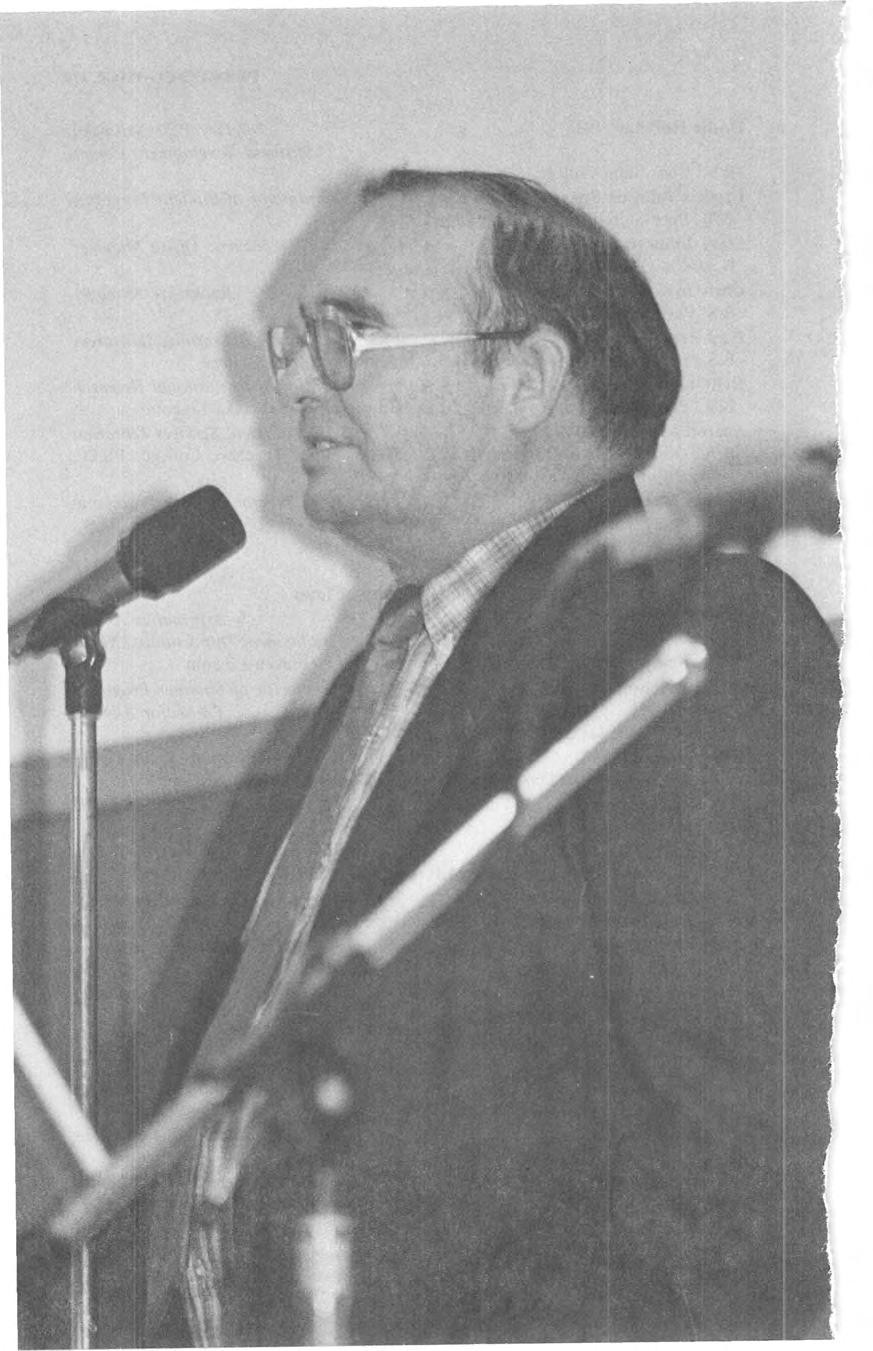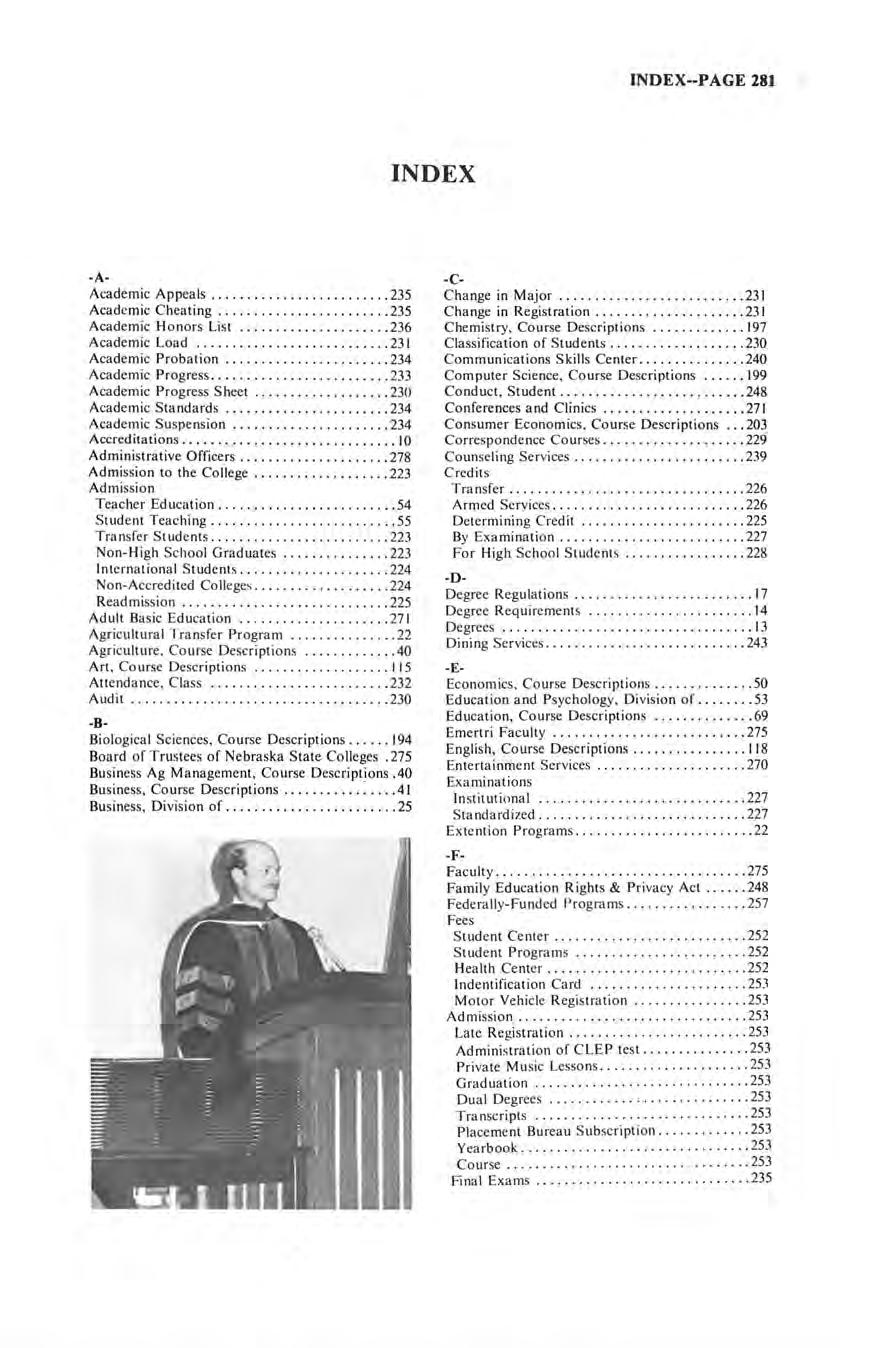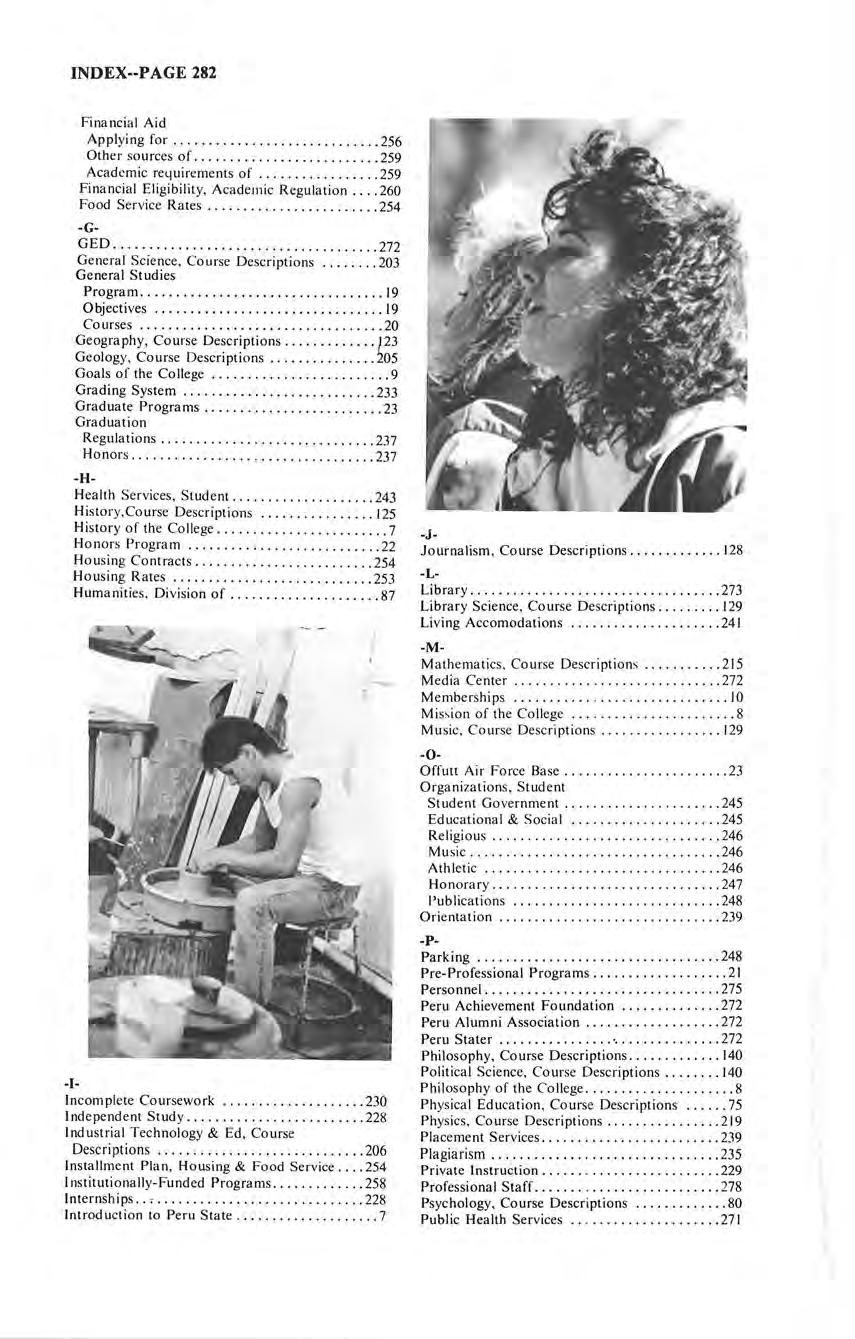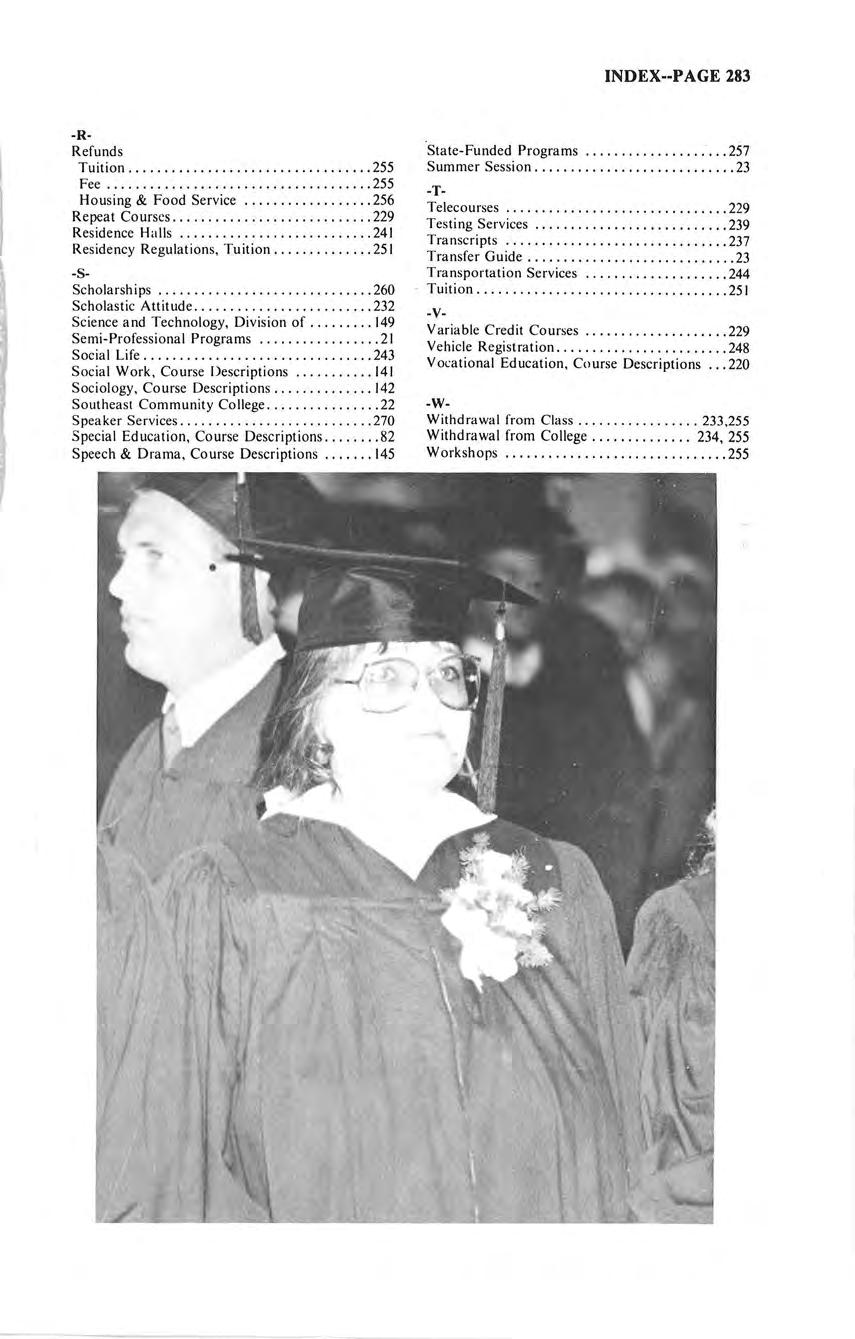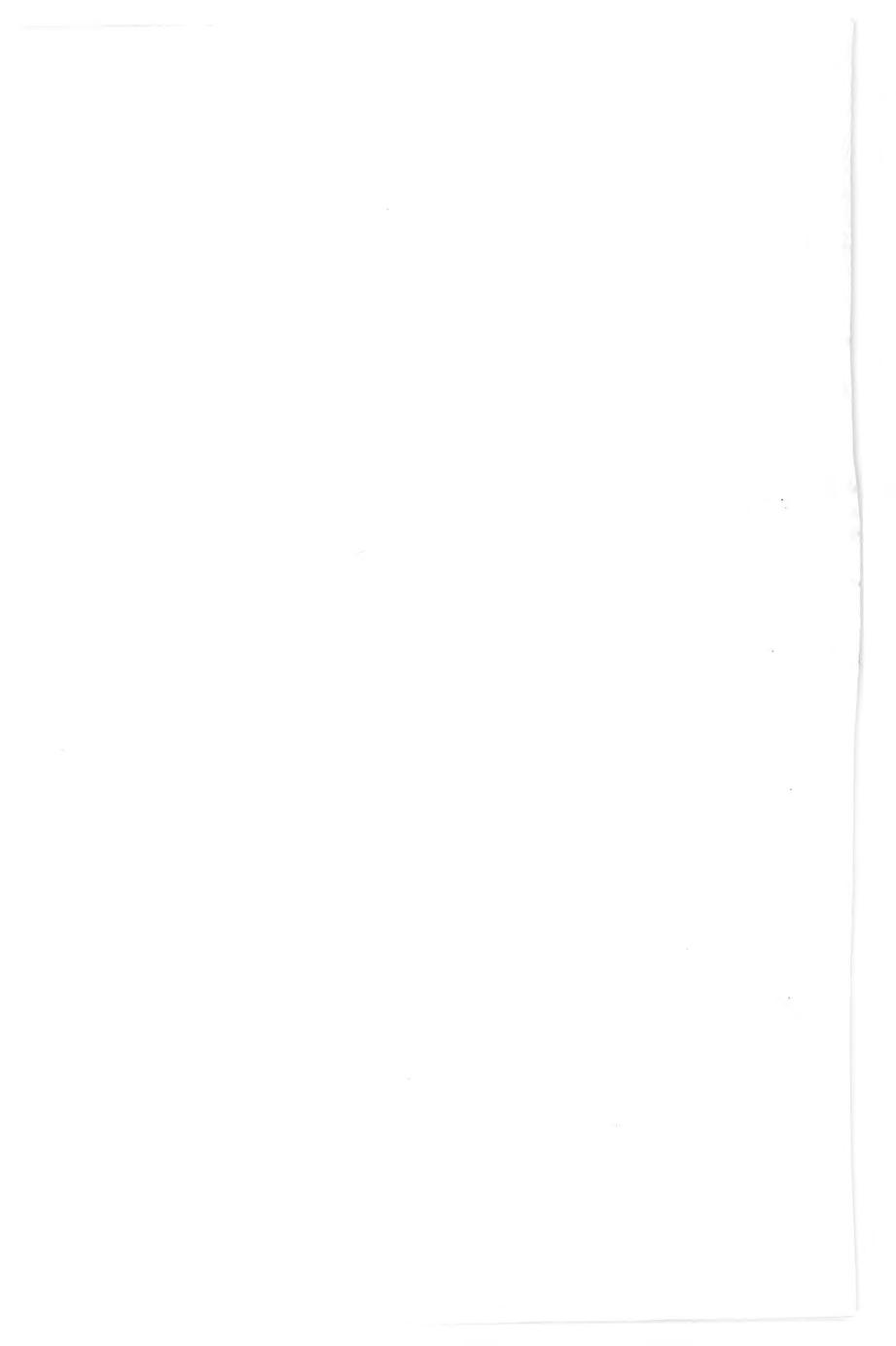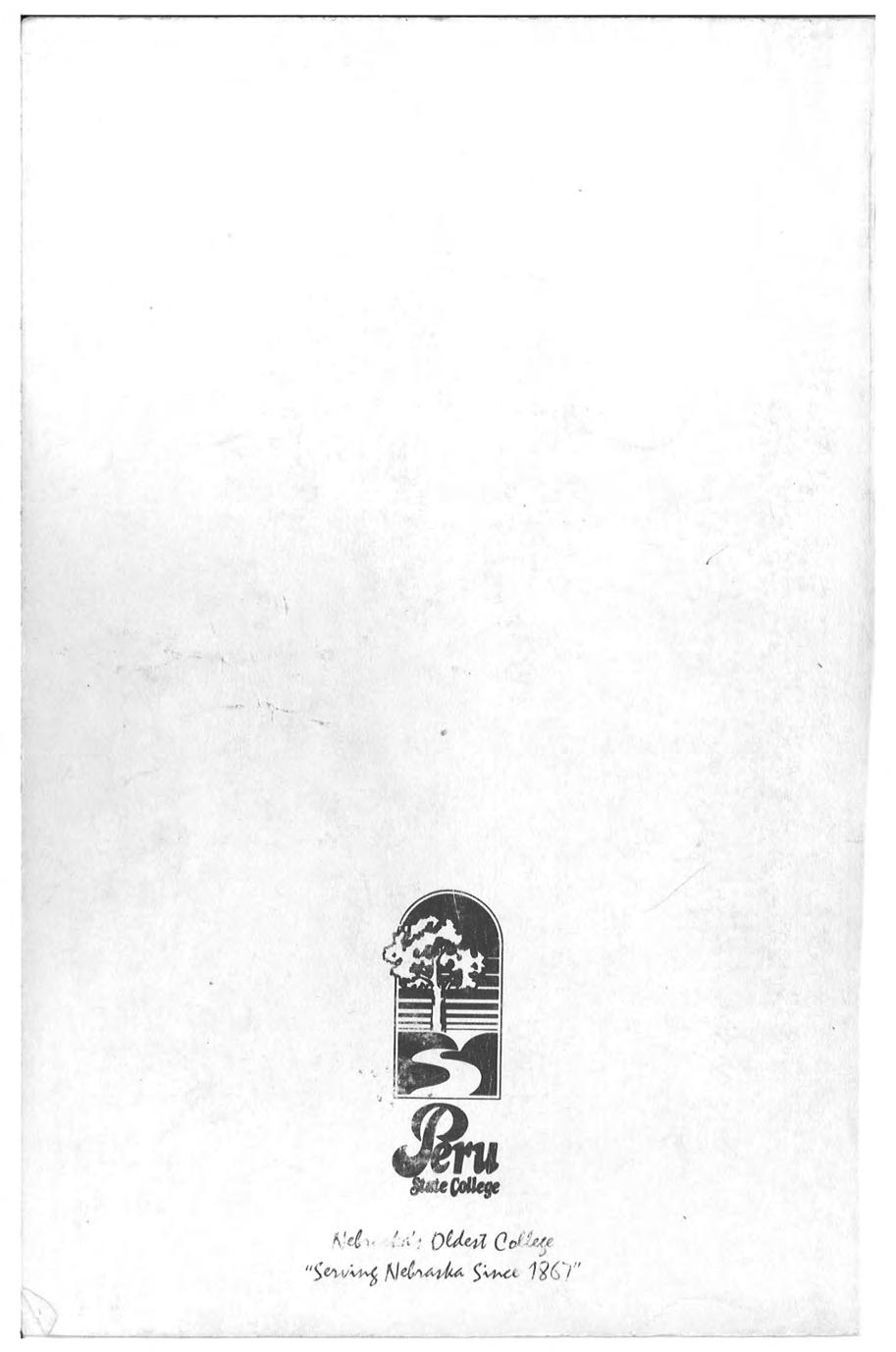




Information about student retention and completion as required by the Higher Education Amendments of 1976 is available from the Dean of Student Affairs.
No person attending Peru State College s hall, on the grounds of race, color, national origin, handicap or sex, be excluded from participation in , be denied of, or be subjected to discrimination under any program or activity receiving federal financial assistance. Inquiries regarding these matters should be directed to the Dean of Administrative Affairs.
This catalog contains official information for the 1988-90 academic years The College reserves the right to repeal, or amend rules, regulations, tuition and fees, and may withdraw, add to or modify courses and programs.
The catalog is published by Peru State College at Peru, Nebraska and enter under Bulk Permit Number 4 at Peru, Nebraska 68421.
The College phone numbers are: (402) 872-3815 (800) . 74i-4412
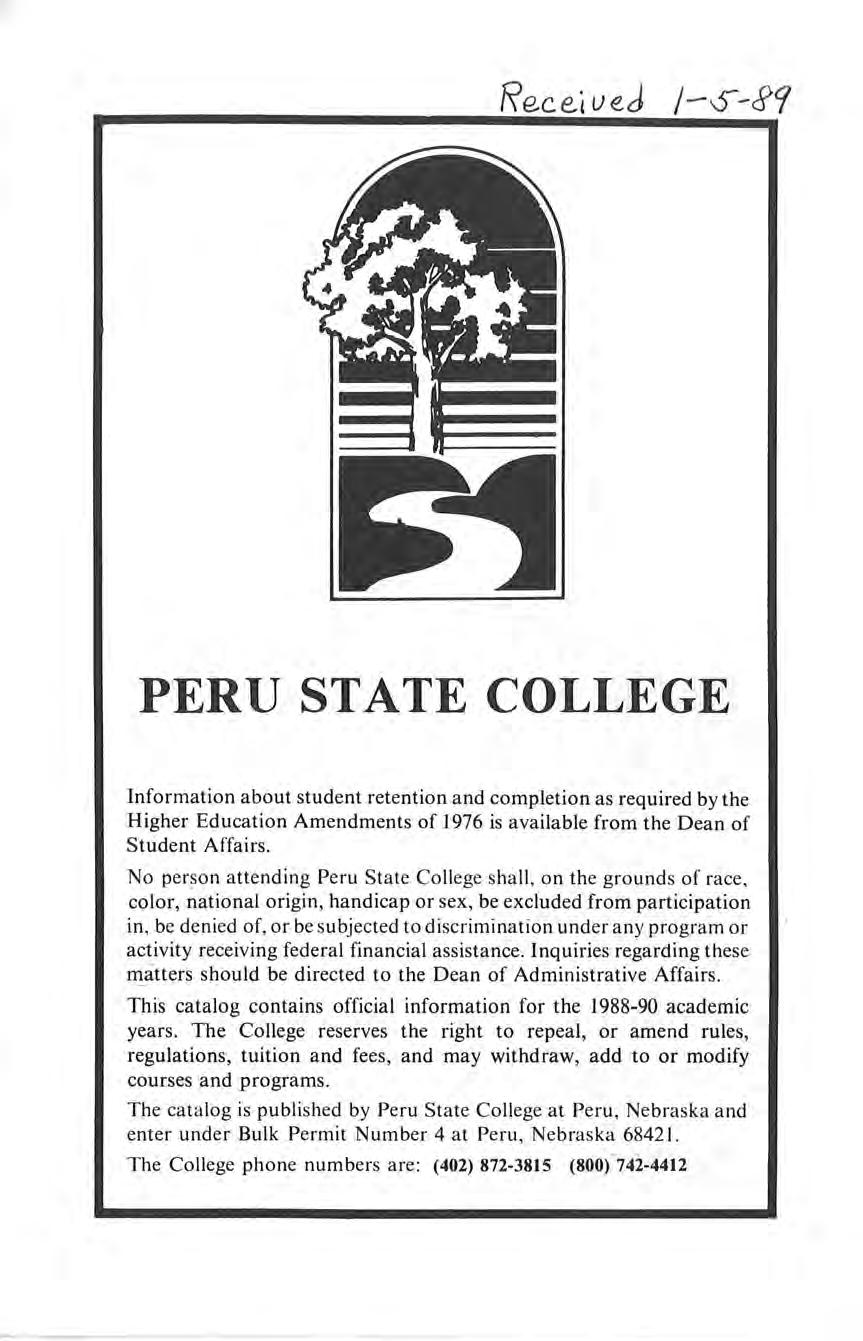
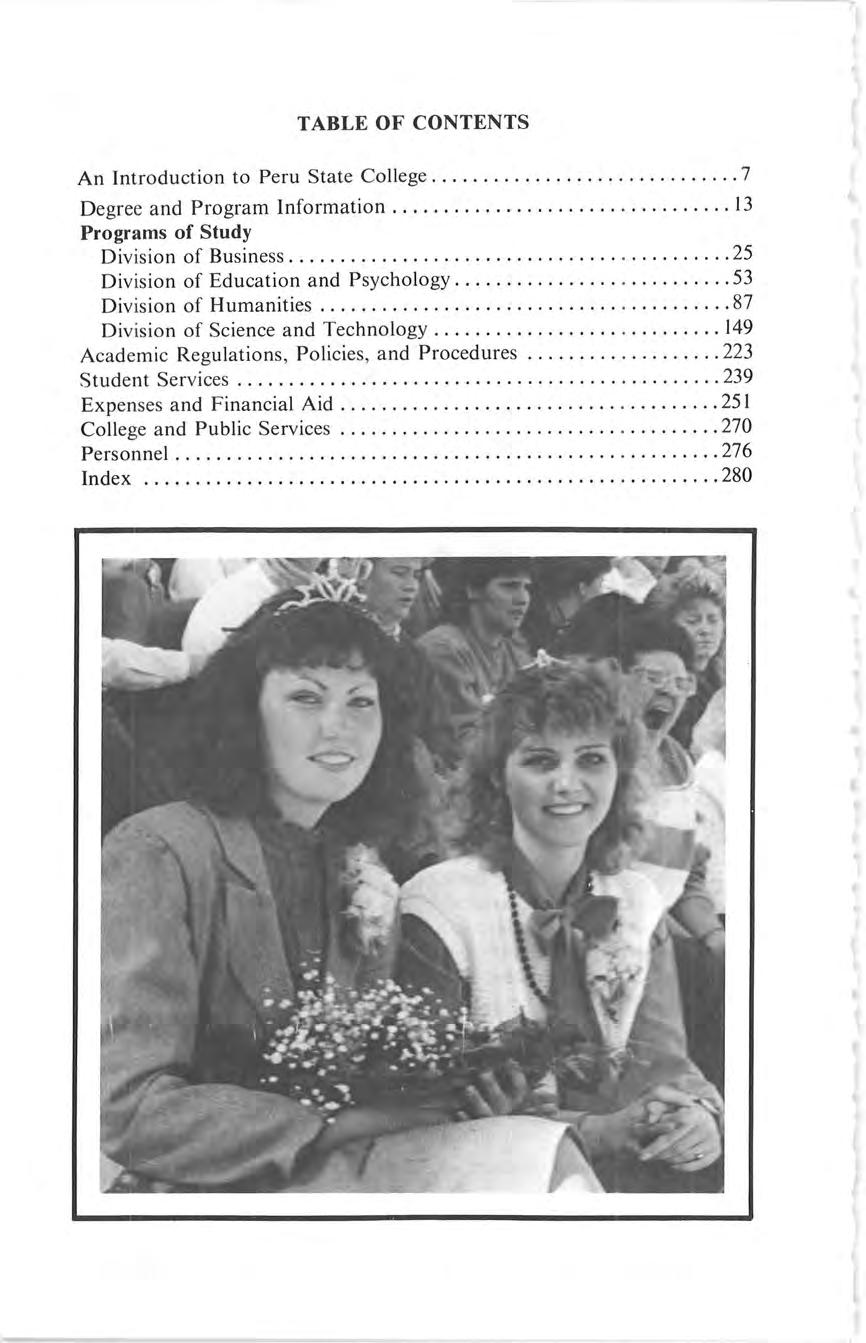
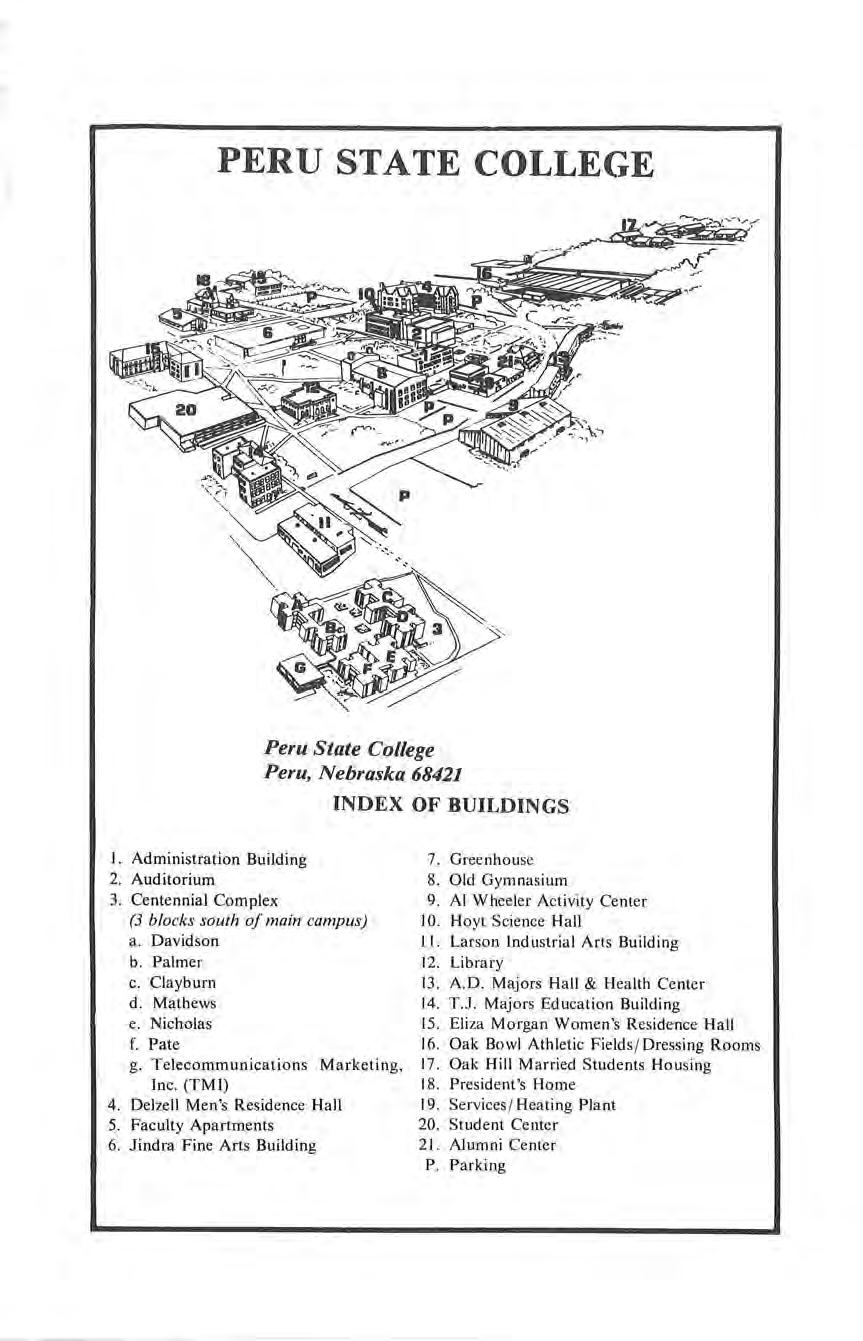
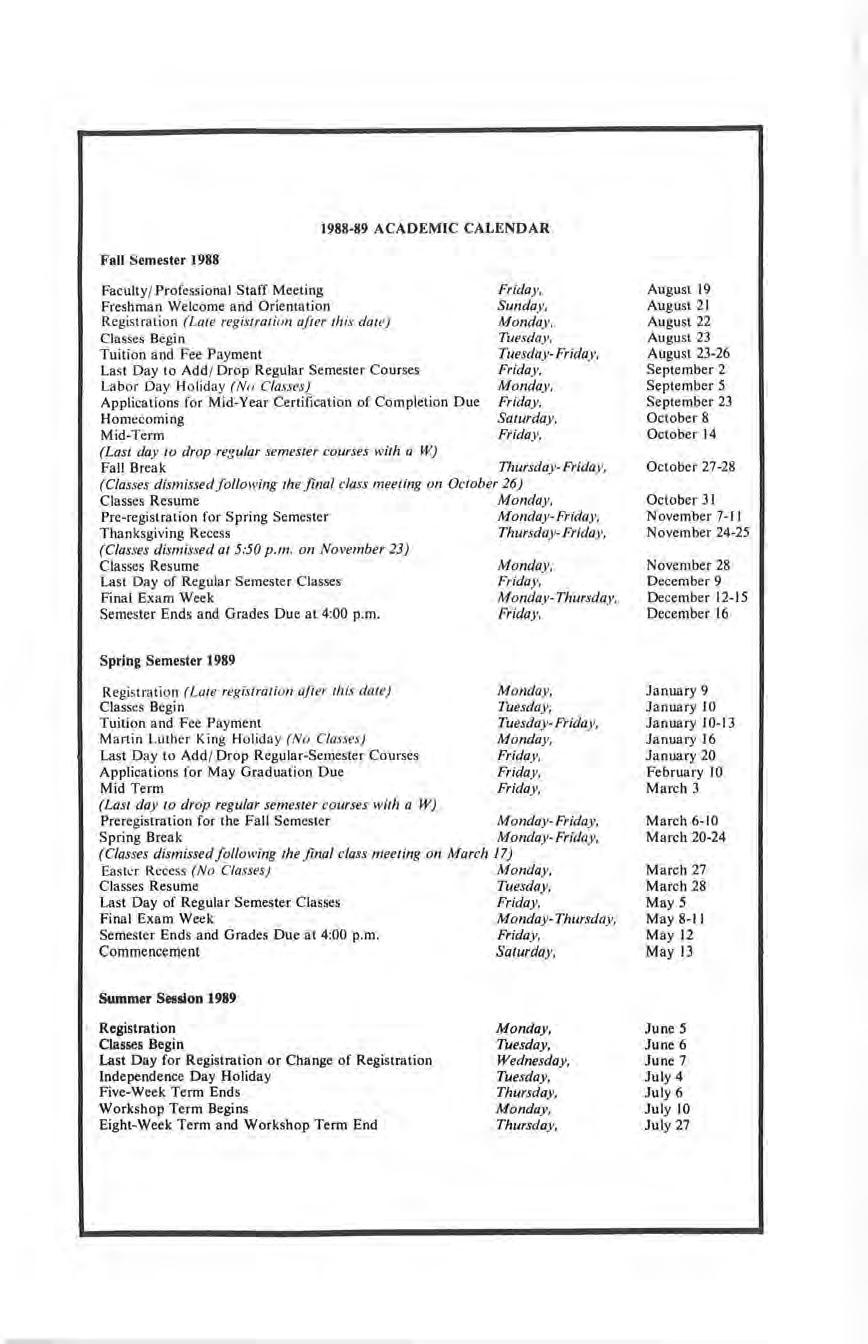
Fa ll Semes te r 1988
Fac ult y/ Profess ional Staff Meeting
Fres hm a n Welcome and Orientation
Registra t ion (La te regis tratio n ajier this date)
Classes Beg in
Tuition and Fee Pay ment
Last Day to Add / Drop R eg ul ar Semester Courses
La b or Day H o lid ay (No Cla sses)_
Applications for Mid-Year Certificat ion of Completion Due
Homecoming
Mid-Term
(Last day to drop regu lar semester co urses wit h a W)
Fall Break
Friday, Sunday, Mo nday, Tuesday, Tuesday-Friday , Friday, Monday , Friday, Saturday , Friday,
Thursday -Friday,
(Clas ses dismissed fo llowing th e final class meeting o n Octobe r 26)
Classes Resume
Pre-registration for Spring Se mes te r
T ha nksg iving Rece ss
(Clas ses dism issed at 5:50 p.m. on November 23)
C lasses Resume
Last Day of Regular Semester C lasses
Final Exam Week
Se mes ter Ends a nd Grades Due a t 4:00 p .m.
Spring Semester 1989
Regi stration (Late regis tration after this date)
Classes Begin
T uition and Fee Payment
Martin Lut her King Holida y (No Classes)
Las t Day t o Add / Drop Re g ular -Semester Courses
Applications fo r May Graduation Due
Mid Te rm
(Last day to drop regular semes ter courses with a W)
Monday,
Monday - Friday,
Thursday-Friday,
Monday, Friday, Monday-Thursday, Frida y,
August 19
Aug ust 2 1
Au g u st 22
August 23
A ugu st 23 -26
Sep te mb er 2
September 5
Sep te mb er 23
October 8
October 14
October 27-28
October 31
November 7-11
November 24 -25
November 28
December 9
December 12-15
D ecember 16
Monda y, Tuesday, Tu esday-Friday, Monday, Friday, Friday, Frida y,
January 9
January IO
January 10-1 3
January 16
January 20
February IO
March 3
Preregistration for the Fall Semes te r
Monday-Friday ,
Monda y -Friday , S pring Break
(Classes dismissed following the final class meeting on March 17)
Eas ter Recess / No -Classes)
Monday,
Classes Re s um e Tuesday ,
Las t Day of Reg ul ar Semester C lasses Frida y , Final Exam Week Monday-Thursday, Semes te r E nd s a nd Grades Du e a t 4:00 p.m. Friday, Commencement Saturday,
Summer Session 1989
1 Registration Classes Begin
Last Day for R egis tration or Change of Regi s tration
Independence D ay Holida y
Five-Week Te rm Ends
Workshop Term Begins
Eight- Week Term and Workshop Term End
Monday , Tuesday, Wednesday, Tuesday , Thursday, Monday, Thursday,
March 6 -10
March 20-24
March 27
March 28
May 5
May8-ll
May 12
May 13
June 5
June 6
June 7
Jul y 4
Jul y 6
July 10
July 27

Fall Semester 1989
Faculty / Profe ss ional Staff Meeting
Freshman Welcome and Orientation
Registrat"ion (Late registration after this dat e)
Classes Begin
Tuition and Fee Payment
Last Day to Add / Drop Regular Semester Courses
Labor Day Holid ay (No Cla sses)
Cl asses Resume
Applicat ion s for Mid-Year Certification of Completion Due
Homecoming
Mid-Term
(Last day to drop regular semester courses with a W)
Frida y , Sunday, Monday, Tuesday, Tuesda y- Friday, Friday, Monday, Tuesday, Frida y, Saturday, Frida y,
August 18
August 20
August 21
August 22
August 22-25
September I
September 4
September 5
September 22
September 30
October 13
Thursda y-Friday, (Clas ses d ismissed following the final class meeting on October 25)
Fall Break
Classes Resume
October 26-27
Monday,
October 30
Monday-Friday, Thanksgiving Recess Thursda y- Friday, (Classes dismi sse d at 5:50 p m on November 22)
Pre-registration for Spring Semester
Classes Resume
Last Day of Regular Semester Classes
Final Exam Week
Semester Ends and Grades Due at 4:00 p.m.
Spring Semester 1990
R eg istration (Late registration after this date)
Classes Begin
Tuition and Fee Payment
Martin Luther King Holida y (No Classes)
Last Day to Add / Drop Regular Semester Courses Applications for May Graduation Due
Mid-Term
(Last day to drop regular semes ter courses with a W)
Monday, Friday, Monday- Thursday , Frida y,
November 6 - 10
November 23-24
November 27
December 8
December 11 - 14
December 15
Monda y, Tuesda y, Tuesday-Friday, Monday , Friday , Friday, Frida y,
January 8
January 9
January 9-12
January 15
January 19
February 9
March 2
Monday-Friday, Sp ring Break
Pre-registration for the Fall Semester
Monday - Friday , (Classes dismissed fol/owing the final class meeting on March 16)
March 5-9
March 19-23
Monda y, Easter Rece ss (No Classes)
Classes Resume
Friday & Monday,
Classes Resume · Tuesda y , Last Day of Regular Semester Classes
Friday, Final Exam Week
Monday-Thursday, Semester Ends and Grades Due at 4:00 p.m
Friday, Commencement ·
Saturday,
March 26
April 13 & 16
April 17
May 4
May 7-10
May II
May 12
Summer Session 1990
Regi stration
Classes Begin
Last Day of Registration or Change of Registration
Independence Day Holiday
Five-Week Term Ends Workshop Term Begins
Eight-Week Term and Workshop Term End
Monday , Tuesday, Wednesda y , Wednesday, Thursday, Monday, Thursday,
June 4
June 5
June 6
July 4
July 5
July 9
July 26
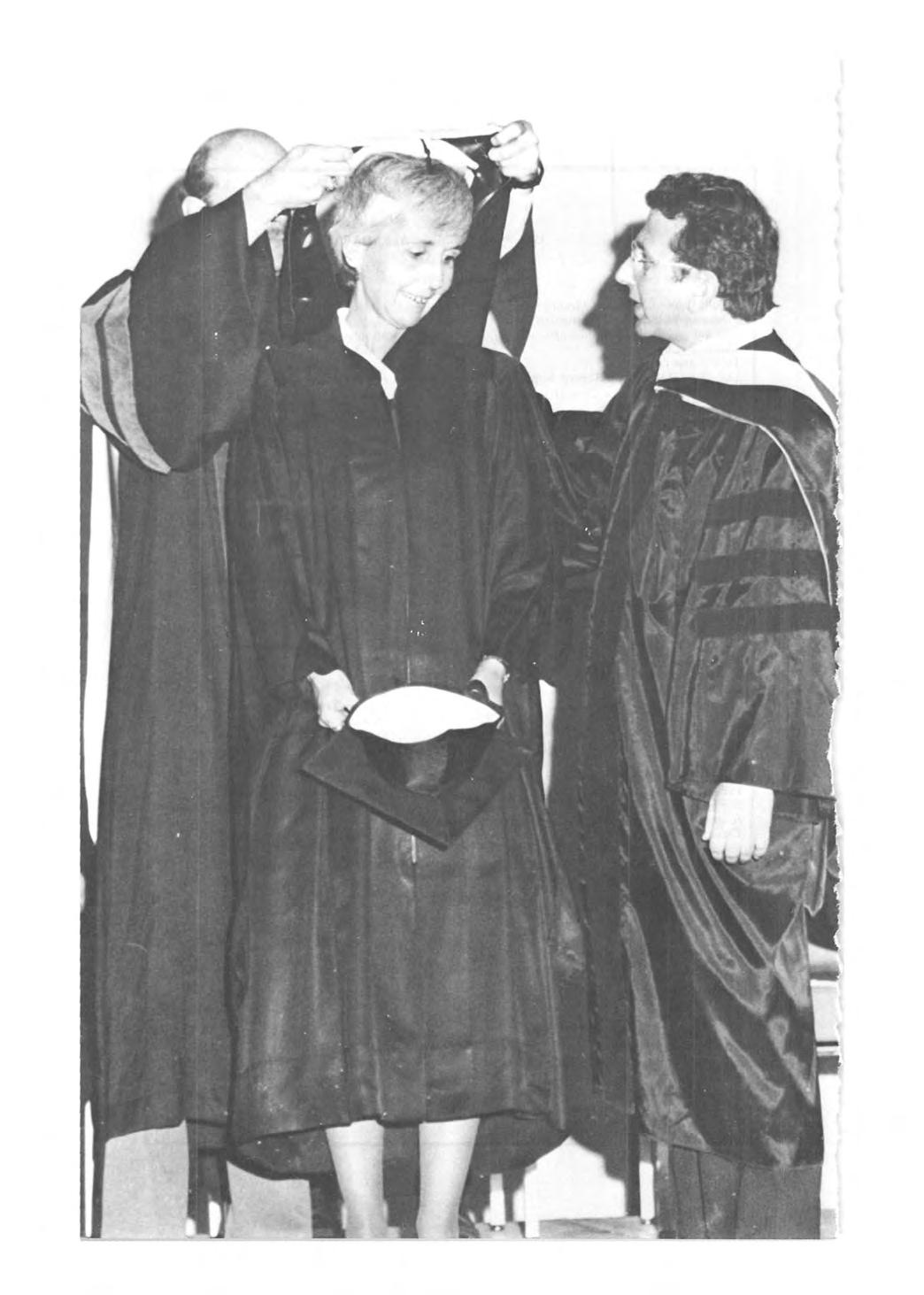
Peru State College was founded in 1867 as Nebraska's first college and was the third teacher education institution established west of the Missouri River. For more than a century, thousands of young people have crossed the Campus of a Thousand Oaks to become teachers and leaders in Nebraska and throughout the nation.
The people of Nebraska have made the facilities of the College available to students at a minimum of personal cost. The taxpayers of the state bear the major portion of the cost of educating the College 's students.
Peru State admits all graduates of accredited Nebraska high schools and qualified out-of-state students. The phiosophy of the College is that each person is entitled to the opportunity to succeed at the collegiate level. All who have the ability and the willingness to work will have an excellent chance to succeed at Peru State.
The College believes in academic excellence, in opportunities for personal growth, and in student self-determination consistent with the principles of a democratic society . Administrative intent is to involve students in the decisions which affect them The College's educational experience is designed to enable students to learn, to equip themselves for meaningful careers, and to be productive members of society. Peru State students have the opportunity to know their instructors well and to be working partners with the staff and other students . Living and working with other people offers many opportunities for friendship, growth, and personal development.
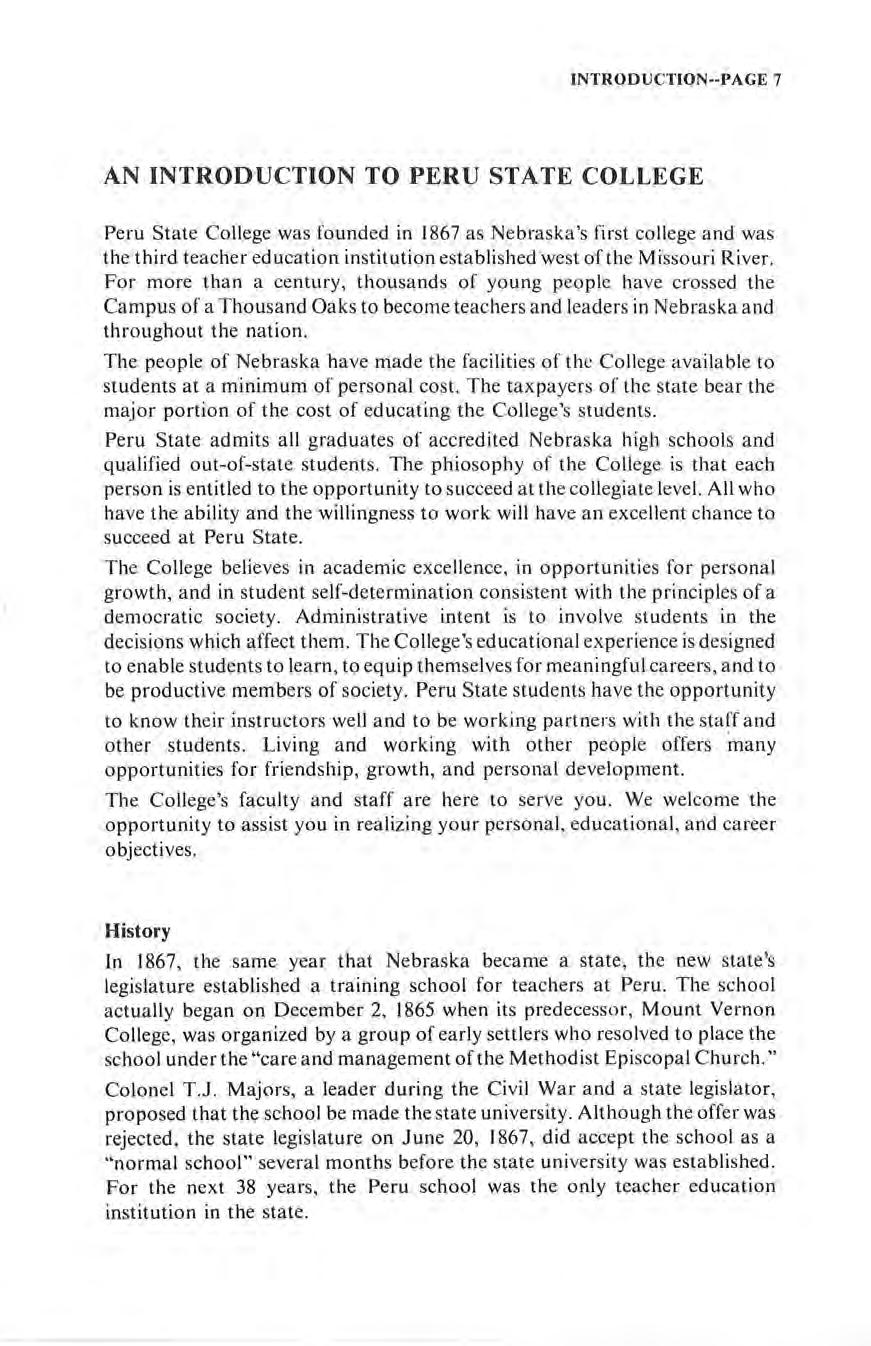
The College's faculty and staff are here to serve you. We welcome the opportunity to assist you in realizing your personal, educational, and career objectives.
In 1867, the same year that Nebraska became a state, the new state's legislature established a training school for teachers at Peru. The school actually began on December 2, 1865 when its predecessor, Mount Vernon College, was organized by a group of early settlers who resolved to place the school under the "care and management of the Methodist Episcopal Church."
Colonel T.J. Majors, a leader during the Civil War and a state legislator, proposed that the school be made the state university. Although the offer was rejected, the state legislature on June 20, 186 7, did accept the school as a "normal school" several months before the state university was established. For the next 38 years, the Peru school was the only teacher education institution in the state
As Nebraska's population increased , the legislature extended th e normal schools from two-year to four-year and authorized them to grant the d egrees of Bachelor of Arts in Education , Bachelor of Science in Education, and Bachelor of Fine Arts in Education. At the same time , the names of the schools were changed from State Normal Schools to State Teachers Colleges. In 1963 , Peru's name was changed to Peru State College.
When the United States entered World War II , the College trained officers for the armed forces. The first unit of men in the Navy's V-12 pro gra m arrive on campus July 1, I 943. During the tim e the n ear ly 500 trainees receive d th e ir training , the College operated an accelerated program for both civilian students and naval trainees. Since then , many of the trainees have us e d the hours of college credit they earned to complete their degrees at Peru State or other institutions of higher learning throughout the nation.
In 1949, the legislature authorized the Nebraska State Colleges to confer the Bachelor of Arts degree. The Bachelor of Science degr ee was authorized in 1965. Emerging from its role as a single-purpose teachers college , the College is now a regional state college offering a wide variety of programs to meet the changing needs of southeast Nebraska and beyond.
Peru State College is committed to the belief that all persons are endowed with potential which, if developed , will benefit both the individual and society . Each person, who is exposed to the influences of the College, is encouraged to develop his or her potential as well as under s tand and appreciate the contributions of others.
Individual development can be accomplished through formal study and exposure to a variety of experiences both on and off campus. It is the result of the reasonable mastery of knowledge , aquisition of certain skills and techniques, appreciation and understanding of areas beyond narrow personal intere s t s, and meaningful religious and social experiences.
Peru State College is a multi -p urpose , state-assisted, regional institution offering a variety of educational opportunities to the students of Nebraska and the nation. Founded in 1867 as Peru Normal School, the College is accredited by the North Central Association of Colleges and Schools and the National Council for Accreditation of Teacher Education
Peru Sta te is committed to providing high quality instruction , personalized attention, and a supportive learning environment for s tudents of diverse abilities. Its principal baccalaureate programs in teacher education, business, and the liberal arts and -sciences are complemented by numerous preprofe ss ional , occupational, and continuing education programs. A Masters

degree in Educat ion emphasizing the innovative instructional technologies avai labl e to non-urban teachers is a lso offered .
T he Co lle ge believes in a strong, co herent genera l educat ion program designed to ensure that its graduates I) can write, speak , and comp ut e effective ly, 2) are computer lit erate, 3) can think crit ically and independently, 4) are open to and have the capacity for c h ange, 5) are prepared to assume their socia l and civic roles as leaders in an increasingly interdependent world. and 6) are eq uipp ed to pursue lives that are intellectually, ethica lly , aesthetically, and physically rewarding.
Students are encouraged to participate in a balanced program of cocurricu lar activities. These group or individual act ivities includ e cultural, soc ial, and physical pursuits which augment or suppo rt the instructional program , susta in tradition, and st r engt hen the col lege commun it y
' The Co ll ege is committed to continuing and enhancing it s role as a center for regional development. Through its cultura l, educationa l, research a nd public service efforts, Peru State assists other institutions and agencies in community and economic development for the benefit of al l.
In order to fulfill its mission , Peru State has established the following goa ls:
* To increase the quality and diversity of programs to persons of differing aptitudes , interests, and needs.
* To int ensify it's milieu of academic exce llen ce
* To enhance the intellectual cooperation between the liberal and applied arts.
* To promote the inv olvement of both students and faculty m experimenta l and creative research.
* To strive to be a more effective public service institution.
* To offer continuing and occupational education for personal and career enrichment.
* To explore new and creative educationa l opportunities for students .
* To serve as a transitional educational in st itution for students pursuing various occupational or professional objectives.
* To prepare students to be contributing members of a democratic society.
* To enhance student development outside th e c la ssroom.
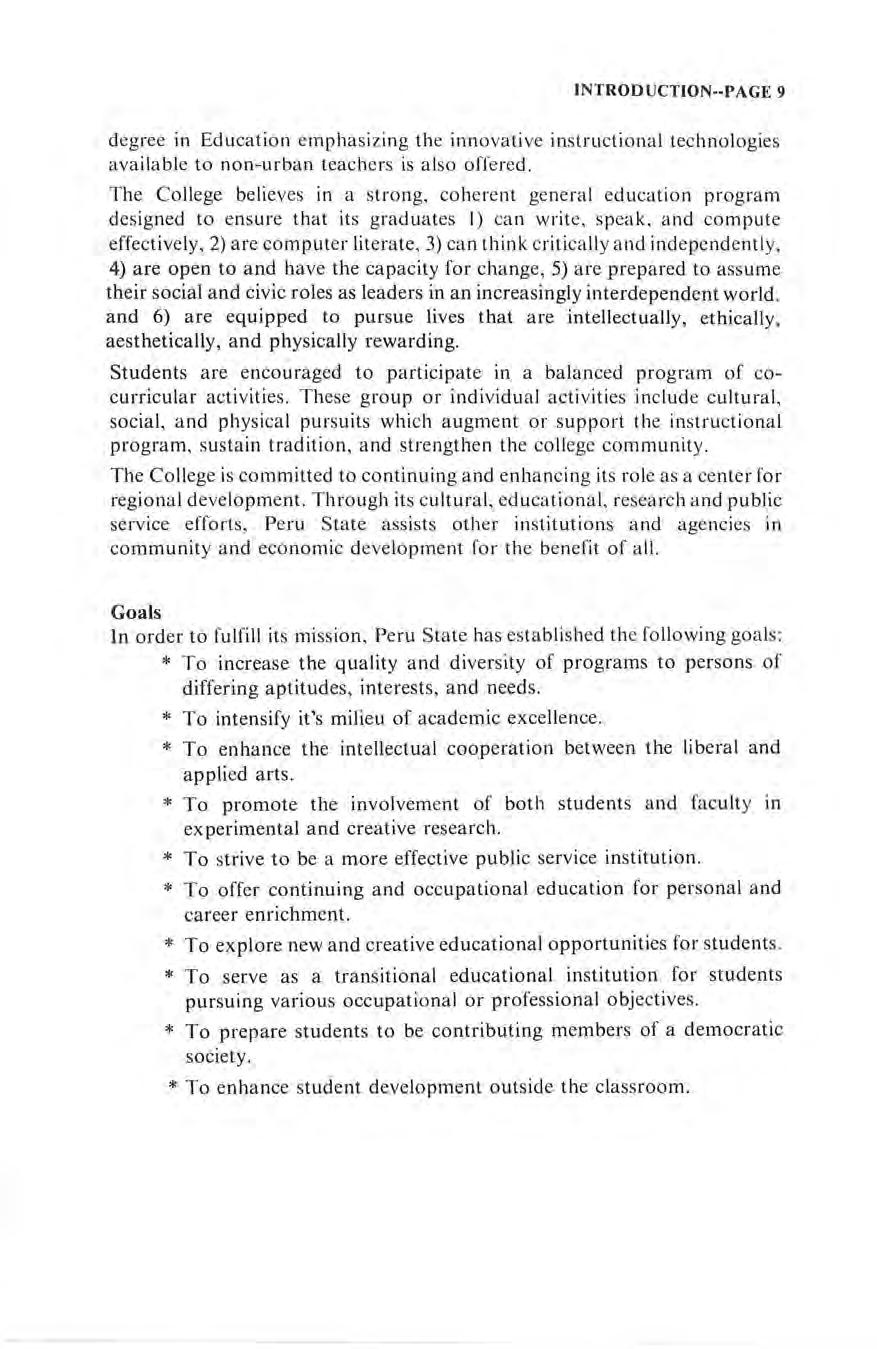
Peru Sta t e Co ll ege is accredited b y the Co mmis s io n on Institutions of th e Nort h Ce ntral Association of Co ll eges a nd Sc hool s a nd b y th e Nat io na l Co un c il for Accre dit atio n of Teac he r Ed u ca tion Fu ll membership is m a int a in e d in the American Association of Co lleg es for Teacher Edu cat ion and the Amer ica n Co un c il on Ed ucation . The Co ll ege also is a charter member of th e Ne bra ska Co uncil on Teac her Edu ca tion
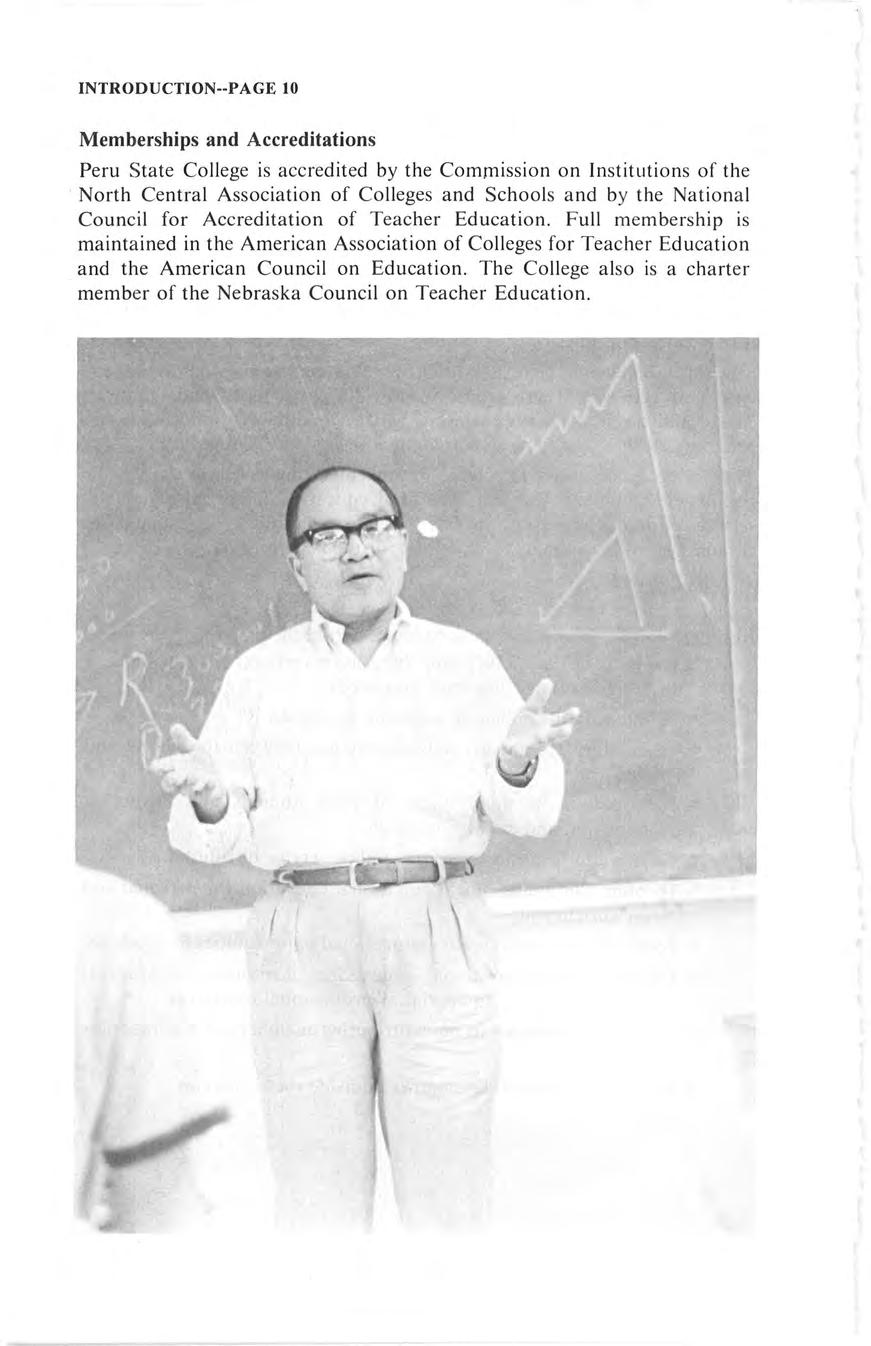

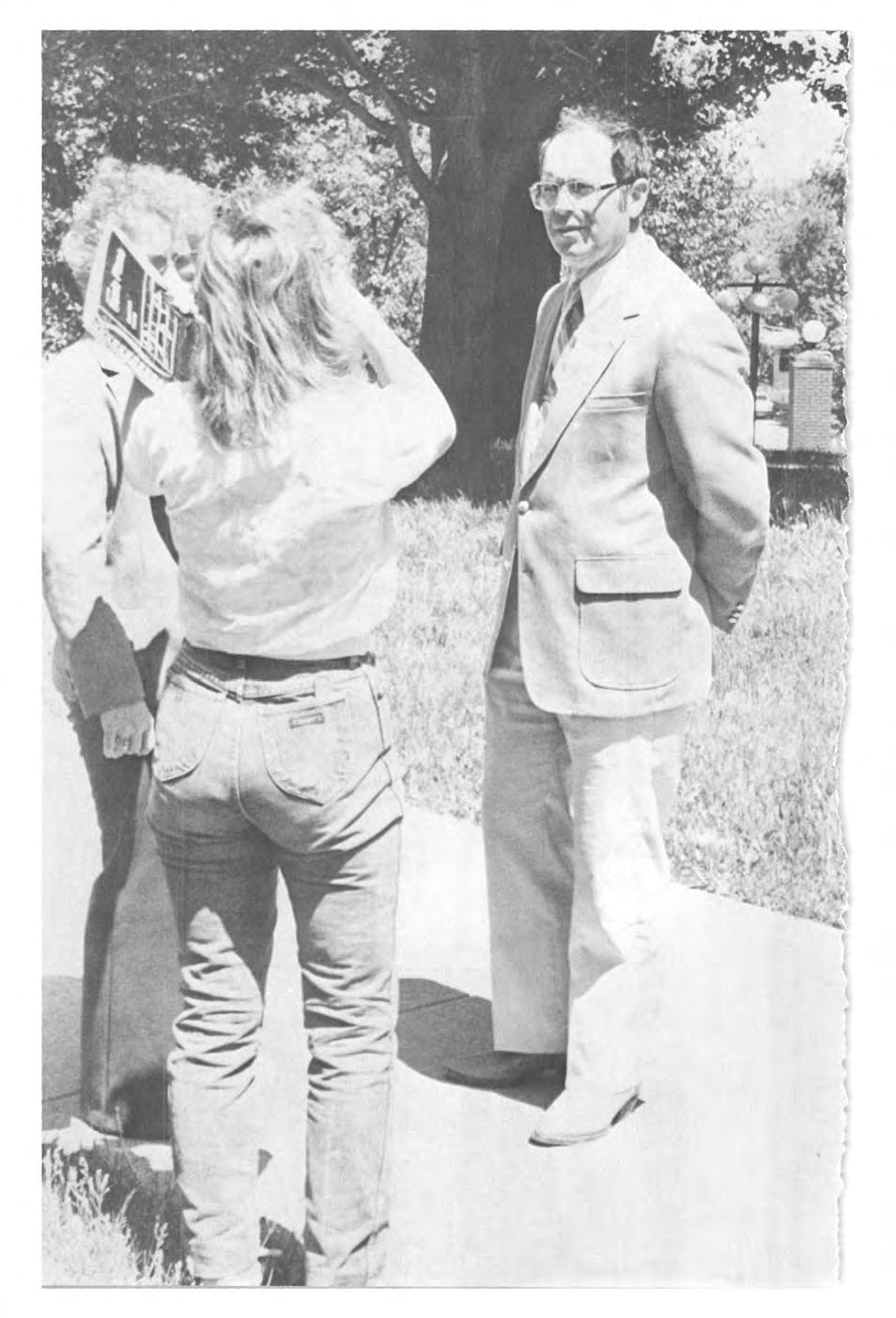
Peru_ State College is supported by the State of Nebraska for the purpose of meet~ng the post-secondary educational needs of its citizens. The College is a multi-purpose, re gional institution offering a variety of programs in teacher educ~t,on,_ th e liberal arts and sciences, and se lected occupations th a t culminate m several degree options. The College also provides instructional programs at extension s ites throughout southeast Nebraska .
The programs offered by the College include four-year professional curricula in elementary and secondary education, a four-year liberal arts program , a flexible bachelor of science program , and a number of pre-professional curricula.
Each program at the College consists of general studies courses and specialized courses . The general studies courses are important to effective living for all persons regardless of their vocations. The specialized courses prepare an individual for a specific occupation, or satisfy a particular avocational or cultural intere s t.
Upon enrolling, students select a program and degree objective which ' determines their curriculum and academic advisor.
This choice may be tentative and changed later. Students who desire special assistance in selecting a program may request counseling from their academic advisor or the Director of Career Planning and Placement.
Peru State College is authorized by law and the rule s of the Board of Trustees of the Nebraska State Colleges to issue the following degrees:

Bachelor of Arts in Education (B.A. in Educ.)
This degree is awarded to candidates whose field of concentration is Art, Social Science, or Language Arts.
Bachelor of Fine Arts in Education (B.F.A. in Educ.)
This degree is awarded to candidates whose field of concentration is Music.
Bachelor of Science in Education (B.S. in Educ.)
This degree is awarded to candidates whose field of concentration is Physical Education, Industrial Arts, Mathematics and Science, Elementary Education, or Business Education.
Bachelor of Arts (B.A.)
This degree is awarded to candidates without regard to the field of concentration or the professional teacher education requirements.
Bachelor of Science (B.S.)
This degree is awarded to candidates without regard to the field of concentration or the professional teacher education requirements.
Bachelor of Technology (B. T)
This degree is awarded to candidates who transfer from other institutions after completing a prescribed two-year technical program.
Associate of Arts (A.A.)
This degree is awarded to candidates who complete a two year program in Early Childhood Education.
Degree Requirements for Bachelor of Arts in Education, Bachelor of Fine Arts in Education, Bachelor of Science in Education, Bachelor of Arts, Bachelor of Science.
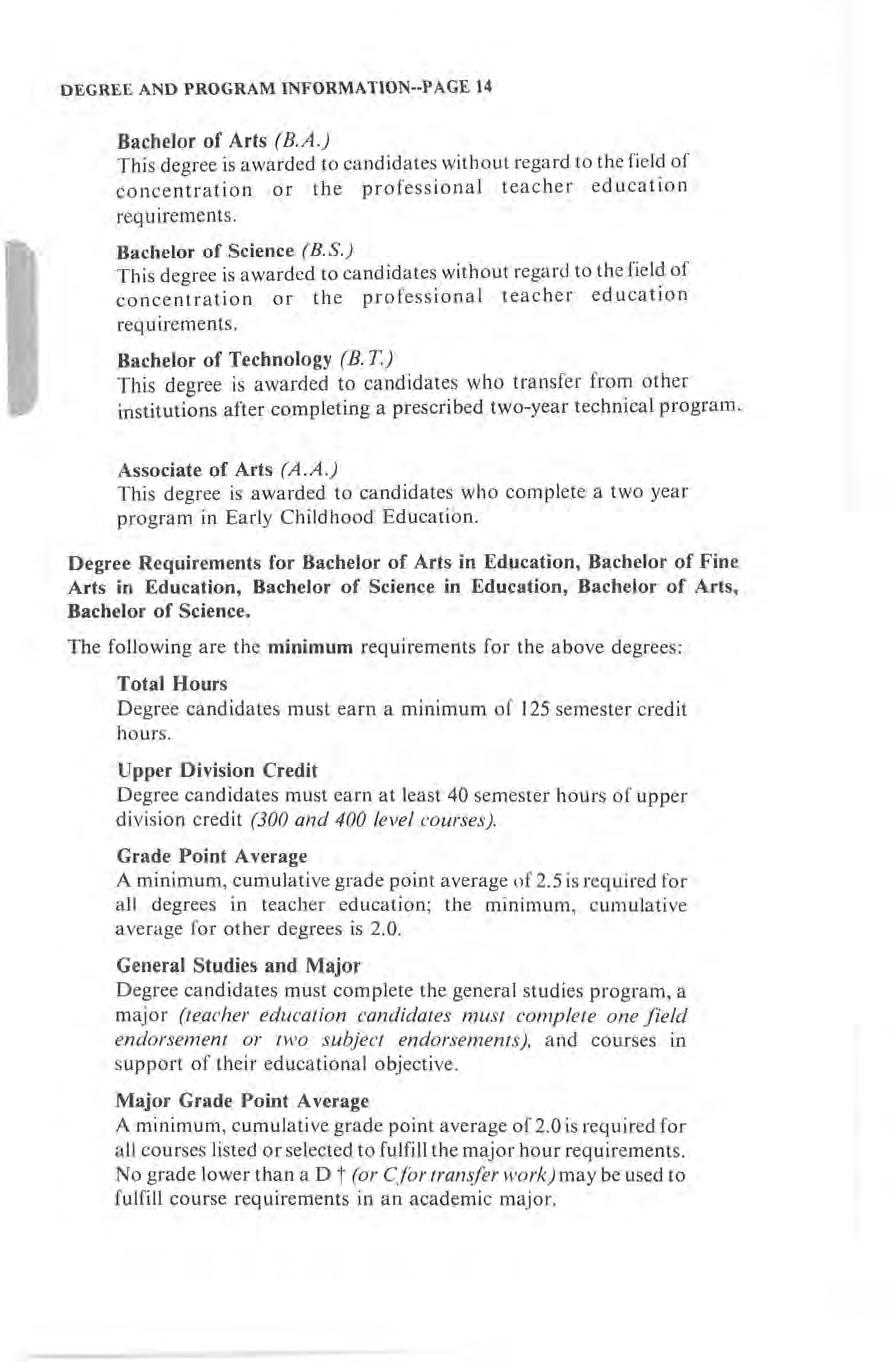
The following are the minimum requirements for the above degrees:
Total Hours
Degree candidates must earn a minimum of 125 semester credit hours.
Upper Division Credit
Degree candidates must earn at least 40 semester hours of upper division credit (300 and 400 level courses).
Grade Point Average
A minimum, cumulative grade point average of 2.5 is required for all degrees in teacher education; the minimum , cumulative average for other degrees is 2.0.
General Studies and Major
Degree candidates must complete the general studies program, a major (teacher education candidates must complete one field endorsement or two subject endorsements), and courses in support of their educational objective.
Major Grade Point Average
A minimum , cumulative grade point average of 2 0 is required for all courses listed or selected to fulfill the major hour requirements. No grade lower than a D t (or Cfor transfer work) may be used to fulfill course requirements in an academic major.
A minimum of 30 semester hours must be earned from Peru State College.
A minimum of 24 of the last 30 semester hours must be earned in residence. This requirement may be waived by the Academic Affairs Commission in cases where any of the required resident credit is earned at another Nebraska state college or where official cooperative agreements with other institutions exist.
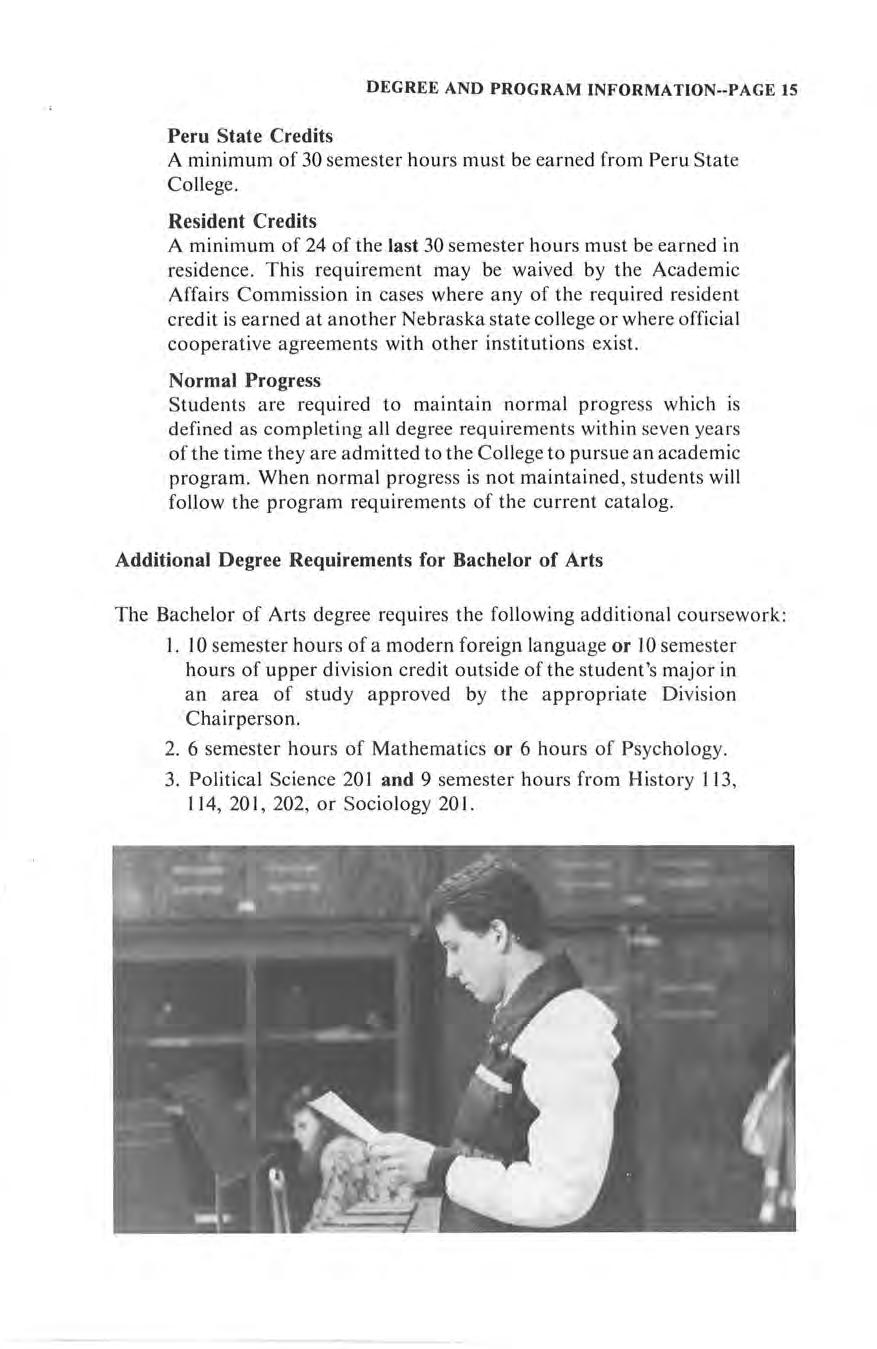
Students are required to maintain normal progress which is defined as completing all degree requirements within seven years of the time they are admitted to the College to pursue an academic program. When normal progress is not maintained, students will follow the program requirements of the current catalog.
The Bachelor of Arts degree requires the following additional coursework:
I . IO semester hours of a modern foreign language or IO semester hours of upper division credit outside of the student's major in an area of study approved by the appropriate Division ·Chairperson.
2. 6 semester hours of Mathematics or 6 hours of Psychology.
3. Political Science 201 and 9 semester hours from History 113, 114, 20 I, 202 , or Sociology 20 I.
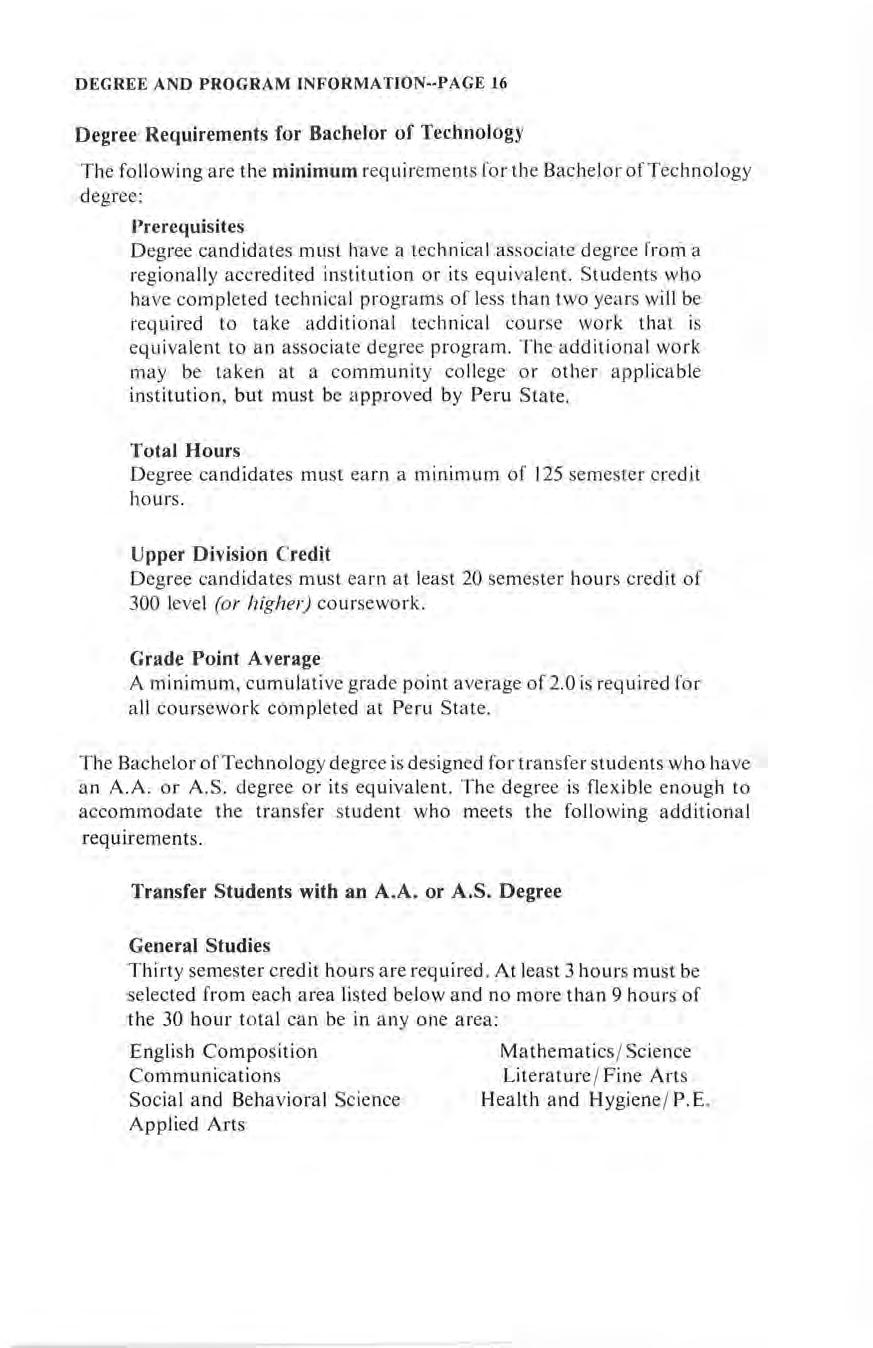
The following are the minimum requ ir ements for the Bachelor of Technology degree :
Degree candidates must have a technical associate degree from a regionally accred it ed institution or its equiva lent. Students who have completed technical programs of less than two years wi ll be required to take additiona l technical course work that is equivalent to an associate degree program. The additiona l work may be taken at a community college or other app li cab le institution , but must be approved by Peru State.
Degree candidates must earn a minimum of 125 semester credit hours
Degree candidates must earn at least 20 semester hou rs credit of 300 level (or higher) coursework.
A minimum, cumulative grade point average of 2.0 is required for all coursework comp let ed at Peru State .
The Bachelor of Techno lo gy degree is designed for transfer students who have an A.A. or A.S. degree or its equ ivalent. The degree is flexible enough to accommodate the transfer student who meets the following add itiona l requirements.
Transfer Students with an A.A. or A.S. Degree
Thirty semester credit hour s are required. At least 3 hou rs must be se lected from each area listed below and no more than 9 hours of the 30 hour total can be in any one area:
Eng li s h Composition
Communications
Social and Behavioral Science
App li ed Arts
Mathematics / Sc ience
Literature / Fine Arts
Health and Hygiene / P.E.
A minimum of 30 semester credit hour s in an emphasis is required with a minimum, cumulative grade point average of2.0. No grade lower than a D + (C for transfer work) may be used to fulfill requirements within the area.
Sixty-s ix semester hour credits from the A A. or A.S degree is the maximum applicable toward the 125 hours required for the Bachelor of Tec hnology degree.
Add ition a l hours are selected from genera l studies courses beyond the required 30 semester hours, courses supportive of the technical or complementary emphasis, or others in consu lt ation with an advisor.
In addition to the above degree requirements, the following regulations apply to Peru State bachelor degrees:
The semester credit hour s awarded through the College's approved procedures for determining extra-institutiona l learning are cons id ered transfer credits. Unless otherwise specified, a maximum of 66 transfer credits, awarded either individually or collectively , may be applied toward the 125 credit hour minimum required for a bachelor's degree .
No more than one-eighth of the total credits required for a degree may be sat isfied through correspondence courses, and no more than one-fourth of the total may be correspondence and extension cred it s Extension or off-campus courses conducted by Peru State are considered resident cred it s .
Pre-professional students, who have successfu ll y comp leted three years in a specifica lly approved program , may transfer to an accredited professional school during their fourth year and qualify for a bachelor's degree provided they meet all other graduation requirements.
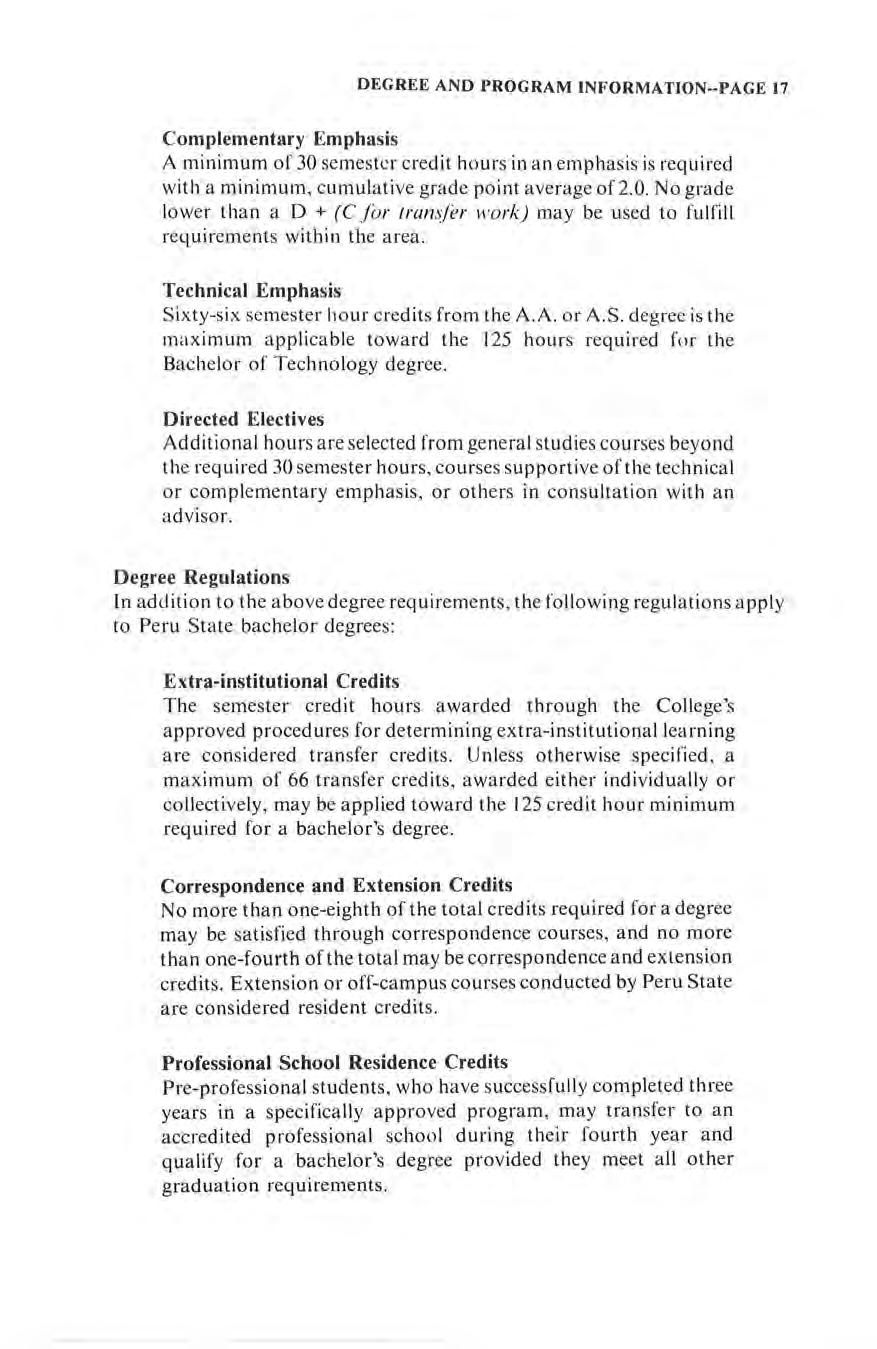
A maximum of 4 credit hour s of P.E. 190 - Varsity Sports is allowed toward a degree
A maximum of 2 credit hours of Study Skills (Eng lish 90) 1s allowed toward a degree.
\\ \VU, aximum of 6 hours of Independent Study is allowed toward a ,'o' A ree.
J.--. 1?-lcl/\ .sh.·, p 8.. \A...S \ Y\ Q,..C r (\~ {,\- ""'1-Y offJ.j~ Iv-', c,.llowe-,l+tWi\,l;'di (X.,de-n-e,e.- v
p 1catlon for Degree " -
Degree candidates, upon enrolling for their final coursework , complete a degree application through the Registrar's Office. The application must be completed within the first five weeks of the semester or within the fir s t two weeks of the first summer term . Students are expected to have completed all degree requirements on or before the planned date of graduation .
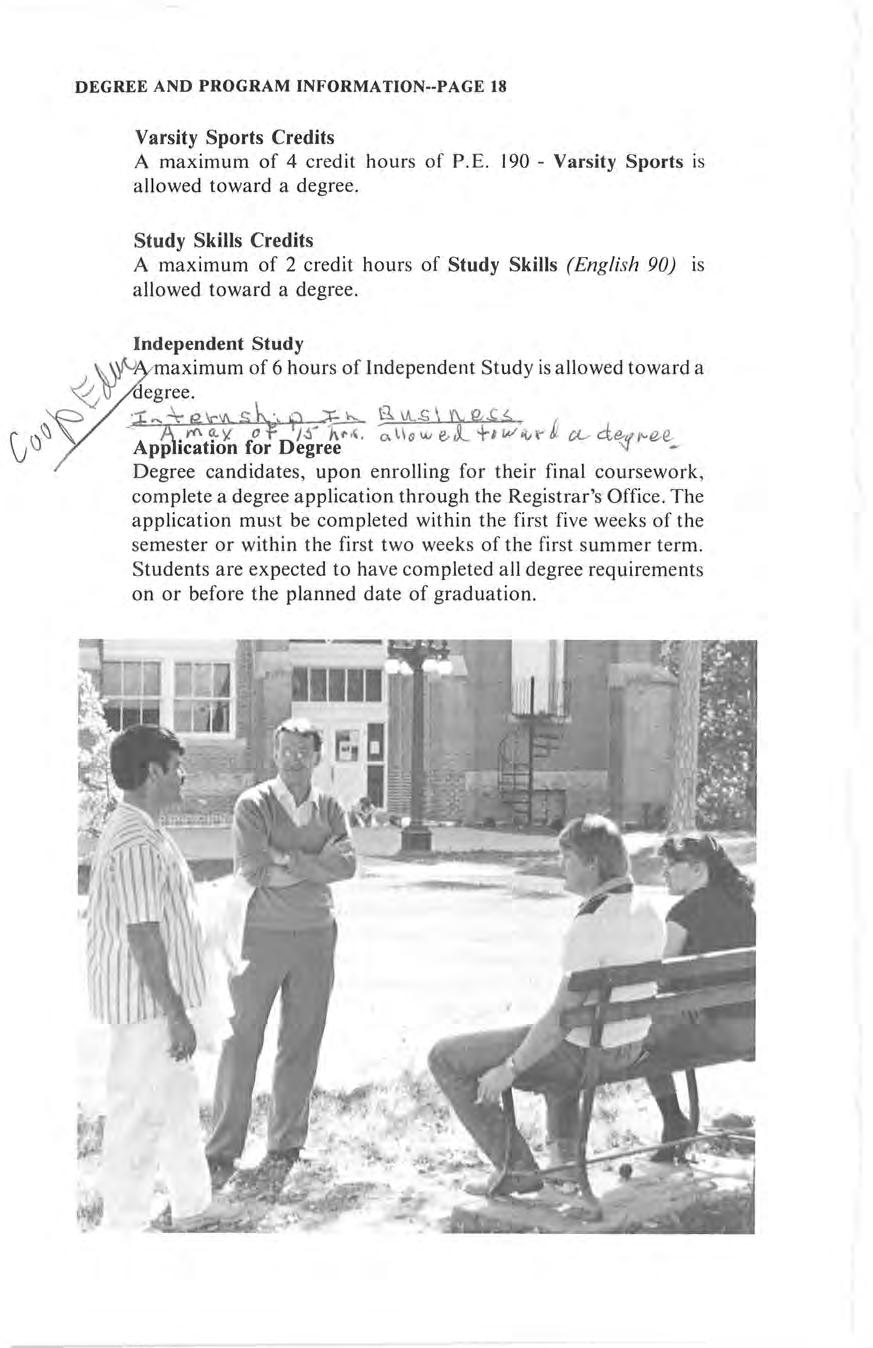
The purpose of the general studies program at Peru State is to provide students with the concepts, understanding , skills, and values necessary for living purposefully in modern society. The coursework emphasizes the relationships and unity of ideas from several disciplines and is selected for its usefulness in helping to solve common problems in both an individual and soc ial context. To establish the unity of knowledge and experience, general studies courses share the common goals of promoting a spirit of inquiry, relating knowledge from various fields, and encouraging continued liberal learning. Prescribed courses are held to a minimum to encourage students to select those courses most appropriate to their educational needs .
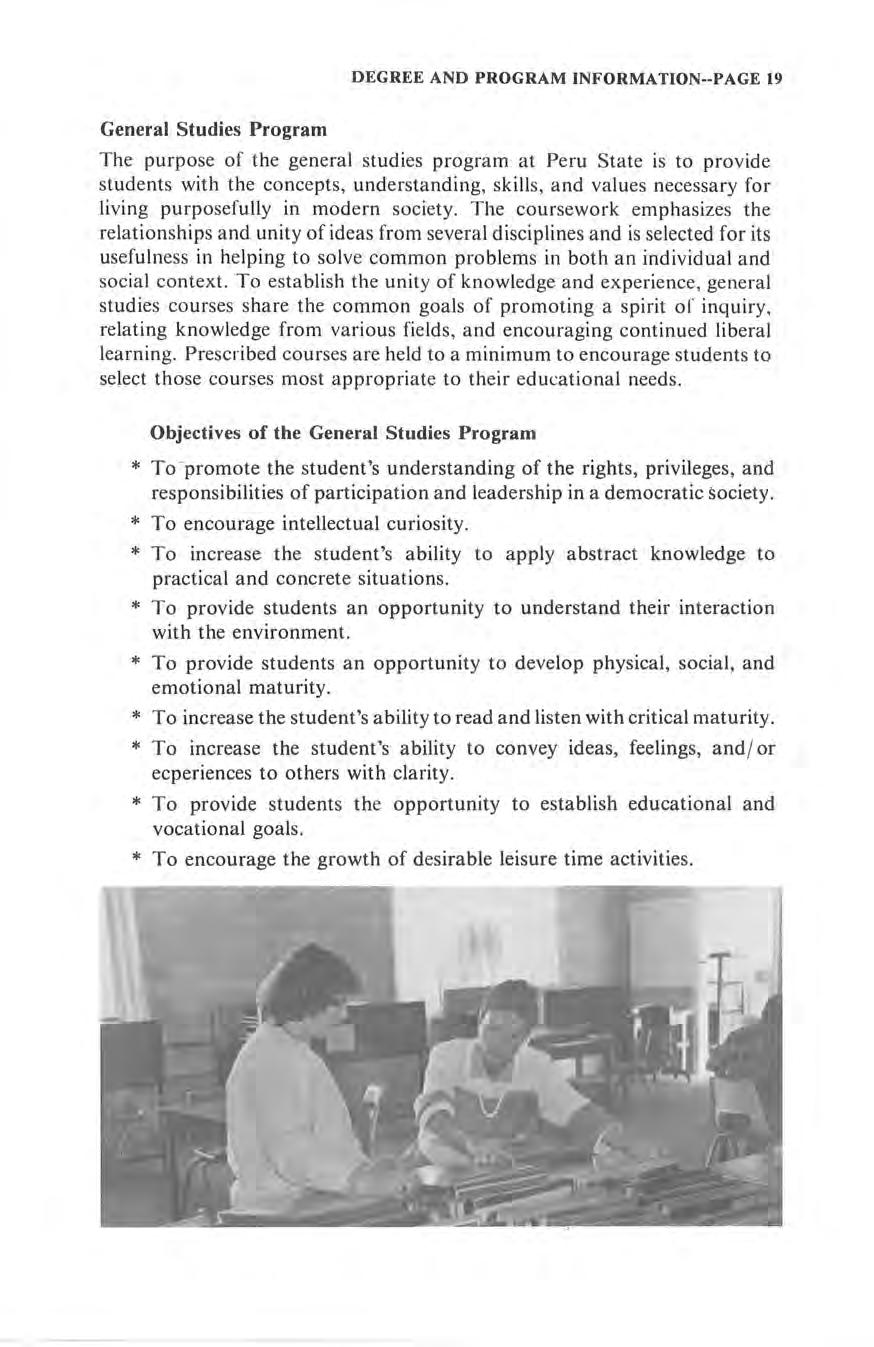
* To -promote the student's understanding of the rights, privileges, and responsibilities of participation and leadership in a democratic society.
* To encourage intellectual curiosity.
* To increase the student's ability to apply abstract knowledge to practical and concrete situations .
* To provide students an opportunity to understand their interaction with the environment.
* To provide students an opportunity to develop physical , social , and emotional maturity .
* To increase the student's ability to read and listen with critical maturity.
* To increase the student's ability to convey ideas, feelings, and / or ecperiences to others with clarity.
* To provide students the opportunity to establish educational and vocational goals.
* To encourage the growth of desirable leisure time activities .
Courses ma y be used in on ly one ca t ego r y to sati s fy genera l s tudies requirement s.
rank at the 85 th pe/'i'elllile ur higher natiunallr un the
Students must complete two different activity co urses to meet the Ph ys ica l Education Activiti es requir e ment. The one except io n is P.E. 1 19: Restricted Activities which ma y be repea ted o nce for additional credit to m ee t the rcquirem ~nt.
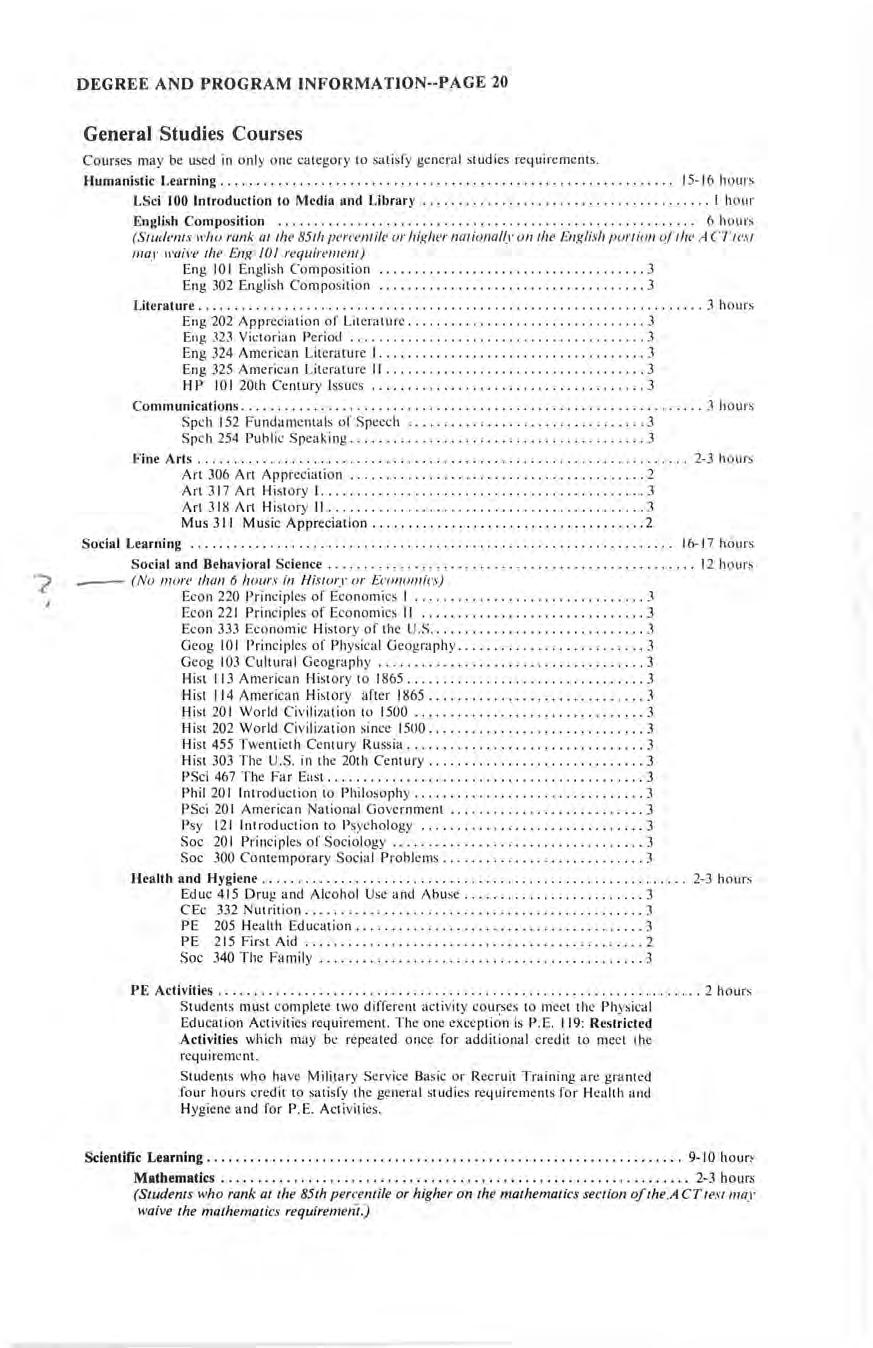
Students who have Militar y Service Basic or R ecruit Training arc grante d four hours credit to satisfy the genera l studies re 4uirem c nt s for H ea lth and Hygi ene and for P. E. Activities.
(Students who rank at the 85th percentile or higher on the mathematics section of the.A CT test ma,1·· waive the mathematics requirement.)
Art is define d as thos e co ur ses in Art th a t ar e oriented t owards giv in g the stud e nt exper iences in a particul a r m e dia , proce ss or technique. Courses in Art that are designated as ha v in g a primar y purpos e of pr ese ntin g Art Te ac hing Methods, Art Hi s t o r y or Art Apprec iation do n o t fu lfill th e
requirement. Total 40-45 hours
The entrance requirements of most professional sc hools require programs of general studie s which vary only slightly from one profe ss ion to another. These programs usually require two years or more of study Since such work is al s o required in the profess ional curriculum of teache _i:s ,_ Peru State's _ge neral studies program meets the pre-professional needs of prospective doctors, dentists, pharmacists , optometrist s, nur ses, veterinarians , lawyers, engineers, agriculturists, for es ters , morticians , bu s ine ss exe cutives, journalists , and oth e r s. Students following a pre-profe ss ional program are urged to check the catalogs of profes s ional sc hools so that specific entrance requirements can be met at Peru S tate

Students who wish to prepare for occupations that require less than four years of preparation will find a variety of educational opportunities at Peru State. There are increasing opportunities in the occupational area classified as semiprofes s ional. Students interested in thi s area should know the transfer
requirements of particular professional or technical schools so that a parallel program of coursework can be developed at Peru State.
The purpose of the Honors Program is to challenge students, not with difficult examinations and heavy reading assignments, but with challenging ideas and new perspectives. An honors course should be the beginning of a student 's lifetime interest in the serious and difficult issues of our day .
. I The Honors Program is 15 semester hours consisting of one interdisciplinary course--20th Century Issues-- and 12 hours of honor courses in a variety of diciplines.
2. Students who successfully complete the Honors Program are designated as Honors Program Graduates. They are recognized at commencement and on their permanent college record .
3 Students apply to the Honors Program by making application through the Coordinator. Admission is based on the following criteria: (a) 24 ACT composite, or (b) a grade point average of 3.3 for at least 12 semester hours of college credit and a ranking in the top one-fourth of their high school graduating class , or (c) a grade point average of 3.3 for at least 12 semester hours at Peru State as a non-traditional student, or (d) permission of the Honors Committee on written application for students with special abilities or achievements .
4 . Continued eligibility depends upon high college grade point average .
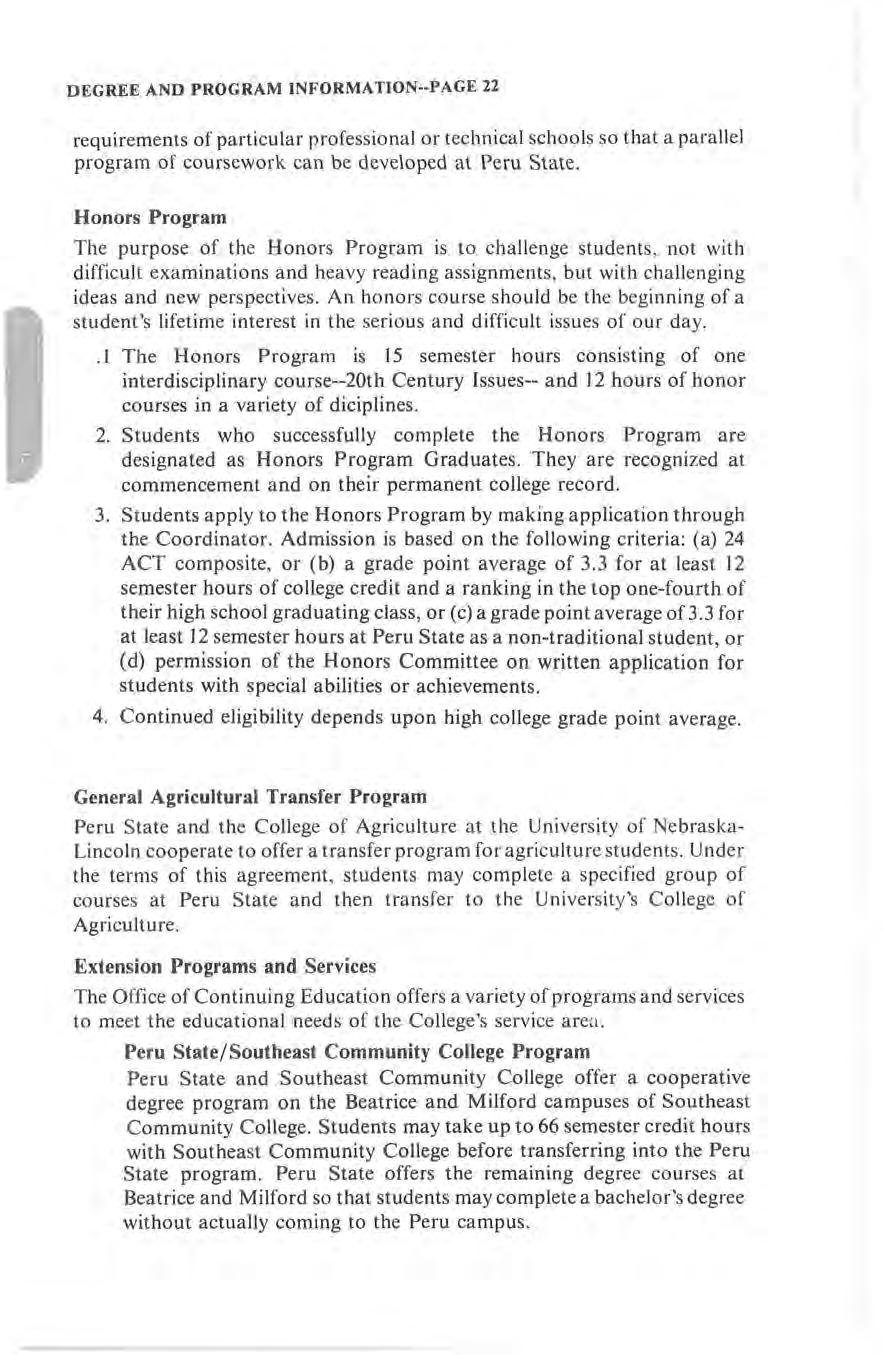
Peru State and the College of Agriculture at the University of NebraskaLincoln cooperate to offer a transfer program for agriculture students. Under the terms of this agreement , students may complete a specified group of course s at Peru State and then transfer to the Universit y 's College of Agriculture .
The Office of Continuing Education offers a variety of programs and services to meet the educational needs of the College's service area.
Peru State/Southeast Community College Program
Peru State and Southeast Community College offer a cooperative degree program on the Beatrice and Milford campuses of Southeast Community College. Students may take up to 66 semester credit hours with Southeast Community College before transferring into the Peru State program Peru State offers the remaining degree courses at Beatrice and Milford so that students may complete a bachelor's degree without actually coming to the Peru campus
The Transfer Guide assists both students and advisors . It li sts the course equivalencies at both institutions, the specific course requirements for each degree, and the procedures for admission, registration , and payment of tuition and fees. Students who enter the program with a significant amount of credit toward their major will have their transcrirts reviewed by the appropr iate Division Chairperson, in consultation with the Vice President , to determine if a possible 6-15 credit hours of designated coursework in the major is required.
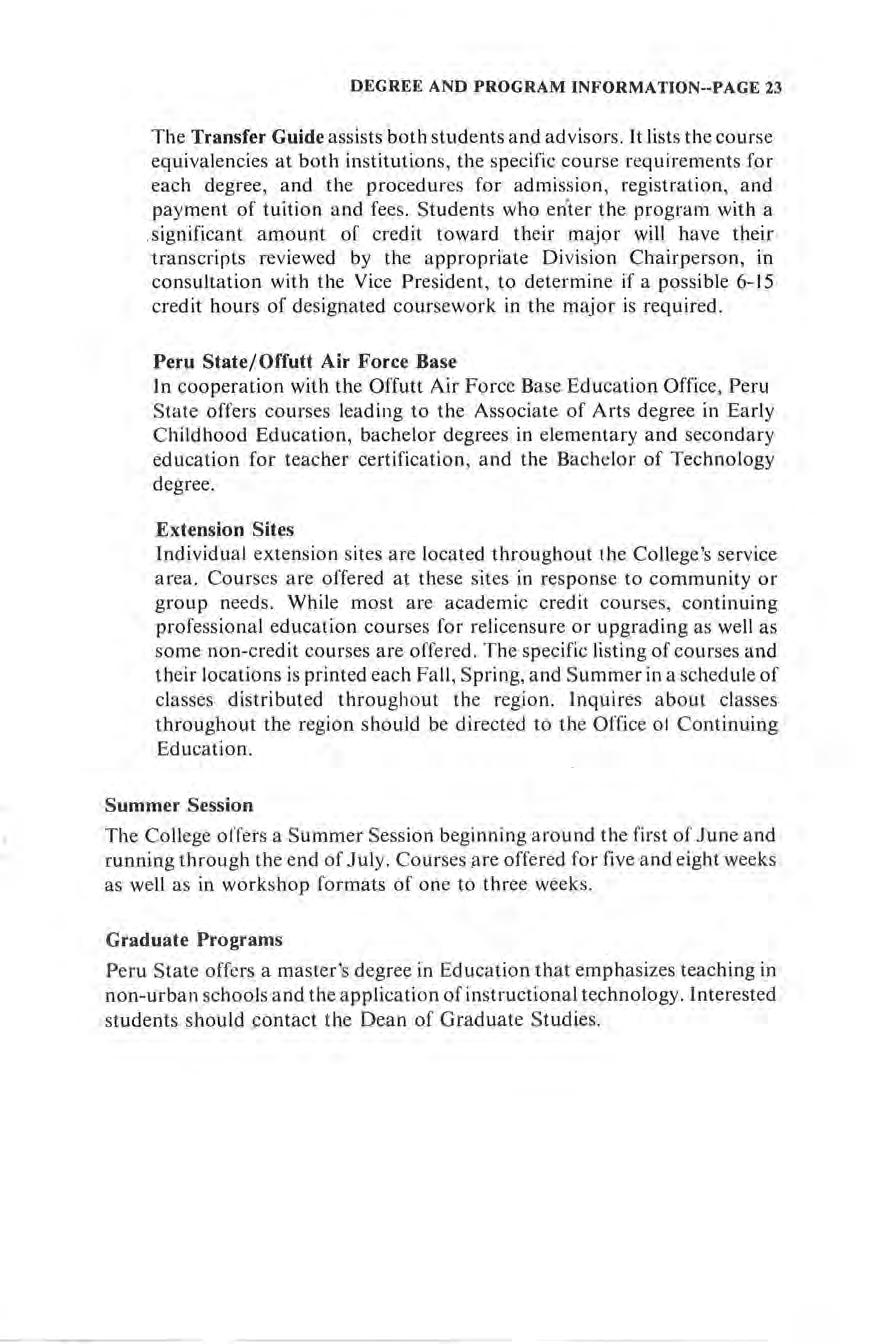
In cooperation with the Offutt Air Force Base Education Office, Peru State offers courses leading to the Associate of Arts degree in Early Childhood Education, bachelor degrees in elementary and secondary education for teacher certification, and the Bachelor of Technology degree.
Individual extension sites are lo cated throughout the College's service area. Courses are offered at these sites in response to community or group needs. While most are academic credit courses, continuing professional education courses for relicensure or upgrading as well as some non-credit courses are offered . The specific listing of courses and their locations is printed each Fall, Spring, and Summer in a schedule of classes distributed throughout the region. Inquires about classes throughout the region should be directed to the Office ol Continuing Education.
The College offers a Summer Session beginning around the fir st of June and running through the end of July Courses are offered for five and eight weeks as well as in workshop formats of one to three weeks.
Peru State offers a master's degree in Education that emphasizes teaching in non-urban schools and the ap plication of instructional technology. Interested students should contact the Dean of Graduate Studies.

Professors: Snyder, Thomas
Associate Professor: Jacobs
Assistant Professors: Beldin, Hamilton, Lewellen
Instructors: Hytrek G., Williams, A.
NBDC Director: Holliday
The Division of Business offers programs to prepare students for a wide range of occupations in industry, business, and business education. The programs are designed to provide marketable skills and knowledge, preparation for advancement on the job, and background for graduate study . B.A. and B.S . degrees are offered in Business Administration, Business Education, and the B.T. degree in Technology.
The Business Administration program offers a choice of options-Accounting, Management, and Sales Management. The Business Education degree is offered with a subject endorsement in Basic Business or as a field endorsement. The Technology program offers emphases in Industrial Supervision and Industrial Distribution.
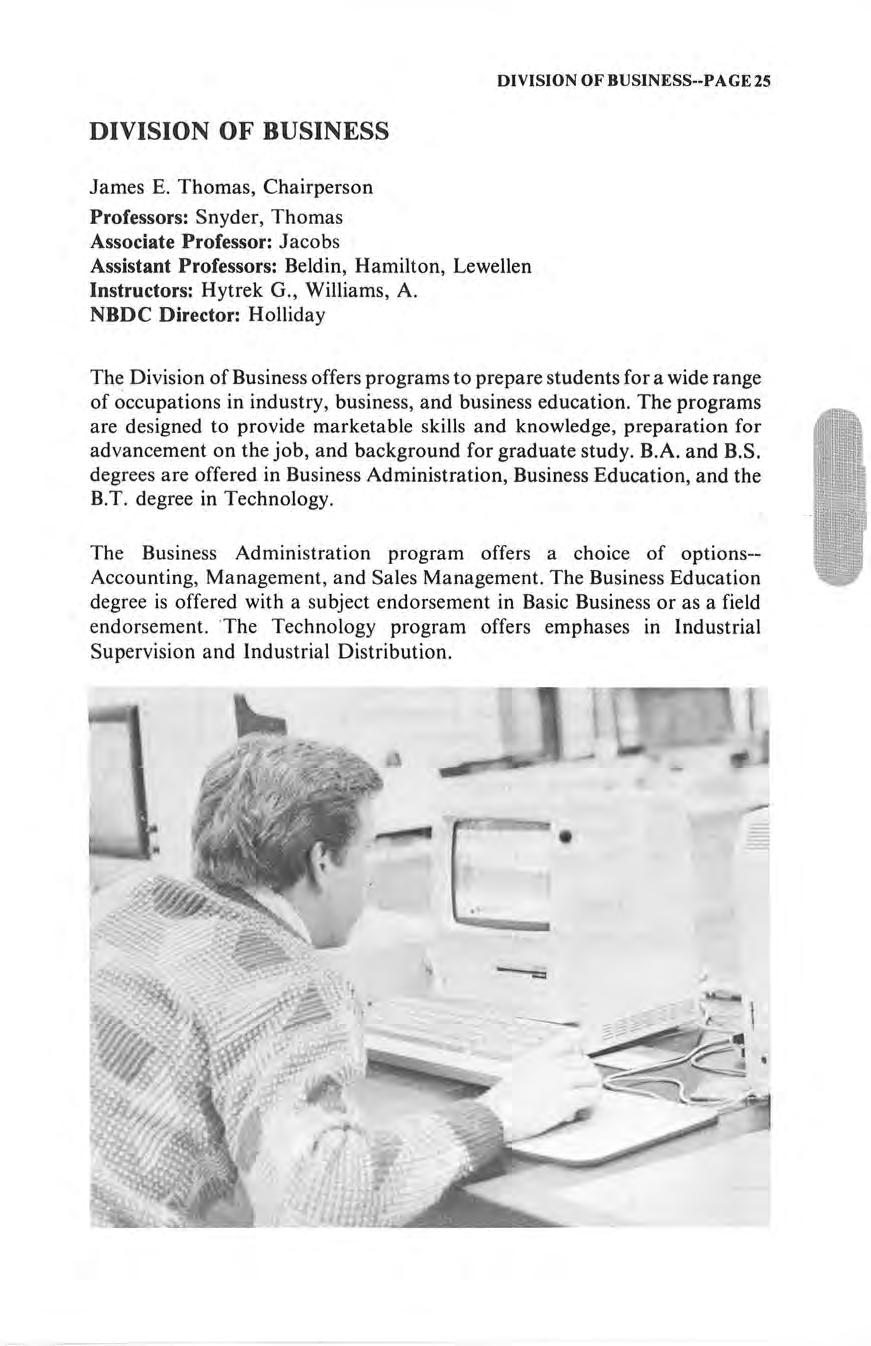
The Accounting option prepares graduates for several high demand careers in financial occupations. Coursework is designed to prepare students to take the CPA examination.

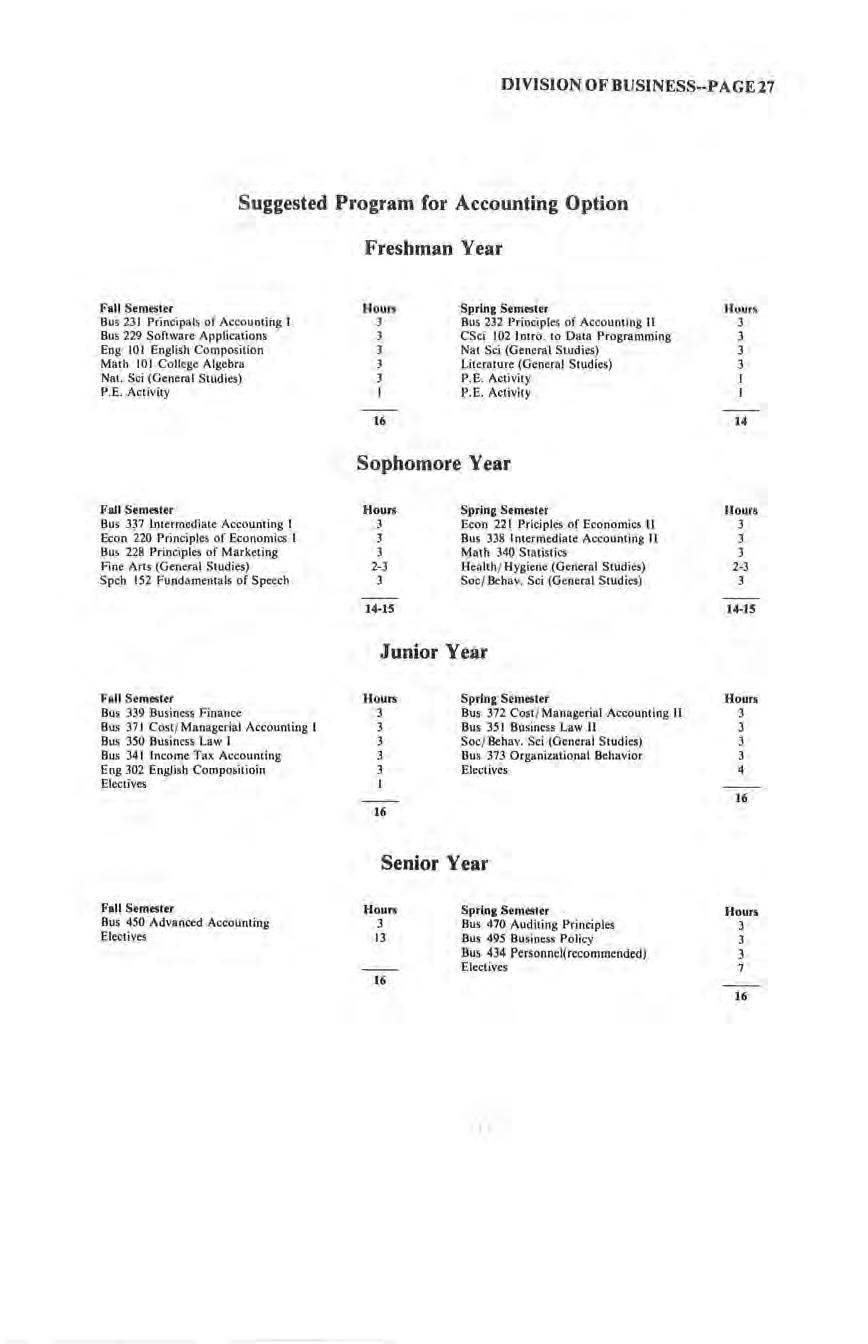

The Management option offers a general business approach and prepares graduates for entry and mid-level management positions.
*The following courses are excluded: BuslO0, 220 , 222, 235, 334, and 425.
** A higher level of math is preferred.
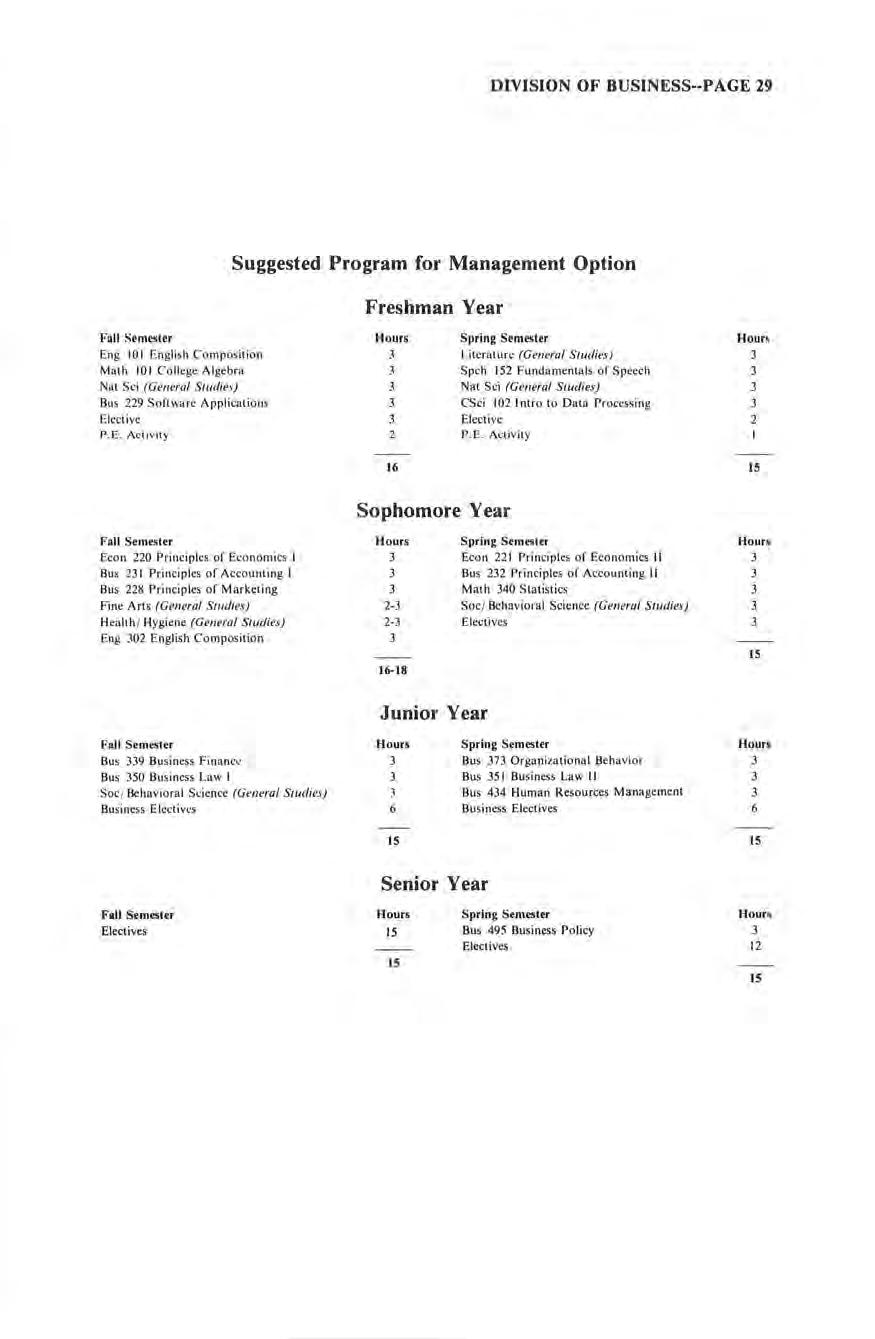
Fall Semester
Eng 101 E n glis h Composi ti o n
Math 101 Co ll ege A lgebra
Na t Sci (General Studies)
Bu s 229 Softwa re Applicati o ns
Elec ti ve
P.E Act ivi t y
Fa ll Se mester
Econ 220 Principles of Eco n omics I
Bus 23 1 Pr in cip les of Accounting I
Bu s 228 Principl es of Marketing
Fine Art s (General Studies)
Hea lth / Hyg ie ne (General Studies)
E ng 302 E ng lish Compos iti on
Fall Semester
Bu s 339 Bu si n ess Finan ci.·
Bu s 350 Bu s ines s Law I
Soc / Beha v ioral St.: ience (General Studies)
Bu siness Elec ti ves
Fall Semester
Electives
Hours 16
Spr in g Se m es ter
Literature (General S tudies)
Spe h 152 Fundamentals of Speech
Na t Sci (Ge n eral Srndies)
CSci 10 2 Int ro t o D ata Proce ss in g
Electi ve
P.E. Ac t iv it y
Hours
S pring Se m es ter
Eco n 22 1 Pr i n cipl es o f Eco n omics II
Bus 232 P rinc ipl es of Accoun t ing II
Math 340 Sta tisti cs
Soc / Be h avioral Science (General Studies)
Electi ves
Hour s 15
S pring Se mester
Bus 373 Orga ni za ti o na l Behavior
Bus 351 Bu s ines s Law 11
Bu s 434 Hum an Resources Management Business
The Sales Management option prepares graduates for high demand careers in marketing and sales. There is a strong emphasis on written and oral communication skills
Those electing this option will be required to pass an English proficiency test.
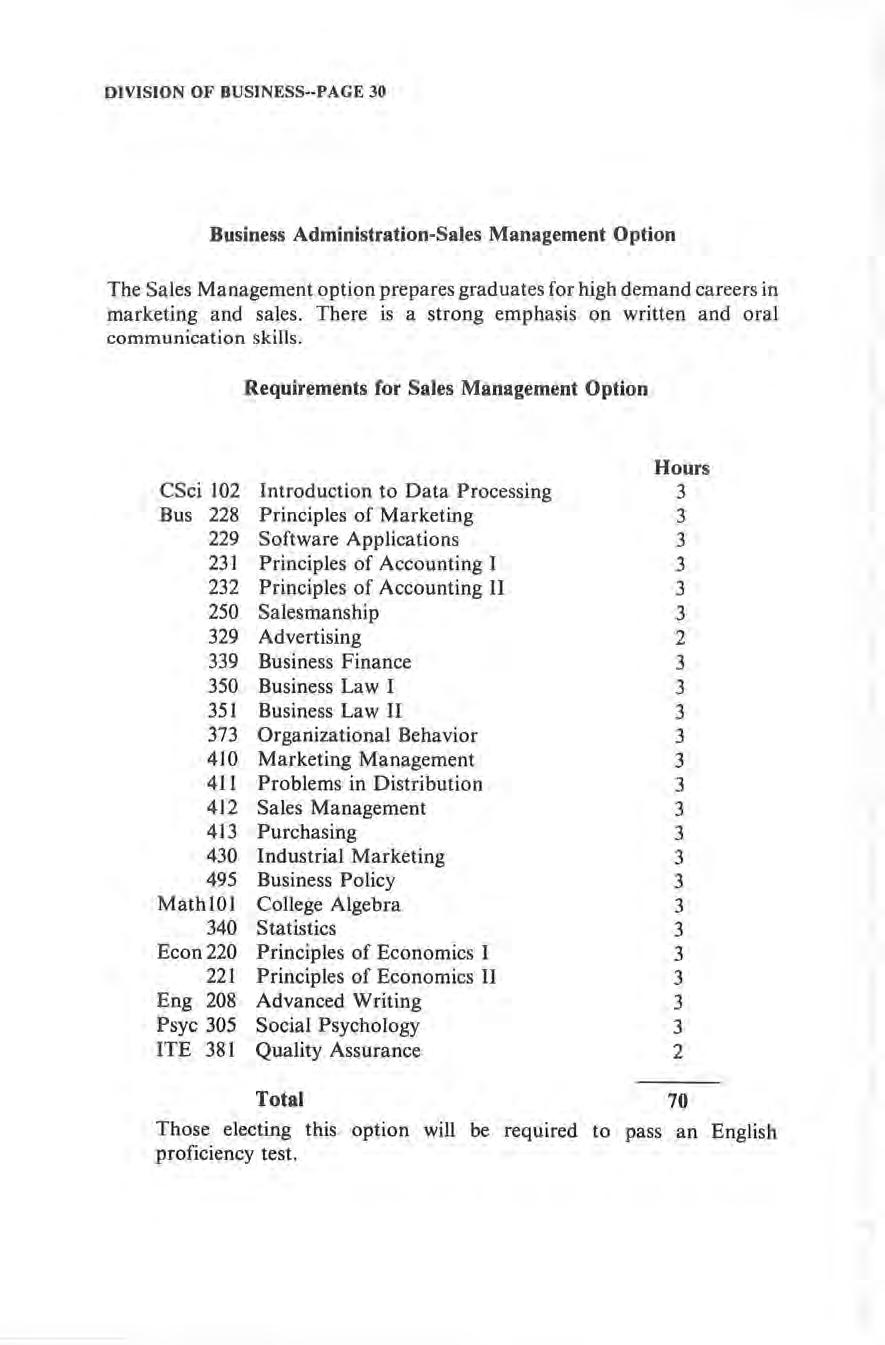
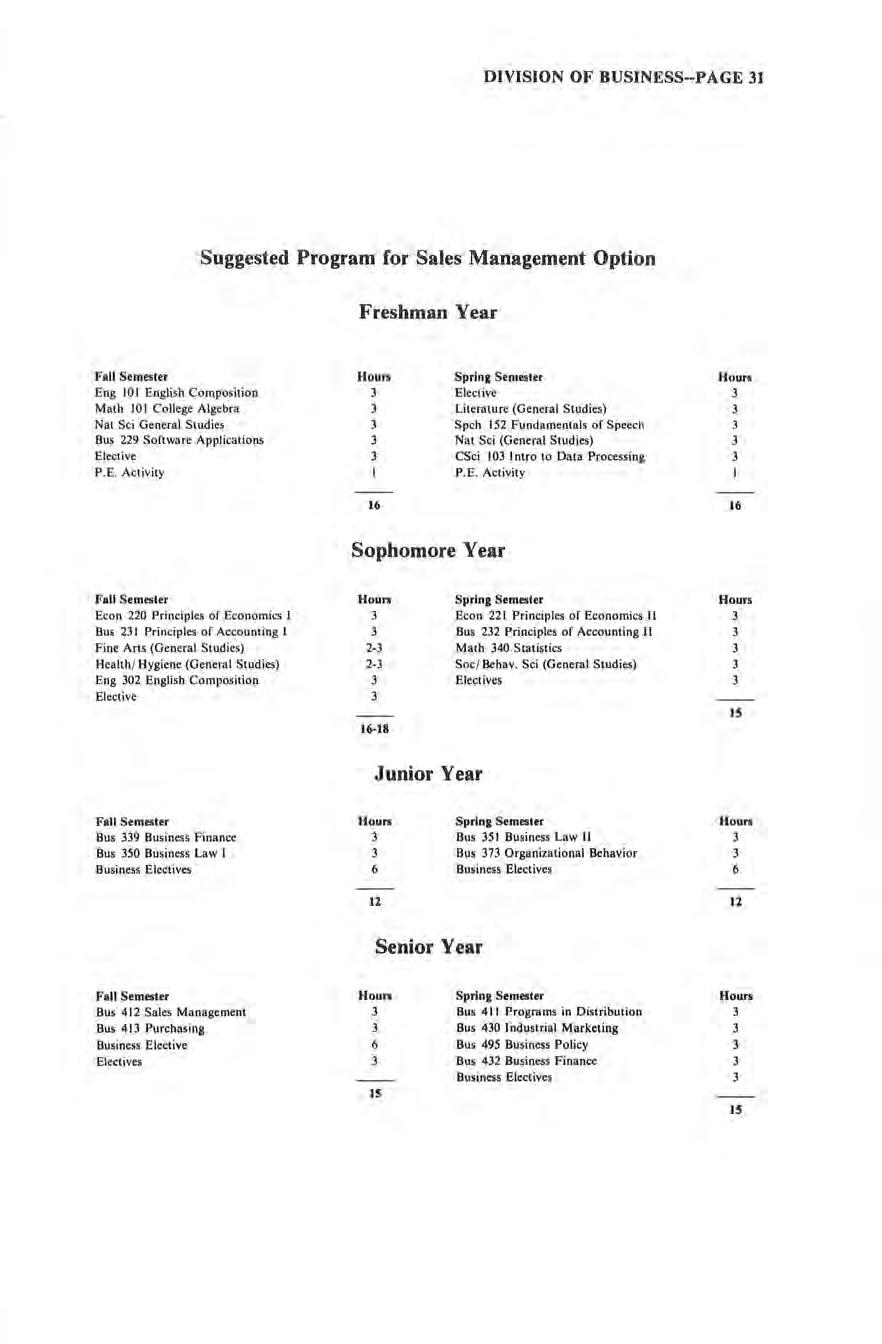
Fa ll Semester Eng 10 I E ngli sh Com pos iti o n
Math IOI Co ll ege Algebra
Nat Sci General Stu di es
Bu s 229 Software Applications
Elective
P.E. Activit y
Fall Semester
Eco n 220 Principles of Eco nomi cs I
Bus 23 1 Prin cip les of Acco unting I
Fine Arts (General S tud ies)
Health / H yg iene (General Studies)
E
302
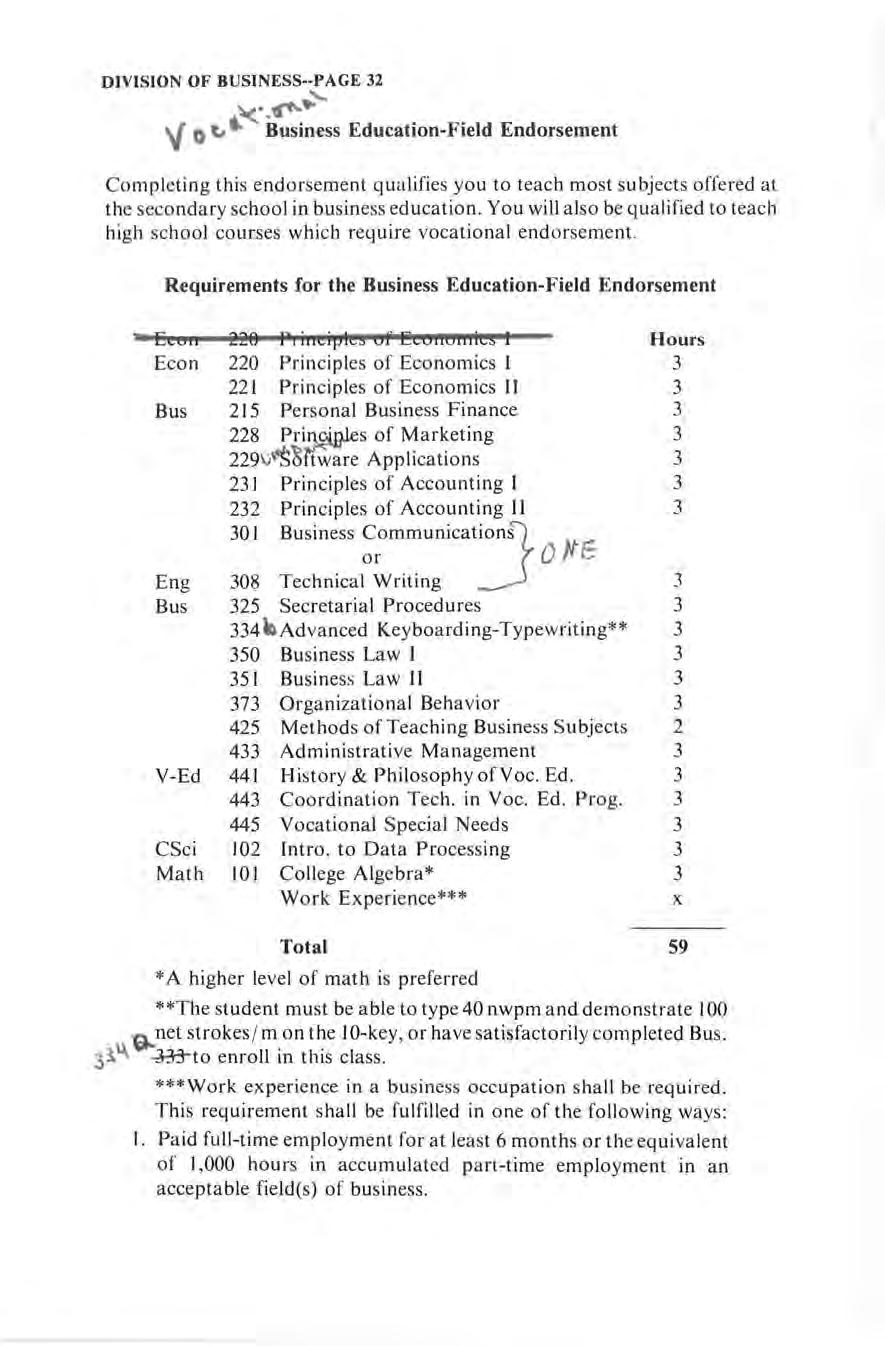
2. At least 180 hours of employment in an acceptable field of business under the direction and supervision of a qualified, experienced vocational teacher educator.
3. An organized program of directed observation of work stations in the field of business under the direction and supervision of a qualified, experienced vocational teacher educator. The program of direction observation must include 90 hours of observation.
This endorsement, when taken with another subject endorsement, qualifies you to teach the basic business and the typewriting / keyboarding courses taught in a Nebraska high school business curriculum. It does not qualify you to teach shorthand, secretarial procedures or other skill courses.
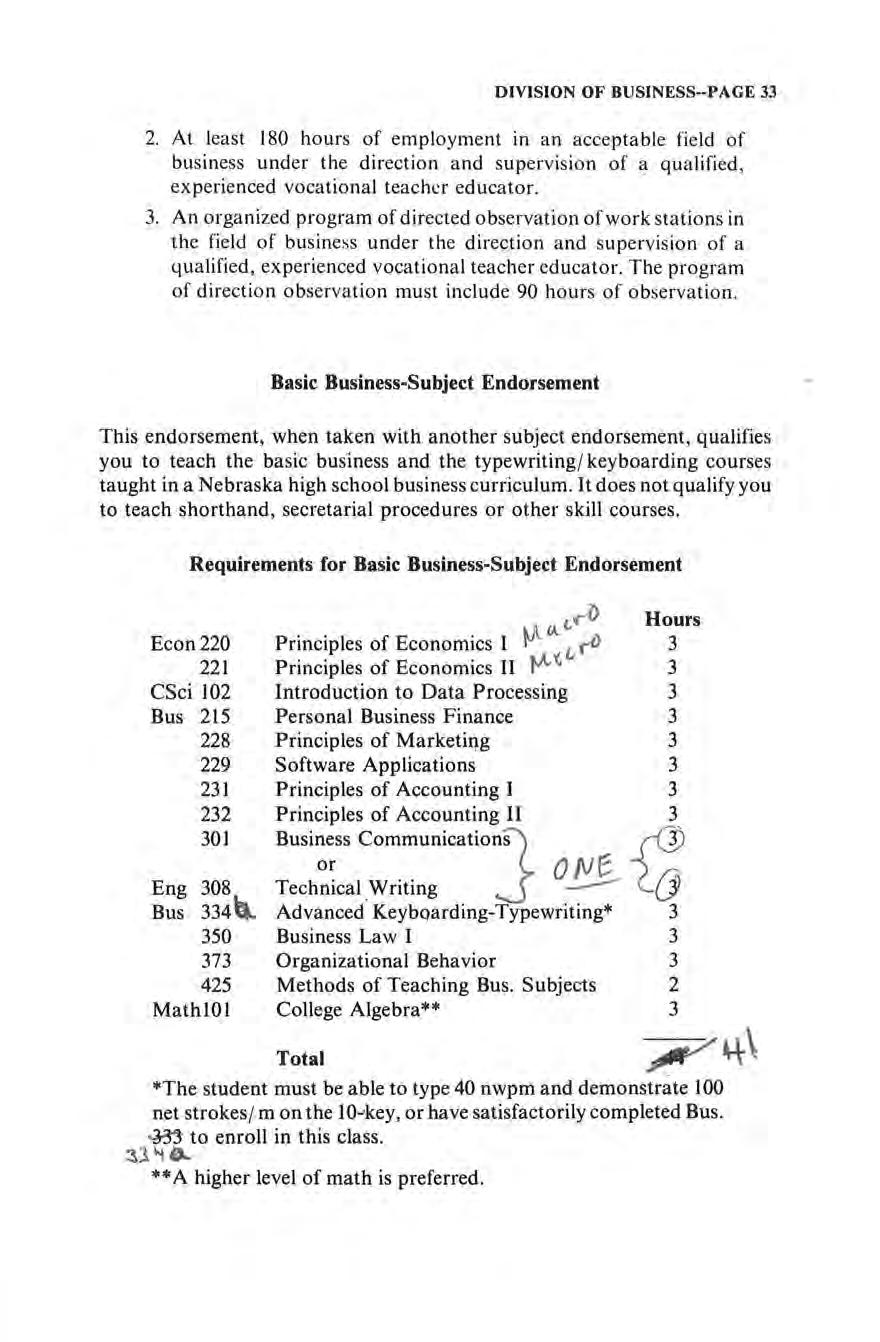
*The student must be able to type 40 nwpm and demonstrate I 00 net strokes / m on the I0Jkey, or have satisfactorily completed Bus. to enroll in this class.
** A higher level of math is preferred .
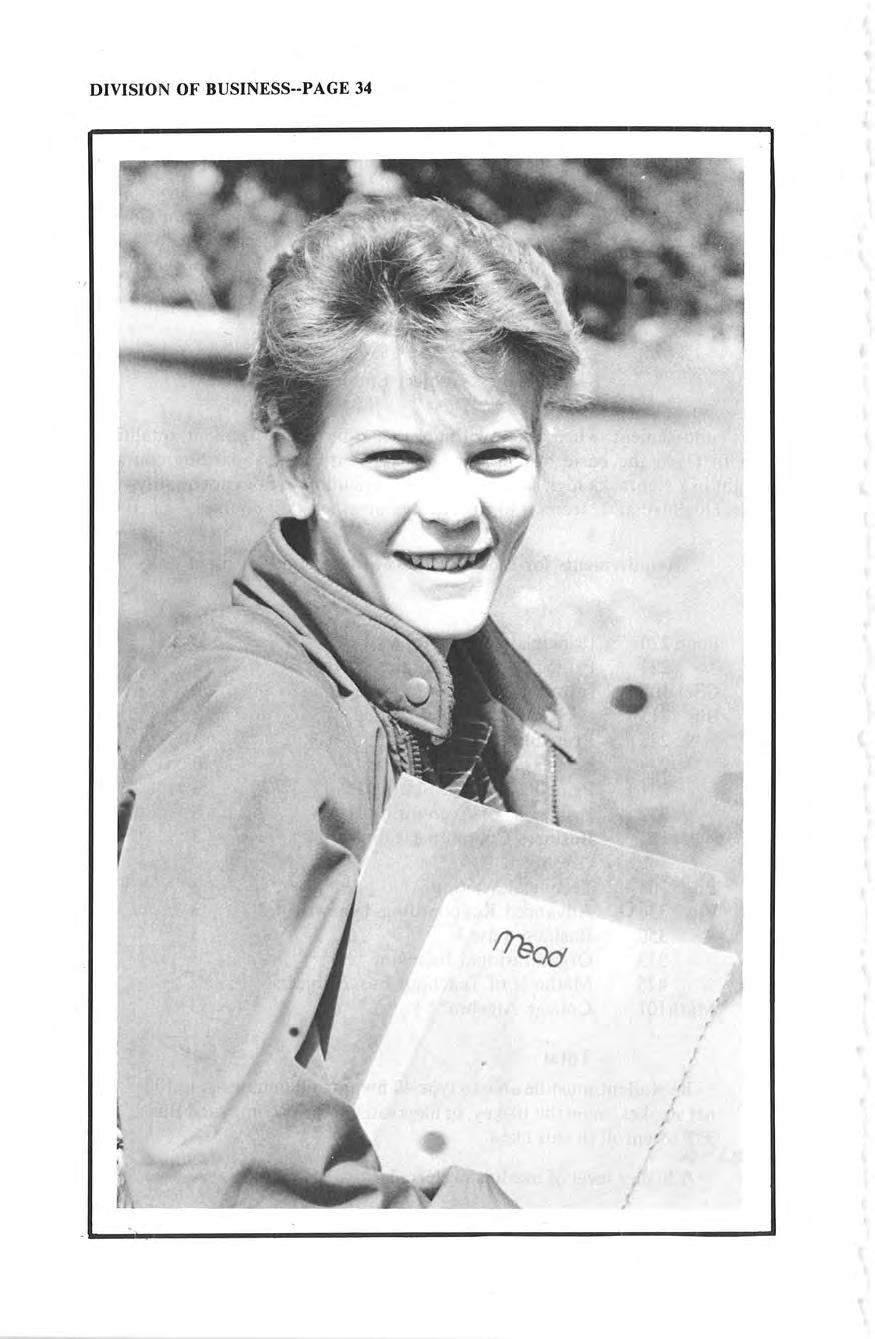
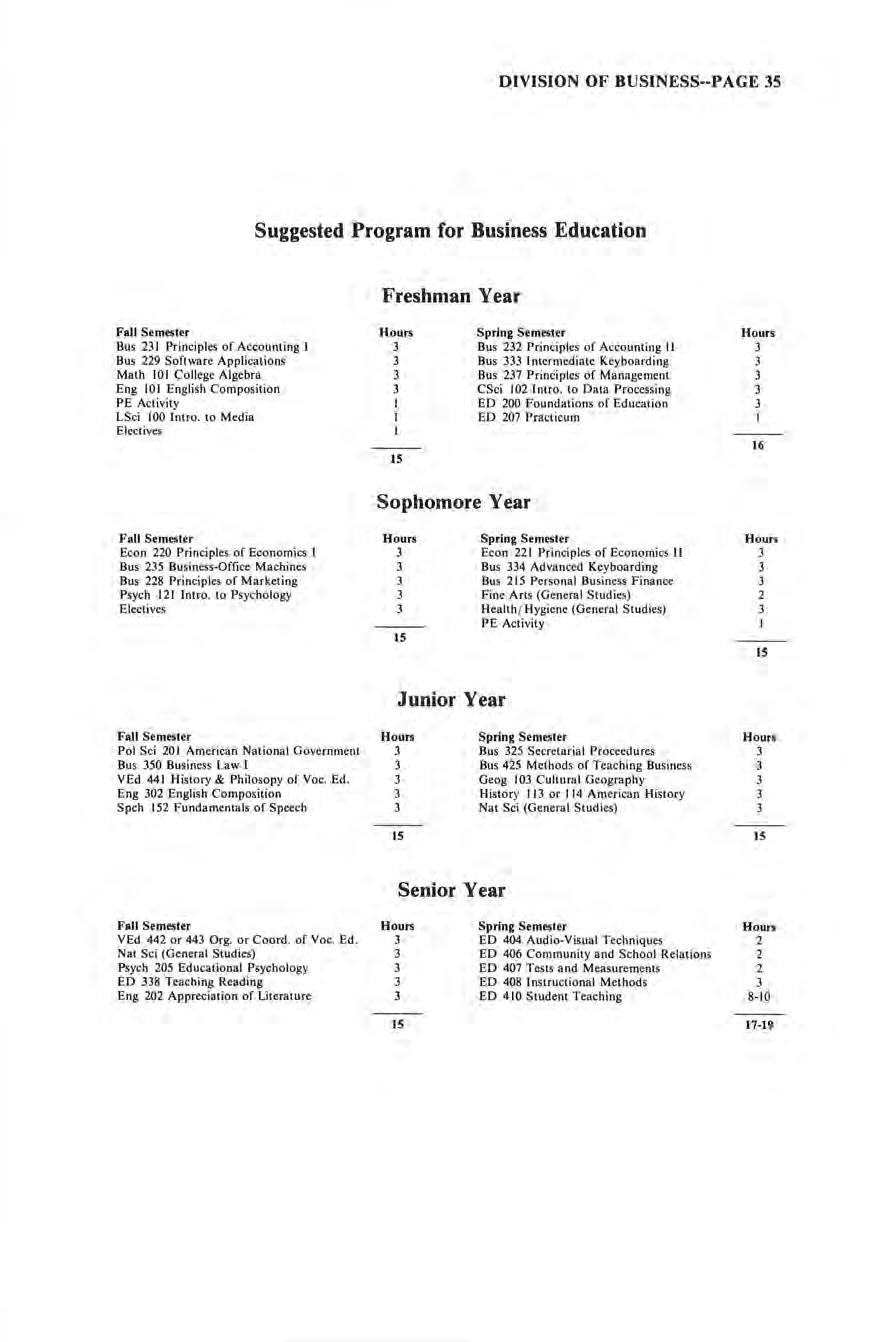

The Industrial Supervision emphasis requires a technical associate degree or equivalent and prepares graduates for entry level management careers in the technical emphasis . The equivalent coursework offered at Offut AFB has a mgt. prefix.
The Industrial Distribution emphasis requires a technical associate degree or equivalent and prepares graduates for a variety of marketing careers in the technical emphasis.
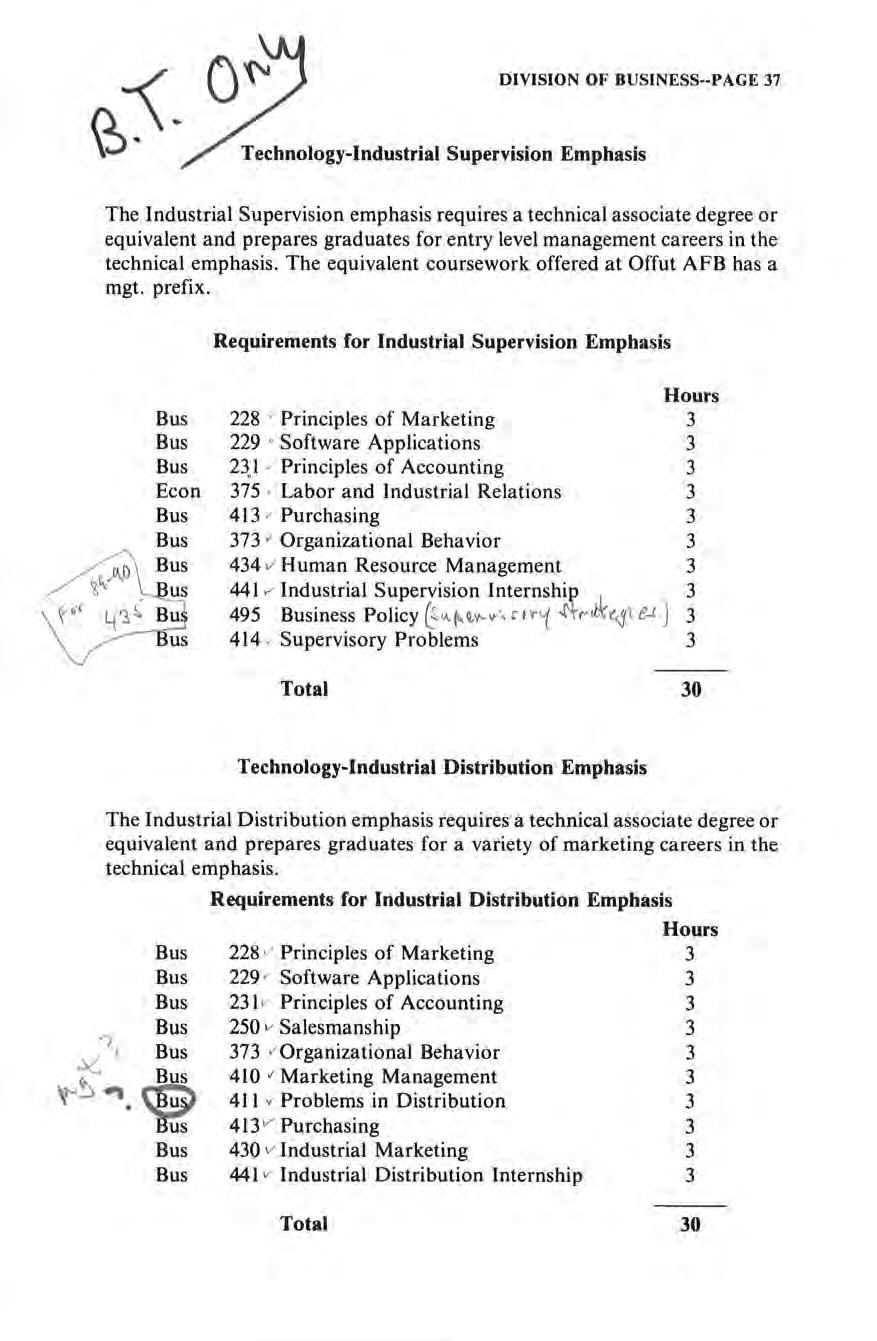
Two choices are available to students interested in majoring in Agriculture. By taking selected course work in the areas of Agriculture, Business and General Science, the student will receive a four-year degree with a major in Business Agricultural Management. The student also has the option of transferring Agriculture (9 hours), General Science, and general studies courses to the University of Nebraska College of Agricultu r e .
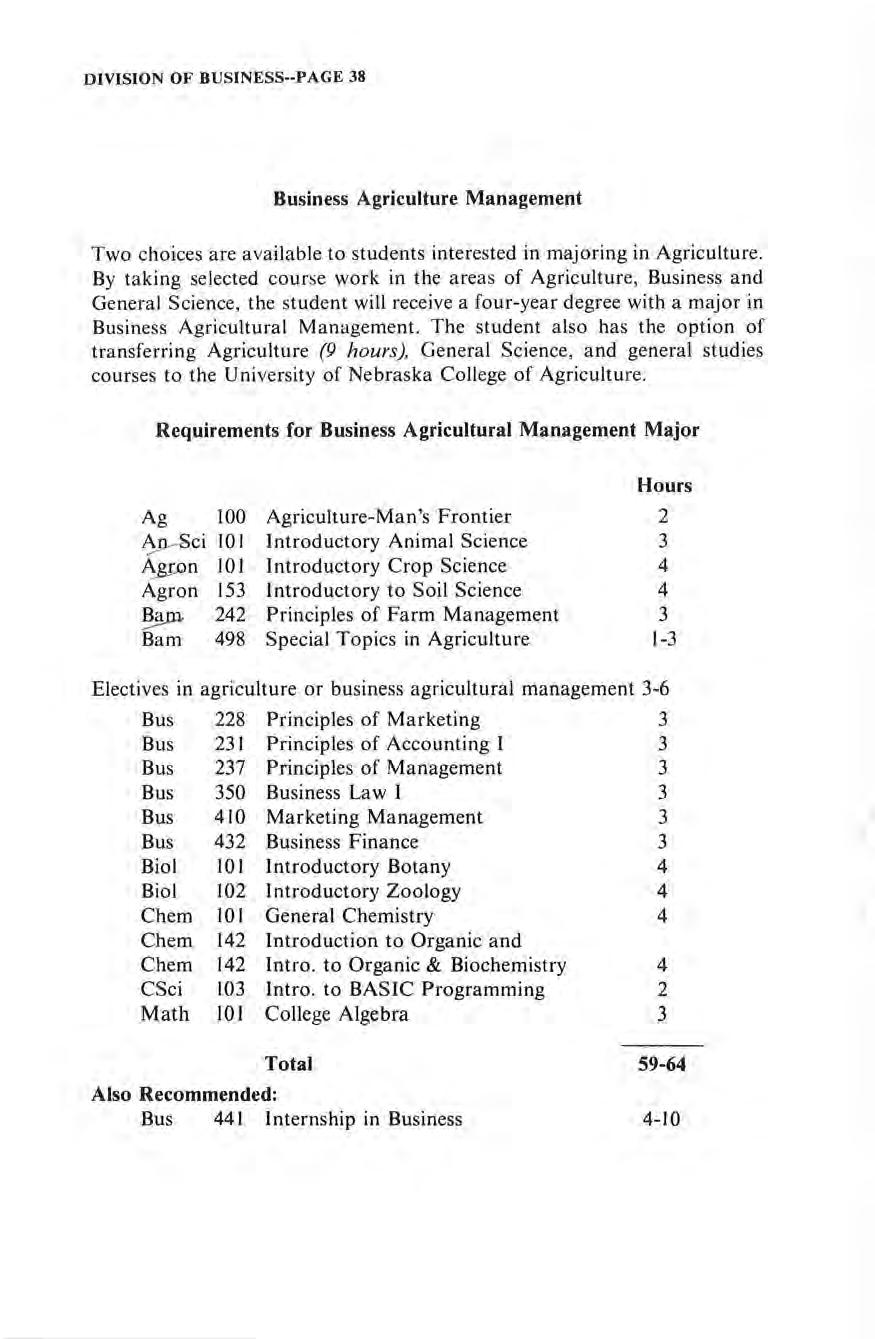
Bu
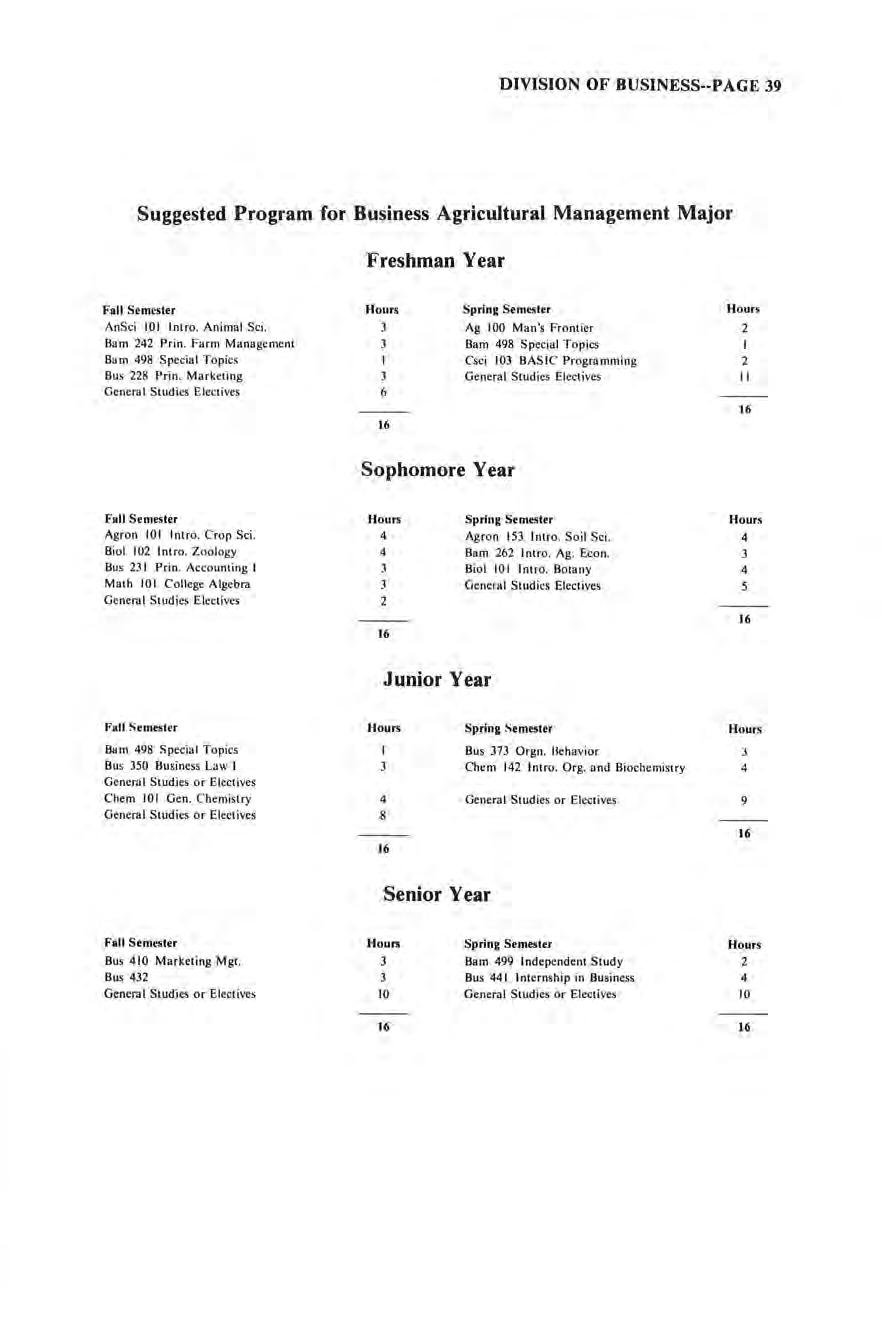
100 Agriculture-Man's Frontier (2 hours)
A survey course looking at the development of today's agriculture, the challenges that lie ahead, and the relationship of land-grant institutions to education, research, and extension programs serving agriculture. Educational and career opportunities in agriculture will be studied, and students will develop educational objectives and proposed programs of study.
(Each Spring semester)
101 Introductory Animal Science and Livestock Evaluation (3 hours)
This course introduces the role of the livestock industry in food production and the biological basis of variation in livestock, including poultry, and their products. A comparison and evaluation of the various types, classes, grades, and breeds of livestock are studied with the methods of evaluating live animals and their products emphasized.
(Each Fall semester)
(Agron)
101 Introductory Crop Science (4 hours)
The basic agronomic principles involved m t he growth, structure, soil-plant relationships, classification, indentification of field crops, and common weed pests are explored. The influence of man and the environment on crop growth and the importance of crop production on world food production is emphasized.
(Spring semester, odd years)
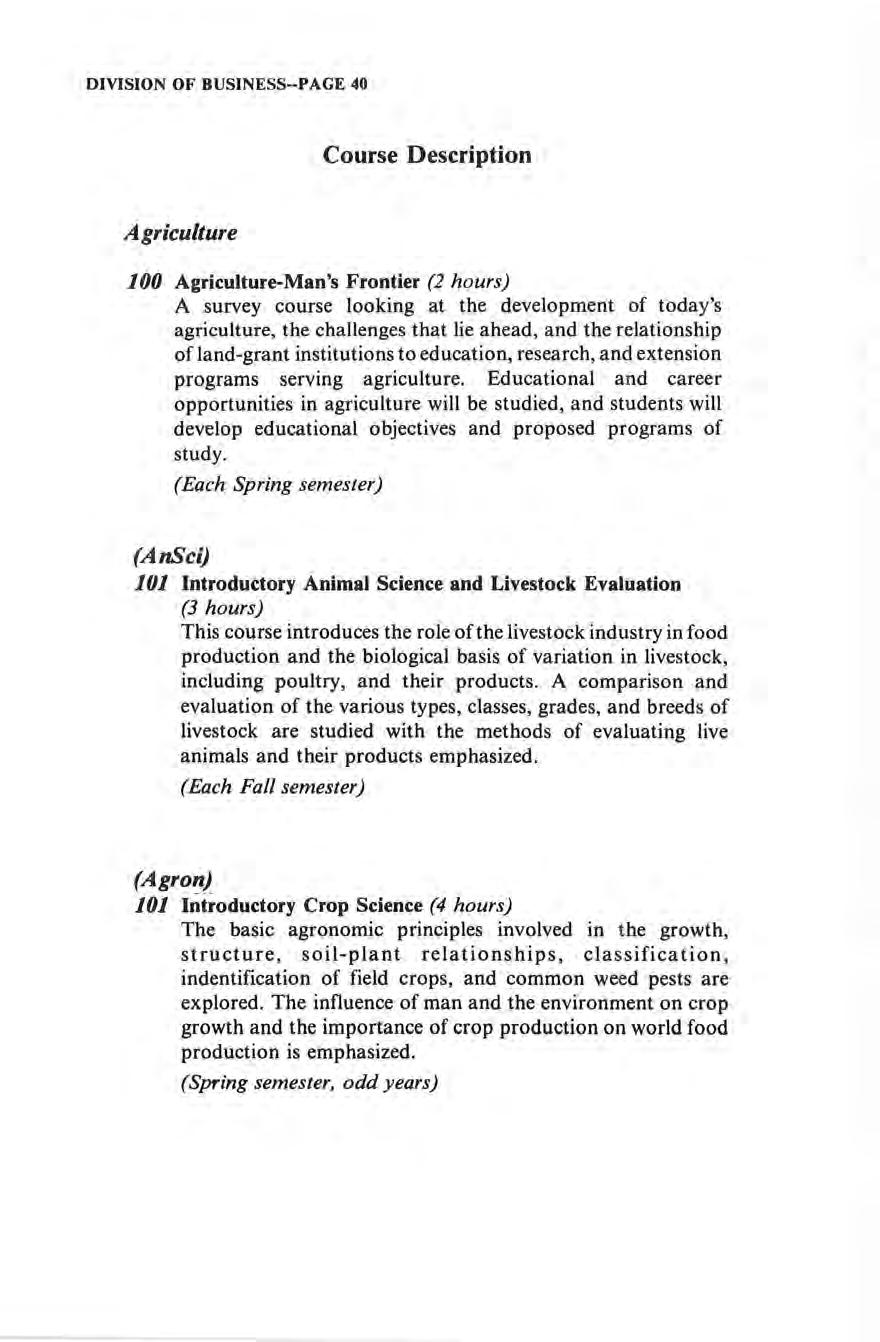
153 Introduction to Soil Science (4 hours)
Prerequisite: High school chemistry or l semester college chemistry.
An introduction to the study of soil science including the development, physics, chemistry, biology, and classification of soils Emphasis is placed on the role of soils in the growth of plants.
(Spring semester, even years)
215 Personal Business Finance (3 hours)
Fundamentals of personal finance--budgeting, home buying, banking, life insurance, auto insurance, homeowners's-renter's insurance, health insurance, basic investments, income taxes, and other consumer economics topics.
(Spring semester, odd years)
228 Principles of Marketing (3 hours)
A study of the buying, selling, transporting and storing functions involved in marketing; where the student is introduced to retailing, wholesaling and marketing management.
(Each Fall semester; Summer Session)
229 Software Applications (3 hours)
An introduction to MS-DOS and IBM based software currently used in industry. Development of proficiency using selected commercial software packages.
(Each semester; Summer Session)
231 Principles of Accounting I (3 hours)

An introduction to the process of recording financial data and preparing periodic financial statements. The complete acounting cycle will be studied. Four hours of attendance per week.
(Each Fall semester)
232 Principles of Accounting II (3 hours)
Prerequisite: Bus . 231 .
A continuation of Bus. 231, considering the account ing process for a corporation; where the student is introduced to accounting theory, financial statement analysis and cost accounting. Four hours attendance per week.
(Each Spring semester)
235 Business-Office Machines (3 hours)
The use of the I 0-key calculator to solve business mathematics problems, the use of word processors and their applications, the duplicating machines , and the transcribing machines will be taught in this course .
(Fall semester, even years)
250 Salesmanship (3 hours)
Prerequisite : Bus 228.
A study of the skills and techniques used in selling and persuasion The course is designed to help the student learn to sell products and ideas through a study of proven techniques used by successful salespeople .
(Each Fall semester)
298 Special Topics in Business (1-4 hours)
Freshman-Sophomore standing .
(Offered as needed)
301 Speech and Conference Strategies
The study and analysis of presentational methods in formal business speaking, sales and motivational strategies, the conducting of successful meetings, the use of visual aids in the business setting , and conducting and parti c ipating in interviews.
(Each Spring semester)
325 Secretarial Procedures and Communications (3 hours)
This course is designed to develop competencies in both the operational and managerial functions performed by the executive secretary. Operational functions involve an in-depth study of office and secretarial procedures . This will include records management and use of the word processing machines
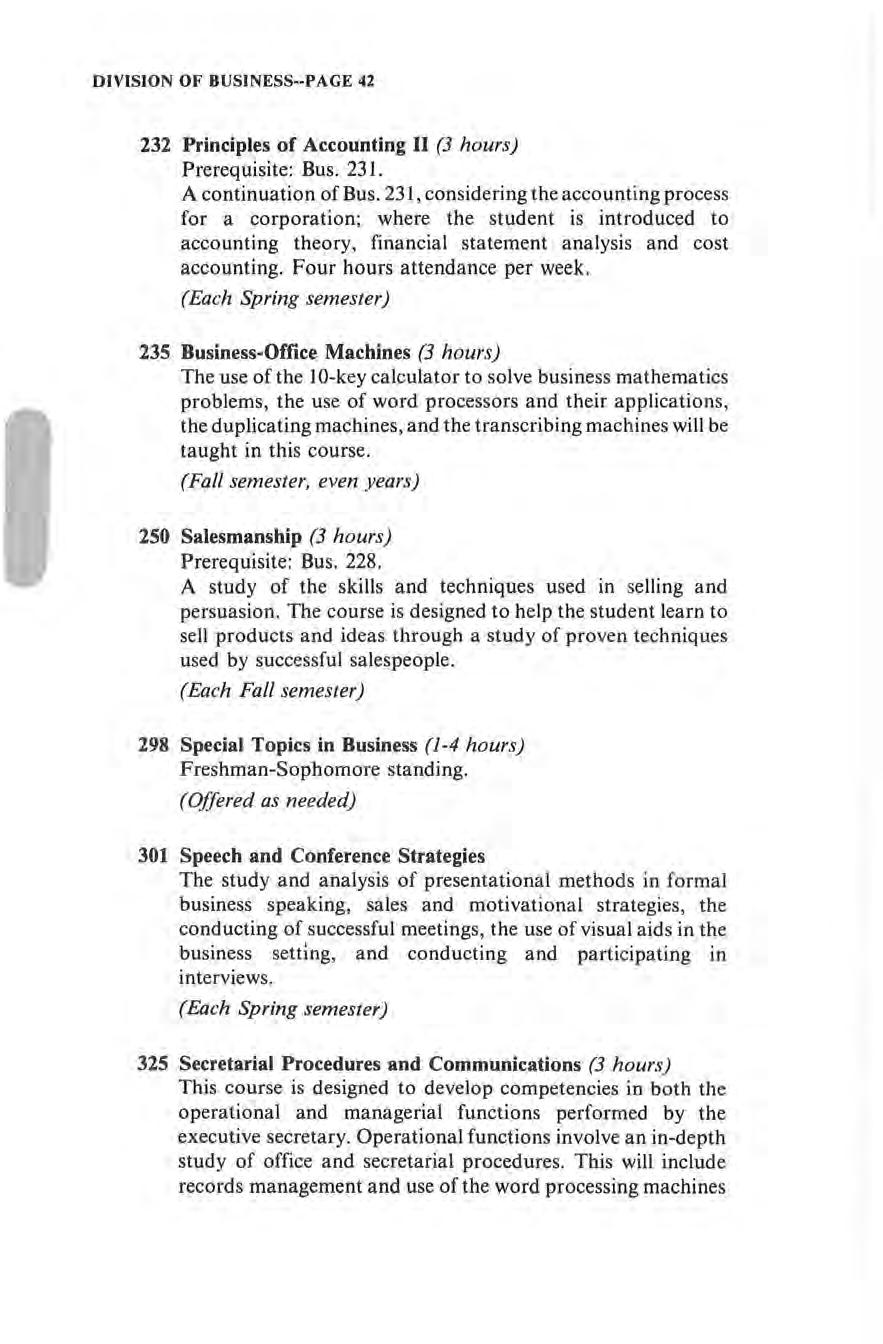
to solve office problems. Managerial functions involve the development of a high degree of competency in administrative secretarial skills . A considerabe amount of time will be devoted to develope the ability to compose various forms of business communications .
(Spring semester, even years)
329 Advertising (2 hours)
A study of various advertising media, their relative costs, the ethics and regulations involved, and the techniques used.
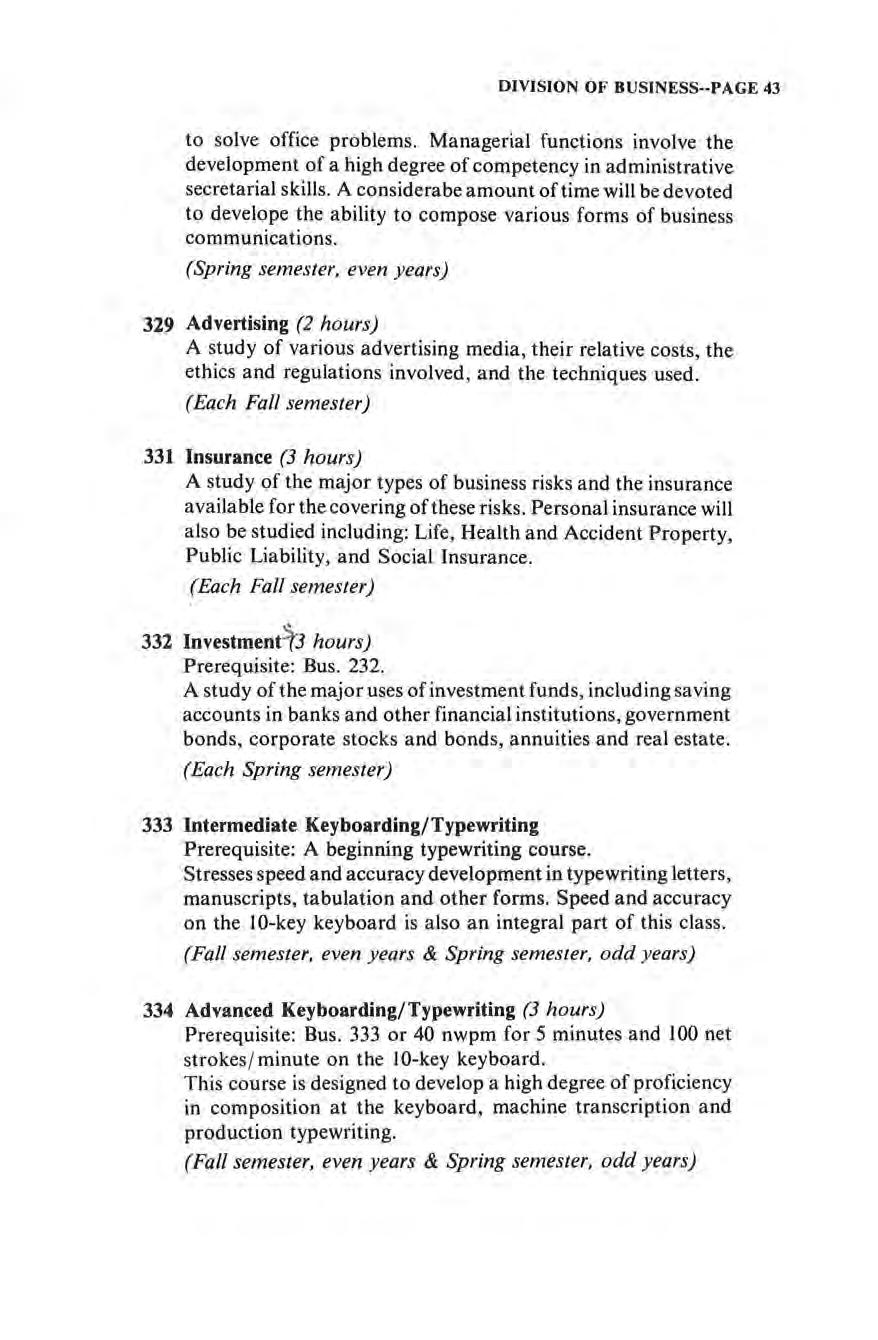
(Each Fall semester)
331 Insurance (3 hours)
A study of the major types of business risks and the insurance available for the covering of these risks. Personal insurance will also be studied including: Life, Health and Accident Property, Public Liability, and Social Insurance .
(Each Fall semester)
332 Investment i 3 hours)
Prerequisite : Bus. 232.
A study of the major uses of investment funds , including saving accounts in banks and other financial institutions, government bonds , corporate stocks and bonds , annuities and real estate .
(Each Spring semester)
333 Intermediate Keyboarding/Typewriting
Prerequisite: A beginning typewriting course. Stresses speed and accuracy development in typewriting letters, manuscripts, tabulation and other forms. Speed and accuracy on the IO-key keyboard is also an integral part of this class
(Fall semester, even years & Spring semester, odd y ears)
334 Advanced Keyboarding/Typewriting (3 hours)
Prerequisite: Bus. 333 or 40 nwpm for 5 minutes and 100 net strokes / minute on the IO-key keyboard. This course is designed to develop a high degree of proficiency in composition at the keyboard, machine transcription and production typewriting.
(Fall semester, even years & Spring semester, odd years)
335 Production/Operations Management (3 hours)
Prerequisite : Bus. 231 required and Econ 221 recommended.
A study1of the evolution of operational management and its relationship to the total enterprise. Decision making, production and plant planning, systems design, manpower planning , and control systems are considered.
(Each Fall semester)
337 Intermediate Accounting I (3 hours)
Prerequisite: Bus. 232.
A study of the problems involved in establishing sound valuations for asset, liability and net worth items; proper reporting of financial position and net income is stressed.
(Each Fall semester)
338 Intermediate Accounting II (3 hours)
Prerequisite: Bus. 337 .
An in-depth continuation of Bus . 337 with special emphasis on long-term liabilitites, intangible assets , statement analysis, stockholders' equity, application of funds , and present value.
(Each Spring semester)
339 Business Finance
Prerequisite : Bus 232 and Econ 220, Math 101 and Math 340 recommended
A study of the uses of funds to finance assets, internal and external sources of funds and the costs of funds obtained from alternative sources under various conditions.
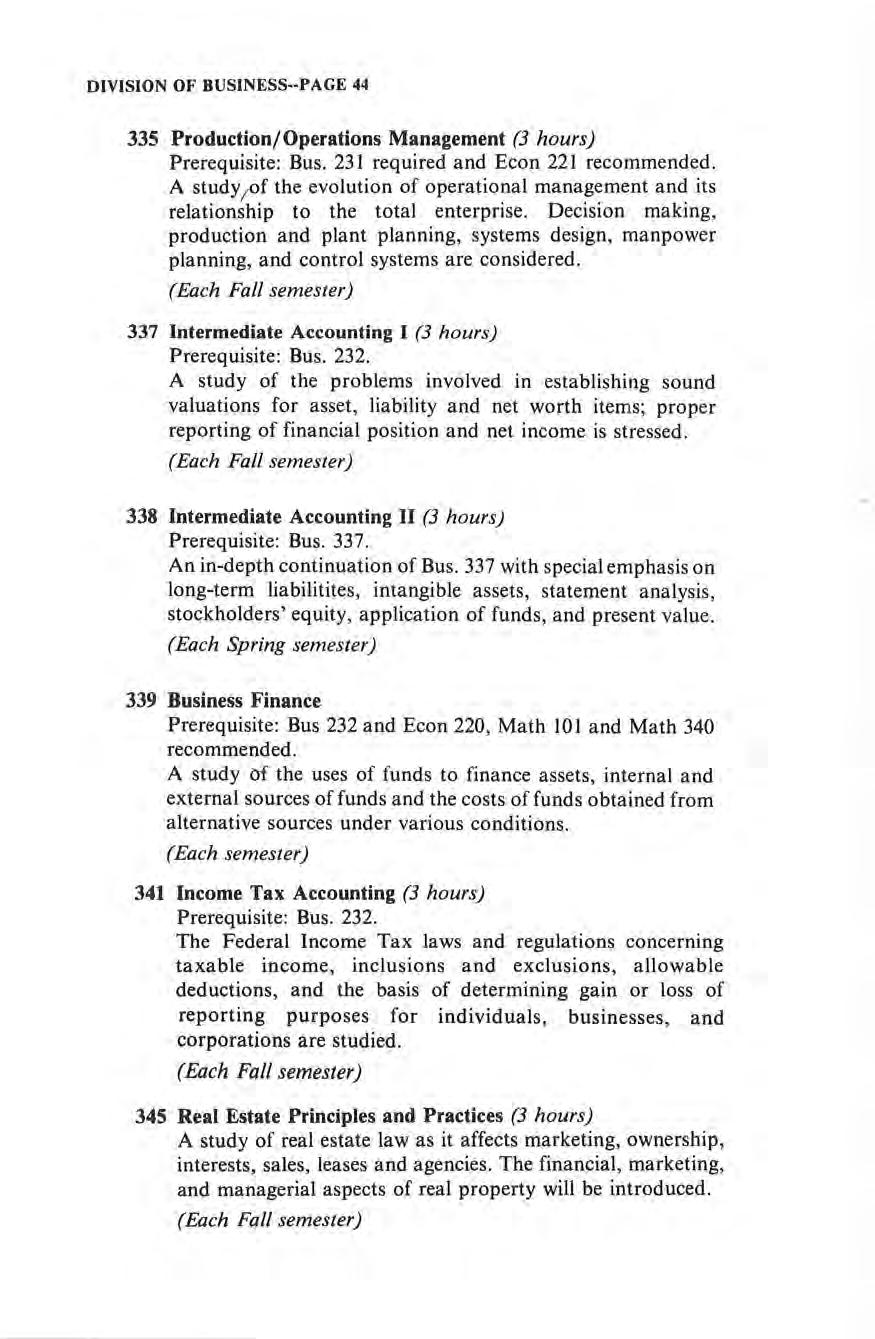
(Each semester)
341 Income Tax Accounting (3 hours)
Prerequisite: Bus. 232.
The Federal Income Tax laws and regulations concerning taxable income, inclusions and exclusions, allowable deductions , and the basis of determining gain or loss of reporting purposes for individuals , businesses , and corporations are studied.
(Each Fall semester)
345 Real Estate Principles and Practices (3 hours)
A study of real estate law as it affects marketing, ownership, interests, sales, leases and agencies . The financial, marketing, and managerial aspects of real property will be introduced.
(Each Fall semester)
350 Business Law I (3 hours)
A study of the source and origin of law and the legal rights and obligations of parties to a contract and to a sales contract as outlined in the Uniform Commercial Code.
(Each Fall semester)
351 Business Law II (3 hours)
A study of legal principles covering agencies, negotiable instruments , bailments, corportate and partnership laws.
(Each Spring semester)
360 Real Estate Finance (3 hours)
Prerequisite: Bus. 345.
A detailed analysis of the methods and techniques of financing the purchase of real estate. Areas of study include fund sources, analysis of mortgage risk, FHA underwriting, other Government influences and agencies , legal aspects, and the policies and procedures of lending institutions.

(Each Fall semester)
361 Real Estate Law (3 hours)
Prerequisite: Bus. 345.
A study of the legal implications of estates - land, deeds, leases, mortgages, easements, zoning ordinances, covenants , trespass, nuisance, licenses, invitees, and descendants' estates.
(Spring semester, odd years)
371 Cost/Managerial Accounting I (3 hours)
Prerequisite: Bus. 232.
Managerial planning and control are emphasized through internal accounting. Problem materials are used to aid in the understanding of operations and capital budgeting, standard cost, incremental concepts, relevant costs, transfer pricing, and the responsibility and profit center reports as a means of analysis.
(Each Fall semester)
372 Cost/Managerial Accounting II (3 hours)
Prerequisite: Bus. 371.
An advanced study of cost systems and their application to special problem areas. Problems are used to develop . an understanding of variance analysis, budgeting, and other quantitative techniques relevant to internal accounting.
(Each Spring semester)
373 Organizational Behavior (3 hours)
Foundations of the history, theory, and appl ications of organizational behavior including personality, stress , motivation, job design, goal setting, learning theory, behavior modification, group behavior, power, leadership, organizational structure, decision-making, and control.
(Each Spring semester)
410 Marketing Management (3 hours)
Prerequisite: Bus. 228.
An analysis of marketing principles from the manager's point of view and their application toward meeting various marketing objectives including the study of markets, consumers, advertising, personal selling, retailing, pricing, and distribution.
(Each Fall semester)
411 Problems in Distribution (3 hours)
Prerequisite: Bus 228.
A case study approach designed to instill the methods of marketing analysis for decision-making . Specific components include financial analysis, situation analysis, strategic planning components, problem and opportunity analysis , generation and evaluation of alternative marketing programs, defining measurable objectives, and marketing mix/ program decisions.
(Each Spring Semester)
412 Sales Management (3 Hours)
Prerequisite: Bus. 250 and Bus. 373 or permission. This study of a management position in a sales career includes an analysis of such tasks as recruiting, interviewing, and hiring salespeople . Other areas of study are training and motivating, compensation methods, assigning territories, and coordinating with other managers.
(Each Fall semester)
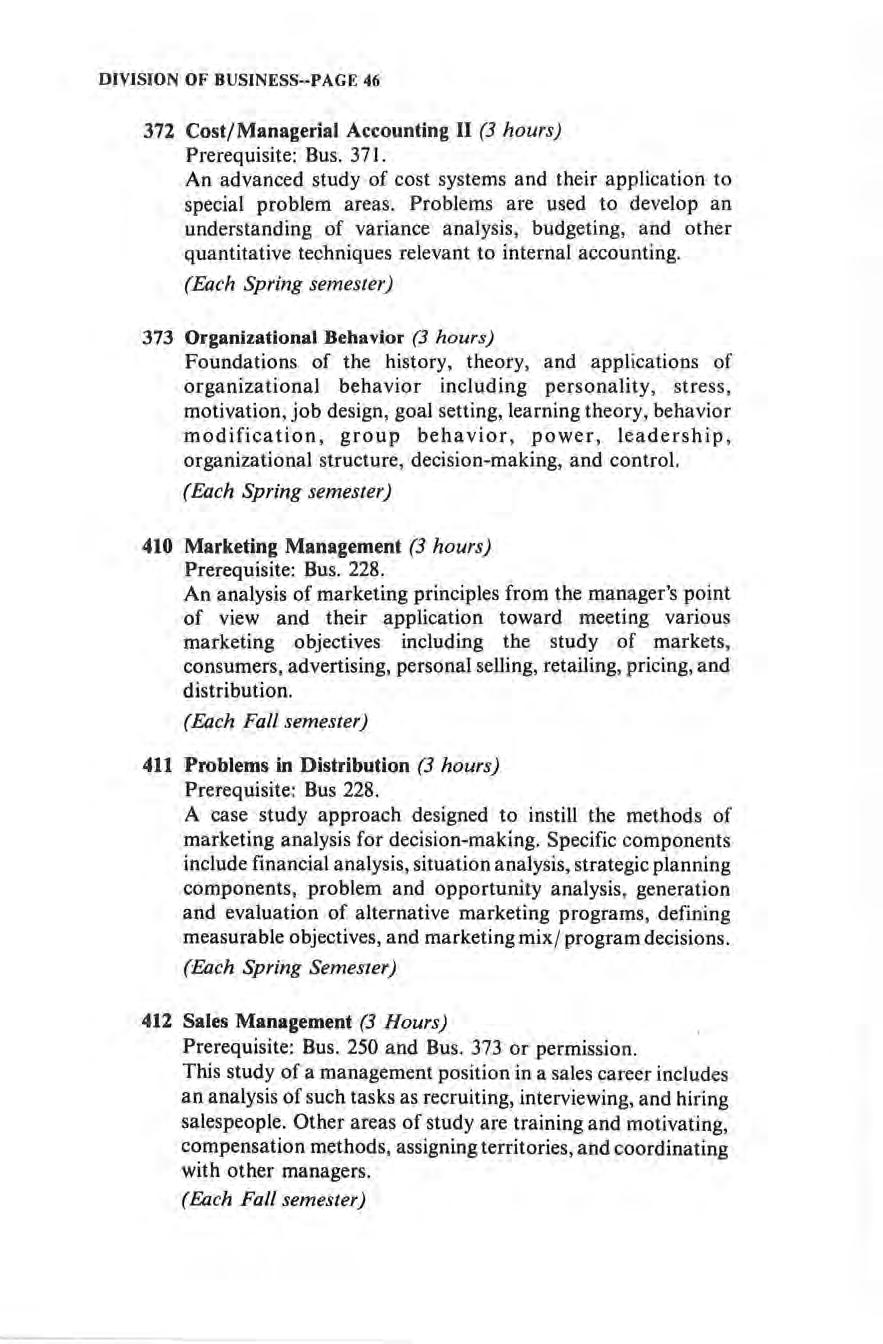
413 Purchasing (3 hours)
Prerequisite: Bus. 228.
The study of the procuring of industrial materials includes such topics as SIC codes, negotiated contracts, reciprocity, buying committees, and bidding procedures. Buying motives are studied as are procedures such as straight rebuying value analysis, inventory analysis and other topics from the buyer's viewpoint.
(Each Spring semester)
414 Supervisory Problems ·
Basis for effective supervision including worker motivation, leadership styles and practices, communications with workers, selection, promotion, compensation, training, counseling, evaluation, and discipline all within the confines of first line management.
(Offered as needed)
415 Credit Management (3 hours)
Prerequisite: Bus. 373
An in-depth study of the sources of credit information and the legal aspects of credit and collections for businesses.
(Fall semester, even years)
425 Methods of Teaching Business Subjects (2 hours)
Current methods of teaching typewriting, shorthand, bookkeeping, office practice and basic business are considered with the sources and uses of instructional aids emphasized.
(Each Spring semester)
430 Industrial Marketing (3 hours)

Prerequisite: Bus 228
Analysis of industrial distribution considering organizational consumers, demand, buying process, and strategies. Understanding planning, product lines, channels, logistics, pricing, and promotion.
(Each Fall Semester)
Prerequisite: Bus. 373
A study of the management of an office. Areas of st udy include location, layo.ut, equipment, supplies , automation , controlling expenses, measuring efficiency of operation, establishing quantity and quality production standard s, and the administration of personnel.
(Each Spring semester)
434
Prerequisite: Bus . 373
A study of the management of employees and the efficient use of human resources for both the personnel manager and the operating manager. Recruiting, motivating , compensating are considered along with the current laws, career development, unions, and other topics. Case studies are used extensively.

(Each Spring semester, Summer sessions)
Prerequisite: Business major and / or permission of instructor. This course is to be taken near the ending of formal college courses by students in the areas of management, marketing, accounting, finance, retail merchandising, and secretarial programs. Students may enroll for from 1-12 hours of credit upon the approval of the Division of Business. The learning situation is organized and supervised by the Business Division . A minimum of forty hours of work experience will be required for every hour of credit. Internship credit may also be obtained by the student taking a case in the Small Business Institute program. The student is to work in coordination with the Small Business Administration, a college business faculty member, and a job training station provided by the college or Small Business Administration. The student will do extensive research in a team effort and will prepare a re search paper. College credit for this internship will be from I to 3 hours. A maximum of 15 hours of credit in Bus. 441 is allowed to apply toward a Bachelors degree.
(Each semester; Summer sessions)
443 Quantitative Management (3 hours)
Prerequisite: Permission of instructor. The study of systems and management science. The course includes the development of analytical reasoning and set concepts, as well as such topics as decision processes, linear programming, waiting lines, stochastic processes, forecasting methods, inventory control, input / output analysis, and general modeling.
(Spring semester, odd years)
450 Advanced Accounting (3 hours)
Prerequisite: Bus. 338.
A detailed study of problems arising out of partnerships, combinations, installment sales, and the preparation of consolidated financial statements. Also includes home office and branch accounting, governmental and not-for-profit accounting .
( Each Fall semester)
470 Auditing Principles (3 hours)
Prerequisite: Bus. 338 and 371 or by permission. Generally accepted auditing standards and procedures with the philosophy supporting them. Auditing techniques available to the independent public accountant are also studied.
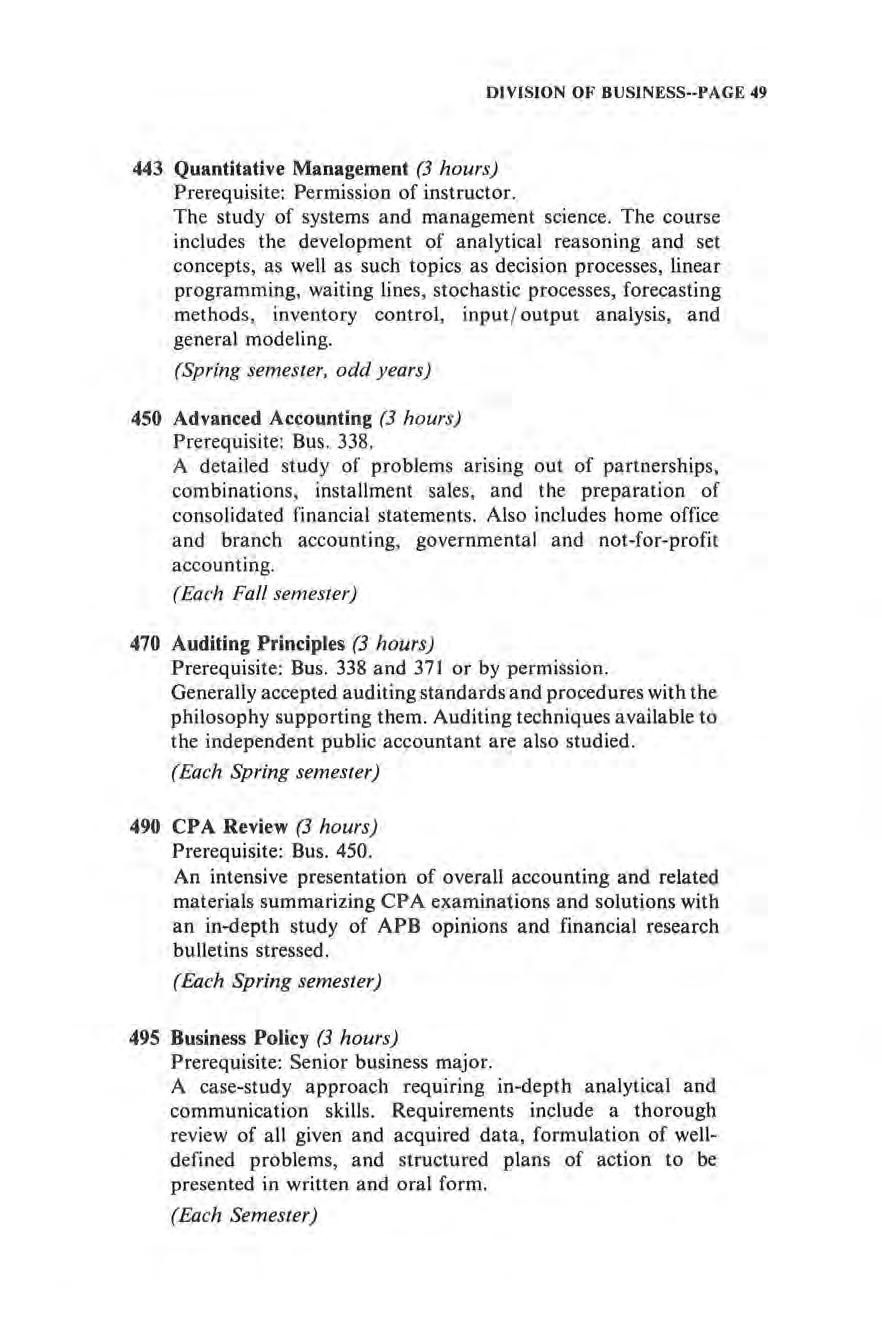
(Each Spring semester)
490 CPA Review (3 hours)
Prerequisite: Bus. 450.
An intensive presentation of overall accounting and related materials summarizing CPA examinations and solutions with an in-depth study of APB opinions and financial research bulletins stressed.
(Each Spring semester)
495 Business Policy (3 hours)
Prerequisite: Senior business major. A case-study approach requiring in-depth analytical and communication skills. Requirements include a thorough review of all given and acquired data, formulation of welldefined problems, and structured plans of action to be presented in written and oral form.
(Each Semester)
497 / 597 Consultantship (3 hours)
Prerequisites: Senior business standing and permission of NBDC director is required. This course provides the student with an opportunity to apply theory in a business environment. A general business analysis is conducted by the student and specific recommendations are reported to the management of the firm.
498 Special Topics in Business (1-4 hours)
Junior-Senior standing
(Offered as needed)
499 Independent Study in Business (1-3 hours)
Prerequisite: Junior standing; Permission of the instructor and prior approval of chairperson.
(Each semester)
220 Principles of Economics I (3 hours)
Elementary concepts of macroeconomic s with an emphasis on equilibrium analysis, monetary and fiscal policy, banking and developmental economics .
(Each Spring semester; Summer sessions)
221 Principles of Economics II (3 hours)
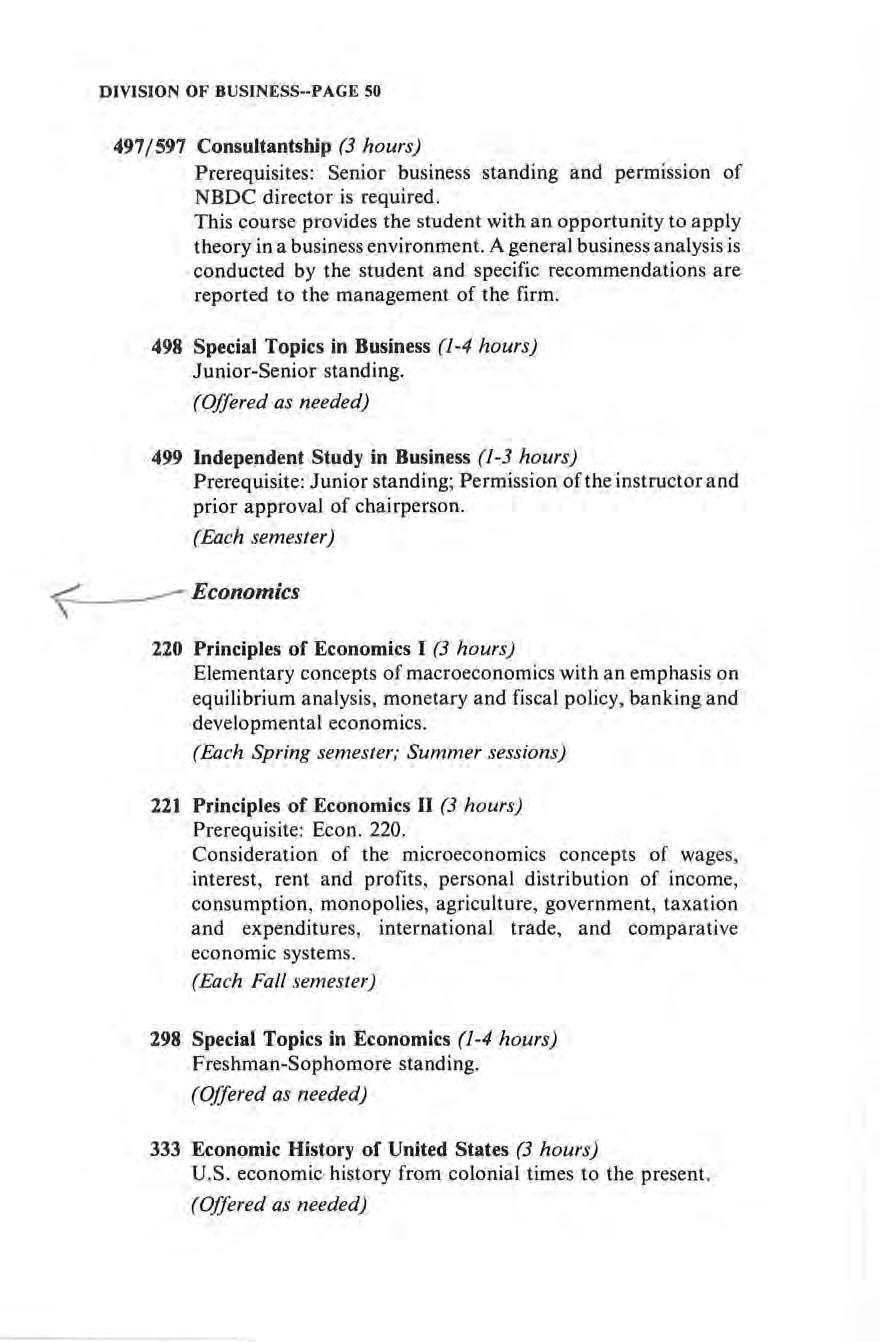
Prerequisite : Econ. 220 .
Consideration of the microeconomics concep t s of wages , interest, rent and profits, personal distribution of income, consumption , monopolies, agriculture, government, taxation and expenditures , international trade, and comparative economic systems .
(Each Fall semester)
298 Special Topics in Economics (1-4 hours)
Freshman-Sophomore standing. (Offered as needed)
333 Economic History of United States (3 hours)
U .S. economic history from colonial times to the present. (Offered as needed)
346 Money and Banking (3 hours)
Prerequisite : Econ. 220.
A study of the origins and present roles of our monetary system , credit, commercial banking and the Federal Reserve System. The course is organized for students whose principal interest lies outside of going into bank management.
(Each Spring semester)
350 Public Finance (3 hours)
Prerequisite: Econ . 220 and 221. The role of government in the economy as it pertains to raising revenue, expenditures , regulations, and income redistribution is studied.
(Offered as needed)
375 Labor and Industrial Relations (3 hours)
Prerequisite : Economics 221. Labor, management and government as they involve collective bargaining, labor laws, and wage theories .
(Each Fall semester)
498 Special Topics in Economics (1-4 hours)

Prerequisite : Junior-Senior standing.
(Offered as needed)
499 Independent Study in Economics (1-3 hours)
Prerequisite : Junior standing.
(Each semester)
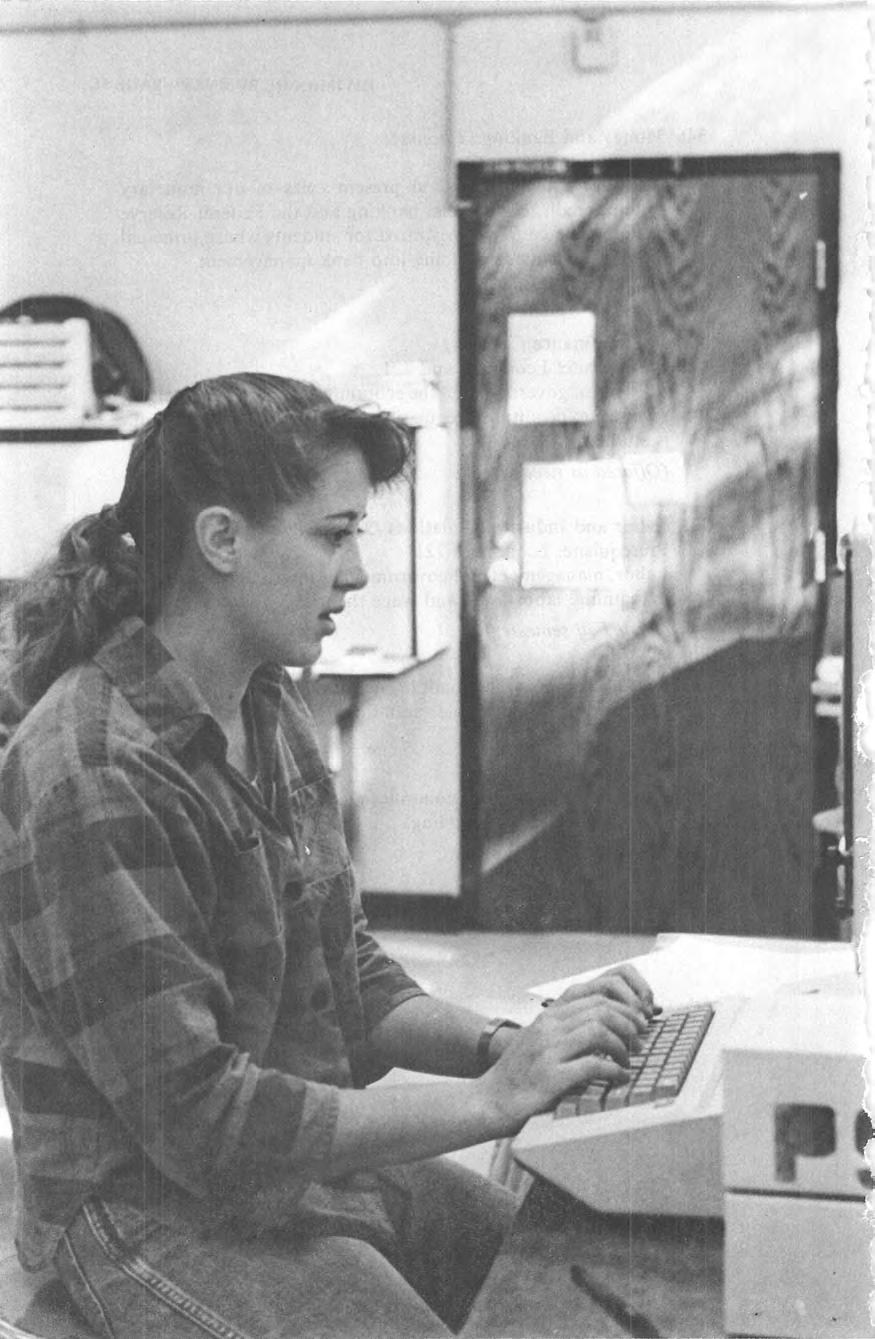
Professors: Divney, Ferre, Hanson
Associate Professors: Citrin, Davidson, Egan, Gilmore, Hytrek, Thorpe
Instructors: Cox, Gibbs, Jensen, Newman, Shea, Wyczawski
The Division of Education and Psychology provides teacher preparation programs in accordance with the Nebraska Department of Education. The Nebraska Department of Education requires that individuals seeking teacher certification be qualified for certification in either one field or two subjects. Subjects and field are defined as follows:
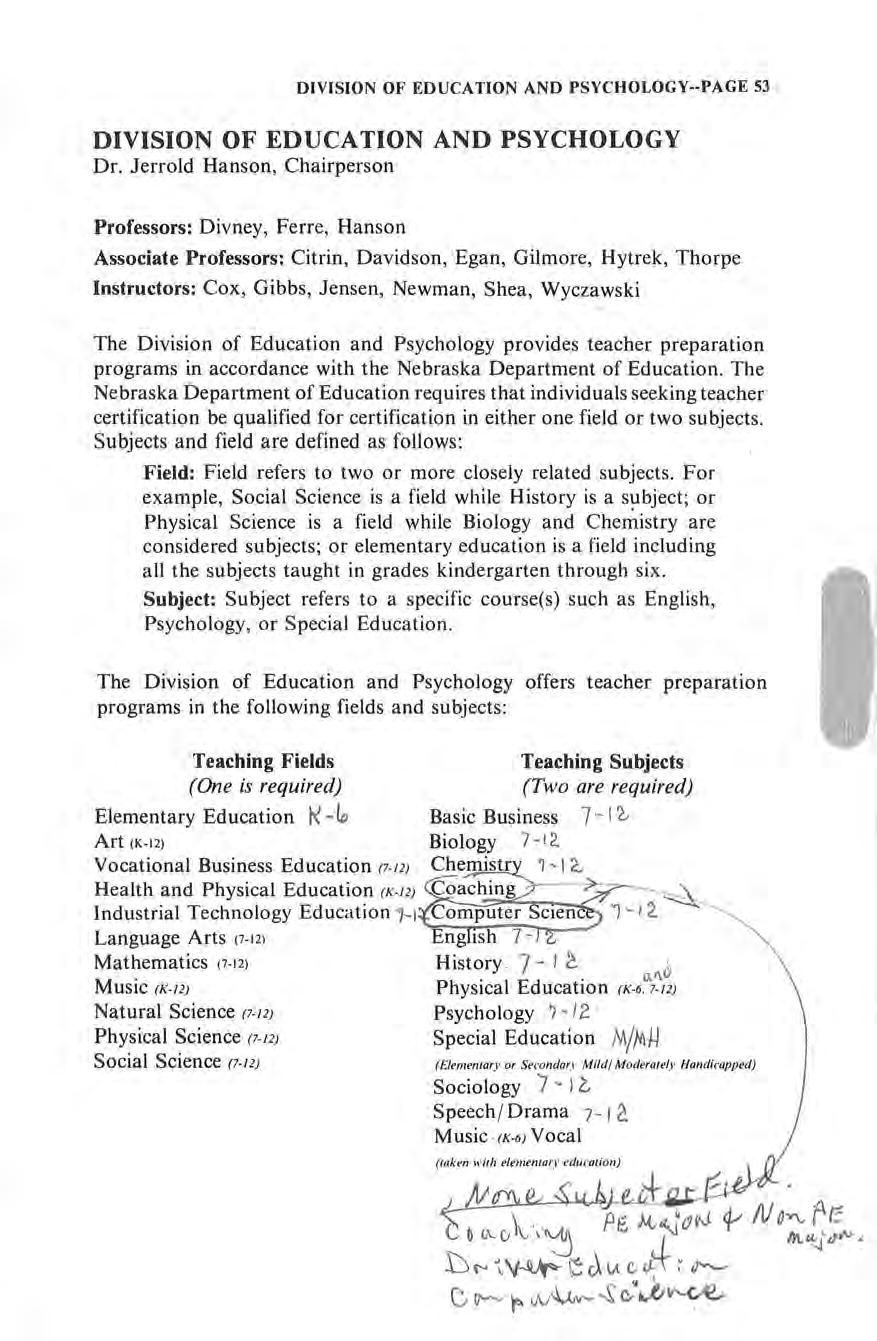
Field: Field refers to two or more closely related subjects. For example, Social Science is a field while History is a subject; or Physical Science is a field while Biology and Chemistry are considered subjects; or elementary education is a field including all the subjects taught in grades kindergarten through six.
Subject: Subject refers to a specific course(s) such as English, Psychology, or Special Education
The Division of Education and Psychology offers teacher preparation programs in the following fields and subjects:
Teaching Fields (One is required)
Teaching Subjects (Two are required)
Elementary Education ix-lo
Art <K-12>
Vocational Business Education r 1- 12J
Health and Physical Education (K - 12J
Industrial Technology Education j-1
Language Arts c1-12)
Basic Business 7 I 'lBiology 7- 12. Chemistr , ~ I G ....,,.--,.~-,;-,..,__,,, Mathematics 0-12> History . 7 - I b
Music rK-12J
Physical Education (K-6,'\~2J
Natural Science r1-12J Psychology ') 12. ·
Physical Science r1-12J
Special Education M/M.J.J
Social Science (7-12) (Efemel!lary or Secondarr Mild / M odera,e/y Handicapped)
Sociology 7 l Z, Speech / Drama 7 - I 2.
Music . (K-6J Vocal
Additional teaching endorsements in Computer Science , Coaching and Driver's Education are available with any of the above areas. The Division also offers a two year program in Early Childhood Education leading to the Associate of Arts degree; however, this is not a teacher certification program.
For complete information regarding teacher education requirements and teacher certificatio n , contact the Director of Teacher Education at Peru State Co llege or the Director of Teacher Certification, State Department of Educ a tion, Lincoln, Nebraska 68505.
Admission to Peru State College does not automatically permit admission to teacher education. Students planning to enter teacher education are required to file a formal application with the Teacher Education Committee.
Application for admission to teacher education will be made during the sophomore year in conjunction with enrollment in Psych. 205: Educational Psychology. Students who transfer credit which includes this course will be required to make application during their first semester on campus.
The following criteria and conditions must be met by applicants for admission to teacher education:
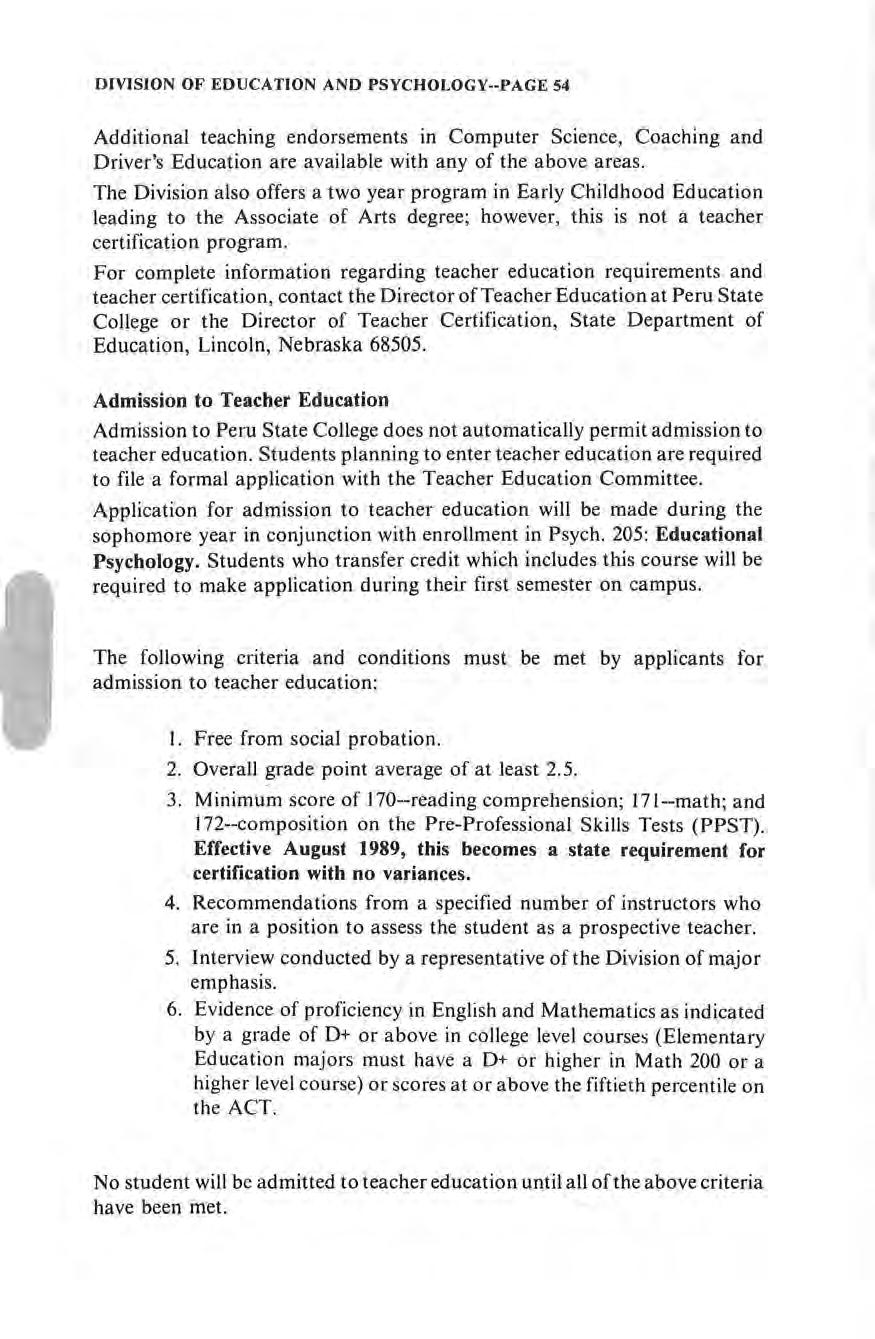
I. Free from social probation.
2. Overall grade point average of at least 2. 5.
3 . Minimum score of 170--reading comprehension; 171--math; and 172--composition on the Pre-Professional Skills Tests (PPST). Effective August 1989, this becomes a state requirement for certification with no variances.
4. Recommendations from a spec ified number of instructors who are in a position to assess the student as a prosp ective teacher.
5. Interview conducted by a representative of the Division of major emphasis.
6. Evidence of proficiency in English and Mathematics as indicated by a grade of D+ or above in college level courses (Elementary Education majors must have a D+ or higher in Math 200 or a higher level course) or scores at or above the fiftie t h percentile on the ACT.
No student will be admitted to teacher education until all of the above criteria have been met.
After consideration by the Teacher Education Committee , the applicant will be approved or disapproved for admission to teacher education. Applicants approved for admission will be notified by letter from the Teacher Education Committee. Applicants not approved for admission to teacher education and their advisors will be notified of the reasons for disapproval by the Teacher Education Committee. Applicants may request a review of the application and / or a hearing before the Teacher Education Committee .
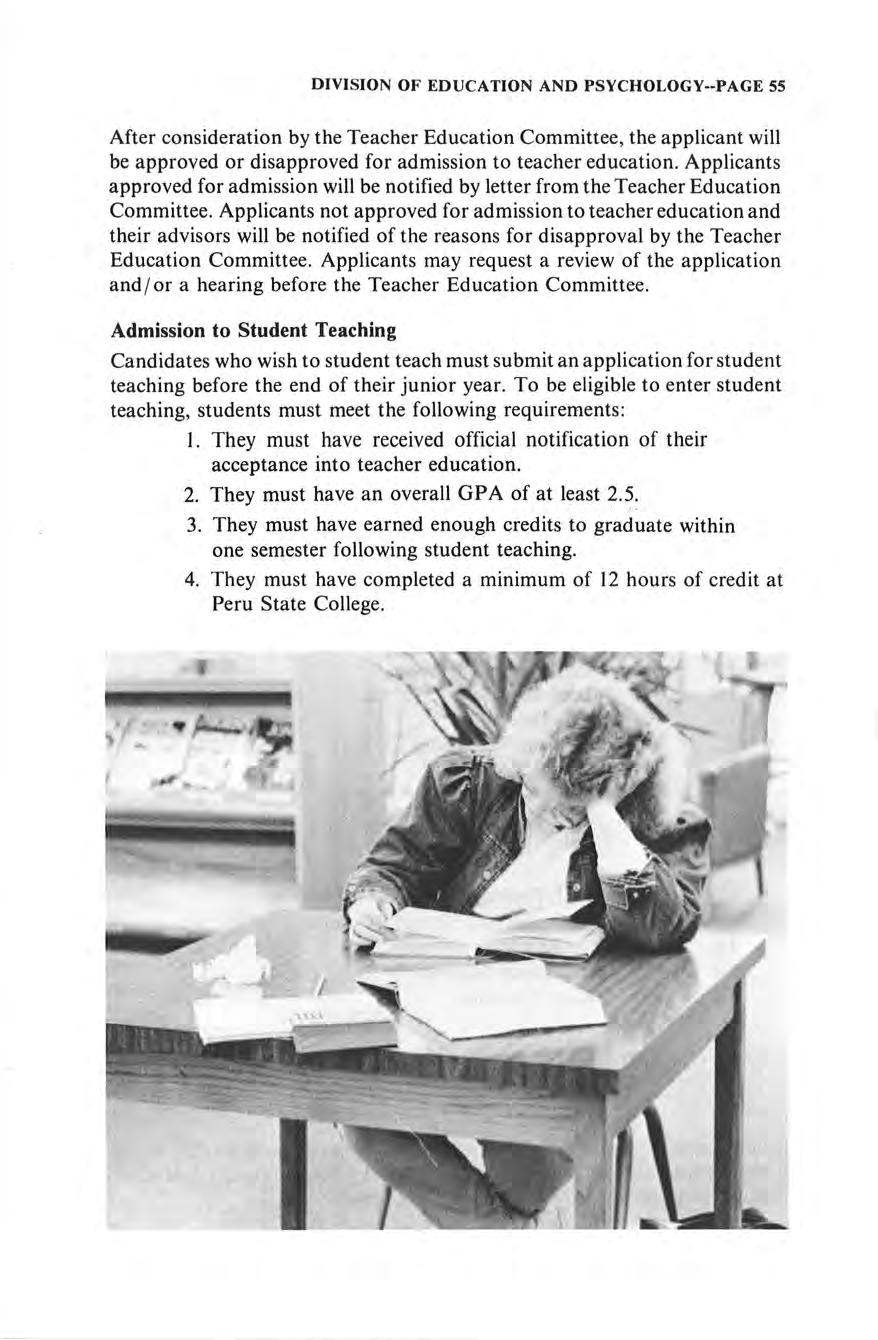
Candidates who wish to student teach must submit an application for student teaching before the end of their junior year. To be eligible to enter student teaching, students must meet the following requirements:
I . They must have received official notification of their acceptance into teacher education.
2. They must have an overall GPA of at least 2 .5.
3 They must have earned enough credits to graduate within one semester following student teaching.
4 They must have completed a minimum of 12 hours of credit at Peru State College.
Persons successfully completing this program will be endorsed to teach children in all elementary subjects in kindergarten through grade 6, and in kindergarten through grade 8 in Class I schools.
(Admittance to Teacher Education is required before a student can advance to Leve l II)
In addition to the above requirements, students must complete the Peru State College general studies requirements and distribute courses among American Studies (literature, culture, history or government).
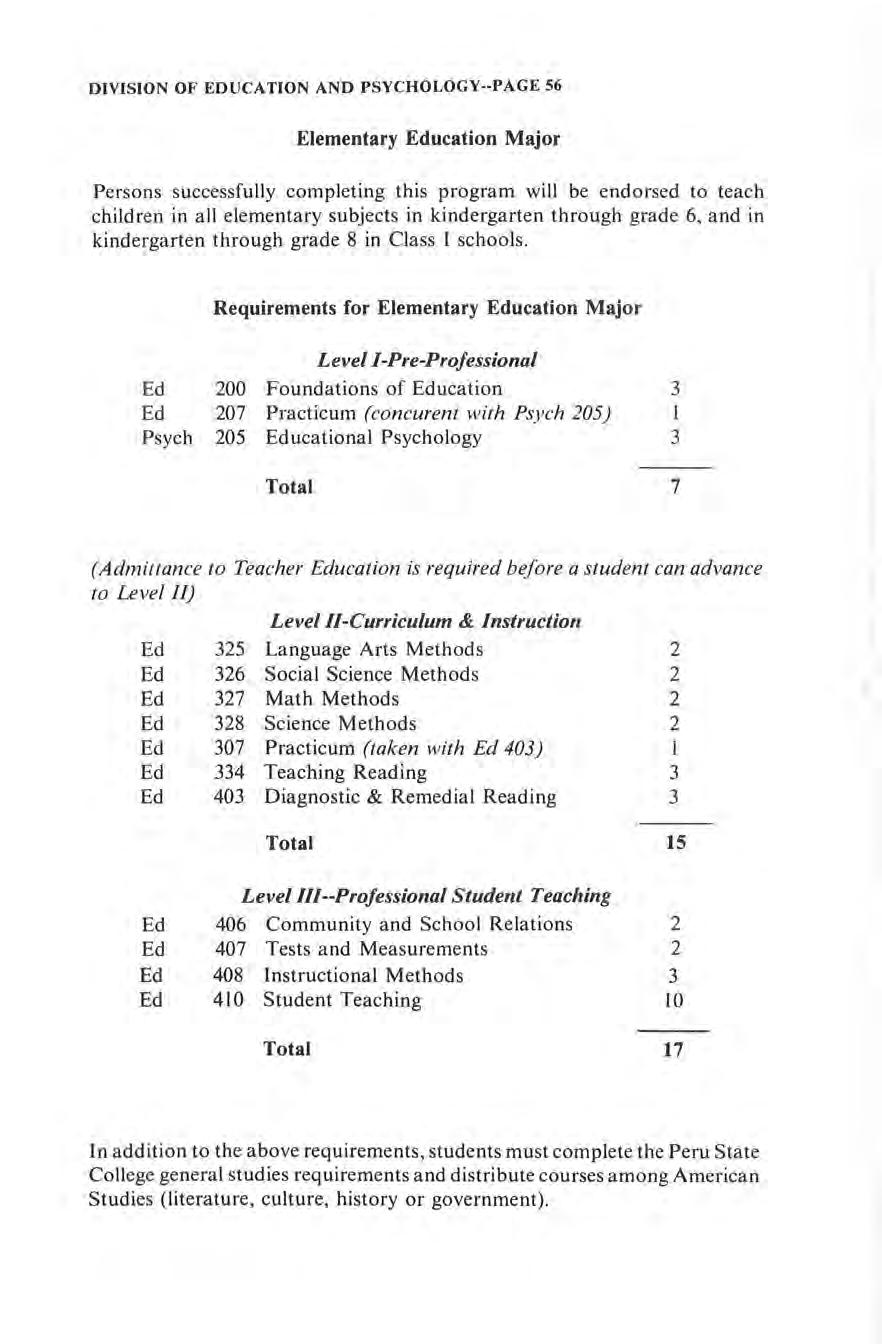
Elementary Education candidates are required to successfully complete the following courses:
Eng 203 Children's Literature
Math 200 Basic Concepts of Math

Art 308 Art Exploration
*Mus 111 Fundamentals of Music
251 Elementary Music Methods
PE 310 PE in the Primary Grade~
or 6 Jv!E
311 PE in the Intermediate Grades
Total
3 3 3
J2 2 2 13-15
Elementary Education candidates must earn 24 semester hour s in one of the following concentrations and 15 hours in each of two additional areas commonly taught in elementary schools. Courses taken in the general studies program may be counted toward satisfying this requirement. An endorsement in Special Education may also be substituted for the 24 hour block.
A. Language Arts
B. Math and Science
C. Social Sciences
D. Fine Arts
*This course may be waived for students with a strong music background who make an acceptable score on the appropriate institutional exa mination.
Fa ll Semes t er
LSci 100 Introduct io n to Media
Eng IOI English Composition
Spe h 152 Fund a mental s of Speec h
Psy 121 Int ro. to Psyc ho logy
Social Le arning general s tudi es
e lec t ive•
Fa ll Semes te r
Psy 205 Educationa l Psyc h o logy
GSc i 20 I Biological Sc ience
Mu s 11 1 Fundamental s of Music
PE 3 10 PE in the Primar y G rades or
PE J 11 PE in the Intermediate G rades
Socia l Le arning General Studies
elective•
PE 205 Health Education
H ours I 14
S pring Se m ester
Math 200 Basic ConL"epts of Math
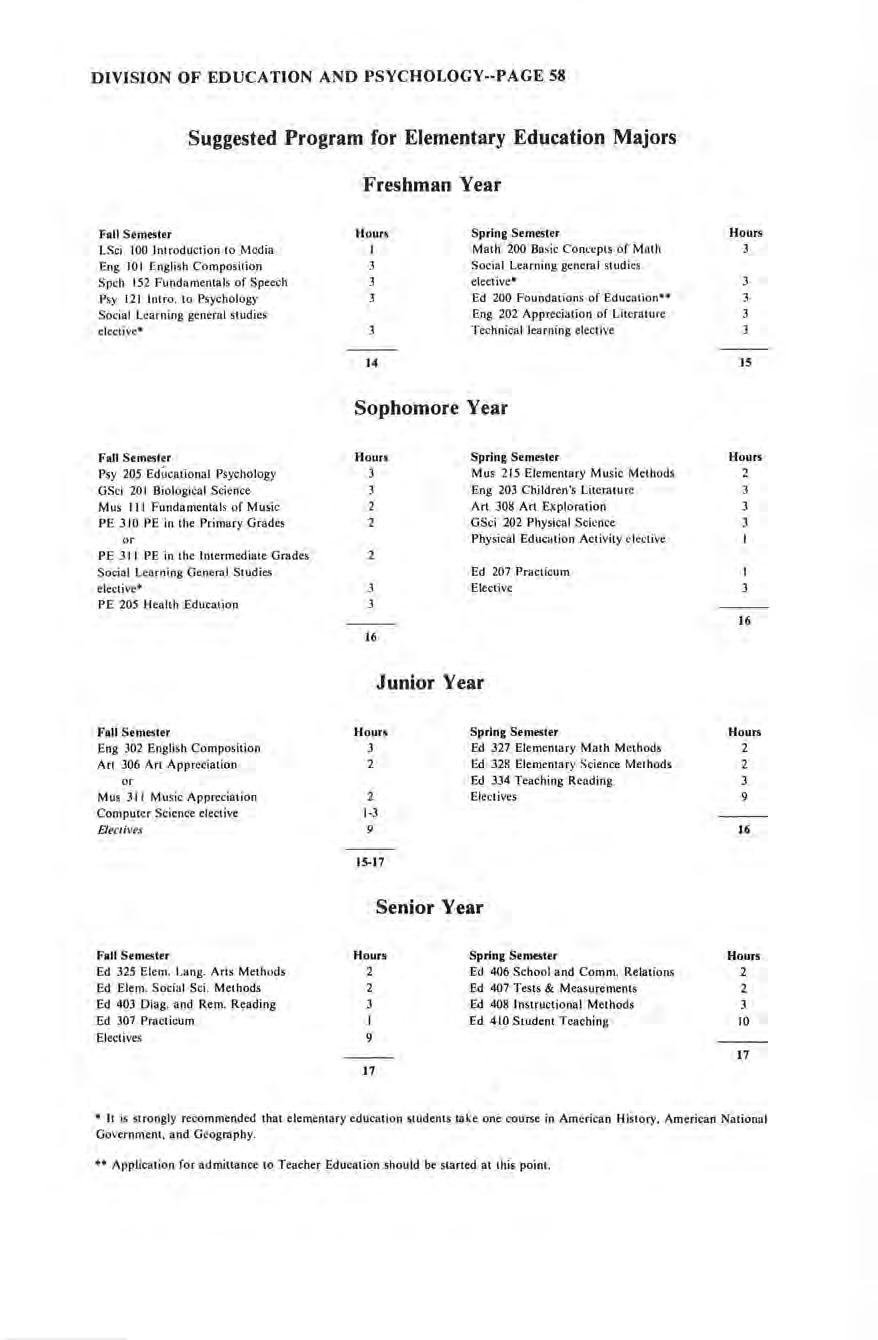
Social Lea rni ng general studi es
e lective•
Ed 200 Foundation s of Education••
Eng 202 Appreciatio n of Li te rature
Technical learni ng e lective
Hours
Sp ring Se mester
Mus 215 Elementary Mu sic Methods
Eng 203 Chi ldren's L it erature
Ar t 308 Art Exp lora ti on
GSci 202 Physical Sc ience
Physical Educ a ti on Activity e lective
Ed 207 Practicum
E
Fall Se meste r
Eng 302 Eng li sh Com pos iti o n
Art 306 Art Appreciation
or
Mus 311 Music Apprecia ti o n
Compu te r Sc ience e lect ive
Elec tives
Fa ll Semester
Ed 325 E lem. Lang. Arts Me th ods
Ed Elem. Social Sci. Methods
Ed 403 Diag. and Rem. Reading
Ed 307 Prac ticum Elect
• It is strong ly reco mm ended that e lementary education students take one course in American H is tory , America n Nationa l Go vernment , an d Geograp h y.
•• Appl ica t io n for admittance to Teache r Ed ucation shou ld be s t arted a t this point.
This progrart!\ for individuals seeking endorsement to teach in grades 7 through 12 L-.t\ 0-- - I , $e_ t, Y-.. OJ'f.,~ p~)
(Admittance to Teacher Education is required before a student can advance to Level II)
In addition to the above requirements, students must complete the Peru State College general studies requirements and distribute courses among American Studies (literature, culture, history, or government) .

Peru State College offers programs to prepare individual s to teach from kind e rgarten through the twelfth grade in the areas of Art, Music, and Health and Physical Education .
Students working toward K-12 certification must meet the same requirement s and follow the same professional teacher education program as secondary education candidates with the exception of student teach i ng which must include experiences with both elementary and secondary students.
Special Education-Mild/Moderately Handicapped (Elementary or Secondary)
This program prepares individuals to teach mild / moderat ely handicapped students . It may be used in lieu of the 24 hour block requirement in elementary education or as one of the subject areas in secondary education. The c urriculum follows the program for elementary or secondary teachers and requires the following courses:
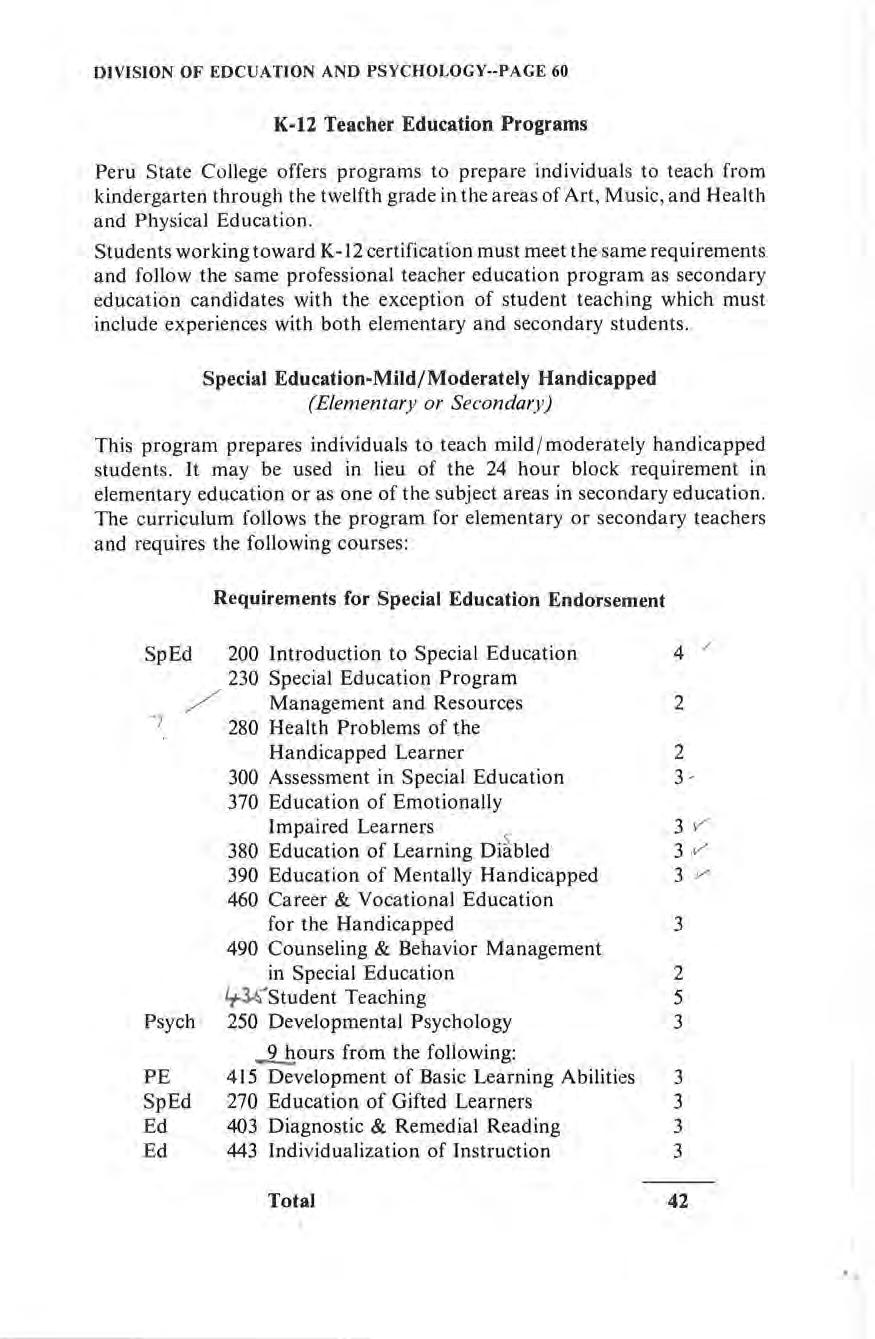

The field endorsement in Health and Physical Education (K-12) will meet state re quirements to teach both Health and Physical Education.

Freshman Year
Fall Semeste r
PE 201 Principles of Physical Education
PE 216 Minor Sports
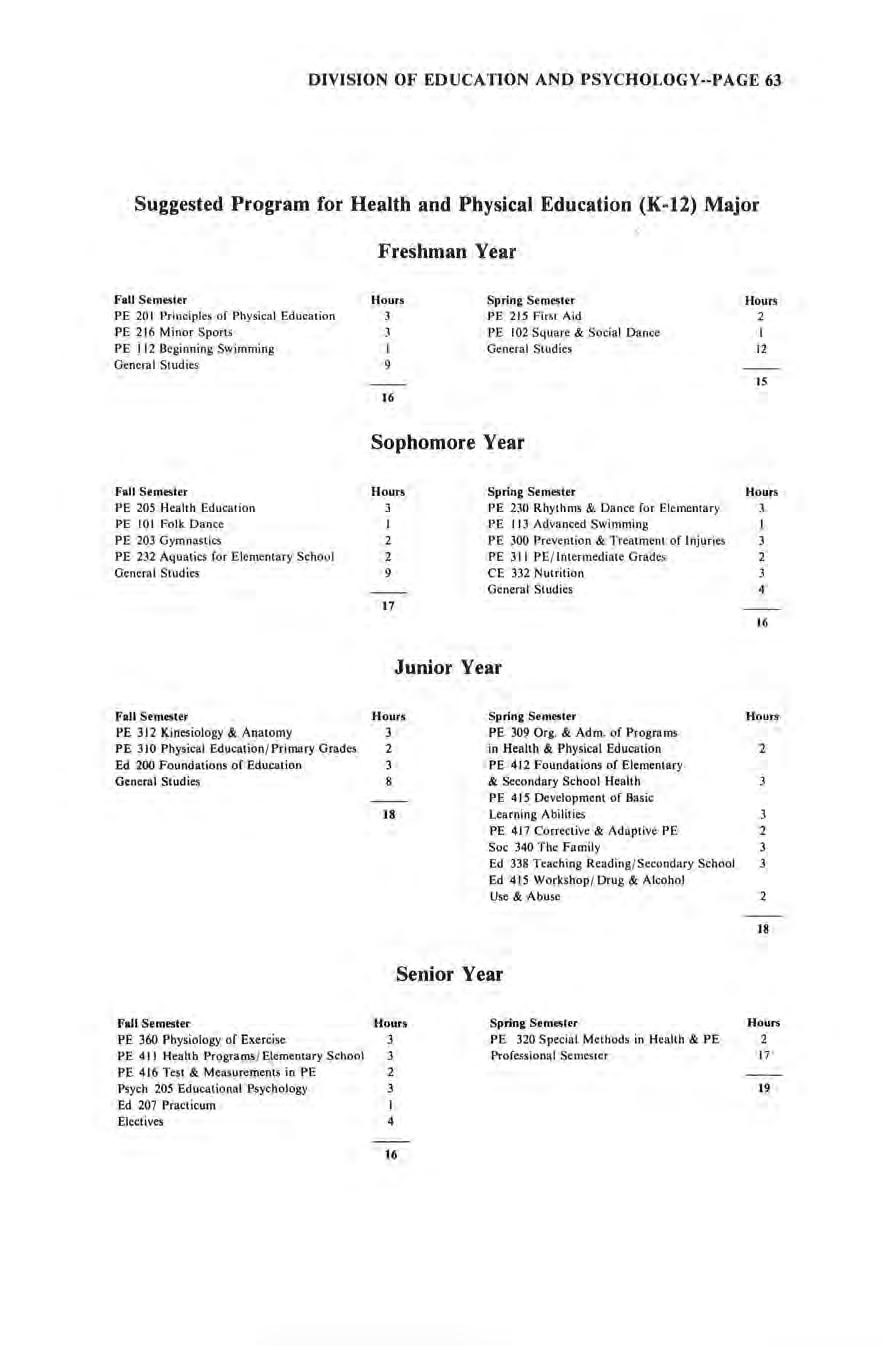
PE 112 Beginnin g Swi mmin g General Studies
Hours 16
Spr ing Se mester
PE 215 First Aid
PE 102 Square & Social Dance
Genera l Stud ies
Sophomore Year
Fall Semester
PE 205 Health Education
PE IO I Fo lk Dance
PE 203 Gymnastics
PE - 232 Aquatics for Elementary Sc ho ol
Hours 17
S pring Semester
PE 230 Rhythms & Dance for Elementary
PE I 13 Advanced Swimm ing
PE 300 Pre ve ntion & Treatment of Injuri es
PE 3 11 PE/Intermediate Grade s
CE 332 Nutrition
General Studies
Junior Year Fall
S pring Semester
PE 309 Org & Adm. of Programs in Health & Physica l Education
PE 412 Foundations of Elementary & Secondary School Health
PE 415 Development of Basic
Learning Abilities
PE 417 Corrective & Adaptive PE
Soc 340 The Family
Ed 338 Teaching Reading / Secondary School
Ed 415 Workshop / Drug & Alcohol Use & Abuse
Senior Year
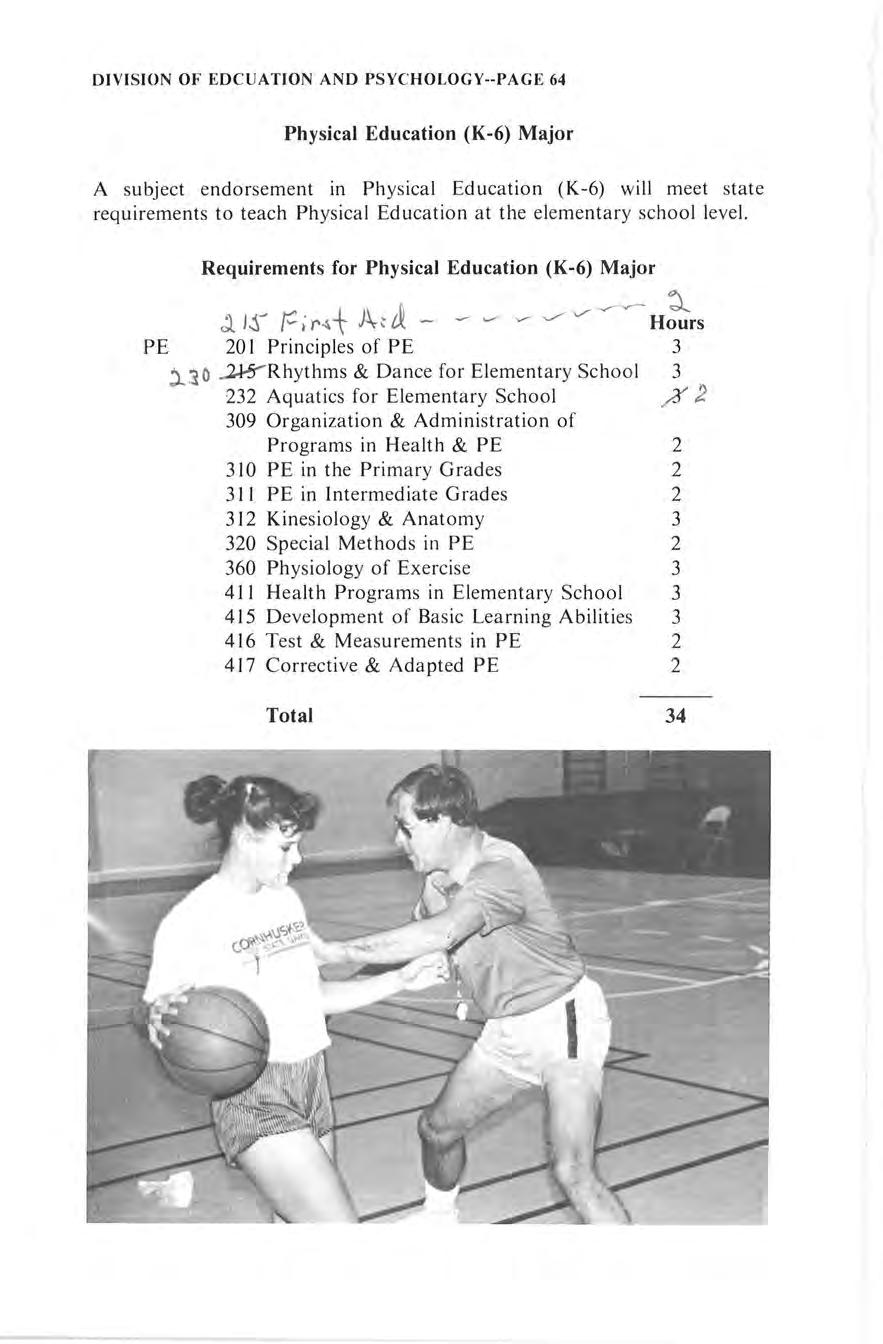
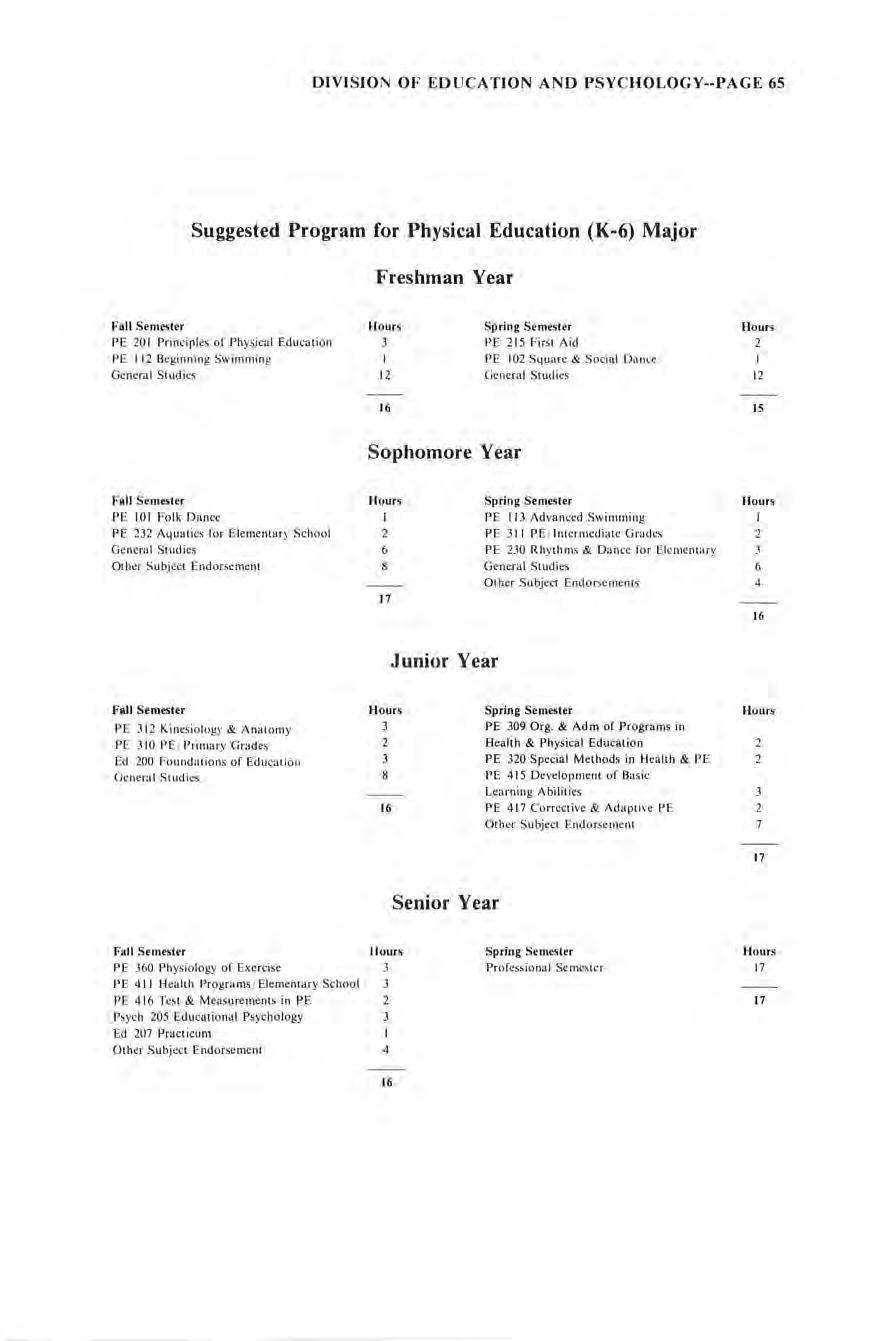
Freshman Year
Fa ll S e m es t e r
P E 20 1 P ri nc ip les o f Ph ys ical Edu ca tion
P E 11 2 Beg innin g Swim ming
Genera l S tudi es
H ours 12 16
Spr in g Se m es t e r
PE 2 15 Fi rs t A id
PE 10 2 S quar e & Soc ia l Dan ce
General S tu dies
Sophomore Year
Fa ll Semes ter
PE IOI Fo lk Danc e
P E 23 2 Aquati cs for E le mentar y Sch o o l
Ge ne ra l S tudi es
Oth er S ubj ec t End o rse ment
Hours 17
Spr ing Se mester
PE 11 3 Advan ce d Swimmin g
PE 3 11 PE /I nt e rm ediat e G rad es
PE 230 Rh y thm s & Da nce fo r E le me ntar y
Ge n e ra l S tudi es
Other S ubj ec t End o rse me nt s
Junior Year
Fa ll Semester
P E 3 12 Ki ncs io lo gy & A nat o m y
P E 3 10 PE / Primar y Grad es
Ed 200 Fo undation s of Edu cation
Ge n e ral S tudi es
H o ur s 16
Spr ing Se meste r
PE 309 O rg & Adm of Program s in
Health & Ph ys ica l Edu cation
PE 320 S pecial Method s in Hea lth & P E
PE 4 15 Deve lopm e nt o f Ba s ic
Learning Abi liti es
PE 4 17 Co rr ec ti ve & Adapti ve P E
Oth e r S ubj ec t End o rse mc nl
Fa ll S emeste r
P E 360 Ph ys io lo gy o f Exe rc ise
P E 41 1 Healt h Pro g ram s / El e mentar y Sc ho o l
P E 4 16 T es t & Mea s urement s in PE
Psyc h 20 5 Edu cationa l Ps ycho logy
Ed 20 7 Pr ac ti cum
Oth er S ubj cc l Endor se ment
Senior Year ll
Physical Education (7-12) Major A subject endorsement in Physical Education (7-12) will meet state requir e ments to teach Physical Education at the junior and senior high school levels.
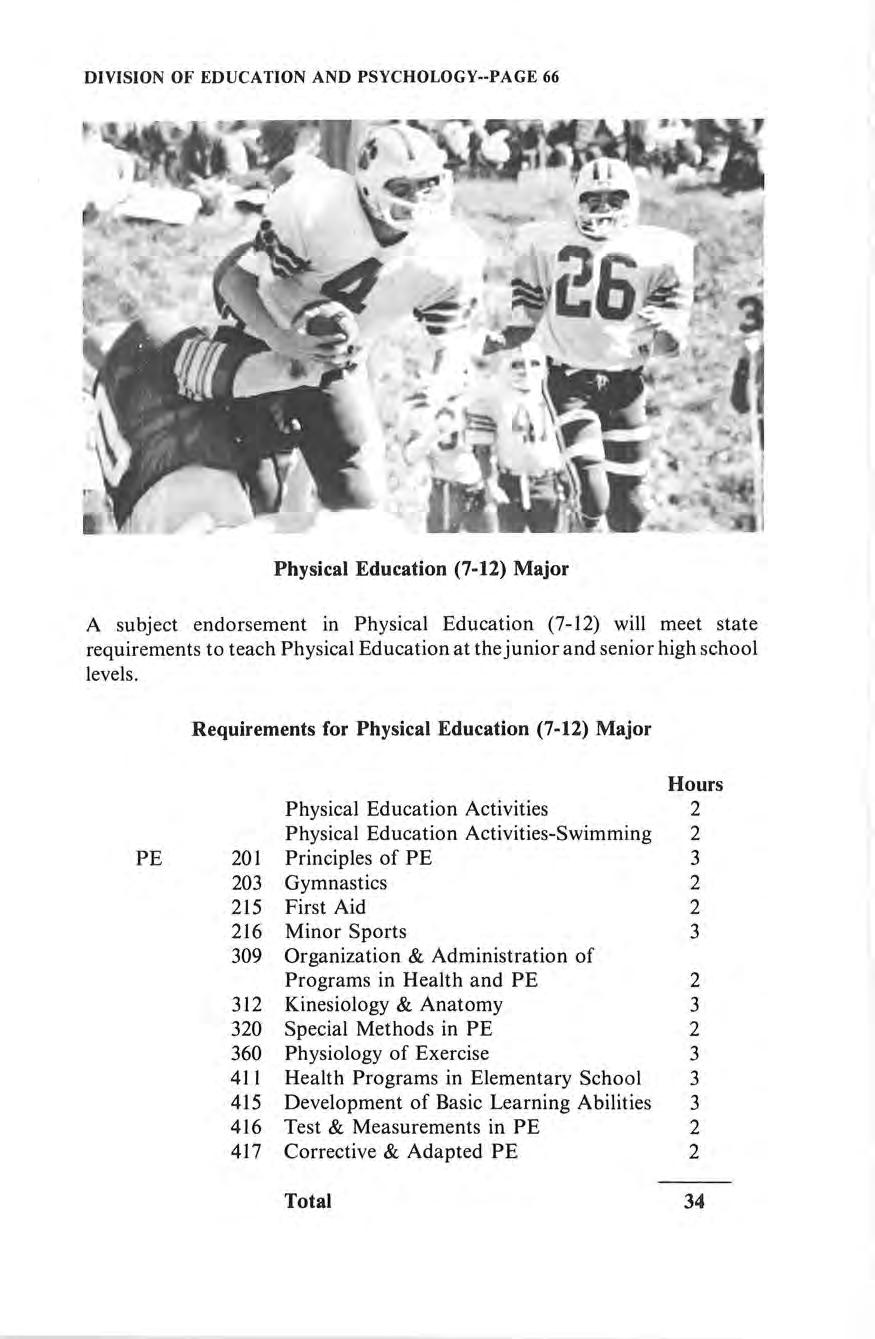

Fall Se mester
PE 201 Principles of PE
PE 11 2 Be ginning Swimming General Studies
Fa ll Se mester
PE JOI Folk Dance
PE 203 Gymnastics
PE 2 16 Minor Sports
Gen era l Studies
Other Subjec t Endo rsement
Fa ll Semeste r
PE 312 Kinesiology & Anatomy
200 Foundations of Education
PE
PE 415 Development of Ba s ic
PE 417 Corrective & Adaptive PE
Ed 338 Teaching Secondary School R eading
Other S ubje ct Endorseme nt
PE 411
PE
The following program is provided for those students interested in coaching interscholastic sports. It is designed to fit the needs of the high school coach and leads to an institutional recommendation for endorsement. Students completing this program are required to have a major in Physical Education
The following program is provided for those students interested in coaching interscholastic sports and who do not have a major in Physical Education. It is designed to fit the needs of the high school coach and leads to an institutional recommendation for endorsement. Students completing this program are required to have a major in an area other than Physical Education.
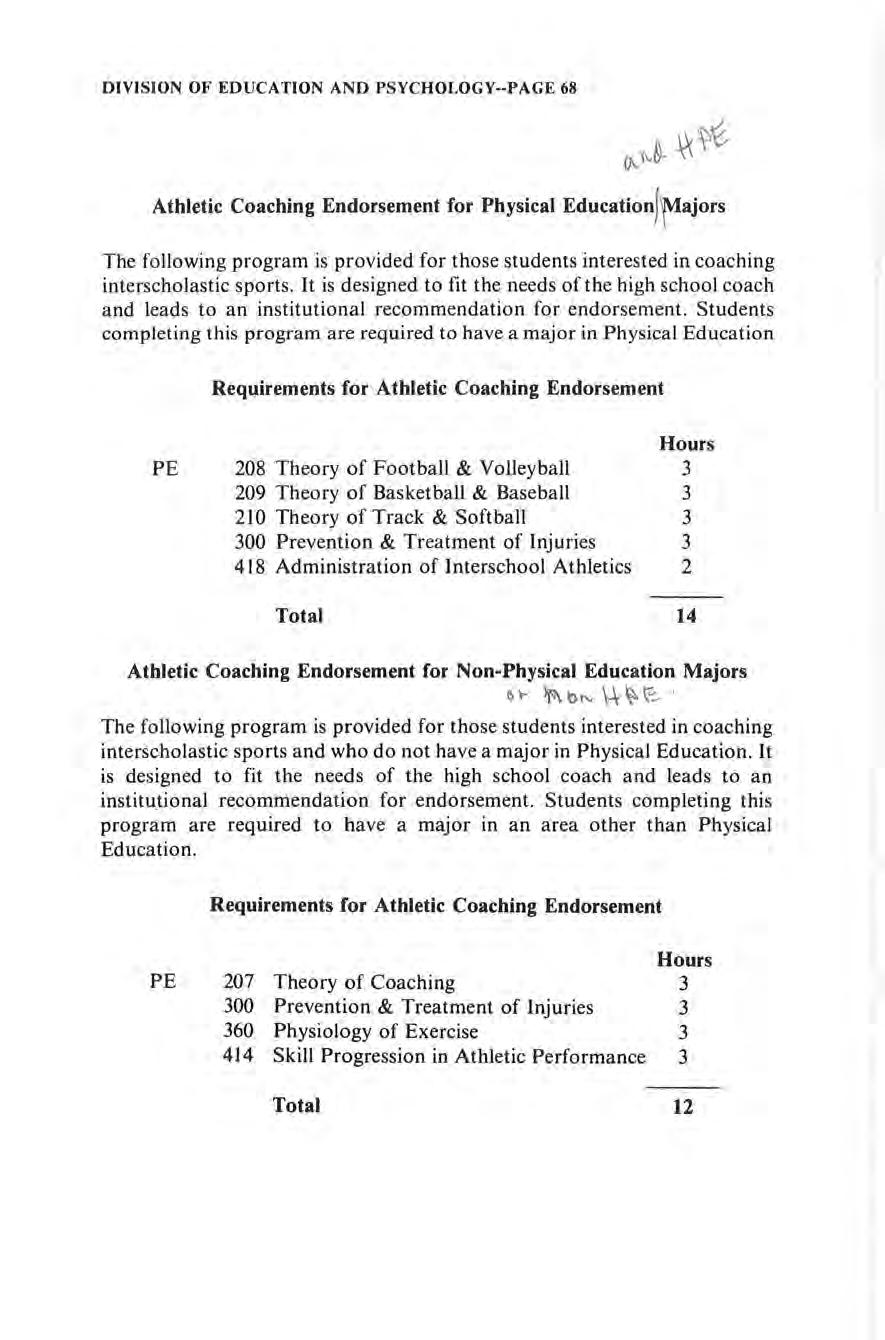
200 Foundations of Education (3 hours)
Foundations of Education refers to a broadly-conceived field of study that derives it characters and fundamental theories from a number of academic disciplines , combinations of disciplines, and area studies such as History , Philosophy , Socio logy , Anthropology, Religion , Political Science, Economics, Psychology, comparative and international education, educational studies , and educational policy studies.
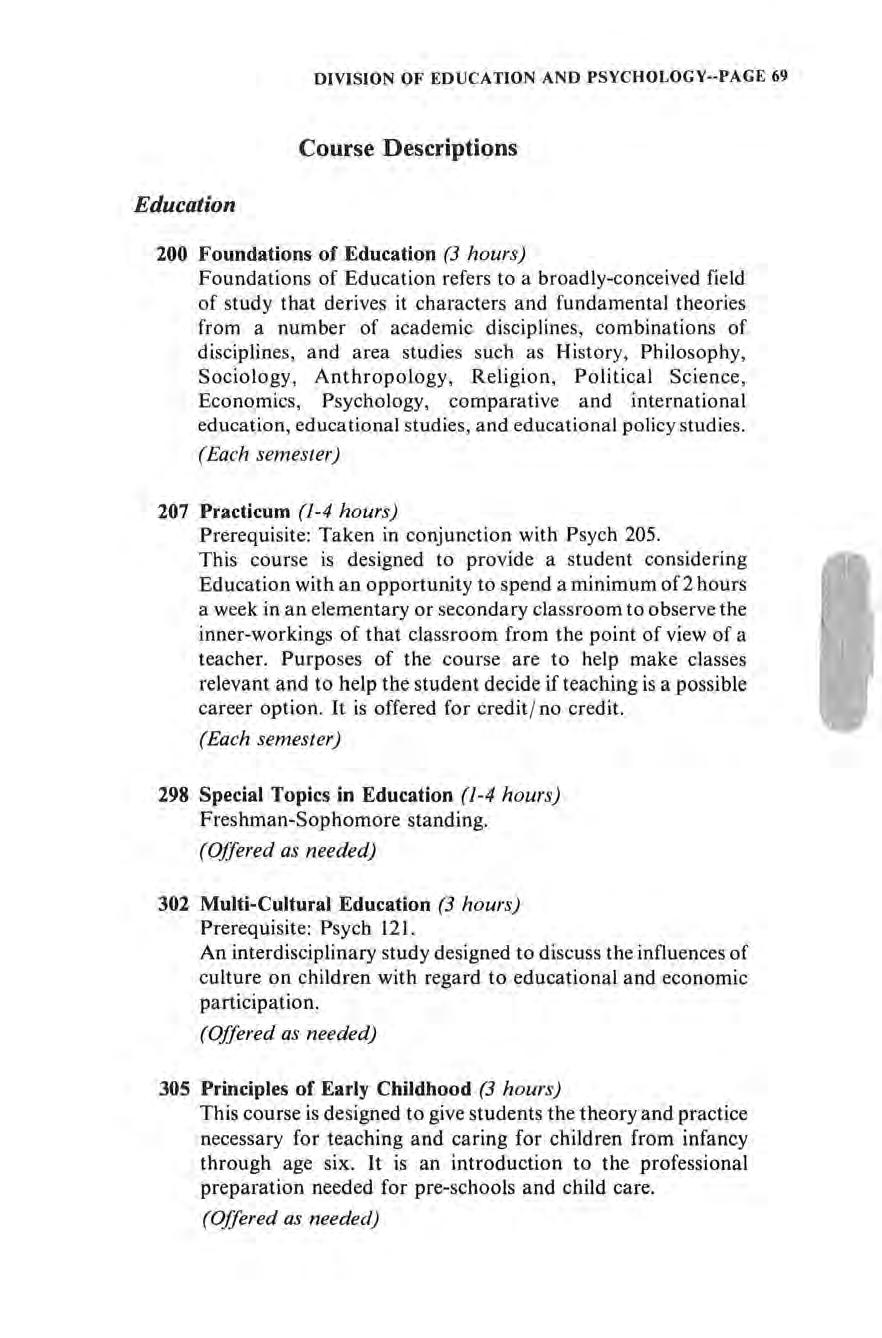
( Each semester)
207 Practicum (1-4 hours)
Prerequisite: Taken in conjunction with Psych 205.
This course is designed to provide a student considering Education with an opportunity to spend a minimum of2 hours a week in an elementary or secondary classroom to observe the inner-workings of that classroom from the point of view of a teacher . Purposes of the course are to help make classes relevant and to help the student decide if teaching is a possible career option. It is offered for credit / no credit.
(Each semester)
298 Special Topics in Education (1-4 hours)
Freshman-Sophomore standing
(Offered as needed)
302 Multi-Cultural Education (3 hours)
Prerequisite: Psych 121.
An interdisciplinary study designed to discuss the influences of culture on children with regard to educational and economic participation.
(Offered as needed)
305 Principles of Early Childhood (3 hours)
This course is designed to give students the theory and practice necessary for teaching and caring for children from infancy through age six. It is an introduction to the professional preparation needed for pre-schools and child care.
(Offered as needed)
307 Practicum (1 -4 hours)
Prerequisite: Taken in conjunction with Ed 338 or Ed 403; acceptance to Teacher Education. This course is designed to provide students an opportunity to observe the specific methods being used in methods classes and to begin to practice those methods. It is offered for credit / no credit.
(Each semester)
325
Teaching Language Arts in the Elementary Schoo l (2 hours)
Prerequisite : Admission to Teacher Education. This course investigates goals, methods, materials, and evaluation techniques in the area of elementary language arts.
(Each semester)
326
Teaching Social Studies in the Elementary School (2 hours)
Prerequisite : Admission to Teacher Education. This course is designed to make the propective elementary teacher aware of the methods, materials, resources, and techniques used to teach Social Studies in an elementary school. Students will also discuss the importance of Social Studies and the makeup of an elementary Social Studies curriculum.
(Each sem ester)
327 Teaching Math in the Elementary School (2 hours)
Prerequisite: Admission to Teacher Education
This course introduces and gives practice to students in the philosophical basis, techniques, instructional methods, organization, and learning activities of teaching elementa r y mathematics.
(Each semester)
328 Teaching Science in the Elementary School (2 hours)
Prerequisite: Admission to Teacher Education. The purposes of the course are to: (l) give direction to prospective teachers on how to organize and conduct meaningful science learning experiences in the elementary school, (2) to provide simple and easy to understand outlines of science concepts and conceptual schemes for each area of science, and (3) to present appropriate learning experiences.
(Each semester)
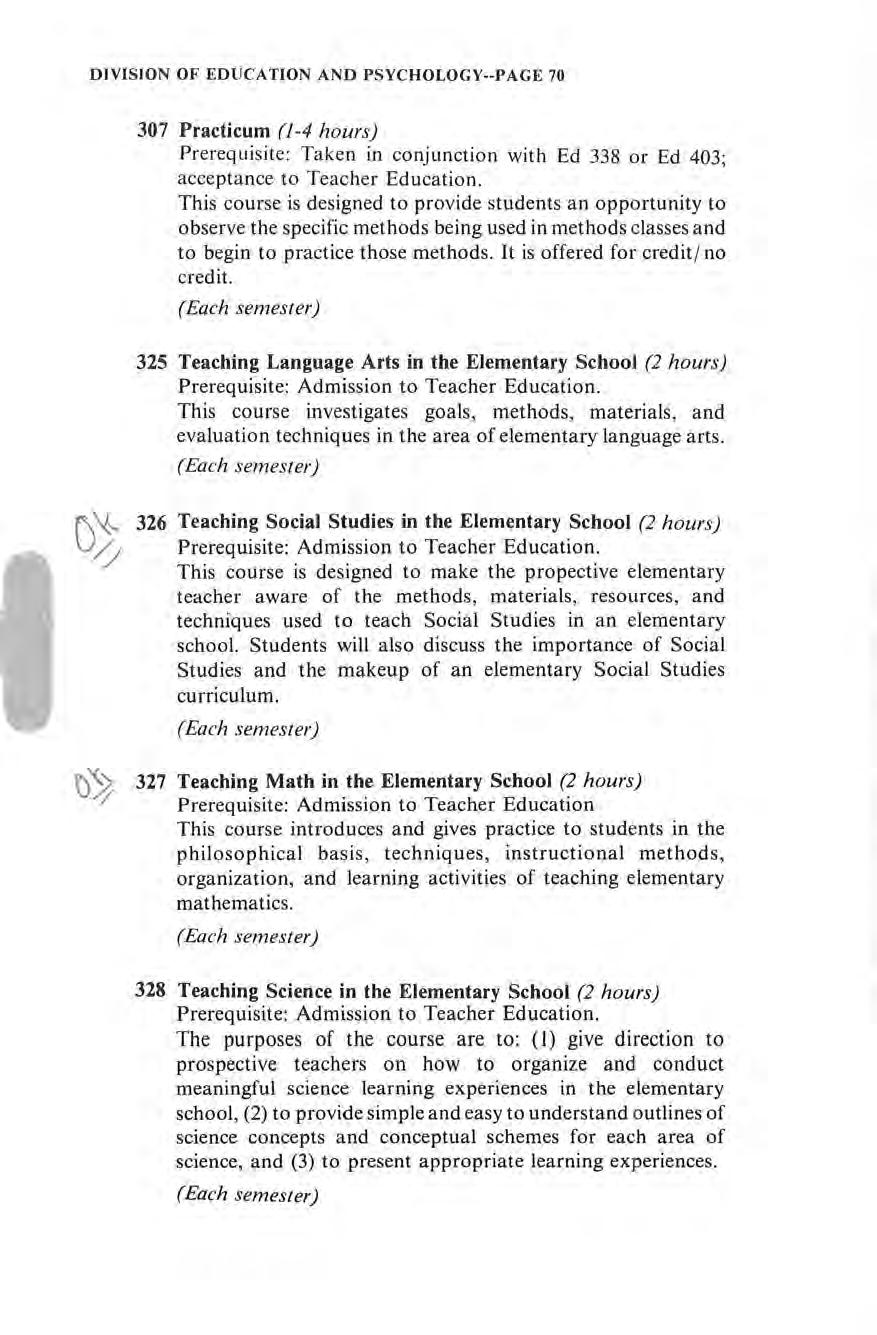
334 Teaching Reading in the Elementary School (3 hours)
Prerequisite: Admission to Teacher Education. The course is a study of current methods, approaches, types and availability of reading materials, and their uses in the elementary school. Emphasis will be placed on facilitating instruction in the classroom and the skills of reading.
(Each semester)
338 Teaching Reading in the Secondary School (3 hours)
Prerequiste: admission to Teacher Education. The course focuses upon the organization and implementation of reading strategies into the content areas. Emphasis is upon practical and usable classroom procedures to help teachers set objectives, motivate, organize and teach in their content area
(Each semester)
403 Diagnostic and Remedial Reading (3 hours)
Prerequisite: Admission to Teacher Education and Ed 334
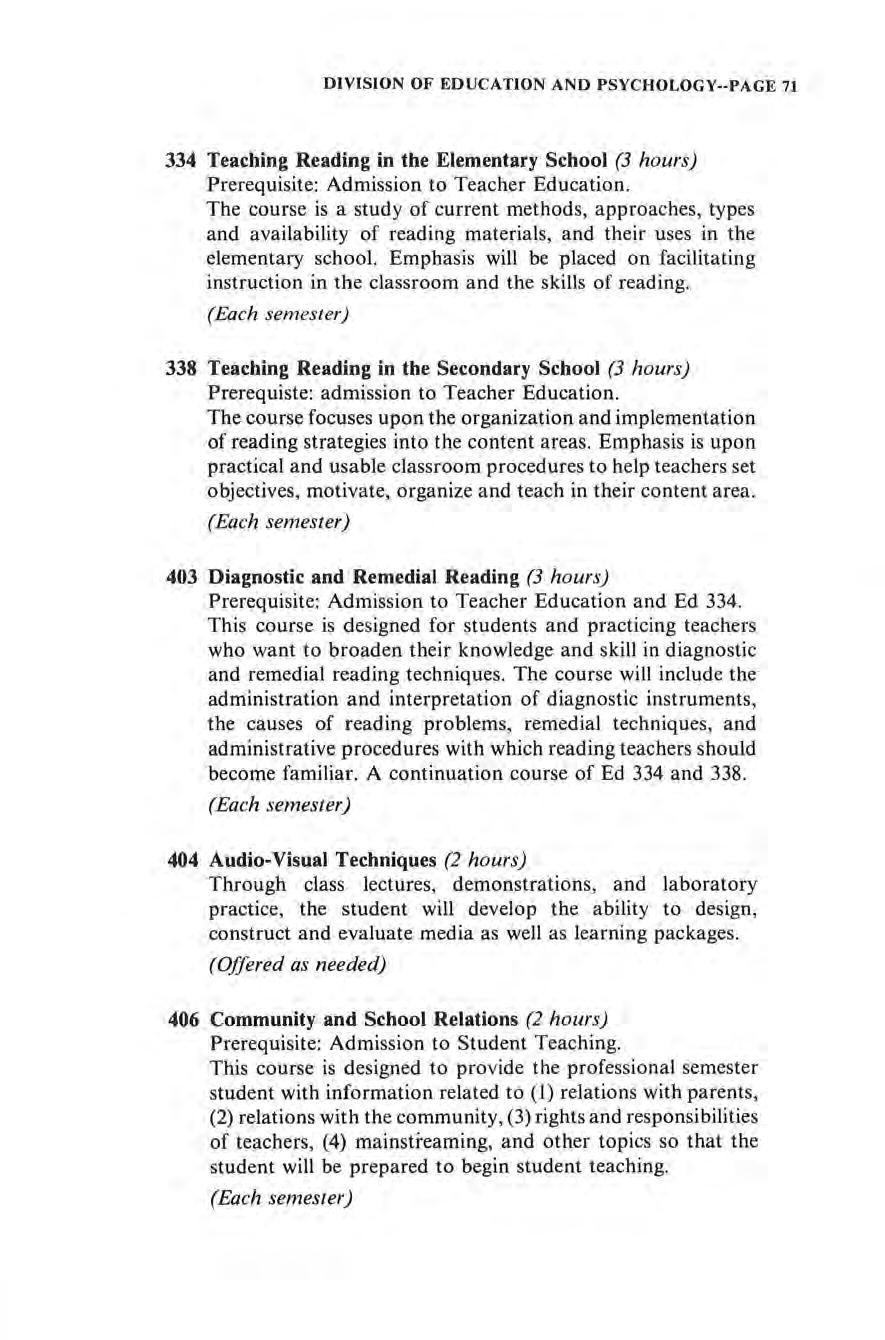
This course is designed for students and practicing teachers who want to broaden their knowledge and skill in diagnostic and remedial reading techniques. The course will include the administration and interpretation of diagnostic instruments, the causes of reading problems, remedial techniques, and administrative procedures with which reading teachers should become familiar. A continuation course of Ed 334 and 338.
(Each semester)
404 Audio-Visual Techniques (2 hours)
Through class lectures, demonstrations, and laboratory practice, the student will develop the ability to design, construct and evaluate media as well as learning packages.
(Offered as needed)
406 Community and School Relations (2 hours)
Prerequisite: Admission to Student Teaching .
This course is designed to provide the professional semester student with information related to (I) relations with parents, (2) relations with the community, (3) rights and responsibilities of teachers, (4) mainstreaming, and other topics so that the student will be prepared to begin student teaching.
(Each semester)
407 Tests and Measurements (2 hours)
Prerequisite: Admission to Student Teaching. The course emphasizes the procedures for constructing tests, analyzing teacher made tests, and applying the results of testing to grading and reporting of pupil progress. The course also presents the basic statistics which are used in the analysi s, interpretation, and use of test results.
(Each semester)
408 Instructional Methods (3 hours)
Prerequisite: Admission to Student Teaching. A synthesis of teaching competencies involving planning , preparation, and presentation . The development of a complete teaching unit containing unit plans, daily lesson plans, calendar of events , objectives, materials for instruction , audio-visuals, various models of teaching, and evaluation procedures is required. Students will be videotaped in a microteaching situation.
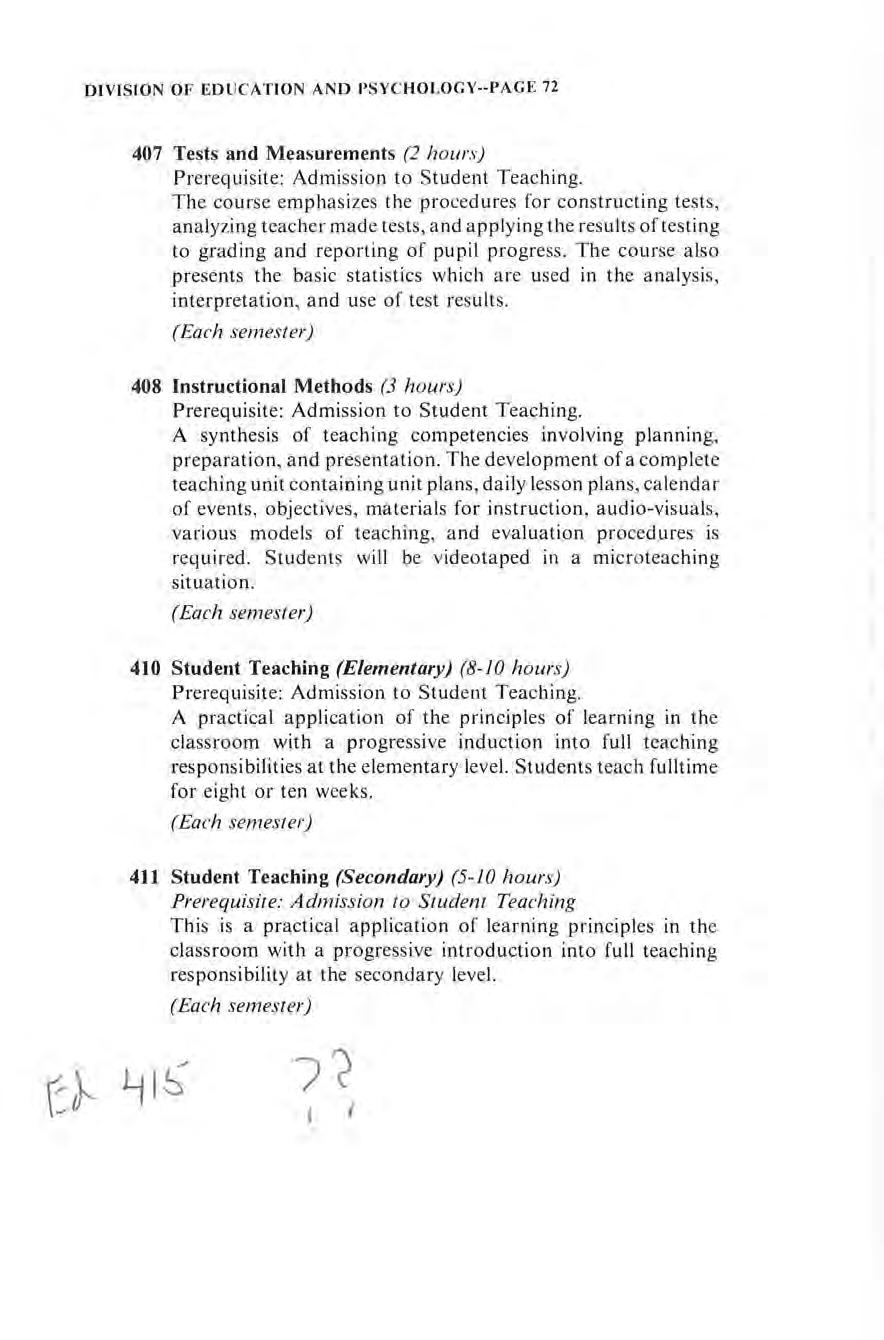
(Each semester)
410 Student Teaching (Elementary) (8-10 hours)
Prerequisite: Admission to Student Teaching. A practical application of the principles of learning in the classroom with a progressive induction into full teaching responsibilities at the elementary level. Students teach fulltime for eight or ten weeks .
(Each semester)
411 Student Teaching (Secondary) (5-10 hours)
Prerequisite : Admission to Student Teaching
This is a practical application of learning principles in the classroom with a progressive introduction into full teaching responsibility at the secondary level.
(Each semester)
443 Individualization of Instruction (3 hours)
Several models for individualization are investigated. The student will design a topic of instruction following one of the models. The students experience this indiviualized design by the way the course is managed.
(Each Spring semester)
498 Special Topics in Education (1-4 hours)
Junior-Senior standing
(Offered as needed)
499 Independent Study in Education (1-3 hours)
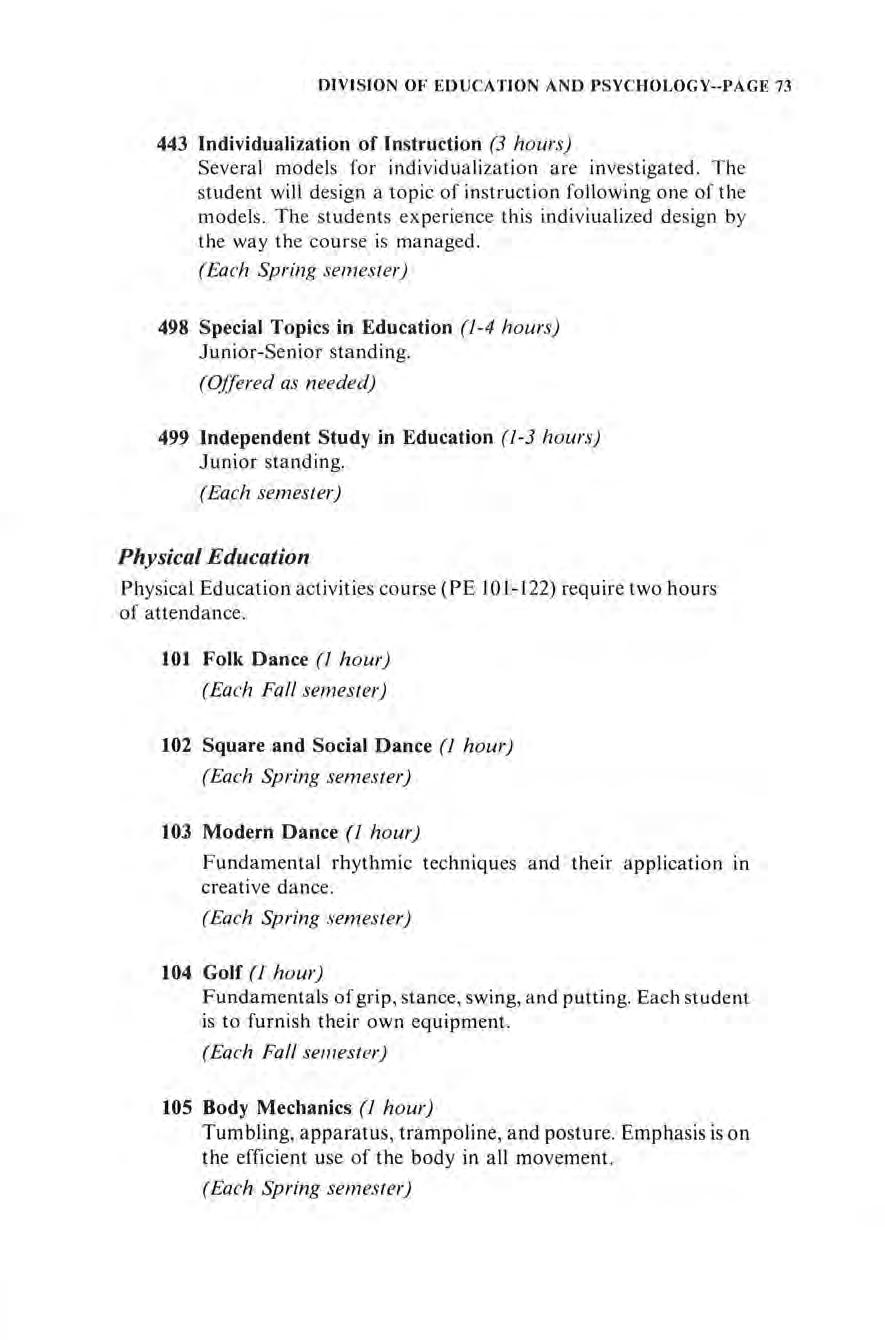
Junior standing.
(Each semester)
Physical Education
Physical Education activities course (PE IO 1-122) require two hours of attendance.
101 Folk Dance (1 hour)
(Each Fall semester)
102 Square and Social Dance (I hour)
(Each Spring semester)
103 Modern Dance (1 hour)
Fundamental rhythmic techniques and their application in creative dance.
(Each Spring semester)
104 Golf (1 hour)
Fundamentals of grip, stance, swing, and putting. Each student is to furnish their own equipment.
(Each Fall semester)
105 Body Mechanics (1 hour)
Tumbling, apparatus, trampoline, and posture. Emphasis is on the efficient use of the body in all movement.
(Each Spring semester)
106 Badminton (] hour)
Fundamental skills and techniques are emphasized .
(Each Spring semesterJ
107 Basketball (] hour)
Fundamental skills and techniques are emphasized .
(Each Spring semester)
108 Soccer (] hour)
Fundamental skills and techniques are emphasized. (Each Fall semester)

109 Casting and Angling (1 hour)
Fundamental skills and techniques are emphasized. (Each Fall semesterJ
110 Tennis (I hour)
Fundamentals of stroke, rules, and strategy. Student must furnish a tennis racket and three new balls.
(Each semester)
111 Beginning Bowling (] hour)
Fundamental skills and techniques are emphasized.
(Each Spring semester)
112 Beginning, Advanced Beginning Swimming and Basic Water Safety (1 hour)
Equips the student with basic swimming skills and basic water safety information to help insure reasonable safety in , on, and around the water.
(Each Fall semester)
113 Intermediate, Swimmer Level, and Basic Rescue (1 hour)
Prerequisite: Advanced Beginner and Basic Water Safety Certificate.
Teaches the elements of good swimming. Increases endurance by the coordination of whole strokes and skills versatility through the mastery of the basic strokes . Enables individuals to acquire correct responses to aquatic emergencies.
(Each Spring semester)
114 Advanced Swimming Lifesaving (] hour)
Prerequisite: Swimmers certificate. Provides the individual with additional strokes and skills that make for an all-round swimmer. Teaches the lifesaving skills needed to save one's own life or that of another person .
(Each Fall semester)
115 Water Safety Instructor (] hour)
Prerequisite: Current Advanced Lifesaving Certificate. General content to cover physical laws governing body movements in the water , stroke analysis , and practice teaching.
(Each Spring semester)
116 Volleyball(] hour)
The purpose of this course is to assist the student or player in acquiring the knowledge and skills that are necessary for playing power volleyball.
(Each Fall semester)
117 Weight Training (] hour)
Activity designed for students to participate in a variety of strength building programs .
(Each semester)
118 Softball (] hour)
The purpose of this course is to assist the student or player in acquiring the knowledge and skills that are necessary for playing fast or slow-pitch softball.
(Each Fall semester)
119 Restricted Activities (] hour)
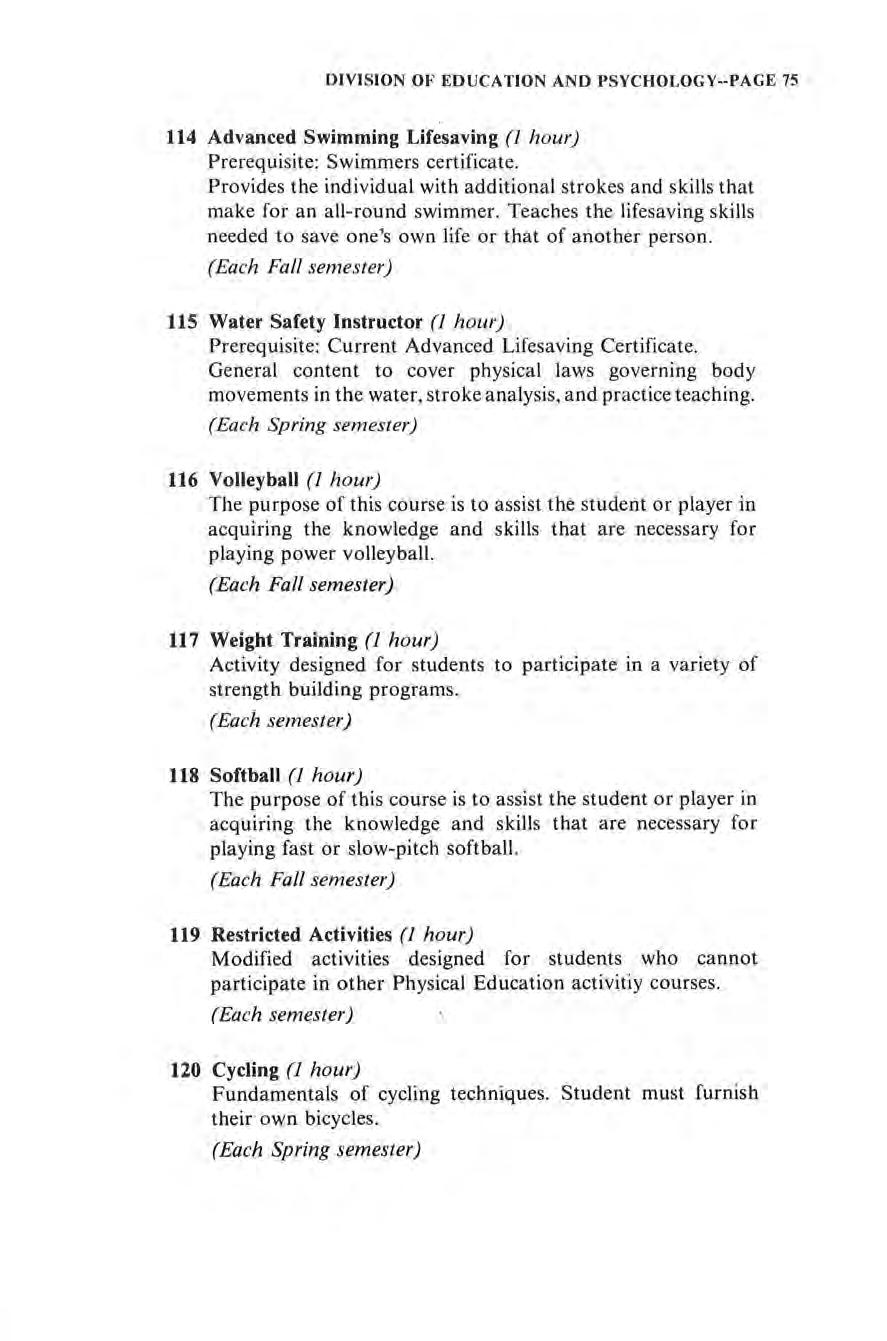
Modified activities designed for students who cannot participate in other Physical Education activitiy courses.
(Each semester)
120 Cycling (] hour)
Fundamentals of cycling techniques Student must furnish their own bicycles
(Each Spring semester)
121 Aerobic Dance (1 hour)
Dance activity that involves exercise to music through choreographed routines. Emphasis is on body toning and cardiovascular endurance.
(Each semester)
122 Jogging (I hour)
Fundamental skills and techniques are emphasized.
(Each Spring semester)
190 Varsity Sports (1 hour)
Requires successful participation in a varsity sport.
(Ea ch semester)
201 Principles of Physical Education (3 hours)
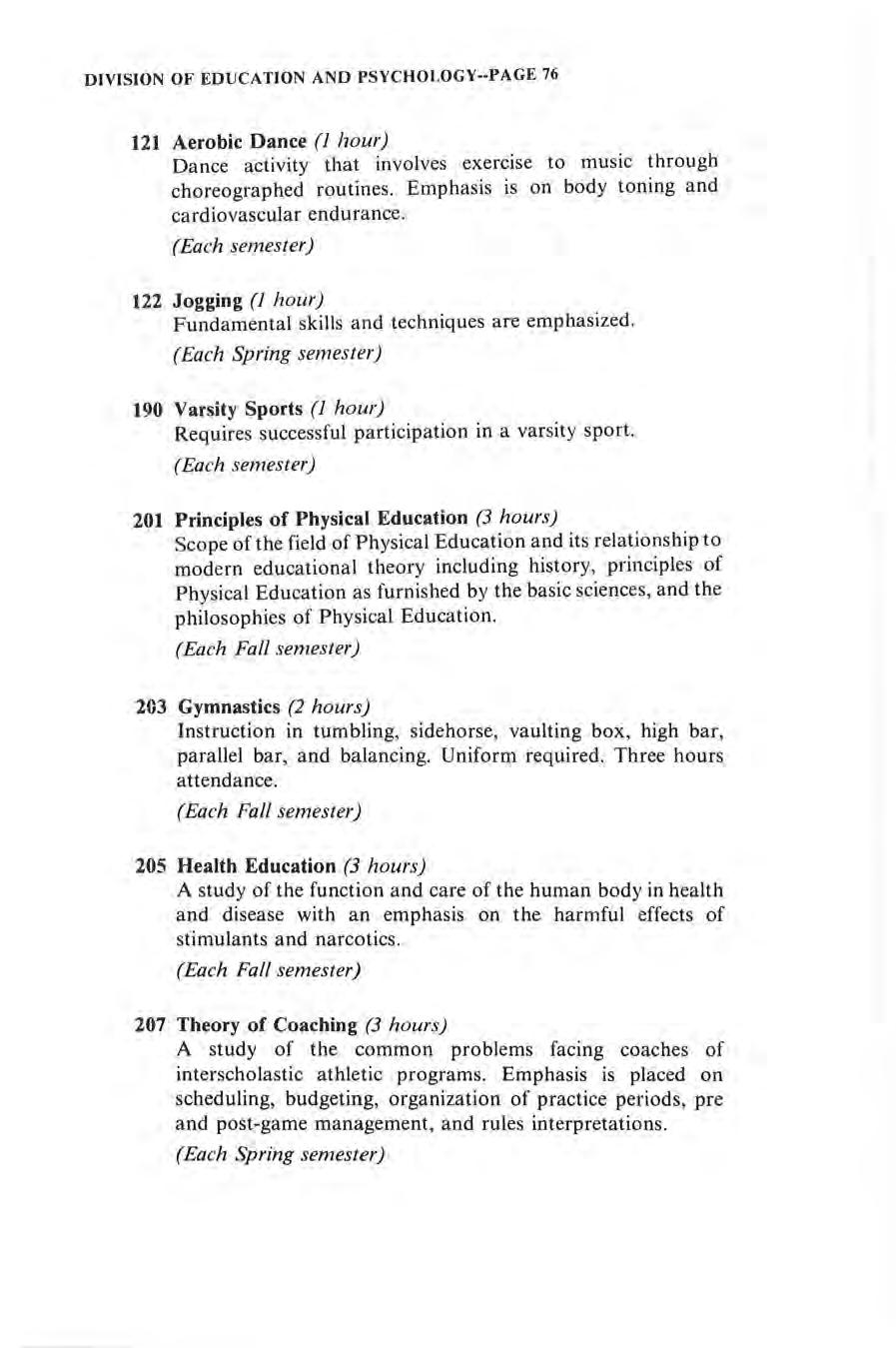
Scope of the field of Physical Education and its relationship to modern educational theory including history, principles of Physical Education as furnished by the basic sciences, and the philosophies of Physical Education.
(Each Fall semester)
203 Gymnastics (2 hours)
Instruction in tumbling, sidehorse, vaulting box, high bar, parallel bar, and balancing. Uniform required. Three hours attendance.
(Each Fall semester)
205 Health Education (3 hours)
A study of the function and care of the human body in health and disease with an emphasis on the harmful effects of stimulants and narcotics.
(Each Fall semester)
207 Theory of Coaching (3 hours)
A study of the common problems facing coaches of interscholastic athletic programs. Emphasis is placed on scheduling, budgeting , organization of practice periods, pre and post-game management, and rules interpretations.
(Each Spring semester)
208 Theory of Football and Volleyball (3 hours)
A study of offensive and defen sive strategies in football a nd volleyball. Empahsis is placed on scheduling, budgeting , organization of practice periods , pre and post-game management, and rules interrpretation. Three hour lab required . Three hours attendance required.
(Ea ch Fall semester)
209 Theory of Basketball and Baseball (3 hours)
A study of offensive and defensive strategies in basketball and baseball. Emphasis is placed on scheduling , budgeting, organization of practice periods , pre and post-game management, and rules interpretation. Three hour lab required Three hour attendance required.
(Each Spring semester)
210 Theory of Track and Softball (3 hours)
A study of technique s and skills required for events, organization of practice periods, management of meets, and rules interpretation. Three hour lab required. Three hours attendance required .
(Each Spring semester)
215 First Aid (2 hours)
American Red Cross First Aid course and Medical Self Help course.
(Each semester)
216 Minor Sports (3 hours)
A study of the strategy and techniques involved in teaching selected Physical Education activities .
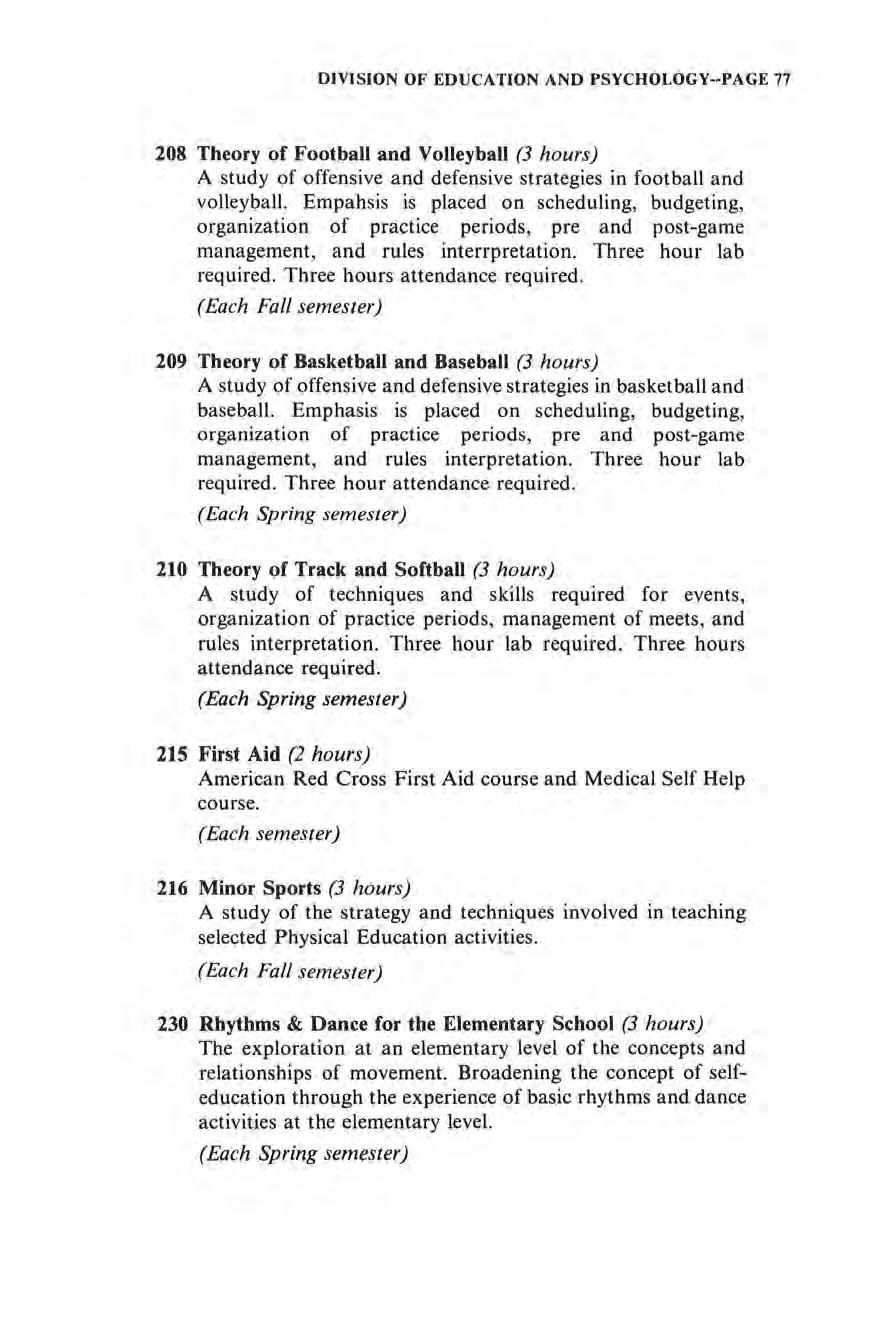
(Each Fall semester)
230 Rhythms & Dance for the Elementary School (3 hours)
The exploration at an elementary level of the concepts and relationships of movement. Broadening the concept of selfeducation through the experience of basic rhythms and dance activities at the elementary level.
(Each Spring semester)
232 Aquatics for Elementary School (2 hours)
Prerequisite : PE I 12.
A program of aquatic activity, games and sports suited to the interests and capabilities of the elementary student. Instruction provided in skills, knowledge, and safety aspects of water related activities . Three hours attendance required .
(Each Fall semester)
298 Special Topics in Physical Education (1-4 hours)
Freshman-Sophomore standing.
(Offered as needed)
300 Prevention and Treatment of Injuries (3 hours)
The nature and cause of injuries related to the physical activities of children and athletes.
(Each semester)
309 Organization & Administration of Programs in Health and Physical Education (2 hours)
Consideration of general principles of administrative techniques and responsibilities for the field of Health and Physical Education.
(Each Spring semester)
310 Physical Education in the Primary Grades (2 hours)
The selection and organization of materials and techniques of instruction for the primary grades.
(Each Fall semester)
311 Physical Education in the Intermediate Grades (2 hours)
The selection and organization of materials and techniques of instruction in the intermediate grades.
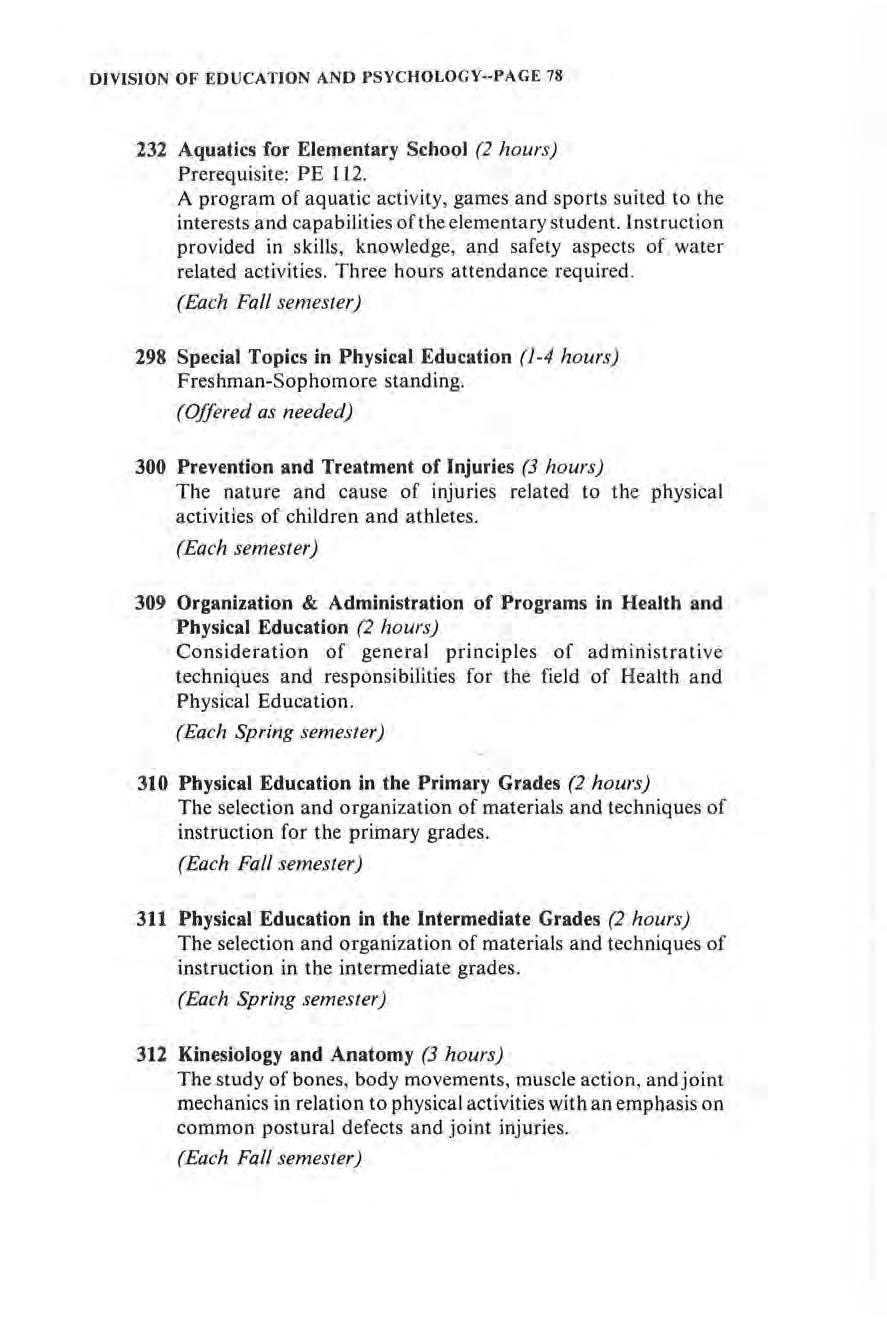
(Each Spring semester)
312 Kinesiology and Anatomy (3 hours)
The study of bones, body movements, muscle action, and joint mechanics in relation to physical activities with an emphasis on common postural defects and joint injuries.
(Each Fall semester)
320 Special Methods in Health and Physical Education (2 hours)
Prerequisite : Junior standing .
An analysis of the techniques used in the teaching of Health and Physical Education.
(Each Spring semester)
360 Physiology of Exercise (3 hours)
A working understanding of how exercise affects the different systems of the body. Three hours of class attendance .
(Each Spring semester)
411 Health Programs in the Elementary School (3 hours)
Prerequisite: PE 205.
The purpose of this course is to provide for the development of the elementary school health program. Emphasis will be placed on a schedule for Health instruction which will allow for planned teaching and integration of Health into the elementary school program.
(Each Fall semester)
412 Foundations of Elementary and Secondary School Health (3 hours)
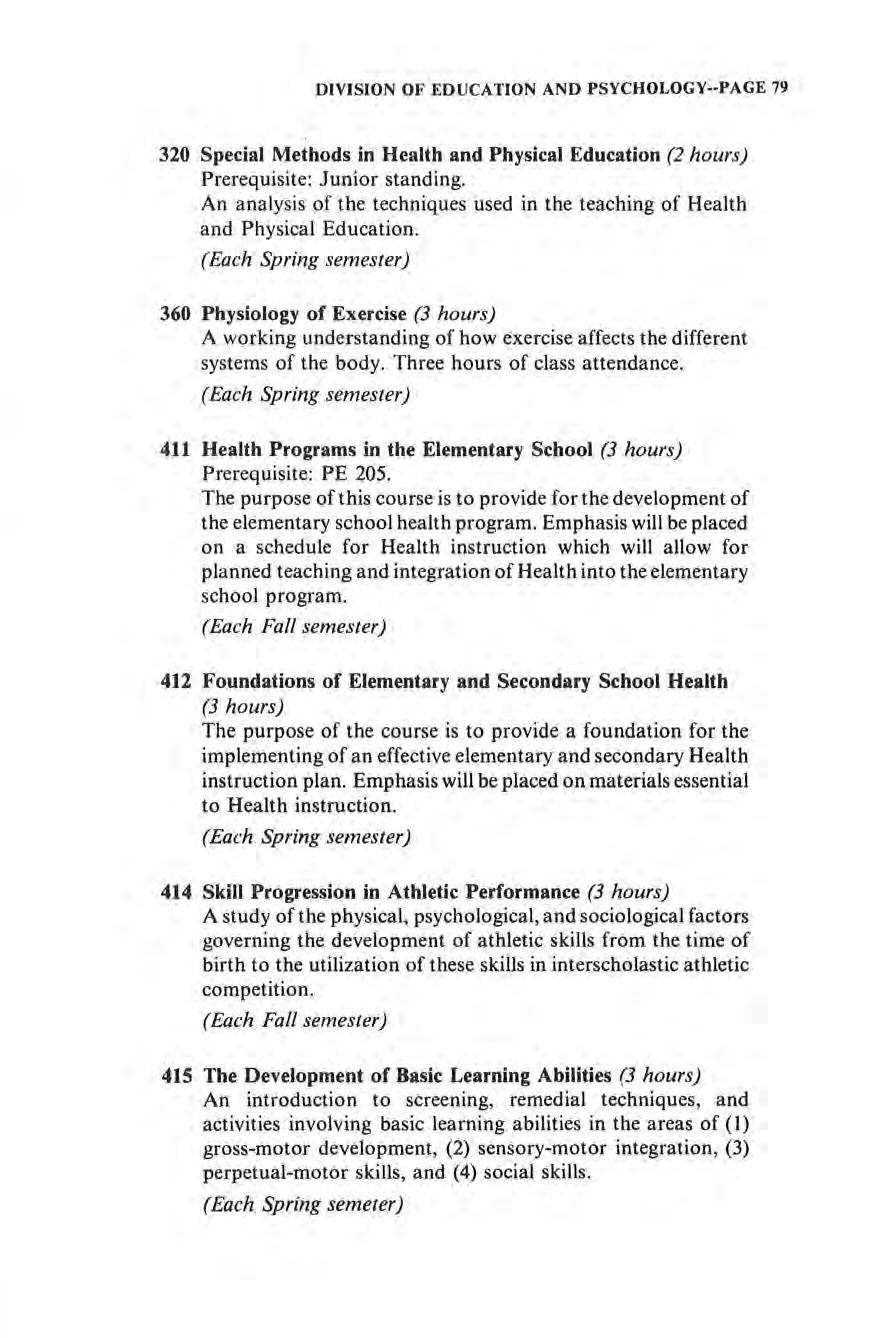
The purpose of the course is to provide a foundation for the implementing of an effective elementary and secondary Health instruction plan . Emphasis will be placed on materials essential to Health instruction.
(Each Spring semester)
414 Skill Progression in Athletic Performance (3 hours)
A study of the physical, psychological, and sociological factors governing the development of athletic skills from the time of birth to the utilization of these skills in interscholastic athletic competition.
(Each Fall semester)
415 The Development of Basic Learning Abilities (3 hours)
An introduction to screening, remedial techniques, and activities involving basic learning abilities in the areas of (I) gross-motor development, (2) sensory-motor integration, (3) perpetual- motor skills, and (4) social skills.
(Each Spring semeter)
416 Test and Measurements in Physical Education (2 hours)
A study is made of the various test and measurements in the field of Physical Education.
(Each Spring semester)
417 Corrective and Adapted Physical Education (2 hours)
An overview of corrective and preventive Physical E ducation with a consideration of the adaptions necessary to provide for satisfying and effective programs.
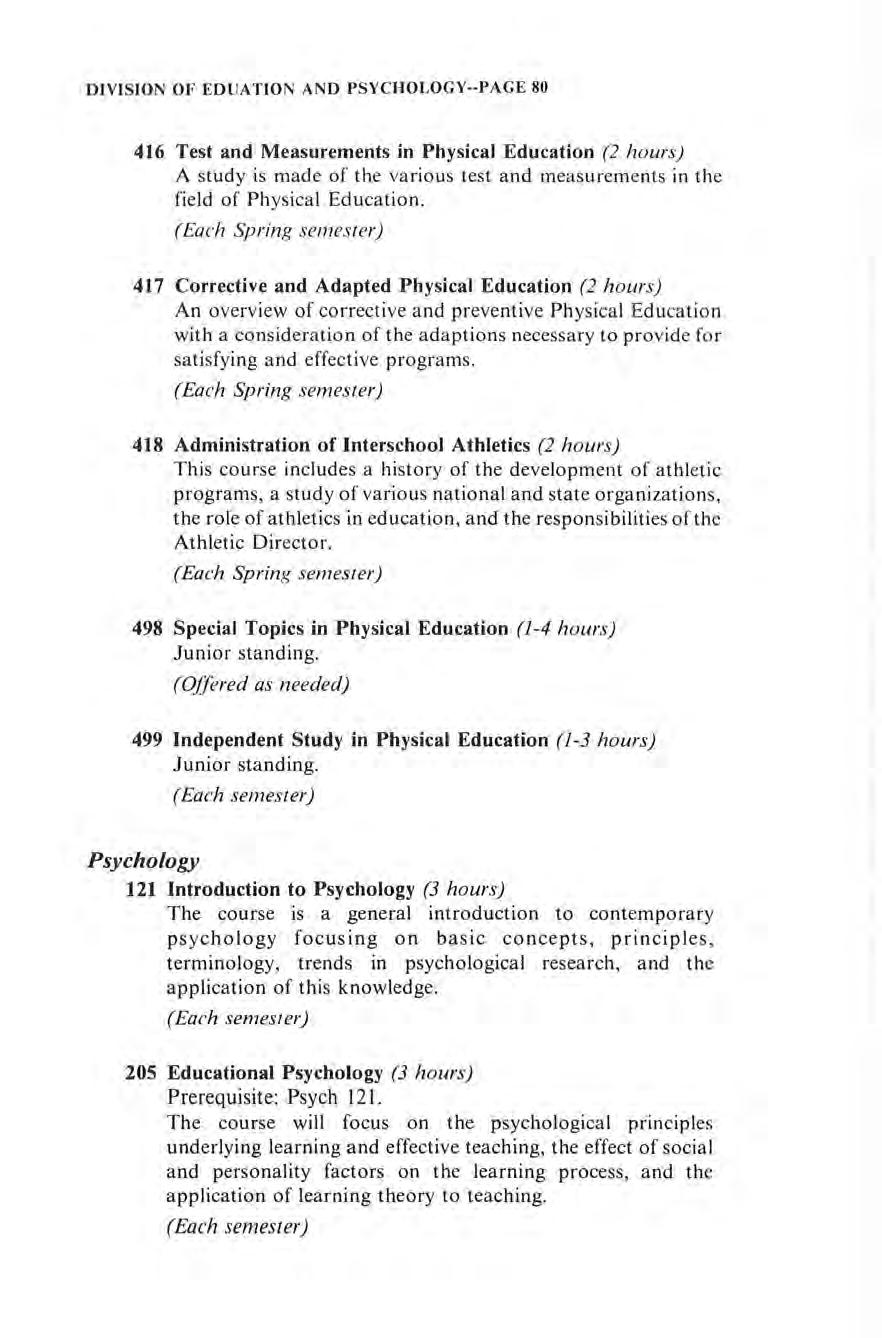
(Each Spring semester)
418 Administration of Interschool Athletics (2 hours)
This course includes a history of the development of athletic programs, a study of various national and state organization s , the role of athletics in education, and the responsibilities of the Athletic Director.
(Each Spring semester)
498 Special Topics in Physical Education (1-4 hours)
Junior standing.
(Offered as needed)
499 Independent Study in Physical Education (1-3 hours)
Junior standing .
(Each semester)
121 Introduction to Psychology (3 hours)
The course is a general introduction to contemporary psychology focusing on basic concepts, principles, terminology, trends in psychological research, and the application of this knowledge
(Each semester)
205 Educational Psychology (3 hours)
Prerequisite: Psych 121.
The course will focus on the psychological principles underlying learning and effective teaching, the effect of social and personality factors on the learning process, and the application of learning theory to teaching.
(Each semester)
245 Human Psychology (3 hours)
The course will focus on the process of personality growth and adjustment. Through an examination of selected theoretical systems, different interpretations of this process will be presented.
(Fall semester, odd years)
250 Developmental Psychology (3 hours)
The course will focus on the phys'ical, cognitive, social, and emotional aspects of growth from birth through old age. In addition, factors thought to influence this growth will also be examined.
(Fall semester, even years)
298 Special Topics in Psychology (1-4 hours)
Freshman -S ophomore standing.
(Offered as needed)
304 Experimental Psychology (3 hours)
Prerequisite : Psych 121 and Math 340. The course is designed to assist students in the comprehension and use of experimental methods, basic statistical analysis, and experimental literature. Research exercises are provided to illustrate course content.
(Spring semester, even years)
305 Social Psychology (3 hours)
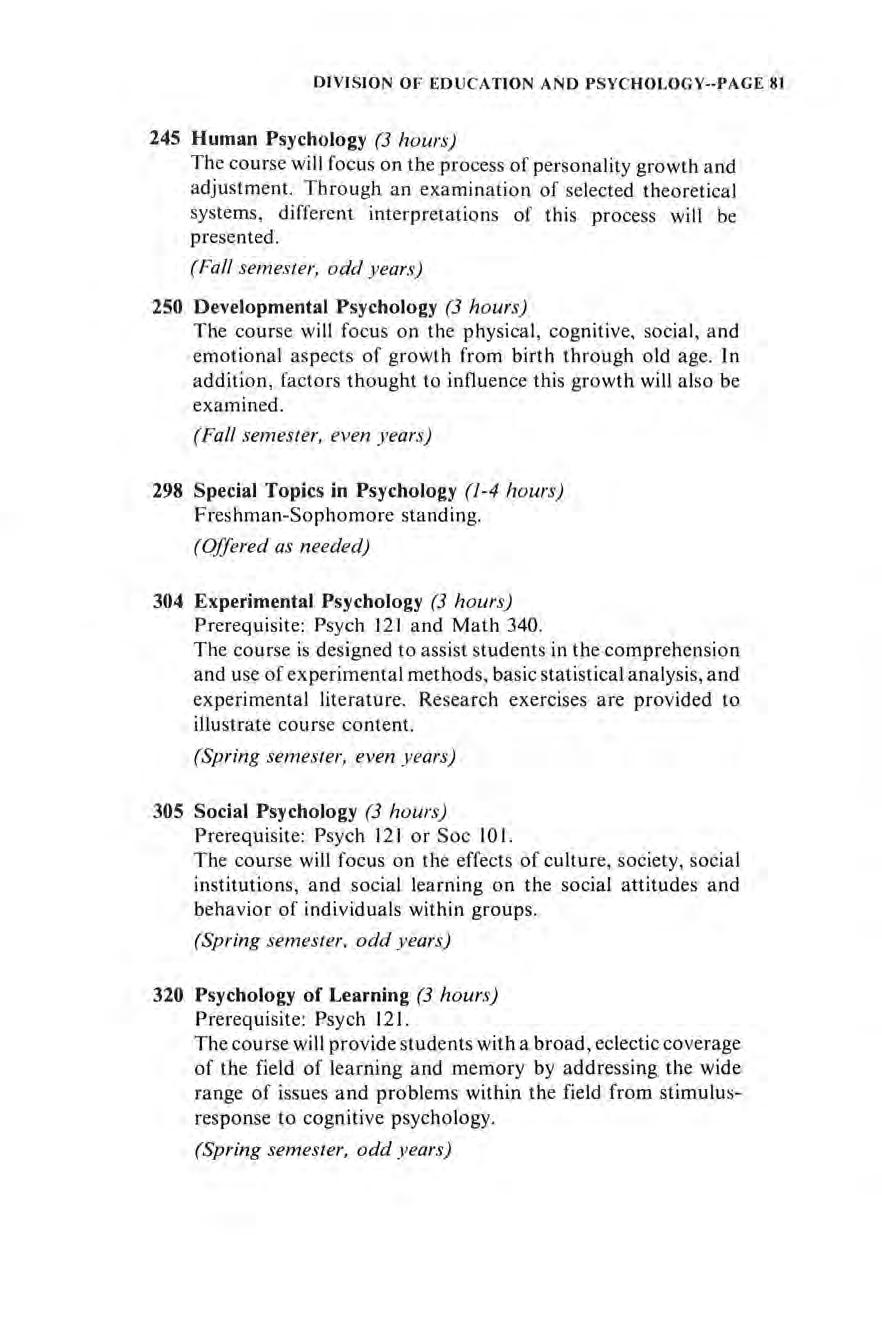
Prerequisite: Psych 121 or Soc IO I. The course will focus on the effects of culture, society, social institutions, and social learning on the social attitudes and behavior of individuals within groups.
(Spring semester, odd years)
320 Psychology of Learning (3 hours)
Prerequisite: Psych 121.
The course will provide students with a broad, eclectic coverage of the field of learning and memory by addressing the wide range of issues and problems within the field from stimulusresponse to cognitive psychology.
(Spring semester, odd years)
431 Psychological Tests and Measurements (3 hours)
Prerequisite: Psych 121 and Math 340 or permis sion of the instructor.
The course will focus on the issues and problems surrounding psychological testing . Topics to be discussed include reliability, validity, construction, administration, norms , and interpretation as well as a survey of current psychological tests. (Fall semester, odd years)
437 Techniques of Counseling (3 hours)
Prerequisite: Psych 121.
The content, process, and practice of various counseling techniques will be examined for their applicability to education, psychology and social work. Practical experience in the use of these techniques will also be provided. (Spring semester, even years)
440 Behavioral Modification (3 hours)
Prerequisite: Psych 121.
The course will focus on the basic principles of behavior modification as well as survey some of the practical applications of this general approach to behavior change. (Fall semester, even years)
498 Special Topics in Psychology (1-4 hours) Junior-Senior standing.
(Offered as needed)
499 Independent Study in Psychology (1-3 hours) Junior standing.
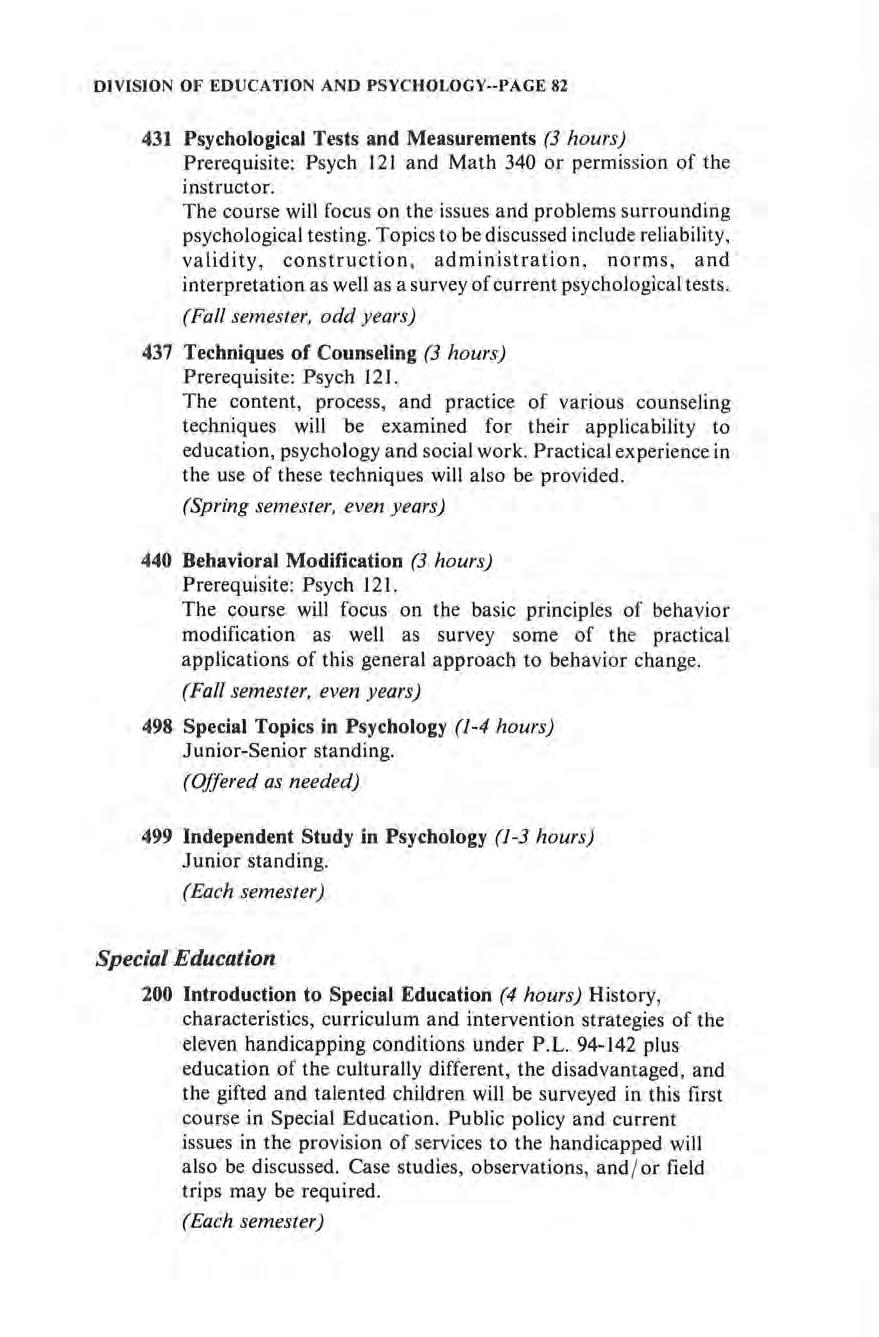
(Each semester)
200 Introduction to Special Education (4 hours) History, characteristics, curriculum and intervention strategies of the eleven handicapping conditions under P.L. 94-142 plus education of the culturally different, the disadvan t aged, and the gifted and talented children will be surveyed in this first course in Special Education. Public policy and current issues in the provision of services to the handicapped will also be discussed . Case studies, observations, and / or field trips may be required.
(Each semester)
230 Special Education Program Management and Resources (2 hours)
Prerequisite: SpEd 200 or concurrent enrollment. National, state, and local laws, policies, and procedures affecting handicapped children, skills in developing a system for organizing and maintaining student records, and the identification , selection, and utilization of state and local resources for improving and strengthening the educational program for the handicapped will be discussed Field trips may be required.
(Each Fall semester)
270 Education of Gifted Learners (3 hours)
Skills in teaching basic academic skills, intervention strategies and their modification to meet the individual needs of gifted learners will be discussed. Case studies, observations, field trips, a minimum of one videotaping session, and / or individualized tutoring may be required.
(Each Spring semester)
280 Health Problems of Handicapped Learners (2 hours)
Prerequisite: SpEd 200 or concurrent enrollment. Skills in managing orthopedic conditions of students as they appear independently or in conjunction with other handicapping conditions.
(Each Fall semeter)
298 Special Topics in Special Education (1 -4 hours) Freshman-Sophomore standing.
(Offered as needed)
300 Assessment in Special Education (3 hours)
Prerequisite: SpEd 200 and knowledge of basic statistics. Skills in selecting, administering and interpreting formal and informal psychoeducational test instruments in the areas of intelligence, adaptive behaviors, language, mathematics, sensory acuity, perceptual motor abilities, and vocational skills will be studied.
(Each Fall semester)

370 Education of Emotionally Impaired Learners (3 hours)
Prerequisite: SpEd 200 or concurrent enrollment. Screening, placement, classroom management, educationa l planning, utilization of services, curriculum and intervention strategies and their modification to meet the individual needs of emotionally impaired learners will be discussed. Case studies, observations, field trips, a minimum of one videotaping session, and / or individualized tutori n g may be required.
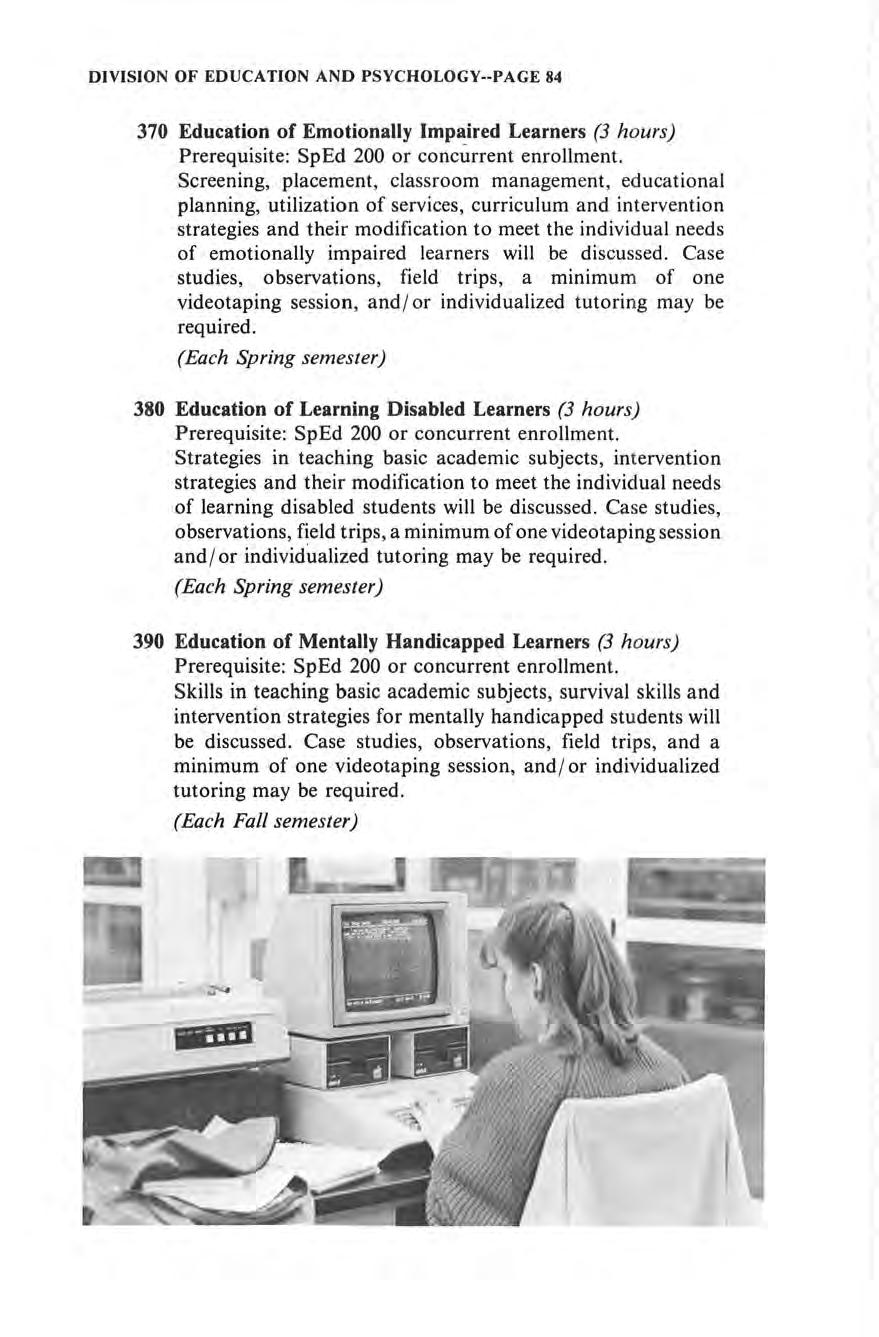
(Each Spring semester)
380 Education of Learning Disabled Learners (3 hours)
Prerequisite: SpEd 200 or concurrent enrollment. Strategies in teaching basic academic subjects, in te rvention strategies and their modification to meet the individual needs of learning disabled students will be discussed . Ca se studies, observations, field trips, a minimum of one videotaping session and / or individualized tutoring may be required.
(Each Spring semester)
390 Education of Mentally Handicapped Learners (3 h o urs)
Prerequisite : SpEd 200 or concurrent enrollment. Skills in teaching basic academic subjects, survival skills and intervention strategies for mentally handicapped students will be discussed. Case studies , observations, field trips , and a minimum of one videotaping session , and / or indi vidualized tutoring may be required.
(Each Fall semester)
435 Student Teaching (5 hours)
Prerequisite: Admission to Student Teaching. This course provides for observation, laboratory, and teaching experience in the special education classroom. The student assumes full teaching responsibility.
(Each semester)
460 Career and Vocational Education for the Handicapped (3 hours)
Prerequisite: SpEd 200 or concurrent enrollment. This is the first course in career and vocational education for the mildly and moderately handicapped. Vocational services; vocational evaluation, vocational counseling, vocational training, job placement and follow-up procedures, skills in developing and managing instruction, and a-variety of program models will be discussed. Case studies, observations, and/ or field trips may be required.
(Each Spring semester)
490 Counseling and Behavior Management in Special Education (2 hours)
Prerequisite: SpEd 200 or concurrent enrollment. Emphasis will be placed on behavioral intervention, remedial and preventative counseling strategies, and interpersonal skills. Behavioral management techniques, counseling skills and the identification, management, and documentation of behavioral problems will be discussed.
(Each Fall semester)
498 Special Topics in Special Education (1-4 hours) Junior-Senior standing.
(Offered as needed)
499 Independent Study in Special Education (1-3 hours) Junior standing.
(Each semester)
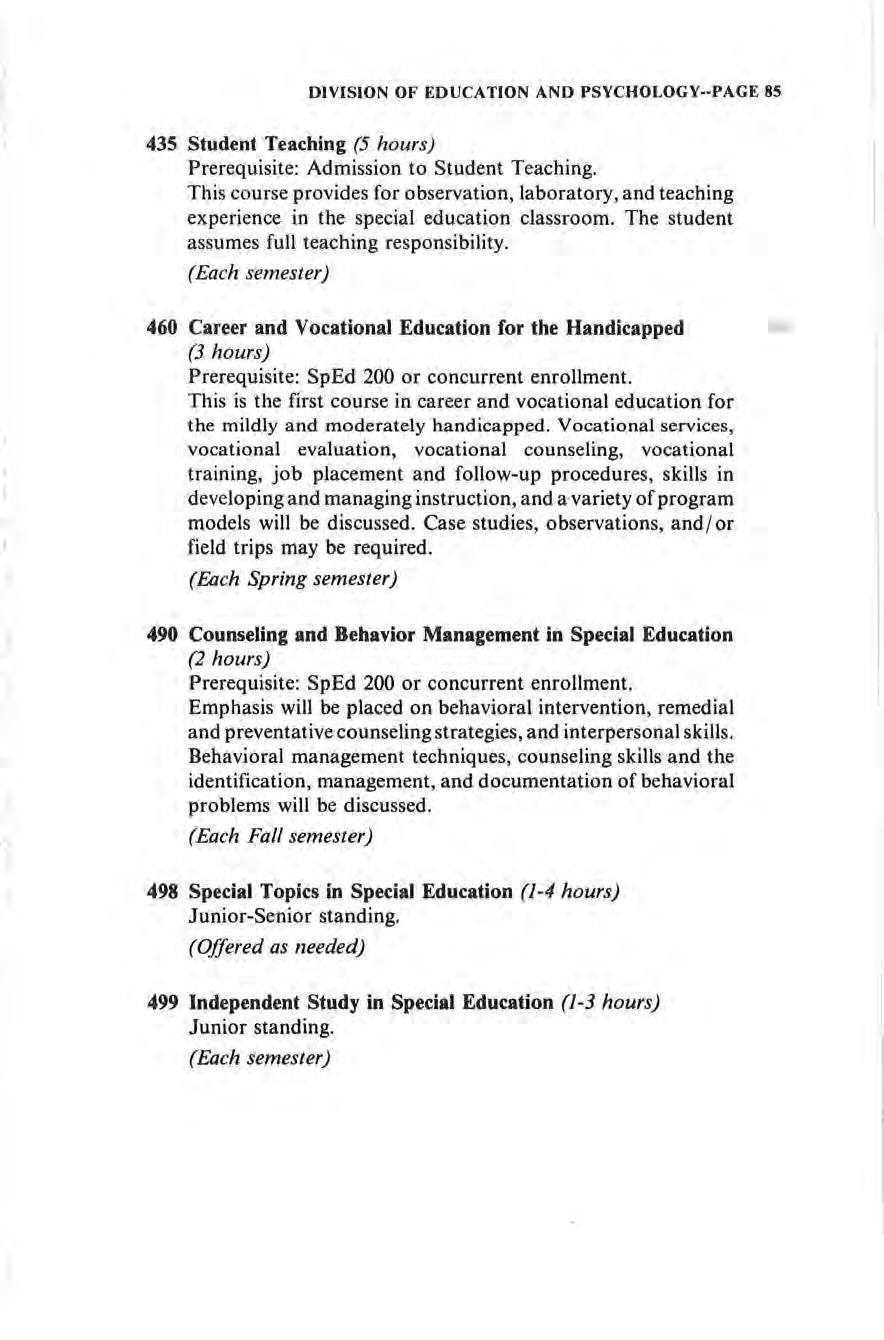
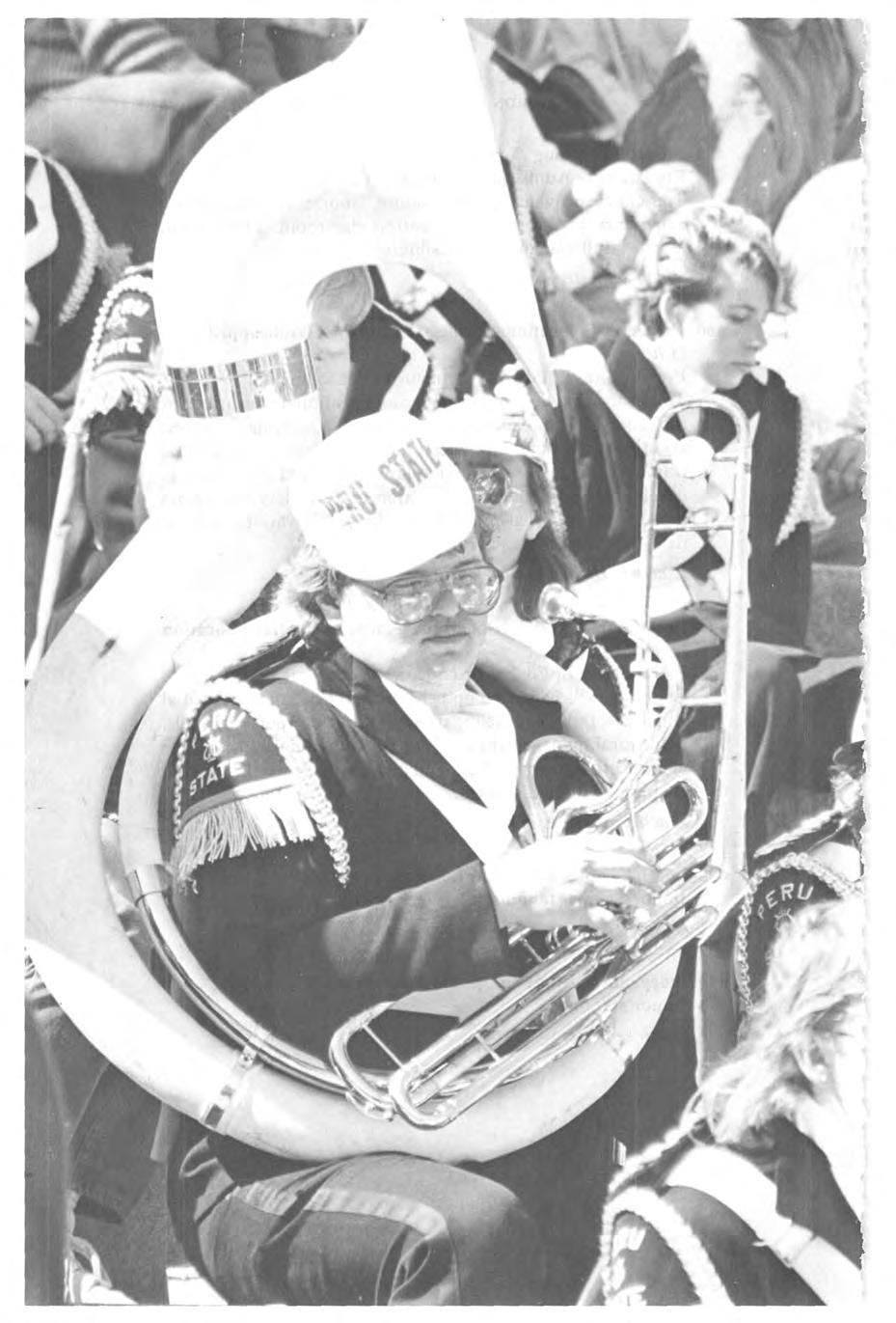
Professors: Barrett, Eckert, Edris, Hahn, Sherwood
Associate Professors: Ediger, Harper
Assistant Professors: Anderson, Davis, Holtz, Kruse, McCrann
Instructors: Emerson, Van Oyen
The Division of Humanities offers programs in the Language Arts , Social Sciences, and the Visual and Performing Arts. A core of courses has been developed for each of these three areas. The core is designed to meet specific requirements and provide background for teaching or for a career in a variety of professions. The Language Arts area includes English and the broader area of the Language Arts discipline. The Social Sciences include, in addition to the general Social Sciences area, options in Geography, History, Psychology, Sociology , and Social Work . The Visual and Performing Arts area provides opportunities to specialize in Art, Music, or Speech and Drama.

The Language Arts program provides for either a field endorsement or subject endorsement in Eng li sh. Students planning to teach on ly Eng li sh might well seek the field endorsement. Those wishing to include a related area in addition to English might choose the subject endorsement.
*Students preparing to teach in middle or junior high schools are required to take Eng. 203.
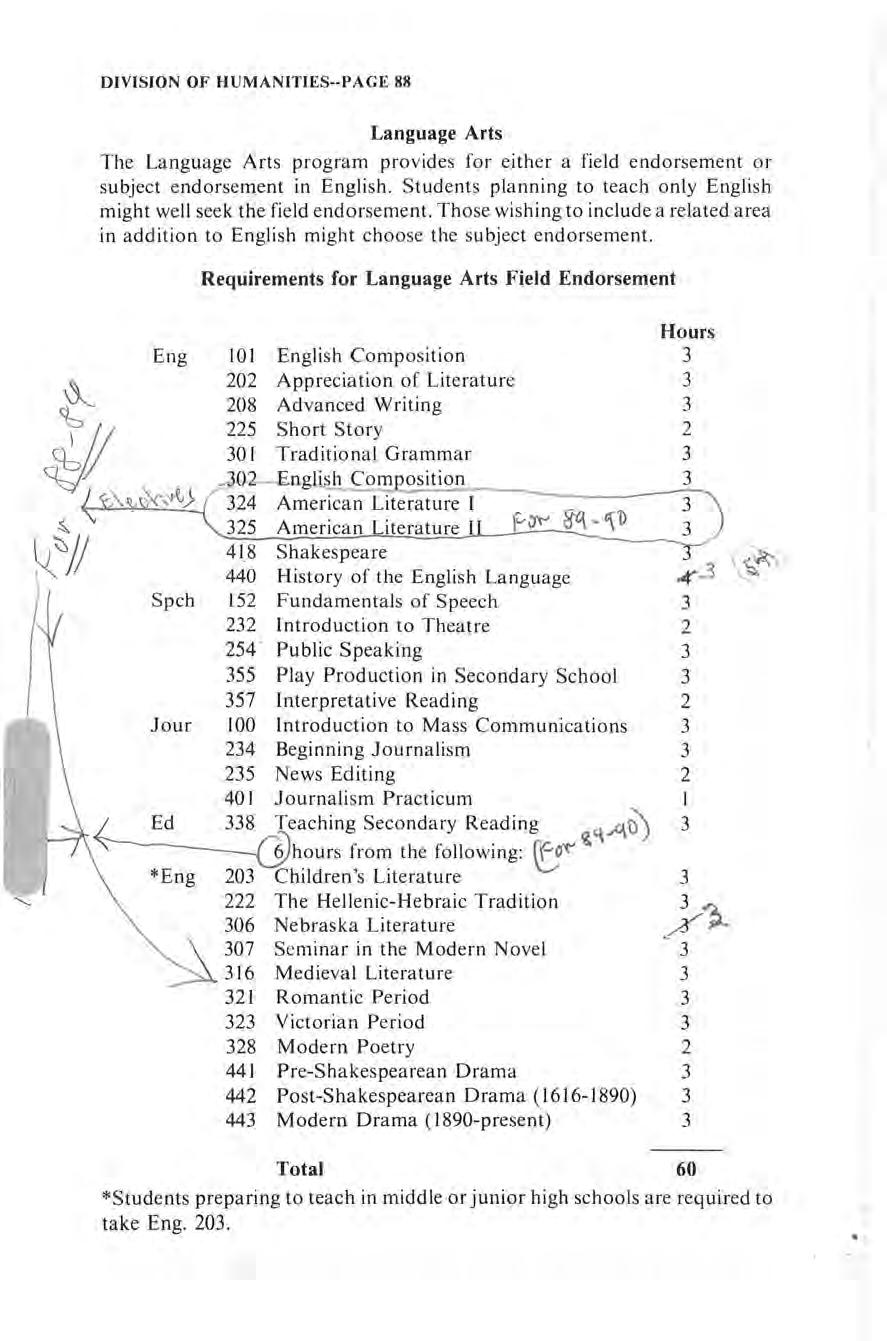
*Students preparing to teach in middle or junior high sc hool s are required to t a ke Eng 203 ,
**Students taking a non-teaching_major in English may substitut~ any course from the electives for tho se s ix hour s,


F all Sem es t e r
E ng 10 I E n g li s h Co mr o s ition
J o ur 2 34 Beg i nnin g J o urna lis m
S pe h 15 2 Fu nda me n ta ls of S p L·cc h
Geog 10 I P rin r ipl cs o f G cogra ph ~
LS c i 100 Introdu c t io n t o M e dia and Librar y
Ge ne r a I S t ud ics T ca d1 c r Ed Co u rscs
Hours
S pring Se mes t e r
E ng 2 0 2 Ap preci at io n o r Li te ra tur e
E ng 20 8 A d vance d W r iti ng
P syc h 12 1 I ntroduc t ion t o P syc h o lo g y
H is t I IJ A m e r ican H is t o r y t o 1865 o r
2-4
15 -17
Fall Semester
Eng 222 Hc ll c n ic-H c hrn ic T radi ti o n
E ng 22 5 S h o rt Stor y
Eng 324 A me ri ca n Lit e rature I o r
En g 4 4 1 Pr e -Sha kes pe a r e a n Dr,1111 a
Ed 200 F o undat io ns o f Edu ca ti o n
PolS ci 20 I A m er ica n N ati o nal Go vernm ent
Ge n e ra l S t ud ies T ea c he r Ed C o u rs es
H is t 11 4 Am e ri c an Hi s to r y A rt er 1865
G e n e ra l S t ud ies T e a c he r Ed Co u rses
H o urs
S pring S emester
E ng 203 C hi ld re n 's L it e ra t u re
En g 3 0 1 Trad it io nal Gram m a r
Eng J25 A m e r ica n Lit e ra tur e II o r
E ng J28 Mod e rn P o e tr y
Psy ch 20 5 Ed u c a t io nal Psyc ho lo gy
E d 20 7 Pr act ic um
G e n e ra l S tudi es T e a c he r Ed Co ur ses
Fall Sem es ter
Eng 30 2 Eng li sh Co mpo sition
E ng 30 5 P rac ti cu m in Co mp o s it ion
En g 30 7 S e m in ar in M ode rn No ve l
Eng 323 Vict o ri a n Per iod
En g 440 H is tor y o f th e E ngli s h Lan g uag e
Gene ral S tudi es / T eac he r Ed Co u rs es
Hours 2-3 18
Fall Semester
E ng 306 Ne bra s ka Lit e rat ure
Eng 41 8 S hake s pe a re
G e neral S tudi es / Te ac he r Ed C ourses
S pring Sem es ter
E ng 3 16 M e di ev al Lit era ture or
E ng 44 2 P os t-S hak e s pe a r ea n D ra m a
E ng 3 2 1 R o m a nti c P e ri od
S p e h 35 7 Int er pret a ti ve R e a d in g
Ed 3J 8 Tea c h ing Sec o ndar y R ead in g
Eng 405 M e th o d s in E n g lis h & S peec h
G e n e ral S tu di es 1T eac h e r Ed Cou rs ..: s
Hours 11 13
S pring Semester
Profess ion a l S emes t e r
The Social Sciences area offers a wide range of degree programs in both the teaching and nonteaching professions. Students who wish to teach may spec ialize in History, Social Science, Psychology, or Sociology, while those seeking nonteaching degrees may select majors in

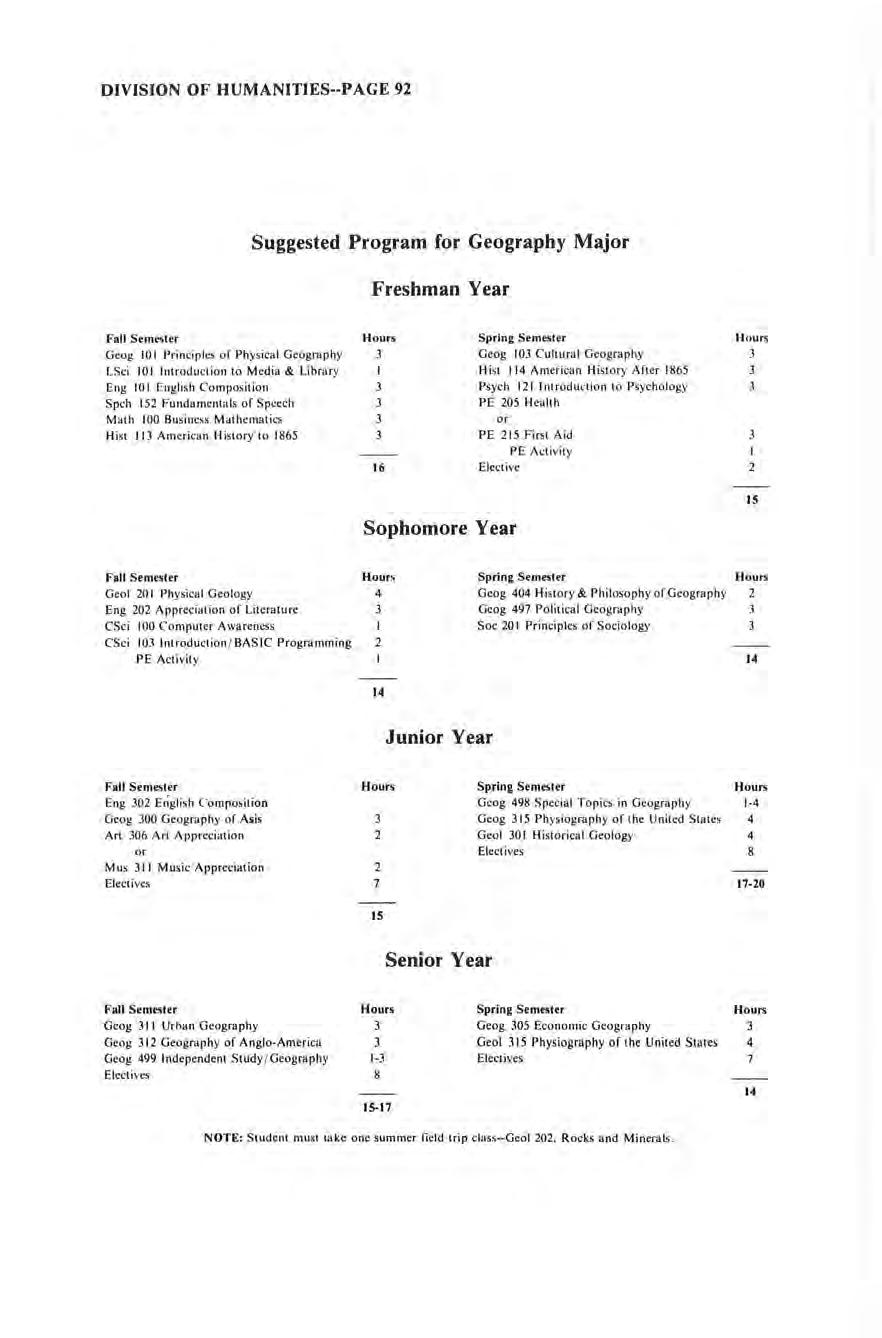
NOTE: Student must take one summer field trip class--Geol 202. Rocks
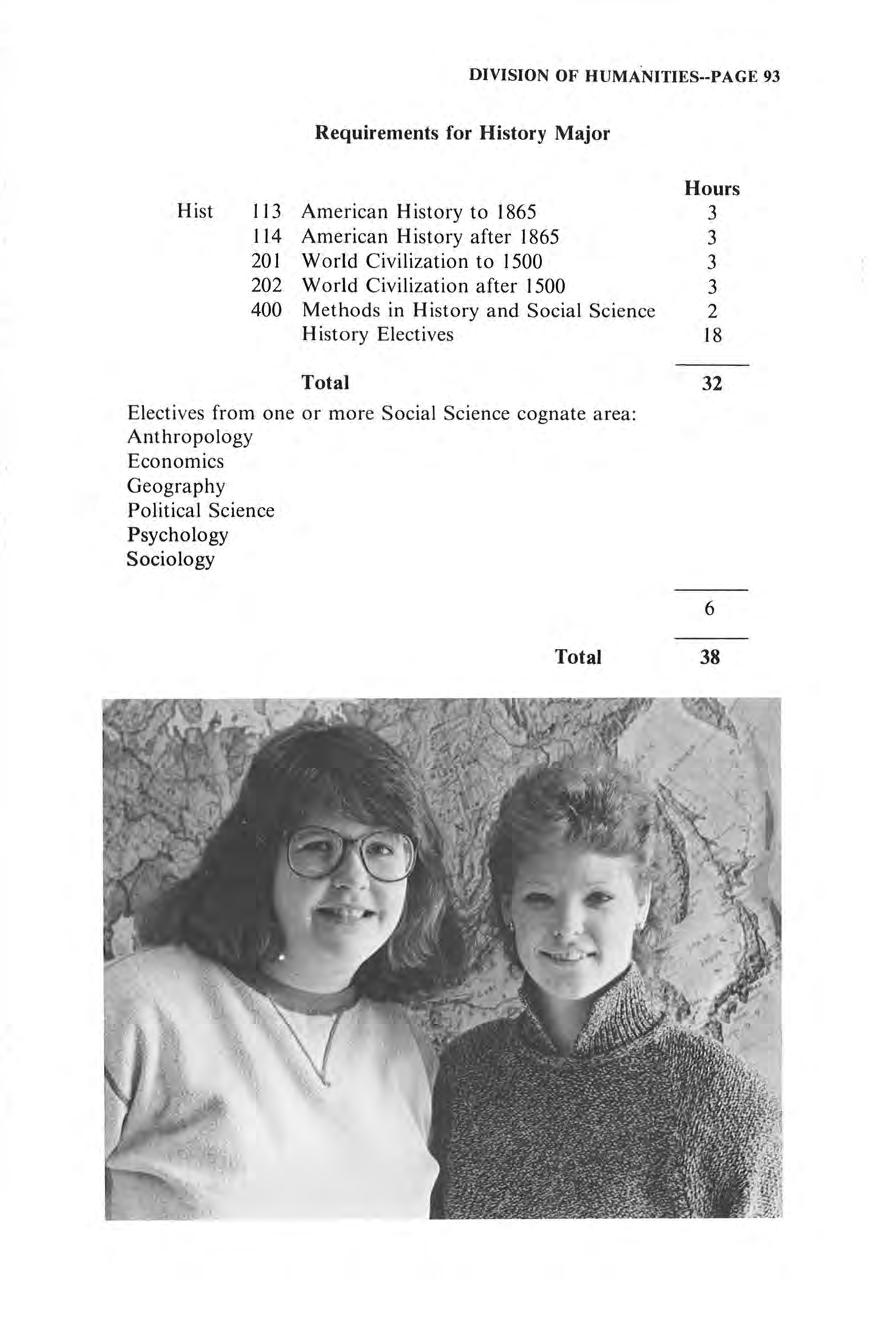
Fall Se m ester
Hours
LSc i 100 In trod ucti on to Media & Lib ra ry
Eng IOI En g li s h Compositio n
Hi st I 13 Ami:rican Hi s tor y to 1865
Geog 101 Principl es of Physical Geography
CSci 100 Computer Awareness
Psyc h 12 1 lntroduclion t o Psychology
PE Acti v it y
Fall Semesler
PE 205 H ealth
Econ 220 Pri n ciples o f Eco n omics I
Soc 20 I Prin ci ples of Socio logy
GSci 205 Introdu c t o ry Biology
Hi s t 201 World Civ ili za tion 10 1500
Philo 20 1 Introdu ction to Philosophy
15
Sp ring Semester
Math Bu siness Math e mati cs
Math 101 Co\1ege Algebra
Hi s t 114 A m erican Hi story Arter 1865
Geog 10 3 Cultural Geograph y
Spe h 152 Fundam e ntal s or Speech
PE Activit y
Sophomore Year
Hours 18
Fall Semester
Hi st 30 I Co lonia l America
Hi st 329 Hi s1o ry o f Nebraska
H ist 343 Engli s h Hi stor y from 1688
Art 306 Art Apprecia ti o n or
Mu s 311 Mu s ic Appreciatio n
PolSci 202 Stat e a nd Local Governmen t
S pring Semester
Econ 22 1 Prin c ipl es or Econo mics 11
Psyc h 205 Educaiional Psyc hology
Eng 202 Appreciation or Lit era ture
GSci 206 Prin c ipl es o r Ph ys ica l Science
Hi st 202 World Civi li zation S in ce 15 00
PolSci 20 1 American Nationa l Go ve rnment
Junior Year
Hours 14
Spring Semesler
Hist 303 U.S. in th e Twentith Century
Hist 345 Modern Europe
E ng 302 English Compos iti on
PolSci Compariti ve Govern m e nt
Soc 300 Contemporary Social Problem s
Senior Year
Fall Semester
Soc 225 ln1 ro. 10 C ultural Anthropolog y
Math 340 Statistics
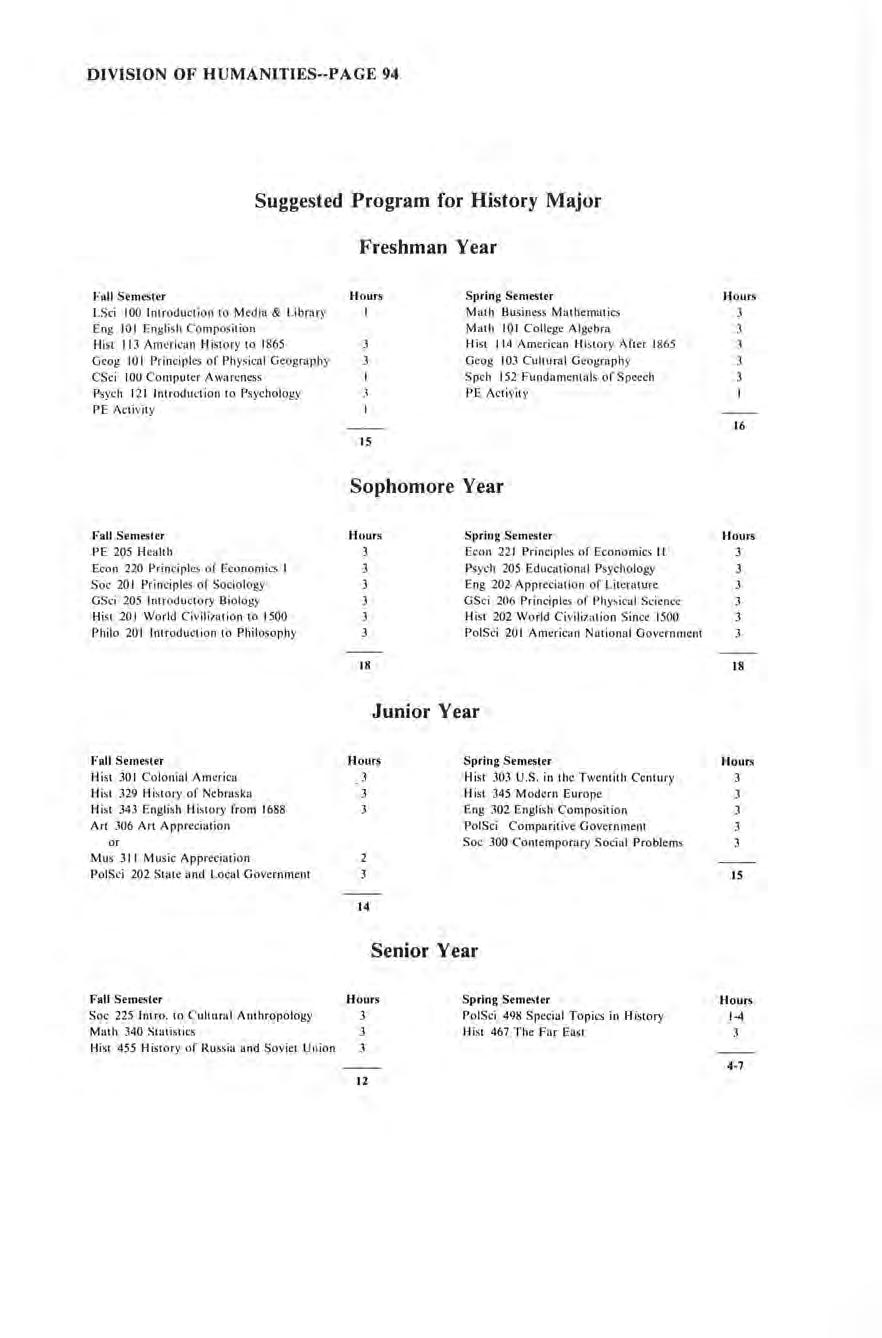
Hi st 455 Hi s t ory or Russia and Soviet Union
Hour s 12
Sp ring Semester
PolSci 498 Special Topics in History
Hist 467 The Far East
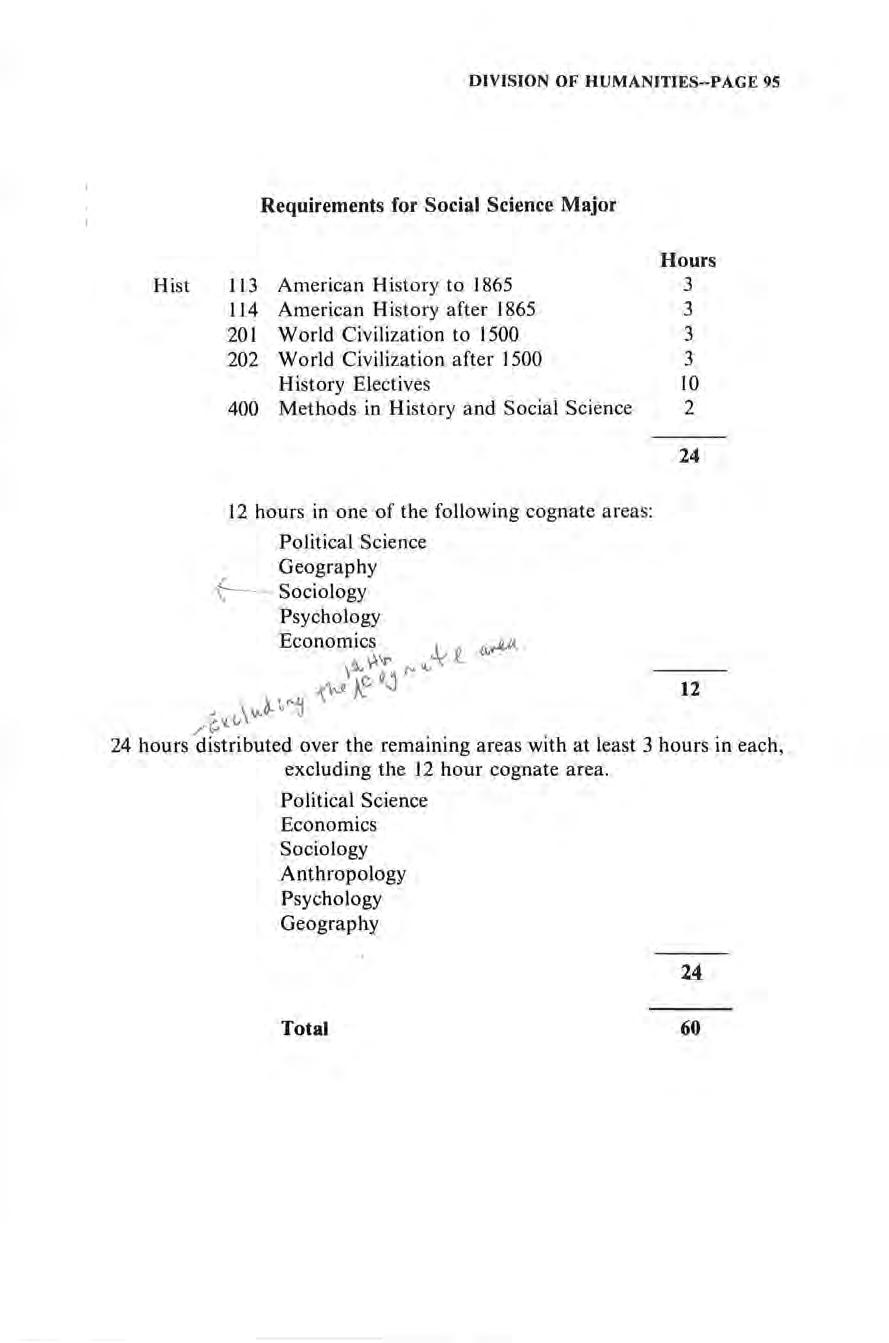
Fa ll Se mester
LSc i 100 Introdu c tion to Me dia & Libra ry
Eng 101 Eng li sh Com po si ti o n
Hi st I JJ A meri can Hi stor y t o 1865
Geog 10 1 Prin cip les o f Ph ysica l Geograp h y
CSc i 100 Co mput er Aware n ess
Psyc h 121 Introdu ct ion to Psyc ho logy
PE Acti vit y
Hours
S pring Semeste r
M a th 10 0 Bu siness M ,tt h ema t ics
CSc i I 02 In tro. to Data P rocess in g
Hi s t 11 4 American Hi s t o ry af t e r 1865
Geog 10 3 Cu ltural Geography
S peh 152 F und a m e ntal s o f S pee c h
PE Ac ti v it y
15
Fall Sem es ter
PE 205 H ea lth
Eco n 220 P ri ncip les o f Eco no mi cs I
Soc 20 I Princip les of Socio logy
GSci 205 lntrodUl.: l o r y Bi o l ogy
H ist 20 1 Wor ld C iv ilization to 1500
Phil 20 1 I ntrodu ction to Ph i losophy
Hours 17
Sp ring Semes ter
Econ 22 1 Principl es of Eco n o mi cs 11
Psyc h 205 Ed u cational Psyc h ology
Eng 202 A pprec iati o n of Literatur e
GSci 206 Principl es in Ph ys ical Sc ie nc e
H is t 202 W o rld Ci v ili z a1i on after l 500
P olSci 20 1 Ame ri ca n Na ti ona l Gove rnm e n t
Fall Semes ter
Soc JOO Co nt e mp orary Socia l P ro bl ems
Art 306 Art Apprec iation o r
Mus 3 11 M us ic App rec ia ti o n
P o lSc i 202 State <111d Loca l Go vc rrnm e nt
Soc 225 Intro. t o C ultural Anthropo logy
Hi s t 329 Hi s tor y o f Ne bra s ka
Electi ve
Fa ll Semester
Pol Sci 426 Ame ri ca n Cons tituti ona l Law
Hour s 17
S pring S emester
P o lSc i 30 1 Com p arative Go ve rnm e nt
E ng 302 E n g li s h Composition
Hi s t 303 U: S. in the Twent ith Cen tu ry
M a th 340 Sw ti ct ics
E lec 1i ve
Hours Spri ng Se m este r
H ist 4 00 M eth o d s in Hi s tor y & Socia l Sc ie n ce
Hours 16 Hours J J 18 Hours 15 Hours
P o l Sci 467 Th e Far E.1s t Po l Sc i 49 8 S pecial Topics in Politi ca l Science 1-4
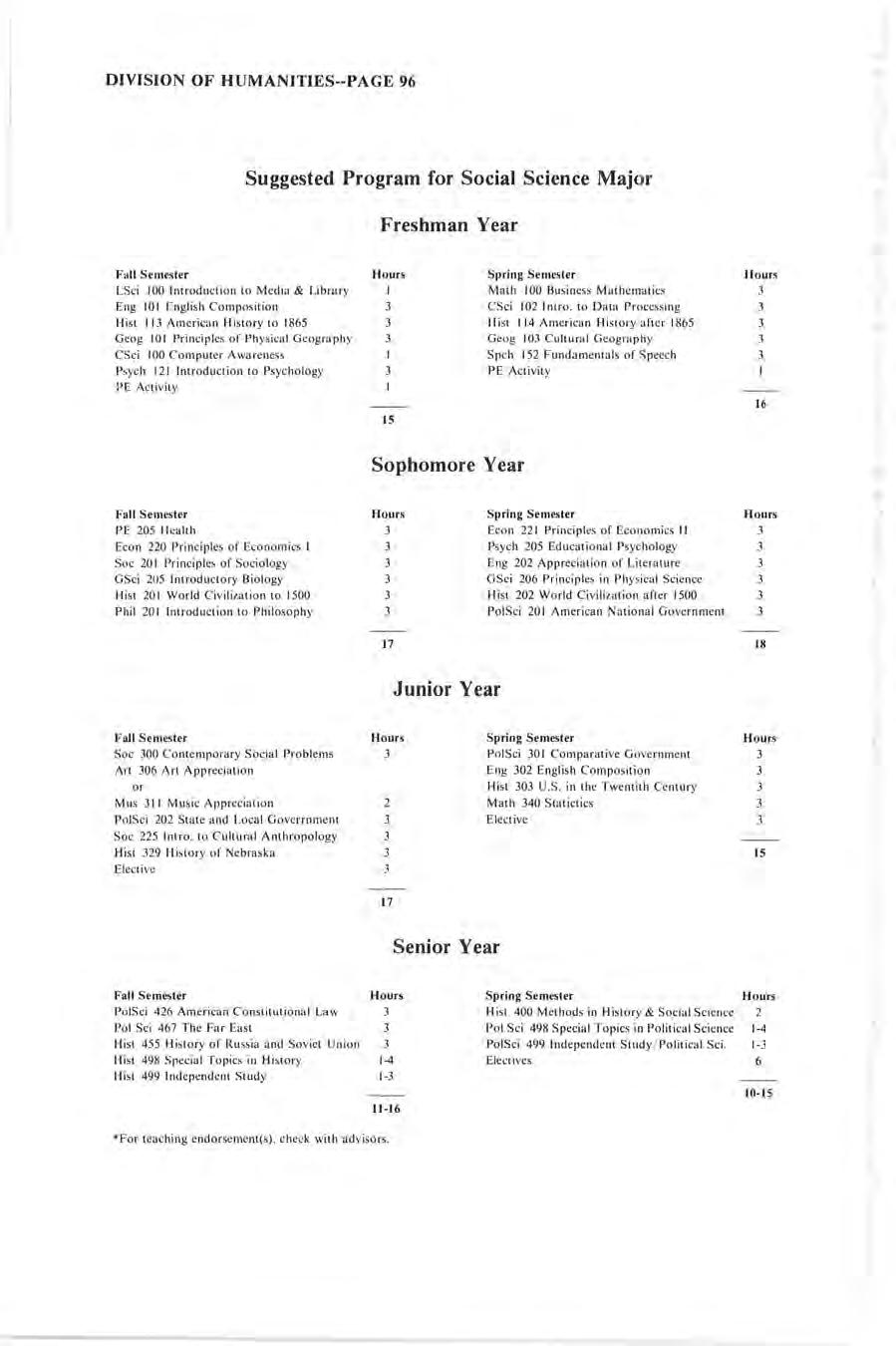
Hi s t 4 55 Hi s tor y of Russi a and Sovie t Un io n
PolSci 499 Ind e p en d e n t S tud y / Po lit ica l Sc i 1- 3
H is t 49 8 Spec ia l To pi cs in H is t ory
Hi s t 499 In dependent S tud y 1-4 1-J
• For t eaching c nd orscmcn t( s). c h eck w ith a d v iso rs.
Elec t ives 10-1 5
The degree in Psychology-Sociology is suitable for those students who wish to prepare for a wide range of careers in human services This major provides students with an understanding of both individual and group behavior as well as the opportunity to apply this knowledge in contemporary situations .
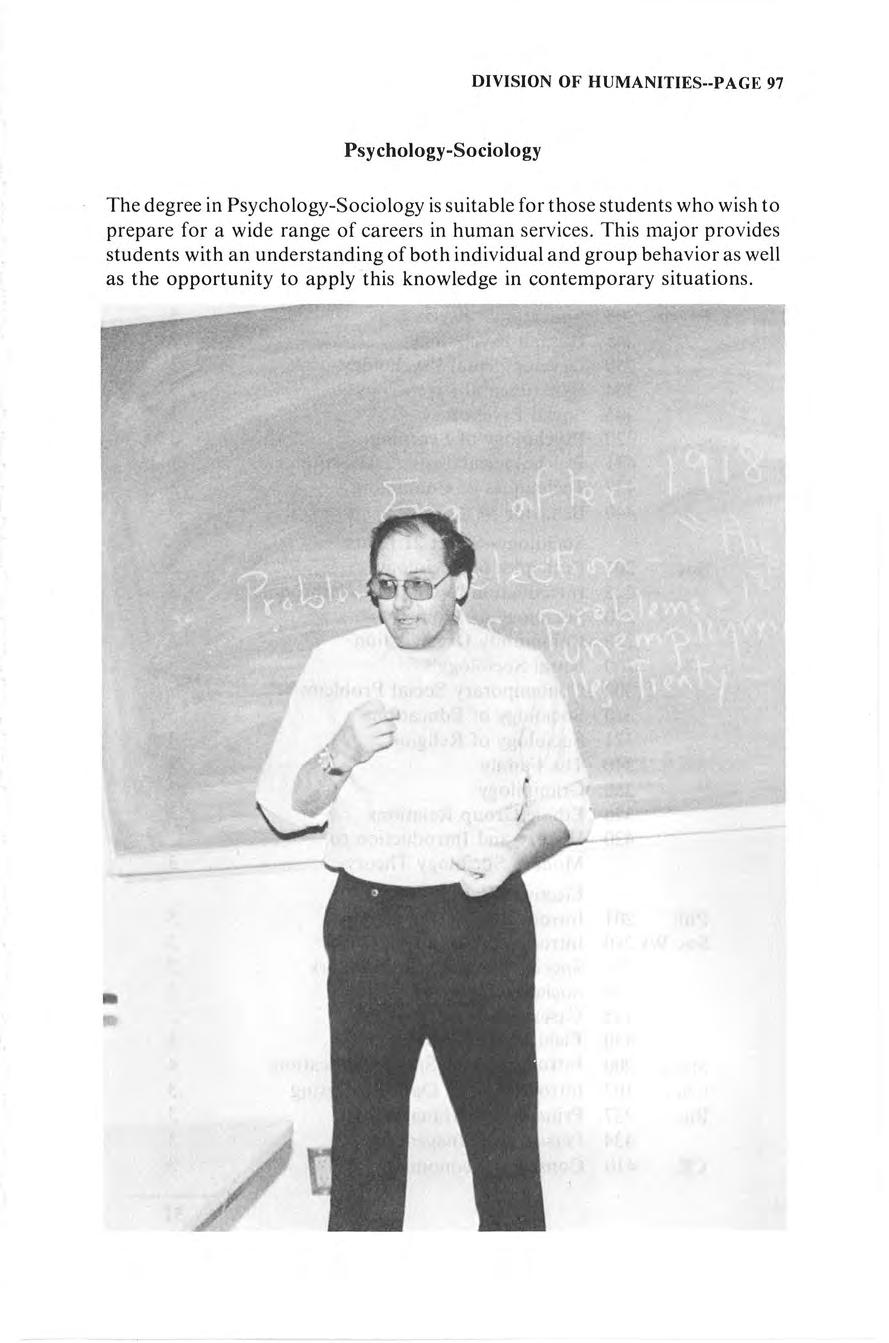
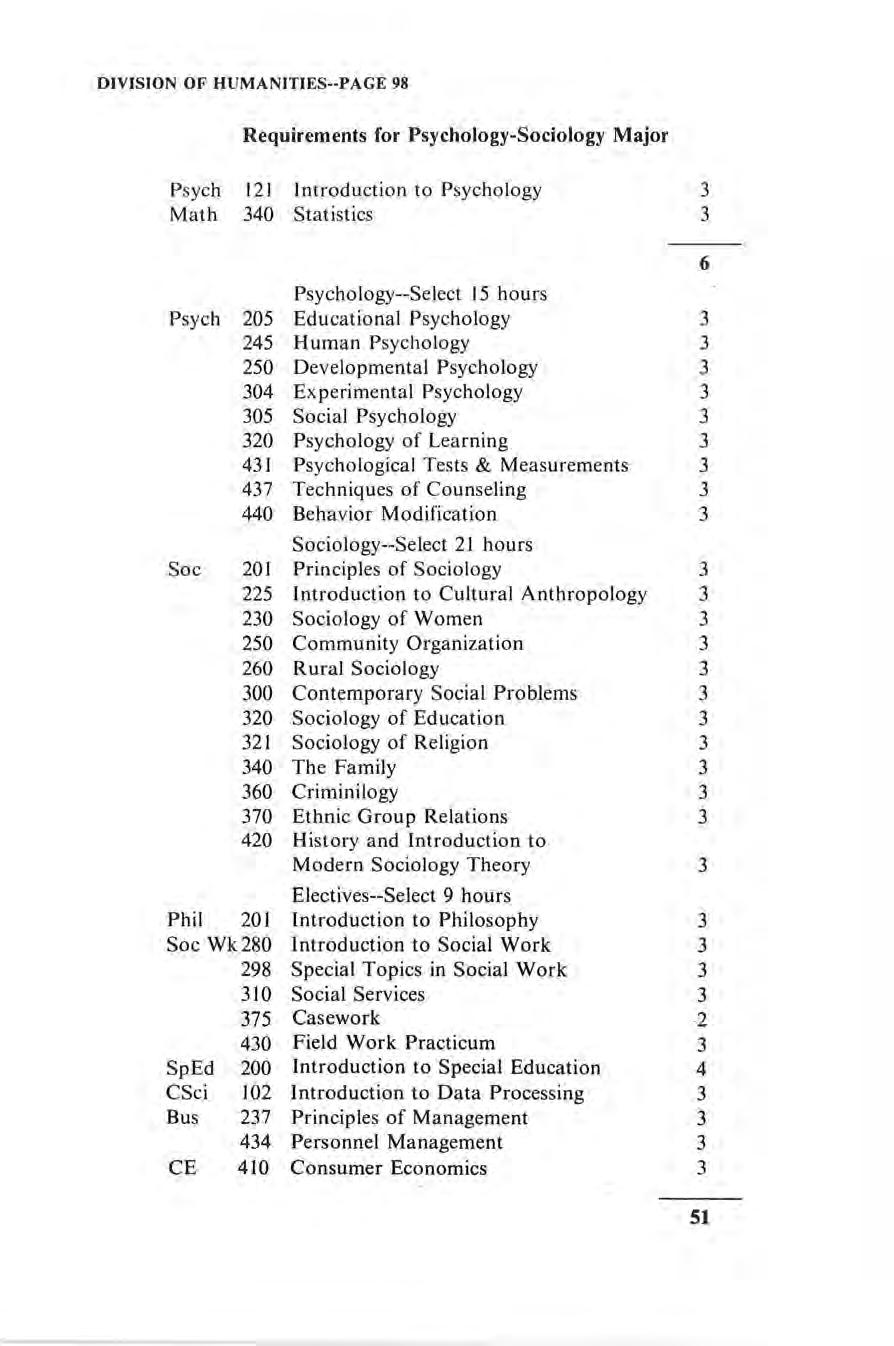
Freshman Year
Fall Semes ter
Psych 12 1 In troduction to Psycho logy
Eng IOI E ng lish Co mp ositio n
Hist 113 Amer ica n Hi s tor y t o 1865
Math IOI Co ll ege A lgebra
Open•
Fall Se m ester
Ps yc h 250 Develop m en tal Psychology
Eng 202 Apprecia tion of Lit erature
GSci 205 Introducto ry Biology
LSci 100 Int roductio n to Med ia & Library
Soc 225 Int ro. t o C ultura l A nthrop o l ogy
Open•
Fall Se mes t e r
Psych 431 Ps yc h Tests & Measure ments
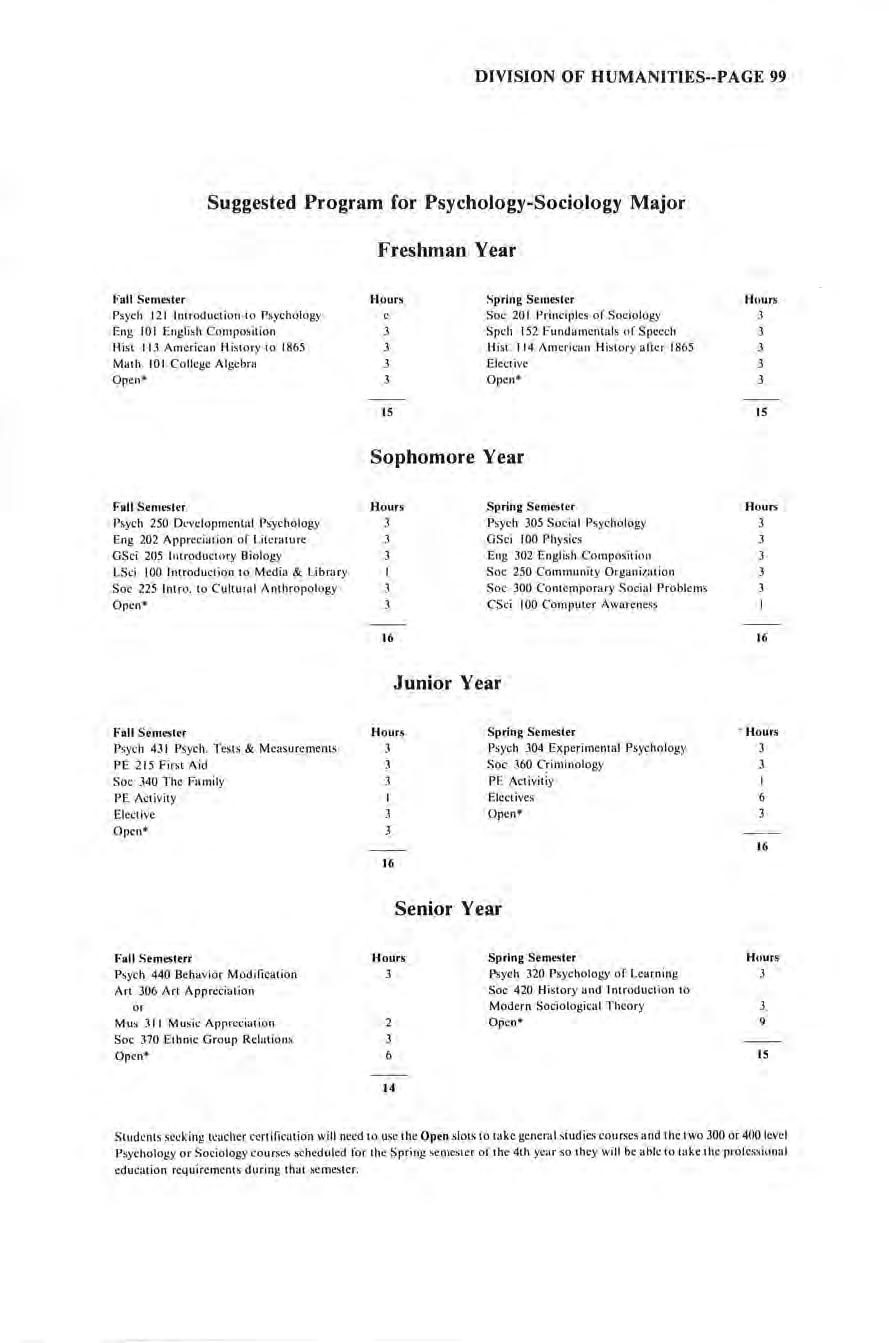
PE 2 15 First Aid
Soc 340 The Family
PE Acti vit y
Electi ve
Open•
Fall Semesterr
Psych 440 Beha vio r Modification
A rt 306 Art App reciat ion or
Mus 3 11 Mus ic Appreciation
Soc 370 Eth ni c Group Relations
Ope n•
Hours
Spring Se meste r
Soc 20 I Principles of Socio logy
Speh 152 Fu nd ame n tals of Speec h
Hist 11 4 American Hi s t ory after 1865
Elective Open*
15
Sophomore Year
Hour s 16
S pring Se meste r
Psych 305 Social Ps yc h o logy
GSci 100 Physics
Eng 302 E n g li s h Composit io n
Soc 250 Commun it y Organization
Soc 300 Contem porary Socia l Problems
CSc i 10 0 Computer Aware n ess
Junior Year
Hour s 16
S pring Se mester
Psych 304 Experimenta l Psyc hol ogy
Soc J60 C_r iminol ogy
PE Activiti y
Electives
Open*
Senior Year
Hours 14
S pring Se m es ter Ps yc h 320 Ps ychology of Lea rnin g
Soc 420 Hi s t ory and Int roductio n to Modern Soc iol og ica l Theory
Open*
Hours
3 3 15 Hours
16 ' Hou rs
16
Hours 15
Students seek in g. t eac h e r ce rti fica tion w ill ne ed to use the Open slots to take genera l studies co u rses and the two 300 or 400 leve l
P syc h o logy or Sociology courses sc h edu led fo r the Spring se mester of th e 4th ye ar so they wi ll be able to take th e professional ed u ca ti on re4uiremcnts during that semeste r.
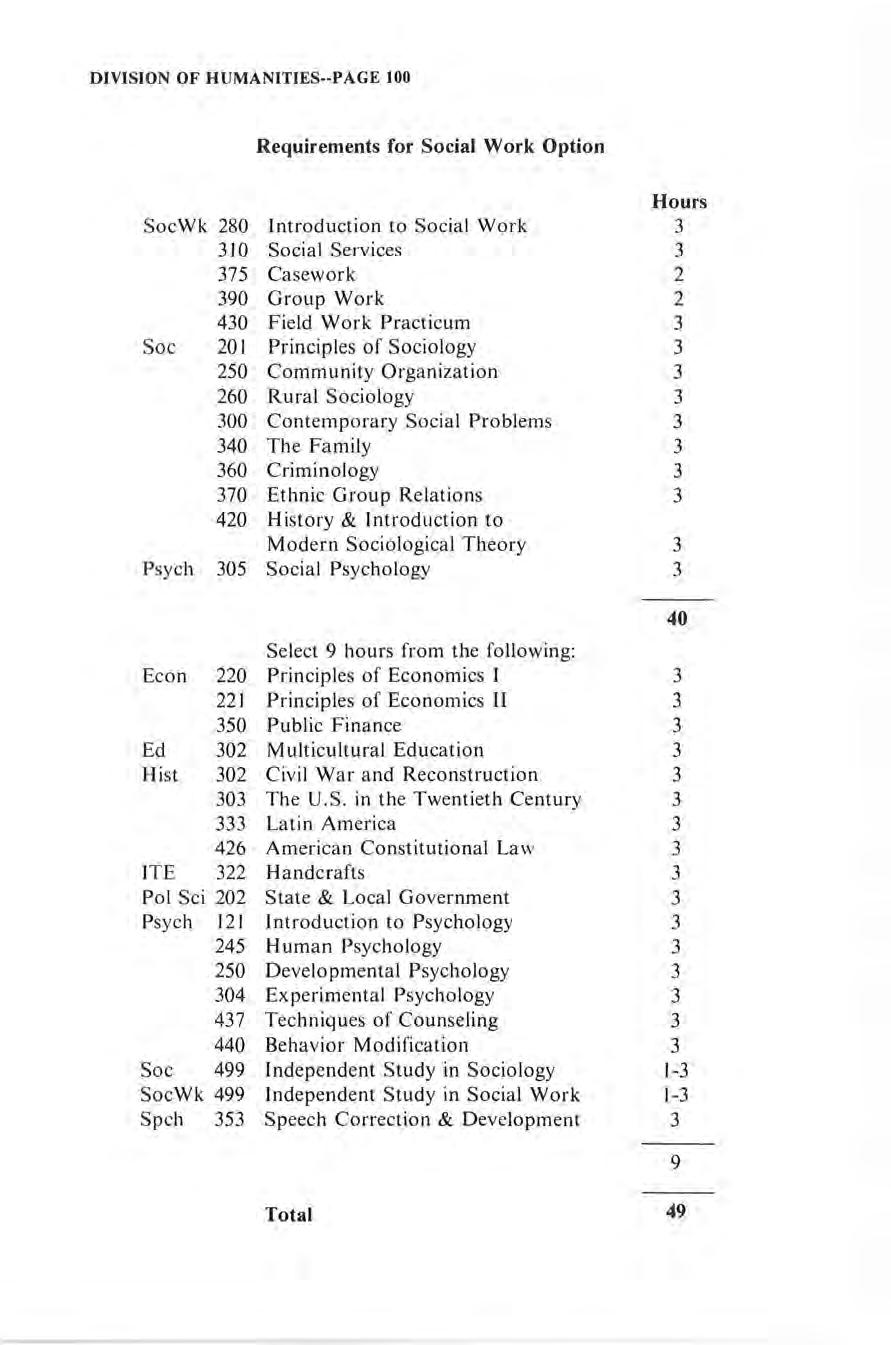
Students completing the major requirements in Social Work at Peru State College will be qualified for many professional level positions in either public or private social work. This program is not accredited by the Council on Social Work Education.
Students preparing to teach Psychology in high school are required to fulfill the general studies requirements and the secondary professional education requirements. Students may obtain a teaching endorsement in Psychology by completing 30 semester hours of coursework in Psychology and completing all other requirements for a subject endorsement. Students may also take Psychology as a part of the Social Science field endorsement.
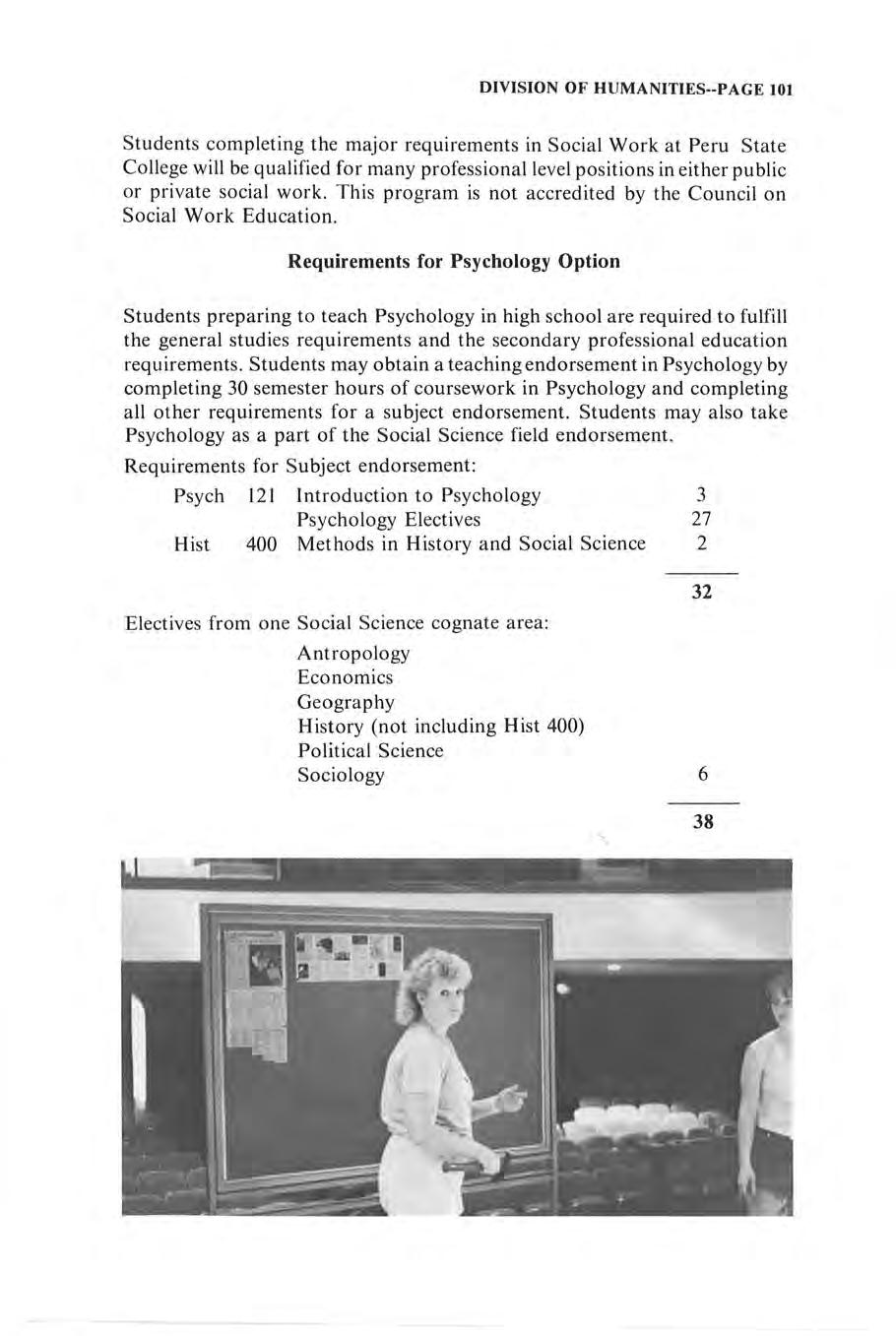

Students preparing to teach Socio lo gy in high school are required to fulfill the genera l studies requirements and the secondary professional education requirements. Students may obtain a teaching endorsement in Socio lo gy by completing 30 semester hours of coursework in Sociology in addition to completing all other requirements for a subject endorsement. A student may take Sociology as a part of the Social Science field endorsement.
Required for Subject endorsement:
Options avai lable through the Visual and Performing Arts provide opportunities for students to develop skills in Art, Speech and Drama, or Music Degrees may vary depending upon the type of profession. The Bachelor of Arts in Education degree is offered in Art and in Speech and Drama while the Bachelor of Fine Arts Degree is offered in Music. Each program is designed to provide the student with a variety of experiences and means of se lf expression through the arts.
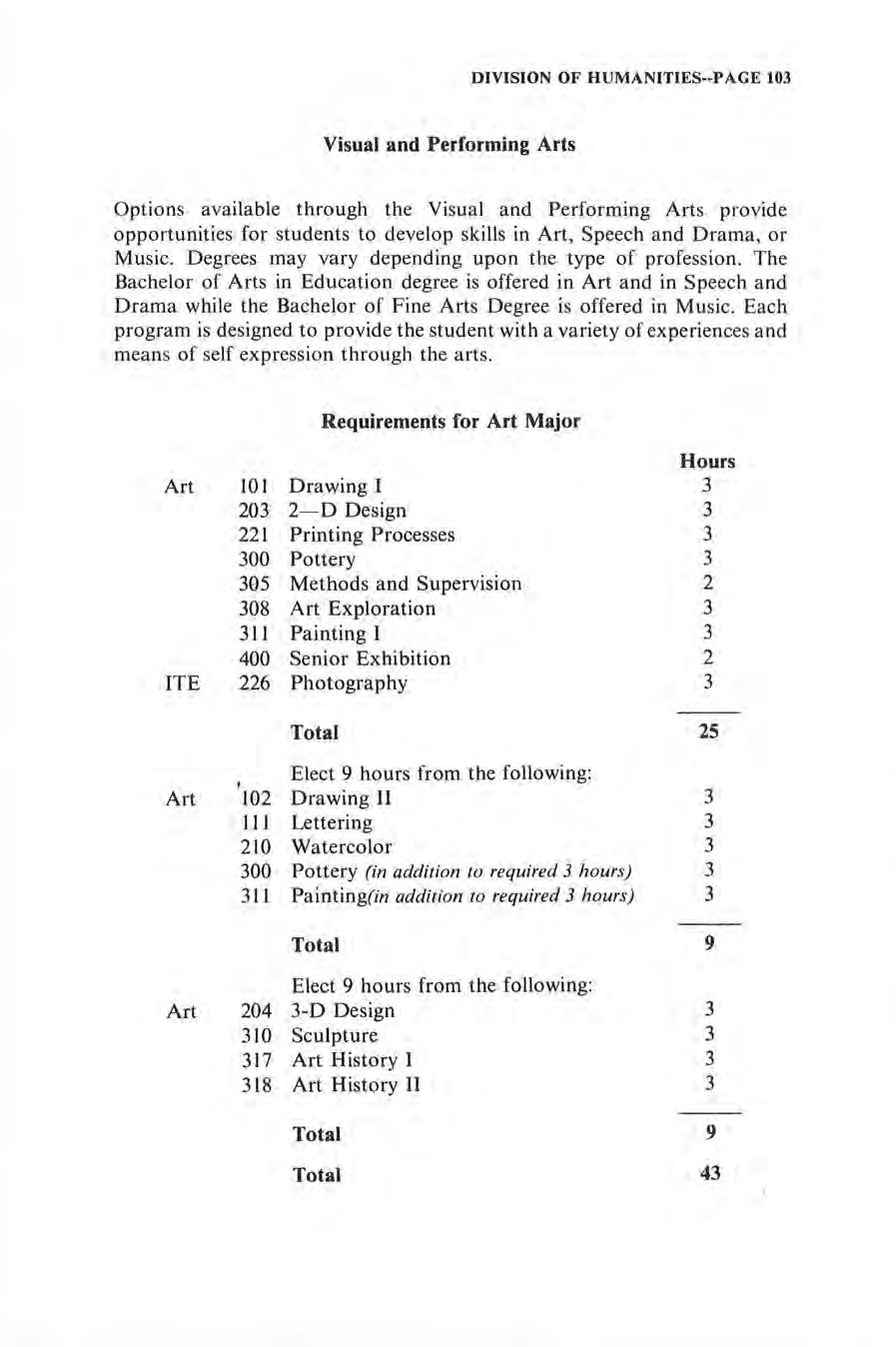
Art majors are required to have a Senior Exhibit of works produced while a Peru St a te student. The Art Department may retain for the files one p iece of art work from each student. Students not in Art Education may choose 5 hours of Art 498 or 499 or elect to fulfill the Art 305 and Art 30 8 requirement s .
Suggested Program for Art Major
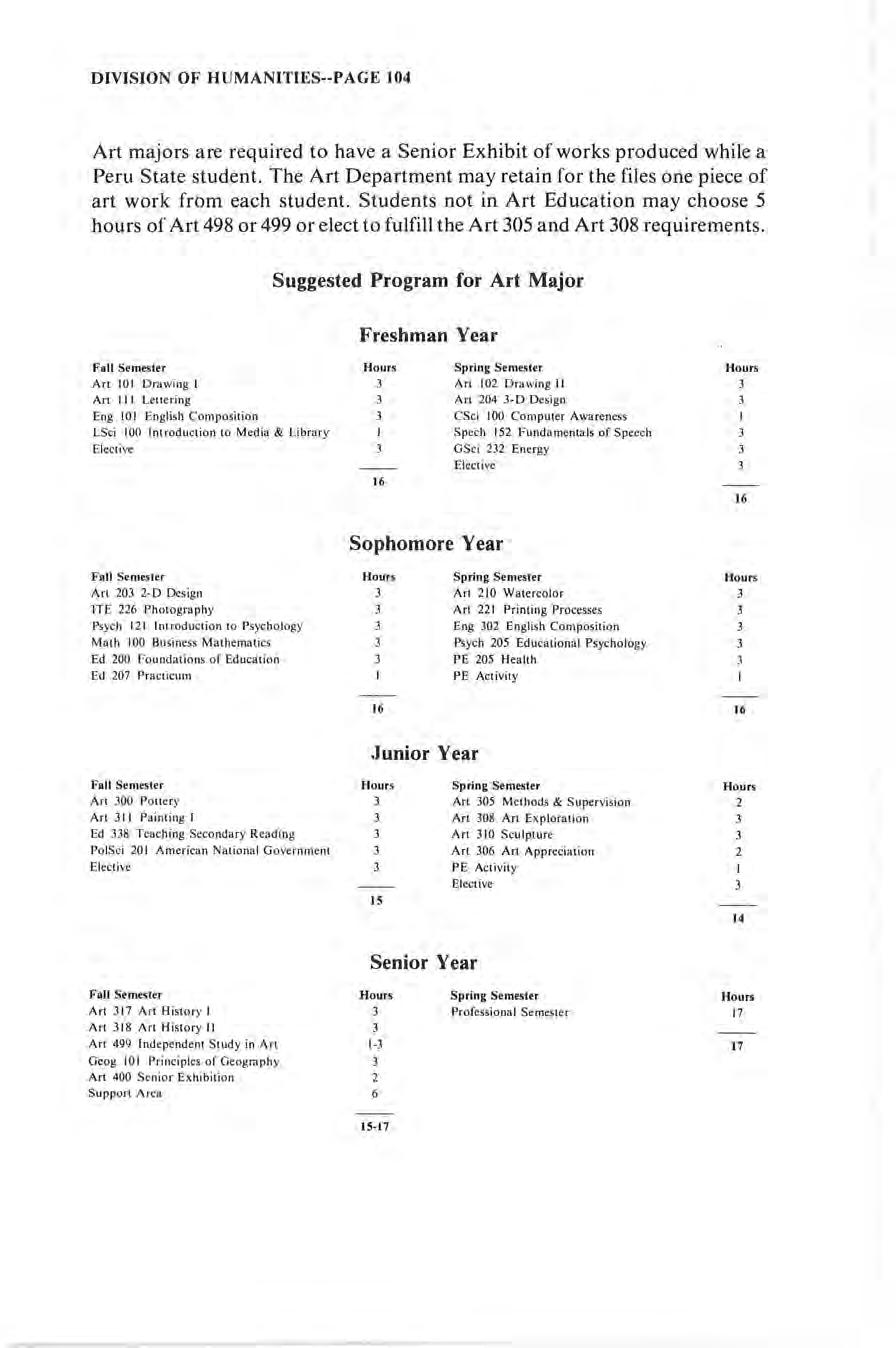
Freshman Year
Fall Semeste r
Art 10 1 D ra w ing I
A rt 111 Le tt er in g
En g 10 1 E n g lis h Compos iti o n
L Sc i 100 Introdu c ti o n t o M e di a & Lib ra r y
E lec ti ve
Fall Semes te r
Art 20 3 2- D De s ig n
IT E 226 P h otog ra ph y
Psyc h 12 1 I n t ro du c ti on t o P syc h o logy
Ma th 100 Bu si ness Mat he mati cs
Ed 200 Fo undat ions of Ed uc ati o n
Ed 2 0 7 Pra c t icum
Fall Se mester
A rt JOO P o tt e r y
A rt 3 11 P a i n tin g I
Ed 338 Teach in g Seco nda r y R ead in g
Po lSci 201 A m e ri ca n Na ti o na l G ove rnm e nt
E lec ti ve
Ho ur s 16
S prin g Se m ester
Art 10 2 D rawing II
Art 204 3- D D es ign
CSc i 100 C omput er Awa re ness
S p ec h 15 2 Fund a m e ntal s of S peec h
GSc i 232 E ne rgy
Elec t ive
Sophomore Year
H o ur s
S pring Se mester
Art 2 IO Wat e r co lor
Art 221 Printin g P rocesses
E ng 3 0 2 En g lis h Co mp os iti on
Psyc h 205 Ed uca ti o n a l P syc h o logy
P E 205 Health
P E A c ti v it y
Junior Year
Hours IS
S pring Semester
A rt 3 0 5 M e th ods & S up e r vis io n
A rt 3 0 8 An E x pl ora ti on
A rt 3 JO Sc ulpture
Art 3 06 Art Apprec ia tion
P E A c ti v it y E lec ti ve Senior Year
F all Semes t er
A r t 3 17 Ar t Hi s t o ry I
Art 3 18 A r t Hi s t o r y II
A rt 4 99 I nde pe nd e nt S t u d y in A rt
Geog JOI Pri nc ipl es o f Geog raph y
A r t 400 Sen io r E xh ibit io n
S upp o rt A rea
NOTE: Candidates for the K-12 Vocal / Instrumental Field Endorsement must (I) give a 30 minute recital at the conclusion of the junior level of applied music studies, (2) pass a piano proficiency examination prior to the "professional semester", and (3) have formal experience on a wind instrument, a keyboard instrument and voice.

NOTE: Candidates for the K-6 Vocal / Elementary Music Subject Endorsement must pass a piano proficiency examination prior to the "professional semes ter . "
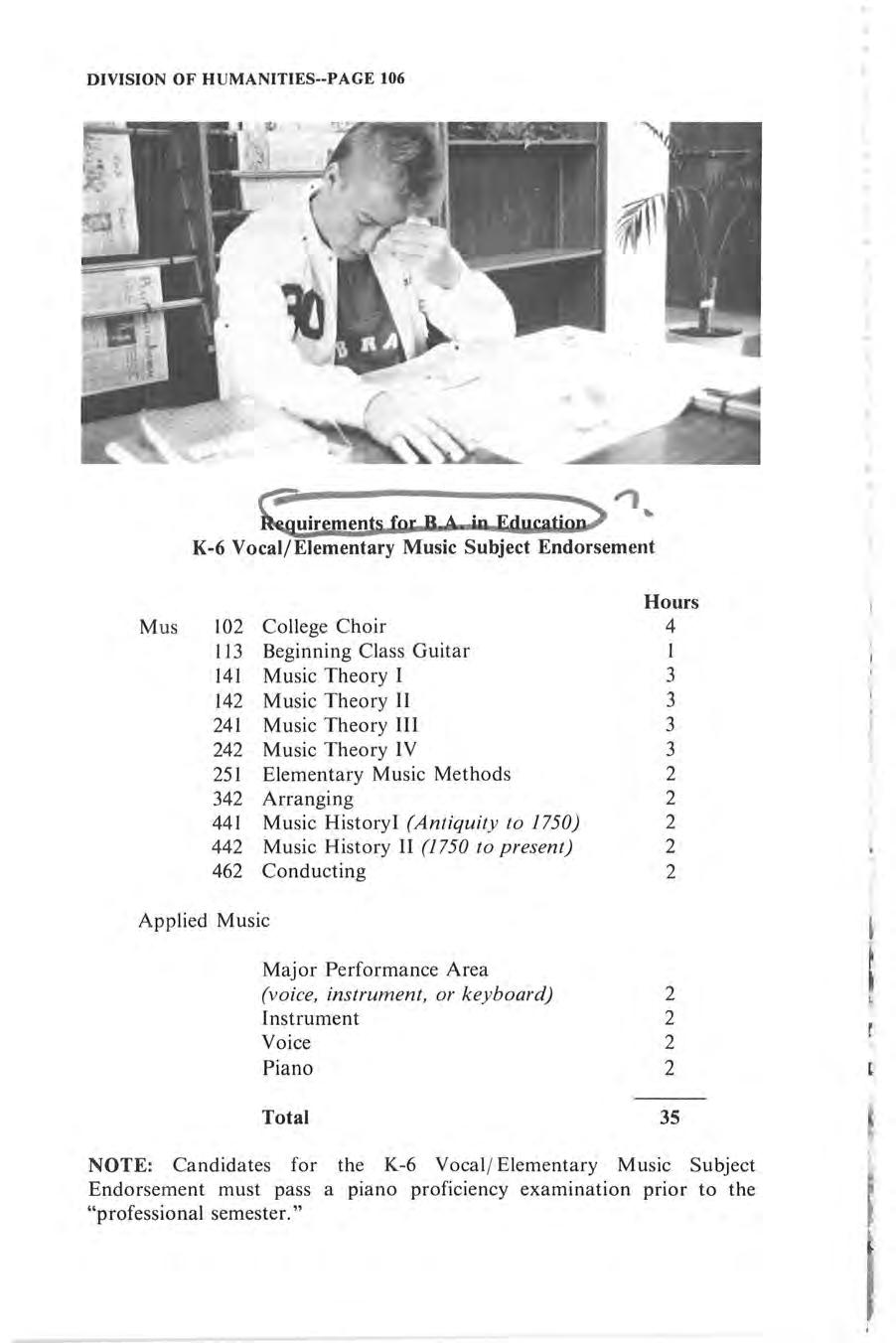
All students selecting the B.A . or B.S. with Emphasis in Performance must complete the above music requirements in addition to completing one the following options:
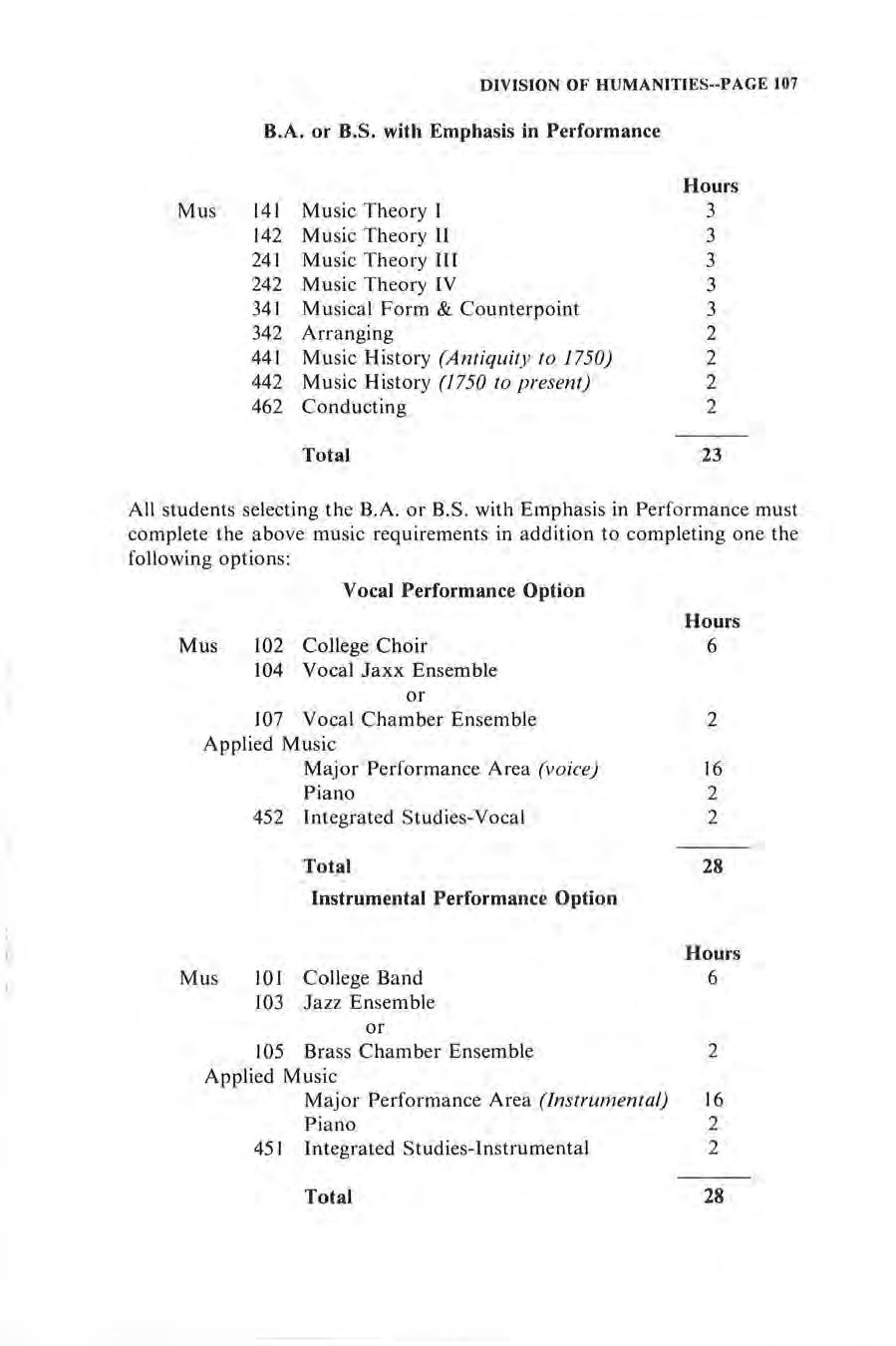
NOTE: Candidates for the B.A. or B.S. with Emphasis in Performance must present a 30 minute recital at the conclusion of the junior level of applied music studies and a 60 minute recital at the conclusion of the senior level of applied music s tudies.
NOTE : It is the policy of the Music Department that all Music majors participate in band or choir each semester. During the semester in which the student presents his or her junior or senior recital, adjustments to this policy can be made.
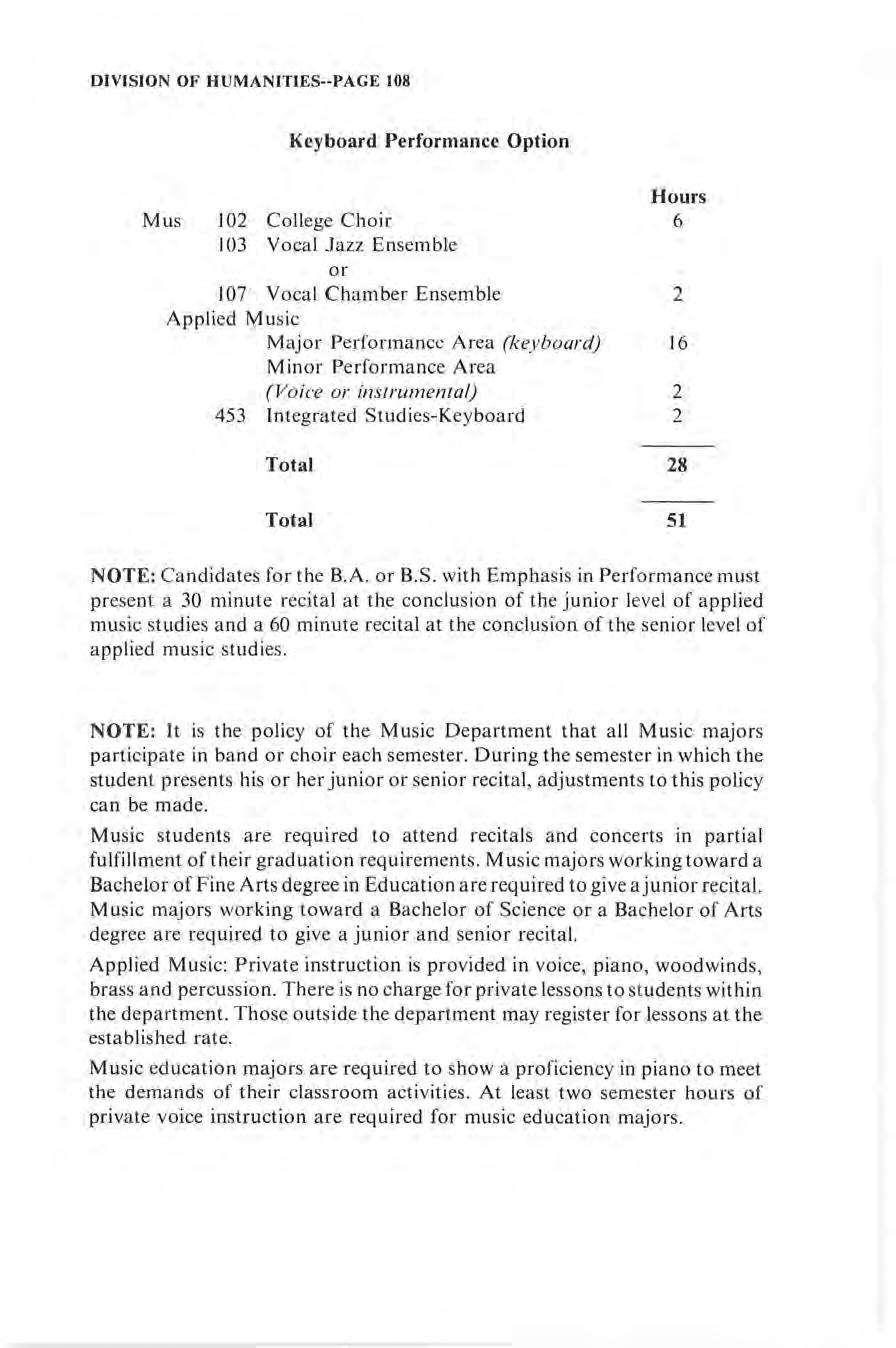
Music students are required to attend recitals and concerts in partial fulfillment of their graduation requirements. Music majors working toward a Bachelor of Fine Arts degree in Education are required to give a junior recital. Music majors working toward a Bachelor of Science or a Bachelor of Arts degree are required to give a junior and senior recital.
Applied Music: Private instruction is provided in voice, piano, woodwinds , brass and percussion. There is no charge for private lessons to students within the department. Those outside the department may register for lessons at the established rate.
Mu s ic education majors are required to show a proficiency in piano to meet the demands of their classroom activities. At least two semester hours of private voice instruction are required for music education majors.
All students who select the Bachelor of Arts or Bachelor of Science with Emphasis in Performance may also combine the fifty-one hours of music required with selected studies in business in order to prepare for a career in the music industry. Below are suggested business courses: however , the business requirements may be selected through consultation with the business advisor, tailoring the program to meet each student's career needs or special business interests. Twenty-one hours of business are required.
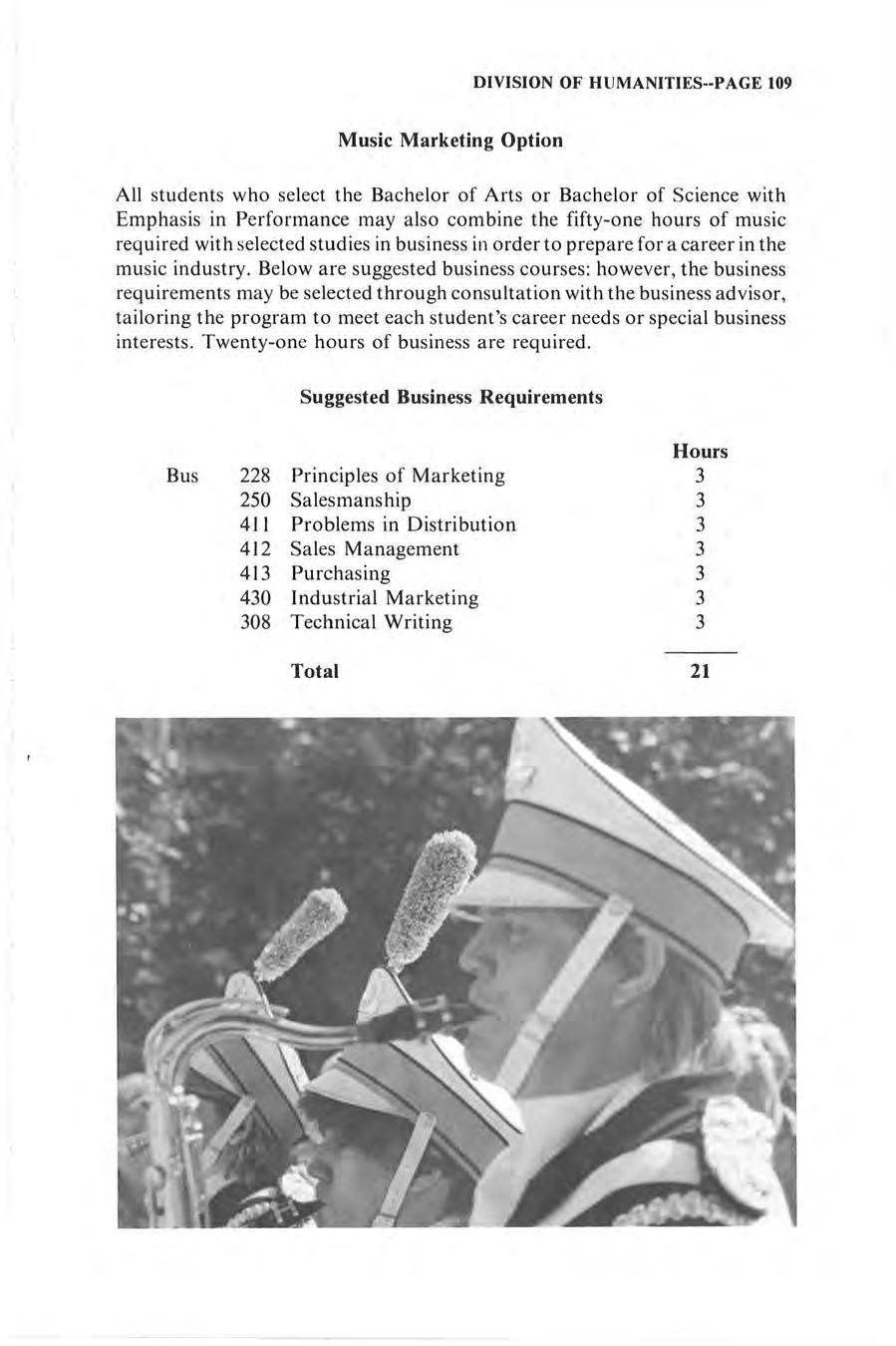
Fall Semester
Mus JOI Co llege Band or
Mus 102 Co ll ege Choir
Mus 112 Beginning C lass Piano
Mus 121 Applied Mu s ic
Mus 141 Mu s ic T h eory I
Mu s 362 Pe rcussion Methods
Eng IOI Eng lish Comp osi tion
Hi s t 11 3 American Government to 1865
LSci 100 In troduction t o Media & Librar y
PE Activit y
Hours 16
Fall Se mester
Mus IOI Co ll ege Band
o r
Mu s 10 2 Co llege Choir
Mu s 22 1 App li ed Music
Mus 24 1 Mu sic Th eo ry 111
Mus 252 Secondary Music Method s
Mu s 341 String Meth ods
Psyl'h 121 Introd u ct io n to Psycho logy
PolSci 201 American Nationa l Go ve rnment
PE 2 15 First Aid
Fall Se m ester
Mus IOI College Band o r
Mu s 10 2 College Choir
Mu s 321 Applied Mu s ic
Mus 341 Form and Cou nt e rpoint
Mus 441 Mu s ic Histor y I
Mus 451 Integrated Studies- In s trument
Math 10 0 Business Mathemati cs
GSci 205 Introducto ry Bio logy
Mu s 122 Applied Mu s ic (2nd area)
Fall Semesler
Mus IOI Co llege Band or
Mu s I02 College C hoir
Mus 421 Applied Music
Mus 462 Conduct in g
Mu s 123 Applied Mu sic (2nd Area)
Eng 302 Engli sh Composit i o n
Speh 15 2 Fundamental s of Speech
Ed 308 Teaching Secondar y Reading
Electives
S pring Semesler
Mu s 101 Co ll ege Band or
Mus 102 Co ll ege Choir
Mus 11 2 Beginning Clas s Piano
Mu s 131 Applied Music
Mu s 142 Mu s ic Theory II
Mus 3 11 Music Ap pr ec iati o n
Mu s 352 W oo dwind Methods
Hist 114 American Hi st ory after 1865
Ed 200 Foundations of Educat io n
Hours 17
Spr ing Semester
Mus 101 College Band or
Mu s 102 College Choir
Mus 23 1 Applied Mu s ic
Mus 242 Mu sic Theory IV
Mu s 25 1 Elementary Method s
Mus 35 1 Bra ss Method s
Eng 202 Appreciation o f Lit erature
Psyc h 205 Educationa l Psyc ho logy
Ed 207 Pra cticum
PE Activity /
Hours 16
Sp ring Semester
Mus 101 Co ll ege Band or
Mu s 102 Co ll ege Choir
Mus 33 1 App li ed Musi c (Junior Recital)
Mus 342 Arranging
Mu s 442 Mu s ic Hi s t ory II
Mu s 45~ Int egrate d Studies-Vocal
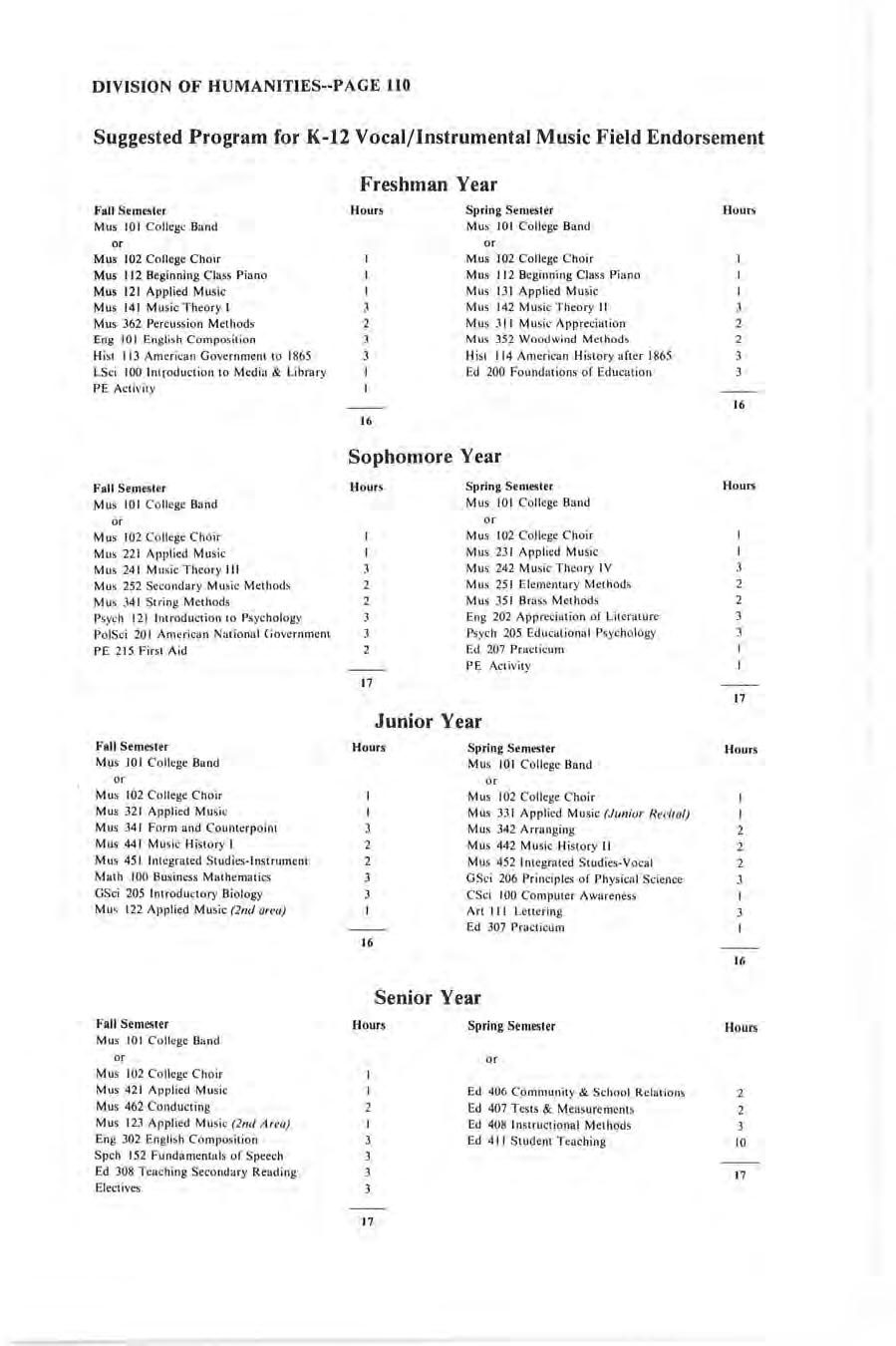
GSc i 206 Prin ci pl es of Phy s ical Science
CSc i 100 Compu ter Awareness
Art l I l Lett e ring
Ed 307 Practicum
Hours 17
S pring Semesler or
Ed 406 Co mmunit y & Sc h oo l Relation s
Ed 407 Tes ts & Mea s ureme nt s
Ed 408 In s tructional M e thods
Ed 411 S tud ent Teaching
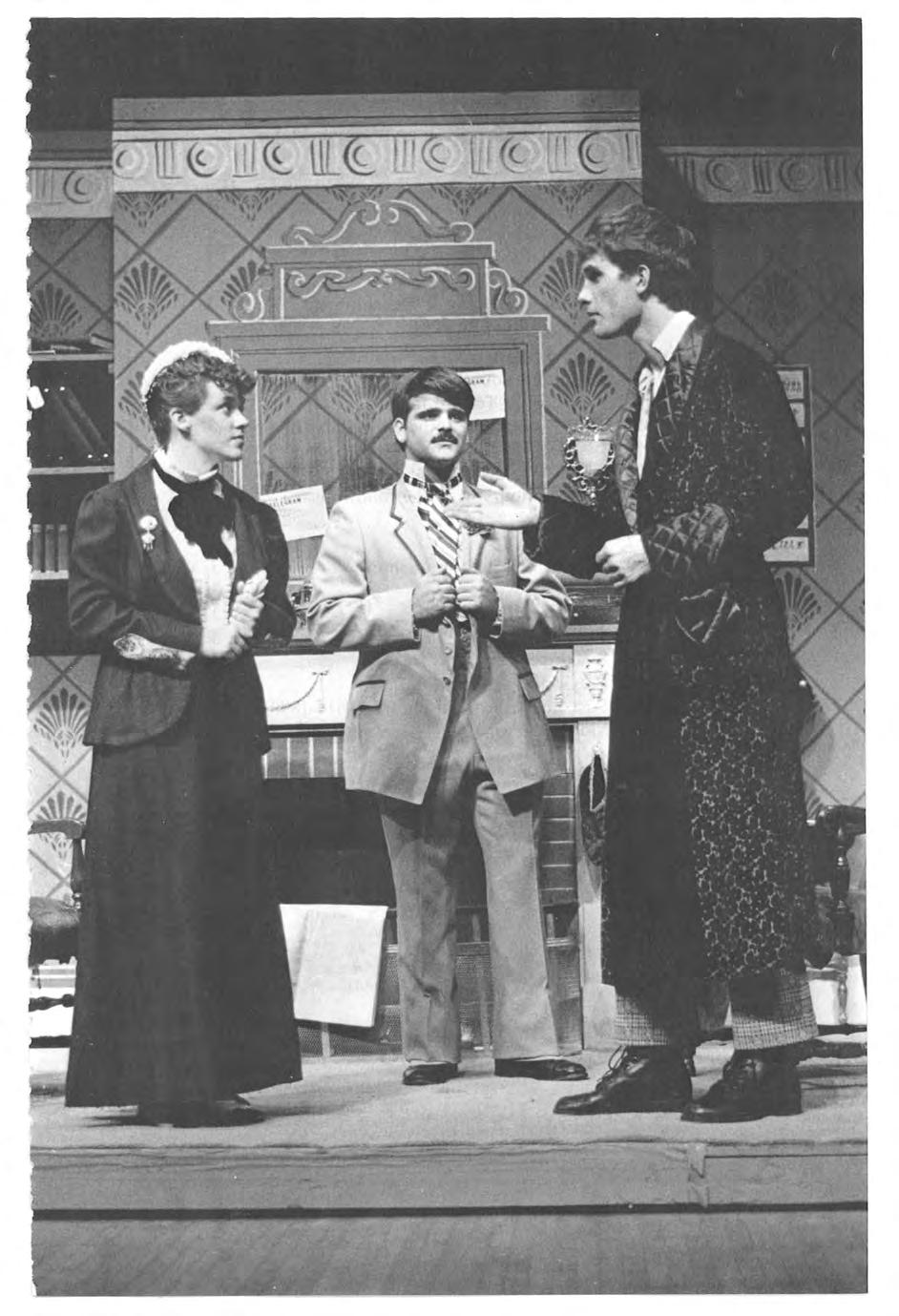
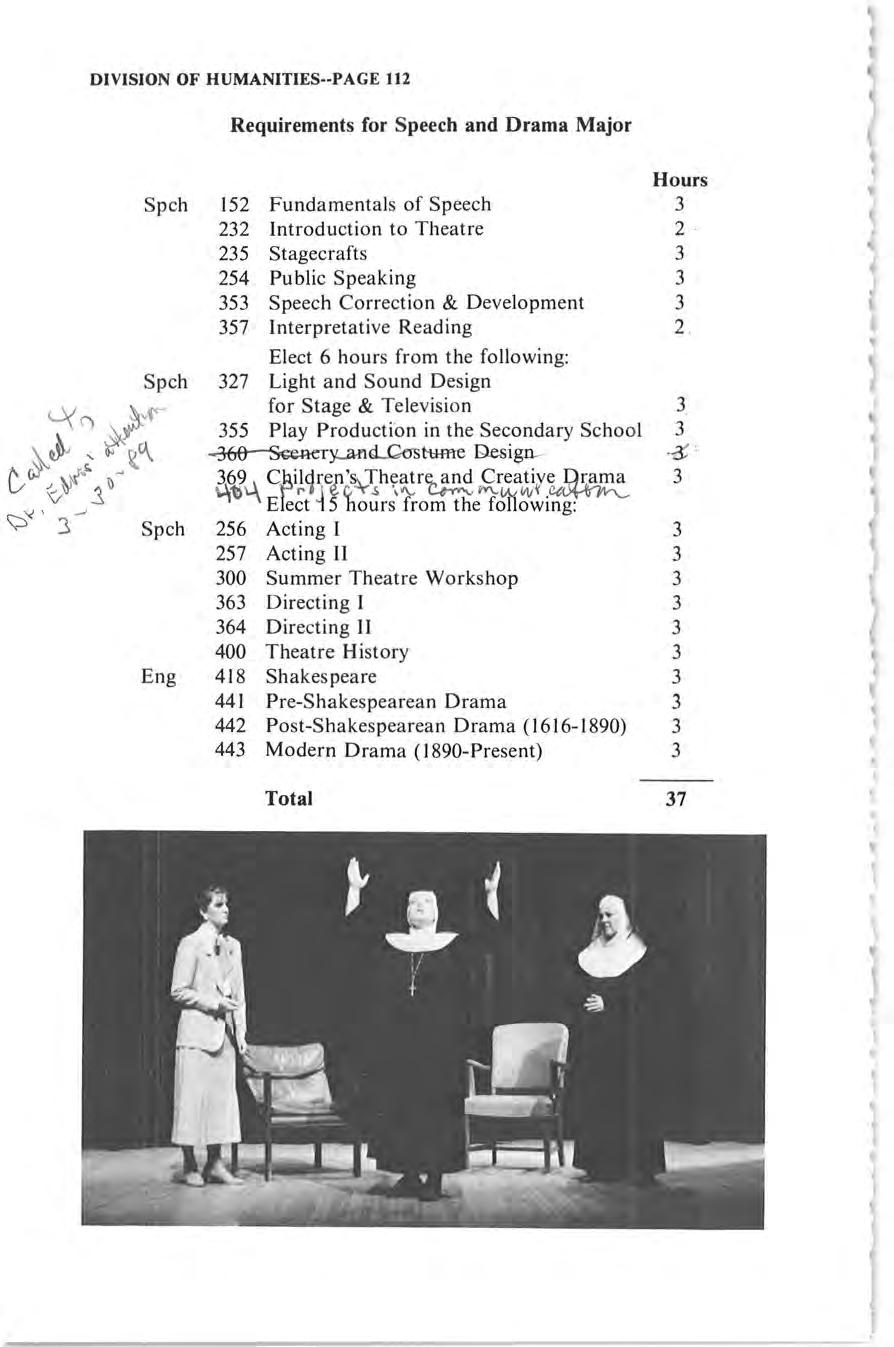
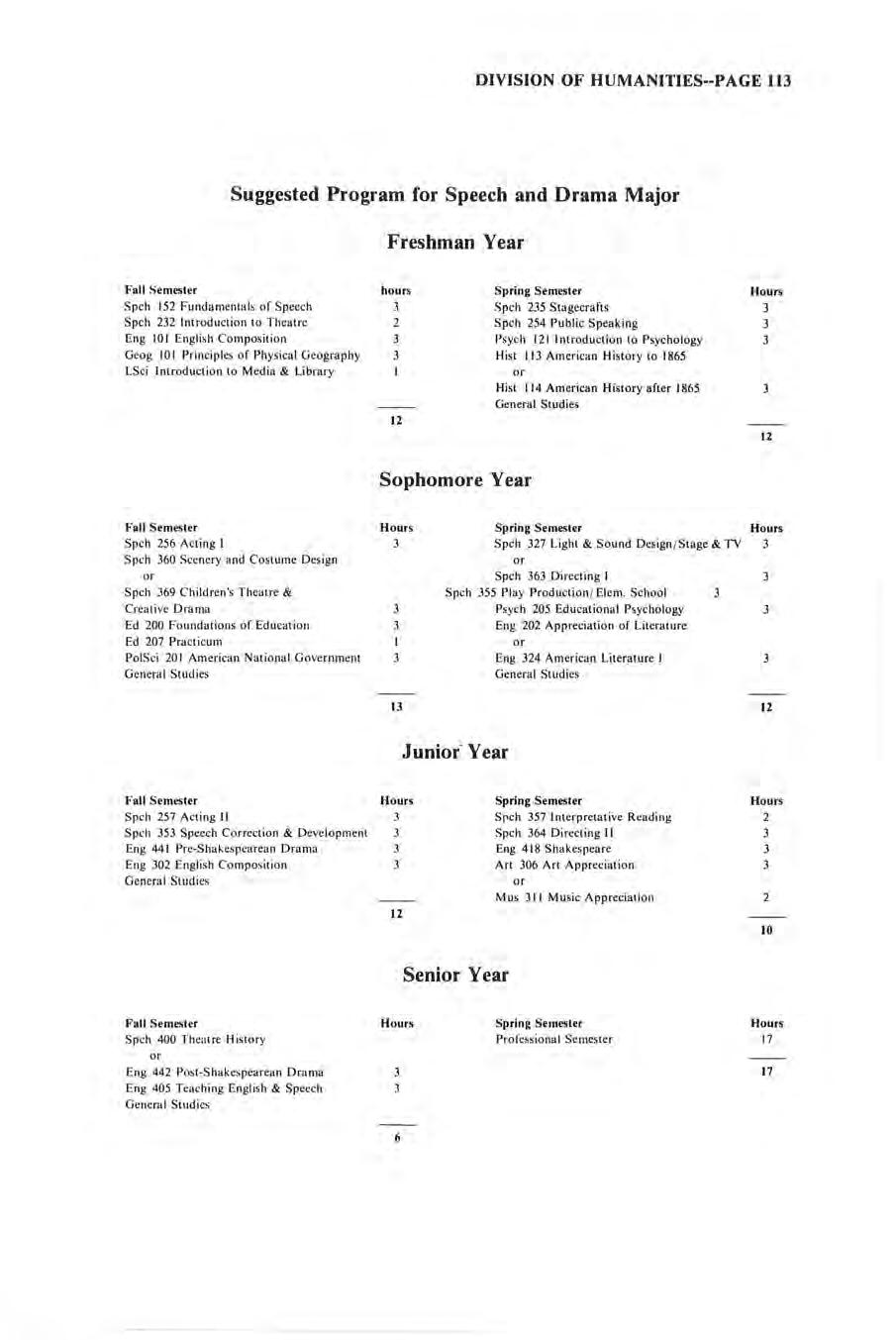
152 Fundamentals or Speec h Speh 232 Introduction to Theatre
ng 10 1 Eng li s h Co mpos ition Geog IOI Princ ip les or Physica l Geog raphy
Prosp e ctive law students are urged to take a Bachelor's degree prior ro beginning their legal studies. Applications to the law school of the student's choice s hould be made early in the fourth year of pre-legal study. Students intere st e d in law choose much of their course work from fields in which they have th e most interest. Work in English composition is important since the ability to use the English language effectively is highly recommended for prelaw students. Pre-law students are assigned an advisor who wo r ks closely with them in programming their four years of study.

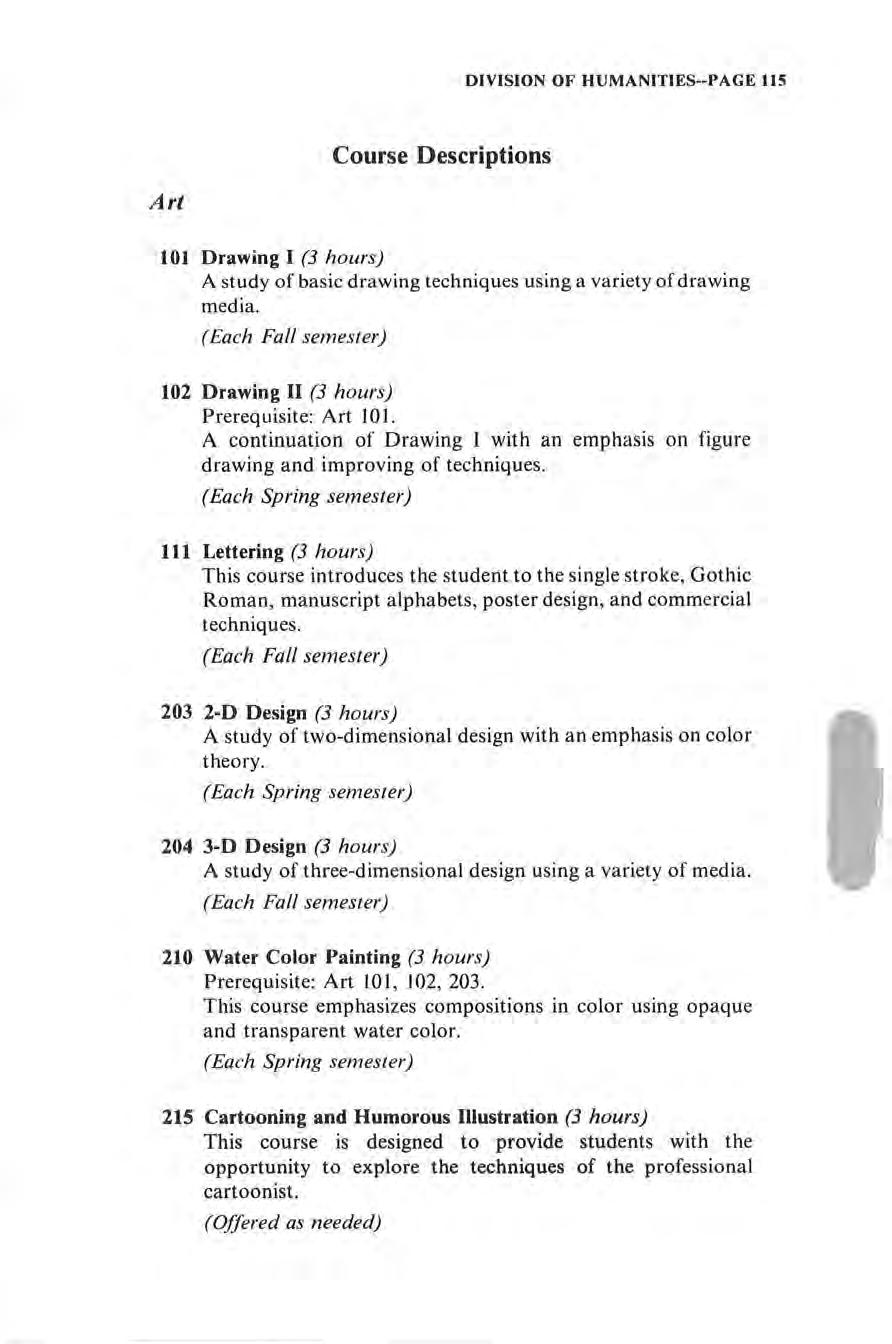
101 Drawing I (3 hours)
A study of basic drawing techniques using a variety of drawing media.
( Each Fall semester)
102 Drawing II (3 hours)
Prerequisite: Art 10 I.
A continuation of Drawing I with an emphasis on figure drawing and improving of techniques.
(Each Spring semester)
111 Lettering (3 hours)
This course introduces the student to the single stroke, Gothic Roman, manuscript alphabets, poster design, and commercial techniques.
(Each Fall semester)
203 2-D Design (3 hours)
A study of two-dimensional design with an emphasis on color theory.
(Each Spring semester)
204 3-D Design (3 hours)
A study of three-dimensional design using a variety of media .
(Each Fall semester)
210 Water Color Painting (3 hours)
Prerequisite: Art IO I, 102, 203.
This course emphasizes compositions in color using opaque and transparent water color.
(Each Spring semester)
215 Cartooning and Humorous Illustration (3 hours)
This course is designed to provide students with the opportunity to explore the techniques of the professional cartoonist.
(Offered as needed)
221 Printing Processes (3 hours)
This course introduces the history and techniques of the graphic arts of block printing, etching, lithography, and silk screen printing.
(Each Spring semester)
298 Special Topics in Art (1-4 hours)
Freshman-Sophomore standing.
(Offered as needed)
300 Pottery (6 hours)
This course offers experiences in hand-built and thrown projects including a basic study of glaze preparation and clay analysis. Students are limited to 3 hours credit per semester. The course may be repeated for a total of 6 hours .
(Each Fall semester)
305 Methods and Supervision (2 hours)
Prerequisites: Art JO I, I03, and 203 or 204. The study of contemporary art education teaching techniques , lesson plans, teaching experiences, and the ordering of materials with an emphasis upon the use of materials in the school art program.

(Each Spring semester)
306 Art Appreciation (2 hours)
The study of art principles through crafts, painting , sculpture, and architecture.
(Each semester)
308 Art Exploration (3 hours)
A study of the purpose of art education in the elementary school program. The student is presented with a survey of the history and philosophy of art in the elementary school and becomes actively involved in art activities designed for the elementary school classroom.
(Each semester)
310 Sculpture (3 hours)
Prerequisite: Art 203.
This course introduces experiences in three dimensional form using a variety of materials. Students are limit ed to 3 hours cr~d it per semester. The course may be repeated for a total of 6 hours .
(Each Spring semester)
311 Painting (3 hours)
Prerequisite: Art 10 I , 203.
This course introduces studio act1v1t1es in acrylic pamtmg techniques. Students are limited to 3 hours credit per semester. The course may be repeated for a total of 6 hours
(Each Fall Semester)
317 Art History I (3 hours)
A study of painting, sculpture, and archicture from ancient times to the 1800s.
(Fall semester, even years)
318 Art History II (3 hours)
A study of art from the 1800s through contemporary art trends. (Fall semester, odd years)
400 Senior Exhibition (2 hours)
(Each semes ter)
498 Special Topics in Art (1-4 hours) Junior-Senior standing.
(Offered as needed)
499 Independent Study in Art (1-3 hours) Junior standing.
(Offered as needed)
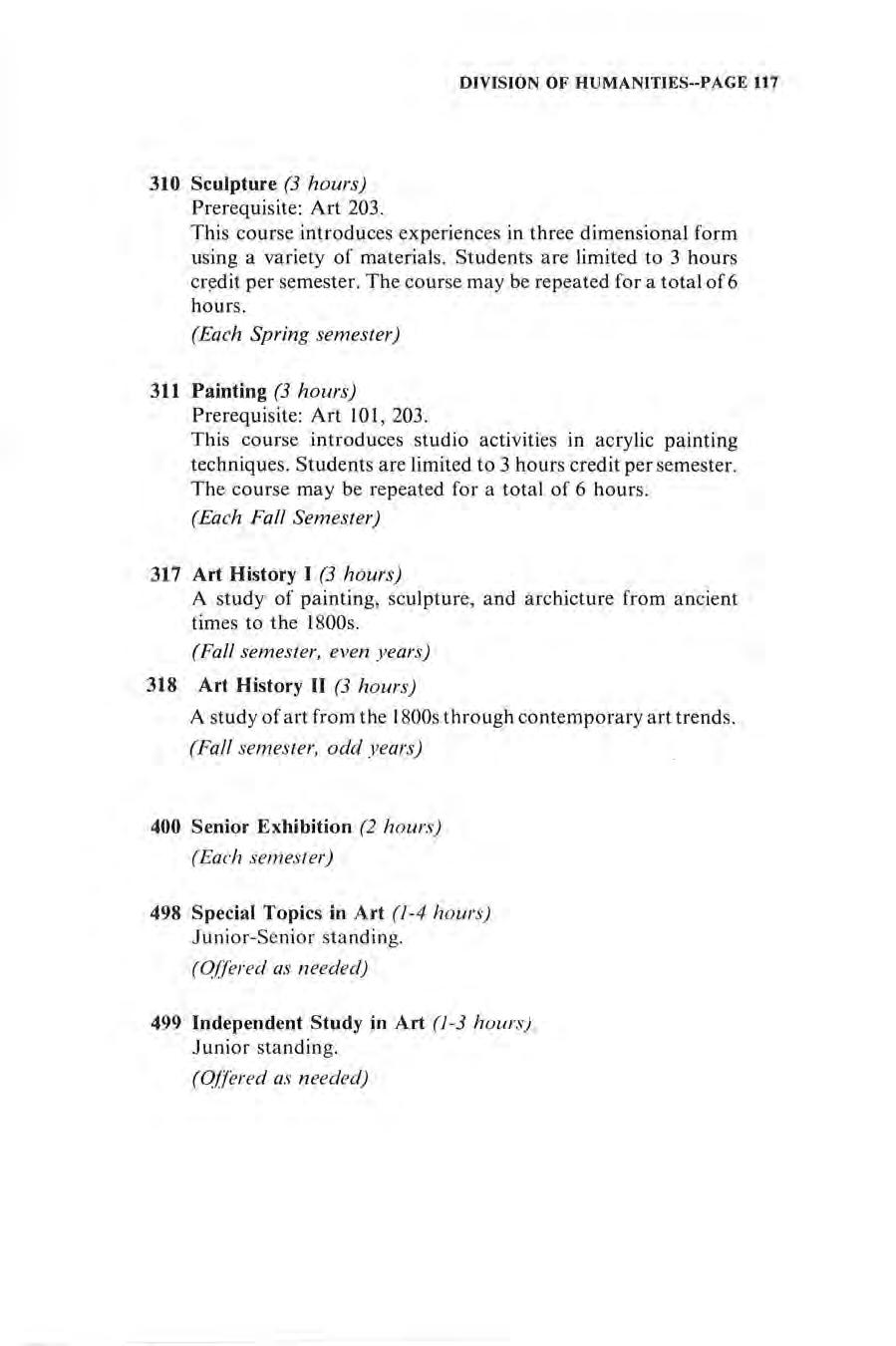
90 Study Skills--Reading (1 hour)
This one hour lab course is designed to improve reading skills. Students (first - time freshman) scoring below the 12th grade level on the Nelson-Denny Reading Test will be required to successfully complete the course.
( Each semester)
91 Study Skills--Composition (1 hour)
This credit / no credit course is presented as an extension of English 101. Students will write a dia gnostic essay in English IO I at the beginning of the semester to determine whether they need English 91, a grammar review. Essays will be judged by a committee of . three faculty members from the English Department. Students demonstrating a need for English 91 must pass English 91 in order to pass English IO I.
(Each semester, second nine weeks)
~<:v 'J., 92 Study Skills--General (1 hour)
\) Acourse presented to allow students an opportunit y to expand their general study skills . This is a credit / no credit course that meets at an arranged time
(Each semester)
93 Study Skills--Vocabulary (1 hour)
A course presented to allow students an opportunity to expand their general study skills. This is a credit / no credit course that meets at an arranged time ( Each semester)
101 English Composition (3 hours)
A study of the principles of clear and effective expression as applied to the sentence, paragraph, and the whole composition. A review of grammar, mechanics, and correct usage . Training in organization, and the writing of short and long papers. Required course for all freshmen (Note: Students who rank at the 85th percentile or higher on the English portion ofthe A CT may be excused from English 101)
(Each semester)
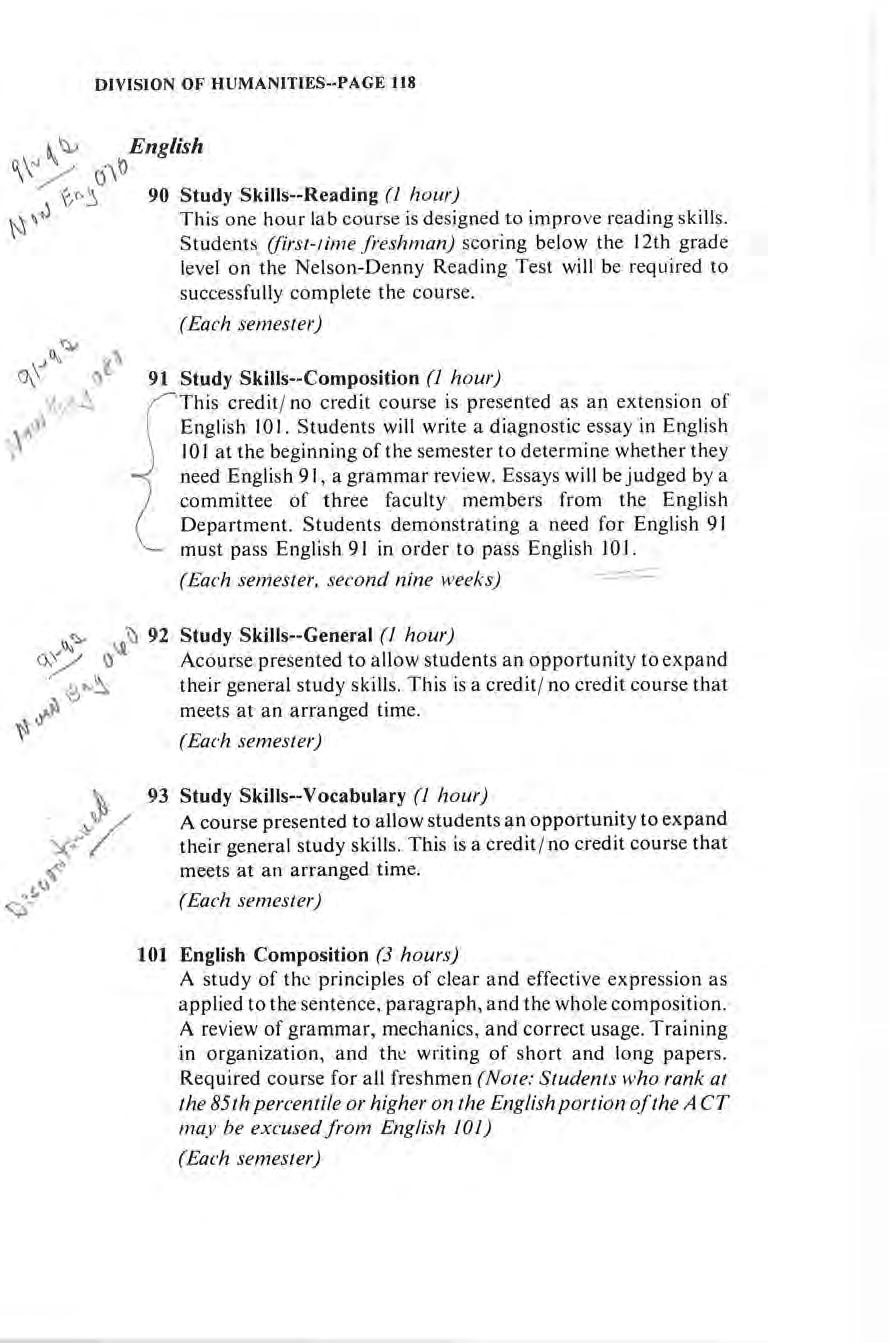
202 Appreciation of Literature (3 hours)
A general studies requirement designed to increase the student's appreciation of literature with an emphasis on modern literary forms.
( Each semester)
203 Children's Literature (3 hours)
A survey of children's literature with an emphasis on applying the principles of evaluation to selected books from both traditional and modern picture books, poems, and stories.
(Each Spring semester)
208 Advanced Writing (3 hours)
A study of description, narration, exposition, and poetry as rhetorical forms with extensive practice in writing.
(Spring semester, even years)
222 The Hellenic-Hebraic Tradition (3 hours)
Prerequisite : English 202.
An introduction to the roots of English literature in Greek, Roman, and Hebrew literature.
(Offered as needed)
225 Short Story (2 hours)
The major emphasis of this course is on the development of the short story in American literature.
(Fall semester, even years)
275 Film Criticism (3 hours)
Prerequisite: English 202 or permission of instructor. An examination of the several points of view from which film may be criticized with an emphasis on authorship and techniques of the film-maker.
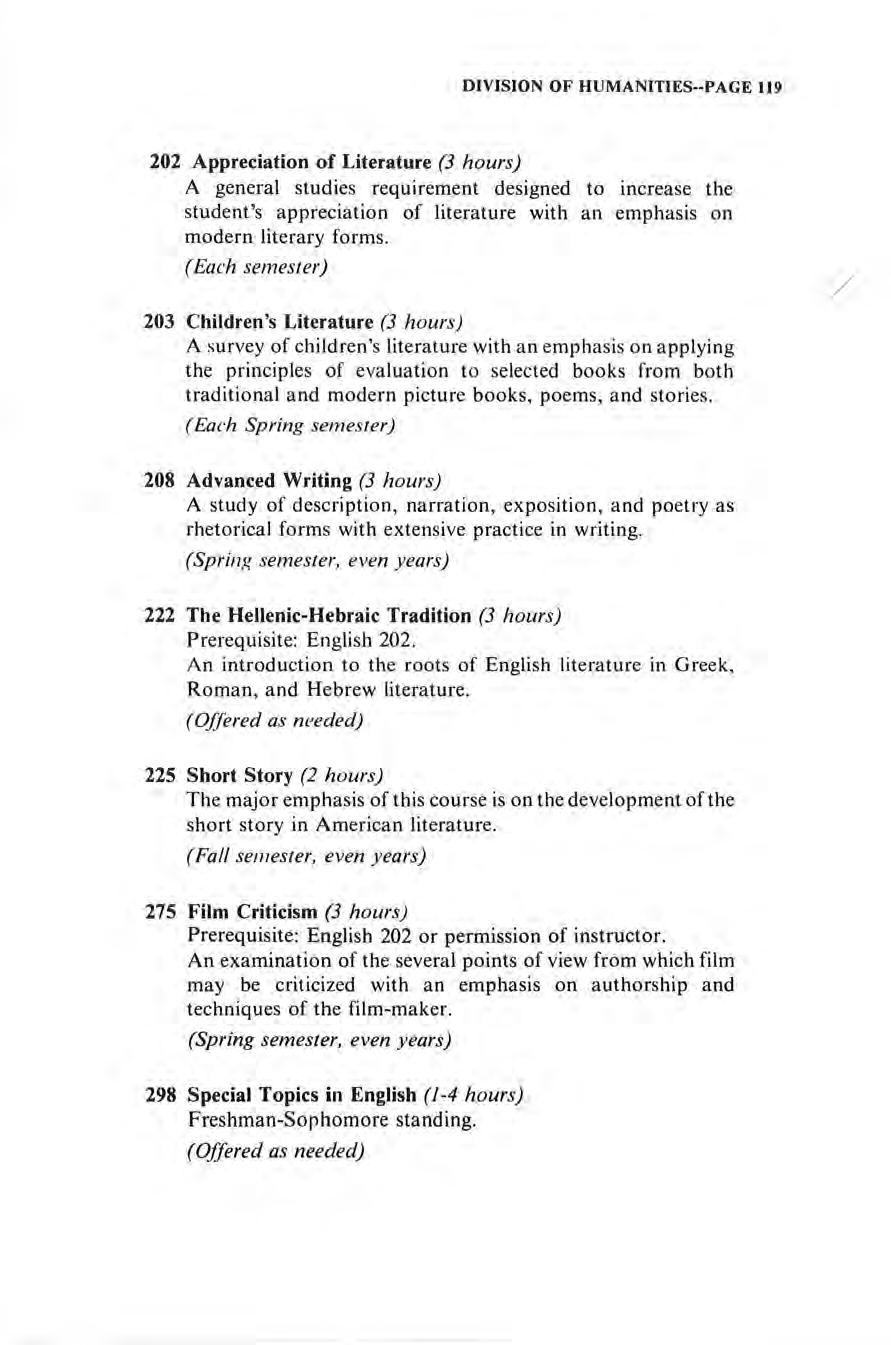
(Spring semester, even years)
298 Special Topics in English (1-4 hours)
Freshman-Sophomore standing.
(Offered as needed)
301 Traditional Grammar (3 hours)
The emphasis of this cour se is on an in-depth analysis of sentence structure.
(Spring semester, eve n yea rs)
302 English Composition (3 hours)
Prerequisite : English 10 I and junior standing. Further training in theme writing, with emphasis on organization and research , practice in the u se of logic, and evidence to support generalizations are emphasized in this required course for all juniors.
( Each semester)
305 Practicum in Composition (1-3 hours)
An investigation of the r e lationship between such factors as the study of rhetorical theory , gra mmar , reading level , and listening s kill in determining a student's ability to communicate effectively.
(Fall semester, even years)
306 Nebraska Literature (3 h o urs)
Prerequisite: Consent of the department. An introduction to the works of Nebraska writers and literature about Nebraska.
(Offered as needed)
307 Seminar in the Modern Novel (3 hours)
A study of modern fiction as it mirrors the philosophical, sociological, psychological, and scientific thought of the twentieth century.
(Fall semester, odd years)
308 Technical Writing (3 hours)
Prerequisite: Ability to type.
A study of business English and communication as well as a study of how to compose and produce the various t y pes of letters used in the business world. This course is approved as an elective for business majors.
( Each Spring semester)
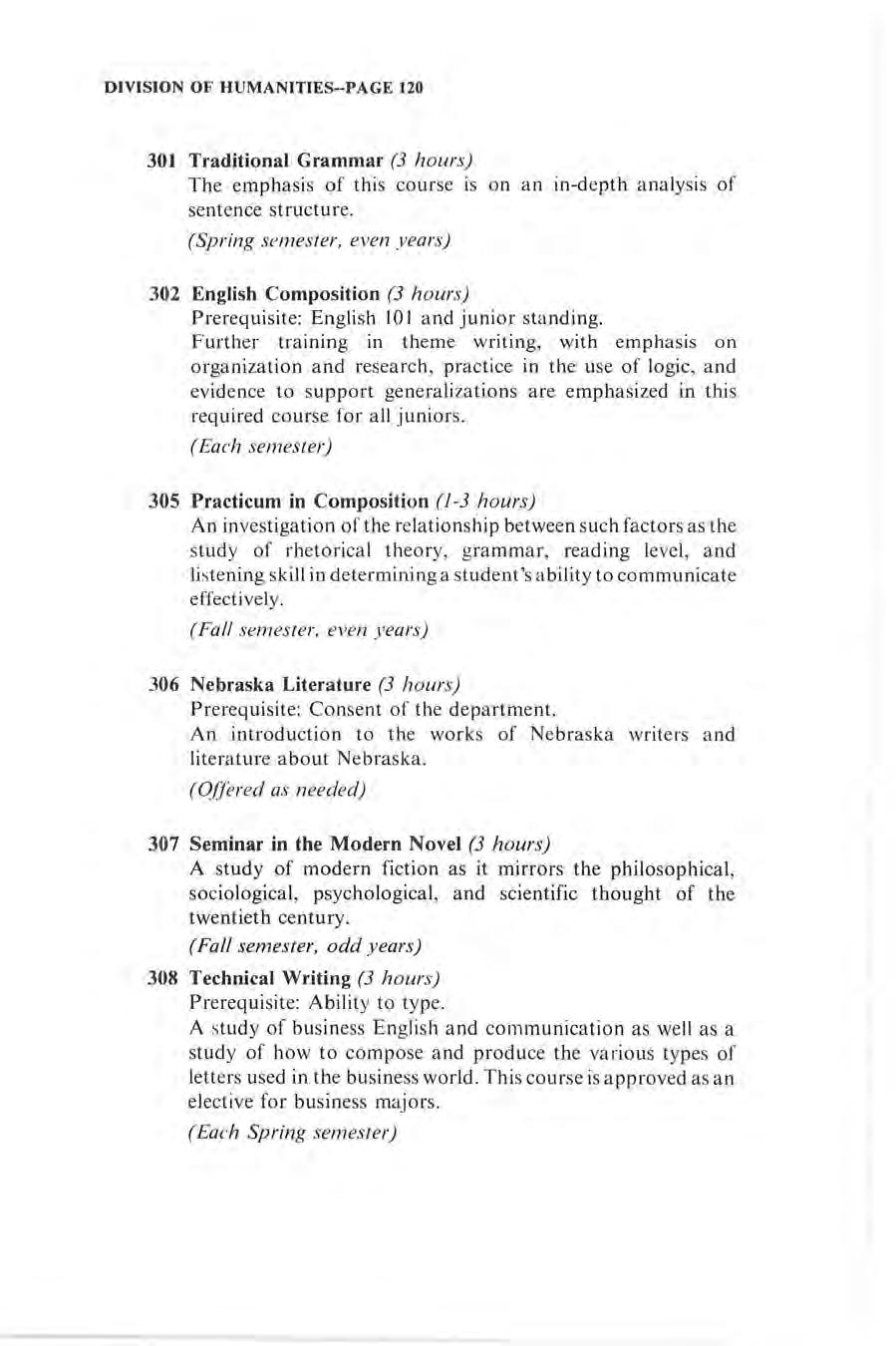
316 Medieval Literature (3 hours)
The study of British and continental literature of the twelfth through the fourteenth centuries with a special emphasis upon Chaucer as central figure, and upon the development of Romance.
(Spring semester, odd years )
321 Romantic Period (3 hours)
A study of the major Romantic poets Some attention is given to the novel and pre-romantics such as Blake. (Spring semester, odd years)
323 Victorian Period (3 hours)
N ineteenth century England as seen by the major poets and noveli s ts with some attention given to the prose writers. (Fall semester, even years )
324 American Literature I (3 hours)
An historical survey of significant American writing from the Colonial Period to 1865. Major writers receive chief emphasis. (Fall semester, odd years)
325 American Literature II (3 hours)
A continuation of English 324 from 1865 to present. (Spring semester, eve n years )
328 Modern Poetry (2 hours)
A s tudy of British and American poetry of this century and its relevance to contemporary literature and life. (Spring semester, even years)
405 Teaching English and Speech (2 hours)
A study of the basic objectives and the scope of English, speec h, and debate in the secondary curriculum. Current techniques used in teaching the three areas are examined and evaluated. (Spring semester, even years)
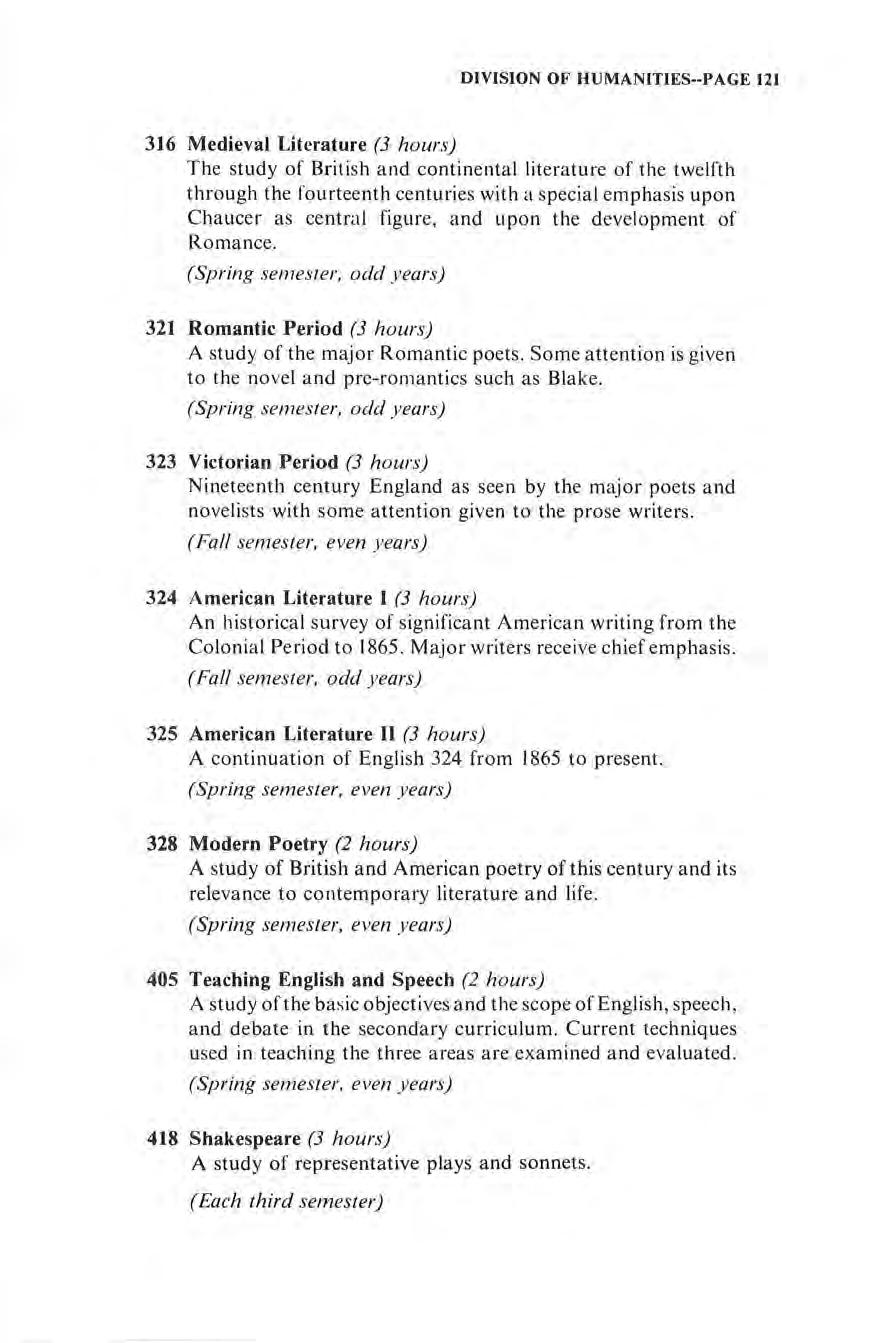
418 Shakespeare (3 hours)
A study of representative plays and sonnets
( Each third semester)
440 History of the English Language (3 hours)
A study of the growth of modern English through examination of changes in the sounds, forms, and syntax that have occurred in the language and the development of vocabulary.
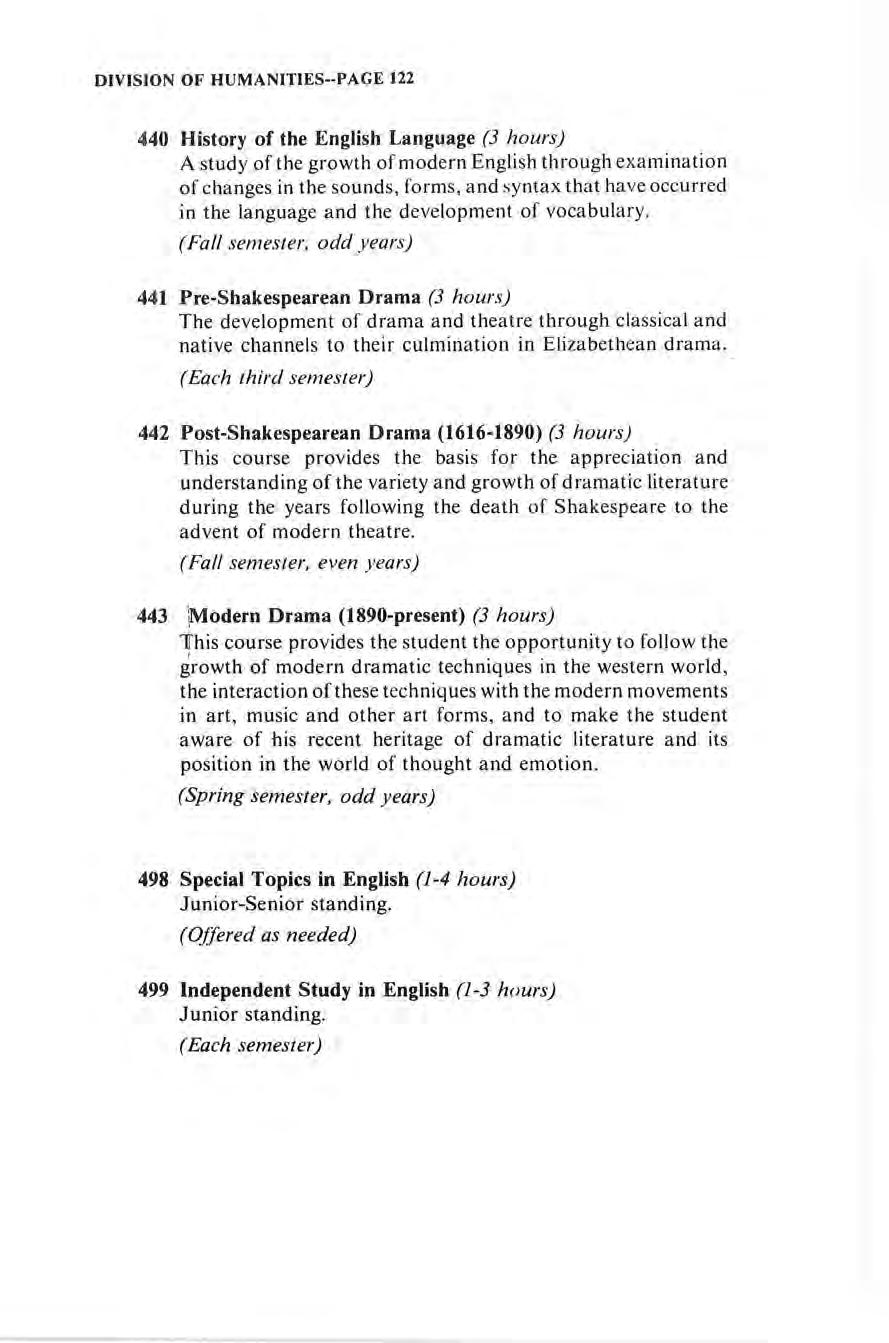
(Fall semester, odd years)
441 Pre-Shakespearean Drama (3 hours)
The development of drama and theatre through classical and native channels to their culmination in Elizabethean drama .
( Each third semester)
442 Post-Shakespearean Drama (1616-1890) (3 hours)
This course provides . the basis for the appreciation and understanding of the variety and growth of dramatic literature during the years following the death of Shakespeare to the advent of modern theatre.
(Fall semester, even years)
443 ':Modern Drama (1890-present) (3 hours)
lihis course provides the student the opportunity to follow the growth of modern dramatic techniques in the western world, the interaction of these techniques with the modern movements in art, music and other art forms, and to make the student aware of his recent heritage of dramatic literature and its position in the world of thought and emotion.
(Spring semester, odd years)
498 Special Topics in English (1-4 hours)
Junior-Senior standing .
(Offered as needed)
499 Independent Study in English (1-3 hours) Junior standing.
(Each semester)
101 Principles of Physical Geography (3 hours)
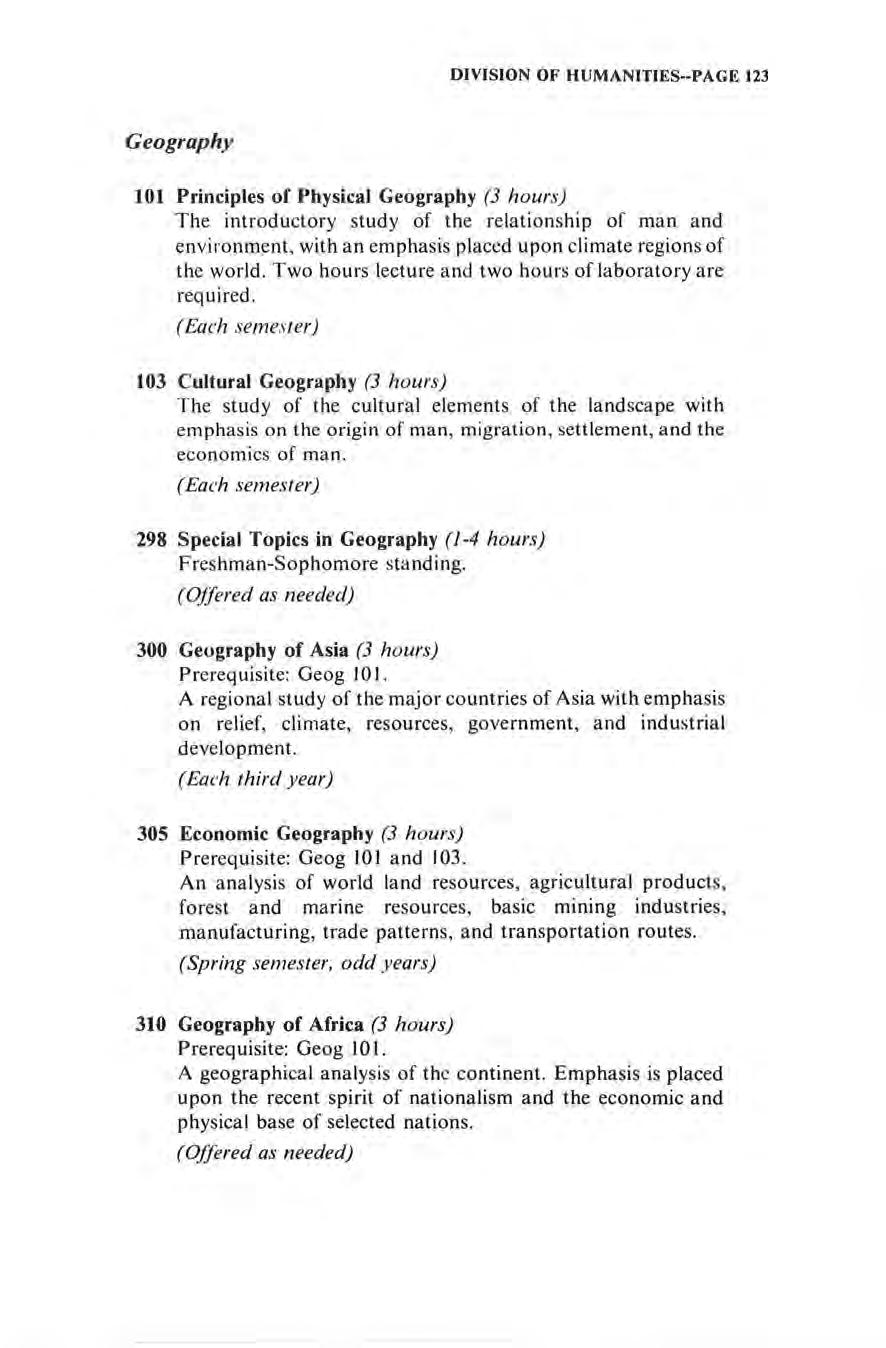
The introdu ctory study of the relationship of man and environment, with an emphasis placed upon climate regions of the world. Two hours lecture and two hours of laboratory are required.
(Each semester)
103 Cultural Geography (3 hours)
The study of the cultural elements of the landscape with emphasis on the origin of man, migration , sett lement, and the economics of man.
( Each semester)
298 Special Topics in Geography (1-4 hours)
Freshman-Sophomore standing.
(Offered as needed)
300 Geography of Asia (3 hours)
Prerequisite: Geog IO I .
A regional study of the major countries of Asia with emphasis on relief, climate, resources, government, and industrial development.
(Each third year)
305 Economic Geography (3 hours)
Prerequisite: Geog IOI and 10 3. An analysis of world land resources, agricultural products, forest and marine resources, basic mining industries, manufacturing, trade patterns, and transportation routes.
(Spring semester, odd years)
310 Geography of Africa (3 hours)
Prerequisite: Geog IO I.
A geographica l analysis of the continent. Emphasis is placed upon the recent spirit of nationalism and the economic and physical base of selected nations.
(Offered as needed)
311 Urban Geography (3 hours)
Study of the origin, distribution, internal structure and functions of urban developments with an emphasis on lo cat ion features of economics and cultural phenomena .
(Fall semester, each third year)
312 Geography of Anglo-America (3 hours)
Prerequisite: Geog 10 I or senior standing. A study of the United States and Canada by natural regions. In each case an evaluation of the physical and econom ic base wi ll be made in the light of the present economic condit ion.
(Offered as needed)
313 Geography of South America (3 hour~)
Prerequisite: Geog IO I. The geographic regions of South America are ana lyzed in their natural, political, and economic settings as well as the economic relations between South America and the United States.
(Offered as needed)
326 Conservation of Natural Resources (3 hours)
An evaluation of soil, water, mineral, forestry, fish, air , and recreation resources in order to develop an appreciation of their importance and the seriousness of the problem.
(Offered as needed)
404 History and Philosophy of Geography (2 hours)
Prerequisite: Geog IOI and 103
A study of the basic philosophies of geography including the study of the basic geographic thought from ancien t to modern times. Independent study through readings and research paper.
(Spring semester, each third year)
497 Political Geography (3 hours)
Prerequisites: Geog IOI and 103.
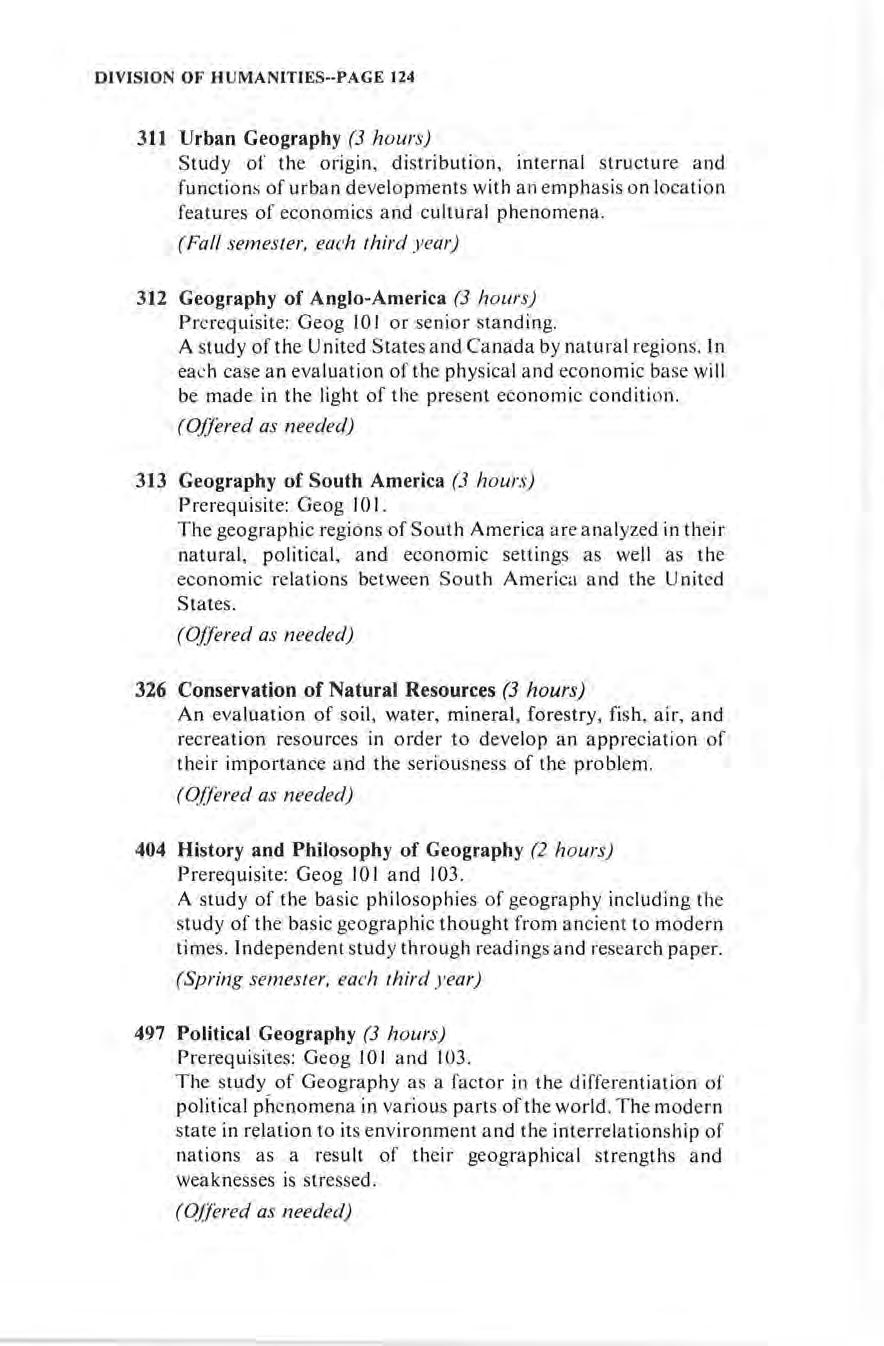
The study of Geography as a factor in the differentiation of political phenomena in various parts of the world. The modern state in relation to its environment and the interrelationship of nations as a result of their geograph ic al strengths and weaknesses is stressed.
(Offered as needed)
498 Special Topics in Geography (1-4 hours)
Junior-Senior standing.
(Offered as needed)
499 Independent Study in Geography (1-3 hours)
Junior standing.
(Each semester)
113 American History to 1865 (3 hours)
A study of the di scove ry, exploration, colonization, the Revolution of the U.S. and its problems to the end of the Civil War.
(Each semester)
114 American History after 1865 (3 hours)
A study of reconstruction , the last frontiers , the rise of big business, imperiali s m , and the role of the U.S. in the two World Wars and their aftermath.
( Each semester)
201 Civilization to 1500 (3 hours)
A survey of the beginnings of civilizations in the great river valleys and their diffusion to later civilizations in the Middle East and Europe. Particular attention will be given to the cultural and political ins-titutions of the West which furnish our own cultural heritage .
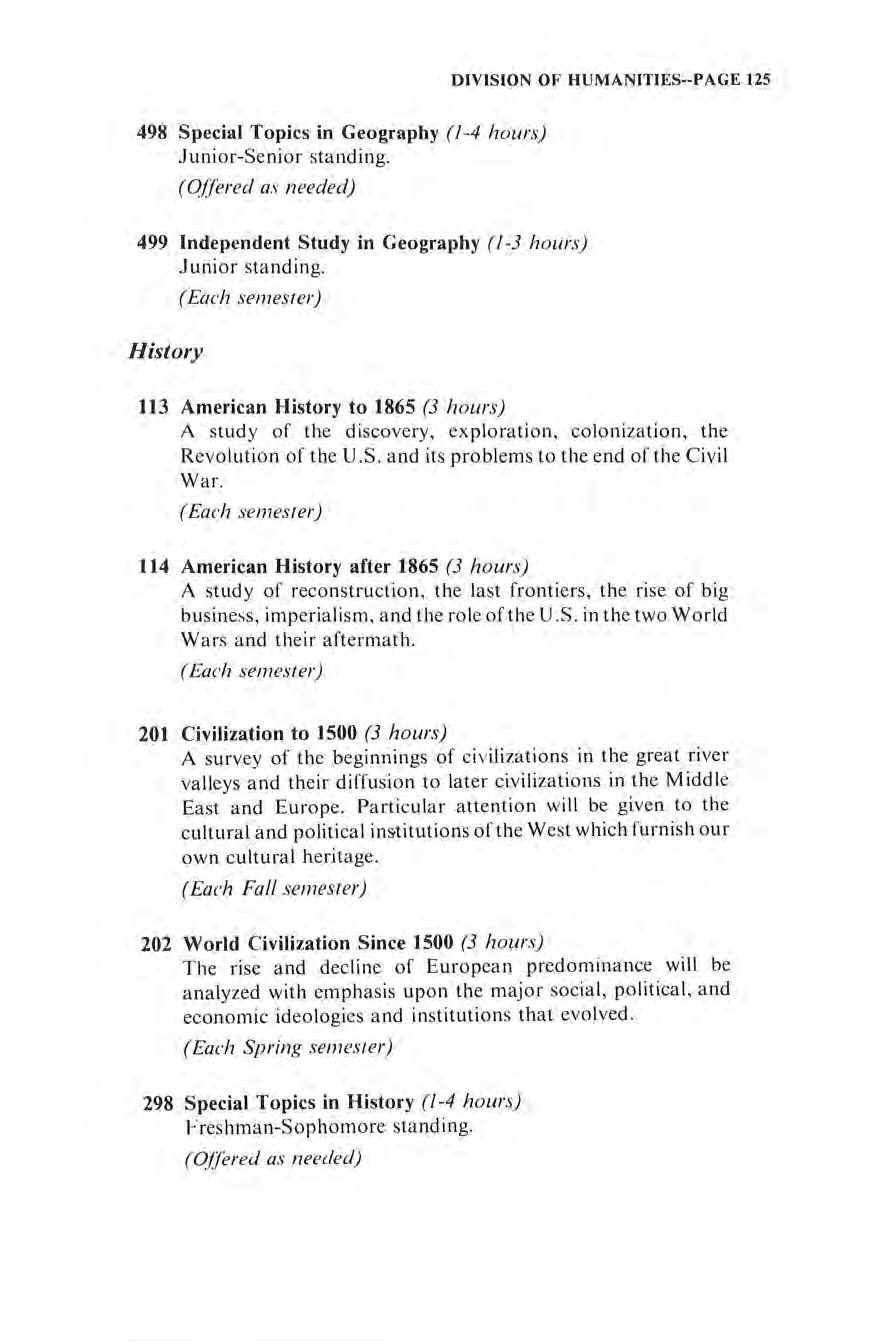
(Each Fall semester)
202 World Civilization Since 1500 (3 hours) .
The rise and decline of European predominance will be analyzed with emphasis upon the major social, political, and economic ideologies and institutions that evolved.
( Each Spring semesterJ
298 Special Topics in History (1-4 hours)
Freshman-Sophomore standing.
(O.ffered as neeclec/J
301 Colonial America (3 hours)
Prerequisite : History I I 3 or instructor's permission. A study of colonial rivalry between the Spani s h , French, English, and Dutch in North America, the Revolution , and U.S. history to 1823 .
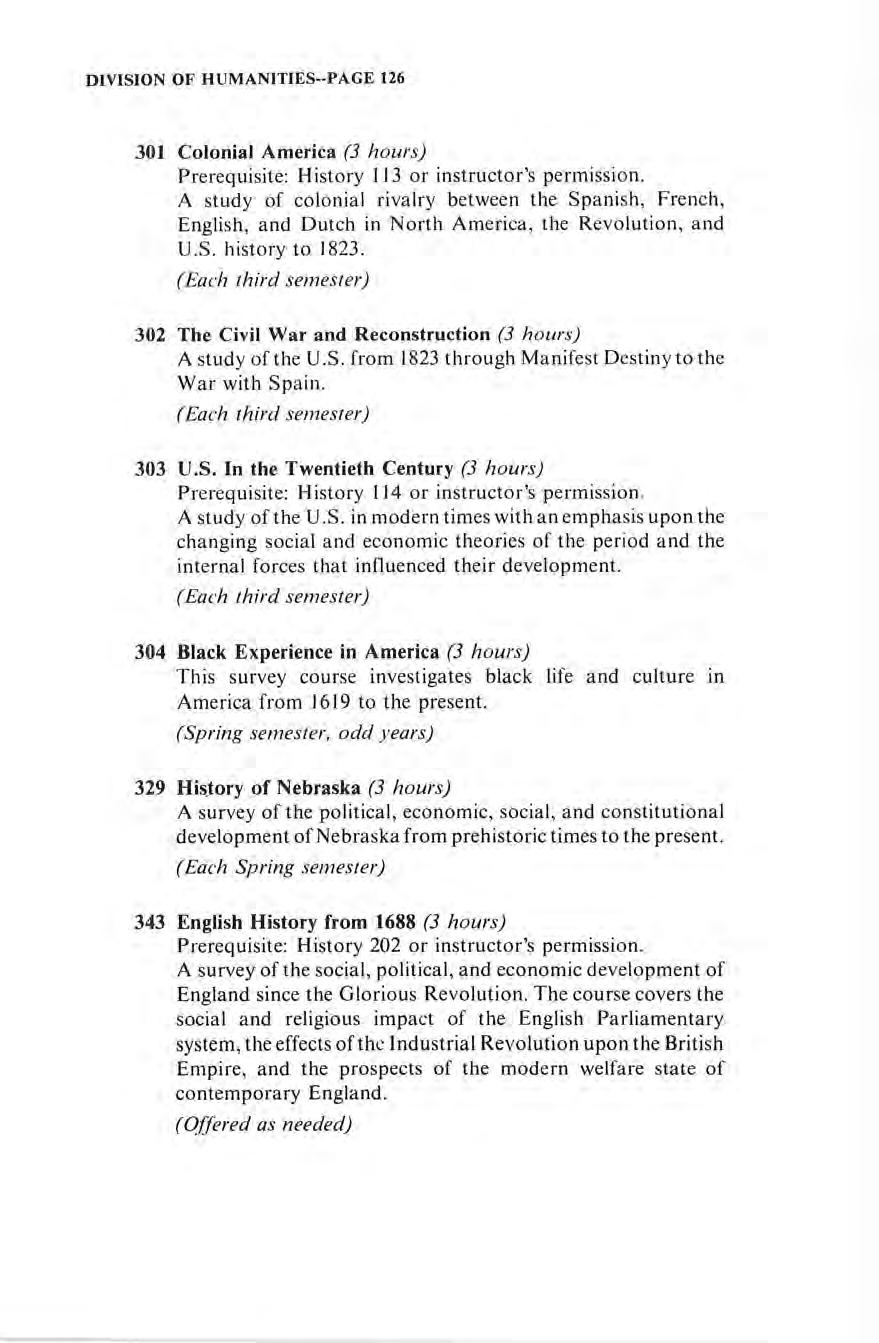
( Each third semesterJ
302 The Civil War and Reconstruction (3 hours)
A study of the U.S. from 1823 through Manifest Destiny to the War with Spain
( Each third semester)
303 U.S. In the Twentieth Century (3 hours)
Prerequisite: History 114 or instructor's permission.
A study of the U.S. in modern times with an emphasis upon the changing social and economic theories of the period and the internal forces that influenced their development.
( Each third semesterJ
304 Black Experience in America (3 hours)
This survey course investigates black life and culture in America from 1619 to the present.
(Spring semester, odd years)
329 His tory of Nebraska (3 hours)
A survey of the political, economic, social, and constitutional development of Nebraska from prehistoric times to the present.
( Each Spring semester)
343 English History from 1688 (3 hours)
Prerequisite: History 202 or instructor's permission. A survey of the social, political, and economic development of England since the Glorious Revolution. The cour se covers the social and religious impact of the English Parliamentary system, the effects of the Industrial Revolution upon the British Empire, and the prospects of the modern welfare state of contemporary England.
(Offered as needed)
345 Modern Europe (3 hours)
Prerequisite: History 202 or instructor's permission. A comparative historical analysis of the ongoing process of modernization in Europe. The emphasis is on movements and institutions such as Liberalism, Conservatism, Romanticism, Socialism, Imperialism, and Totalitarianism from 1815 to the present.

(Each third semester)
400 Methods in History and Social Science (2 hours)
Instruction in the methods of teaching high school History and Social Science.
( Each Fall semester)
411 American Frontier (3 hours)
Prerequisite: History 113 or permission .
A study of the importance of the frontier in American History from colonial times to the 20th century.
(Fall semester, even years)
426 American Constitutional Law (3 hours)
Prerequisite: Pol.Sci 20 I or 202 or instructor's permission. A study of the historical and political context of constitutional doctrine through major decisions. The emphasis is on constitutional growth as it relates to the fundamental structure of American government and the social order.
(Fall semester, even years)
455 History of Russia and the Soviet Union (3 hours)
An analysis of the social, cultural, political, and economic evolution of Russia under the Tsars and the formation of the Soviet Union.
( Each third semester)
467 The Far East (3 hours)
This course is concerned with the political traditions and historical evolution of the area, the impact of the West and its profound influences on the political order, and today's revolutionary situation.
(Fall semester, odd years)
498 Special Topics in History (1-4 hours)
Junior-Senior standing.
(Offered as needed)
499 Independent Study in History (1 -3 hours) Junior standing.
(Each semester)
Journalism
100 Introduction to Mass Communications (3 hours)
The nature, function , and responsiblities of communications agencies, including newspapers, radio and television, film, and advertising; the services that the mass media perform for society and the role of the media in censorship , persuasion , and propaganda.
(Spring semester, odd years)
234 Beginning Journalsim (3 hours)
Prerequisite: Ability to type .
The fundamental principles of gathering and writing news; practice in reporting campus news; work on the Pedagogian , college newspaper.
(Each semester)
235 Newspaper Editing (2 hours)
Prerequisite: Ability to type
An intensive course in journalistic desk work that includes copy preparation , headline writing, page layout; exten s ive work on the Pedagogian desk. Credit not to exceed a total of four hours .
( Each semester)
298 Special Topics in Journalism (2 hours)
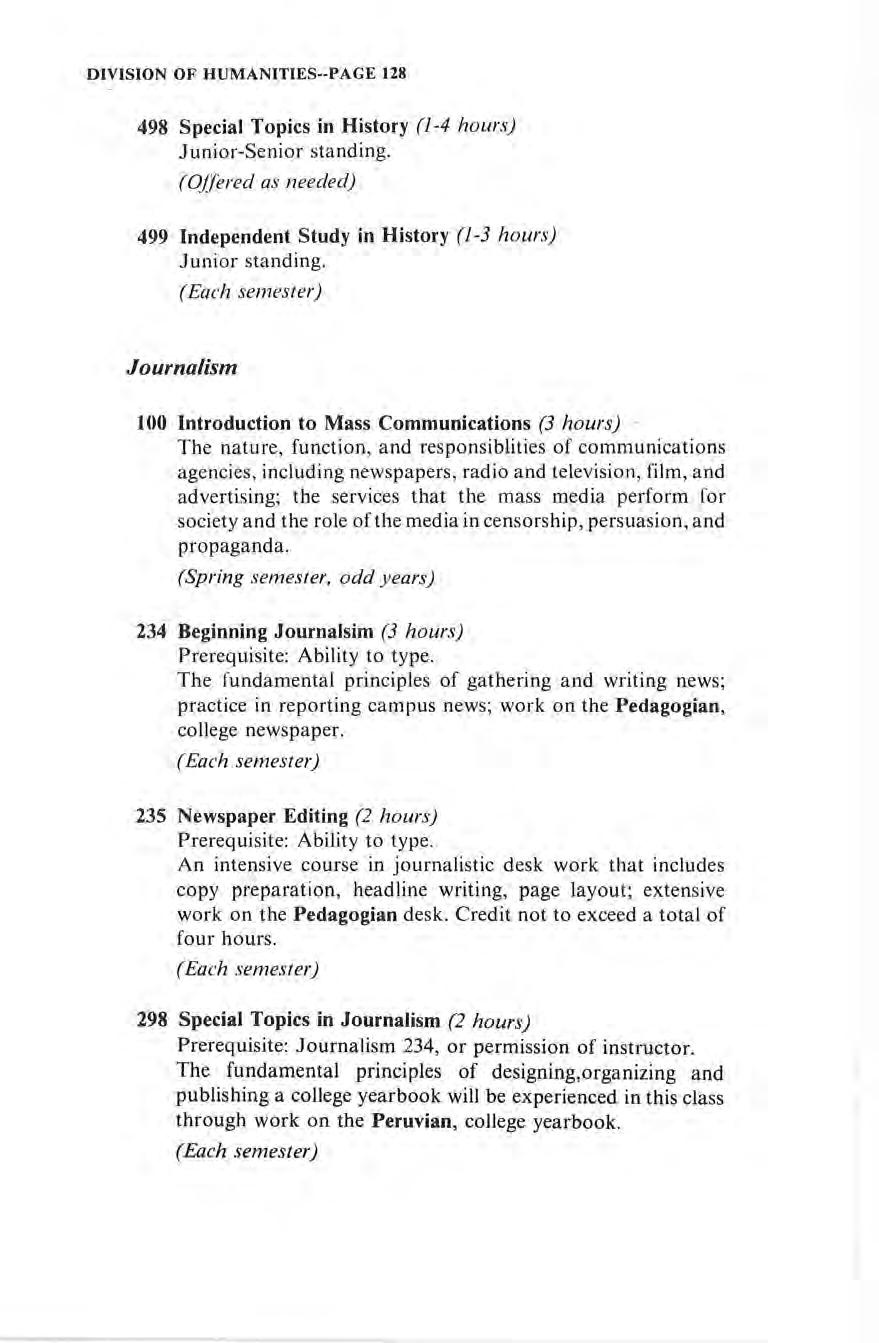
Prerequisite: Journalism 234, or permission of instructor.
The fundamental principles of designing,organizing and publishing a college yearbook will be experienced in this class through work on the Peruvian, college yearbook
(Each semester)
300 Communications Law (3 hours)
A study of the media 's legal context with an emphasis on the issues of libel , contempt , access to public records, invasion of privacy, criticism , and copyright.
(Spring semester, odd years)
401 Journalism Practicum (1-6 hours)
Prerequisite: Ability to type. Practicum students will be involved in the production of the college newspaper and / or college yearbook. Credit not to exceed one credit hour each semester.
(Each semester)
498 Special Topics in Journalism (2 hours)
Prerequisite: Journalism 298 .
A continuation of Journalism 298 involving adv a nced techniques in layout and design.
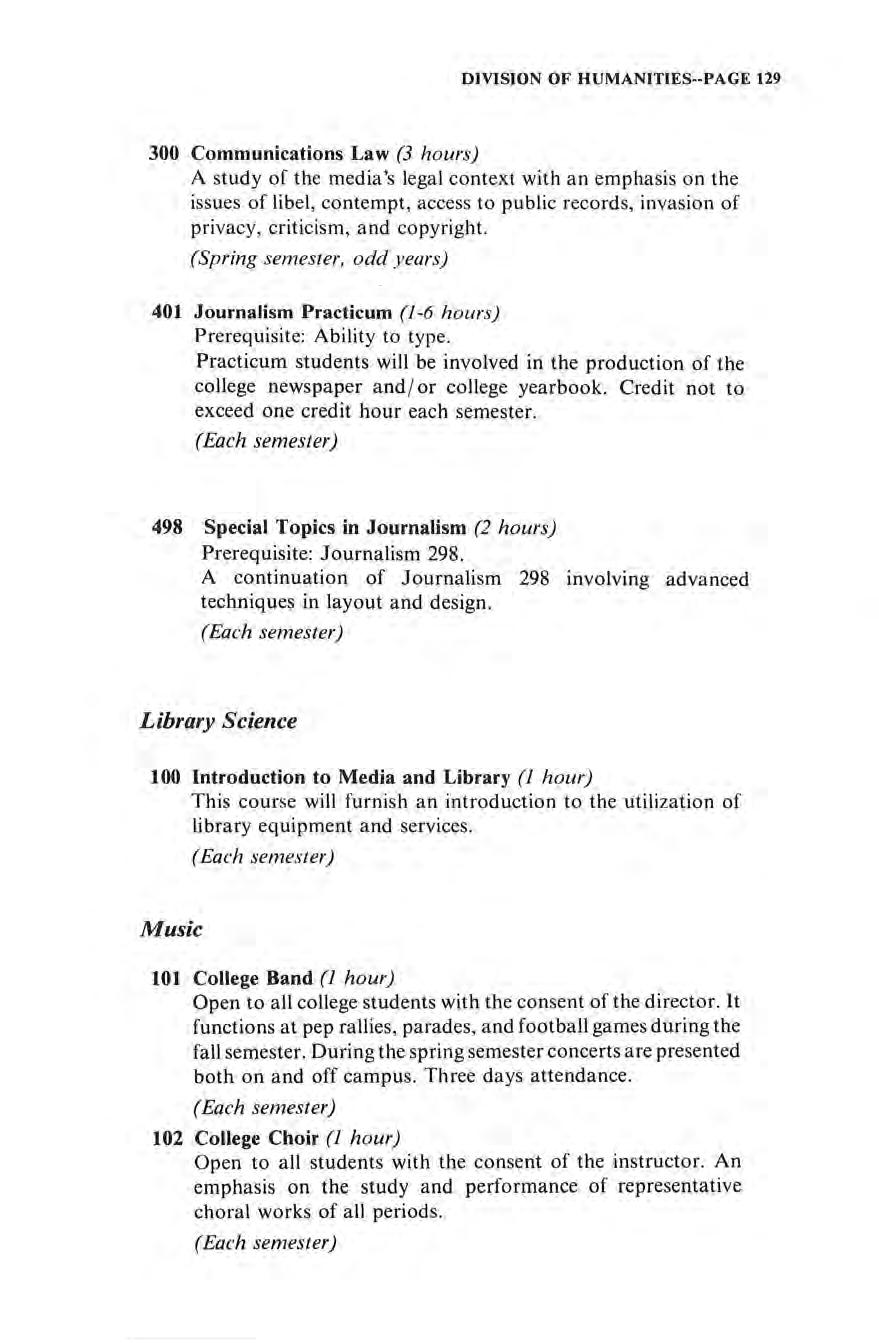
(Each semester)
100 Introduction to Media and Library (1 hour)
This course will furnish an introduction to the utilization of library equipment and services.
( Each semester)
101 College Band (1 hour)
Open to all college students with the consent of the director. It functions at pep rallies, parades, and football games during the fall semester During the spring semester concerts are presented both on and off campus. Three days attendance.
( Each semester)
102 College Choir (1 hour)
Open to all students with the consent of the instructor. An emphasis on the study and performance of representative choral works of all periods.
( Each semester)
103 Jazz Ensemble (1 hour)
Open to all students by audition and the consent of the instructor. An emphasis is placed on the study and performance of music in all popular idioms and performs concerts on and off campus.
(Each semester)
104 Vocal Jazz Ensemble (1 hour)
Open to all students by audition and consent of the instructor. An emphasis is placed on study and performance of vocal music in all popular idioms and performs concerts on and off campus.
(Each semester)
105 Brass Chamber Ensemble (1 hour)
Open to all students with the consent of the instructor. An emphasis is placed upon the study and performance of brass literature in all the chamber music idioms and concerts are performed on and off campus.
( Each semester)
106 Woodwind Chamber Ensemble (1 hour)
Open to all students with the consent of the instructor. An emphasis is placed upon the study and performance of woodwind literature in all the chamber music idioms and concerts are performed on and off campus .
(Each semester)
107 Vocal Chamber Ensemble (1 hour)
Open to all students with the consent of the instructor. An emphasis is placed upon the study and performanc e of vocal literature in all the chamber music idioms and concerts are performed on and off campus .
( Each semester)
111 Fundamentals of Music (2 hours)

An introduction to the rudiments of music, including letter and syllable names of notes, time values of notes and rests , time and key signatures, chromatics, intervals, chords , keyboard experience, and the writing of original melodies.
( Each Fall semester)
112 Beginning Class Piano (/ hour)
Beginning instruction on the piano . (Each semester)
113 Beginning Class Guitar (/ hour)
An introduction to the basic chord s , melodies , not e reading , tuning, and styles of performance for the beginning guitarist. (Each semester)
121 Applied Music-Voice (1-2 hours)
Private voice instruction on the freshman level. (Each semester)
122 Applied Music-Woodwinds (/-2 hours)
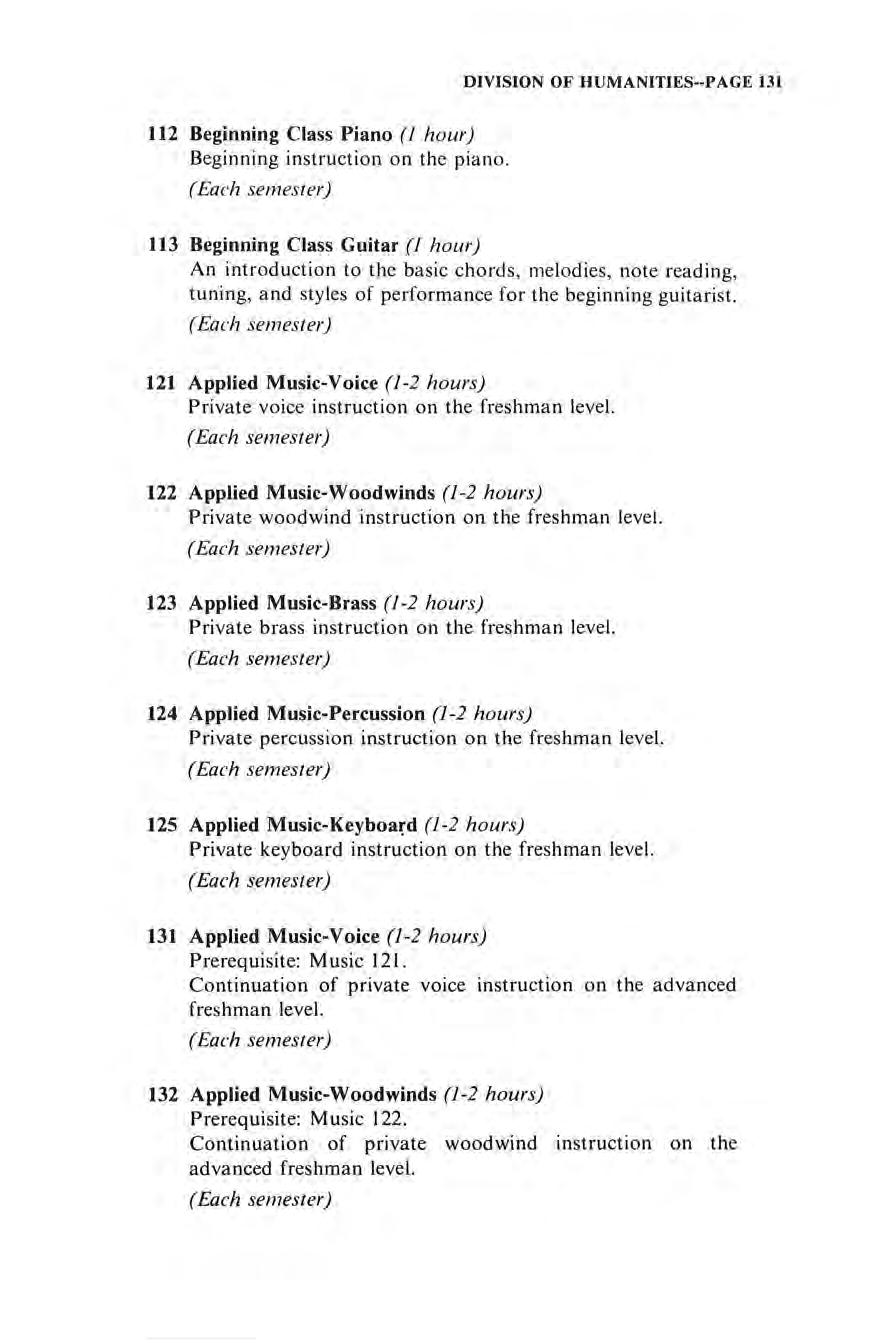
Private woodwind instruction on the freshman level. ( Each semester)
123 Applied Music-Brass (1-2 hours)
Private brass instruction on the freshman level. (Each semester)
124 Applied Music-Percussion (1-2 hours)
Private percussion instruction on the freshman level. (Each semester)
125 Applied Music-Keyboa~d (1-2 hours)
Private keyboard instruction on the freshman level. (Each semester)
131 Applied Music-Voice (1-2 hours)
Prerequisite: Music 121.
Continuation of private voice instruction on the advanced freshman level. (Each semester)
132 Applied Music-Woodwinds (1-2 hours)
Prerequisite: Music 122.
Continuation of private woodwind instruction on the advanced freshman level. ( Each semester)
133 Applied Music-Brass (1-2 hours)
Prerequisite : Music 123.
Continuation of private brass instruction on the advanced freshman level.
( Each semester)
134 Applied Music-Percussion (1-2 hours)
Prerequisite: Music 124.
Continuation of private percussion instruction on the advanced freshman level.
(Each semester)
135 Applied Music-Keyboard (1-2 hours)
Prerequisite: Music 125.
Continuation of private keyboard instruction on the advanced level.
(Each semester)
14 1 Music Theory I (3 hours)
This course is an integrated study of the theoretical practices of the 18th and 19th centuries. It includes a review of clefs, scales , key signatures , intervals, triads, and basic rhythmic notation, studies in melodic, rhythmic, and harmonic dictation, and sightsinging.
(Each Fall semester)
142 Music Theory II (3 hours)
Prerequisite: Music 141
This course is an integrated study of the theoretical practices of the 18th and 19th centuries. It includes the study of secondary triads, six-four chords , dominant and supertonic sevenths, elementary modulation, studies in melodic rhythmic and harmonic dictation and sightsinging.
(Each Spring semester)
221 Applied Music-Voice (1-2 hours)
Prerequisite : Music 13 I.
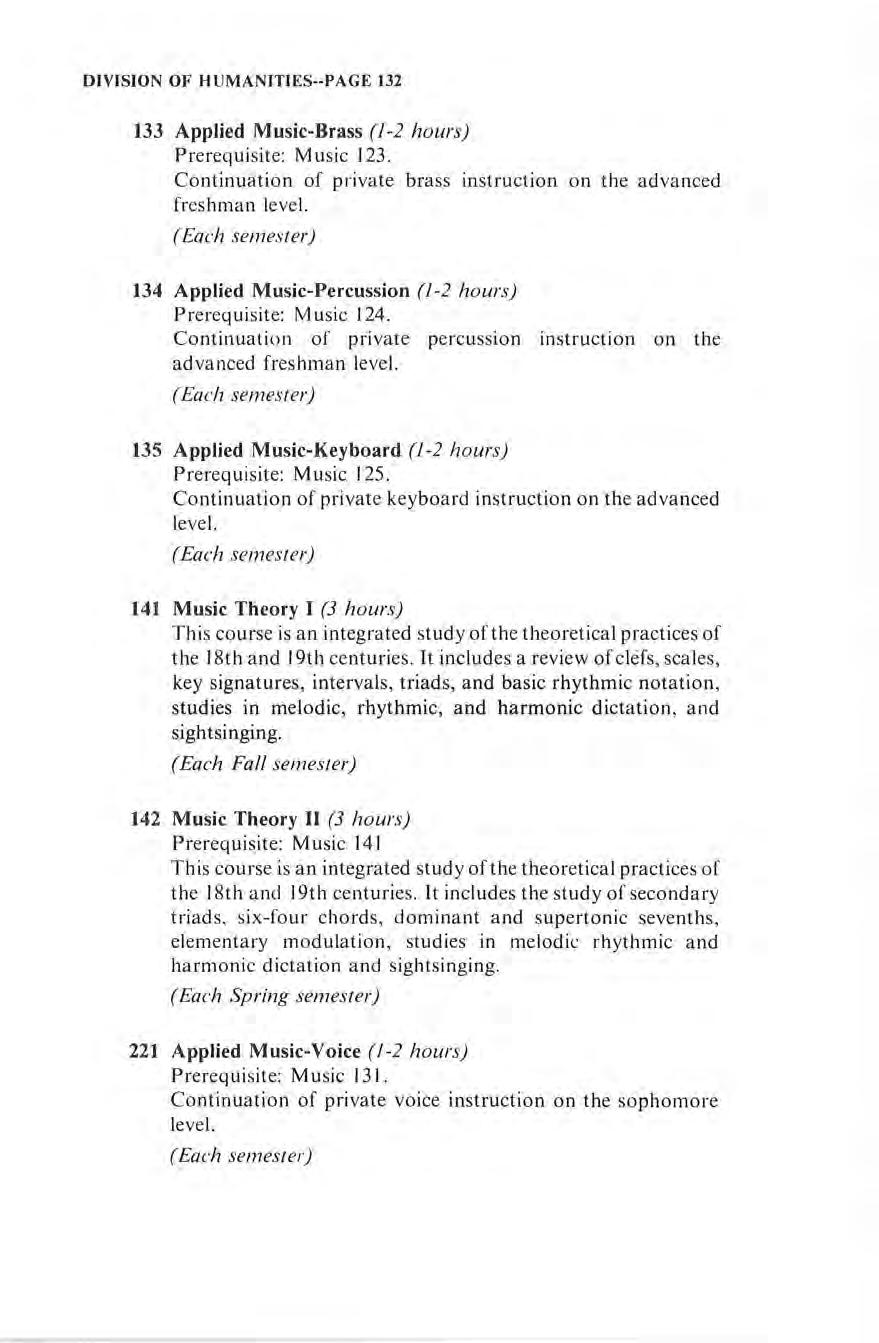
Continuation of private voice instruction on the sophomore level.
(Each semester)
222 Applied Music-Woodwinds (/-2 hours)

Prerequisite: Music 132 .
Continuation of private woodwind instruction on the sophomore level. (Each semester)
223 Applied Music-Brass (/-2 hours)
Prerequisite: Music 133.
Continuation of private brass instruction on the sophomore level. (Each semester)
224 Applied Music-Percussion (/-2 hours)
Prerequisite: Music 134
Continuation of private percussion instruction on the sophomore level. ( Each semester)
225 Applied Music-Keyboard (1-2 hours)
Prerequisite: Music 135
Continuation of private keyboard instruction on the sophomore level. (each semester)
231 Applied Music-Voice (1-2 hours)
Prerequisite: Music 221.
Continuation of private voice instruction on the advanced sophomore level.
( Each semesterJ
232 Applied Music-Woodwinds (1-2 hours)
Prerequisite: Music 222.
Continuation of private woodwind instruction on the advanced sophomore level.
(Each semesterJ
233 Applied Music-Brass (1-2 hours)
Prerequisite: Music 223.
Continuation of private brass instruction on the advanced sophomore level.
( Each semeste1)
234 Applied Music-Percussion (1-2 hour.1)
Prerequsite: Music 224.
Continuation of private percussion instruction on the advanced sophomore level.
(Each semester)
235 Applied Music-Keyboard (1-2 hours)
Prerequisite: Mu sic 225.
Continuation of private keyboard instruction on the advanced sophomore level.
( Each semester)
241 Music Theory III (3 hours)
Prerequisite: Music 142.
This course is an integrated study of the theoretical practices of the 18th and 19th centuries. It includes a detailed study of the chromatic harmonic practices of the 19th century, a survey of 20th century theoretical practices, studies in melodic , rhythmic , and harmonic dictation , and sightsinging .
(Each Fall semester)
242 Music Theory IV (3 hours)
Prerequsite: Music 241.
This course is an integrated study of the theoretical practices of the I 8th and 19th centuries. It includes a detailed study of the chromatic harmonic practices of the 19th century, a survey of 20th century theoretical practices and studies in melodic , rhythmic, and harmonic dictation and sightsinging.
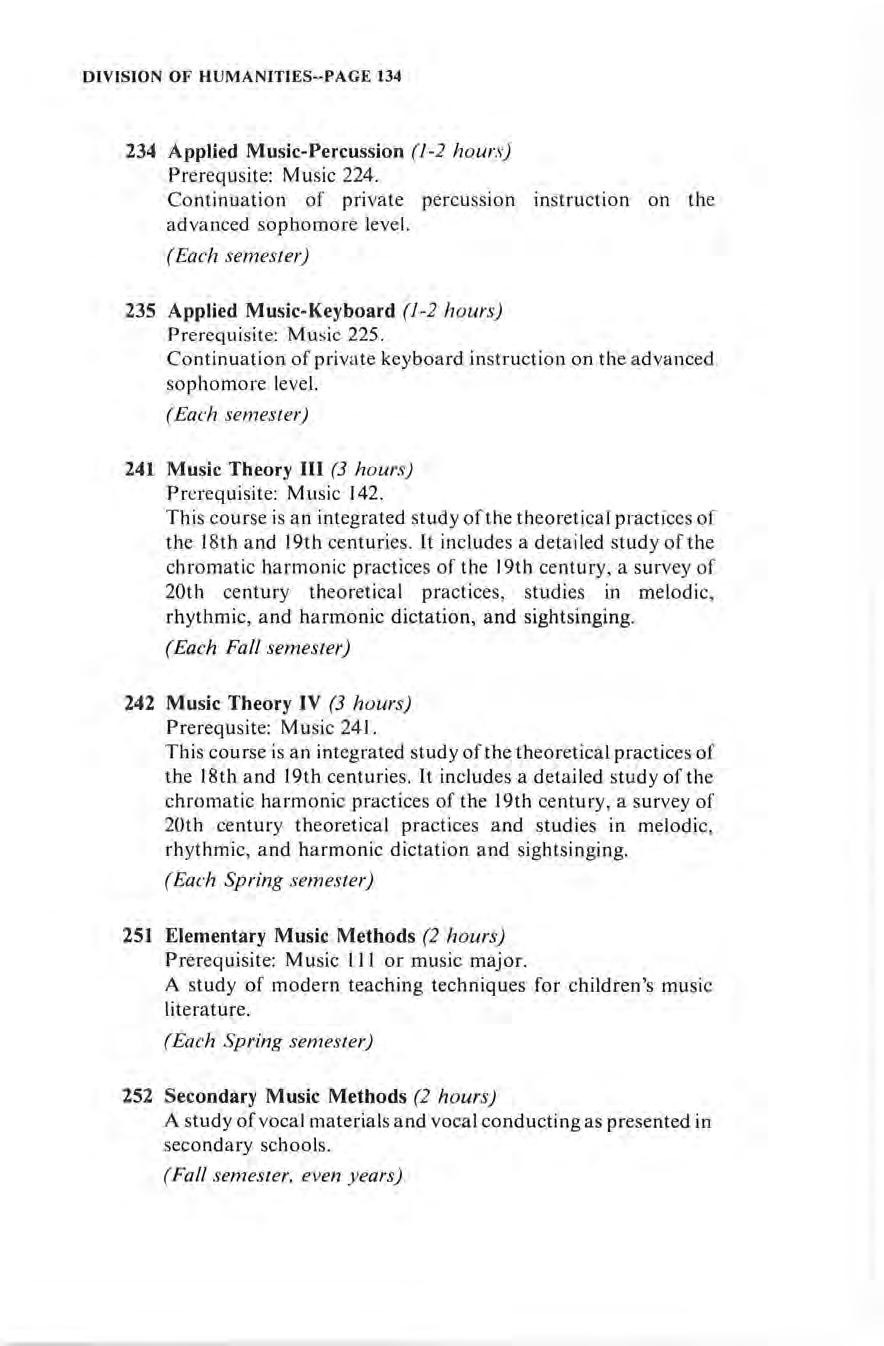
( Each Spring semester)
251 Elementary Music Methods (2 hours)
Prerequisite: Music 111 or music major. A study of modern teaching techniques for children's music literature.
( Each Spring semester)
252 Secondary Music Methods (2 hours)
A study of vocal materials and vocal conducting as presented in secondary schools.
(Fall semester, even years)
298 Special Topics in Music (/-4 hours)
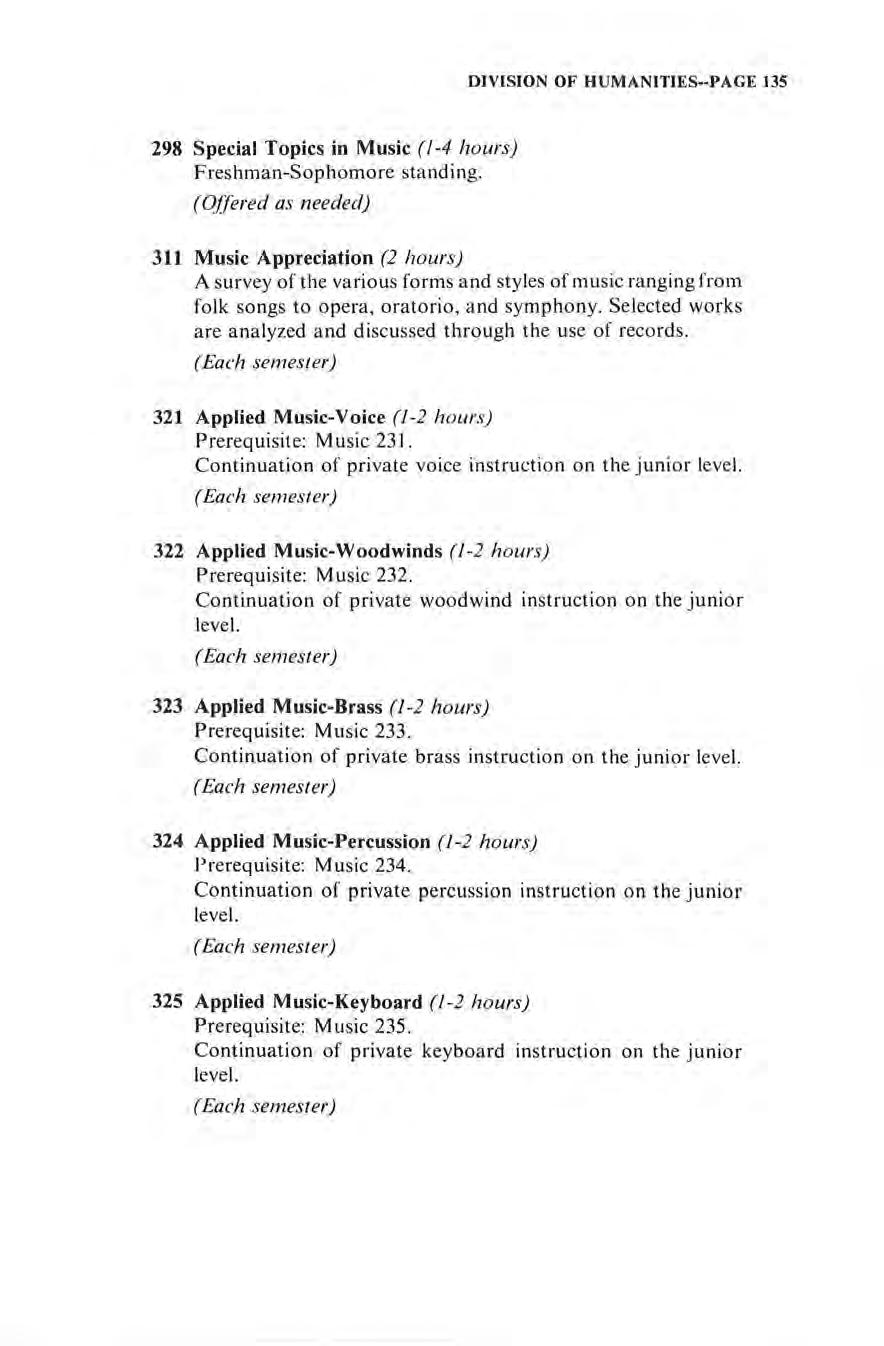
Freshman-Sophomore standing.
(Offered as needed)
311 Music Appreciation (2 hours)
A survey of the various forms and sty les of music ranging from folk songs to opera, oratorio , and symphony . Se lected works are analyzed and discussed through the use of records. ( Each semester)
321 Applied Music-Voice (1-2 hours)
Prerequisite: Music 231.
Continuation of private voice instruction on the junior level. ( Each semester)
322 Applied Music-Woodwinds (1-2 hours)
Prerequisite : Music 232.
Continuation of private woodwind instruction on the junior level.
( Each semester)
323 Applied Music-Brass (1-2 hours)
Prerequisite : Music 23-3.
Continuation of private brass instruction on the junior level. ( Each semester)
324 Applied Music-Percussion (1-2 hours)
Prerequisite: Music 234 .
Continuation of private percussion instruction on the junior level.
( Each semester)
325 Applied Music-Keyboard (1-2 hours)
Prerequisite: Music 235.
Continuation of private keyboard instruction on the junior level.
( Each semester)
331 Applied Music-Voice (I -2 hours)
Prerequisite: Music 321.
Continuation of private voice instruction on the advanced junior level culminating with a thirty minute recital.
(Each semester)
332 Applied Music-Woodwinds (1 -2 hours)
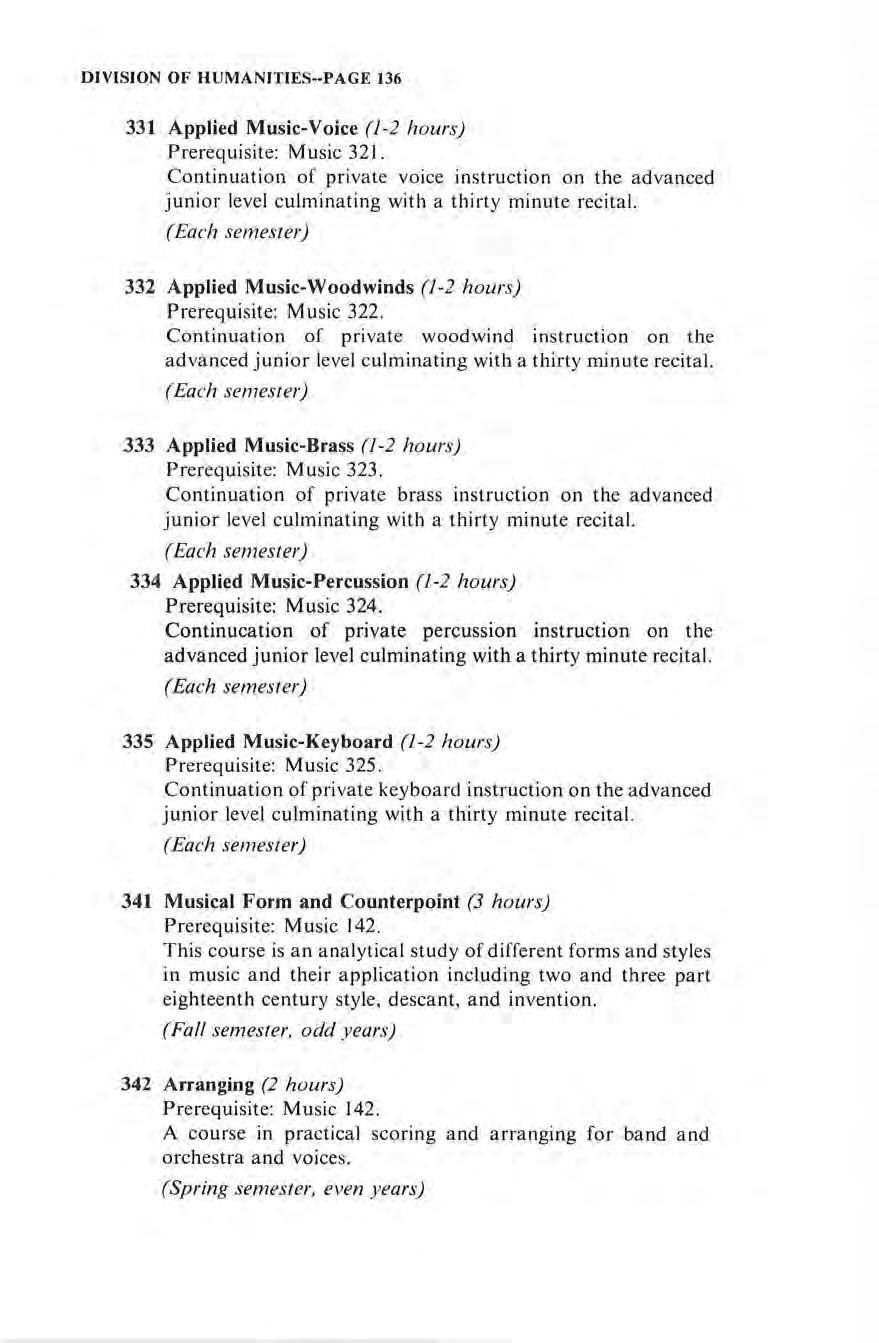
Prerequisite: Music 322.
Continuation of private woodwind instruction on the advanced junior level culminating with a thirty minute recital.
( Each semester)
333 Applied Music-Brass (1-2 hours)
Prerequisite: Music 323.
Continuation of private brass instruction on the advanced junior level culminating with a thirty minute recital.
(Each semester)
334 Applied Music-Percussion (1- 2 hours)
Prerequisite: Music 324.
Continucation of private percussion instruction on the advanced junior level culminating with a thirty minute recital.
(Each semester)
335 Applied Music-Keyboard (1-2 hours)
Prerequisite: Music 325.
Continuation of private keyboard instruction on the advanced junior level culminating with a thirty minute recital.
(Each semester)
341 Musical Form and Counterpoint (3 hours)
Prerequisite: Music 142.
This course is an analytical study of different forms and styles in music and their application including two and t hree part eighteenth century style, descant, and invention.
(Fall semester, odd years)
342 Arranging (2 hours)
Prerequisite: Music 142
A course in practical scoring and arranging for band and orchestra and voices.
(Spring semester, even years)
351 Brass Methods (2 hours)
A study of brass instruments and brass pedagogical techniques with actual playing experience.
(Spring semester, even years)
352 Woodwind Methods (2 hours)
A study of woodwind instuments and woodwind pedagogical techniques with actual playing experience.
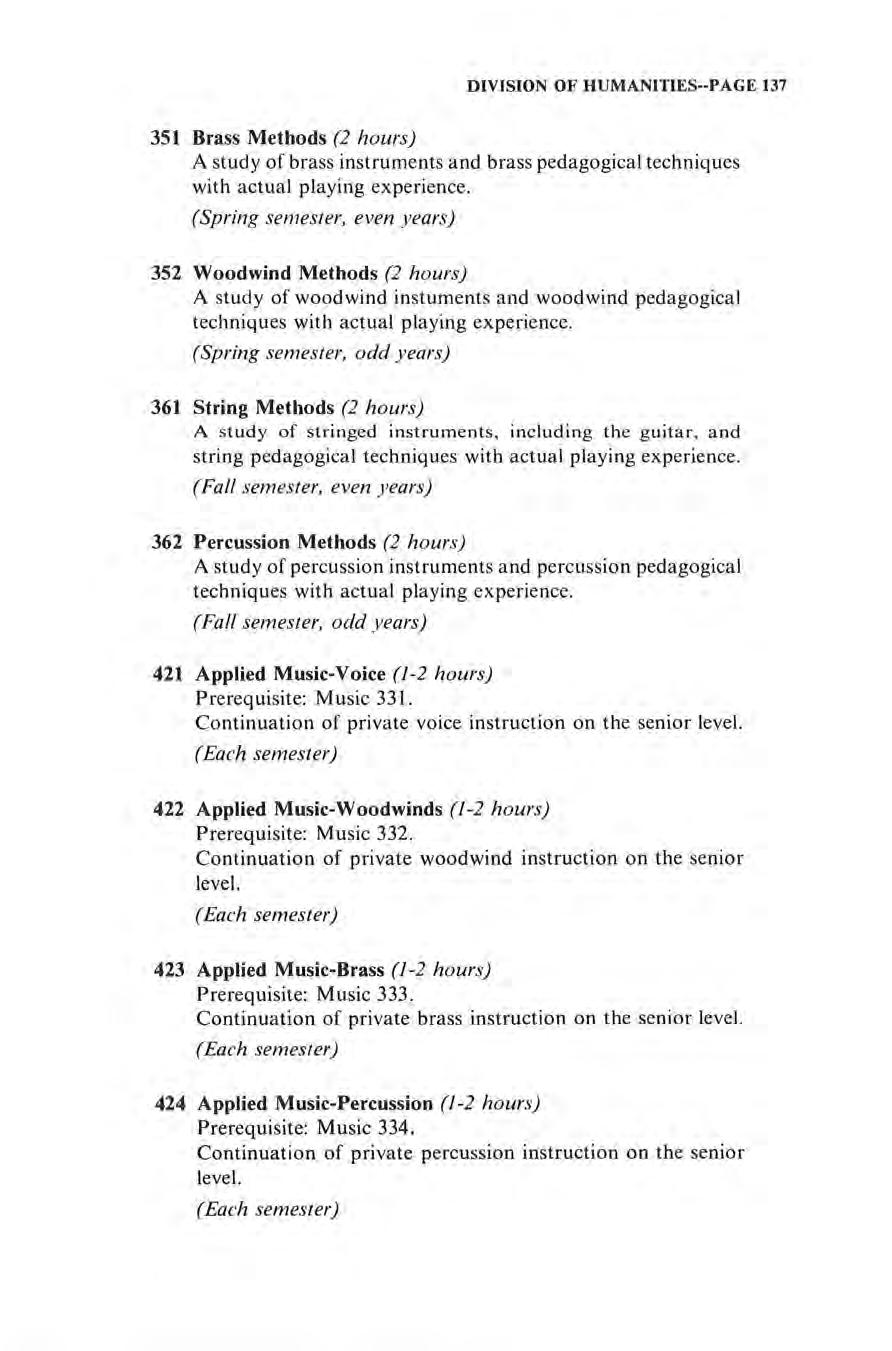
(Spring semester, odd years)
361 String Methods (2 hours)
A study of stringed instruments, including the guitar , and string pedagogical techniques with actua l playing experience.
(Fall semester, even years)
362 Percussion Methods (2 hours)
A study of percussion instruments and percussion pedagogical techniques with actual playing experience. (Fall semester, odd years)
421 Applied Music-Voice (1-2 hours)
Prerequisite: Music 331.
Continuation of private voice instruction on the senior level.
( Each semester)
422 Applied Music-Woodwinds (1-2 hours)
Prerequisite: Music 332.
Continuation of private woodwind instruction on the senior level.
(Each semester)
423 Applied Music-Brass (1-2 hours)
Prerequisite: Music 333.
Continuation of private brass instruction on the senior level.
(Each semester)
424 Applied Music-Percussion (1-2 hours)
Prerequisite: Music 334.
Continuation of private percussion instruction on the senior leve l.
( Each semester)
425 Applied Music-Keyboard (J-2 hours)
Prerequisite: Music 335.
Continuation of private keyboard instruction on the senior level.
(Each semester)
431 Applied Music-Voice (2 hours)
Prerequisite: Music 421.
Continuation of private voice instruction on the advanced senior level culminating with a sixty minute recital.
( Each semester)
432 Applied Music-Woodwinds (2 hours)
Prerequisite: Music 422.
Continuation of private woodwind instruction on the advanced senior level culminating with a sixty minute recital.
(Each semester)
433 Applied Music-Brass (2 hours)
Prerequisite: Music 423.
Continuation of private brass instruction on the advanced senior level culminating with a sixty minute recital.
(Each semester)
434 Applied Music-Percussion (2 hours)
Prerequisite: Music 424.
Continuation of private percussion instruction on the advanced senior level culminating with a sixty minute recital.
(Each semester)
435 Applied Music-Keyboard (2 hours)
Prerequisite: Music 435.
Continuation of private keyboard instruction on the advanced senior level culminating with a sixty minute recital.
( Each semester)
441 Music History I (antiquity to 1750) (2 hours)
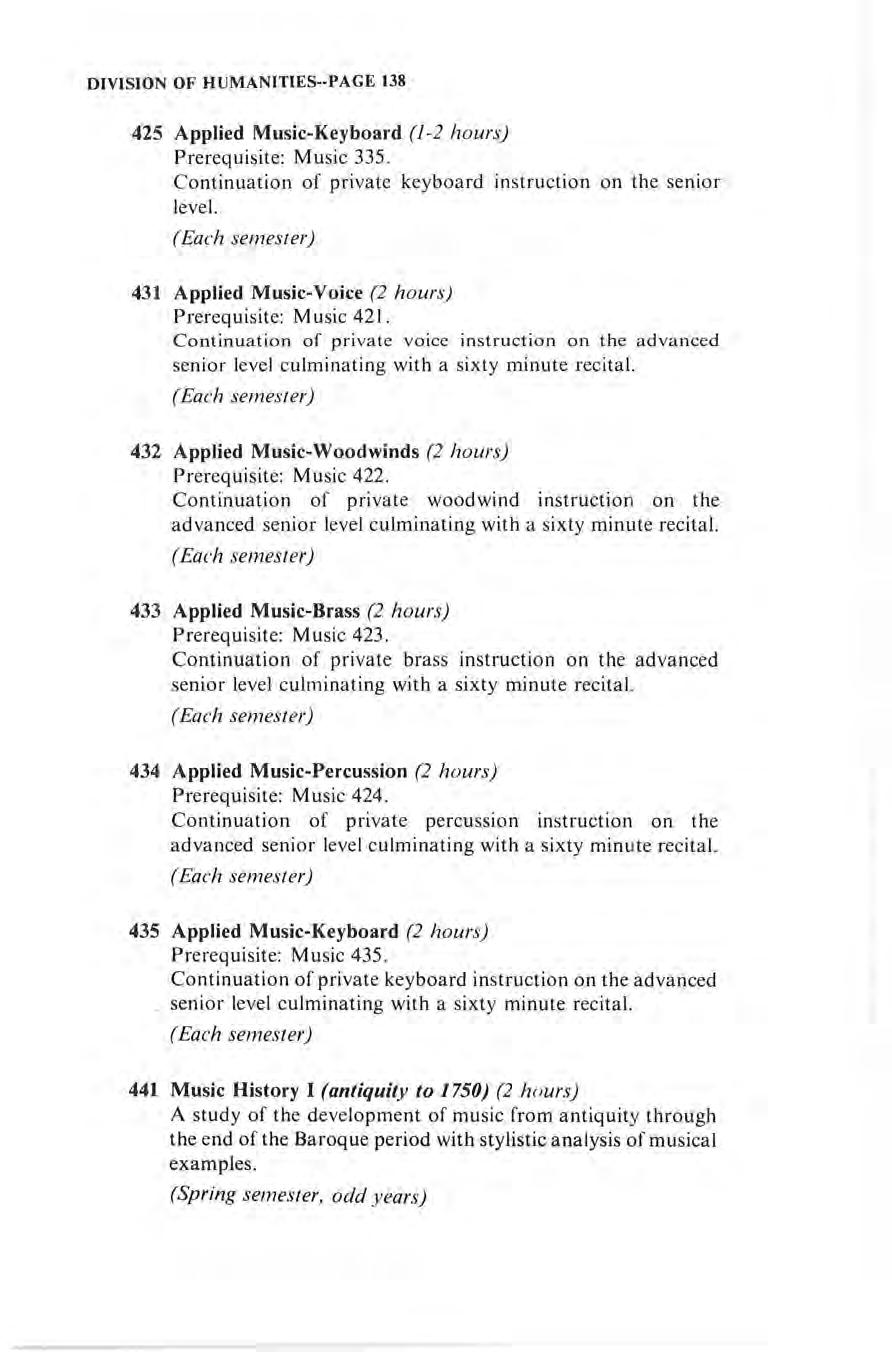
A study of the development of music from antiquity through the end of the Baroque period with stylistic analysis of musical examples.
(Spring semester, odd years)
442 Music History II (1750 to Present) (2 hours)
A study of the development of music from the beginning of the Classical period to the present with stylistic analysis of musical examples.
(Fall semester, odd years)
451 Integrated Studies-Instrumental (2 hours)
Prerequisite: Junior standing. An introductory study of different organizational and pedagogical techniques for various wind instrument ensembles and their respective repertoires.
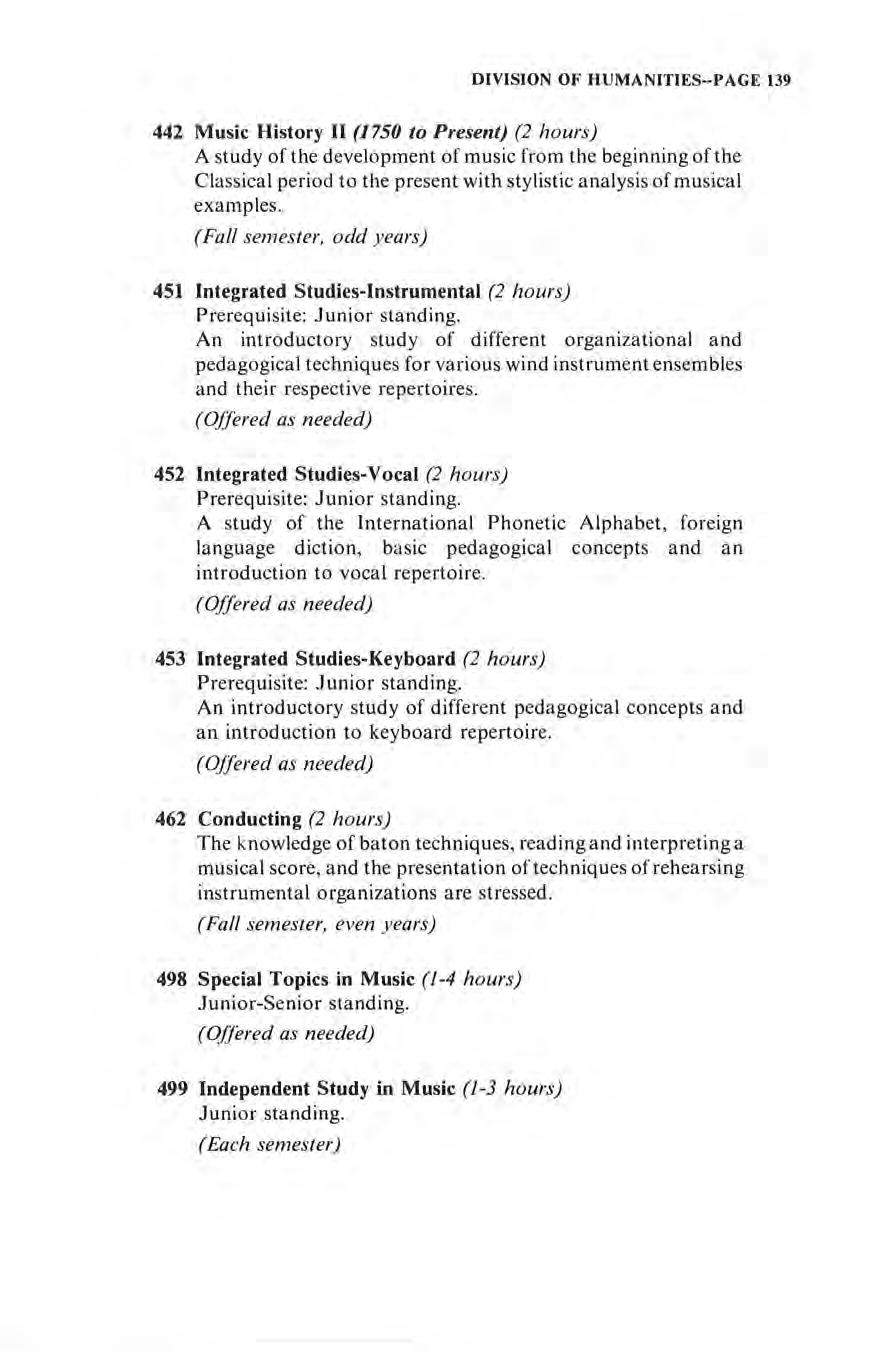
(Offered as needed)
452 Integrated Studies-Vocal (2 hours)
Prerequisite: Junior standing. A study of the International Phonetic Alphabet, foreign language diction, basic pedagogical concepts and an introduction to vocal repertoire.
(Offered as needed)
453 Integrated Studies-Keyboard (2 hours)
Prerequisite: Junior standing
An introductory study of different pedagogical concepts and an introduction to keyboard repertoire.
(Offered as needed)
462 Conducting (2 hours)
The knowledge of baton techniques, reading and interpreting a musical score, and the presentation of techniques ofrehearsing instrumental organizations are stressed.
(Fall semester, even years)
498 Special Topics in Music (1-4 hours) Junior-Senior standing.
(Offered as needed)
499 Independent Study in Music (1-3 hours) Junior standing.
( Each semester)
201 Introduction to Philosophy (3 hours)
An introduction to philosophy through the selected writings of outstanding philosopher s . Lectures and class di sc ussion s on such topics as ethics , philosophy of history , phil oso phy of religion, and metaphy s ics are stressed.
(Fall Semester, odd yea rs)
201 American National Government (3 hours)
A thorough introdu ct ion to th e U S. political syste m , its institutions and processes. Topics will in c lude the constitutional founding , federalism, political culture, Congress, the Presidency , judiciary , bureaucracy , public opinion and the media , the electoral process , and civil liberties.
( Each semester)
202 State and Local Government (3 hours)
Description and analysis of political institutions and behavior in American states with interstate compari s ons and cam parison s between s tate and national political syste ms. Lecture topic s include th e development and role of American local government, it s forms and structures, and the r e lat ionship to the federal government.
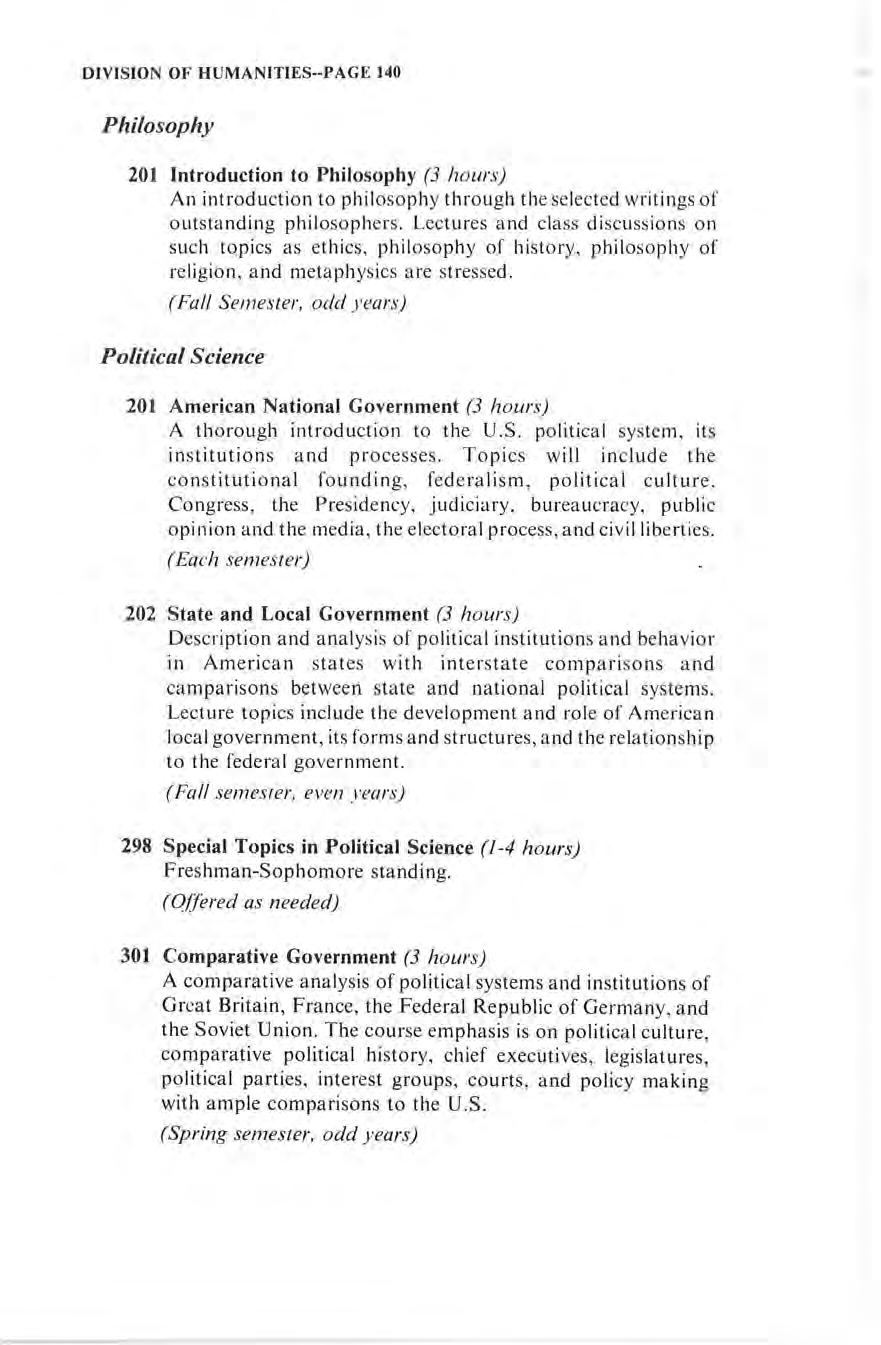
(Fall semester, even years)
298 Special Topics in Political Science (1-4 hours) Freshman-Sophomore sta nding.
(Offered as needed)
301 Comparative Government (3 hours)
A comparative analysis of political systems and institutions of Great Britain , France , the Federal Republic of Germany, and the Soviet Union. The course emphasis is on political culture, comparative political history , chief executives , le g islatures , political partie s, intere s t groups, courts , and policy making with ample comparisons to the U . S.
(Spring semester, odd years)
426 American Constitutional Law (3 hours)
Prerequisite: Pol.Sci 201 or 202 or in s tructor's permission.
A s tudy of the hi s torical and political context of constitutional doctrine through major deci s ions. The e mphasi s is on constitutional growth as it relates to th e fundamental s tructur e of American government and the social order.
(Fall semester, eve n years)
467 The Far East (3 hours)
This course is concerned with the political traditions and historical evolution of the area, the impact of the West and its profound influences on the political order, and today' s revolutionary situation.
(Fall semster, odd years)
498 Special Topics in Political Science (1-4 hours)
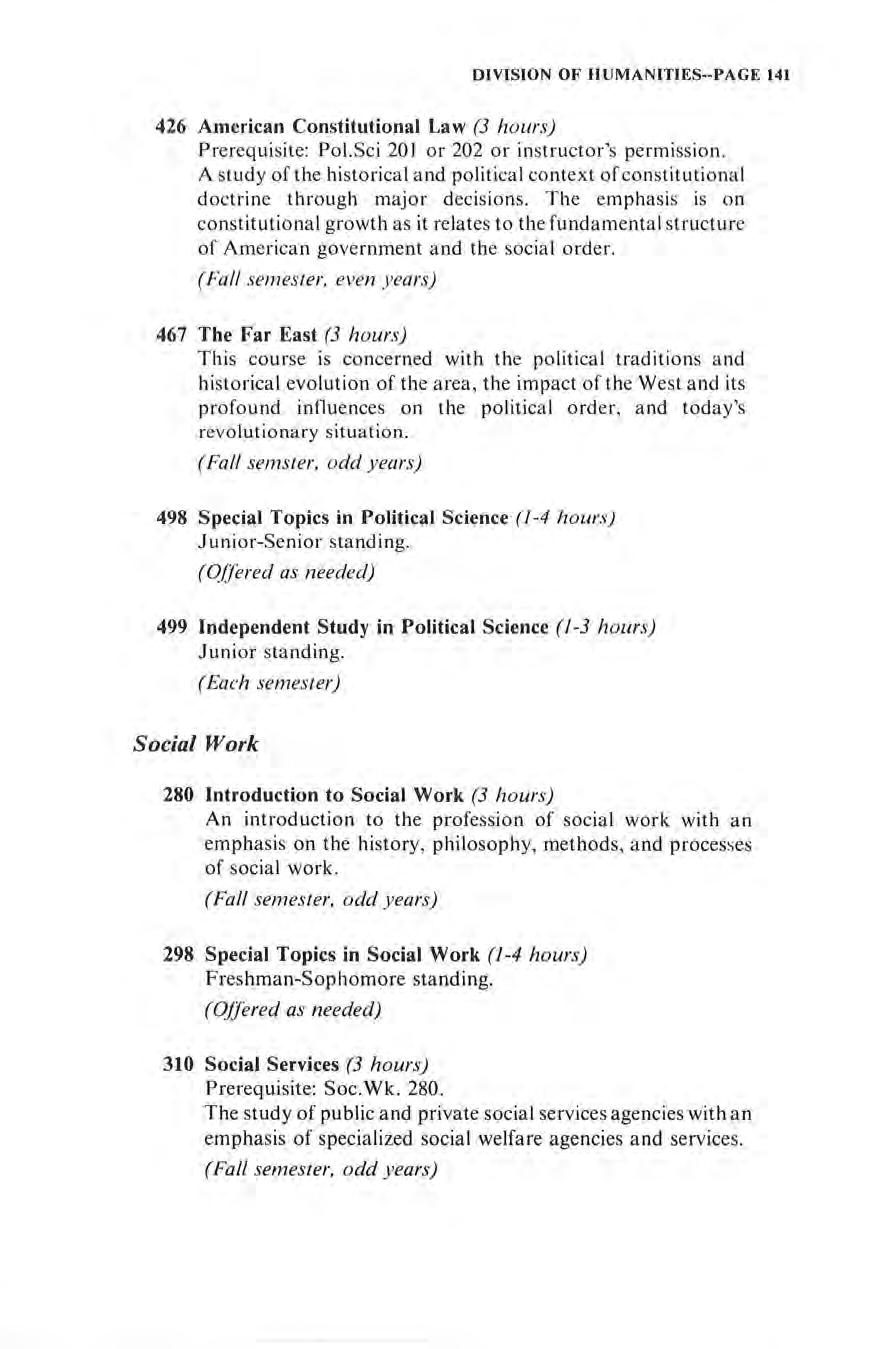
Junior-Senior standing.
(Offered as needed)
499 Independent Study in Political Science (1 -3 hours) Junior standing . ( Each semester)
280 Introduction to Social Work (3 hours)
An introduction to the profe ss ion of social work with an emphasis on the history, philosophy, methods , and processes of social work.
(Fall semester, odd years)
298 Special Topics in Social Work (1-4 hours) Freshman-Sophomore standing.
(Offered as needed)
310 Social Services (3 hours)
Prerequisite: Soc.Wk. 280. The study of public and private social services agencies with an emphasis of specialized social welfare agencies and services.
(Fall semester, odd years)
375 Casework (2 hours)
Prerequisite: Soc.Wk. 280.
The art , theory , and practice of the dynamics of case work with an emphasis on current social work techniques used to meet group and individual needs.
(Fall semester, even years)
390 Group Work (2 hours)
Prerequisite: Soc. Wk. 280.
The theory and practice of the dynamics of group work with an emphasis on techniques used in meeting group and individual needs.
(Fall semester, even years)
430 Field Work Practicum (3 hours)
Prerequisite: 10 hours of Soc. Wk . and permission. Supervised experience in social work.
(Offered as needed)
498 Special Topics in Social Work (1 -4 hours)
Junior-Senior standing.
(Offered as needed)
499 Independent Study in Social Work (1-3 hours)
Junior standing.
( Each semester)
201 Principles of Sociology (3 hours)
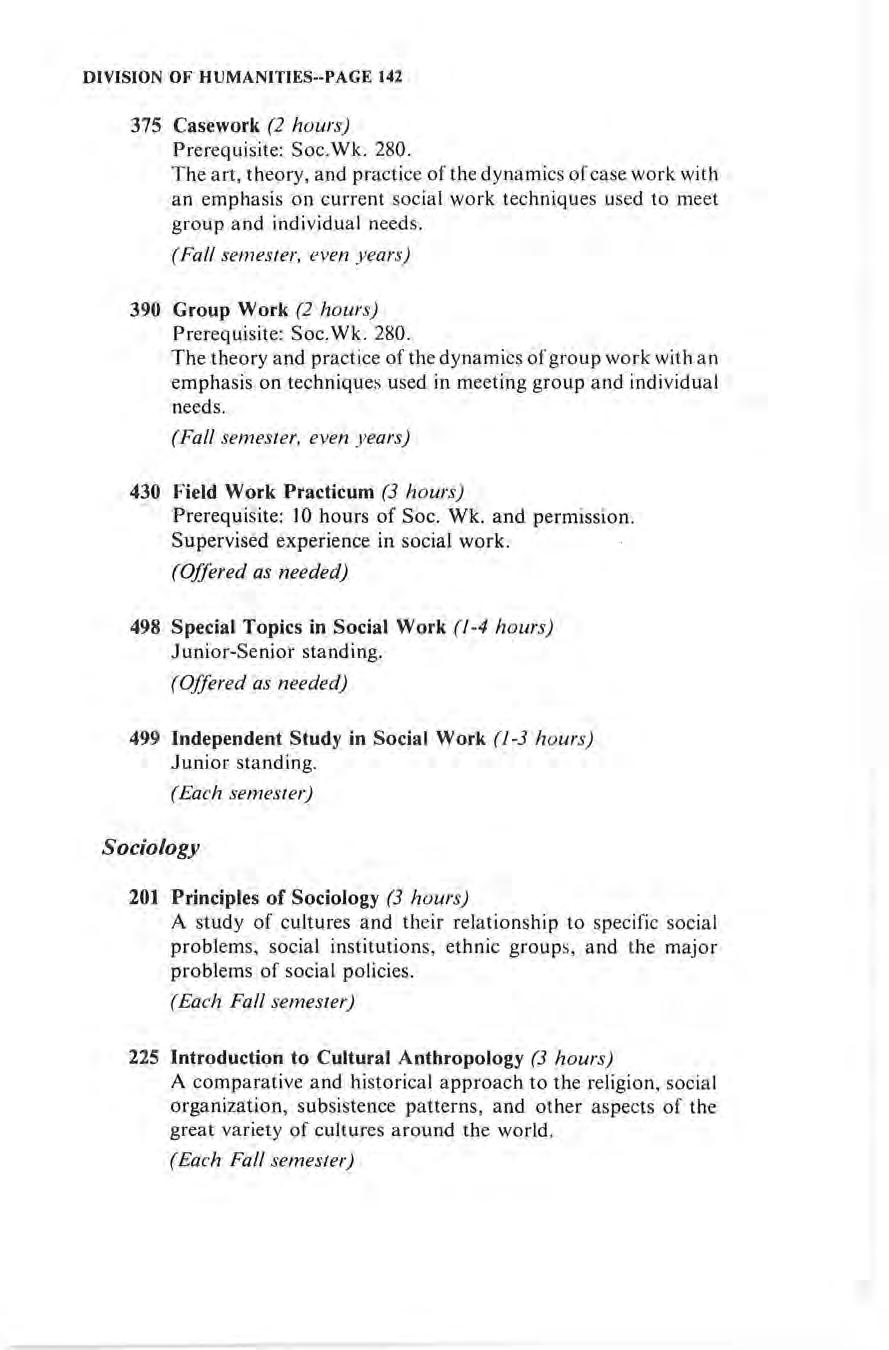
A study of cultures and their relationship to specific social problems, social institutions , ethnic groups, and t he major problems of social policies .
(Each Fall semester)
225 Introduction to Cultural Anthropology (3 hours)
A comparative and historical approach to the religion, social organization, subsistence patterns , and other aspects of the great variety of cultures around the world.
( Each Fall semester)
230 Sociology of Women (3 hours)
A brief history of women's role and status as well as society's attitude toward women.
(Spring semester, odd years)
250 Community Organization (3 hours)
Prerequisite: Soc. 20 1.
The focus of this course is on the urban community, basic patterns of social and eco lo gical organization , and factors contributing to community int egration and disorganization.
( Each Fall semester)
260 Rural Sociology (3 hours)
Prerequisite: Soc. 20 I .
An examination of rural societies with an analysis of rural groups, in s titutions, and rural-urban relations .
( Each Spring semester)
298 Special Topics in Sociology (1-4 hours) Freshman-Sophomore standing.
(Offered as needed)
300 Contemporary Social Problems (3 hours)
An introduction to the causes, treatment , and prevention of se lected socia l problems with particular emphasis on the problems of conflict and inequality.
(Each Fall semester)
320 Sociology of Education (3 hours)
Prerequisite: Soc. 20 I. An application of sociologica l principles to the education process. The relationship between stratification and education, the importance of interaction patterns on the educational process , the effect of other institutions on education, and the role of education as a dynamic institution in a changing society are stressed.
(Spring semester, odd years)
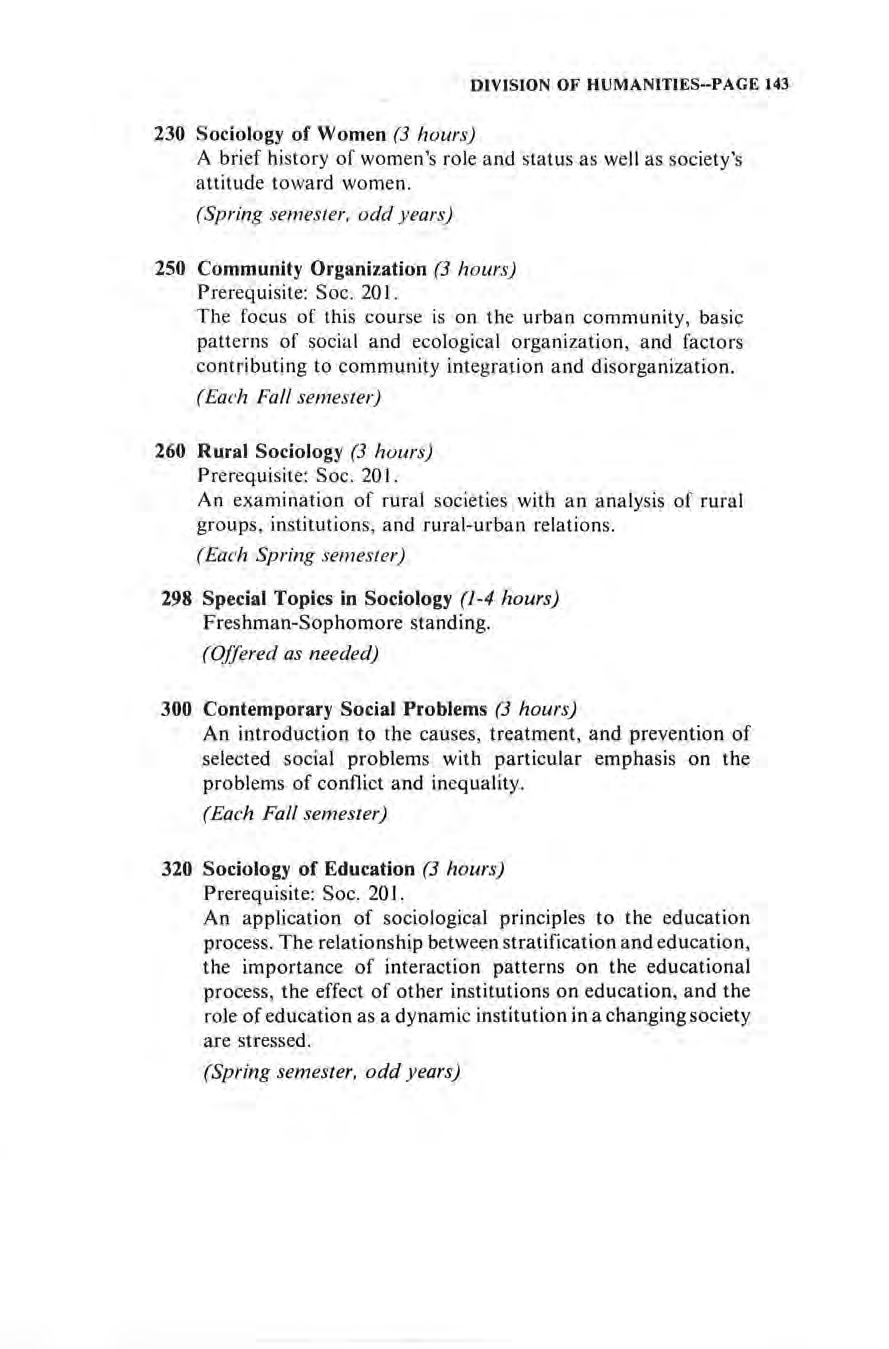
321 Sociology of Religion (3 hours)
A study of the role of religion in life, from early societies to the present. The course stresses Sociological Theory of Religion and includes materials from Anthr~pology, Archeology, Macro-sociology, History, and comparative religions .
(Offered as needed)
340 The Family (3 hours)
Prerequisite: Soc . 201.
An examination of the role of the family in contemporary society with an emphasis on the factors influencing the family structure, functions, and roles, and their implications for both the community and individuals at varying stages of the family life cycle.
(Each Spring semester)
360 Criminology (3 hours)
An examination of the nature and causes of crime as a social phenomenon.
( Each Fall semester)
370 Ethnic-Group Relations (3 hours)
Prerequisite : Soc. 201.
A study of the nature of minority groups and their distribution in American society with an examination of the melting pot thesis in a pluralistic society .
(Each Spring semester)
420 History and Introduction to Modern Sociological Theory (3 hours)
Prerequisite: Soc. 20 I and permission.
An overview of earlier socio lo gical theorists and their contributions to current sociological theory.
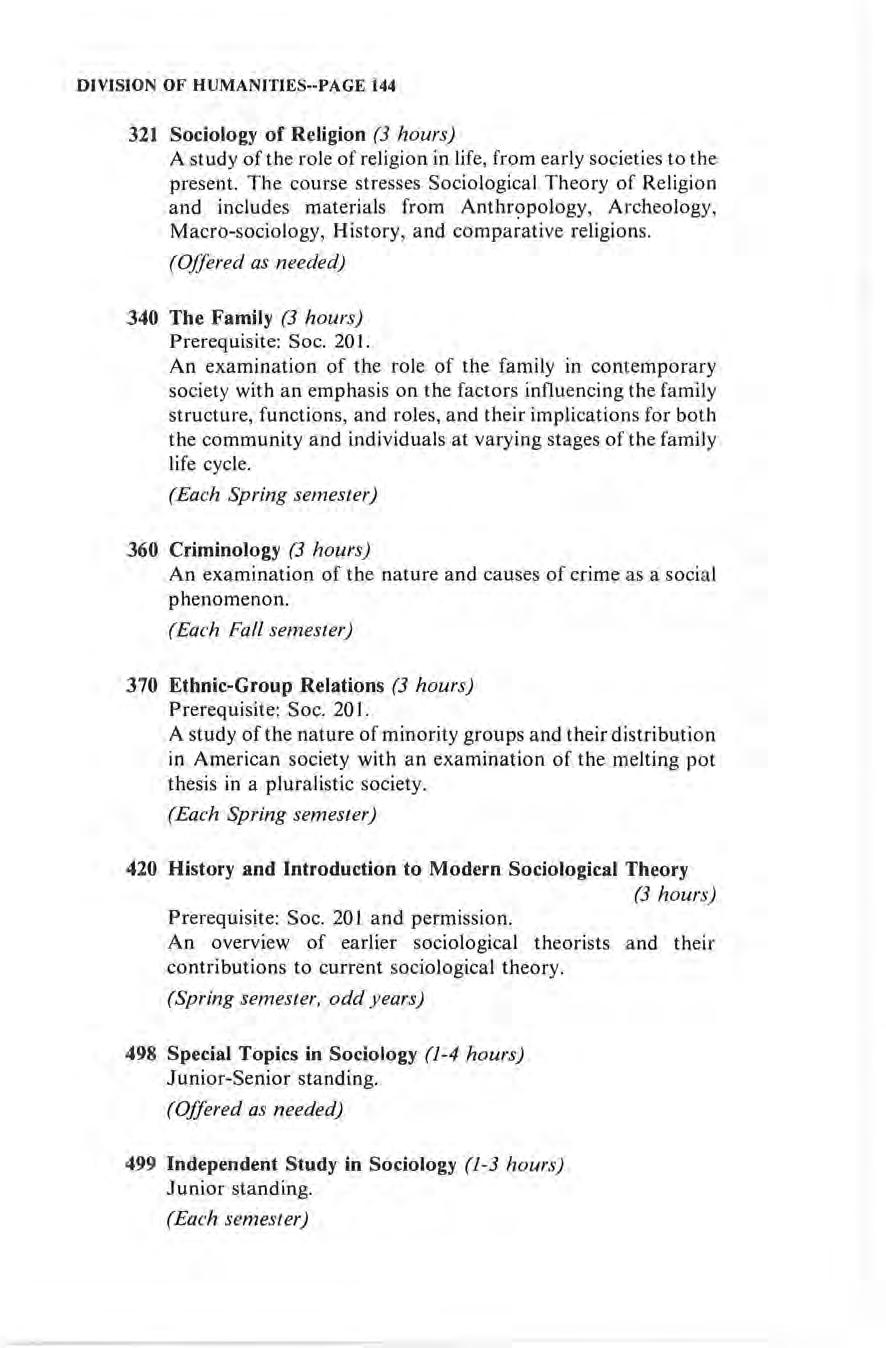
(Spring semester, odd years)
498 Special Topics in Sociology (1-4 hours)
Junior-Senior standing.
(Offered as needed)
499 Independent Study in Sociology (1-3 hours)
Junior standing.
(Each semester)
152 Fundamentals of Speech (3 hours)
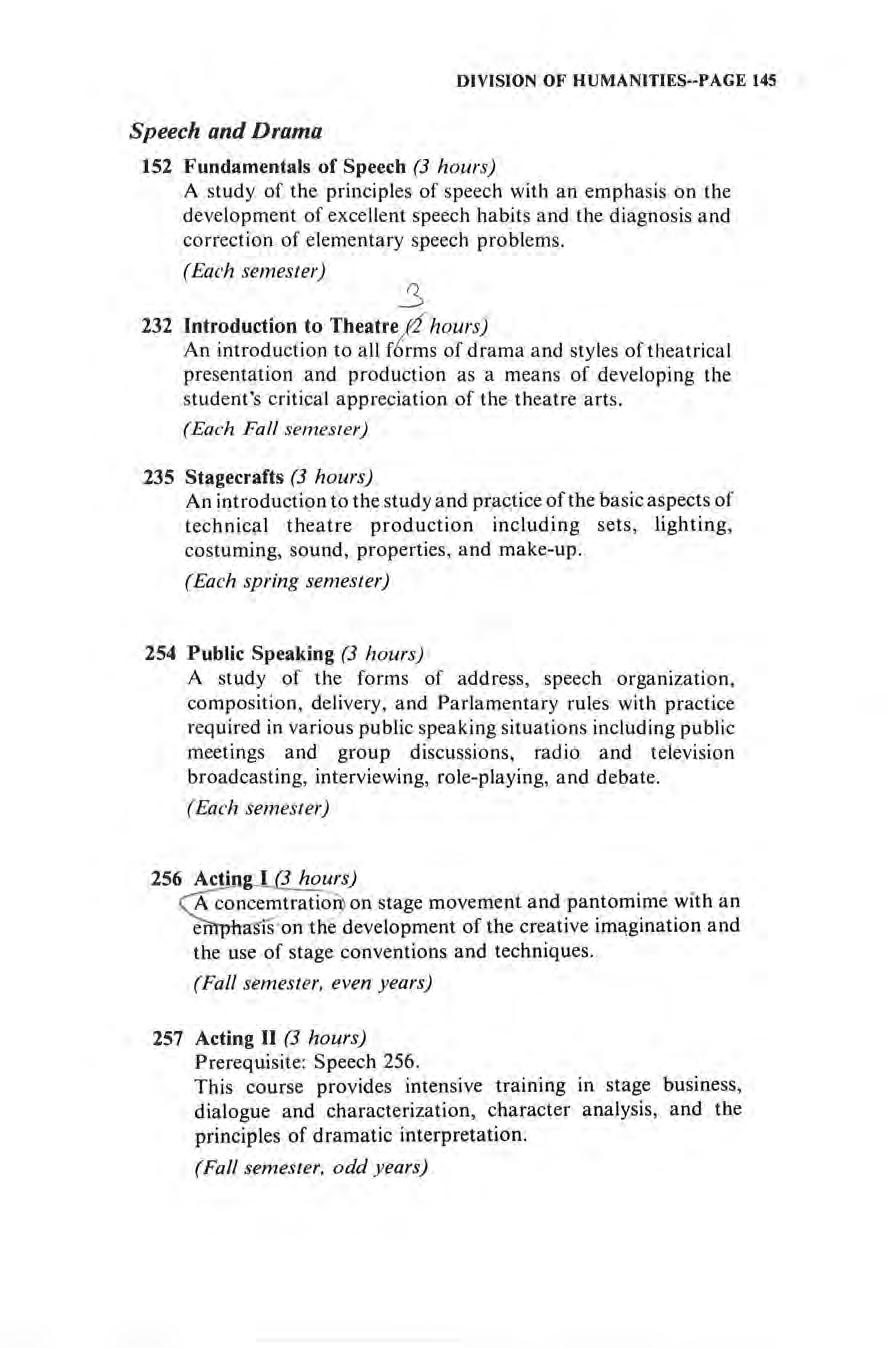
A study of the principles of speech with an emphasis on the development of excellent speech habits and the diagnosis and correction of elementary speech problems
( Each semester) 3
232 Introduction to Theatrej1 hours) ·
An introduction to all forms of drama and styles of theatrical presentation and production as a means of developing the student's critical appreciation of the theatre arts.
( Each Fall semester)
235 Stagecrafts (3 hours)
An introduction to the study and practice of the basic aspects of technical theatre production including sets, lighting, costuming, sound, properties, and make-up .
( Each spring semester)
254 Public Speaking (3 hours)
A study of the forms of address, speech organization, composition, delivery, and Parlamentary rules with practice required in various public speaking situations including public meetings and group discussions, radio and television broadcasting, interviewing, role-playing , and debate .
( Each semester)
256~ctigJ (3 hours)
A concemtratio~ on stage movement and pantomime with an e is -on-the development of the creative im<\gination and the use of stage conventions and techniques.
(Fall semester, even years)
257 Acting II (3 hours)
Prerequisite: Speech 256. This course provides intensive trammg in stage business, dialogue and characterization, character analysis, and the principles of dramatic interpretation.
(Fall semester, odd years)
298 Special Topics in Speech and Drama (1-4 hours)
Freshman-Sophomore standing.
(Offered as needed)
300 Summer Theatre Workshop (3 hours)
This course offers practical training in a ll aspects of theatre production including acting, set design, lighting, costuming, make-up, improvisation, music, and dancing.
(Summer Session)
327 Light and Sound Design for Stage and Television (3 hours)
Prerequisite: Speh 235
This course studies the theory and practice of stage and television lighting and sound systems with an emphasis on color, accoustical, and light problems.
(Spring semester, odd years)
353 Speech Correction and Development (3 hours)
This course identifies the unique educational problems of children with speech deficiencies with an emphasis on identification and remediation
(Each Fall semester)
355 Play Production in the Secondary School (3 hours)
This course for the director of dramatics in schools and communities answers the fundamental questions of play se le ction, casting, directing, steps in rehearsal , scenery, lighting, costume, make-up, and business organiza t ion.
(Fall semester, odd years)
357 Interpretative Reading (2 hours)
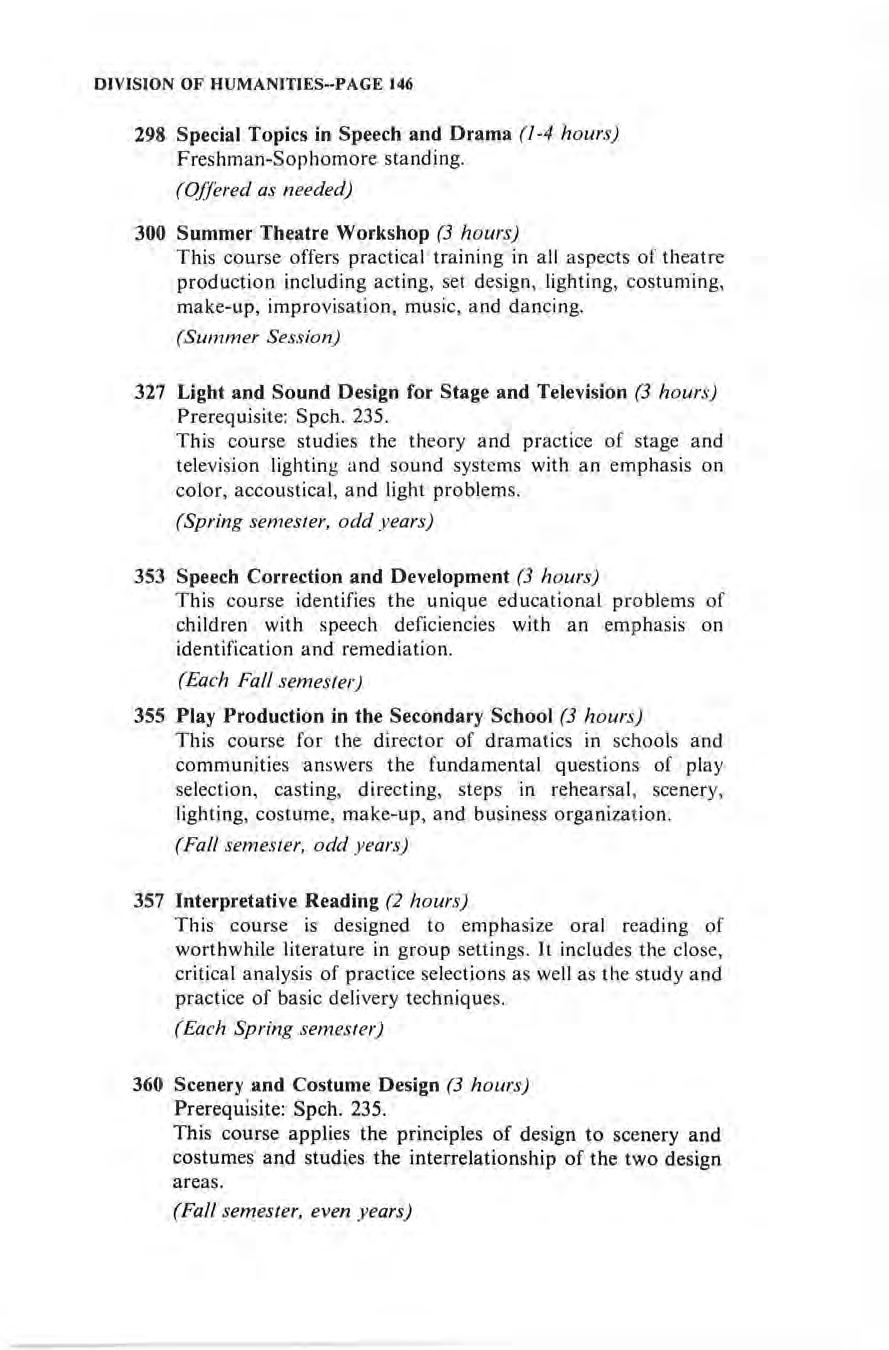
This course is designed to emphasize oral reading of worthwhile literature in group settings. It includes the c los e, cr iti cal analysis of practice se lections as well as the study and practice of basic delivery techniques.
(Each Spring semester)
360 Scenery and Costume Design (3 hours)
Prerequisite: Speh. 235.
This course applies the principles of design to scenery and costumes and studies the interrelationship of the two design areas.
(Fall semester, even years)
363 Directing I (3 hours)
Prerequisite : Speh. 256.
This course answers the fundamental questions of play selection, casting, directing, scenery, lighting, costume, and make-up for the one-act play.
(Spring semester, odd years)
364 Directing II (3 hours)
Prerequisites: Speh. 256 and 363. Further study in the historical interpretations of action, and an intense practical application of the fundamentals learned rn Directing I in staged scenes and staging a one-act play .
(Spring semester, even years)
369 Children's Theatre and Creative Dramatics (3 hours)
The study and active participation in the two different concepts of drama for young people: Creative Dramatics, in which children with the guidance of an imaginative leader create scenes or plays and perform them using improvised dialogue and action with personal development as the goal, and Children's Theatre which utilizes written scripts directed and performed as a complete production for child audiences.
(Fall semester, even years)
400 Theatre History (3 hours)
This course will examine the nature, function, and literature of the theatre from its beginnings to the present day. The approach will consist of a study of each of the major periods in theatre history and representative plays of that period.
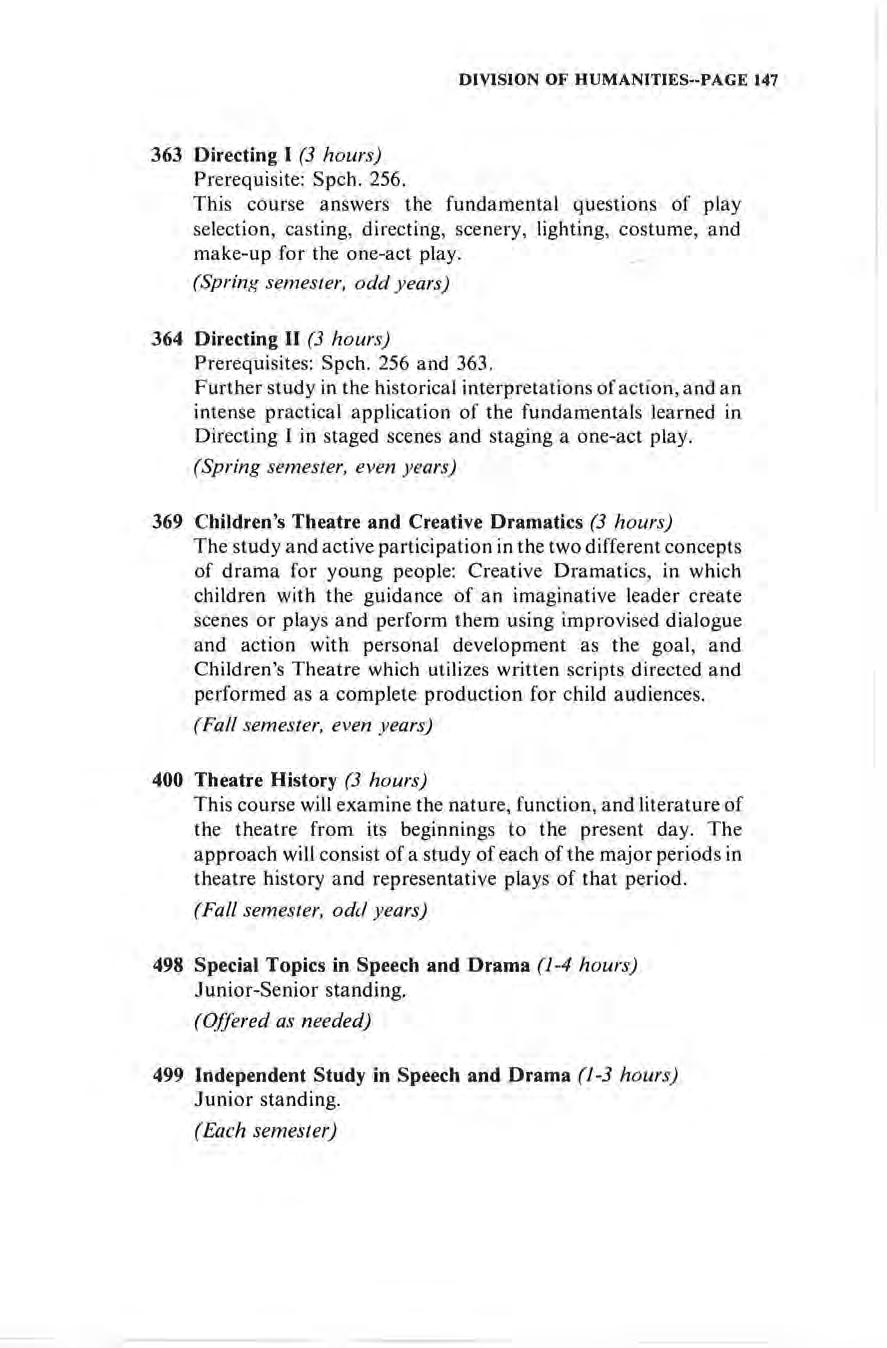
(Fall semester, odd years)
498 Special Topics in Speech and Drama (1 -4 hours)
Junior-Senior standing.
(Offered as needed)
499 Independent Study in Speech and Drama (1-3 hours) Junior standing.
( Each semester)
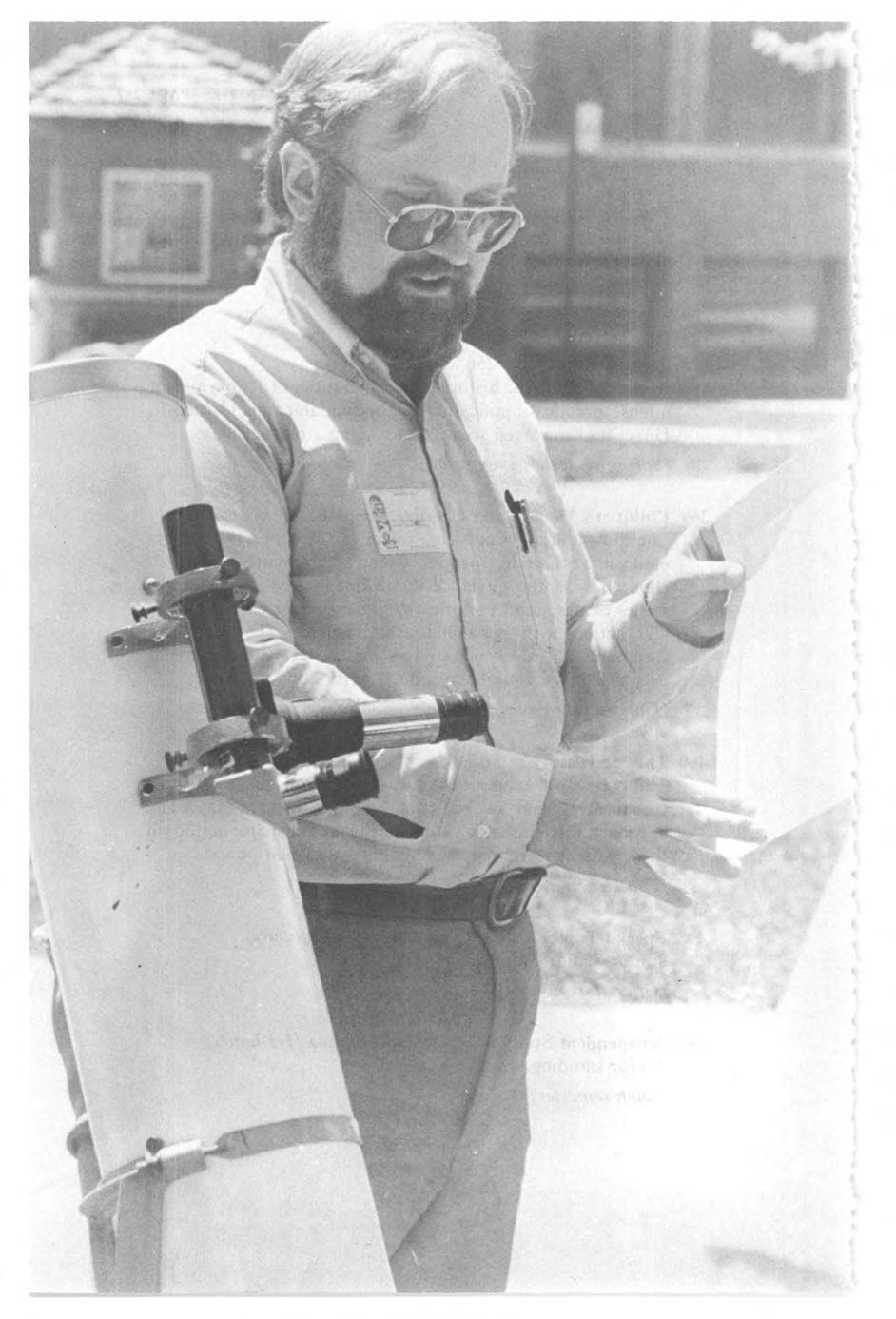
Professors: Long, Pappas, L., Pippert, Russell
Associate Professors: Longley, McKercher
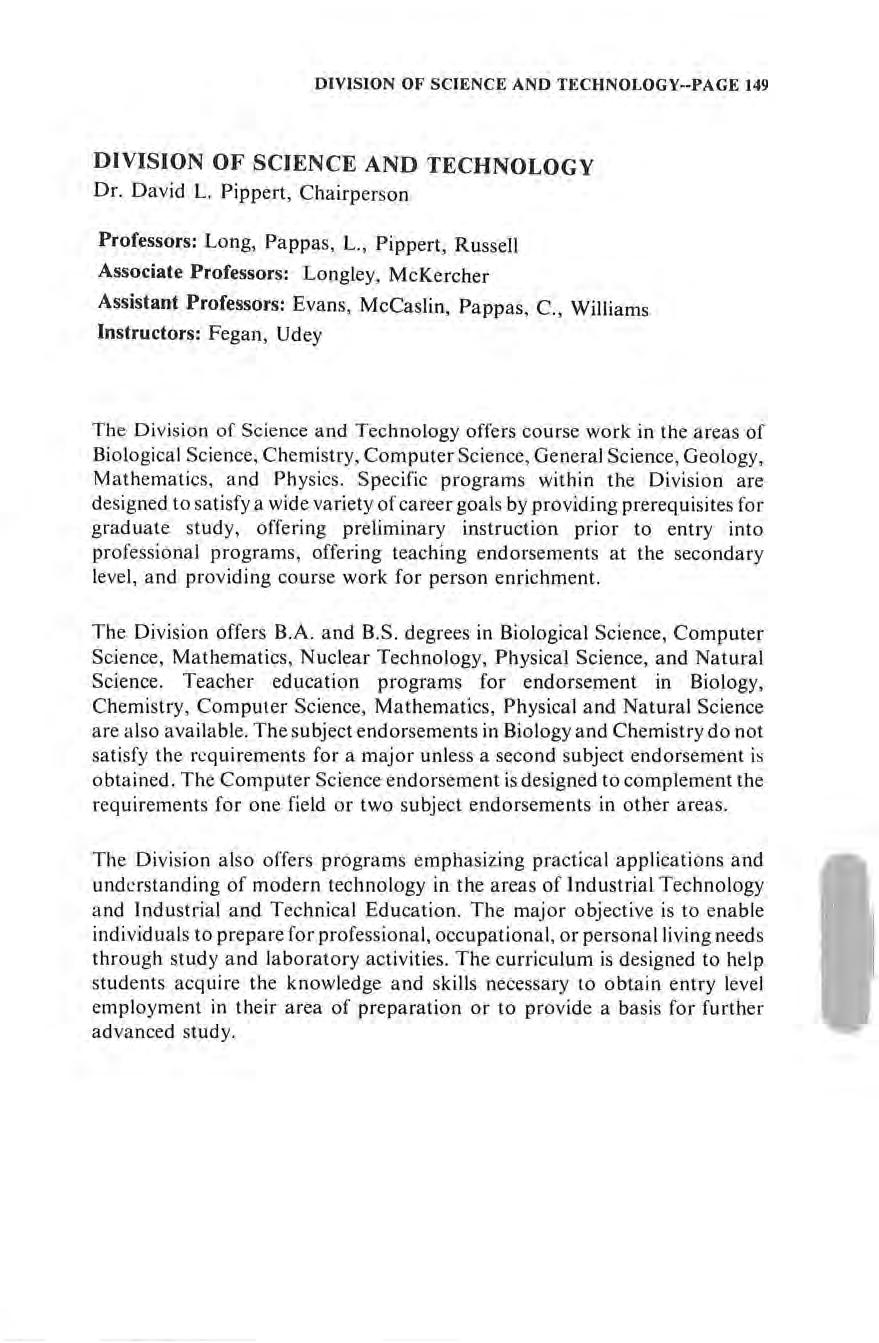
Assistant Professors: Evans, Mccaslin, Pappas, C., Williams
Instructors: Fegan, Udey
The Division of Science and Technology offers course work in the areas of Biological Science, Chemistry, Computer Science, General Science, Geology, Mathematics, and Physics. Specific programs within the Division are designed to satisfy a wide variety of career goals by providing prerequisites for graduate study, offering preliminary instruction prior to entry into professional programs, offering teaching endorsements at the secondary level , and providing course work for person enrichment.
The Division offers B.A. and B.S. degrees in Biological Science, Computer Science, Mathematics, Nuclear Technology, Physical Science, and Natural Science. Teacher education programs for endorsement in Biology, Chemistry, Computer Science, Mathematics, Physical and Natural Science are also available. The subject endorsements in Biology and Chemistry do not satisfy the requirements for a major unless a second subject endorsement is obtained. The Computer Science endorsement is designed to complement the requirements for one field or two subject endorsements in other areas.
The Division also offers programs emphasizing practical applications and under s tanding of modern technology in the areas of Industrial Technology and Industrial and Technical Education. The major objective is to enable individuals to prepare for professional, occupational, or personal living needs through study and laboratory activities. The curriculum is designed to help students acquire the knowledge and skills necessary to obtain entry level employment in their area of preparation or to provide a basis for further advanced study.
After comp leting a core curric ul um, three options are avai lab le to students interes te d in the Bio logical Sciences. The Bio logical Sc ience option is designed for students p lann ing to enro ll in a graduate or profess iona l school after comp letion of the bacca laureate degree . For students interested in careers as conservation officers or park rangers, the wi ldlife eco logy option is avai lable A Bio logy subj ect endorsement is a lso avai lab le.

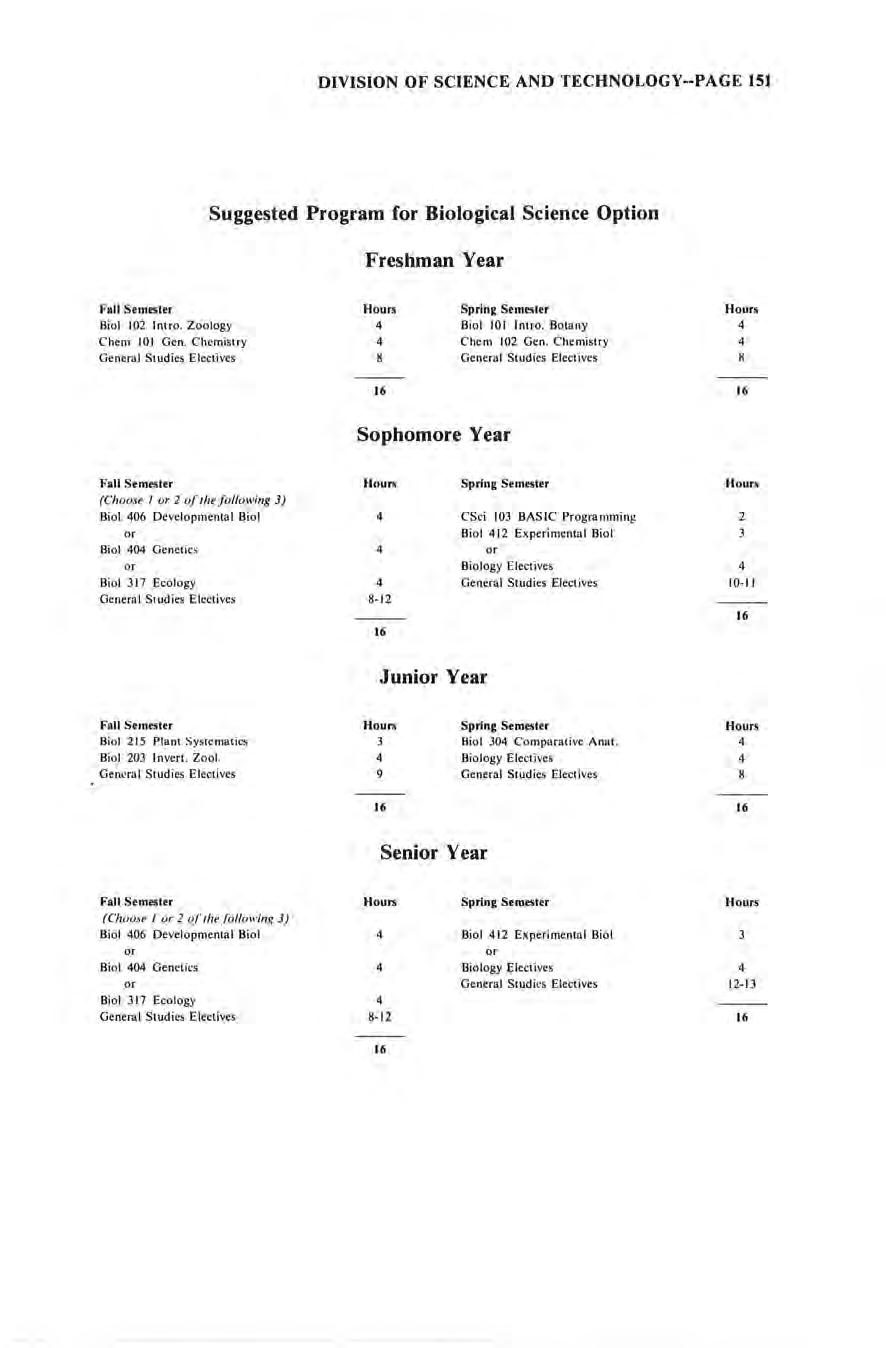
Fall Se mester
Bi ol I02 Int ro. Z oo logy
C h e m IOI Gen . C h e mi s tr y
G e n e ral Studies E lecti ves
Fall S emester
(Ch oose I o r 2 of 1h e f o llo wing J)
Bi o l 406
o r
D eve lo pm e nta l Biol
Bio l 404 G e n eti cs
o r
Bi o l 3 17 Eco logy
Ge n e ra l Studi es El ec tives
Fall S emester
Bi o l 21 5 P la nt Sys t e ma tics
Bi o l 203 In ve rt Z oo !.
Ge nera l Studies El ec ti ves
Fall S
( Ch vme 1 u r 2 uf t hefu lluwin g J )
Bi o l 406 D evel o pm e nt a l Biol
o r
Bi o l 404 Gen et ics
o r
Bi o l 3
G e nera l Studi es E

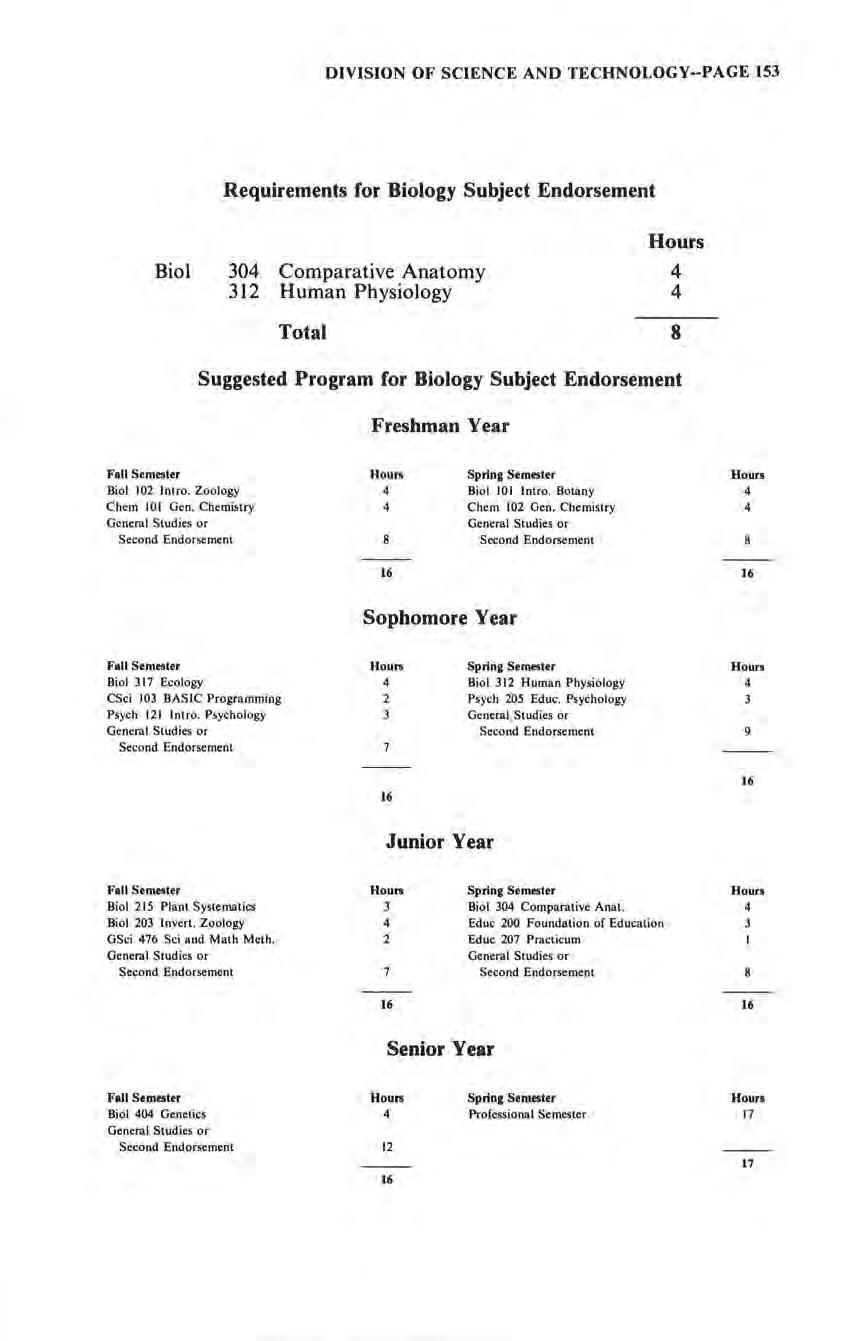
A Chemistry subject endorsement is offered as part of the teacher education program. A second subject endorsement is required in order to satisfy the requirements for a major.
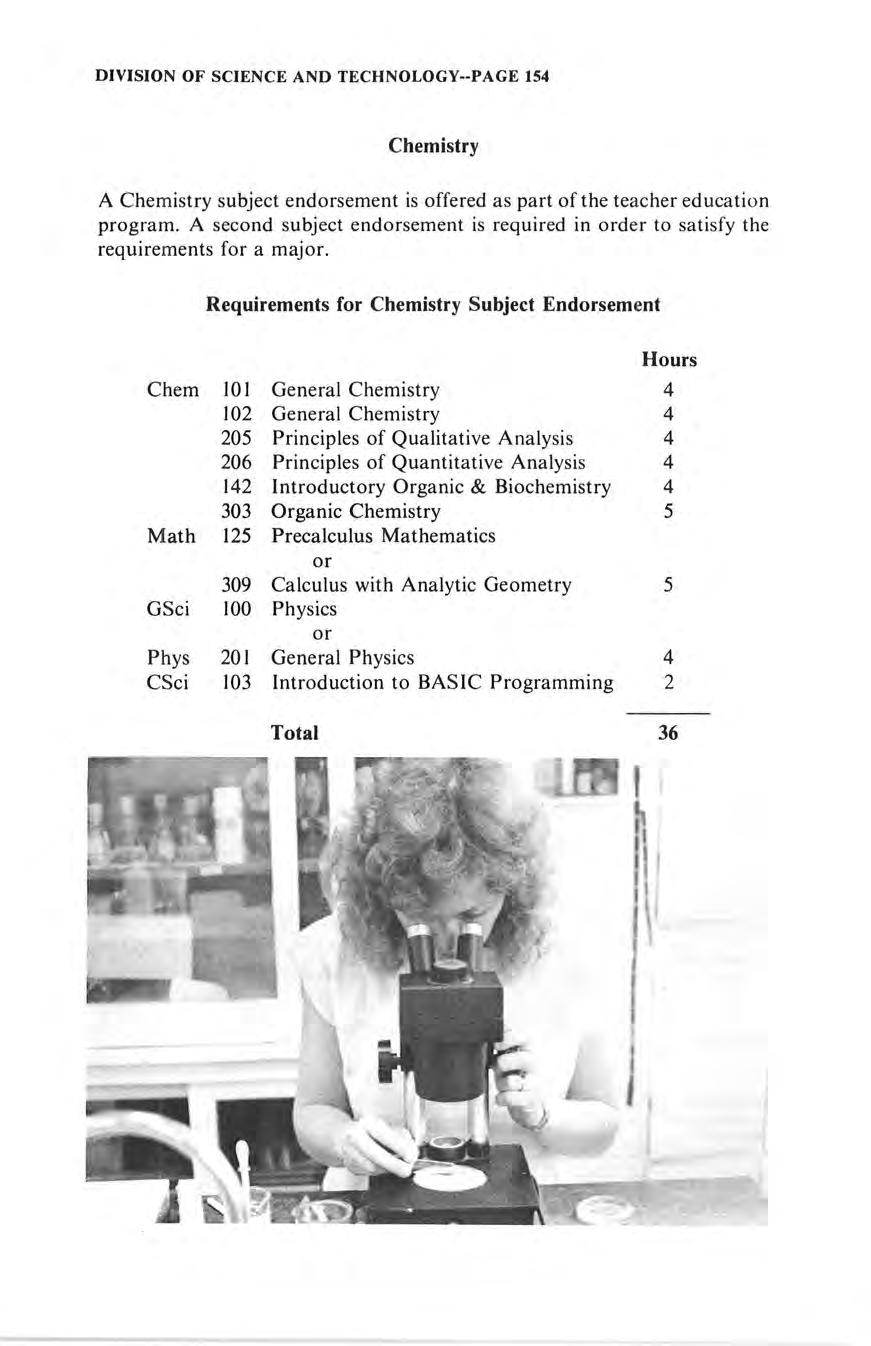

Fall Semester
C hem IOI Gen. Chem is tr y Math 125 Precalc. Math or Math 309 Ca lculu s
General Studics E lcl:t ives
GSc
After completing a core curriculum, two options are available to students interested in a Computer Science major--the technical option and the busines s application option . Students majoring in other areas and seeking background in computers may select the Computer Science minor.
*Students who have successfully completed mathematics courses equivalent to Math 125 and Math 126 may have the se courses waived Consent of Division Chairperson is required. If c onsent is given, only 54 hours are required for the major
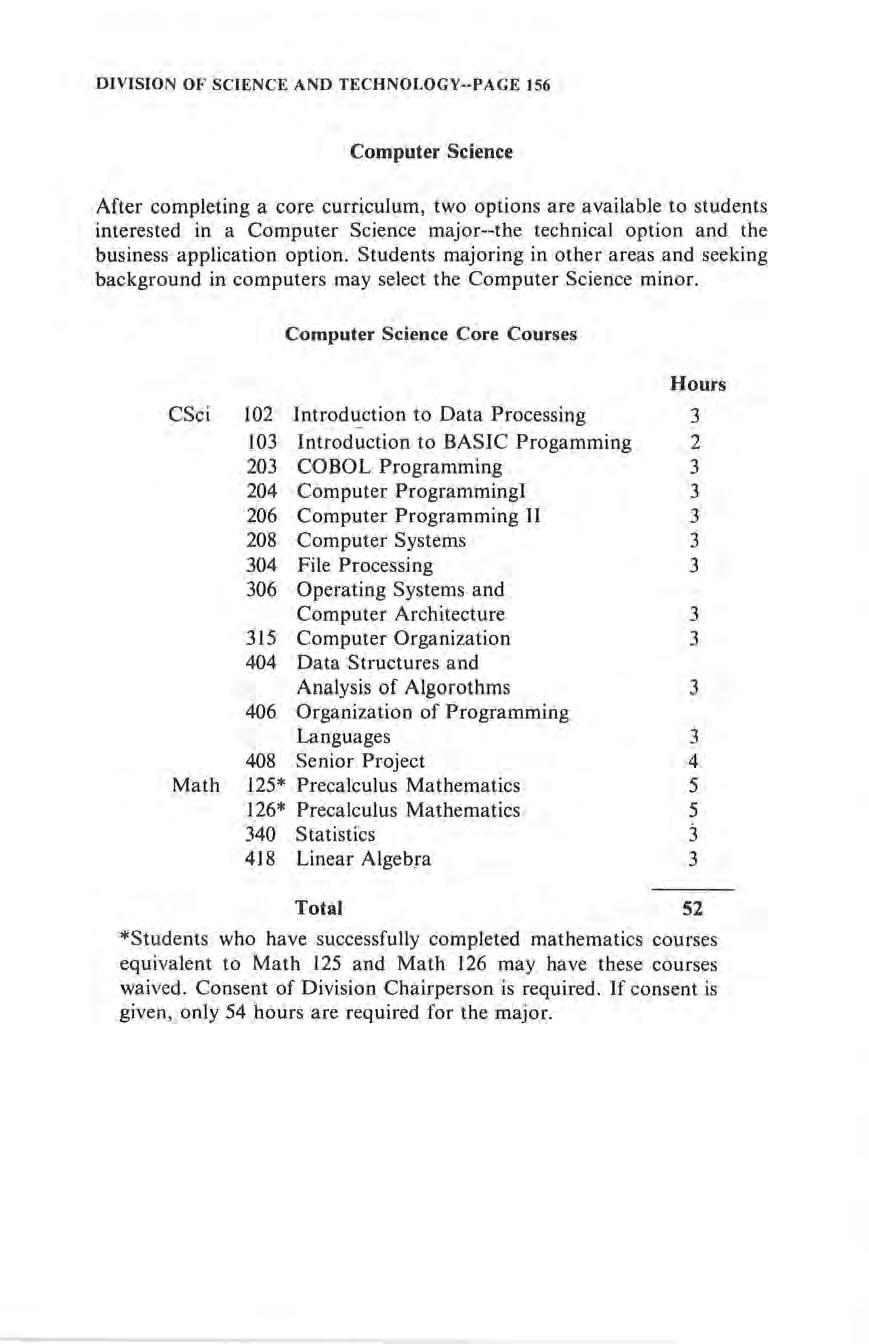

To obtain the endorsement, teacher education students must also satisfy the requirement of a major in either one field or two subjects.
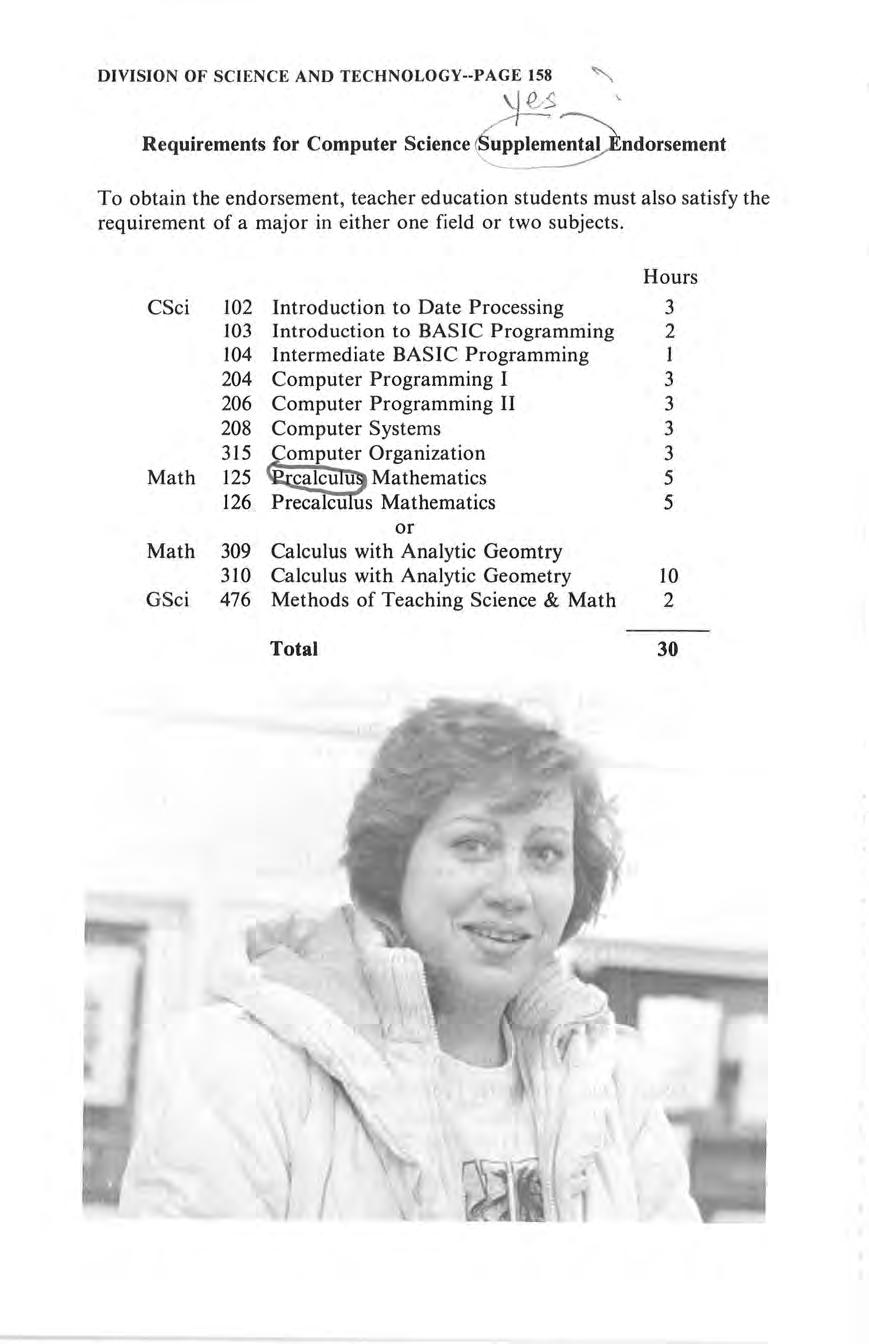
CSci 102 Intro. Data Proc
CSci 103 BASIC Programming
Math 125 Precalculus Mathematics
CSci 206 Computer Programming II
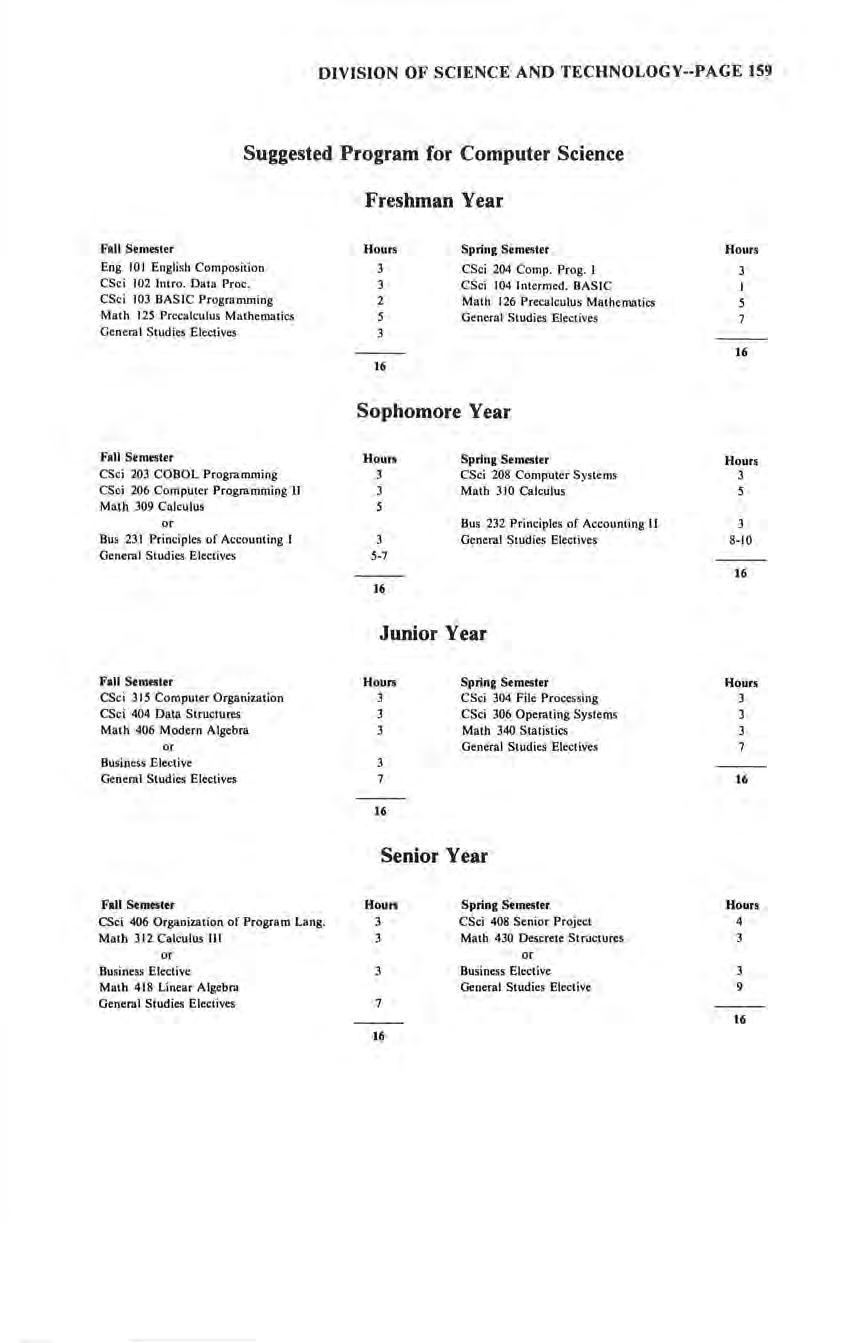
The requirements listed represent both the education and non-education degree programs. If the teaching endorsement is chosen , attention must be given to additional courses requ ired for entrance into the professional semest e r. In the teacher education program, mathema t ics is a field endorsement. Those who have taken Mathematics courses equivi lent to Math 125 and 126 may begin the major with Math 309. In such cases, 32 hours are needed for the major. Consent of the Division Chairperson is required.
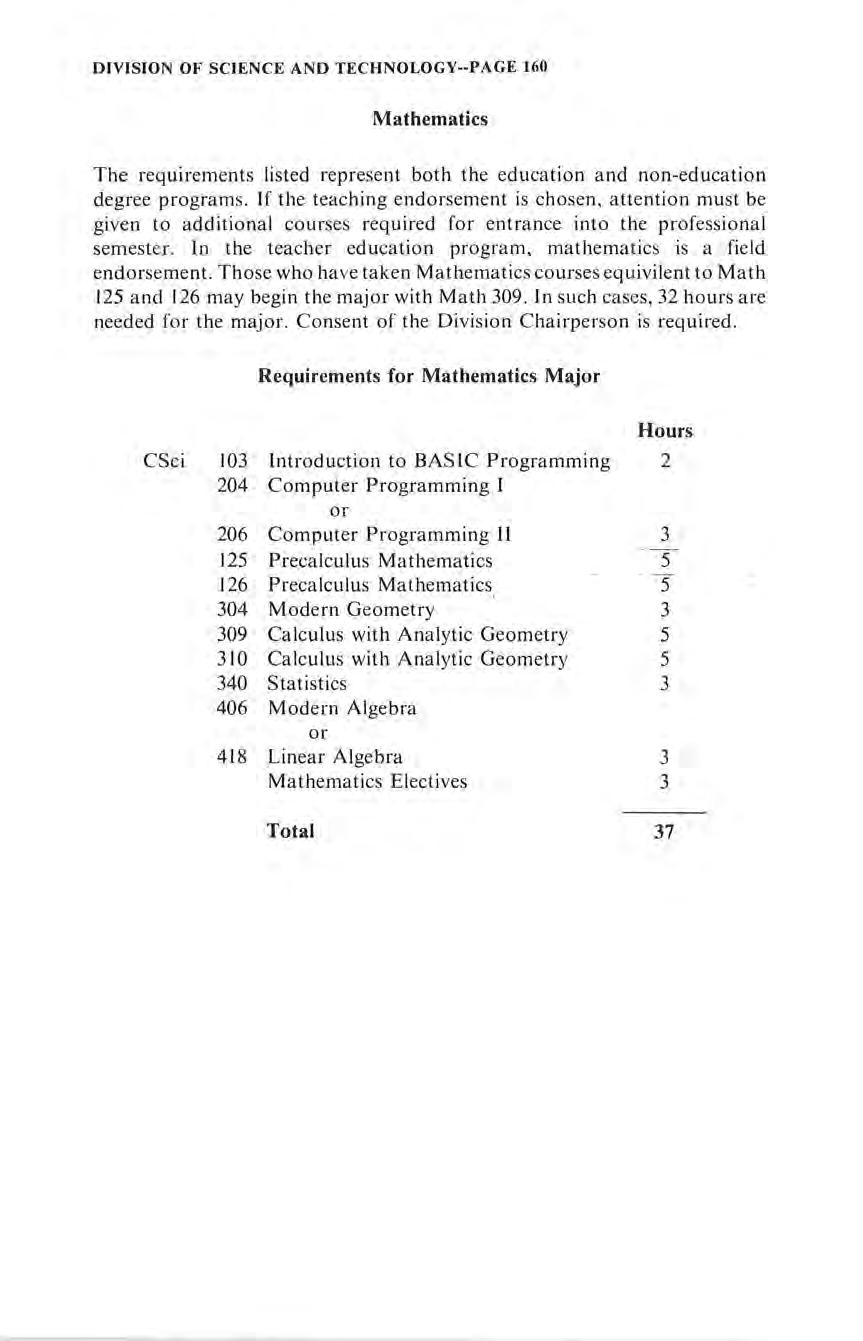
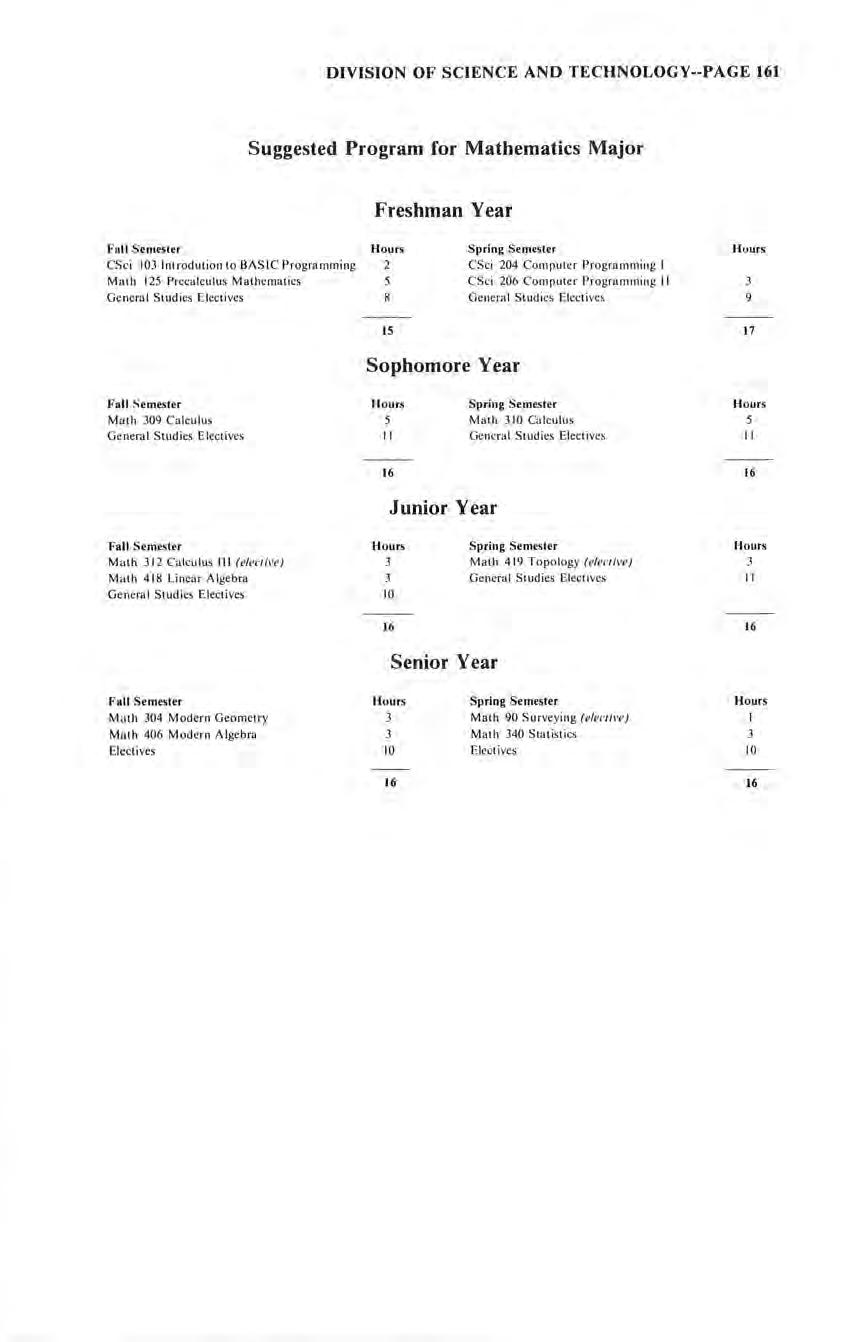
The requirements listed represent both the education and non-education degree programs. If the teaching endorsement is chosen, attention must be given to the additional courses required for entrance into the professional semester. In the teacher education program, Natural Science is a field endorsement.
Additional work in either Biology , Chemistry, Physics or Earth Science is required so that the candidate has completed at least 20 semester hours in one of these subjects.
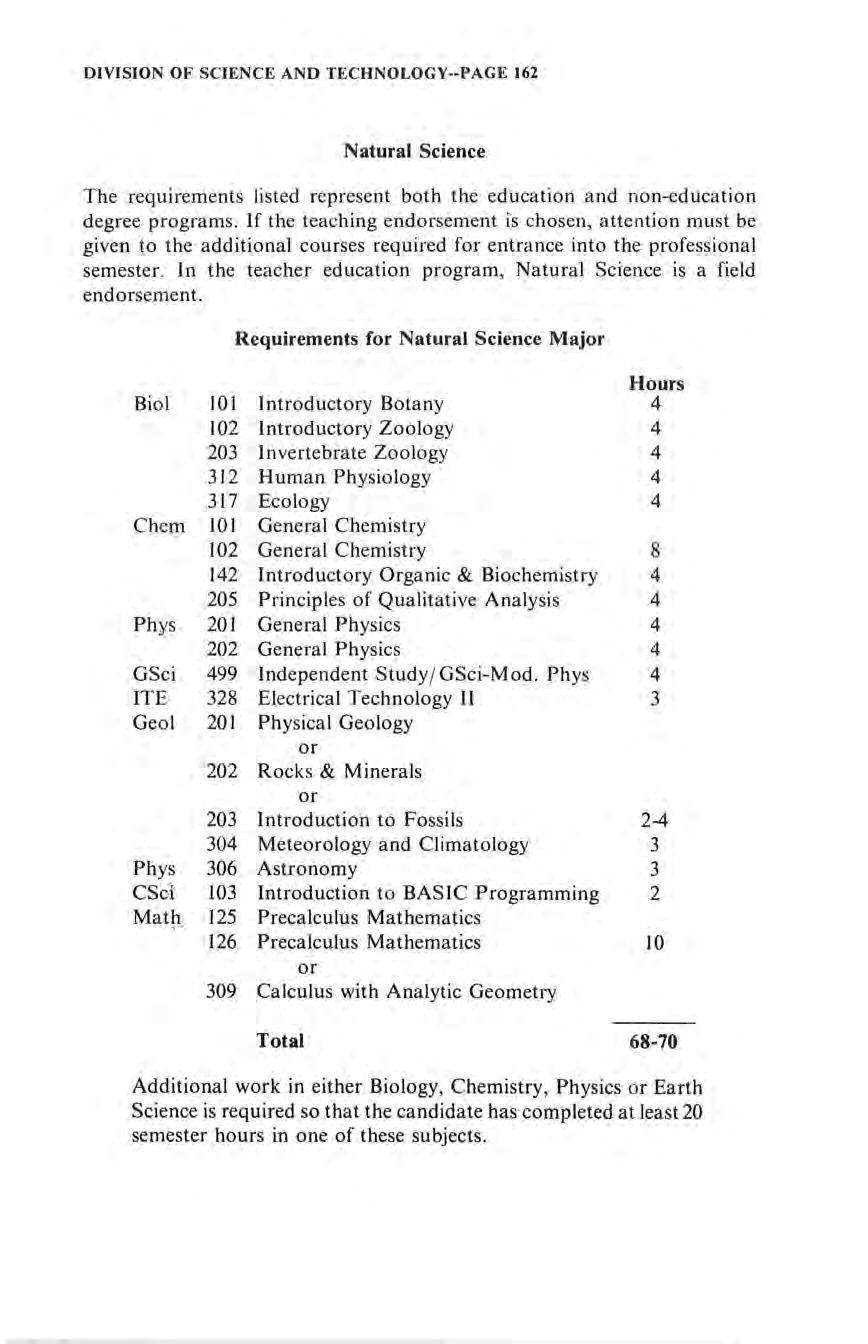
Fa ll Se mes t er Chem 10 1 General C h cme s tr y
GSci 100 Physics
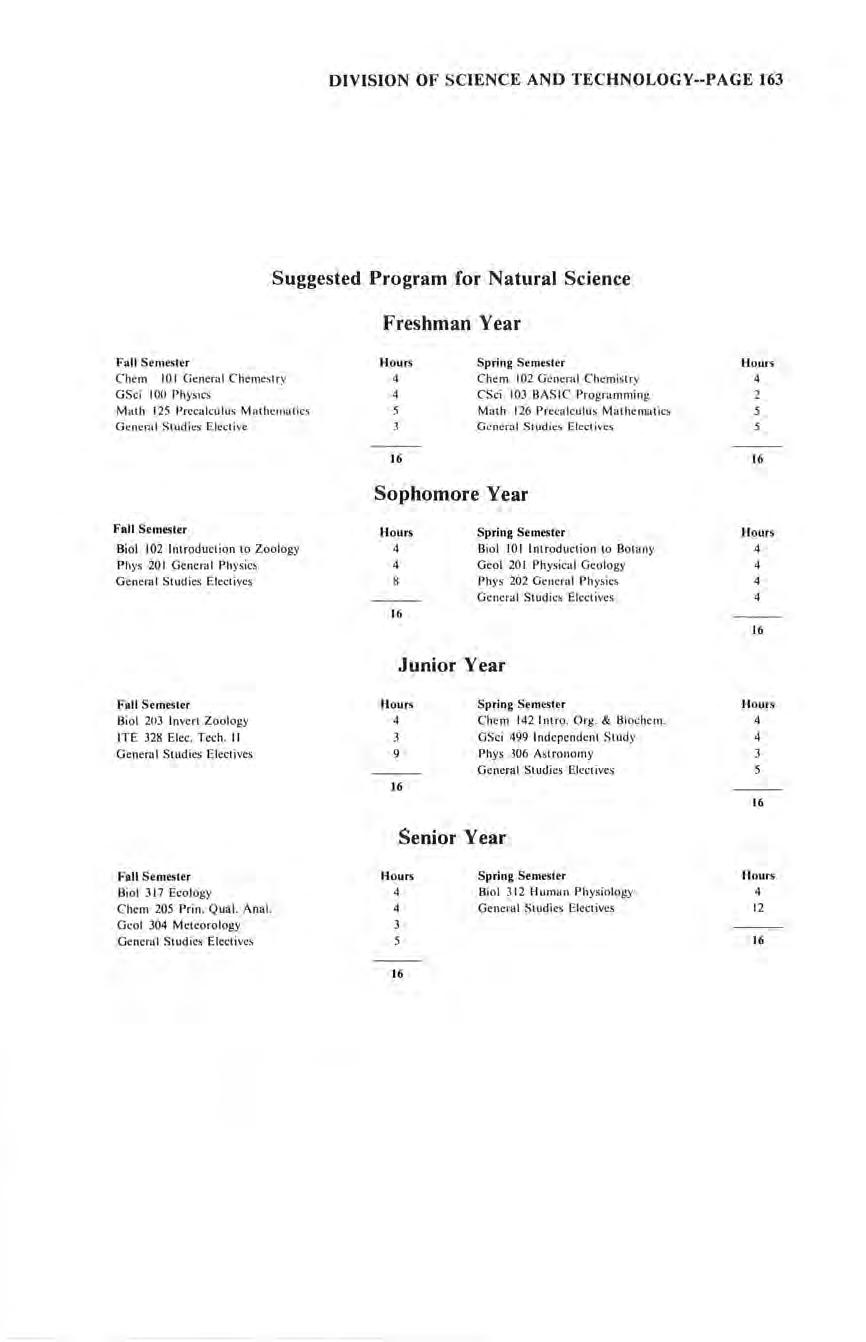
M at h 125 Pr ecalc ul us Math emat ics
Genera l S t udies E lect ive
Fa lI Se mes ter
Biol 10 2 Introduction t o Zoo logy
Ph ys 201 Ge n era l Ph ys ics General St u d ies Electives Fa ll Se mes t er
o l 203 In ve rt Zoology ITE 328 Elec. T ec h. II
In addition to the specific coursework requirements list e d below , the candidate for this major must also be a licensed reactor operator. Questions regarding this program should be directed to the Chairperson of the Division of Science and Technology.

The requirements listed represent both the education and non-education degree programs . If the teaching endorsement is chosen, attention must be given to the additional courses required for entrance into the professional semester. In the teacher education program, Physical Science is a field endorsement.

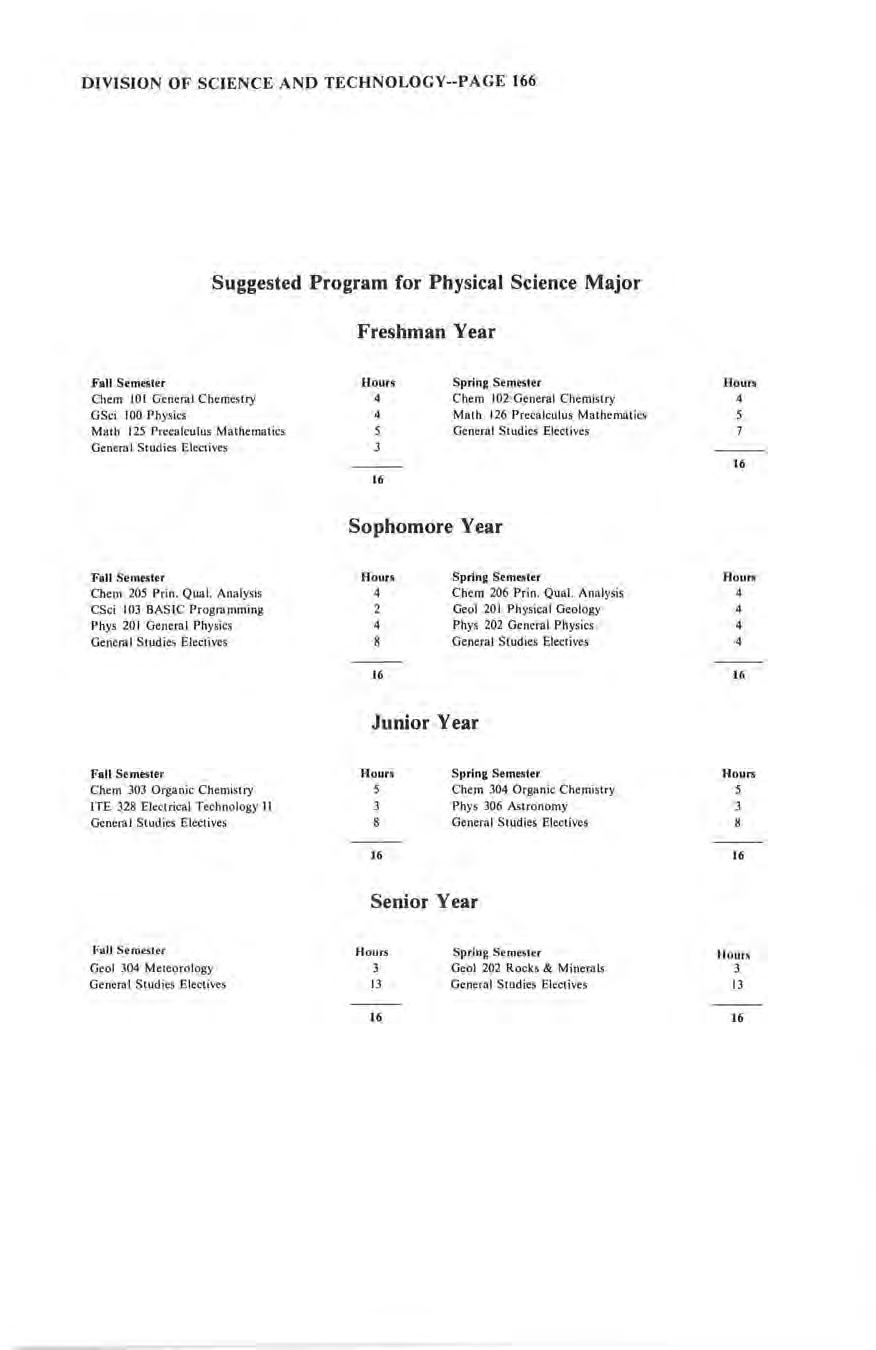
The transfer programs listed in this section may require from one to four years to complete. They do not represent academic majors. Students planning to complete a degree at Peru State must satisfy the requirements for a specific academic major in addition to completing the requirements for one of these progams.
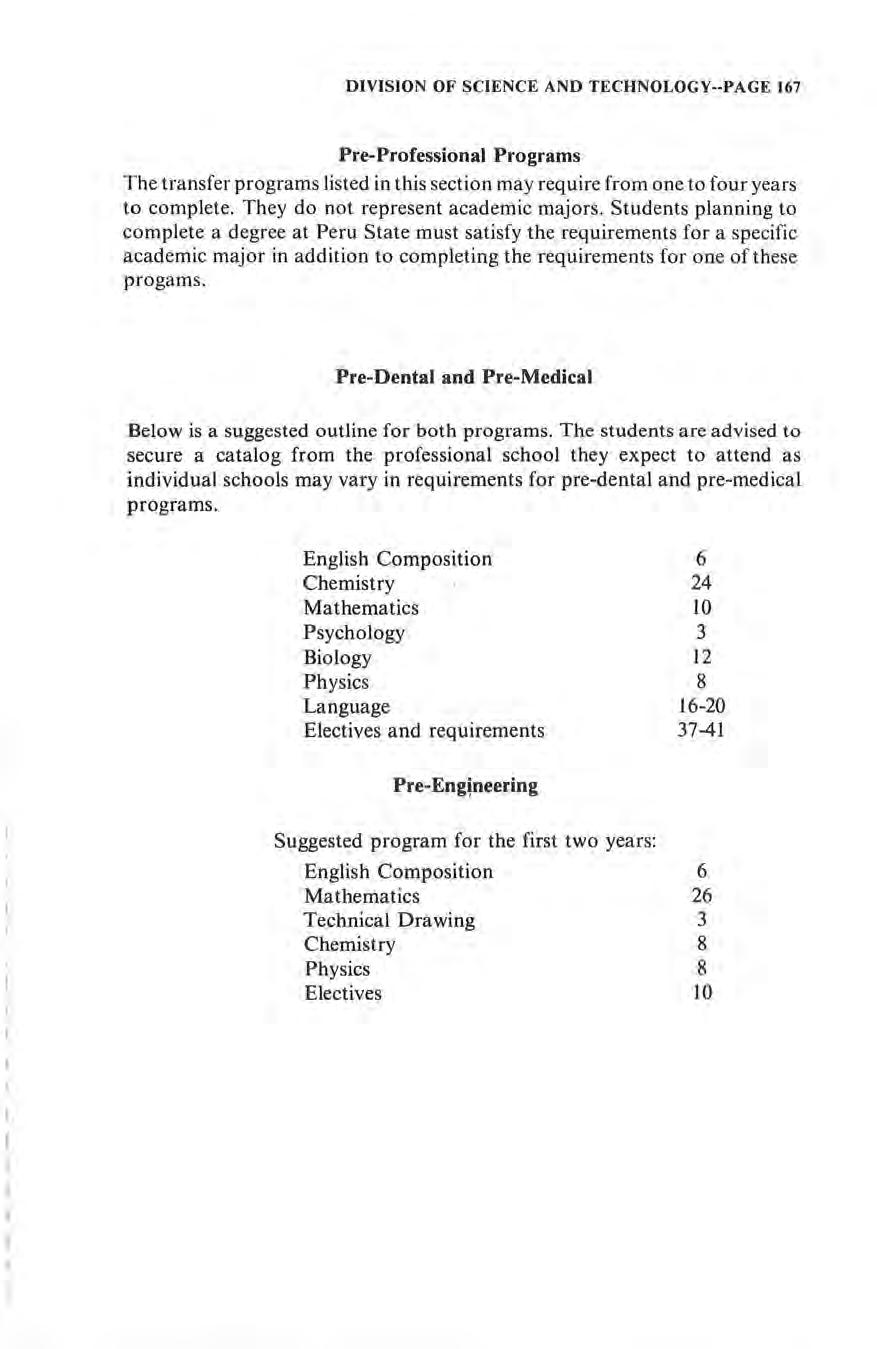
Below is a suggested outline for both programs. The students are advised to secure a catalog from the professional school they expect to attend as individual schools may vary in requirements for pre-dental and pre-medical programs.
The requirements for forestry schools vary. Early in the pre-forestry program students should consult the catalog of the college they plan to attend later. Grades of below average will probably not transfer.
The following program is suggested as a prerequisite for entering a college of mortuary science:
The following program is sugge s ted for students interested m nuclear medicine technology :
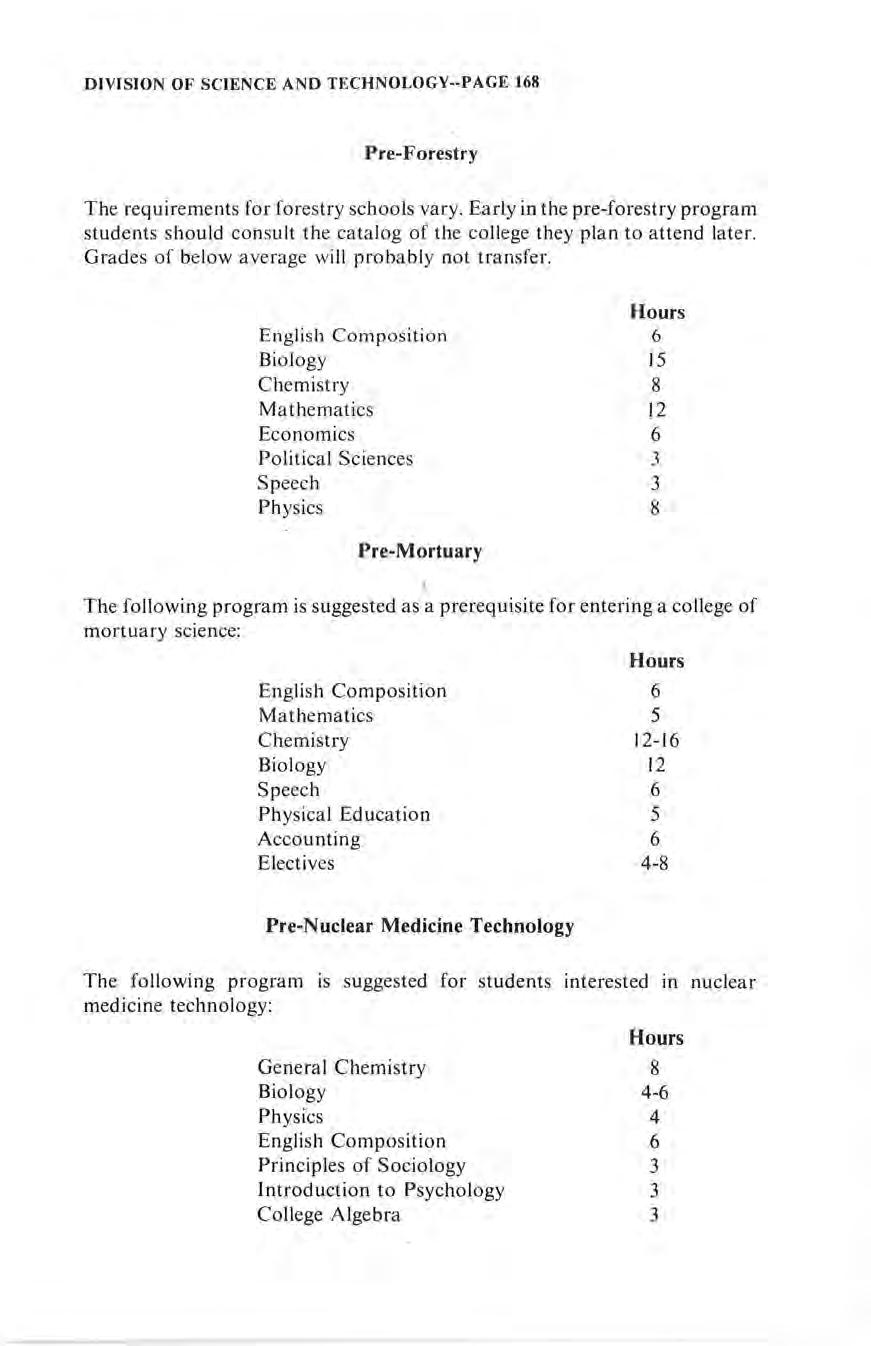
Applicants for a physician assistant program must have satisfactorily completed a minimum of 60 semester hours including the following courses:
The following program is suggested:
Applicants to a college of podiatric medicine must have completed the following prerequisite courses:
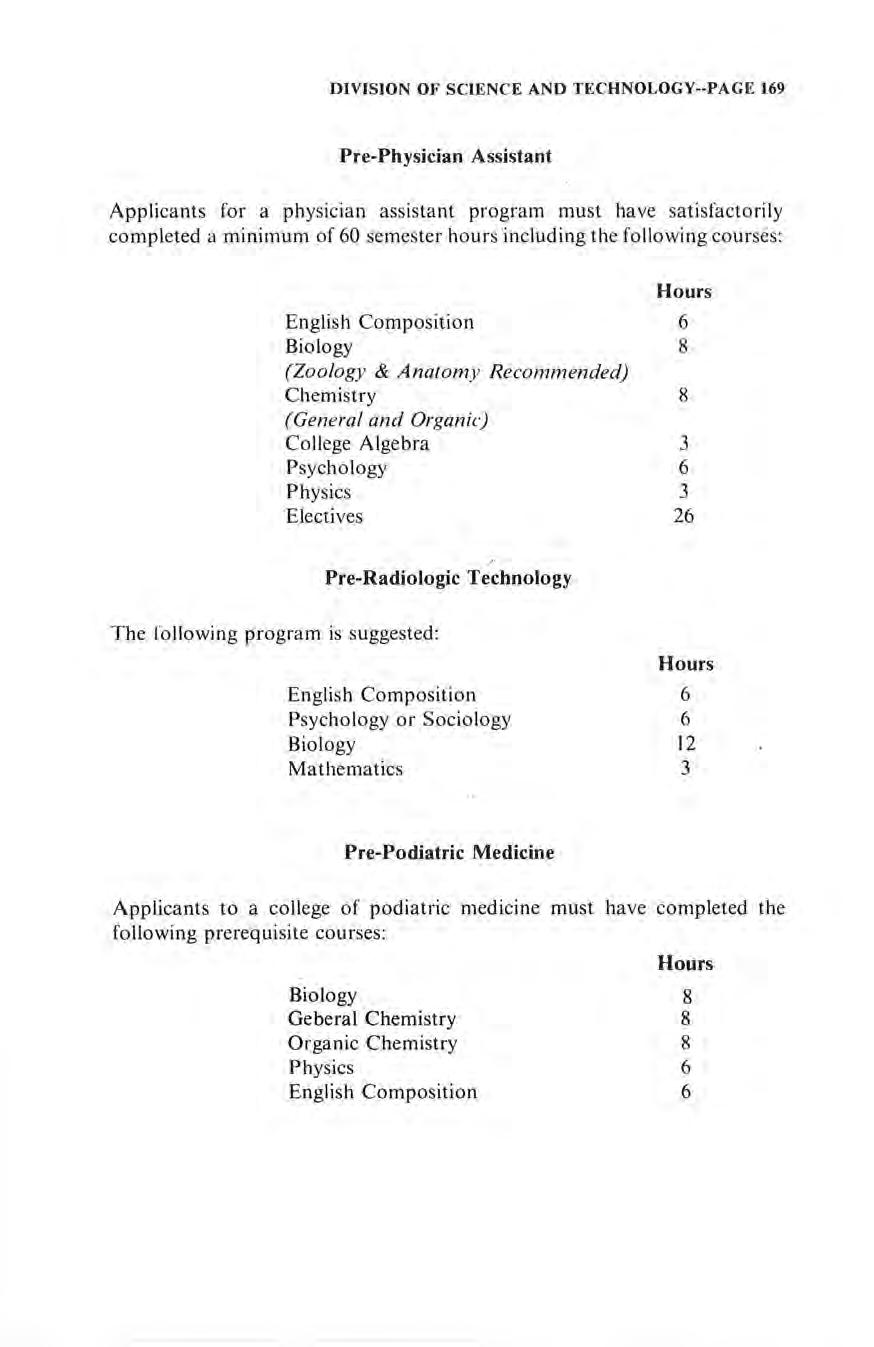
The following courses are suggested for admittance into a dental hygi~ne program :
In addition to a total of at least 90 semester hours of credit, students accepted for admission must have completed coursework in the following specific areas:
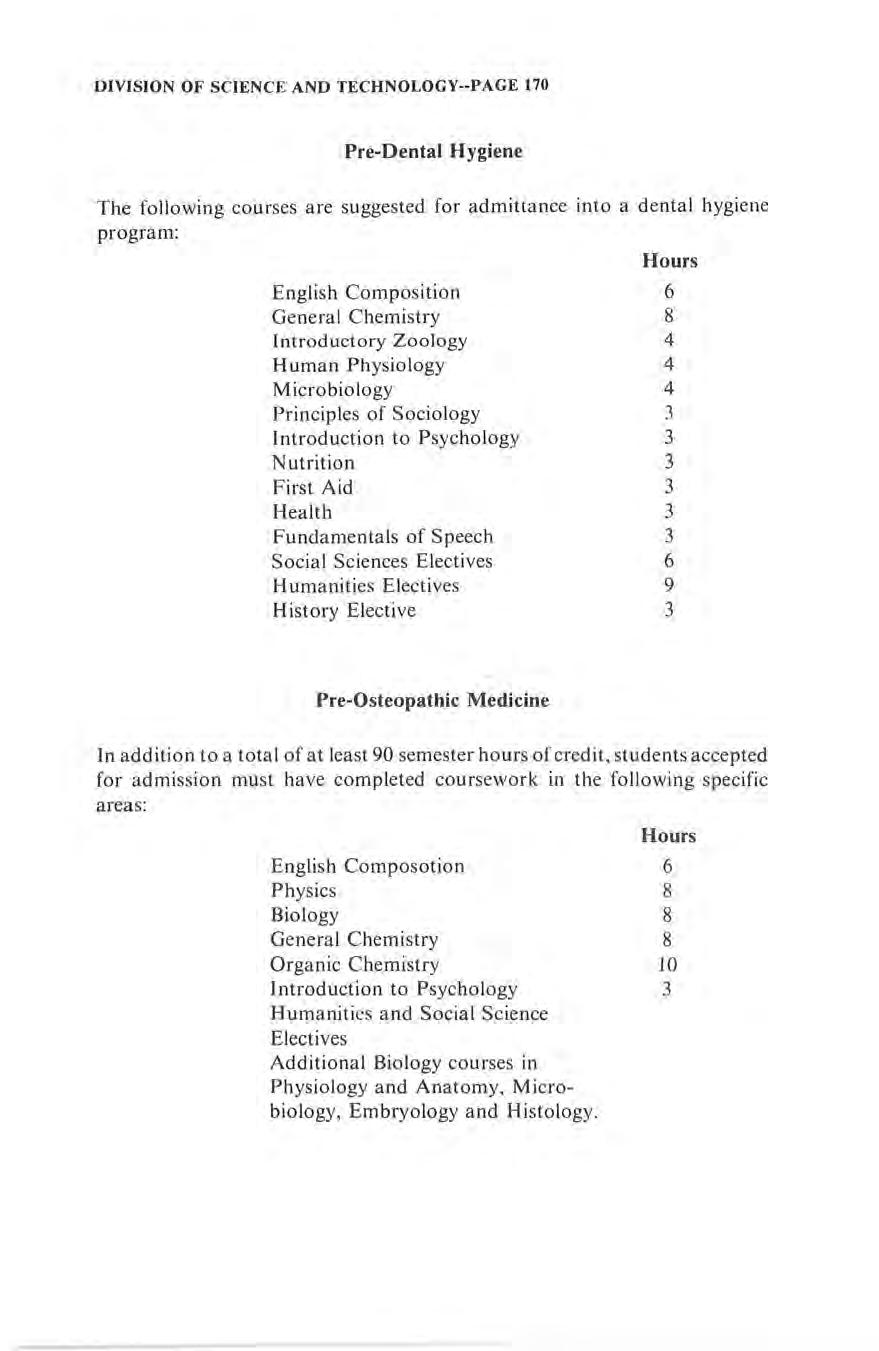
The basic science and humanities requirements for nursing programs vary depending on the school selected and the level of training offered (i.e., diploma, associate degree or baccaluareate degree program). The pre-nursing student is urged to obtain a copy of the catalog of the nursing school se lected to insure proper planning for transfer. The following courses are suggested for a one year pre-nursing program:
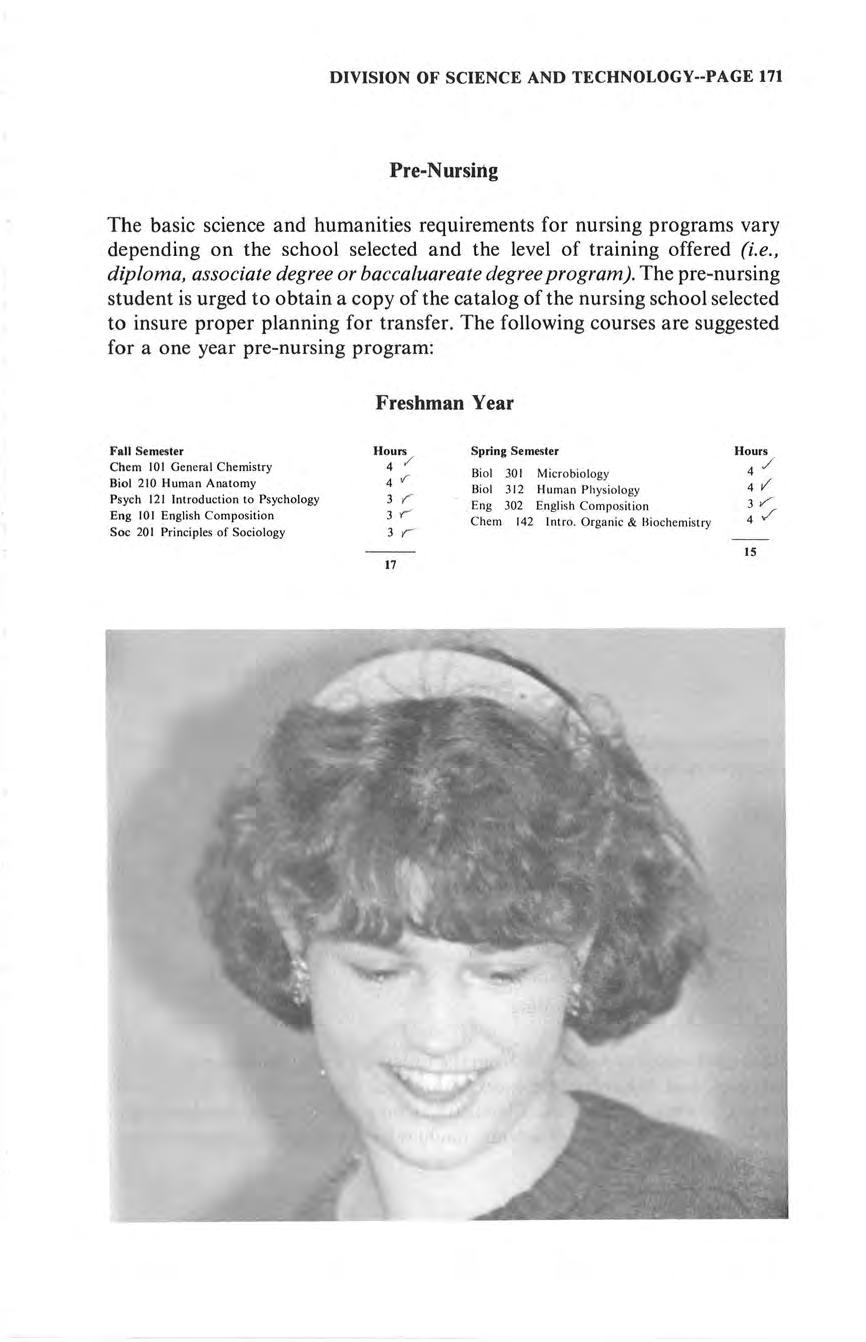
Restricted electives should be from the following areas: Humanities, Social Science s, and Behavioral Sciences. Additional electives should be se lected from the areas of Physics , Chemistry , Computer Science, Mathematics, Business Administration. Students should refer to college pharmacy catalogs for mor e information.

The following courses are suggested for students intere sted m
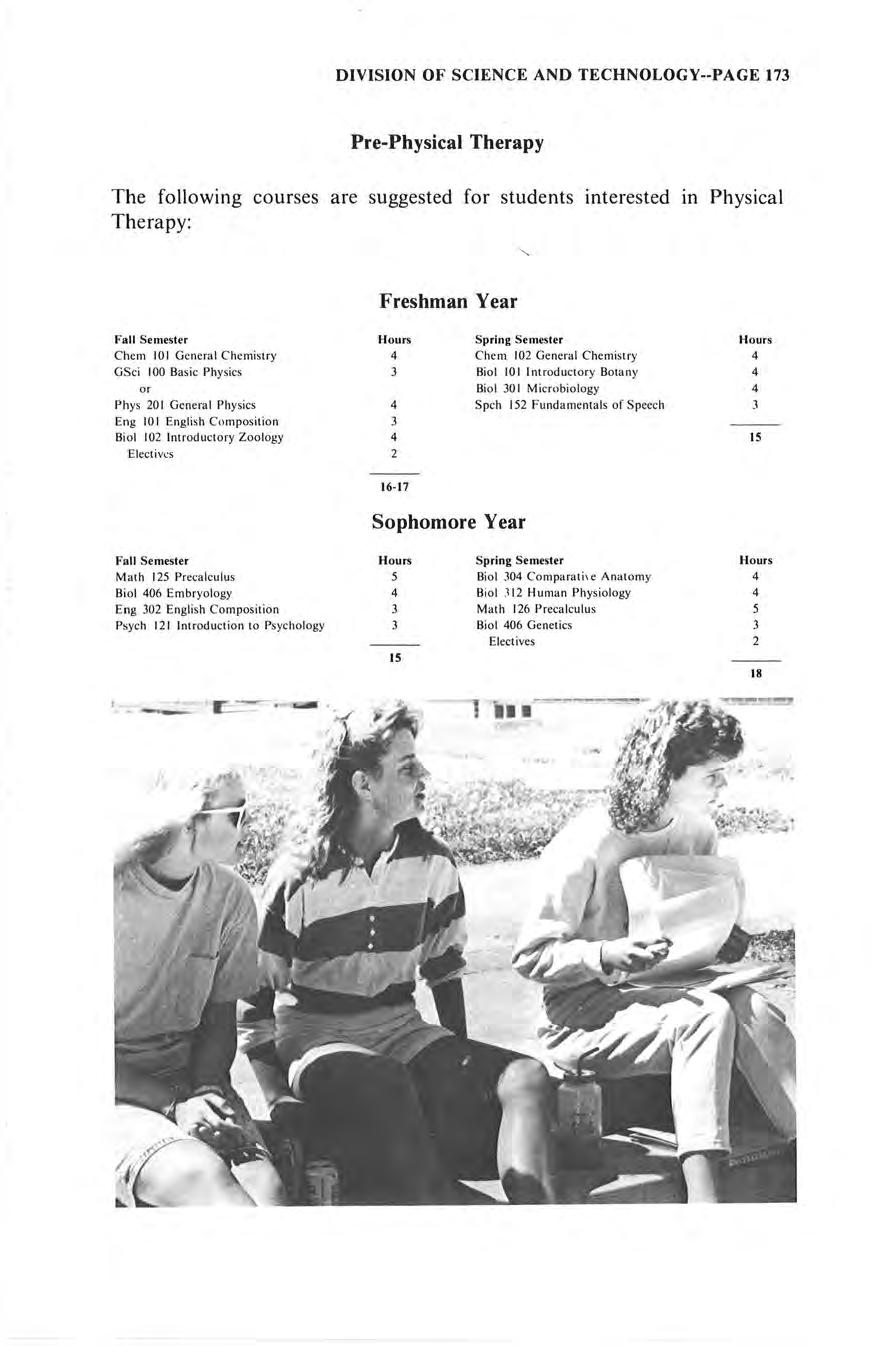
The foll ow ing courses are suggested for students interested m entering a baccalaureate program in re sp irator y therapy.
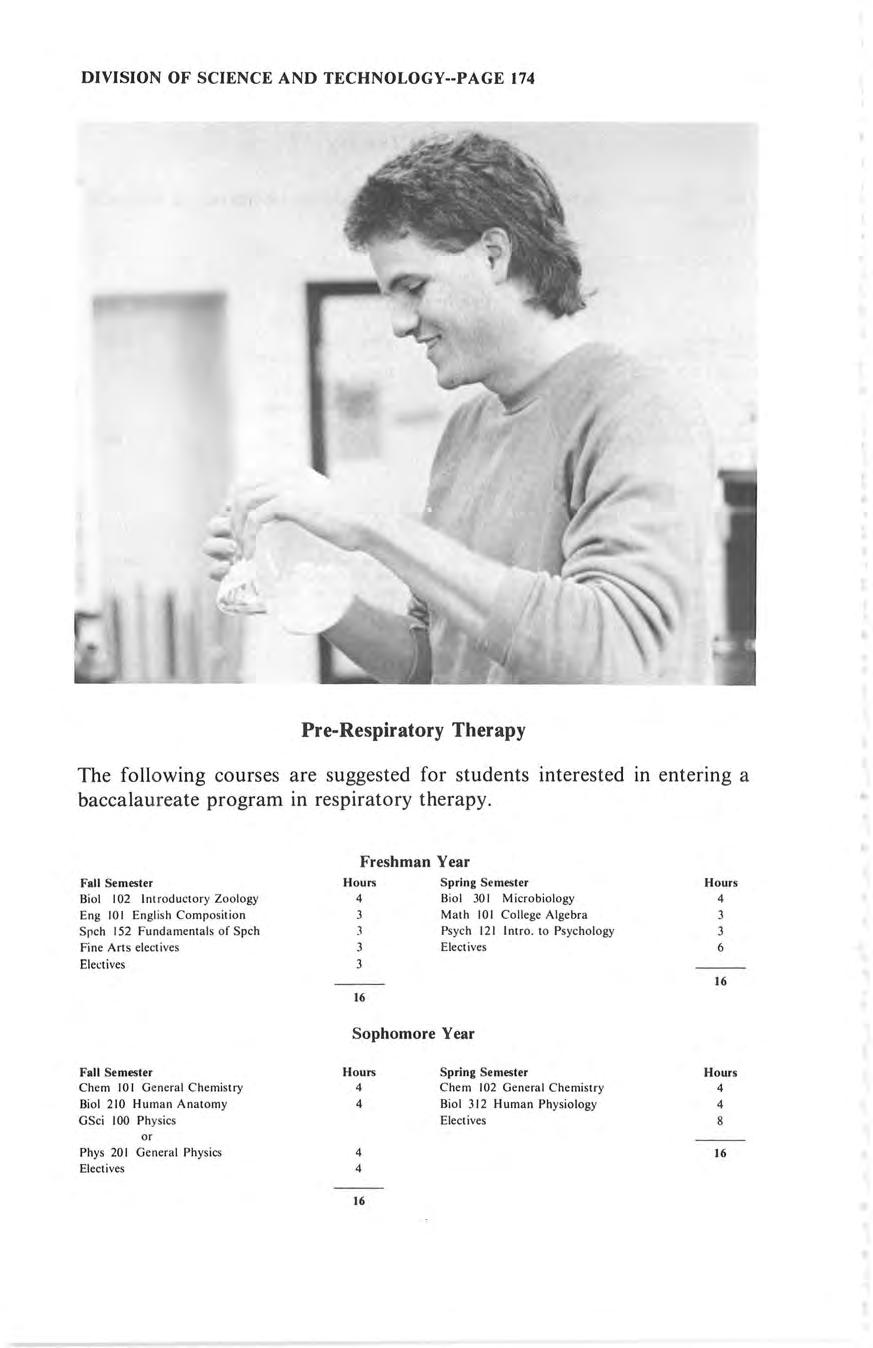
The courses listed below are suggested for Veterinary Science.
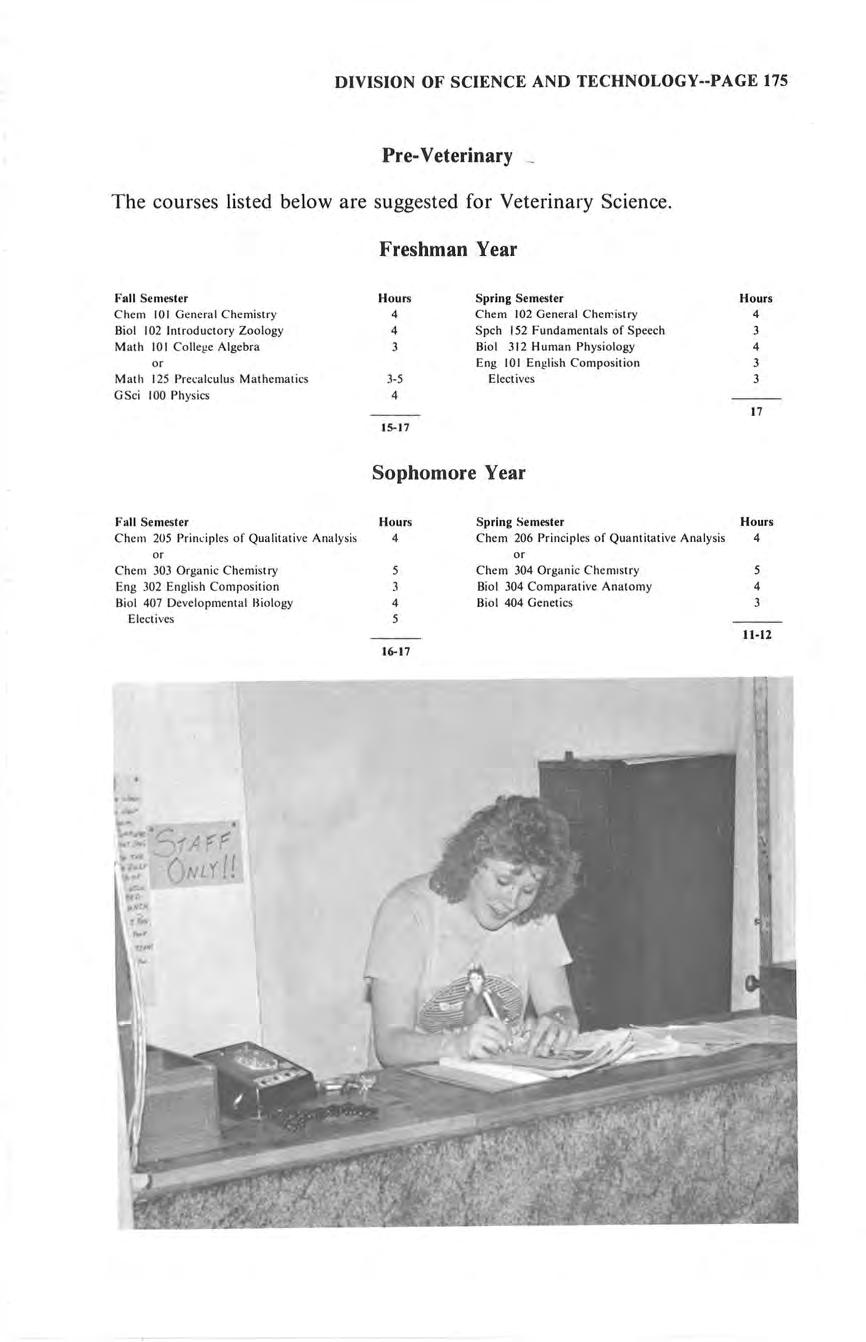
Cooperative arrangements have been made between Peru State College and some schools of medical technology whereby a student may complete requirements for a Bachelor of Science degree with a maj or in Medical Technology. During the first three years the student must satisfy the General Studies requirements for graduation, complete a minimum of 90 semester hours applicable toward a baccalaureate degree, complete 24 semester hour s of Chemistry, 15 hours of Biology , and at least one course each in Mathematics and Physics.
The fourth year, which consists of a full twelve-month program, is spent in residence at an approved school of Medical Technology. Upon satisfactory completion of this year of training, the student may receive the baccalaureate degree from Peru State College.
Application to the school of Medical Technology should be made early in the third year at Peru State.

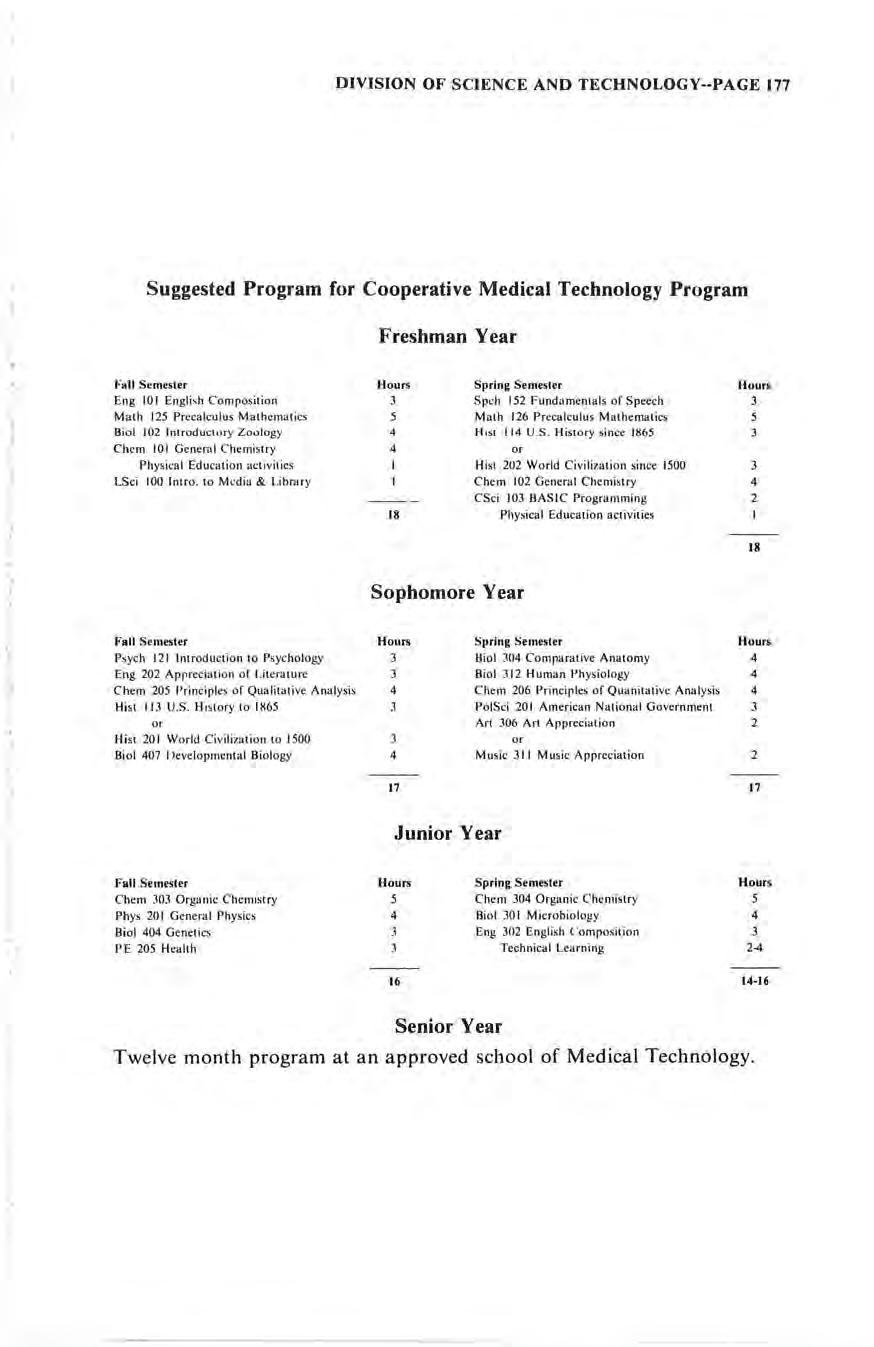
Fall Semes ter
E n g 10 I Eng lish Composi ti on
Math 125 Precalcu l us M a th e m a ti cs
Biol 10 2 In troductory Zoo log y
C h em IOI Ge n e ral C hemi s tr y
Ph ysica l Educa t ion activities
LSc i 100 Intro t o M,:dia & Library
Hours
S p r ing Se m es t e r
S peh 152 Fundamentals of Speech
Math 126 Prccalculus Math ema ti cs
H is t 114 U.S. Hi story si nce 1865 or
His1 202 World C ivi li1 atio n since 1500
Che m 10 2 Gene ra l Chemistry
CSci 103 BASIC Prog ramming
18
Physical Ed u ca ti o n ac ti vi ti es
Fall Semester
Psych 12 1 In troduction to Psyc hology
Eng 202 Appreciation of Li terature
C h em 205 Pr incip les of Q ualitative Ana lys is
Hist 113 U.S Hi story t o 1865 or
Hi s t 20 1 W o rld Civilization to 1500
Biol 407 I >evelopme ntal Biol ogy
Hours 17
Fall Semester
Chem JOJ Organ ic Chemistry
Phys 20 1 Genera l Ph ys ic s
Biol 404 Genetics
PE 205 Hea lth
S prin g Semes t er
Bi o l 304 Comparative Anatomy
Bi o l 3 12 Hum an Ph ysio logy
C hem 206 Pri nciples of Quan it ativc Ana lysis
Po lSci 20 1 American National Government
Art 306 Art App reciation or
Music 311 Mu s ic Appreciation
Junior Year
Hou rs 16
Sp ring Se mes ter
Chem 304 Orga ni c C h em ist r y
Bi o l JO I Mi cro biol ogy
Eng 302 Eng lish Composition
Tec h nical Learning
Senior Yea.-
Twelve month program a t an approved sch ool of Medical Technology.
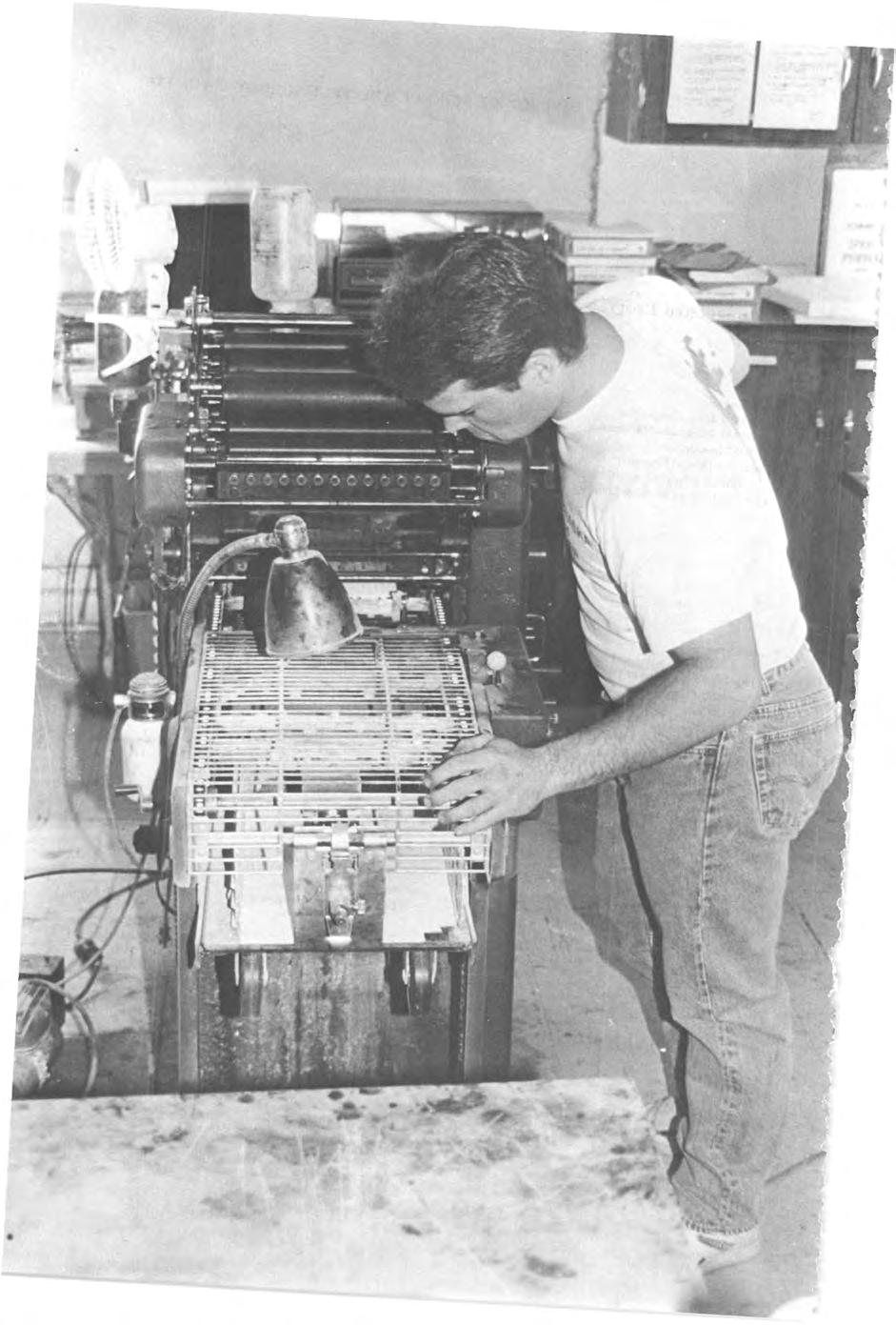
The Industrial Technology and Education Bachelors Degree Program consists of a core of technical courses to provide the student with a broad general background of technology. The several options available within the curriculum enable the student to specialize in one of a number of different occupational or professional areas .
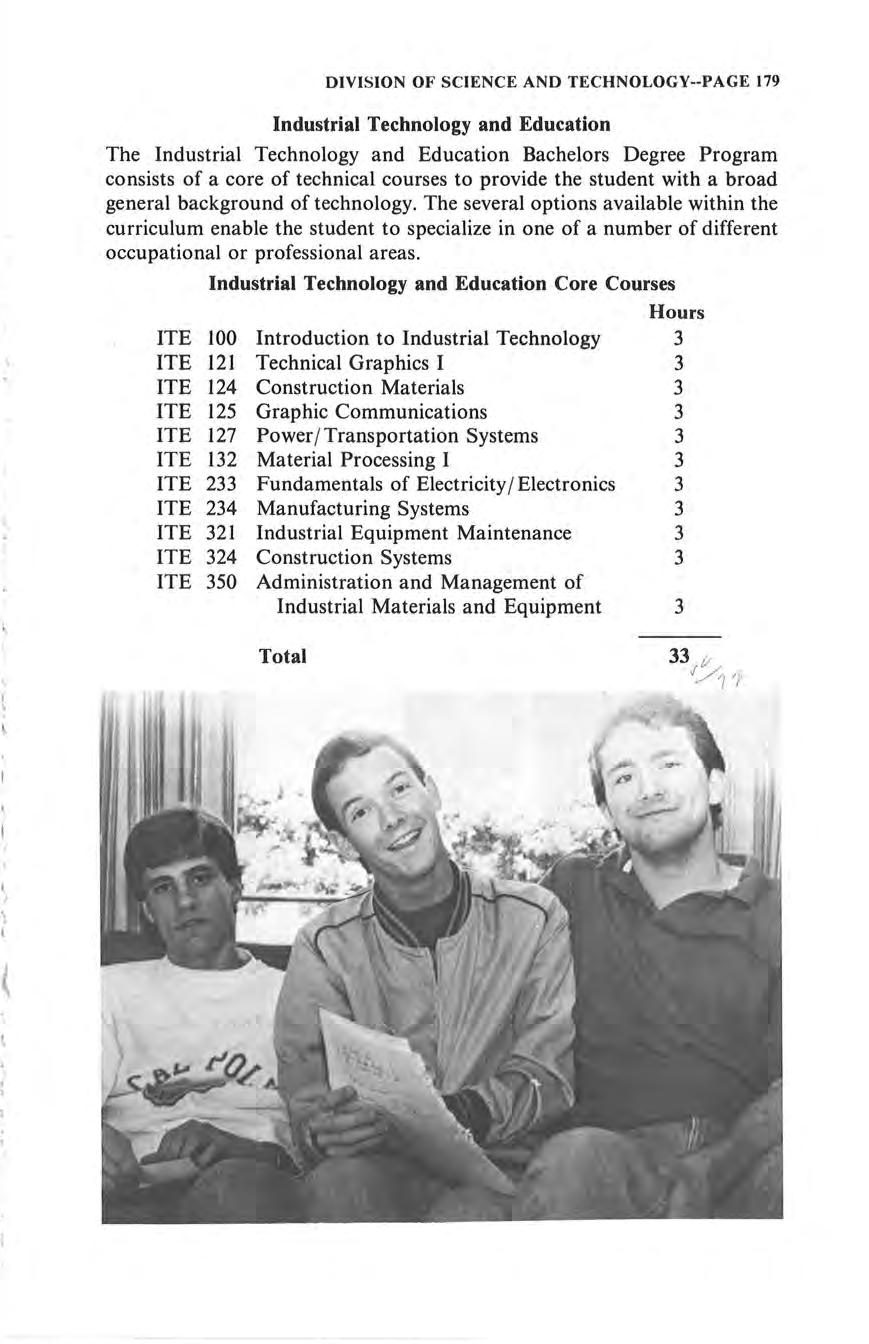
The Industrial Technology Education option is for those who plan to teach Industrial Technology in public or private secondary schools The profes si onal education requirements must be met in addition to the cour ses listed for a teaching endorsement.
, Studen t s who have or are pur s uing a Bachelor of Science in Education degree 1 with an option in Industrial Technology Education may take additional training in Manual Arts Ther a py. This program is in cooperation with the · Veteran s Administration Center Hospital at Wadsworth , Kansa s.
The student spends six weeks at the hospital as an intern . Upon graduation and successful completion of the internship, the student is eligible for a G .S . 7 Civil Se rvice rating . Details of the program may be obt a ined from the Division Chairperson.
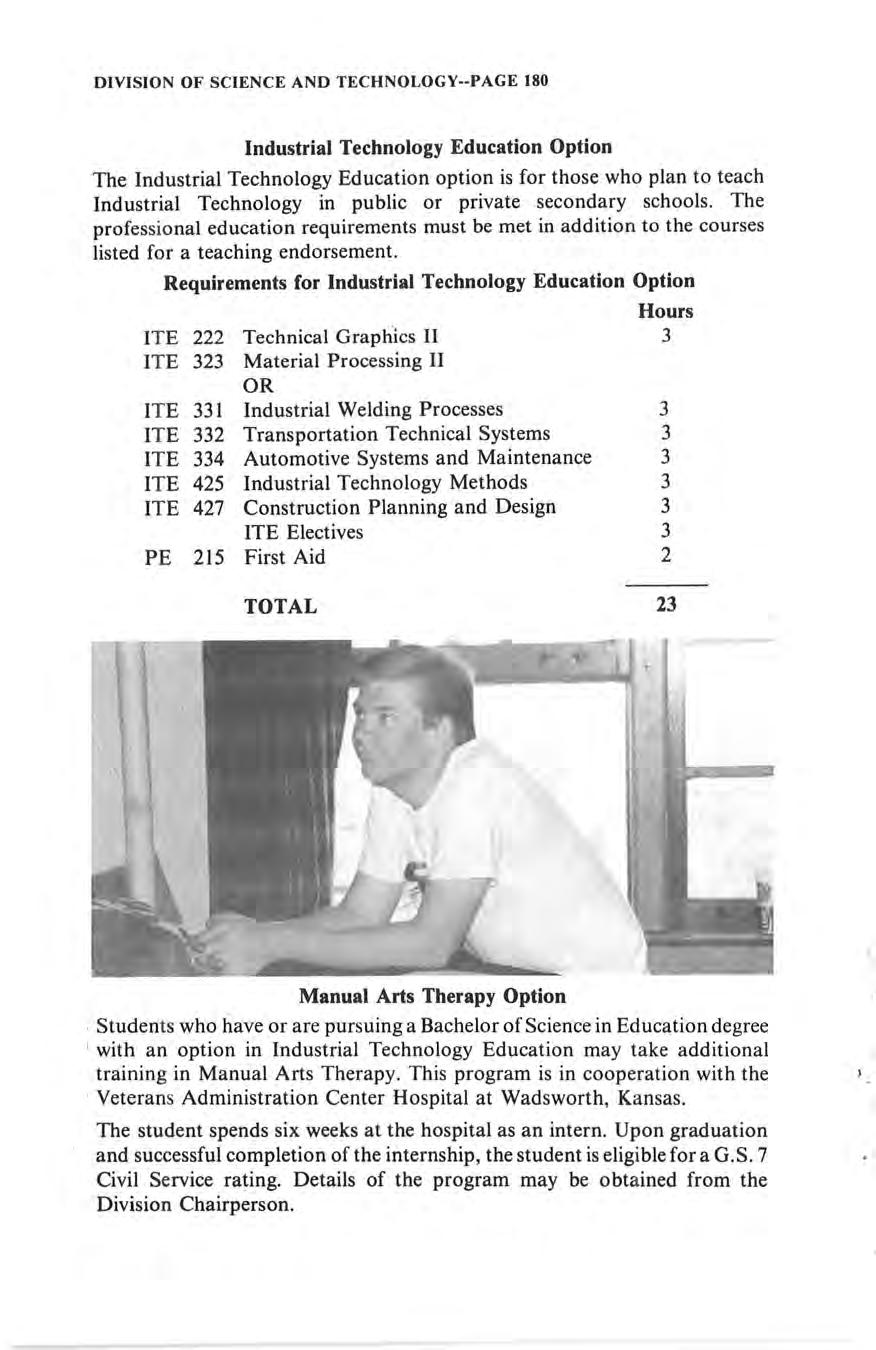
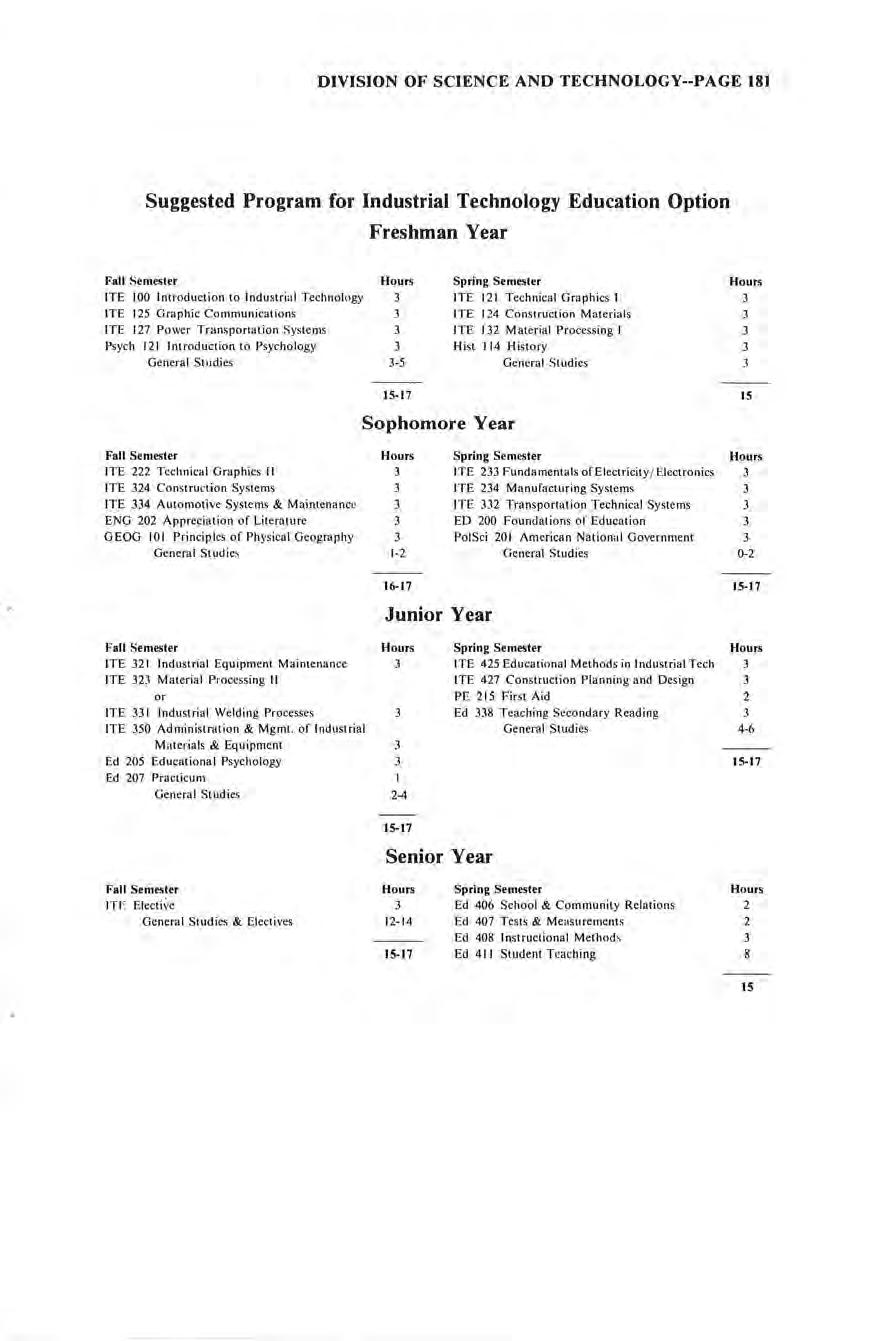
The curriculum for the Industrial Management Technology option is designed for students whose main objective is preparation for technician and managerial positions in industry. The curriculum has been developed to include a combination of technical and business courses in order to prepare the graduate for employment in an industrial enterprise.

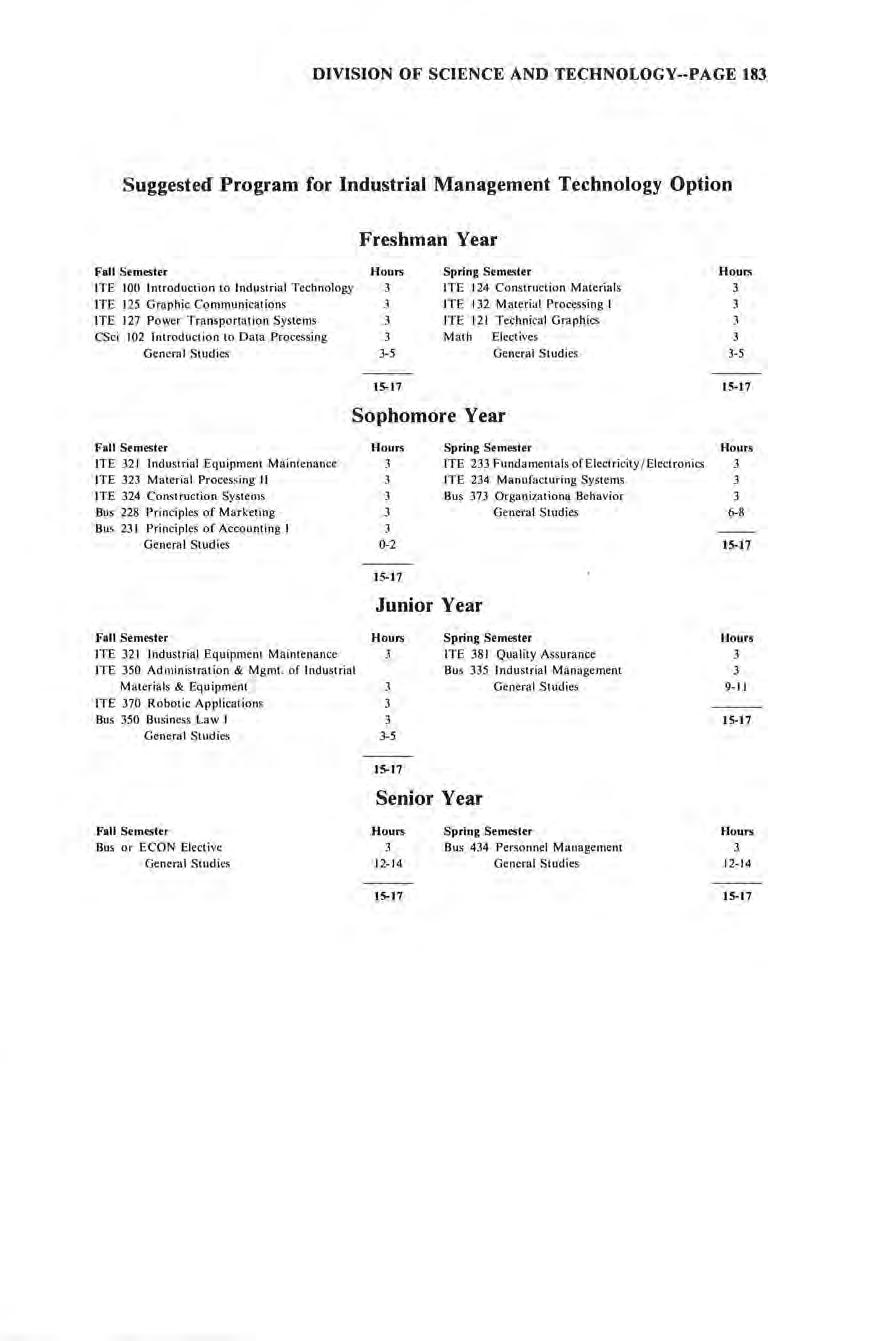
The Industrial Agriculture option is for those persons who are interested in production agriculture and need the technical skills this program provides, or for those who may be employed in agriculture related industries needing this preparation.
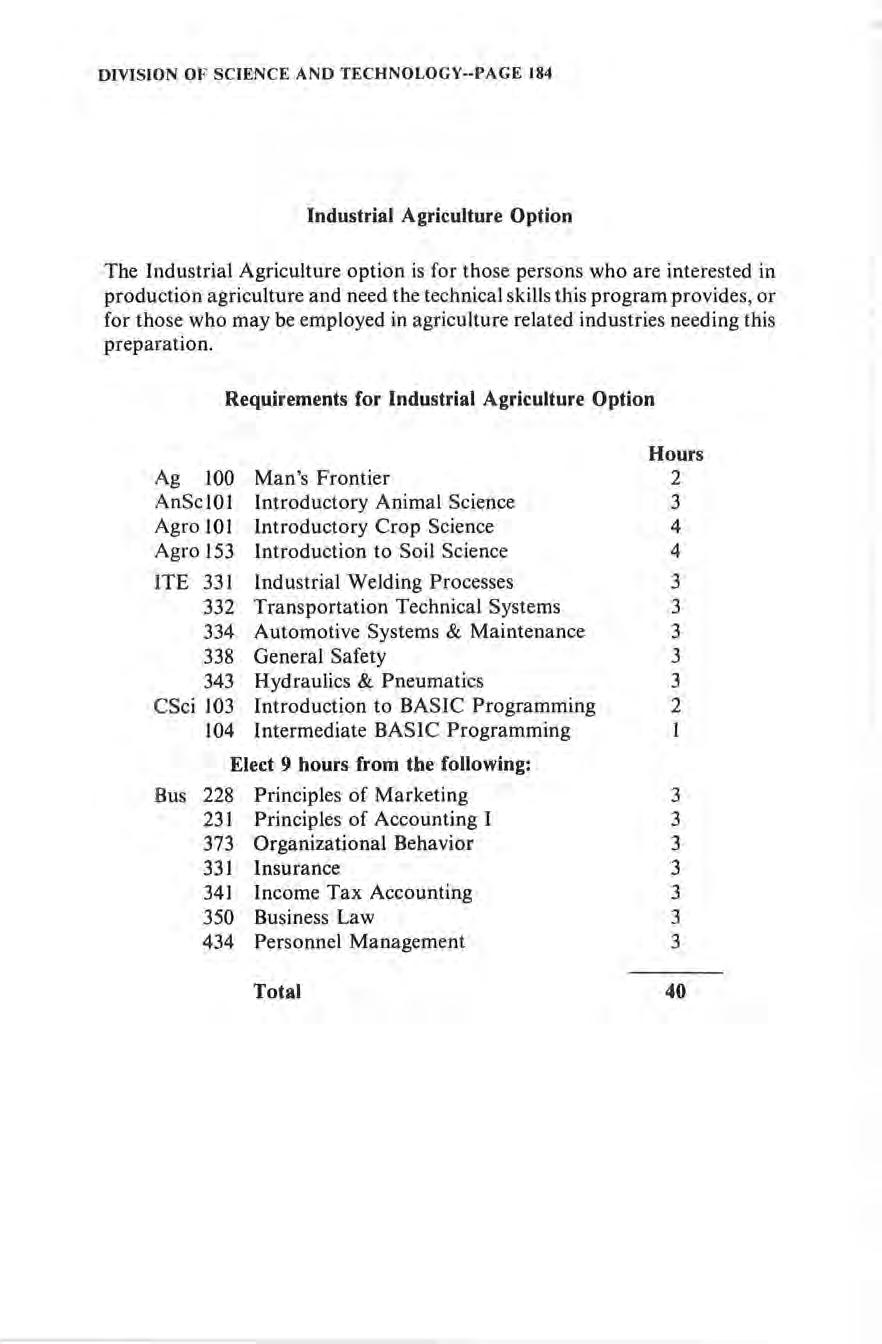

The Electronics/ Robotics Technology option provides the graduate with a background in math and science as well as an emphasis in theory and laboratory work in electronics and robotics technology. Graduates may qualify for positions in technical sales, supervision of technicians, supervision of maintenance or similar positions dealing with electronics or robotics.
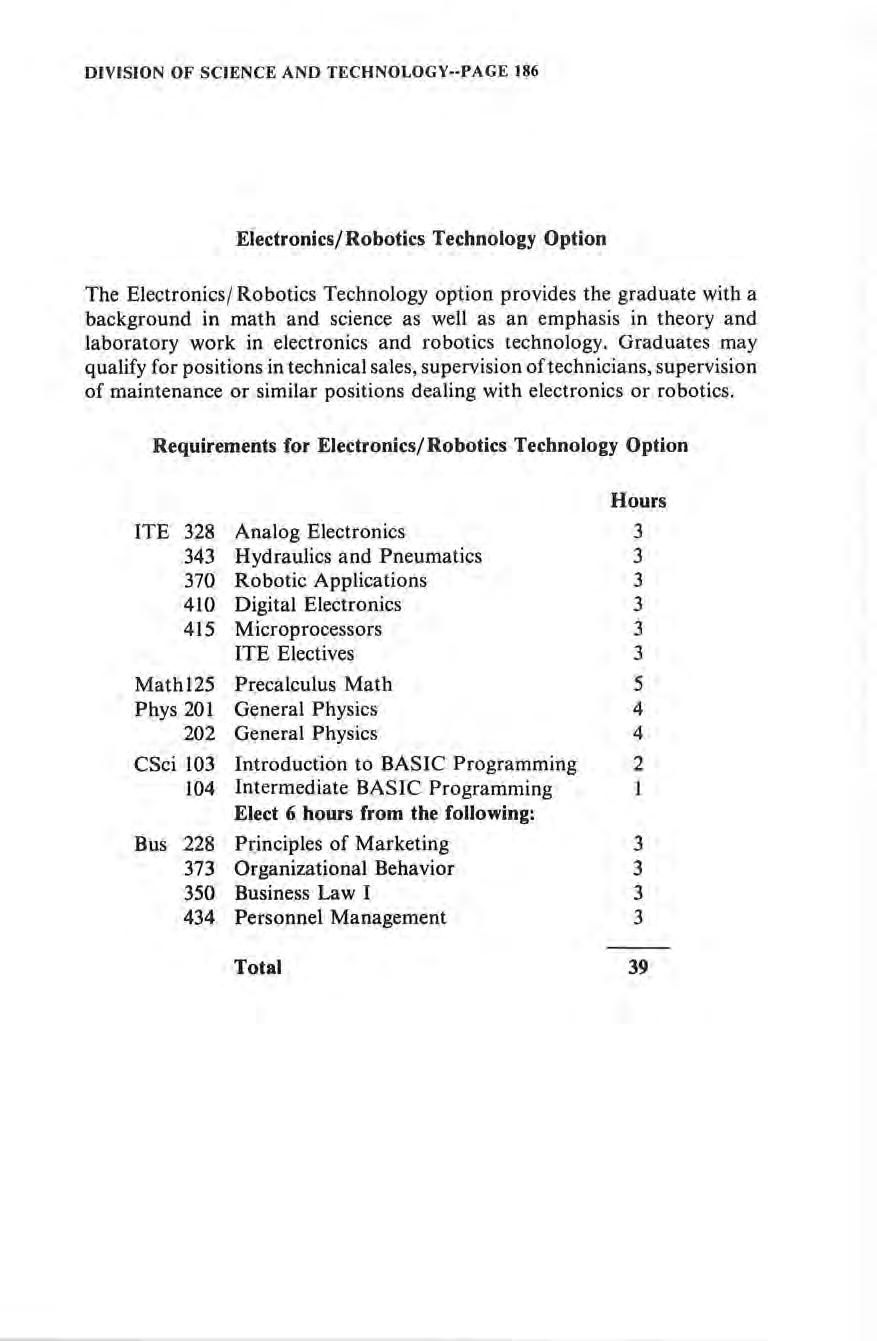
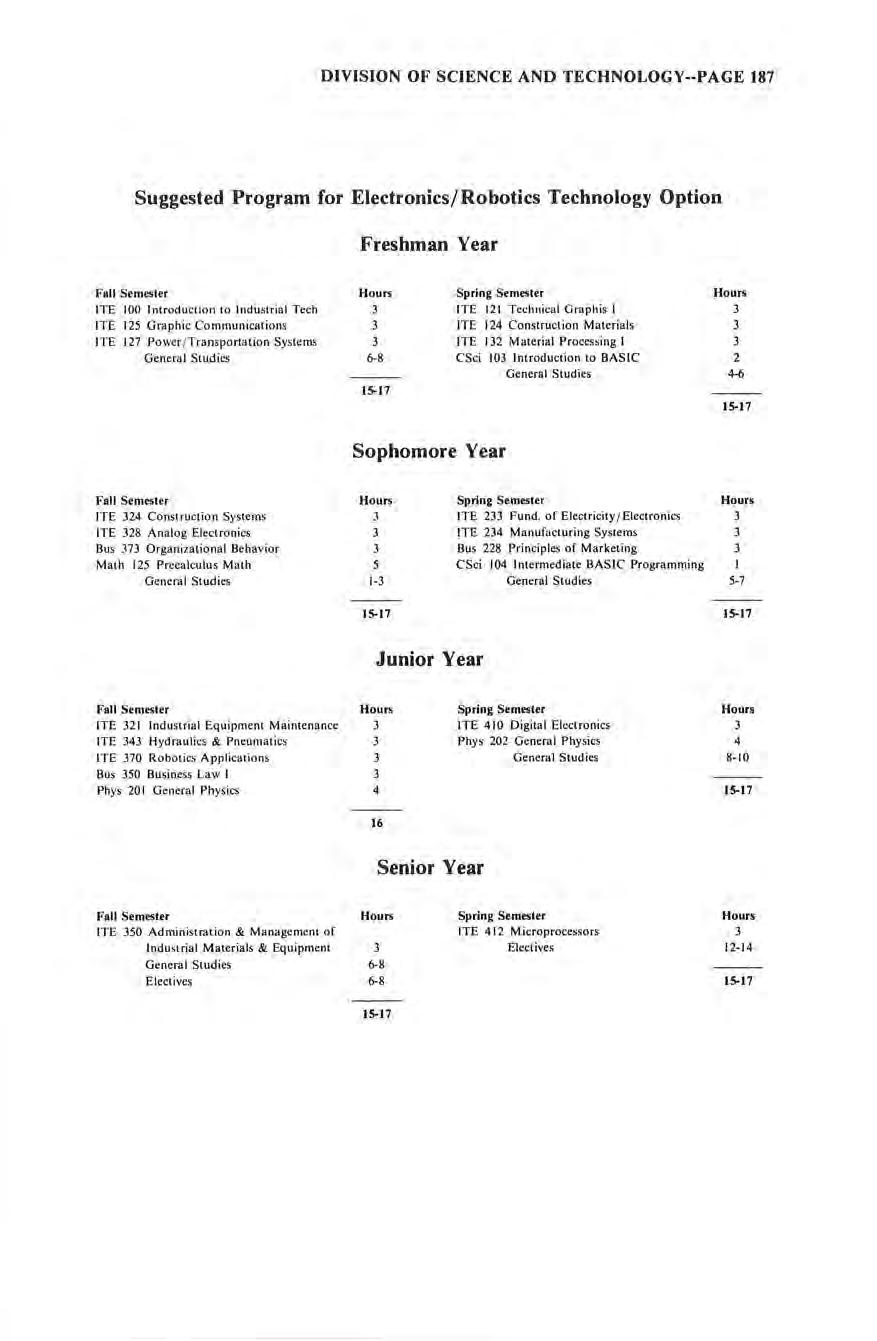
The Power and Transportation Technology option provides the education necessary to qualify for positions of technical supervision, and technical sales or service. The curriculum includes technical studies in power and transportation, math, science, and business.
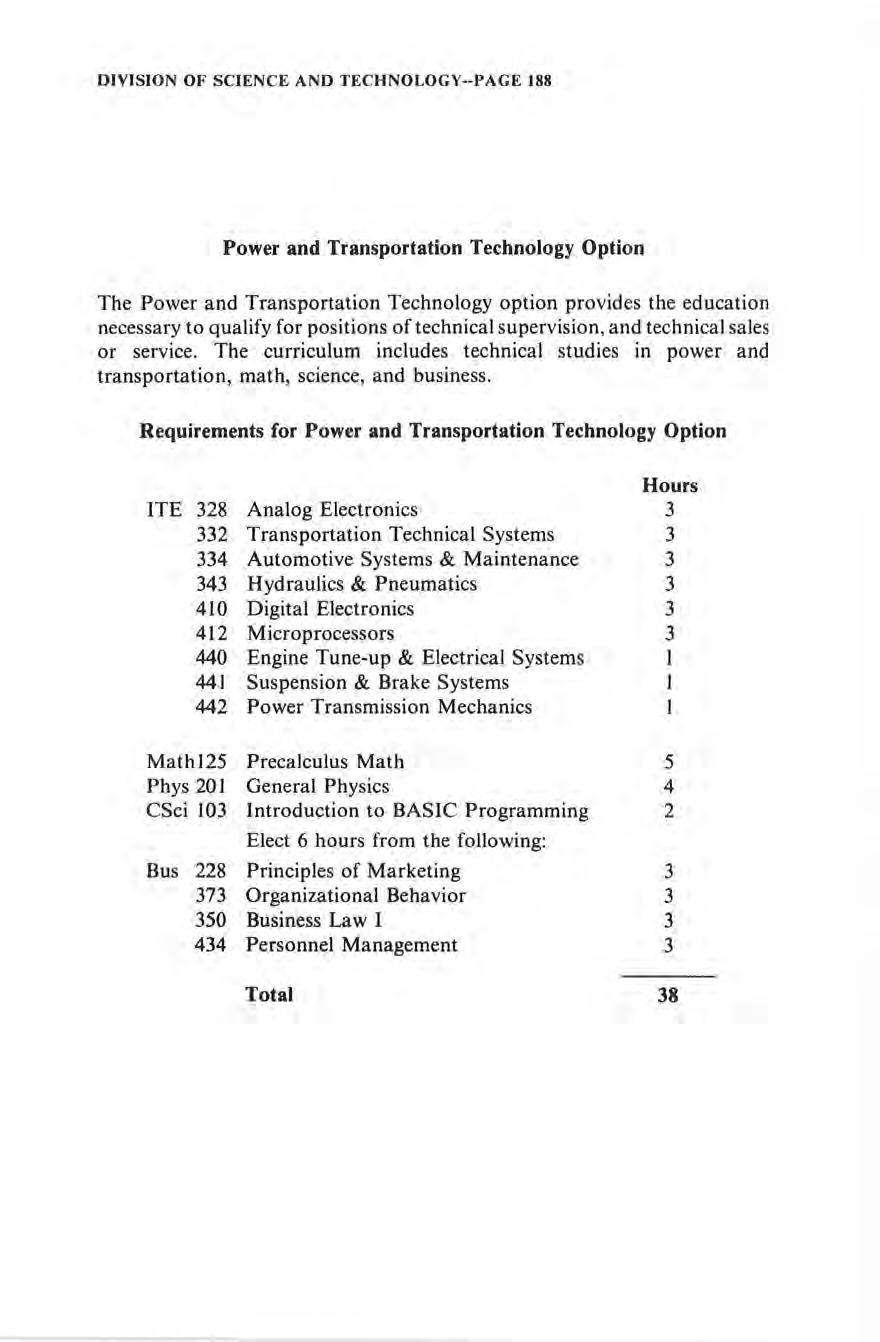
Fall Semesler
ITE JOO Int rod u c tion t o Industrial T ech
IT E 125 Grap hi c Comm unication s
IT E 127 P owe r / Tran s portation Systems
Sp ring Se mest er
IT E 121 Technical Graphics I
IT E 124 Construction M a terials
IT E 132 Materi a l Process in g I
CSci 103 Int roduction to BASIC General Studies
Fall Semester
ITE 324 Co ns tru c tion Systems
ITE 334 Aut o m o ti ve Systems & M a int ena n ce
Math 125 Prccalc ulu s Mathem at ics
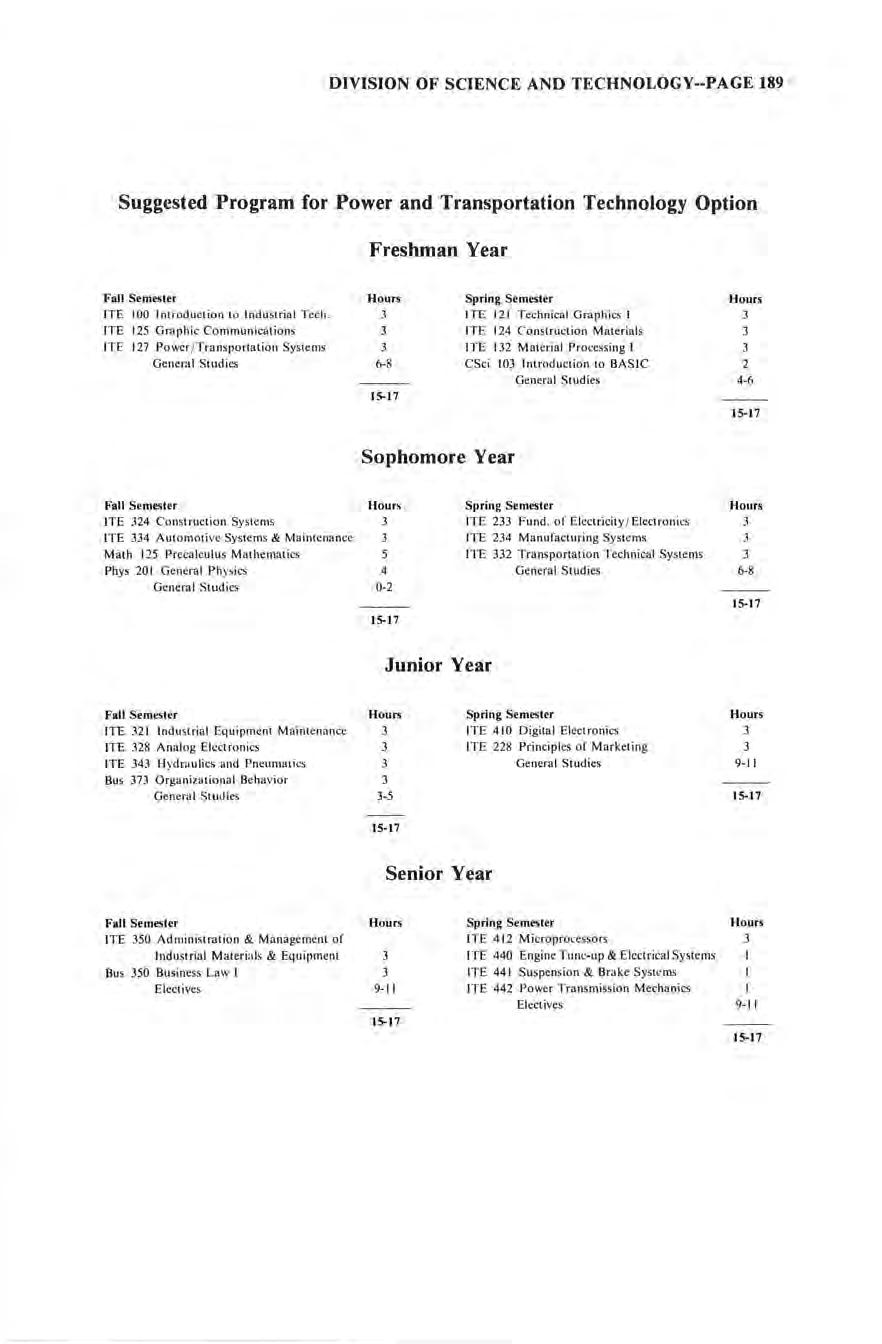
! TE 233 Fund. of E lc c tdcity / El ectronics
!TE 234 Manufa c turing Systems
ITE 332 Tran spo rt a ti o n T ec hni ca l Sys te m s
ITE 32 1 Indu s t r ia l Equipm ent M a int enance
ITE 328 Ana log Elec tronic s
ITE 343 H ydrauli cs and Pneumati cs
373 Or ga ni za tional Beha v io r
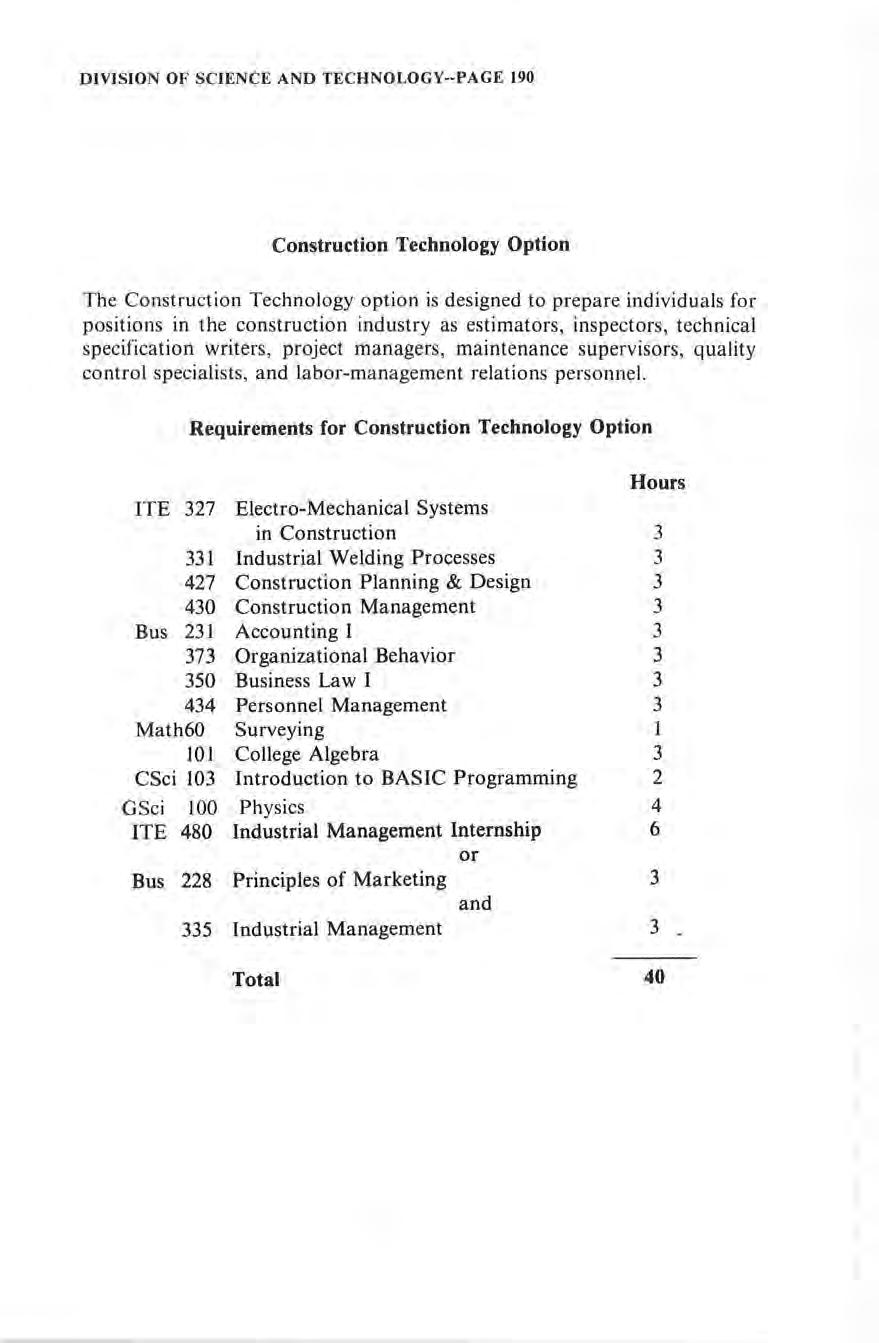
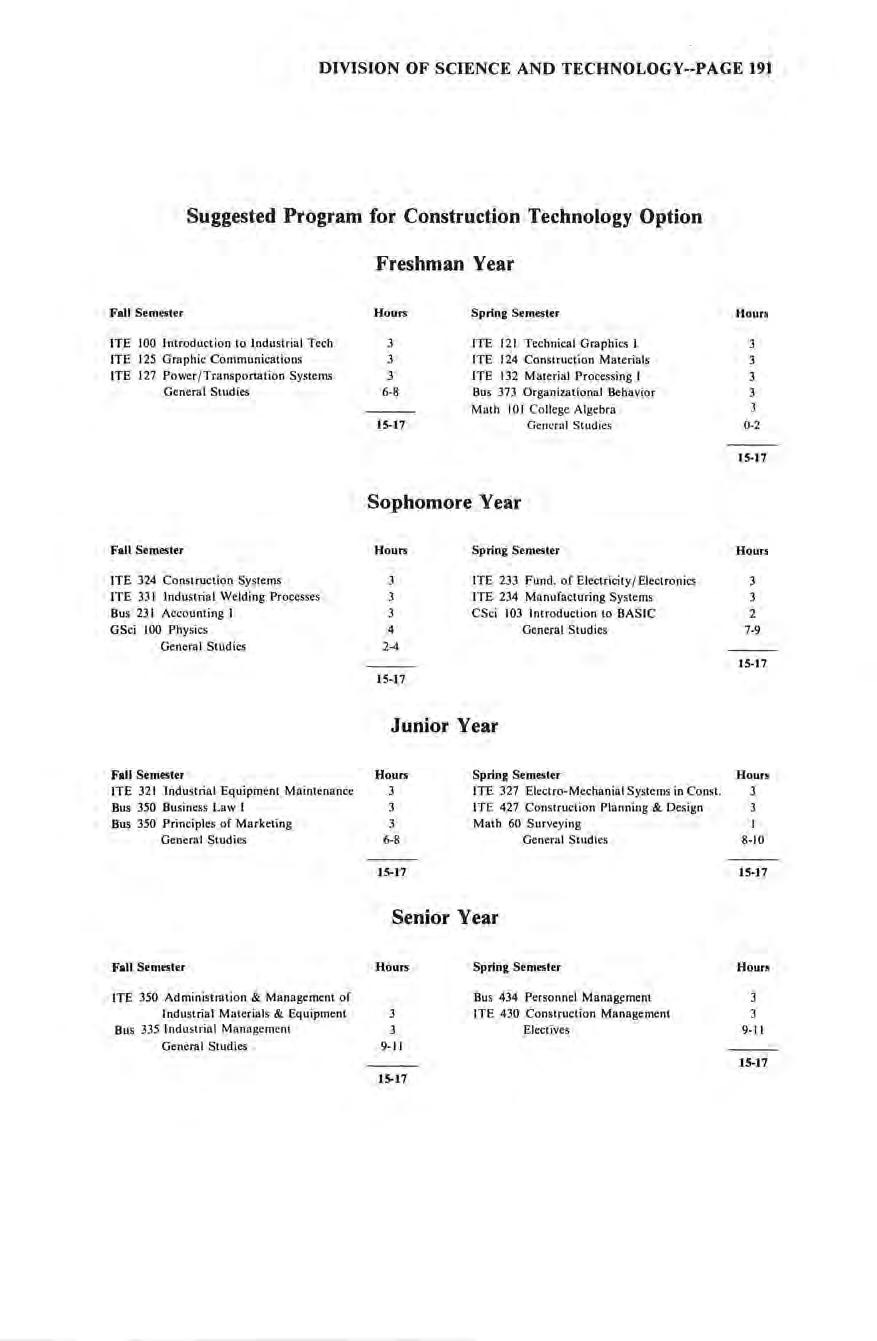
For those seeking an endorsement in Vocational Trades and Industrial Educat ion, the following is required in addition to the general degree program.
I. An emphasis in Industrial Arts Education.
2. A minimum of 12 semester hours in an area of specialization, e.g. , carpentry, auto mechanics, etc.
3. Six hours from the following vocational courses:
a. Vocational Education 441 / 541
b. Vocational Education 442 / 542
c. Vocational Education 443 / 543
4. Student teaching in a vocationally approvable program. If student teaching is not done in a vocational approvable program, an extra 3 semester hours of professional vocational courses are required.
5. The candidate shall have a minimum of 2000 hours of paid occupational experience in an area closely related to the field in which he / she is preparing to teach.
a . If more than 5 years has elapsed since the e xperience , a maximum of 1000 hours of the occupational experience can be accepted and the program shall require, in addition, V Ed. 444: Industrial Internship with a minimum of 360 clock hours of supervised employment in an area closely related to the field in which the candidate is preparing to teach.
The candidate shall have a minimum of 1000 clock hours of full-time employment or the equivalent in accumulated parttime employment plus completion of V Ed 444: Industrial Internship, with a minimum of 360 clock hours of supervised work experience in an area closely related to the field in which the candidate is preparing to teach.
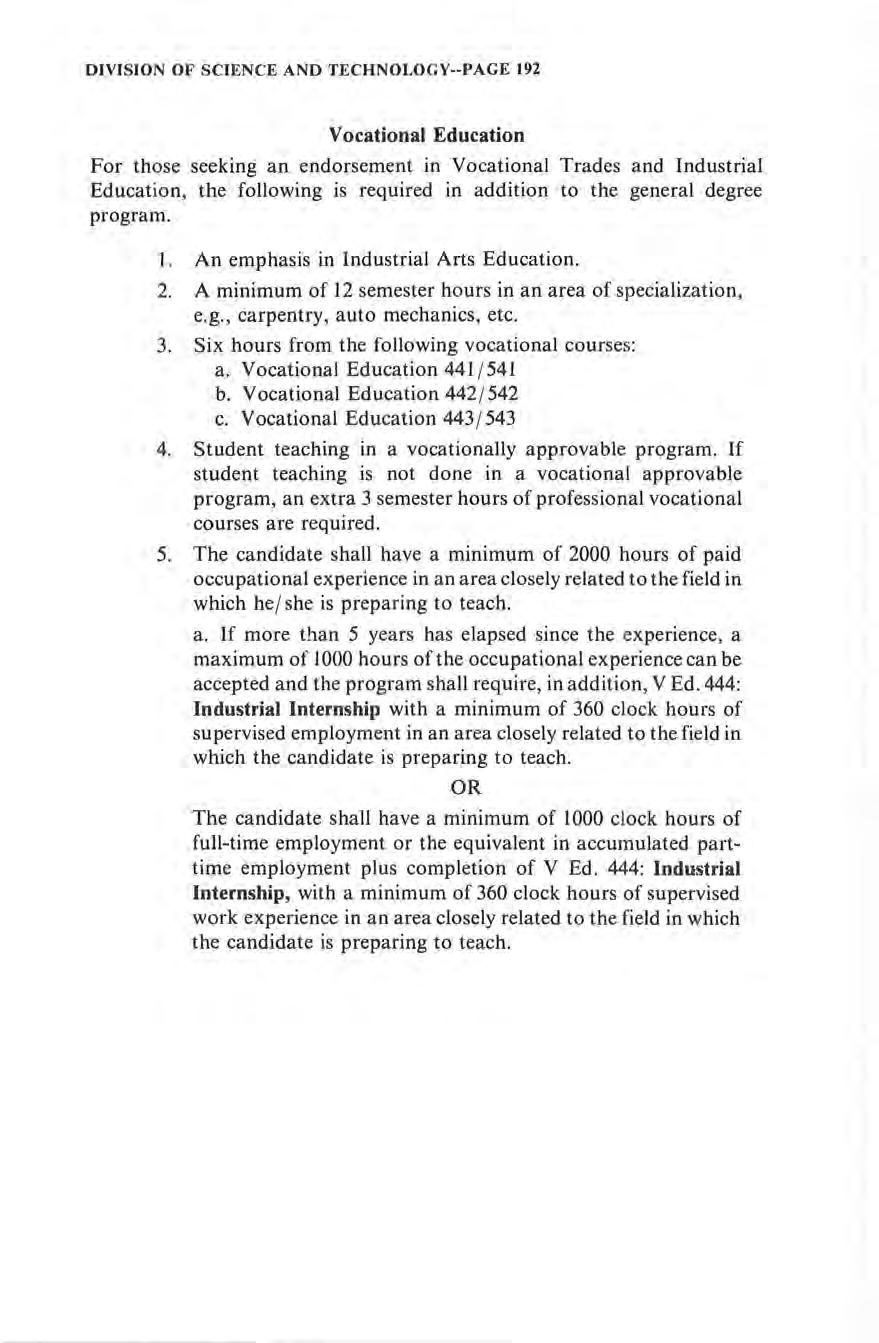
To qualify for an endorsement in driver education a person must complete a field or two subject areas An additional requirement for the endorsement is a valid Nebraska driver's license.
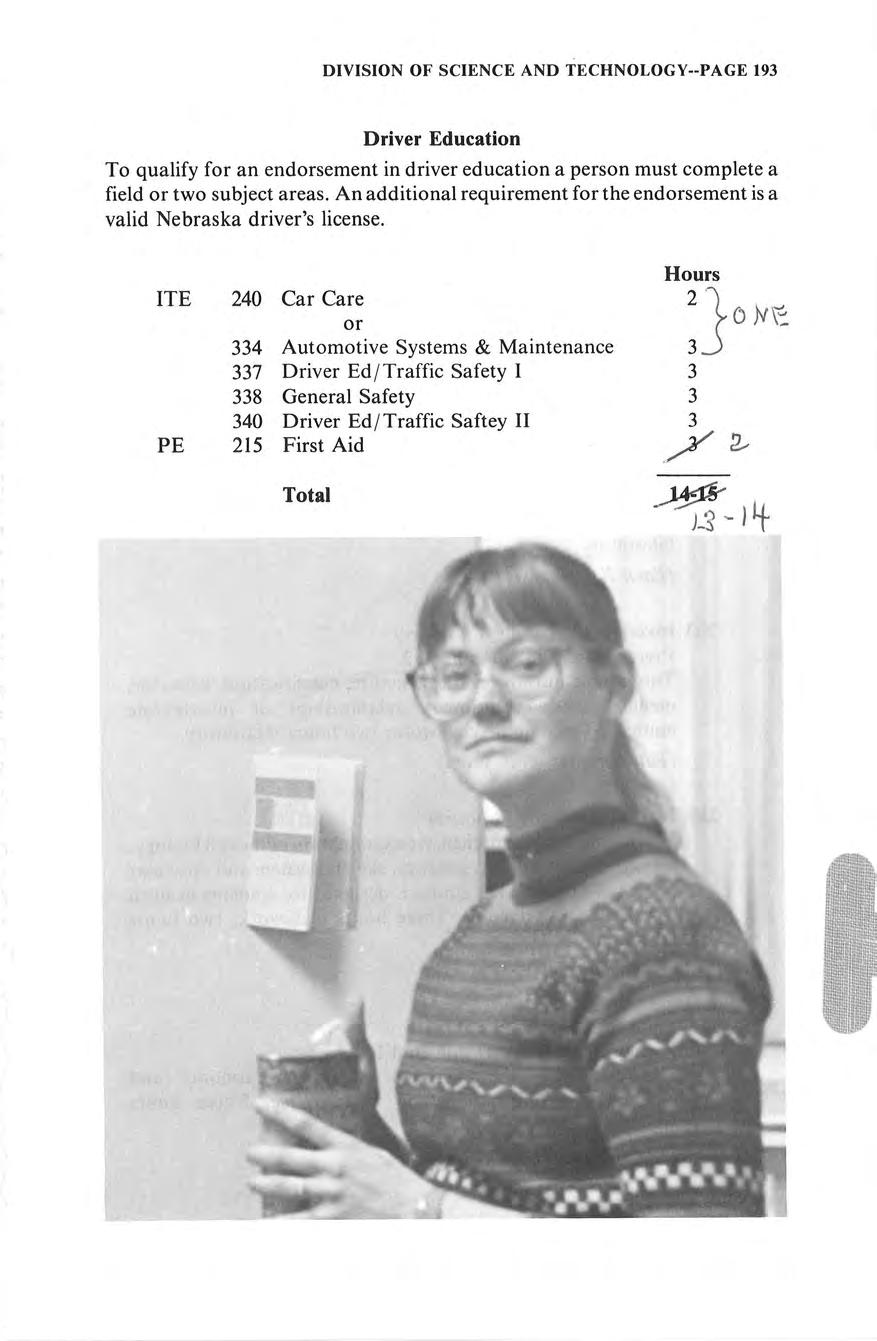
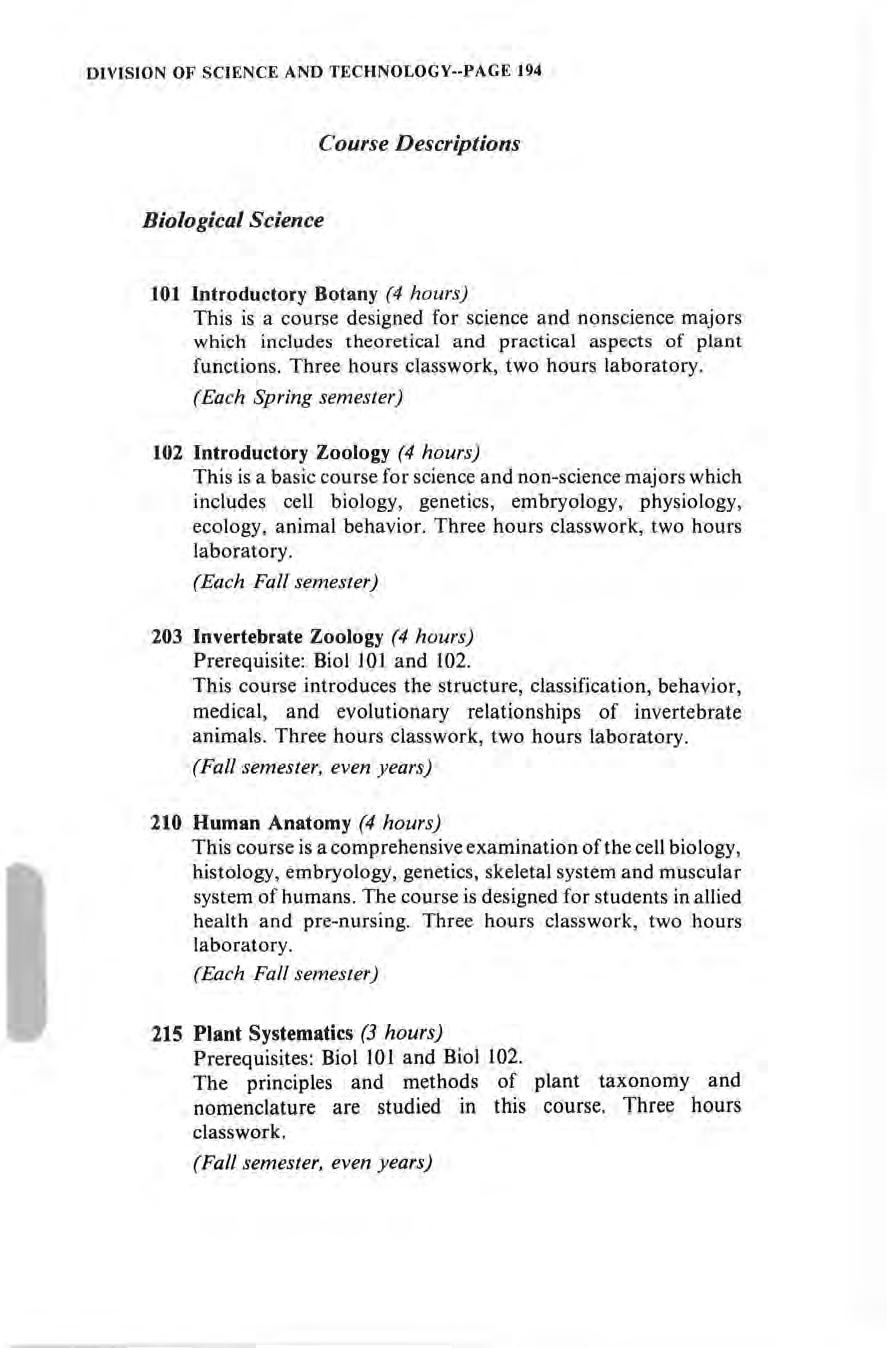
101 Introductory Botany (4 hours)
This is a course designed for science and nonscience majors which includes theoretical and practical aspects of plant functions. Three hours classwork, two hours laboratory.
(Each Spring semester)
102 Introductory Zoology (4 hours)
This is a basic course for science and non-science majors which includes cell biology, genetics, embryology, physiology, ecology, animal behavior. Three hours classwork, two hours laboratory.
(Each Fall semester)
203 Invertebrate Zoology (4 hours)
Prerequisite: Biol 101 and 102. This course introduces the structure, classification, behavior, medical, and evolutionary relationships of invertebrate animals. Three hours classwork, two hours laboratory.
(Fall semester, even years)
210 Human Anatomy (4 hours)
This course is a comprehensive examination of the cell biology, histology, embryology, genetics, skeletal system and muscular system of humans. The course is designed for students in allied health and pre-nursing. Three hours classwork, two hours laboratory.
(Each Fall semester)
215 Plant Systematics (3 hours)
Prerequisites: Biol 101 and Biol 102. The principles and methods of plant taxonomy and nomenclature are studied in this course. Three hours classwork .
(Fall semester, even years)
225 Freshwater Biology (3 hours)
Prerequisites: Biol IO l and Biol 102
This course is a study of the biology of lakes and streams. Two hours lecture, two hours laboratory.
(Fall semester, even years)
298 Special Topics in Biology (1-4 hours)
Freshman-Sophomore standing.
(Offered as needed)
301 Microbiology (4 hours)
Prerequisites: Biol IO l and Biol l 02; or Biol 210. This course provides an introduction to the field of microbiology with emphasis on medical laboratory skills and microbiology technique. Two hours classwork, four hours laboratory.
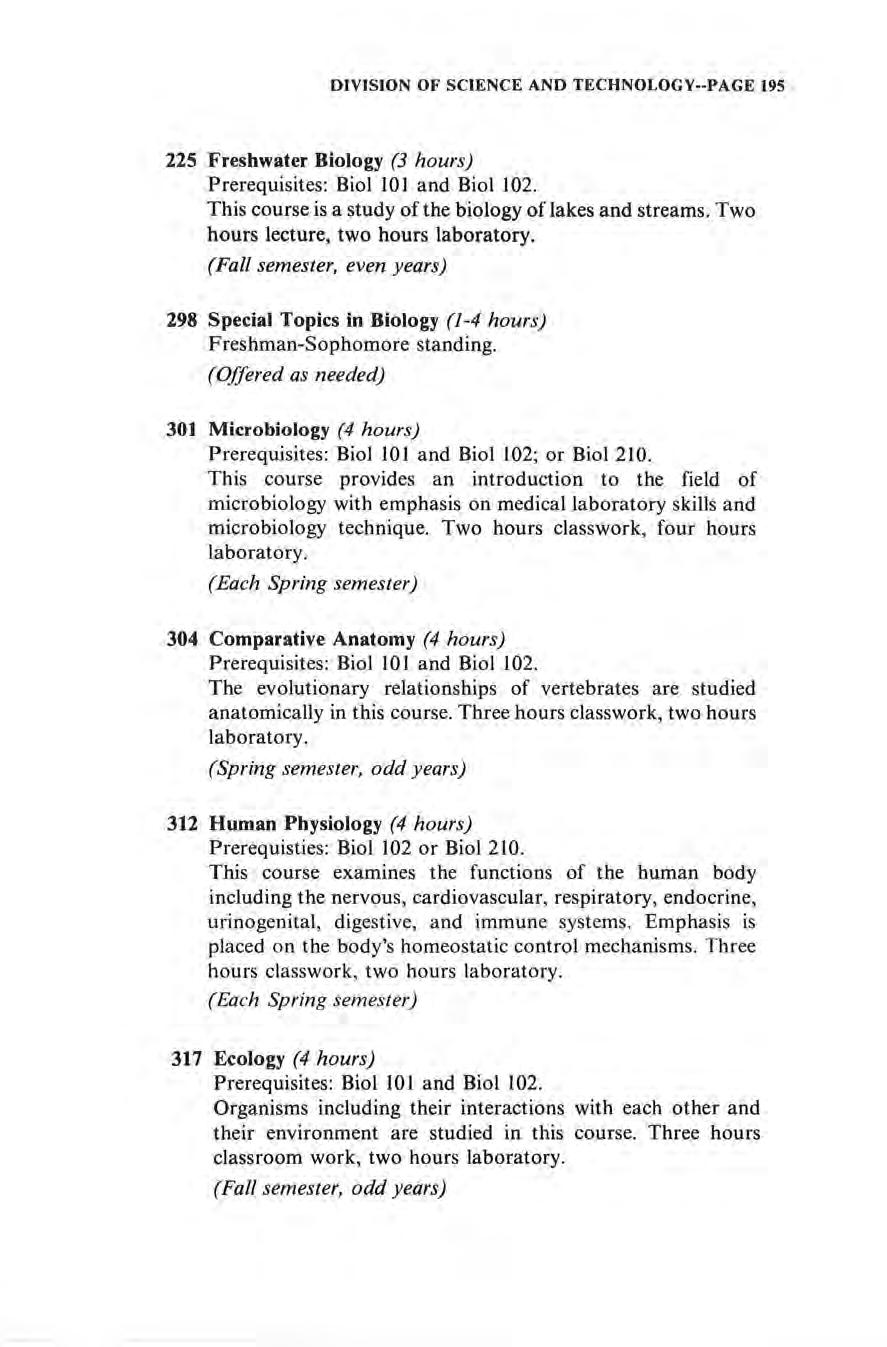
(Each Spring semester)
304 Comparative Anatomy (4 hours)
Prerequisites: Biol 101 and Biol 102. The evolutionary relationships of vertebrates are studied anatomically in this course. Three hours classwork, two hours laboratory
(Spring semester, odd years)
312 Human Physiology (4 hours)
Prerequisties: Biol 102 or Biol 210. This course examines the functions of the human body including the nervous, cardiovascular, respiratory, endocrine, urinogenital, digestive, and immune systems. Emphasis is placed on the body's homeostatic control mechanisms. Three hours classwork , two hours laboratory.
(Each Spring semester)
317 Ecology (4 hours)
Prerequisites: Biol 101 and Biol 102. Organisms including their interactions with each other and their environment are studied in this course. Three hours classroom work, two hours laboratory .
(Fall semester, odd years)
395 Mammalogy (3 hours)
Prerequisites: Biol IO I and I 02
This course is a study of mammals with an emphasis on mid western species. Two hours lecture , two hours laboratory .
(Fall semester, odd years)
404 Genetics (3 hours)
Prerequisites : Biol IO I and 102.
In this course Mendelian principles of heredity with special emphasis on current advances are covered . Three hours classwork.
(Fall semester, odd years)
405 Histology (4 hours)
Prerequisite: Biol 102.
This course studies the microscopic anatomy of mammalian tissue and organ systems with an emphasis on medical applications . Three hours classwork, two hours laboratory.
(Offered as needed)
407 Developmental Biology (4 hours)
Prerequisites: Biol IO I and Biol I 02.
This course is a study of the mechanisms of dev e lopment in plants and animals. Three hours classwork, two hours laboratory.
(Spring semester, even years)
411 Ornithology (3 hours)
Prerequisites: Biol IOI and Biol 102. This course is a study in avian biology including morphology, physiology, taxonomy , breeding, and ecology. Two hours lecture, two hours laboratory.
(Spring semester, odd years)
412 Experimental Biology (3 hours)
Prerequisites: Biol IO I and Biol 102, and 8 hours upper division Biology courses.
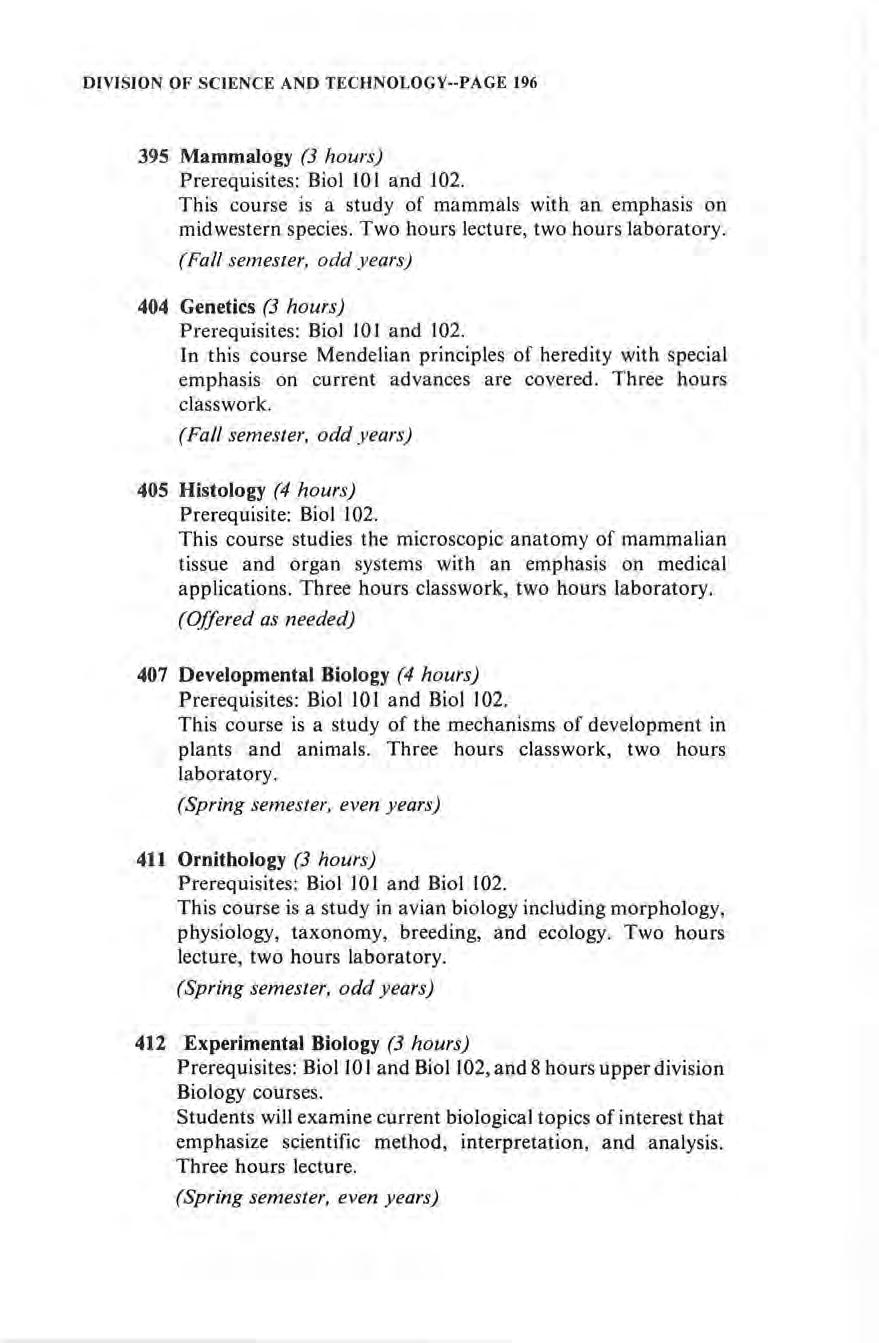
Students will examine current biological topics of interest that emphasize scientific method, interpretation, and analysis. Three hours lecture.
(Spring semester, even years)
486 Wildlife Management Techniques (3 hours)
Prerequisites: Biol IOI and 102. Contemporary techniques of conservation and management of wildlife are studied. Three hours lecture .
(Spring semester, even years)
497 Wildlife Biology Internship (3 hours)
Prerequisite: Junior status, prior approval of Chairperson of the Science and Technology Division, and acceptance as an intern by the Nebraska Game and Parks Commission. Students will work with a Biology faculty member and commission employees on a wildlife biology related project
(Offered as needed)
498 Special Topics in Biology (1-4 hours)

Junior-Senior standing.
(Offered as needed)
499 Independent Study in Biology (1-3 hours)
Junior standing.
(Each semester)
101 General Chemistry (4 hours)
Prerequisite: High school algebra. An introduction to the fundamentals of chemistry, topics such as atomic theory, chemical bonding , stoichiometry, solutions, and pH are covered Three hours classwork, two hours laboratory .
(Each Fall semester)
102 General Chemistry (4 hours)
Prerequisite: Chem IOI. This course is an application of the fundamentals of chemistry, including s tates of matter, oxidation-reduction, thermochemistry , chemical equilibrium, kinetics, nuclear chemistry, and descriptive inorganic chemistry. Three hours classwork , two hours laboratory.
(Ea ch Spring semester)
142 Introductory Organic and Biochemistry (4 hours)
This is a terminal course in organic and biochem istry. Three hours classwork, two hours laboratory.
(Offered as needed)
205 Principles of Qualitative Analysis (4 hours)
Prerequisite: Chem 102.
The principles of quantitative analysis and their application in the laboratory are studied. Two hours classwork, four hours laboratory.
(Fall semester, odd years)
206 Principles of Quantitative Analysis (4 hours)
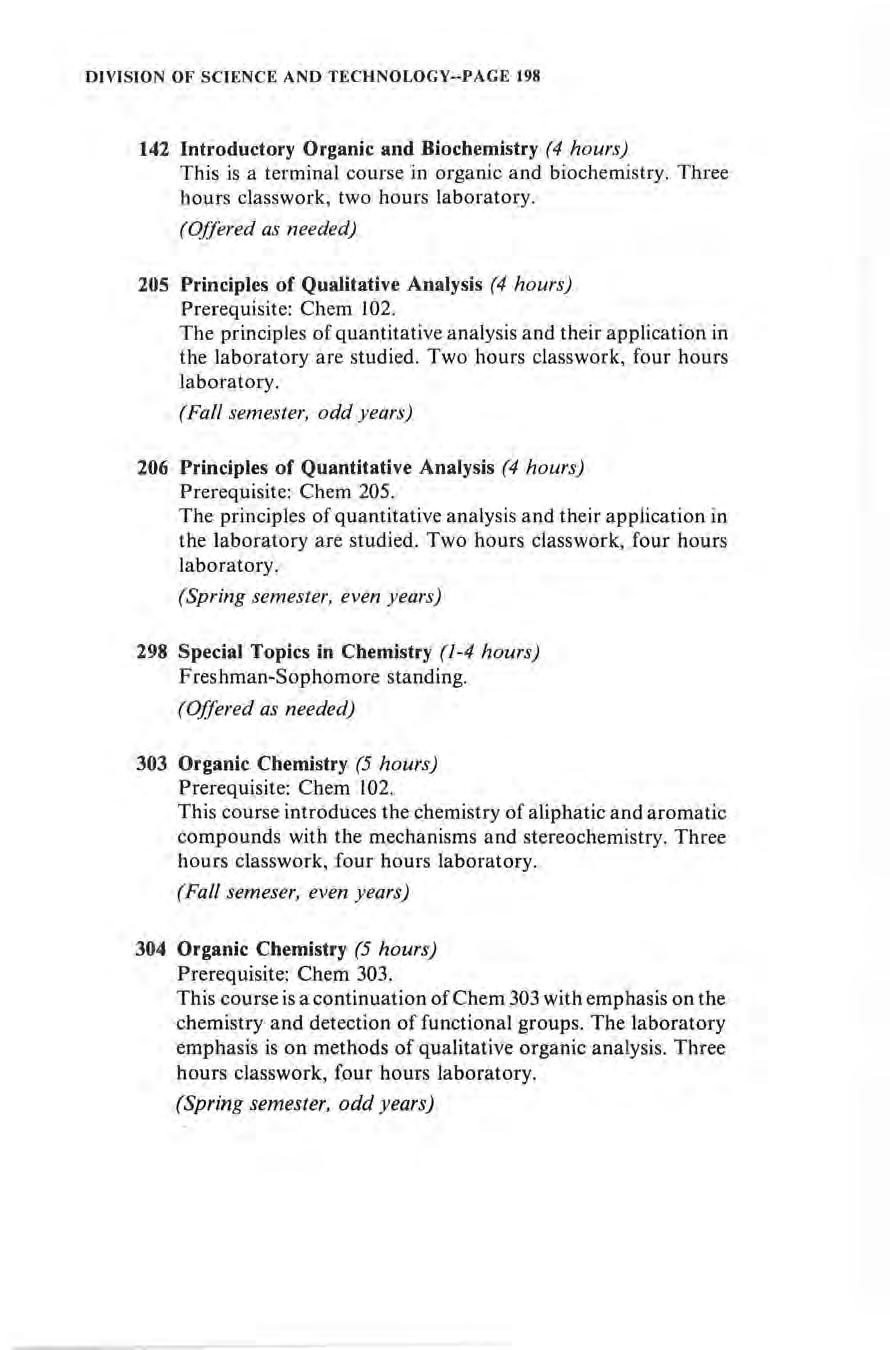
Prerequisite: Chem 205.
The principles of quantitative analysis and their application in the laboratory are studied. Two hours classwork, four hours laboratory.
(Spring semester, even years)
298 Special Topics in Chemistry (1-4 hours)
Freshman-Sophomore standing.
(Offered as needed)
303 Organic Chemistry (5 hours)
Prerequisite: Chem 102.
This course introduces the chemistry of aliphatic and aromatic compounds with the mechanisms and stereochem istry. Three hours classwork, four hours laboratory.
(Fall semeser, even years)
304 Organic Chemistry (5 hours)
Prerequisite: Chem 303.
This course is a continuation of Chem 303 with emphasis on the chemistry and detection of functional groups. The laboratory emphasis is on methods of qualitative organic ana lysis. Three hours classwork, four hours laboratory.
(Spring semester, odd years)
431 Biochemistry (4 hours)
Prerequisite: Chem 304. The chemical foundations of molecular biology with an emphasis on the molecular aspects of intermediary metabolism are studied . Three hours classwork, two hours laboratory.
(Fall semester, odd years)
498 Special Topics in Chemistry (1-4 hours) Junior-Senior standing.
(Offered as needed)
499 Independent Study in Chemistry (1-3 hours) Junior standing.
(Each semester)
Computer Science
90 Microcomputer Software (I hour)
This course is designed to introduce the student to the use of microcomputers in a variety of situations i.e., business, banking, education. Students will have hands-on experience fo using a variety of software. (This course cannot be substituted for a required course but can count as one credit hour toward graduation.)
(Offered as needed)
100 Computer Awareness(] hour)
This course provides an overview of computer technology. The topics to be covered include the history and evolution of computers, terminology , hardware, word processing, and elementary programming concepts. Issues such as the future of computers, their social impact, and the ethics of computer use are also considered.

(Each semester)
102 Introduction to Data Processing (3 hours)
This course is an introduction to the concepts and basic features of electronic computers with an overview of the makeup of computer systems and the structure and usage of computer languages. FORTRAN IV is used to illustrate the course and give the student direct computer experience.
(Each semester)
103 Introduction to BASIC Programming (2 hours)
The BASIC language and its application to problem solving in mathematics, science, and business will be studied using the Apple II microcomputer. One hour of classwork and two hours of laboratory per week.
(Each semester)
104 Intermediate BASIC Programming (1 hour)
Prerequisite: CSci 103.
A more in-depth study of BASIC on the Apple microcomputer with subroutines, graphics, and disk file manipulation covered

(Each semester)
203 COBOL Programming (3 hours)
Prerequisite: CSci 102 or permission. An introduction to ANS COBOL and its application to business computing. The course emphasizes structured analysis and design of programs illustrating business applications. 1
(Each semester)
204 Computer Programming I (3 hours)
This course provides an introduction to programming and algprithm development using Fortran with elements of program structure and subprogram usage. Problem solving techniques including stepwise refinement are applied to problems in mathematics and business with algorithms for searching, merging, and sorting introduced.
(Each semester)
206 Computer Programming II (3 hours)
Prerequisite: CSci 204.
This course introduces programming and algorithm development using Pascal. The study of stepwise refinement and top-down programming, testing, and debugging is continued with an emphasis on string processing, internal searching and sorting, and recursion. Data structures including stacks, queues, deques , linked lists are also built and manipulated.
(Each semester)
208 Computer Systems (3 hours)
Prerequisite: CSci 206.
The principles of operation and assembly programming of the IBM 370 are introduced. Topics to be studied include computer structure and machine language, addressing techniques, macros, program segmentation and linkage conventions, file input-output, assemblers, and interpreters.
(Each semester)
298 Special Topics in Computer Science (1-4 hours)
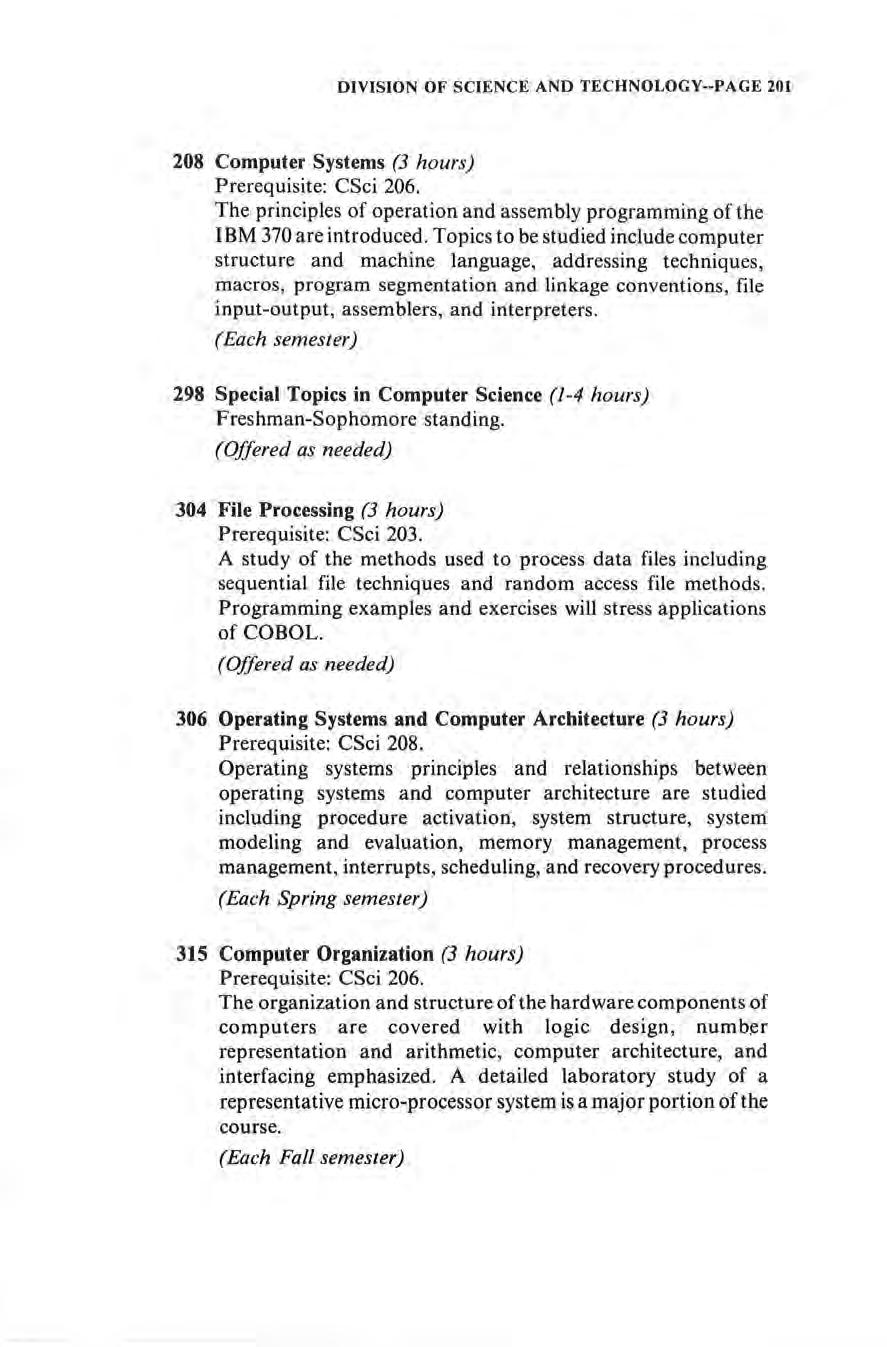
Freshman-Sophomore standing.
(Offered as needed)
304 File Processing (3 hours)
Prerequisite : CSci 203.
A study of the methods used to process data files including sequential file techniques and random access file methods. Programming examples and exercises will stress applications of COBOL.
(Offered as needed)
306 Operating Systems and Computer Architecture (3 hours)
Prerequisite: CSci 208.
Operating systems principles and relationships between operating systems and computer architecture are studied including procedure activation, system structure, system modeling and evaluation, memory management, process management, interrupts, scheduling, and recovery procedures.
(Each Spring semester)
315 Computer Organization (3 hours)
Prerequisite: CSci 206
The organization and structure of the hardware components of computers are covered with logic design, numb~r representation and arithmetic , computer architecture, and interfacing emphasized A detailed laboratory study of a representative micro-processor system is a major portion of the course.
(Each Fall semester)
404 Data Structures and Analysis of Algorithms (3 hours)
Prerequisites : CSci 206.
This course is a study of the internal representation and manipulation of data . The topic s covered include stacks, queues, lists, tree , graphs and graph and tree algorithms, design and analysis of sorting, merging, and searching algorithms, memory allocation and deallocation , and database management systems .
(Offered as n eeded)
406 Organization of Programming Languages (3 hours)
Prerequisite: CSci 208.
A study of the structure and implementation of computer languages The topics convered include language definition and structure, data types and structure , control structures, run time considerations, compilers and interpreters, lexical analysis, and parsing.
(Offered as needed)
408 Senior Project (4 hours)
Prerequisite: 15 hours of computer science (200 or above). The student will study the analysis, design, implementation , testing , and documentation of a complete system. This project is chosen in consultation with the instructor to apply skills and integrate knowledge acquired in undergraduate st udies .
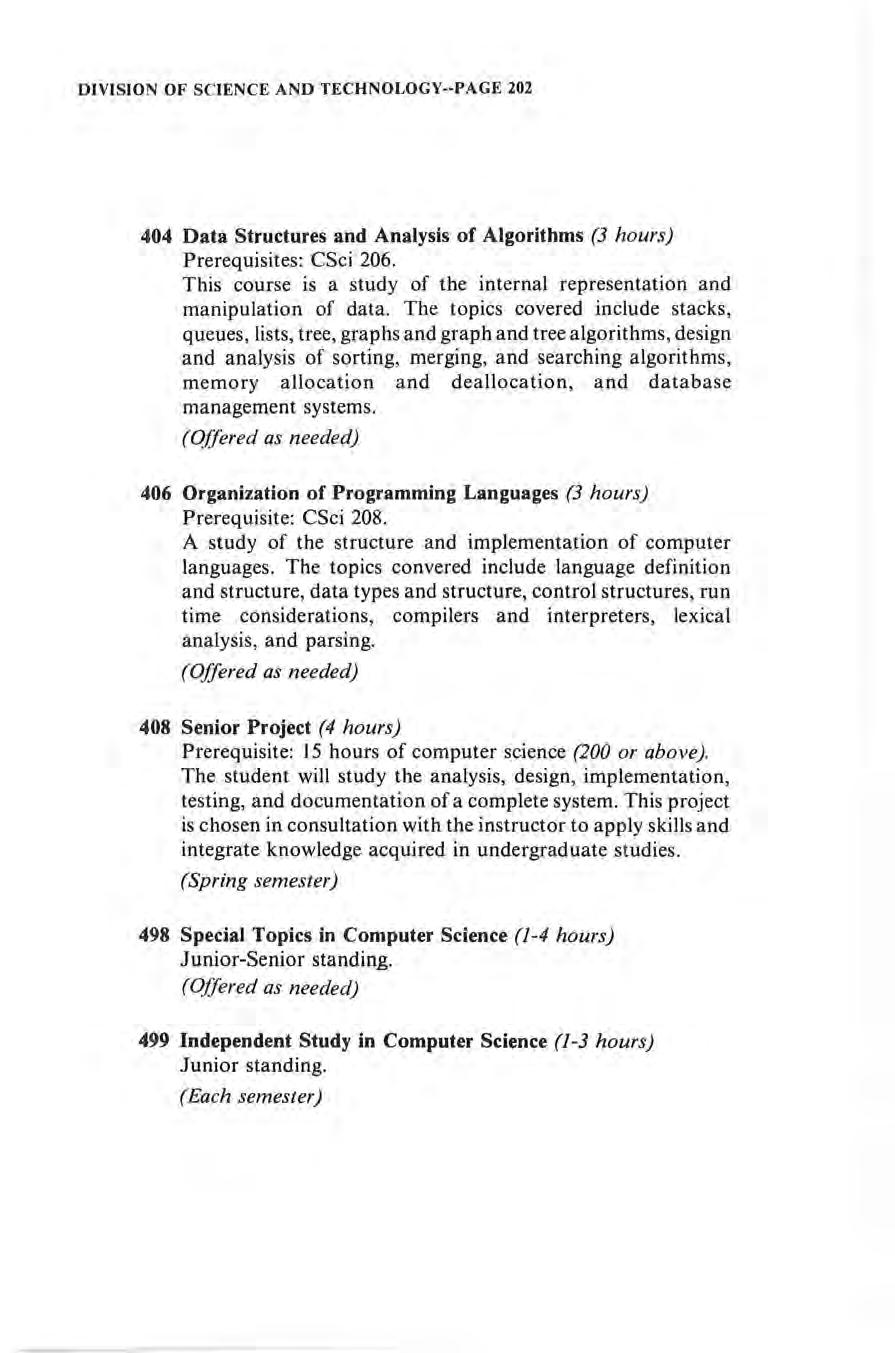
(Spring semester)
498 Special Topics in Computer Science (1-4 hours)
Junior-Senior standing.
(Offer ed as n eeded)
499 Independent Study in Computer Science (1-3 hours)
Junior standing .
(Each semester)
332 Nutrition (3 hours)
Fundamental principles of human nutrition, its development through research as related to the needs of individuals according to their age, sex, and occupation are studied.
(Each Spring semester)
100 Physics (4 hours)
This course is designed to acquaint the student with physics. The areas of energy, mechanics, heat, electricity, sound, and light are surveyed. Three hours classwork, two hours laboratory .
(Fall semester, even years)
130 Health Careers Internship (3 hours)
Prerequisite: Prior approval of the Chairperson of the Natural Science Division to insure that appropriate arrangements have been made for the internship. The course is designed to provide students in the preprofessional programs with experience in medically-related professions. A minimum of 40 hours of work experience will be required for every hour of credit.
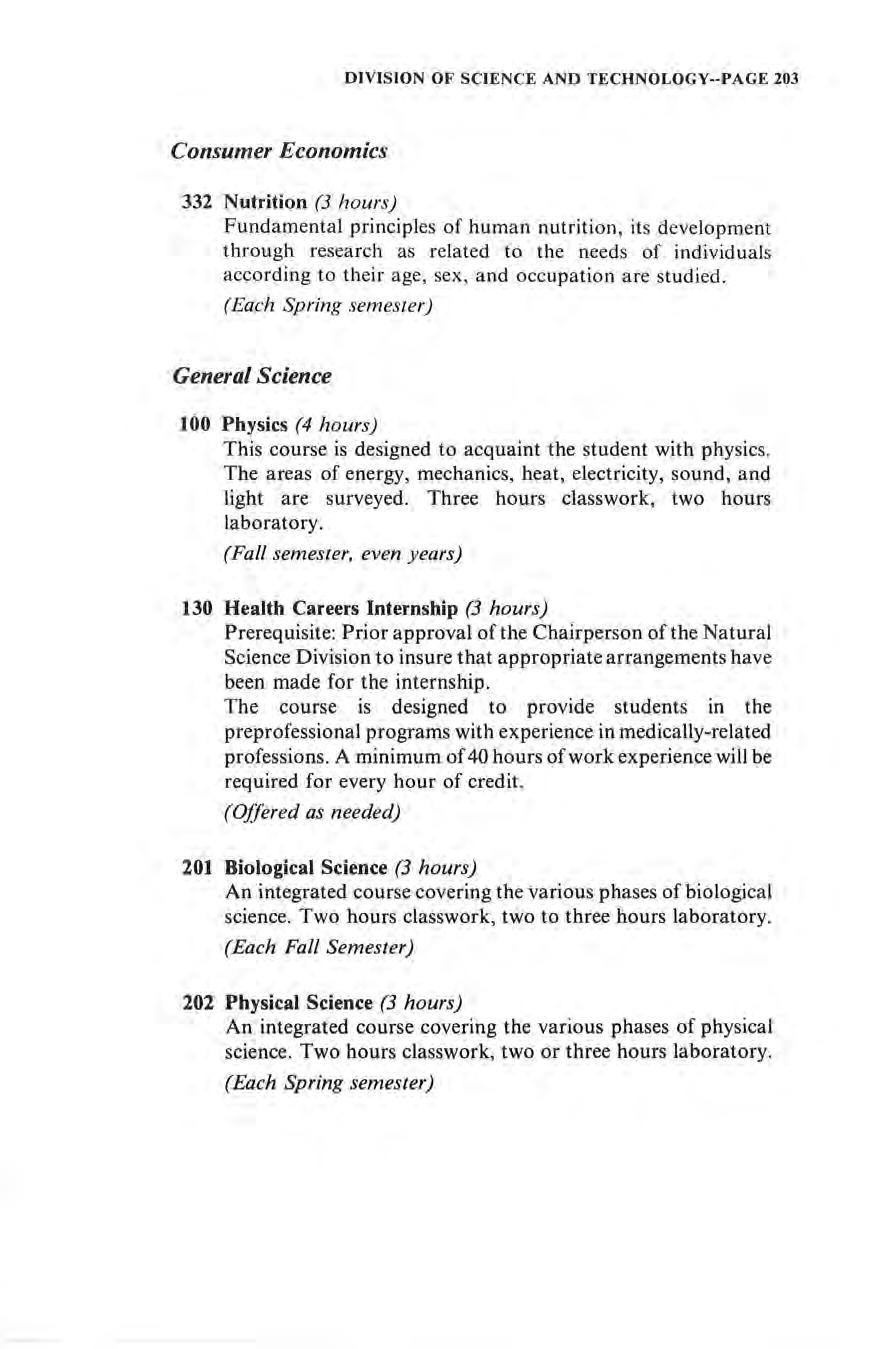
(Offered as needed)
201 Biological Science (3 hours)
An integrated course covering the various phases of biological science. Two hours classwork, two to three hours laboratory.
(Each Fall Semester)
202 Physical Science (3 hours)
An integrated course covering the various phases of physical science. Two hours classwork, two or three hours laboratory.
(Each Spring semester)
205 Introductory Biology (3 hours)
An integrated course specifically designed for the non-science student covering the various phases of man's biotic world including a variety of learning experiences. Does not apply to the major or support in Biology.
(Each semester)
206 Principles of Physical Science (3 hours)
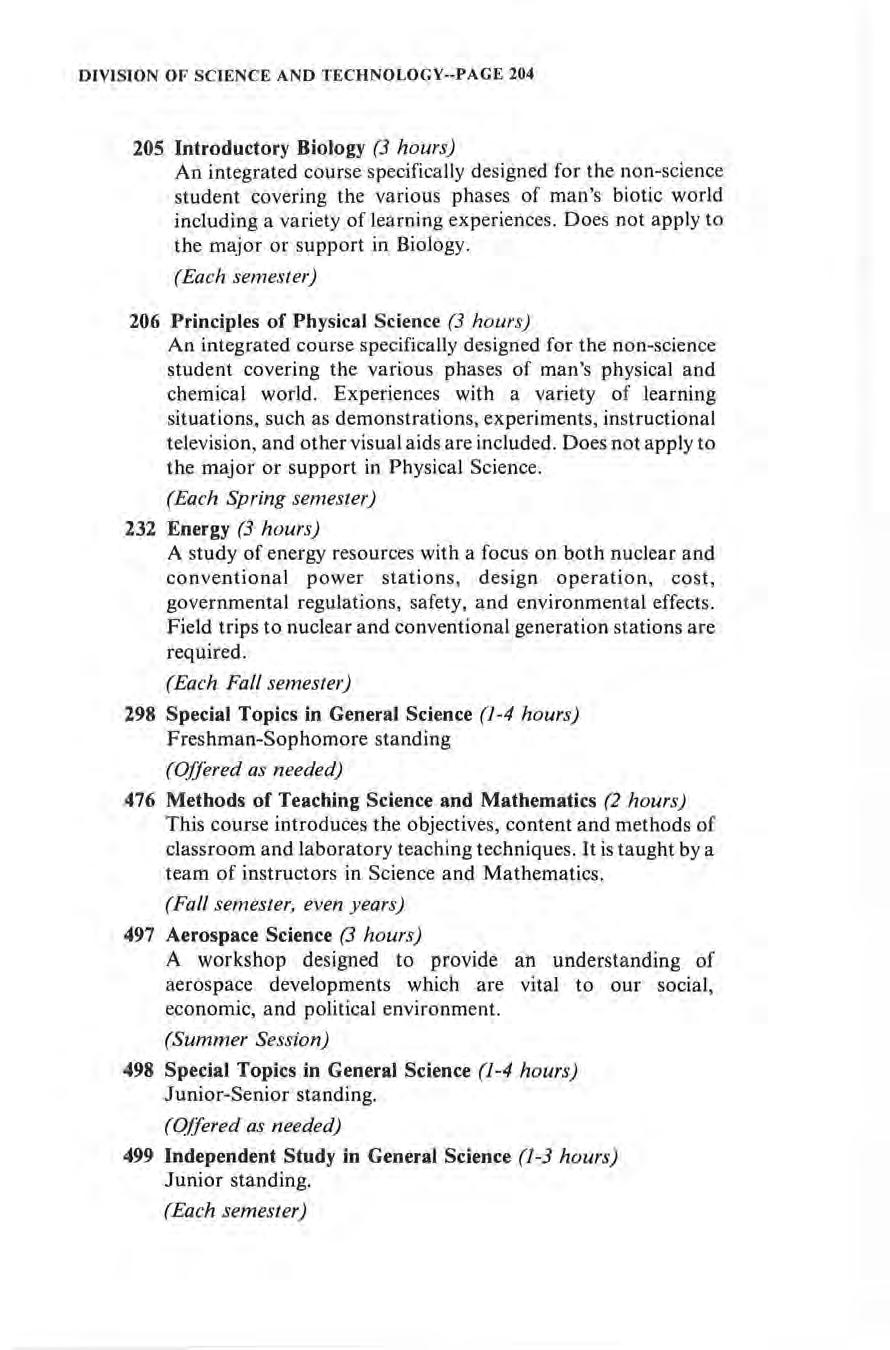
An integrated course specifically designed for the non-science student covering the various phases of man's physical and chemical world. Experiences with a variety of learning situations, such as demonstrations, experiments, instructional television, and other visual aids are included. Does not apply to the major or support in Physical Science .
(Each Spring semester)
232 Energy (3 hours)
A study of energy resources with a focus on both nuclear and conventional power stations, design operation, cost, governmental regulations, safety, and environmen t al effects. Field trips to nuclear and conventional generation stations are required.
(Each Fall semester)
298 Special Topics in General Science (1-4 hours)
Freshman-Sophomore standing
(Offered as needed)
476 Methods of Teaching Science and Mathematics (2 hours)
This course introduces the objectives, content and methods of classroom and laboratory teaching techniques It is taught by a team of instructors in Science and Mathematics
(Fall semester, even years)
497 Aerospace Science (3 hours)
A workshop designed to provide an understanding of aerospace developments which are vital to our social, economic, and political environment.
(Summer Session)
498 Special Topics in General Science (1-4 hours)
Junior-Senior standing.
(Offered as needed)
499 Independent Study in General Science (1-3 hours)
Junior standing.
(Each semester)
201 Physical Geology (4 hours)
An introduction to the theories of the earth's origin and the study of the earth's structure and materials with a special emphasis on rock, minerals , and landforms. Three hours lecture, two hours laboratory.
(Fall semester, odd years)
202 Rocks and Minerals (1-3 hours)
An introductor y course to the study of the physical properties of rocks and minerals stressing field work at mineral and rock locatlitie s in S.E. Nebraska.
(Summer Session)
203 Introduction to Fossils (1-3 hours)
This is an introductory course to the methods of interpreting the fossil record through actual field work at fossil lo cations in S.E. Nebraska.
(Summer Session)
298 Special Topics in Geology (1-4 hours)
Freshman-Sophomore standing.
(Offered as needed)
301 Historical Geology (4 hours)
This course introduces the geological history of the earth and the evolution of its animal and plant inhabitants. It includes work at fossil locations in S.E. Nebraska utilizing stratigraphic methods. Three hours lecture, two hours laboratory.
(Offered as needed)
304 Meteorology and Climatology (3 hours)
The physical factors influencing the climate with practical work at fossil localities in S.E. Nebraska utilizing stratigraphic methods. Three hours lecture , two hours laboratory.
(Spring semester, even years)
315 Physiography of the United States (4 hours)

Prerequistes: Geog. IOI and 103.
As a regional study of landform provinces, this course gives specia l emphasis to the relationship between landforms, climate, soils, vegetation, and mineral resources. Three hours lecture, two hours laboratory.
(Offered as needed)
498 Special Topics in Geology (1-4 hours)
Junior-Senior standing.
(Offered as needed)
499 Independent Study in Geology (1-3 hours) Junior standing.
(Each semester)
100 Introduction to Industrial Technology (3 hours)
This course provides a broad-based, systems approach to the study of industrial technology. Emphasis will be on conceptualizing the base components and the interrelationship of the communications, transportation, manufacturing and construction systems
(Each Fall semsester)
121 Technical Graphics I (3 hours)
As a course concerned with the fundamentals of Technical Graphic communiations, it includes the following areas of study and lab experiences: graphic design, shape description, multiview projection, axonmetric projection, computer graphics and sectional views.
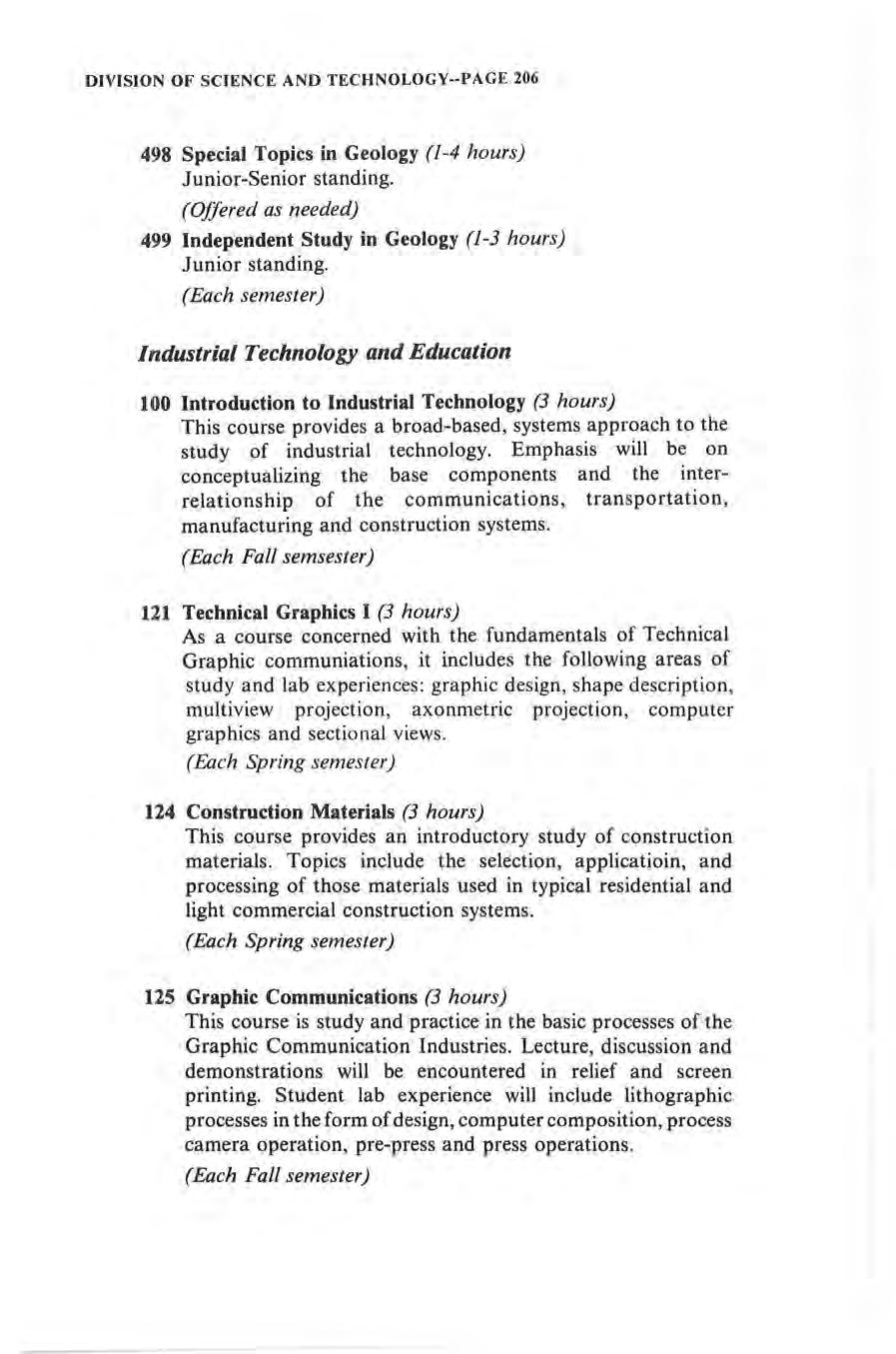
(Each Spring semester)
124 Construction Materials (3 hours)
This course provides an introductory study of construction materials. Topics include the selection, applicatioin, and processing of those materials used in typical residential and light commercial construction systems.
(Each Spring semester)
125 Graphic Communications (3 hours)
This course is study and practice in the basic processes of the Graphic Communication Industries. Lecture, discussion and demonstrations will be encountered in relief and screen printing. Student lab experience will include lithographic processes in the form of design, computer composition, process camera operation, pre-press and press operations .
(Each Fall semester)
127 Power/Transportation Systems (3 hours)
This course is a basic study of the production control and transportation of mechanical, electrical, and fluidic power. It deals with the interrelationships of these three factors as they are integrated into the power/ transportation systems of modern technology.
(Each Fall semester)
132 Metals Processing I (3 hours)
This course provides an introduction to the study of separating, forming, and combining of industrial materials. Areas of study will include the processing technology associated with metals, composites, and synthetic materials.
(Each Spring semester)
222 Technical Graphics II (3 hours)
Prerequisite: ITE 121
The course is designed as a continuation of Technical Graphics I. It is concerned with technical drawing as it relates to industrial practices. It includes the following areas of study and lab experiences : auxiliary views, threads, oblique projection. gears and cams, design and working draw1ngs, manufacturing processes , computer-aided design and reproductions and control of drawings.
(Each Fall semester)
226 Photography I (2-3 hours)
This course studies the theory and practice in the basic fundamentals of photography including composition, exposure, lighting, developing, contact printing and enlarging. The third hour credit gained by additional assignments. Each student must have a camera.
(Each Fall semester)
233 Fundamentals of Electricity /Electronics (3 hours)
Prerequisite: ITE 127 or special permission. Principles and applications of AC and DC theory as untilized iri home, business, and industry are covered. Areas _ of instruction include electrical / electronic theory, lighting, heating, motors and generators, residential and industrial wiring, and basic automotive electrical systems.
(Each Spring semester)

234 Manufacturing Systems (3 hours)
Prerequisite: ITE 100
This course is an introduction to manufacturing systems and production techniques. Typical units of study include management, personnel, and production systems with emphasis on product design, process engineering, line production , and product marketing.
(Each Spring semester)
239 Silk Screening Techniques (1-2 hours)
This course is a study of the basic theory, materials, and processes used in silk screen printing.
(Offered as needed)
240 Car Care (2 hours)
This course is designed to provide the student with a basic knowledge of purchasing, maintaining, insuring, and operating the modern automobile. Consumer information is stressed together with basic knowledge of automotive lubrication, tuneup, and diagnosis. This course does not apply on the Industrial Technology and Education major.
(Each semester)
298 Special Topics in Industrial Technology and Education (1-4 hours)
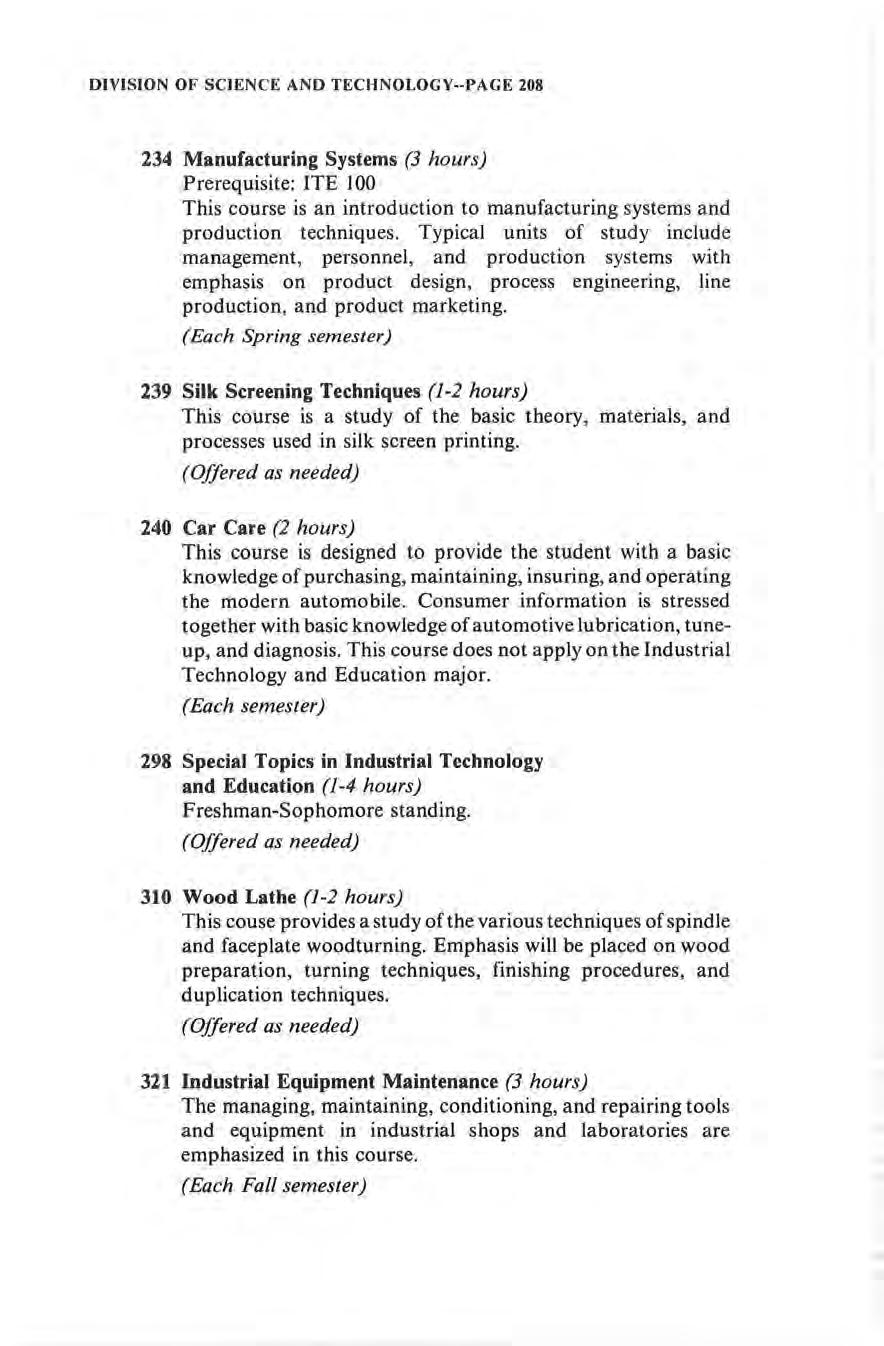
Freshman-Sophomore standing.
(Offered as needed)
310 Wood Lathe (1-2 hours)
This co use provides a study of the various techniques of spindle and faceplate woodturning. Emphasis will be placed on wood preparation, turning techniques, finishing procedures, and duplication techniques.
(Offered as needed)
321 Industrial Equipment Maintenance (3 hours)
The managing, maintaining, conditioning, and repairing tools and equipment in industrial shops and laboratories are emphasized in this course.
(Each Fall semester)
322 Elementary Technology Education (3 hours)
This course is designed to develop skills and knowledge in working with ceramics, metals, plastics, wood and other craft materials Instruction will include specifying and purchasing craft supplies and methods of incorporating these activities into school and community programs . Recommended for elementary school teachers, recreation majors, and for people interested in leisure time craft activities.
(Each semester)
323 Material Processing II (3 hours)
Prerequisite: ITE 132.
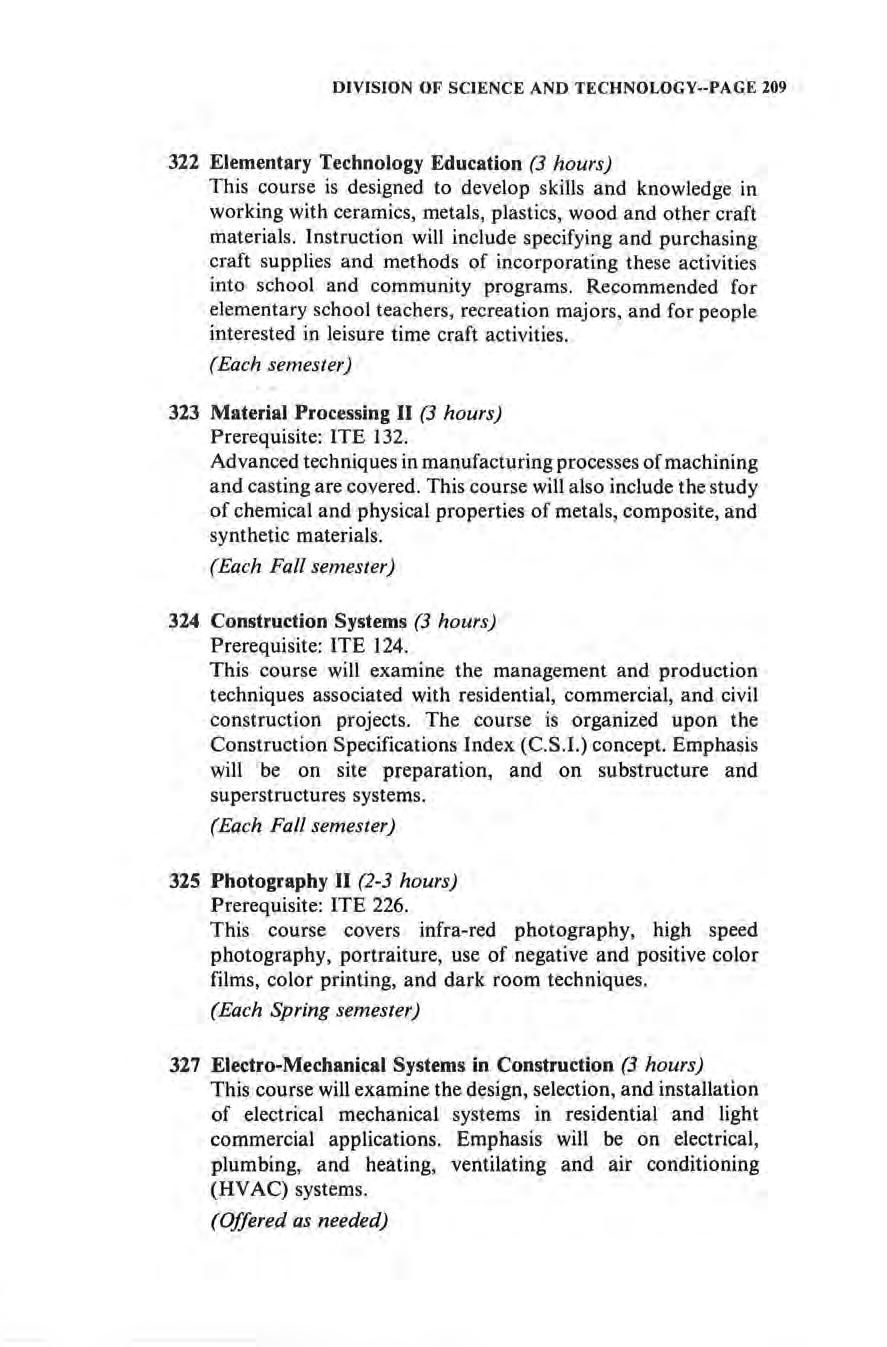
Advanced techniques in manufacturing processes of machining and casting are covered . This course will also include the study of chemical and physical properties of metals, composite, and synthetic materials.
(Each Fall semester)
324 Construction Systems (3 hours)
Prerequisite: ITE 124.
This course will examine the management and production techniques associated with residential, commercial, and civil construction projects . The course is organized upon the Construction Specifications Index (C.S.I.) concept. Emphasis will be on site preparation, and on substructure and superstructures systems.
(Each Fall semester)
325 Photography II (2-3 hours)
Prerequisite: ITE 226.
This course covers infra-red photography, high speed photography, portraiture, use of negative and positive color films, color printing, and dark room techniques.
(Each Spring semester)
327 Electro-Mechanical Systems in Construction (3 hours)
This course will examine the design, selection, and installation of electrical mechanical systems in residential and light commercial applications. Emphasis will be on electrical, plumbing, and heating, ventilating and air conditioning (HV AC) systems.
(Offered as needed)
328 Analog Electronics (3 hours)
Prerequisite: ITE 233 or special permission. As a study of the principles and applications of electronics in control and communication equipment, instruc t ion in the theory and application of solid state and electronic device s in power supplies, amplifier s, oscillators , and various other circuits will be given .
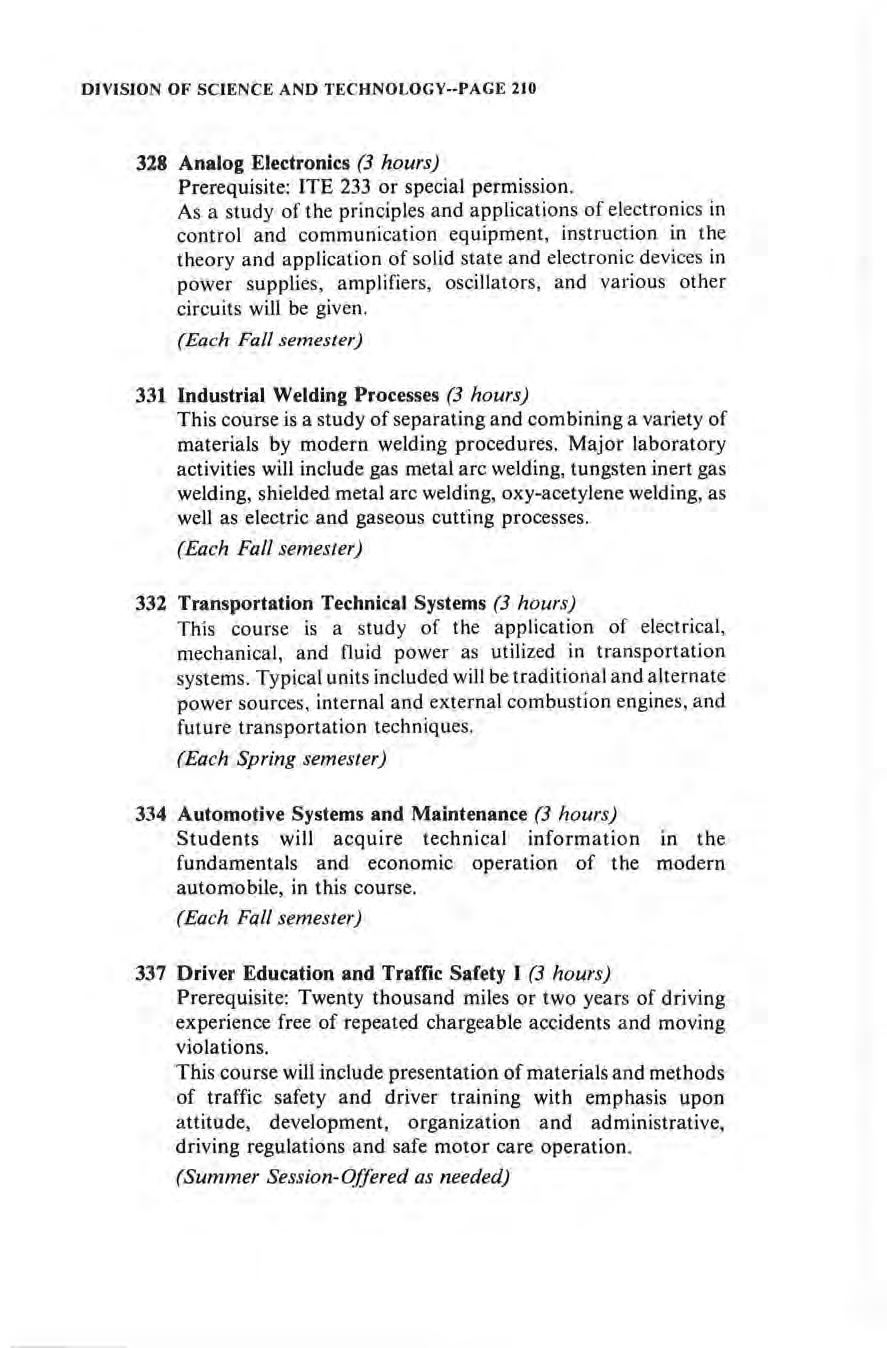
(Each Fall semester)
331 Industrial Welding Processes (3 hours)
This course is a study of separating and combining a variety of materials by modern welding procedures. Major laboratory activities will include gas metal arc welding, tungsten inert gas welding, shielded metal arc welding , oxy-acetylene welding , as well as electric and gaseous cutting processes .
(Each Fall semester)
332 Transportation Technical Systems (3 hours)
This course is a study of the application of electrical, mechanical, and fluid power as utilized in transportation systems Typical units included will be traditional and alternate power sources, internal and external combustion engines, and future transportation techniques.
(Each Spring semester)
334 Automotive Systems and Maintenance (3 hours)
Students will acquire technical information in the fundamentals and economic operation of the modern automobile, in this course.
(Each Fall semester)
337 Driver Education and Traffic Safety I (3 hours)
Prerequisite: Twenty thousand miles or two year s of driving experience free of repeated chargeable accidents a nd mov ing violations.
This course will include presentation of materials and methods of traffic safety and driver training with emphasis upon attitude, development, organization and administrative, driving regulations and safe motor care operation .
(Summer Session-Offered as needed)
338 General Safety (3 hours)
This course is designed to familiarize the student with problems of accident prevention and conservation of human life and limb. Emphasis will be placed in the following areas: Occupational, farm and home, transportation, and school. Instructional materials will be developed and studied.
(Each Spring semester)
339 Computer Aided Design (2 hours)
Prerequisite: ITE 121.
Computer Aided Design is a course designed to introduce the student to the use of computers, digitizing pads and plotters in designing and drawing products in the industrial world. Projects will be encountered that will deal with: graphs and charts, architectural design and technical drawings.
(Each Spring semester)
340 Driver Education _!lnd Traffic Safety II (3 hours)
Prerequisite: ITE 337
This course wi ll provide an opportunity to contruct materials relating to and experiment with methods of presenting lessons in traffic safety and behind-the-wheel driving. Each student will be expected to teach a beginning driver.
(Summer Session-Offered as needed)
343 Hydraulics and Pneumatics (3 hours)
This course will cover fluid power principles with practical application of hydraulics, pneumatics, and fluidics.
(Each Fall semester)
350 Administration and Management of Industrial Materials and Equipment (3 hours)
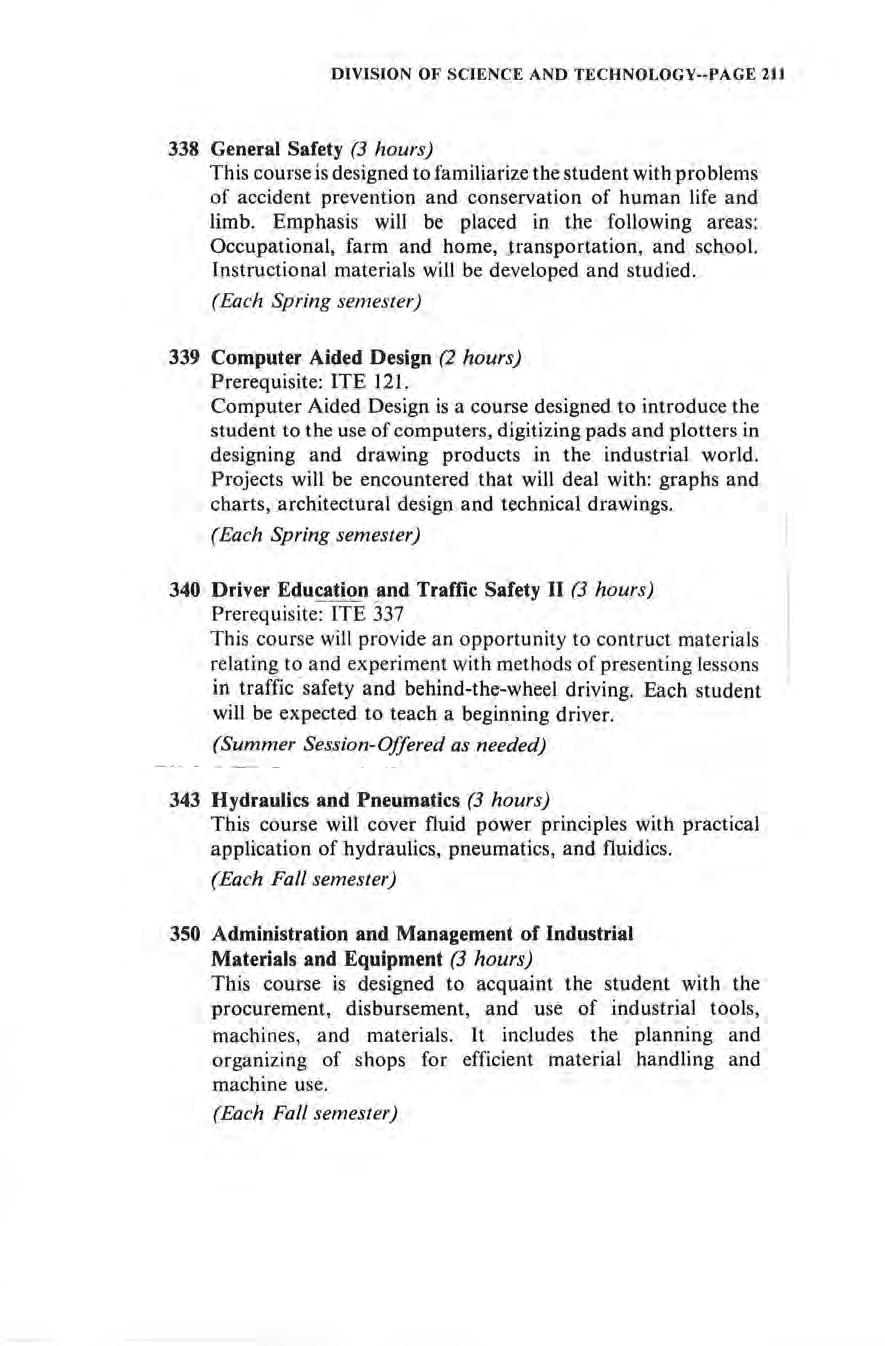
This course is designed to acquaint the student with the procurement, disbursement, and use of industrial tools, machines, and materials. It includes the planning and organizing of shops for efficient material handling and machine use.
(Each Fall semester)
355 Private Pilot Ground School (3 hours)
This course includes all items needed to pass the written examination required to receive a pilot's license. Course content includes basic aerodynamics, weather patterns, types of aircraft, history of flying , government regulation safety, navigation, and the duties and responsibilities of a private pilot.
(Offered as needed)
370 Robotic Applications (3 hours)
This course provides instruction in the fundamentals and management of robots in industry. It will introduce the student to the evolution, classification, safety, economics, sociological impact, and future capabilities of industrial robots, as well as developing a familiarization of present uses in a variety of industrial applications.
(Each Fall semester)
380 Time and Motion Study (3 hours)
This course is the study and application of work measurement systems and the analysis of work for methods improvement by use of motion economy, process charting, flow diagramming, operator training and suggestion systems.
(Offered as needed)
381 Quality Assurance (3 hours)
As a course in the techniques and procedures of determining and maintaining the quality of industrial products, random sampling and other statistical procedures used in the manufacturing and service sector to determine if products meet specifications are covered . Also, product quality improvement by design and structural features is discussed.
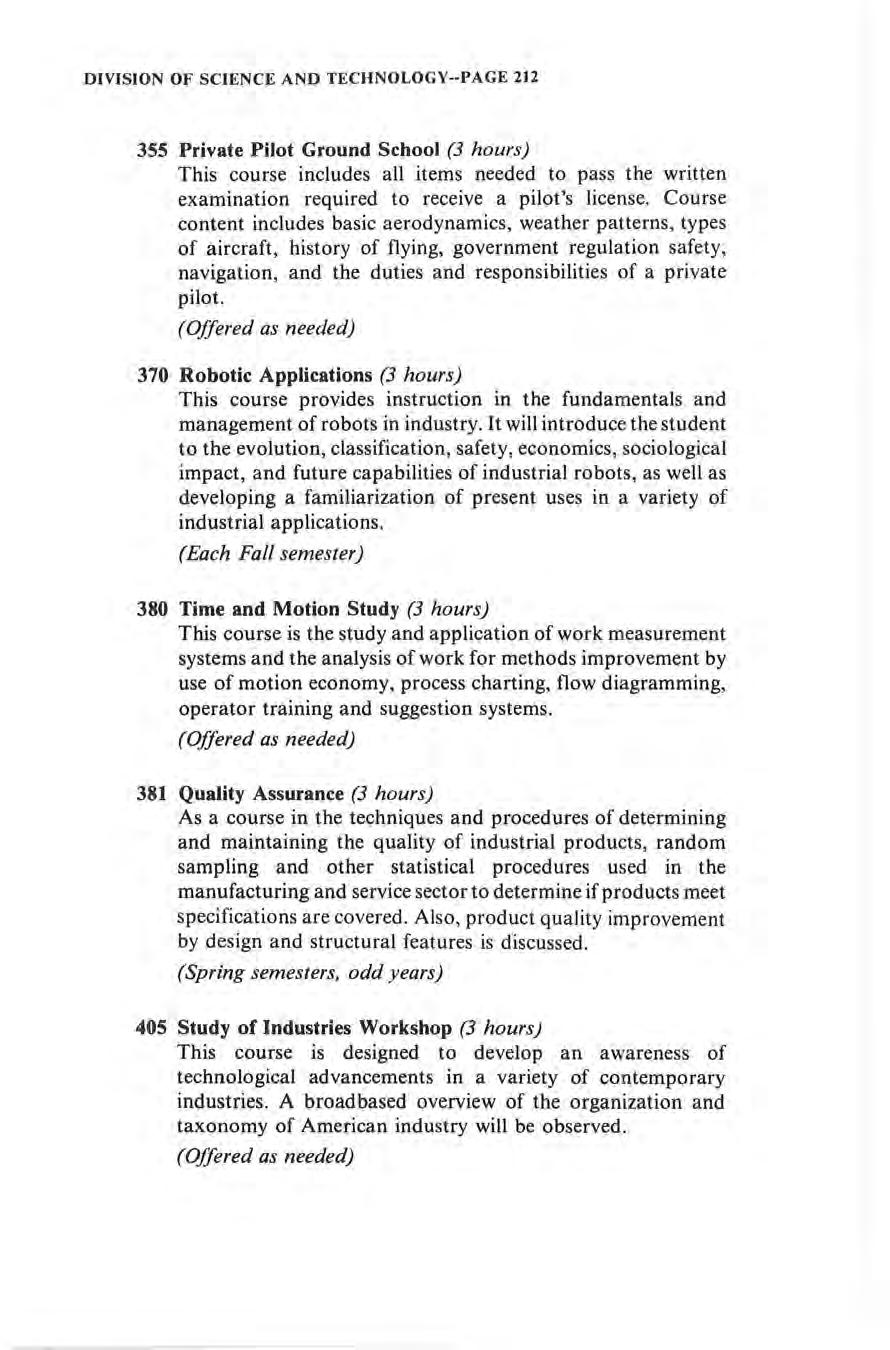
(Spring semesters, odd years)
405 Study of Industries Workshop (3 hours)
This course is designed to develop an awareness of technological advancements in a variety of contemporary industries. A broadbased overview of the organization and taxonomy of American industry will be observed.
(Offered as needed)
410 Digital Electronics (3 hours)
Prerequisite ITE 328 or permission. As a study of digital integrated circuits, topics covered will include numbering systems, logic gates, flip flops, registers, clocks, and memories.
(Spring semester, even years)
415 Microprocessors (3 hours)
Prerequisite ITE 410
The fundamental concepts of microprocessors including software, hardware, and interface techniques are covered . Industrial applications will also be examined.
(Spring semester, even years)
425 Educational Methods in Industrial Technology (3 hours)
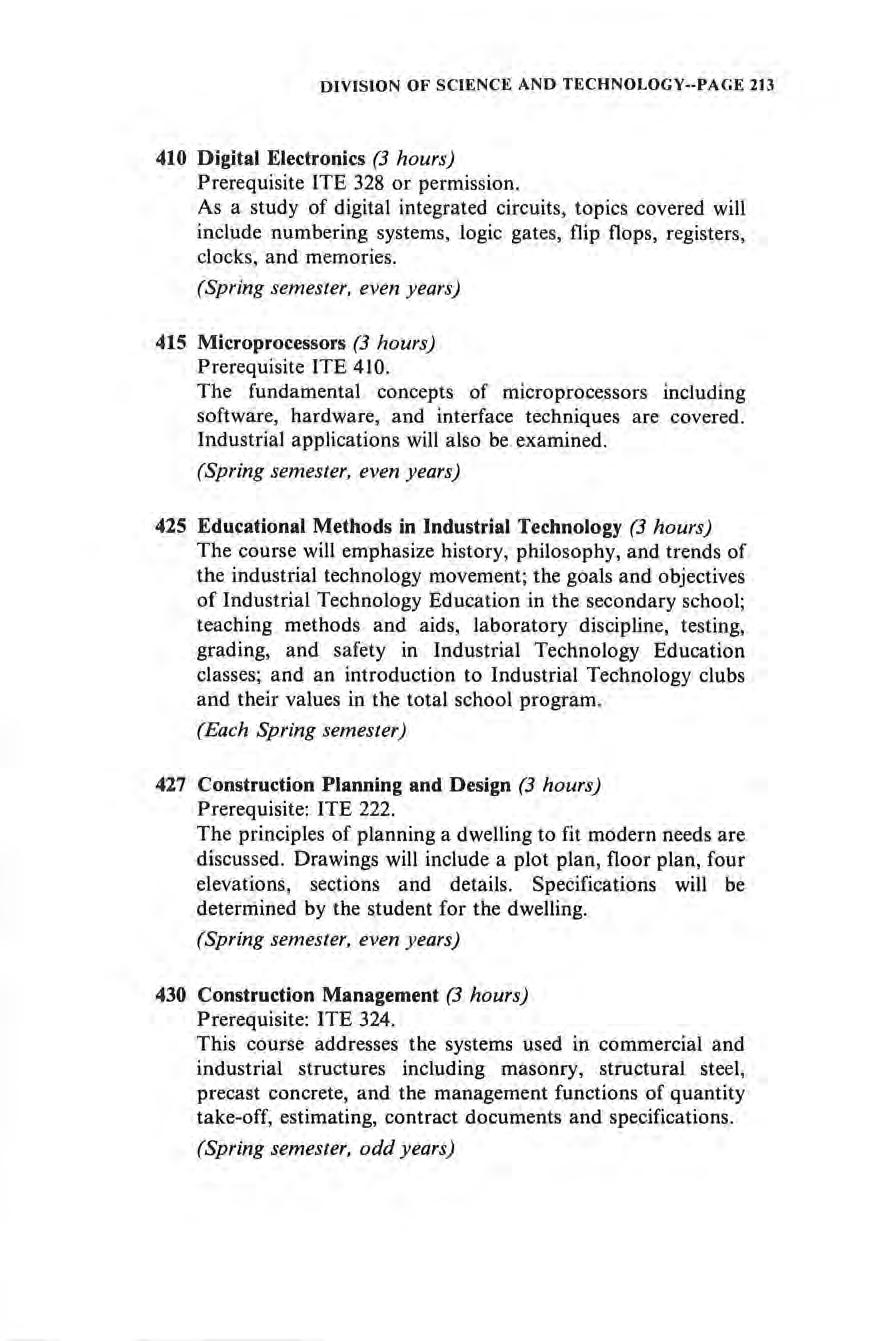
The course will emphasize history, philosophy, and trends of the industrial technology movement; the goals and objectives of Industrial Technology Education in the secondary school; teaching methods and aids , laboratory discipline, testing, grading, and safety in Industrial Technology Education classes; and an introduction to Industrial Technology clubs and their values in the total school program
(Each Spring semester)
427 Construction Planning and Design (3 hours)
Prerequisite: ITE 222.
The principles of planning a dwelling to fit modern needs are discussed. Drawings will include a plot plan, floor plan, four elevations, sections and details. Specifications will be determined by the student for the dwelling.
(Spring semester, even years)
430 Construction Management (3 hours)
Prerequisite: ITE 324.
This course addresses the systems used in commercial and industrial structures including masonry, structural steel, precast concrete , and the management functions of quantity take-off, estimating, contract documents and specifications
(Spring semester, odd years)
440 Engine Tune-up and Electrical Systems (] hour)
Prerequisite: ITE 334.
This course covers the utilization of diagnostic equipment and methods in testing and servicing electrical / electronic engine systems and fuel system components.
(Spring semester, even years)
441 Suspension and Brake Systems (] hour)
Prerequisite: ITE 334.
This course includes classroom and laboratory activity in the diagnosis, service, and repair of steering and brake systems.
(Spring semester, even years)
442 Power Transmission Mechanisms (] hour)
Prerequisite: ITE 334.
This course includes classroom and laboratory activity in the diagnosis, service, and repair of transmissions and drive train. (Spring semester, even years)
450/550 Flexible Manufacturing Systems (3 hours)
Prerequisite: Junior or Senior ITE major
This course covers the theory and application of F.M.S. concepts including the integration of compu t ers, robots, computer numeric control (C.N.C.) machining, and material inspection and handling systems System design, layout, programming, and activation will be emphasized.
(Offered as needed)
455/555 Computer Aided Manufacturing in Education (3 h <?_ul'_!)
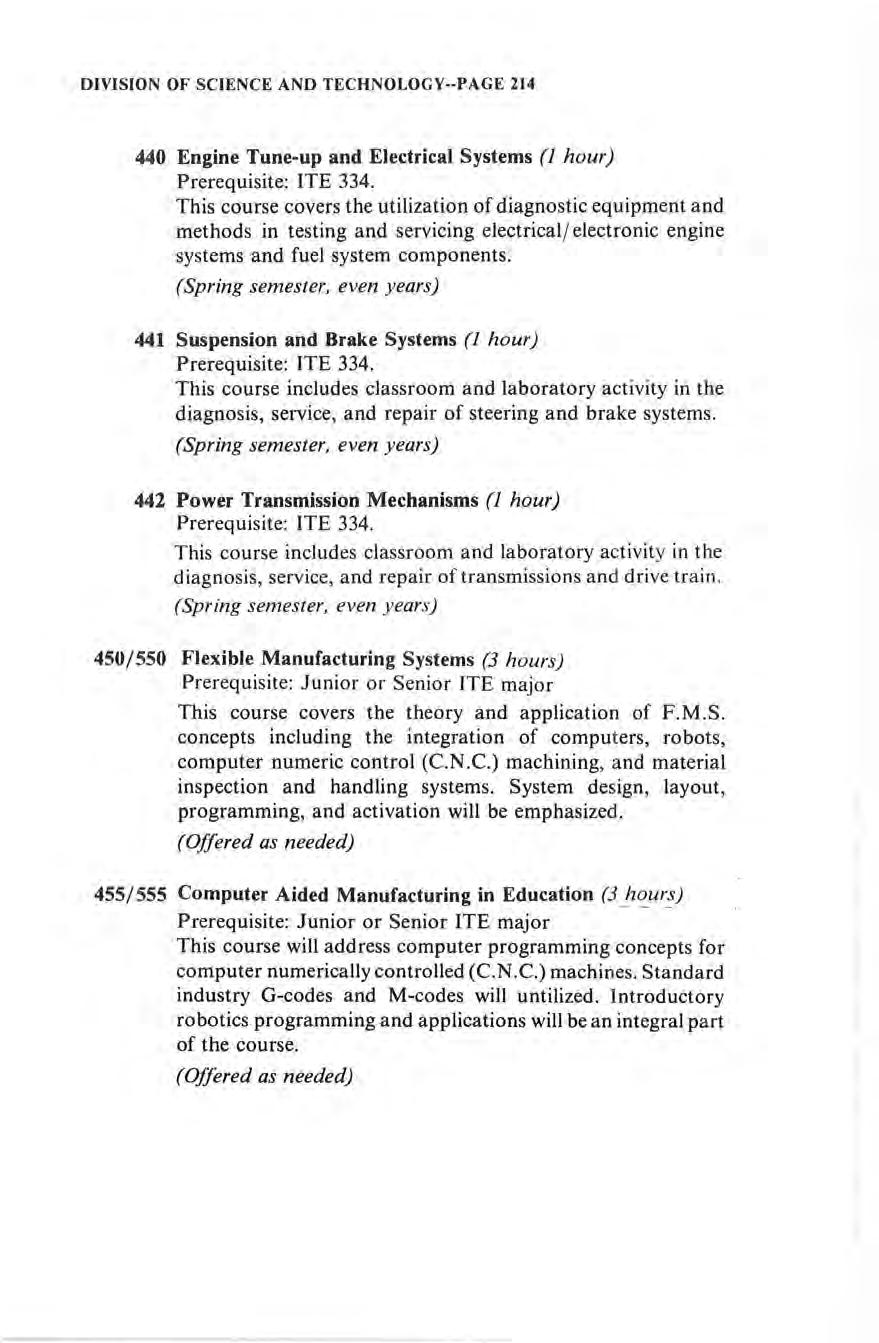
Prerequisite: Junior or Senior ITE major
This course will address computer programming concepts for computer numerically controlled (C.N.C.) machines. Standard industry G-codes and M-codes will untilized. Introductory robotics programming and applications will be an integral part of the course.
(Offered as needed)
480 Industrial Management Internship (6 hours)
Prerequisite : Junior or senior Industrial Management Technology major with approval of the Chairperson of the Science and Technology Division.
A student may enroll in six hours of credit for an approved work experience program. A minimum of 40 hours of work experience will be required for every hour of credit awarded . The learning experience is organized and supervised by the Applied Arts staff
(Offered as needed)
498 Special Topics in Industrial Technology and Education (1-4 hours)
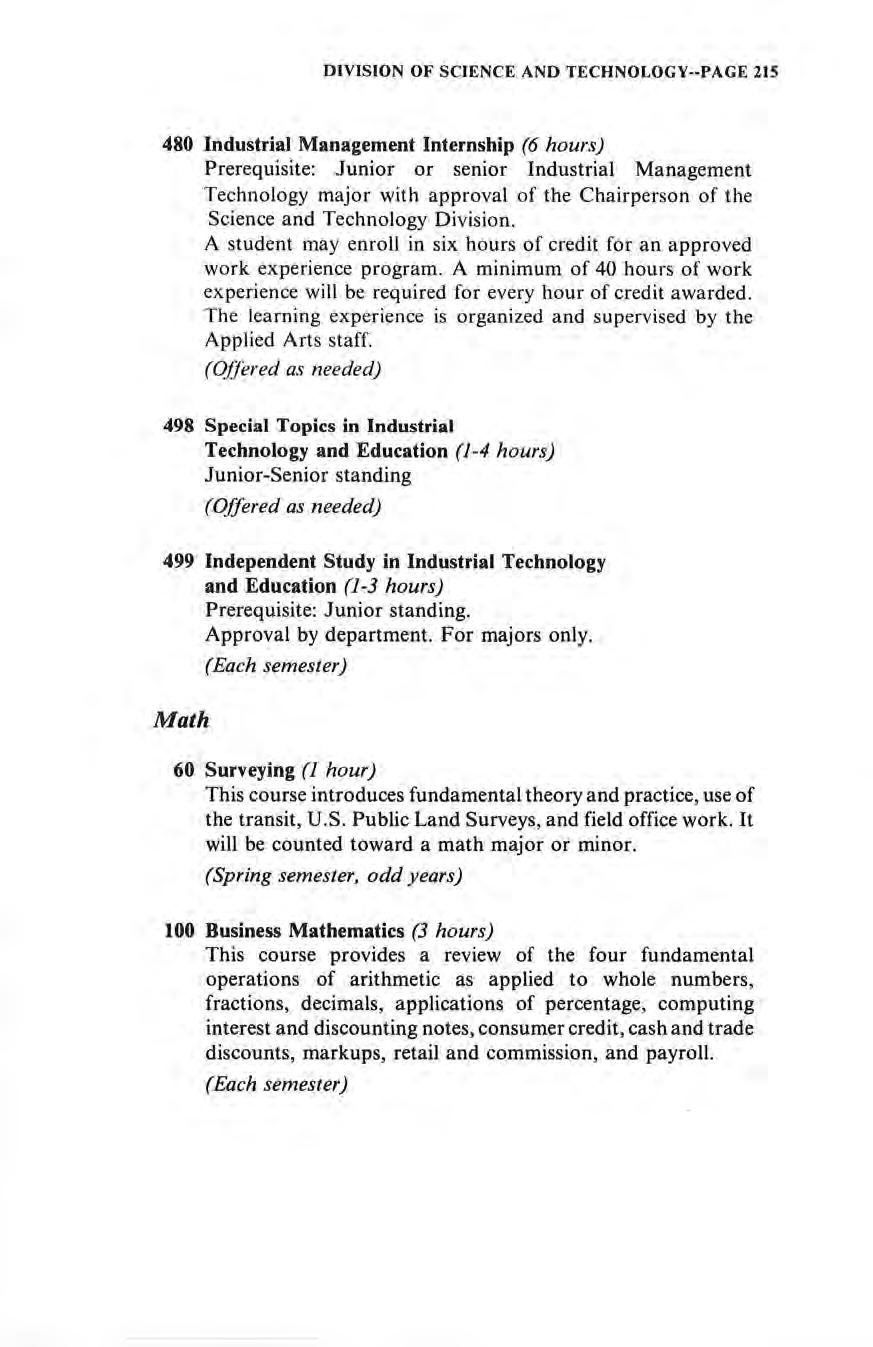
Junior-Senior standing
(Offered as needed)
499 Independent Study in Industrial Technology and Education (1-3 hours)
Prerequisite: Junior standing. Approval by department. For majors only.
(Each semester)
60 Surveying (1 hour)
This course introduces fundamental theory and practice, use of the transit, U.S. Public Land Surveys, and field office work It will be counted toward a math major or minor.
(Spring semester, odd years)
100 Business Mathematics (3 hours)
This course provides a review of the four fundamental operations of arithmetic as applied to whole numbers, fractions, decimals, applications of percentage, computing interest and discounting notes, consumer credit, cash and trade discounts, markups, retail and commission, and payroll.
(Each semester)
101 College Algebra (3 hours)
Prerequisite: One year of high school algebra. This course is for students who specifically need algebra in certain pre-professional programs. It covers fundamental algebraic principles and processes and is not to be taken for credit by students who have completed Math 125.
(Each semester)
107 Algebra / Trigonometry (4 hours)
This course is a study of basic algebraic and tr igonometric concepts with an emphasis on linear and quadrat ic equations and systems. Trigonometric concepts will be studied from the right triangle and the oblique triangle approach.
(Each Spring semester)
125 Precalculus Mathematics (5 hours)
This course is intended for students who plan t o pursue a college program requiring a substantial amount of training in mathematics. The content of the course includes an introduction to symbolic logic and set theory of applications, a study of the number system, elementary theory of groups and fields, an introduction to the function concept, and the study of algebraic exponential and logarithmic functions.
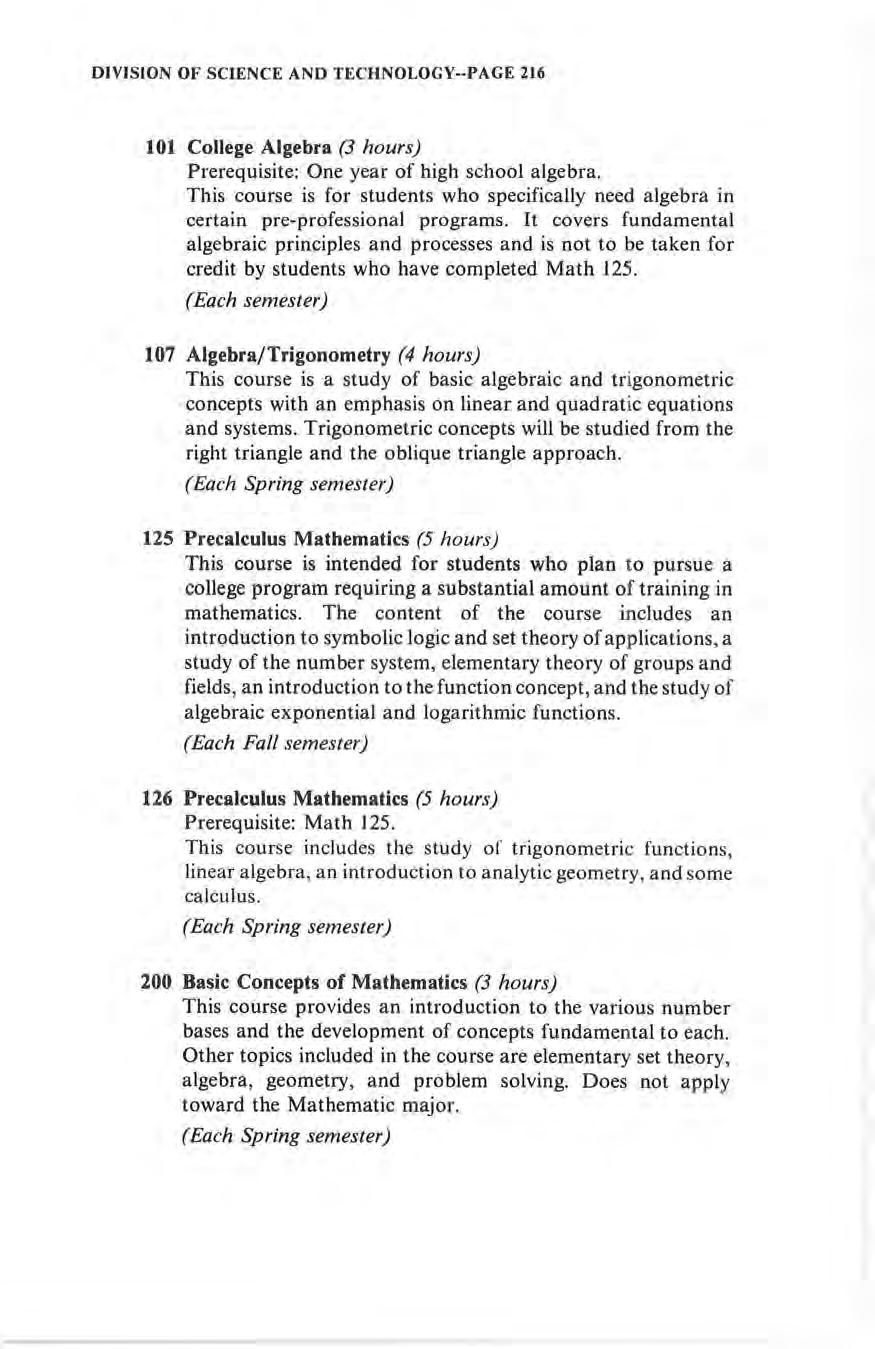
(Each Fall semester)
126 Precalculus Mathematics (5 hours)
Prerequisite: Math 125 .
This course includes the study of trigonometri c functions, linear algebra, an introduction to analytic geometry, and some calculus.
(Each Spring semester)
200 Basic Concepts of Mathematics (3 hours)
This course provides an introduction to the various number bases and the development of concepts fundamental to each. Other topics included in the course are elementary set theory, algebra, geometry, and problem solving. Does not apply toward the Mathematic major.
(Each Spring semester)
209 Business Calculus (3 hours)
Prerequisite: Math 107 and 125 or equivalent. This course introduces the theory and application of differentiation and integration to business decisions. Does not apply toward the Mathematic major.
(Each Spring semester)
298 Special Topics in Mathematics (1-4 hours) Freshman -Sophomore standing.
(Offered as needed)
304 Modern Geometry (3 hours)
Prerequisite: 10 hours of Mathematics .
This is a course designed primarily to prepare mathematics teachers for dealing with a modern high school mathematics program including the point set approach to geometry.
(Fall semester, even years)
309 Calculus with Analytic Geometry (5 hours)
Prerequisite: Math 125 and 126 or equivalent. This course includes the study of analytic geometry, functions, limits, continuity, velocity , differentiation, inverse or differentiation, second derivatives, maxima and minima, as well as other related topics.
(Each Fall semester)
310 Calculus with Analytic Geometry (5 hours)
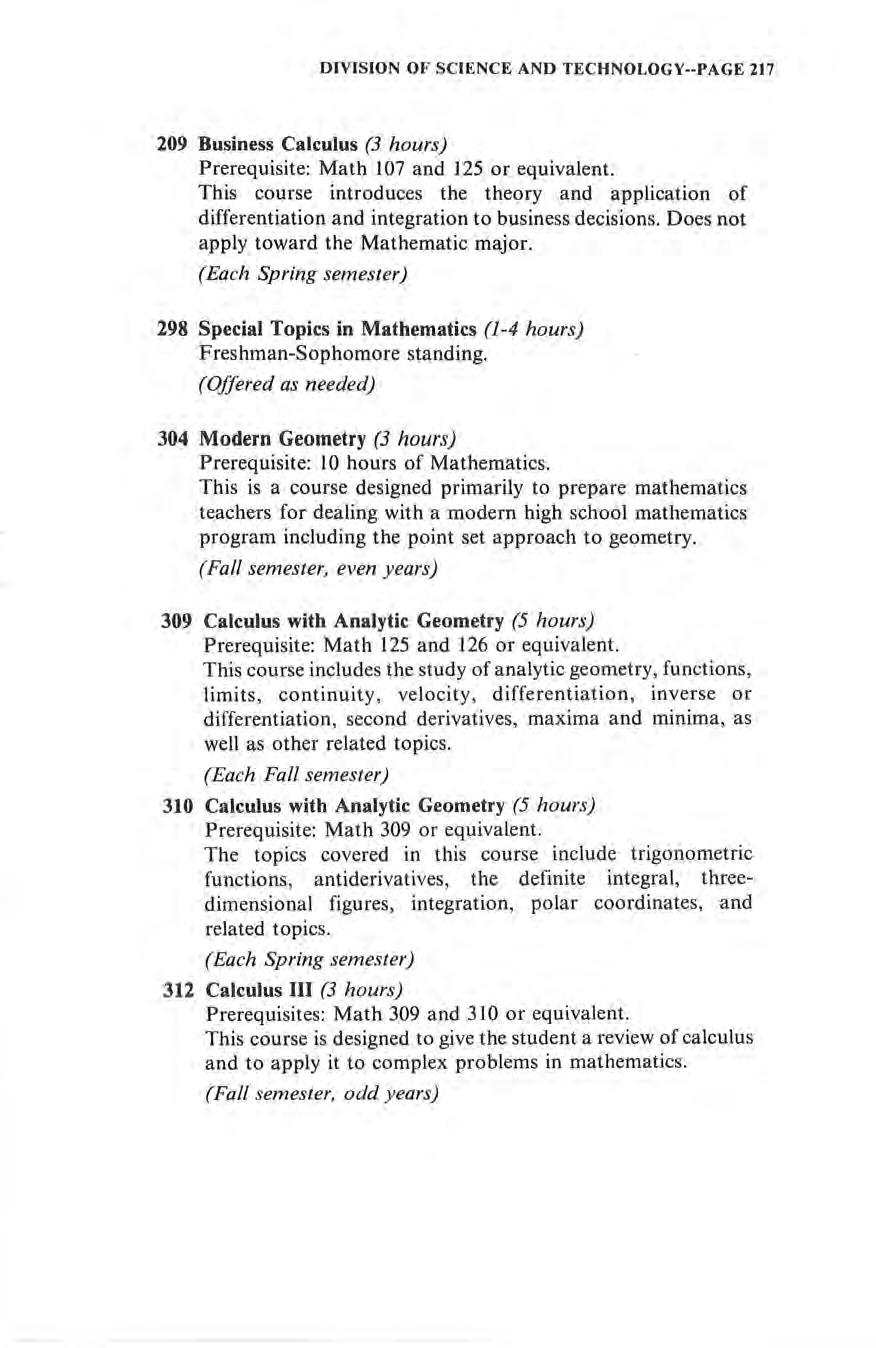
Prerequisite: Math 309 or equivalent. The topics covered in this course include trigonometric functions, antiderivatives, the definite integral , threedimensional figures , integration, polar coordinates , and related topics.
(Each Spring semester)
312 Calculus III (3 hours)
Prerequisites: Math 309 and 310 or equivalent. This course is designed to give the student a review of calculus and to apply it to complex problems in mathematics
(Fall semester, odd years)
340 Statistics (3 hours)
A study of the methods of summarizing and inter p reting data , elementary probability, and its relation to distributions . The meanings, importance, and applications of the normal and binormical distribution and the methods of random sampling , testing of hypotheses, analysis of paired data , and interpretation of standardized test scores are covered . (Each semester)
406 Modern Algebra (3 hours)
Prerequisite: IO hours of Mathematics. This course is a study of the various algebraic systems arising in modern mathematical computations. It includes a study of sets , mapping and operations, relations, development of real numbers system, integral domains and fields, polunominal domains, and complex number field. (Fall semester, even years)
418 Linear Algebra (3 hours)
The theory of linear transformation in vector spaces , the representation of linear spaces in matrices, linear functionals, and the application of these concepts are covered (Fall semester, odd years)
419 Topology (3 hours)
A modern treatment of topology with an emphasis on fundamental concepts and the principal results of homology theory, topological spaces , linear graphs, set theory, metric interpretation, and related topics. (Spring semester, even years)
430 Discrete Structures (3 hours)
Prerequisite: Math 126
A study of some of the mathematical concepts useful to the computer sciences including number systems, logic, truth tables, sets and relations, boolean algebra , logic circuits , vectors , matrices, determinants, graphs, directed g raphs, fin ite state machines, and automata.
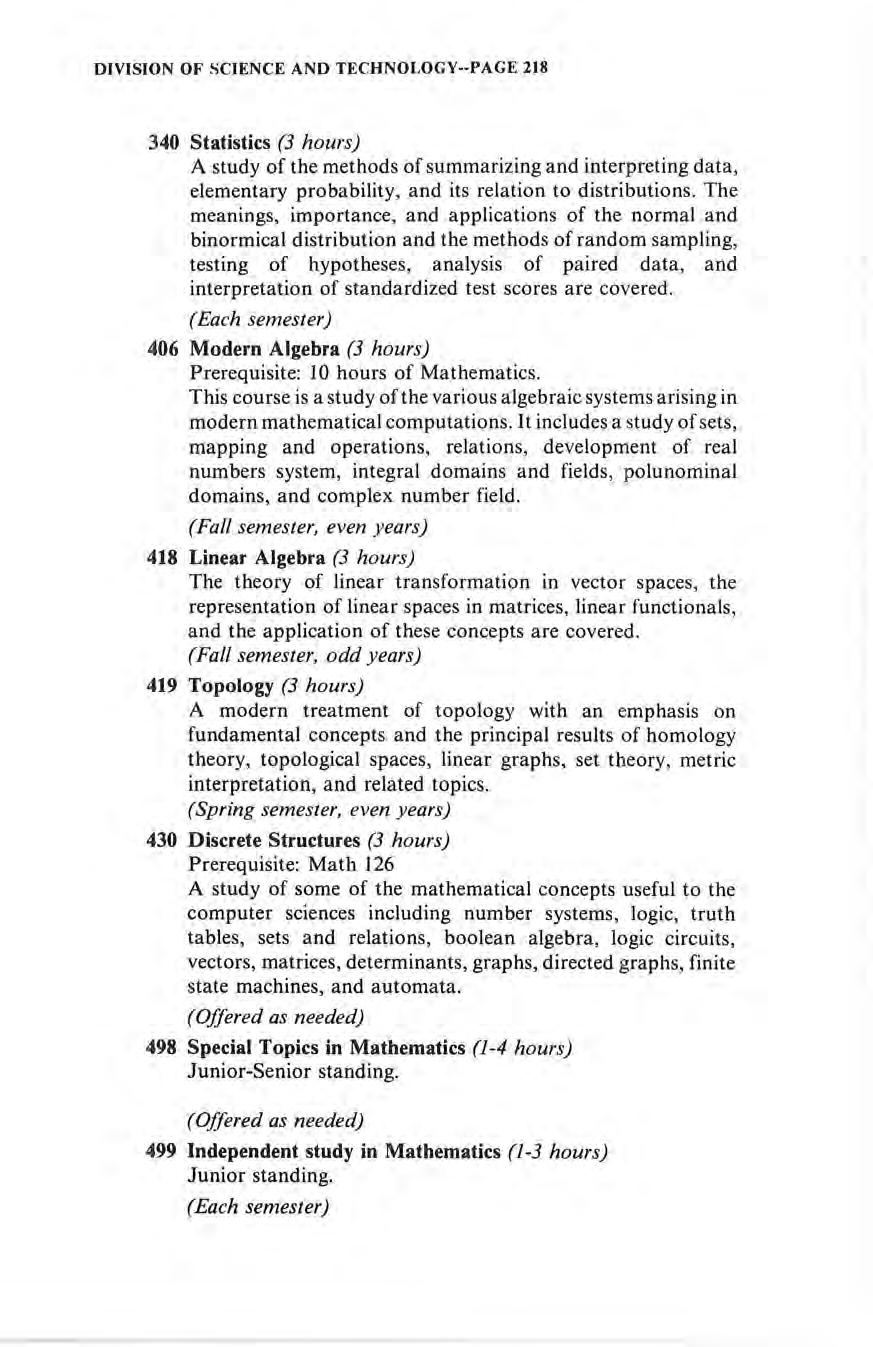
(Offered as needed)
498 Special Topics in Mathematics (1-4 hours) Junior-Senior standing.
(Offered as needed)
4 99 Independent study in Mathematics (1-3 hours) Junior standing.
(Each semester)
201 General Physics (4 hours)
The topics of mechanics, sound, and heat are included in this mathematically-based physics course. Three hours classwork, two hours laboratory.
(Fall semester, odd years)
202 General Physics (4 hours)
Prerequisite: Physics 201 or permission. The topics of light, electricity, and magnetism are included in this mathematically-based physics class. Three hours classwork, two hours laboratory.
(Spring semester, even years)
211 General Physics (Calculus) (4 hours)

Corequisite: Math 309.
A calculus based course with laboratory which includes the following topics: mechanics, kinematics, dynamics, statics, momentum and energy, wave motion, sound, thermal behavior and heat. Three hours classwork, two hours laboratory.
(Fall semester, odd years)
212 General Physics (Calculus) II (4 hours)
Prerequisite: Physics 211.
A continuation of Physics 211 with emphasis on electrostatics, current electricity, magnetism, and light. Three hours classwork, two hours laboratory.
(Spring semester, even years)
298 Special Topics in Physics (1-4 hours)
Freshman-Sophomore standing.
(Offered as needed)
306 Astronomy (3 hours)
A basic course dealing with a study of the heavenly bodies, the solar system, and the universe. Telescopic observation is a part of this course.
(Spring semester, odd years)
498 Special Topics in Physics (1-4 hours)
Junior-Senior standing.
(Offered as needed)
499 Independent Study in Physics (1-3 hours) Junior standing . (Each semester)
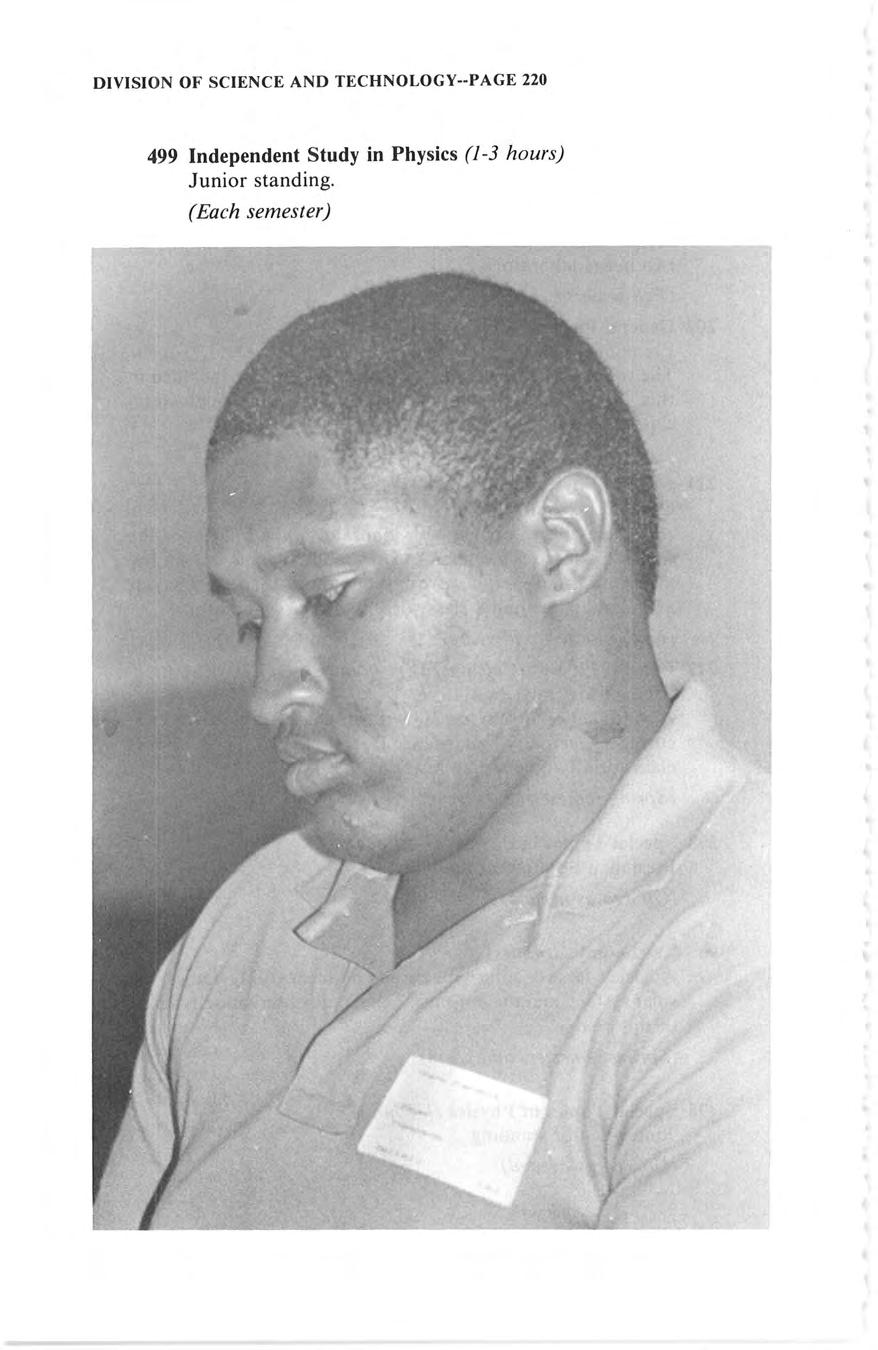
441/ History and Philosophy of Vocational Education (3 hours)
541 The origins and philosophy of vocational education and its relationship to the school curriculum are covered. This course is required for vocational certification and recommended as an elective for school administrators.
(Each Fall semester)
442/ Organization and Administration of Vocational Education

542
443/ 543
(3 hours)
This course provides a study of the principles and policies governing the adminstration of vocational educational programs in high schools, technical schools, junior colleges and adult education programs.
(Spring semester, even years)
Coordination Techniques in Vocational Education Programs
(3 hours)
This course analyzes Vocational Cooperative Programs and their relationship to the high school , junior college, and adult vocational programs. The emphasis is on the organization and superv1s1on of cooperative programs, duties and responsibilities of the coordinator, selection and placement of students, and evaluation of students, training stations and the cooperative program ..
(Spring semester, odd years)
444 Industrial Internship (1-3 hours)
This internship provides a work experience for students preparing to teach in a vocational program.The work experience includes an acceptable type of wage-earning employment in a business, manufacturing plant or processing industry approved by a qualified teacher coordinator.
(Summer sessions)
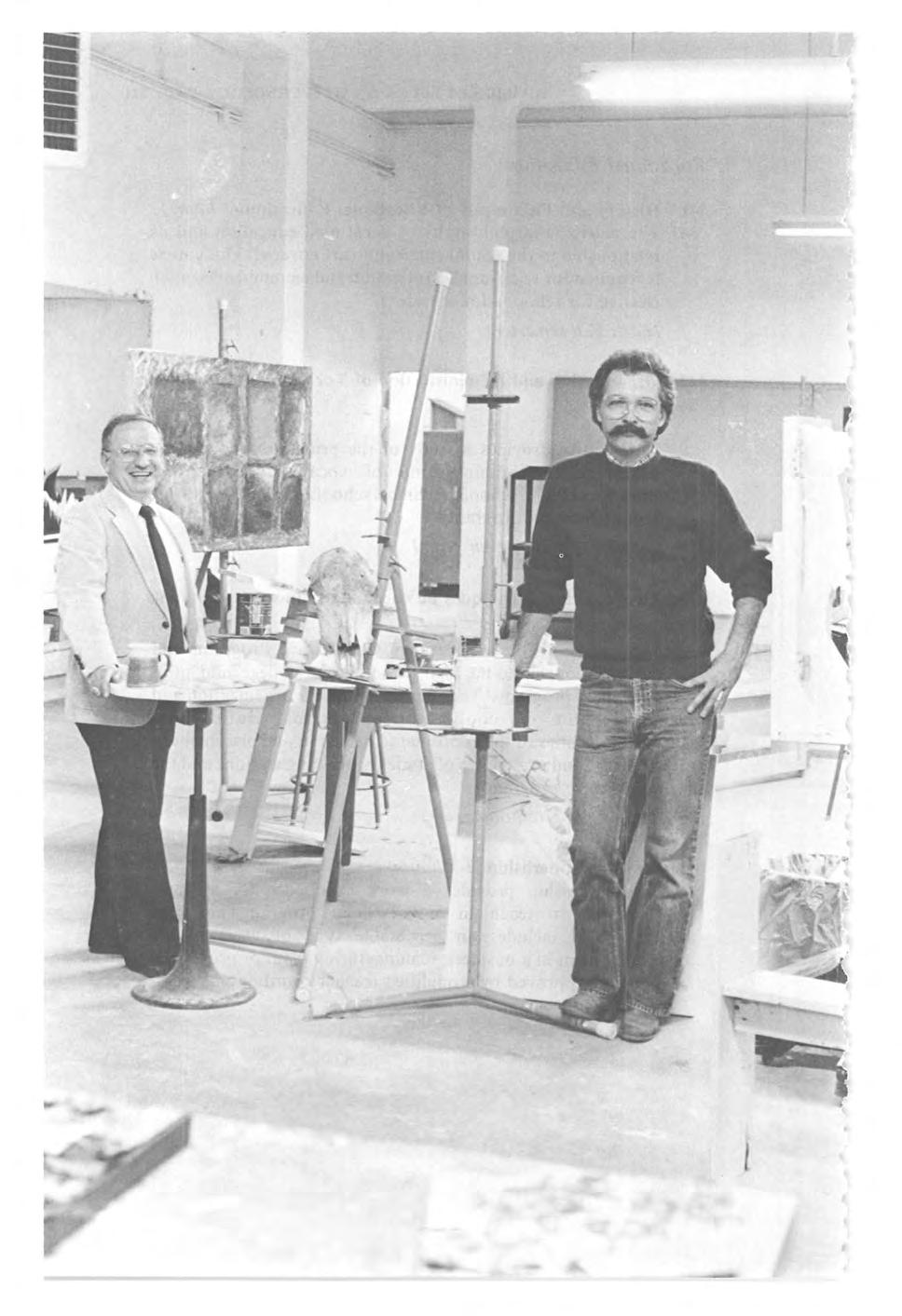
Admission to Peru State College is granted to students who have graduated from accredited Nebraska high schools and who have not previously attended college. Out-of-state students who meet the College's admissions standards are also admitted.
Peru State College accepts transfer students from other accredited colleges and universities. After the student has been admitted, an official evaluation (Progress Sheet) is completed which identifies the applicability of previous work to the student's expressed major and degree program.
A maximum of 66 semester credit hours from a vocational / technical / community college may be applied toward a degree from Peru State.
Transfer students who already have a significant amount of credit toward their major will have their transcripts reviewed by the appropriate Division Chairperson, in consultation with the Vice President, to determine if a possible 6-15 credit hours of designated coursework in the major is required. Students who seek admission and are accepted while on probation from their last college are placed on probation for one semester and are subject to all the policies of probation at the College.
Students who have been suspended from another college will not be considered for admission until the period of suspension has expired and the facts of the dismissal are provided.
Students who discontinue their attendance at Peru State during a semester and then attend another college or university before seeking readmission are classified as transfer students.
Transfer students who have previously attended Peru State are classified as transfer students and not readmitted students.
Persons who are not high school graduates but who are prepared and recommended for college level work may be admitted as special students. An aptitude for college work and the G.E.D. (General Education Development) test may be used to determine an applicant's ability and qualifications for admission.
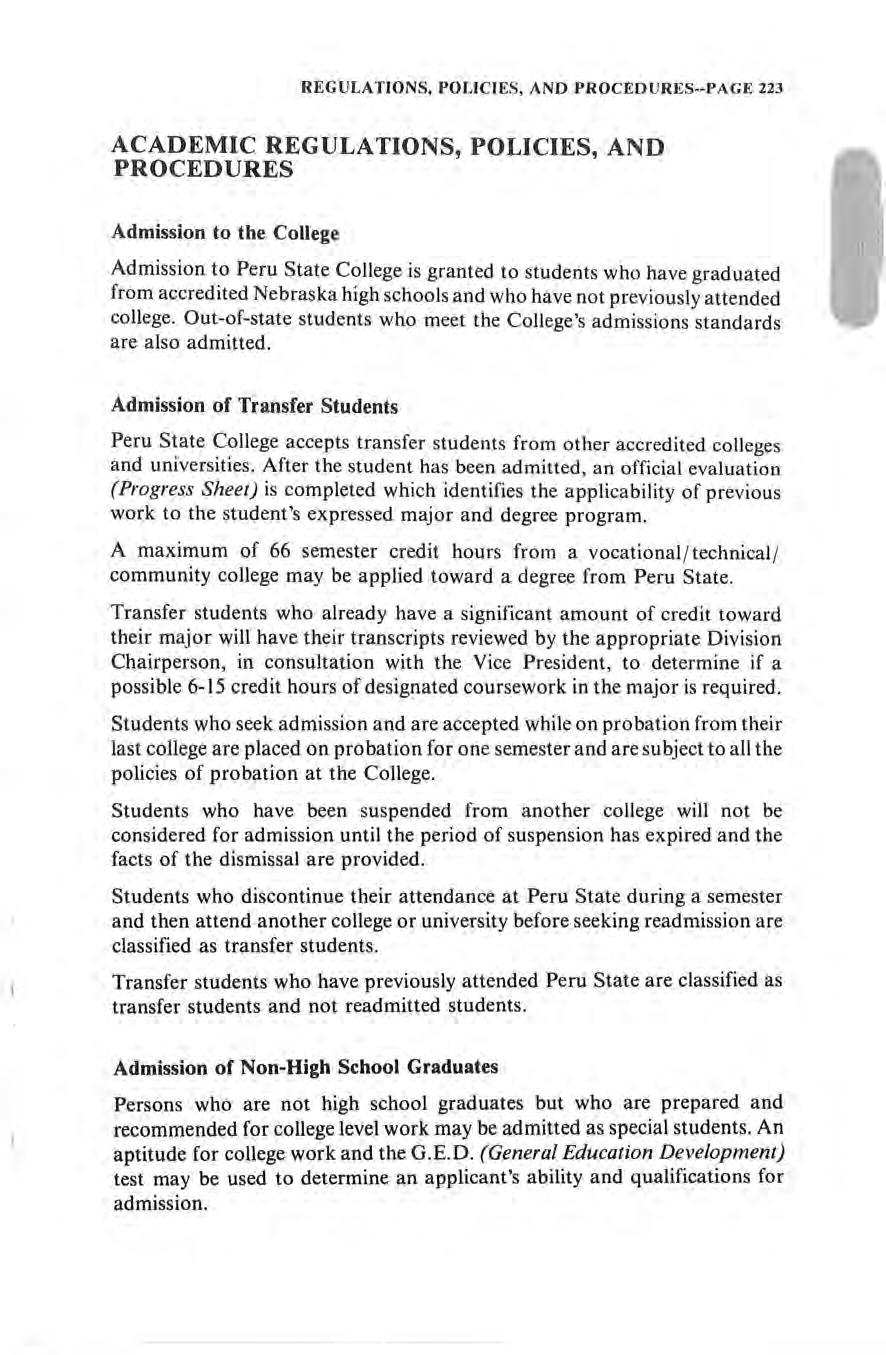
Peru State College is authorized to admit international students.
Students who seek admission to Peru State from non -accredi ted colleges must meet all the requirements of a first time student. Each application must be accompanied by an official transcript of all previous college work. The credits earned at non-accredited institutions will be accepted provisionally and validated upon the satisfactory completion of 30 semester credit hours at Peru State. Satisfactory completion is defined as a cumulat ive grade point average of 2.00 or higher .
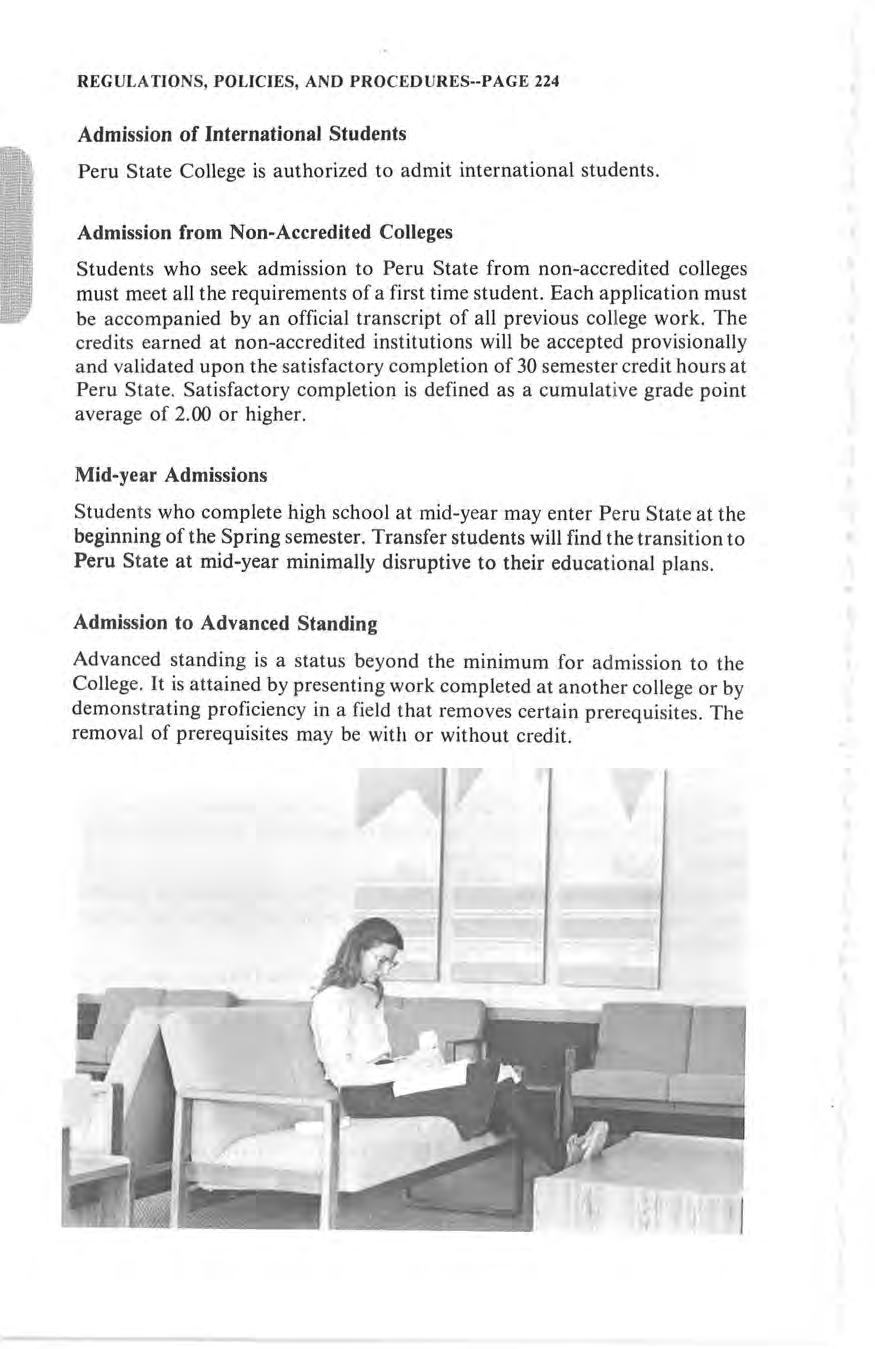
Students who complete high school at mid-year may enter Peru State at the beginning of the Spring semester. Transfer students will find the transition to Peru State at mid-year minimally disruptive to their educational plans.
Advanced standing is a status beyond the minimum for admission to the College. It is attained by presenting work completed at another college or by demonstrating proficiency in a field that removes certain prerequisites. The removal of prerequisites may be with or without credit.
All undergraduate students who have previously attended Peru State and were admitted to an academic program, students who withdrew during a semester or discontinued their studies for a semester or more (summer session excluded), and all post-graduates seeking an additional academic program must apply to the Office of Admissions for readmission. Students suspended for academic or social reasons must also re-apply to the Office of Admissions. Students art> generally readmitted for the semester or summer term they wish, provided they left the College in good standing.
Studen ts who interrupted their studies and who were on academic probation will generally be readmitted for the semester or summer term they wish, provided they are in good standing throughout the College.
Students who are academically suspended will not be considered for
readmission for two semesters (summer session excluded).
Previously suspended students who are readmitted will generally be subject tol_ permanent suspension if they are suspended a second time.
Students readmitted following academic suspension must maintain an average of 2.0 or higher for the re-entry term and for each successive term until the required cumulative grade poiift ) average of 2.0 has been achieved. Failure to meet the above conditions wilf result in academic suspension. A student who has been suspended twice is generally not considered for readmission.
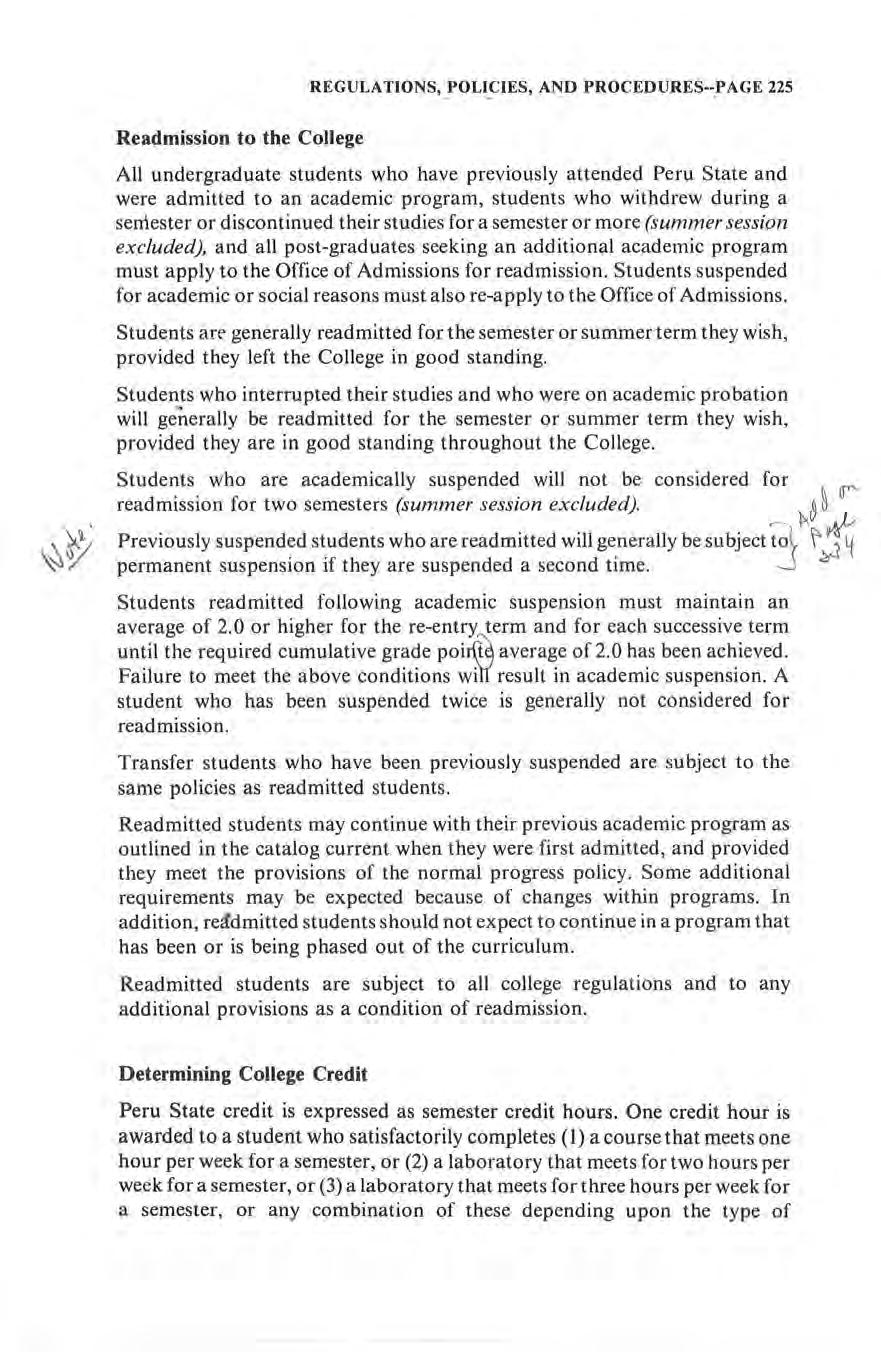
Transfer students who have been previously suspended are subject to the same policies as readmitted students.
Readmitted students may continue with their previous academic program as outlined in the catalog current when they were first admitted, and provided they meet the provisions of the normal progress policy. Some additional requirements may be expected because of changes within programs. In addition, readmitted students should not expect to continue in a program that has been or is being phased out of the curriculum .
Readmitted students are subject to all college regulations and to any :;tdditional provisions as a condition of readmission.
Peru State credit is expressed as semester credit hours . One credit hour is awarded to a student who satisfactorily completes (1) a course that meets one hour per week for a semester, or (2) a laboratory that meets for two hours per week for a semester, or (3) a laboratory that meets for three hours per week for a semester , or any combination of these depending upon the type of
instruction and material covered in the course. Credit for internships, student teaching, and other instructional formats is determined using other appropriate standards.
Peru State College accepts credit hours successfully completed at other accredited colleges and universiti es provided they are reported on the official transcript of each previously attended insitution and in credit hours. T his policy also applies to Peru State College students who earn credits on an interim basis at another college and provided they have the prior approval of the appropriate Division Chairperson. The required forms for reporting transfer credi ts are available at the Registrar's Office.

Veterans of the armed forces who are honorably discharged will generally be granted credit for their military experience in accordance with the recommendations of the American Council on Education.
Students may earn college credit for experiences and accomplishments attained outside of the normal college setting. Credit may be granted through standardized examination programs or the credit recommendations of the Guide to the Evaluation of Educational Experiences in the Armed Services and The National Guide to Educational Credit for Training Programs.
The College's general policy for awarding credit for extra-institutional learning is:
I. Only individuals who have not participated in scheduled coursework are eligible to receive extra-institutional credit.
2. Extra-institutional credits are considered transfered credits and are subject to the same policies as other transfer credits.
3. A maximum of 66 semester credit hours earned through extrainstitutional validation may be applied to the 125 se mester hour minimum required for a bachelor's degree, unless otherwise specified.
4. Credit b y examination may be earned only once in a single subject. A similar subject test in another t es ting program will not earn additional credits
Students may earn credit in low er division courses by successfu lly passing comprehensive, written institutional examinations. To do so, students must register for the course, pay the tuition charges, and satisfy a faculty committee that their formal or informal experiences may have met the courses's content. A copy of the examination must be on file in the Vice President's office prior to giving the exam
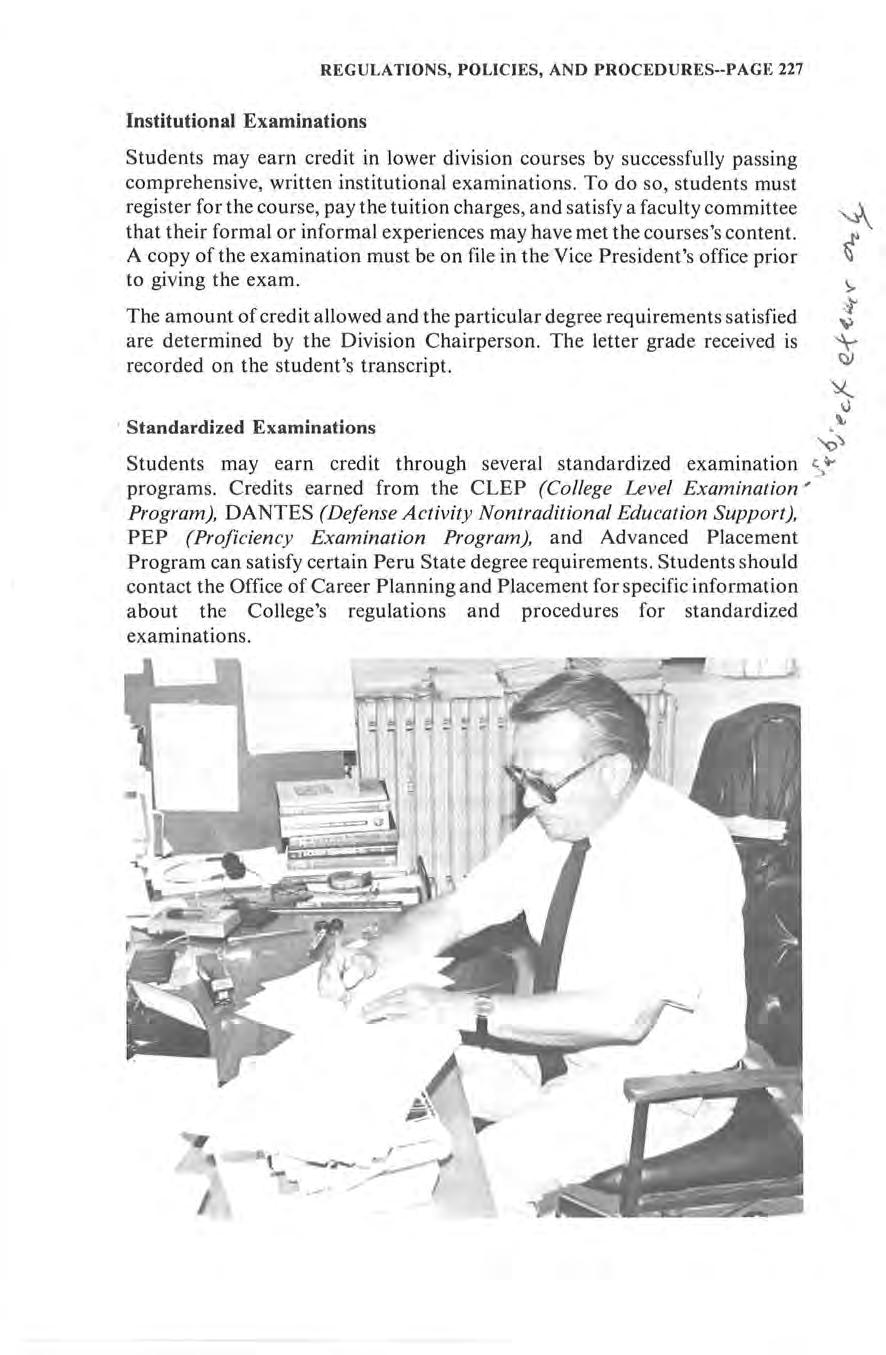
The amount of credit a ll owed and the particular degree requirements satisfied are determined by the Division Cha irperson . The letter grade received is recorded on the student's transcript.
· Standardized Examinations •" '-Q')
Students may earn credit through several standardized examination ':,:;, programs. Credits earned from the CLEP (College Leve l Examination 'Program), DANTES (Defense Activity Nontraditional Education Support), PEP (Proficiency Examination Program), and Advanced Placement Program can satisfy certain Peru State degree requirements. Students shou ld contact the Office of Career Planning and Placement for specific information about the College's regu lations and procedures for standardized examinations.
In high schools where Peru State has a formal early entry agreement, the principal will decide which students are qualified to take college courses.
High school students who have not completed their junior year and wish to enroll in a Peru State credit course must have the recommendation of their principal and the approval of the College's Vice President before enrolling Any hig h school student approved to register for a college credit course will have the appropriate information compiled on a college transcript.
Independent study courses are available in nearly every subje c t area and are number ed 499. They require at least junior standing and are only for students who are capable of independent research, work, or study. An Independent Study is a carefully crafted learning activity with specific objectives and method s of evaluation developed in consultation with a faculty member. The following regulations apply to independent study courses :
1. No more than six hour s oflndependent Study may be counted toward a deg ree.
2. No more than three hours of Independent Study may be taken each semester.
3. Independent study courses should not be used to replace required courses. In hardship cases, the final decision will be made by the Division Chairperson of the course affected.
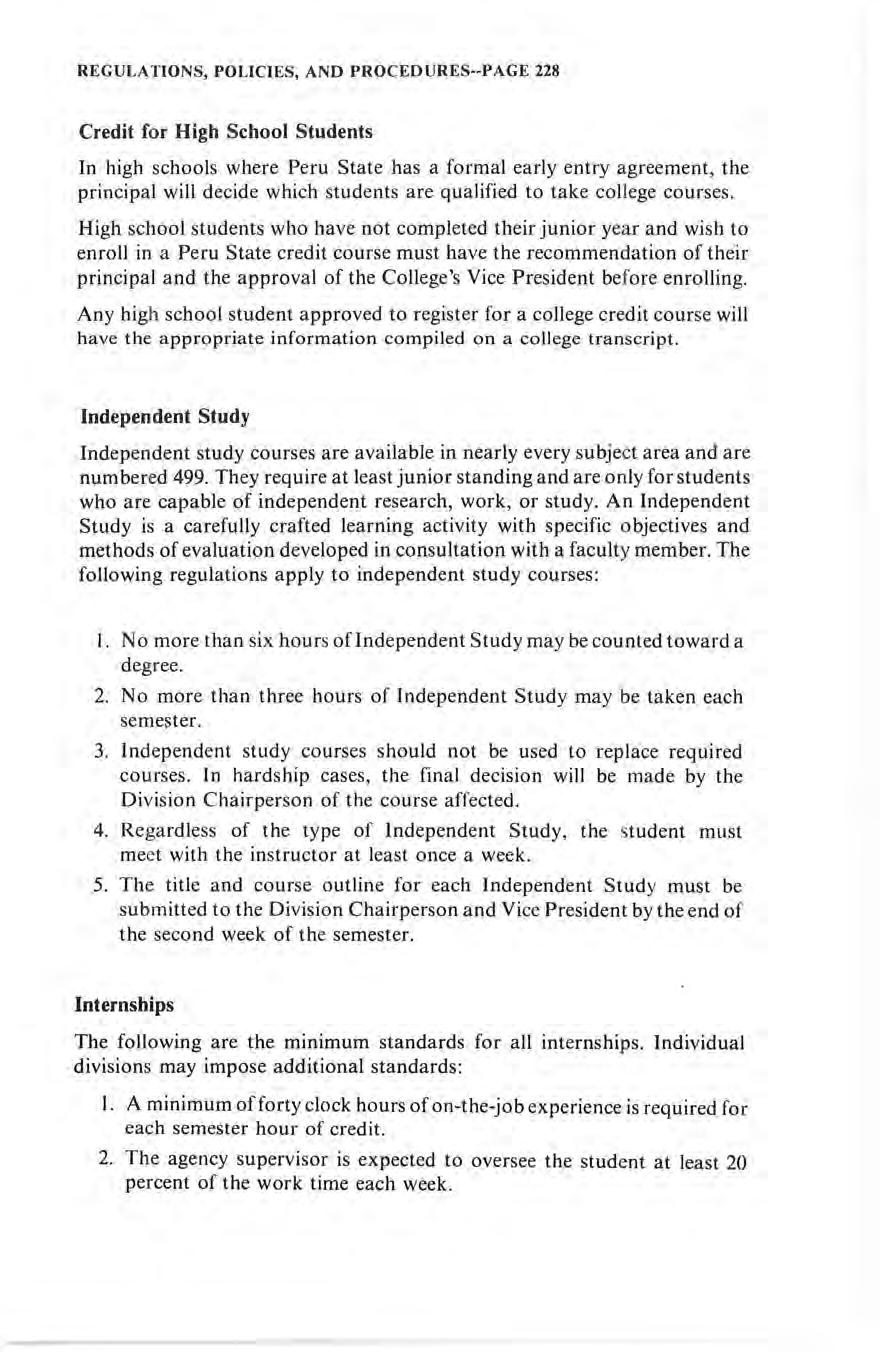
4 . Regardless of the type of Independent Study, the s tudent must meet with the instructor at least once a week.
5 The title and course outline for each Independent Study must be submitted to the Division Chairperson and Vice President by the end of the second week of the semester.
The following are the minimum standards for all internships . Individual division s may impose additional standards:
I. A minimum of forty clock hours of on-the-job experience is required for each semester hour of credit.
2. The agency supervisor is expected to oversee the student at least 20 percent of the work time each week.
3. The college supervisor is to observe a student a minimum of one clock hour for each semester hour.
4. No direct classroom time is specified for internships .
Private instruction is available in music . Music students receive private instruction without charge as part of their major. Other students pay the rate per session listed in the Expenses and Financial Aid section of the catalog.
Peru State offeres televised courses for credit on a state-wide basis. The courses count as resident credit and are offered in the Fall, Spring, and Summer terms. For current information on televised course offerings , contact the Office of Continuing Education
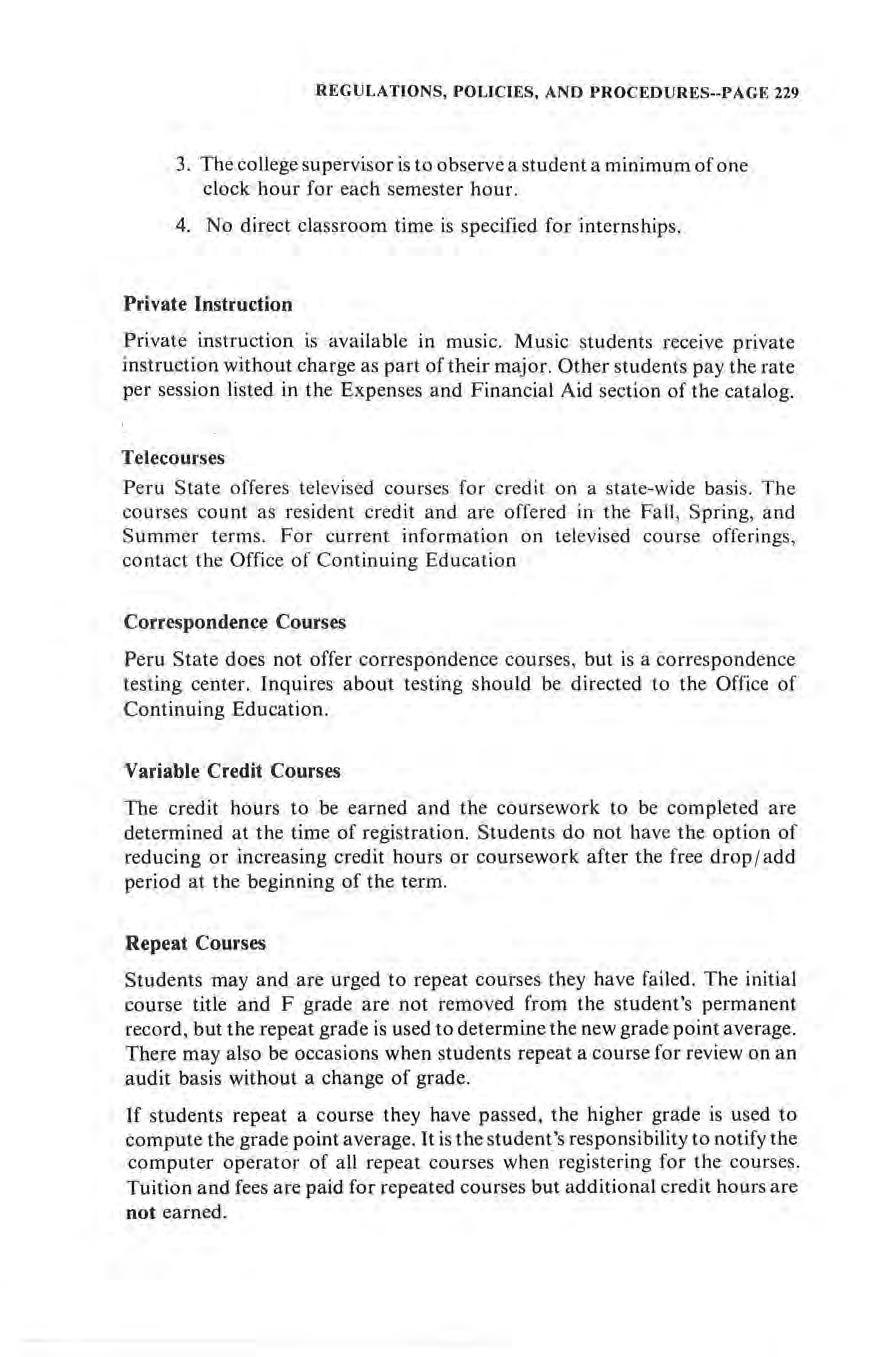
Peru State does not offer correspondence courses , but is a correspondence testing center. Inquires about testing should be directed to the Office of Continuing Education.
The credit hours to be earned and the coursework to be completed are determined at the time of registration. Students do not have the option of reducing or increasing credit hours or coursework after the free drop / add period at the beginning of the term.
Students may and are urged to repeat courses they have failed. The initial course title and F grade are not removed from the student's permanent record, but the repeat grade is used to determine the new grade point average. There may also be occasions when students repeat a course for review on an audit basis without a change of grade.
If students repeat a course they have passed, the higher grade is used to compute the grade point average. It is the student's responsibility to notify the computer operator of all repeat courses when . registering for the courses. Tuition and fees are paid for repeated courses but additional credit hours are not earned.
Registration to audit a course implies no credit. The student pays the regular tuition and fee charges but is not required to write tests , examinations, and / or papers. No grade is given in audited courses nor can credit be given at a later date.
Incomplete coursework may be completed through the instructor to earn a passing grade. This must be done within the next semester whether the student is in attendance or not or the record will show an F This policy does not apply to students who have filed an application for graduation.
Students are classified according to the number of semester credit hours earned:
Post-graduate students have earned a bachelor's degree or higher and are earning additional undergraduate credit.
Non-degree students are qualified persons who are enrolled primarily to satisfy an occupational need or personal interest.
Academic progress sheets guide and record a student's progress to graduation and are maintained by the Registrar and student. The sheets are normally issued during the second semester of attendance for freshman; transfer students' sheets are initiated as soon as possible following full admission to the College.
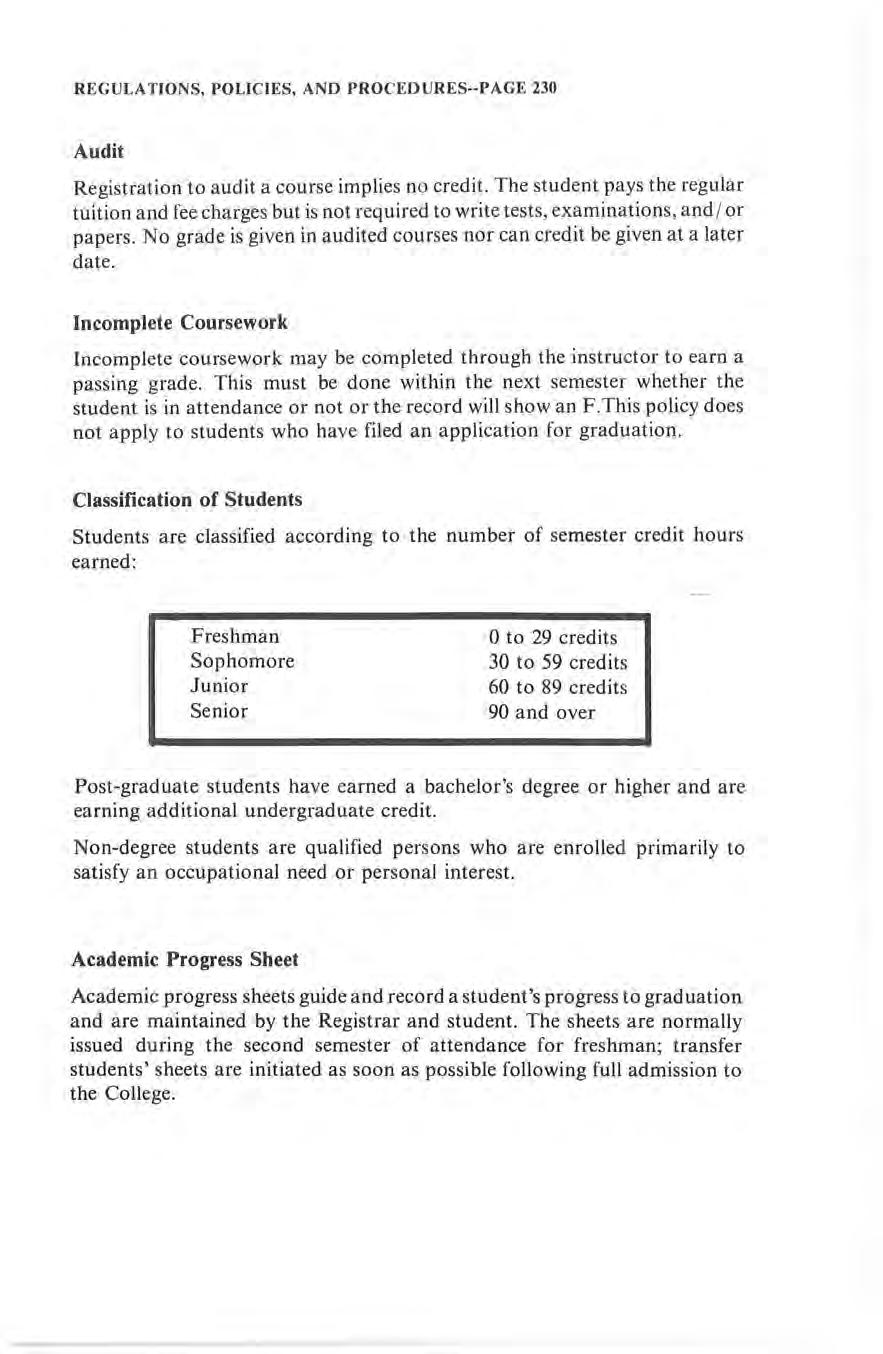
Students who are enrolled for 12 credit hours or more during a semester are considered full-time students. However, the normal course load for a student who expects to complete a bachelor's degree within eight semesters (4 years) is 15-16 hours. The maximum load without special permission is 17 hours; more than 17 hours requires the approval of the Chairperson of the division in which the student is majoring. The Registrar may approve 18 credit hours provided the student obtained a minimum 3.5 grade point average the previous semester. The maximum credit hour load is 21 and may not be exceeded.
Veterans and other eligible persons attending Peru State under the benefits of Chapter 34 and 35, Title 38, U .S.C., as full-time students must be enrolled for at least 12 semester hours , or the equivalent.
Courses at these sites are scheduled on an eight week cycle. The academic load for an eight week session is:
For each eight week session when students are not registered for student teaching, they may register for a maximum of 12 semester credit hours with Peru State. The 12 hours include any independent study courses.
For the eight week session when students are registered for student teaching, they may register for a maximum of 11 hours with Peru State. The 11 hours include any independent study courses.
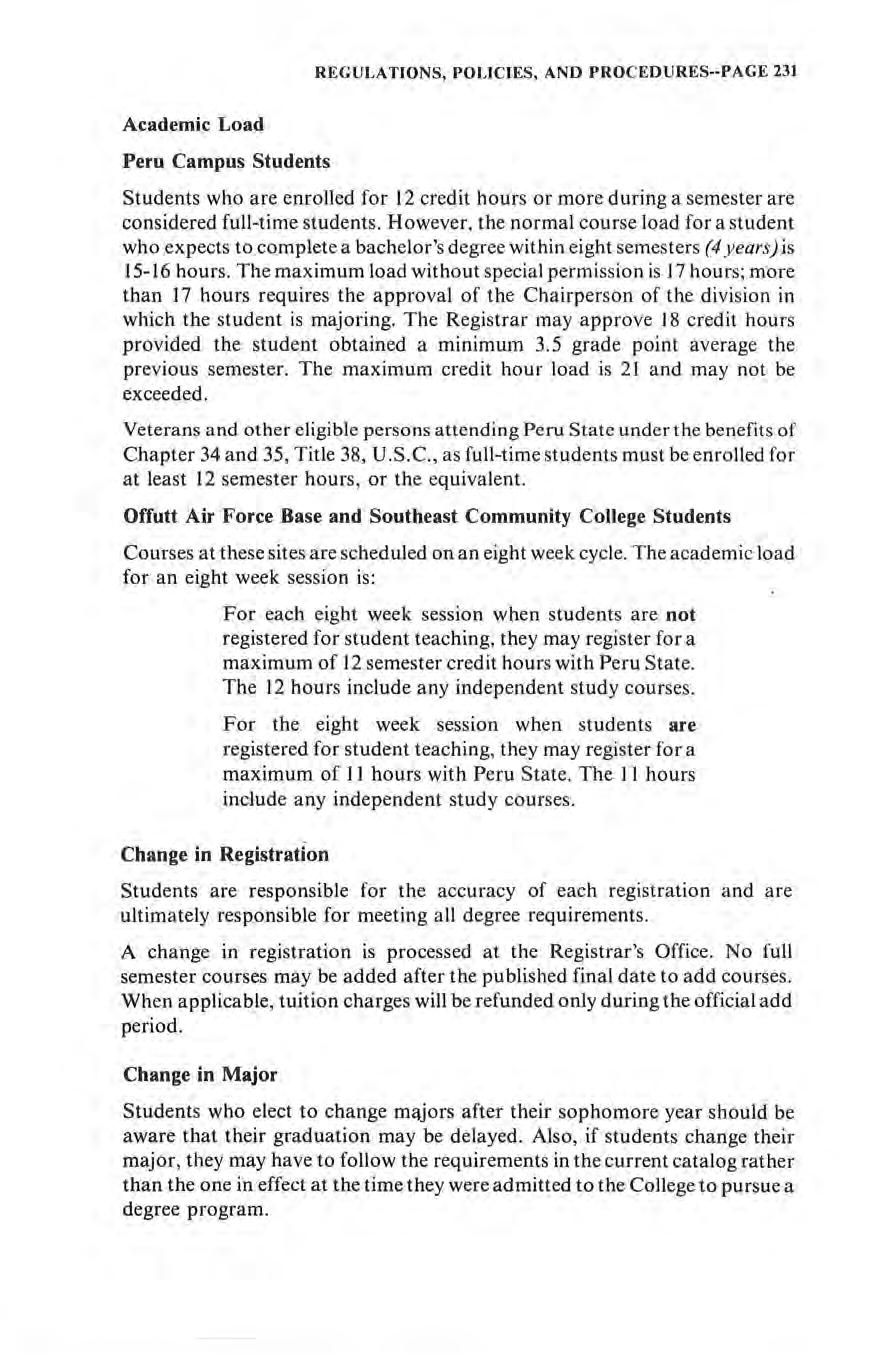
Students are responsible for the accuracy of each registration and are ultimately responsible for meeting all degree requirements.
A change in registration is processed at the Registrar's Office . No full semester courses may be added after the published final date to add courses. When applicable, tuition charges will be refunded only during the official add period.
Students who elect to change mlljors after their sophomore year should be aware that their graduation may be delayed. Also, if students change their major, they may have to follow the requirements in the current catalog rather than the one in effect at the time they were admitted to the College to pursue a degree program.
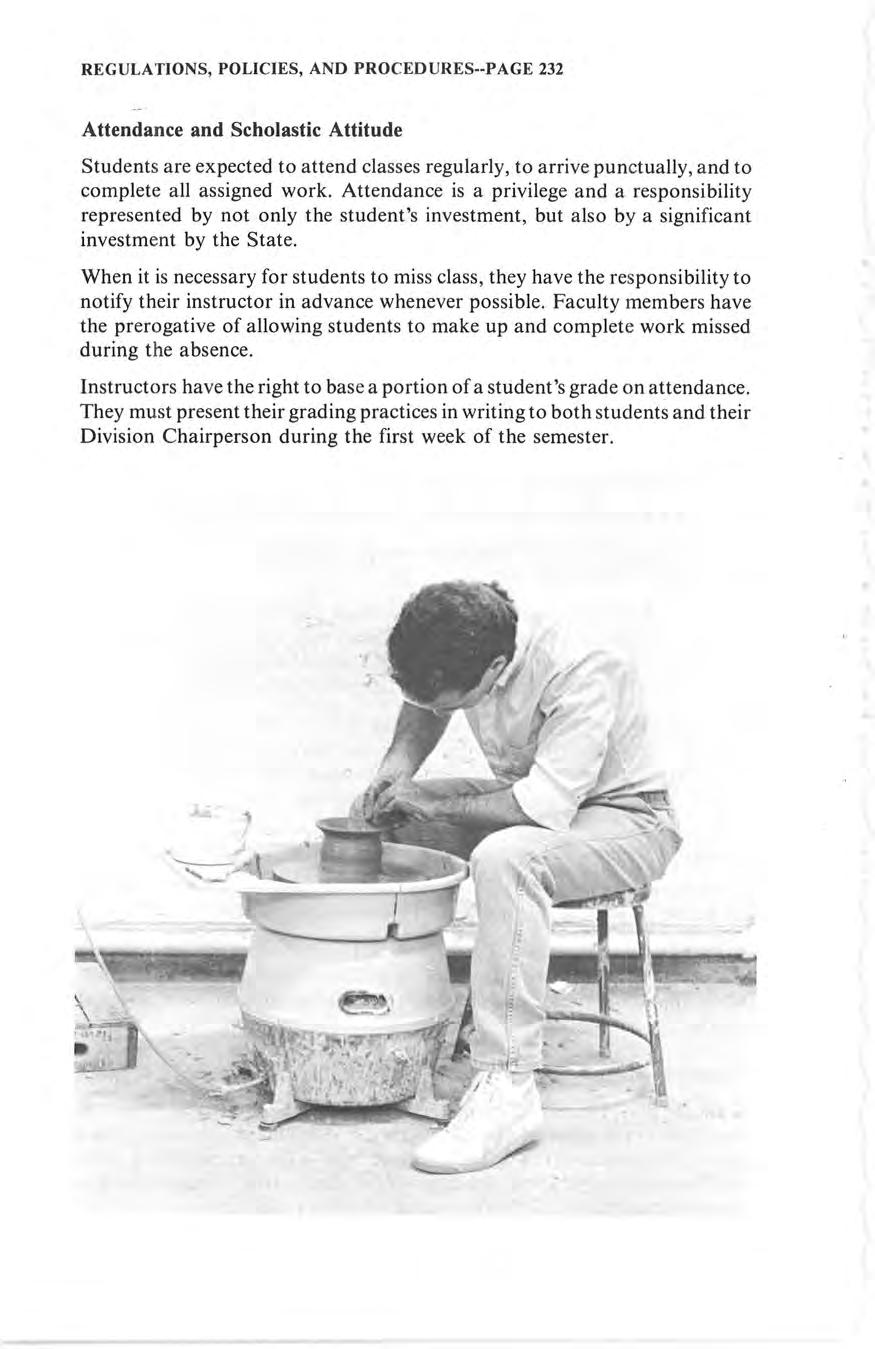
Student s are expected to attend classes regularly, to arrive punctually, and to complete all assigned work. Attendance is a privilege and a responsibility represented by not only the student's investment, but also by a significant investment by the State.
When it is necessary for students to miss class, they have the re s ponsibility to notify their instructor in advance whenever possible. Faculty members have the prerogative of allowing students to make up and complete work missed during the absence.
Instructors have the right to base a portion of a student's grade on attendance. They must present their grading practices in writing to both students and their Division Chairperson during the first week of the semester.
CR and NCR do not affect grade point average; CR is applicable to graduation hours.
X work must be completed within the next semester or the record will show an F. Work is to be completed whether the student is in attendance or not.
Each student's academic progress is reviewed after six weeks of the semsester and a report of low or failing grades is sent to the student prior to the midpoint of the term. Students who receive this report should immediately confer with their instructors, advisors, and / or the Dean of Student Affairs.
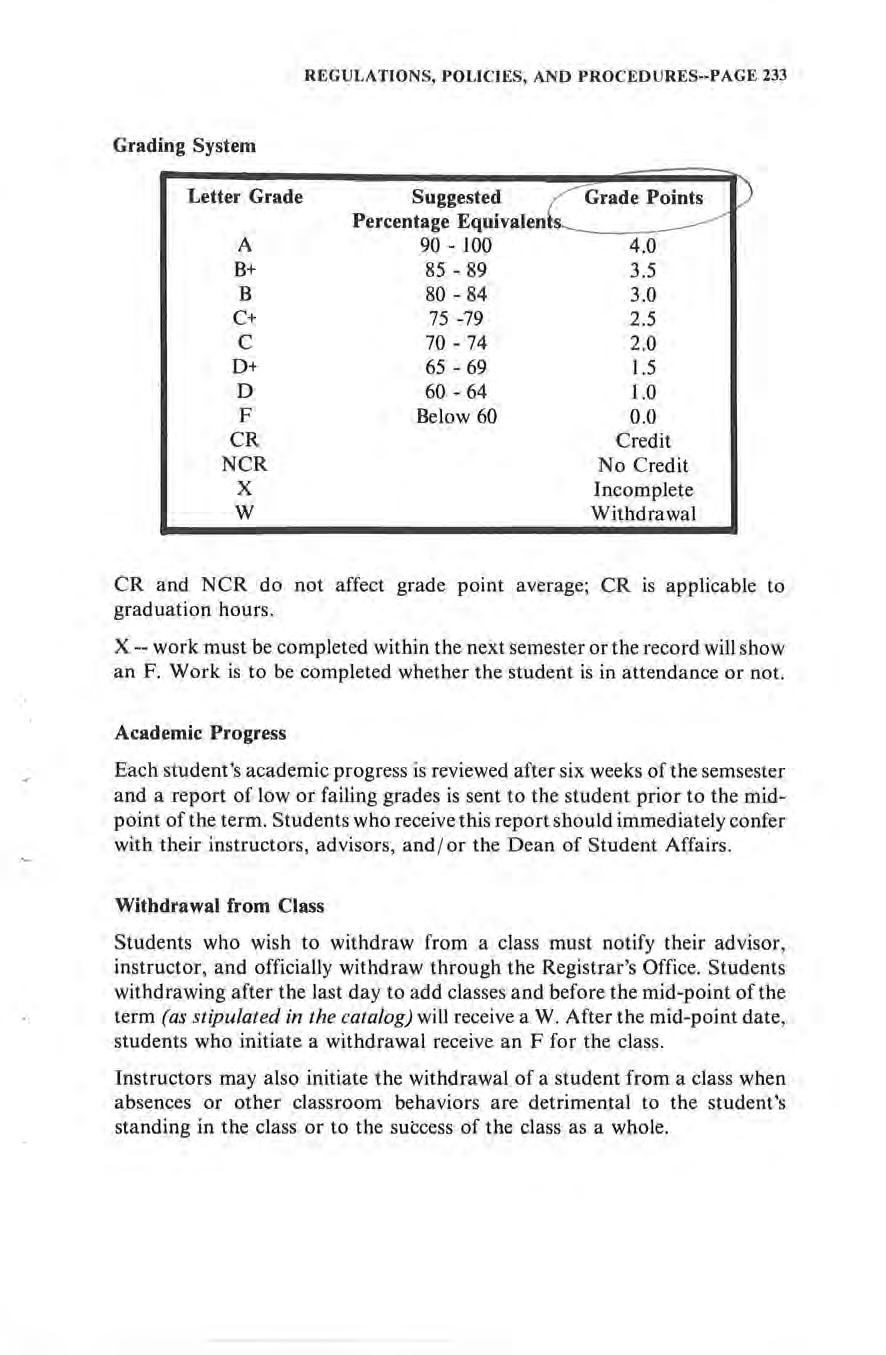
Students who wish to withdraw from a class must notify their advisor, instructor, and officially withdraw through the Registrar's Office. Students withdrawing after the last day to add classes and before the mid-point of the term (as stipulated in the catalog) will receive a W. After the mid-point date, students who initiate a withdrawal receive an F for the class.
Instructors may also initiate the withdrawal of a student from a class when absences or other classroom behaviors are detrimental to the student's standing in the class or to the success of the class as a whole.
Students who wish to withdraw from the College must initiate their withdrawal with the Dean of Student Affairs and complete all the appropriate paperwork . Proportional tuition refunds are made in accordance with the refund schedule (see the Expenses and Financial Aid section) to students who officially withdraw from the College.
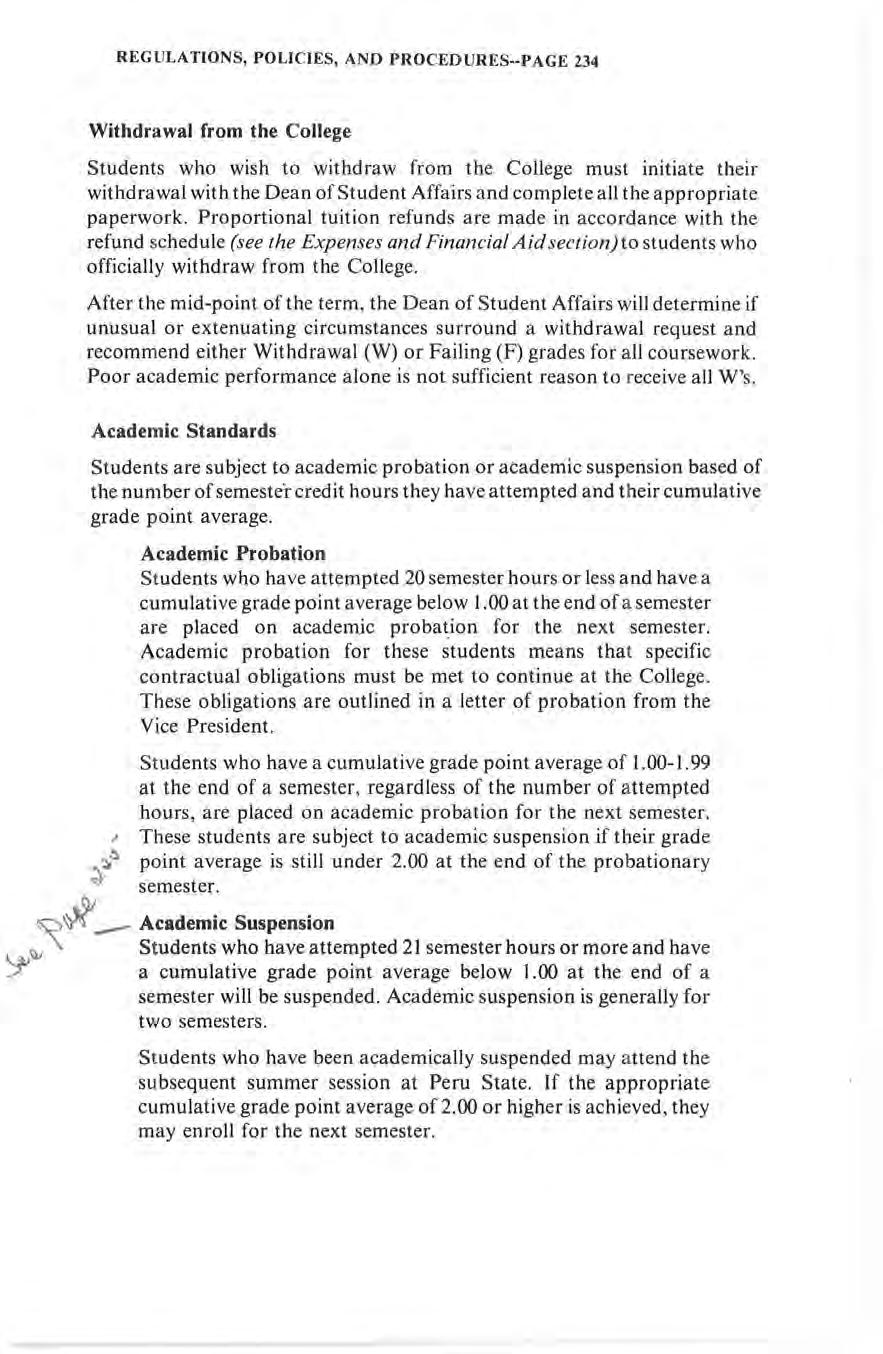
After the mid-point of the term, the Dean of Student Affairs will determine if unusual or extenuating circumstances surround a withdrawal request and recommend either Withdrawal (W) or Failing (F) grades for a ll coursework. Poor academic performance alone is not sufficient reason to r eceive all W's .
Students are subject to academic probation or academic suspension based of the number of semeste r credit hours they have attempted and their cumulative grade point average.
Students who have attempted 20 semester hours or less and have a cumulative grade point average below 1.00 at the end of a semester are placed on academic probation for the next semester. Academic probation for these students means tha t specific contractual obligations must be met to continue at the College These obligations are outlined in a letter of probation from the Vice President.
S t udents who have a cumulative grade point average of 1.00-1. 99 at the end of a semester , regardless of the number of atte mpted hours , are placed on academic probation for the next semester. These students are subject to academic suspension if their grade point average is still under 2.00 at the end of the probationary semester.
S t udents who have attempted 21 semester hours or more and hav e
a cumulative grade point average below 1.00 at the end of a semester will be suspended. Academic suspension is generally for two semesters.
Students who have been academically suspended may a ttend the subsequent summer session at Peru State. If the appropriate cumulative grade point average of 2.00 or higher is achieved , the y may enroll for the next semester.
Fina l exams are scheduled the last week of the semester. Coaches are not to schedu le regular games or events during this week. However, they may enter their teams in N AIA approved playoffs in which the College has declared an intention to participate if qualified. Students who participate in playoff events during finals week are still subject to the attendance policies of their instructors.
The academic community considers the utterances and origina l ideas of an individua l to be the property of that individual. Plagiarism is the theft of such property. It is the usage of spec ifi c words and vocabulary, or a paraphrase thereof without acknowledging their origin or source. This definition includes but is not restricted to theft from a published, printed, or oral source, or the use of purchased or borrowed papers. Copying during an examination and the use of illicit memoranda (e.g. "crib notes") during an examination constitutes cheating.

Students who wish to appeal an academic decision made by the Co ll ege may petition the Academic Affairs Commission. The appeal is submitted in writing to the Vice President and shou ld clearly and specifically state the grounds for the appeal.
At the end of each semester, the Vice President publishes the Academic Honors List. Students on the Academic Honors List must have a grade point average of 3. 75 or higher for the semester , have completed at least 12 hours (credit/no credit not included), have no incomplete grades for the semester , and have no "holds" on their academic records.
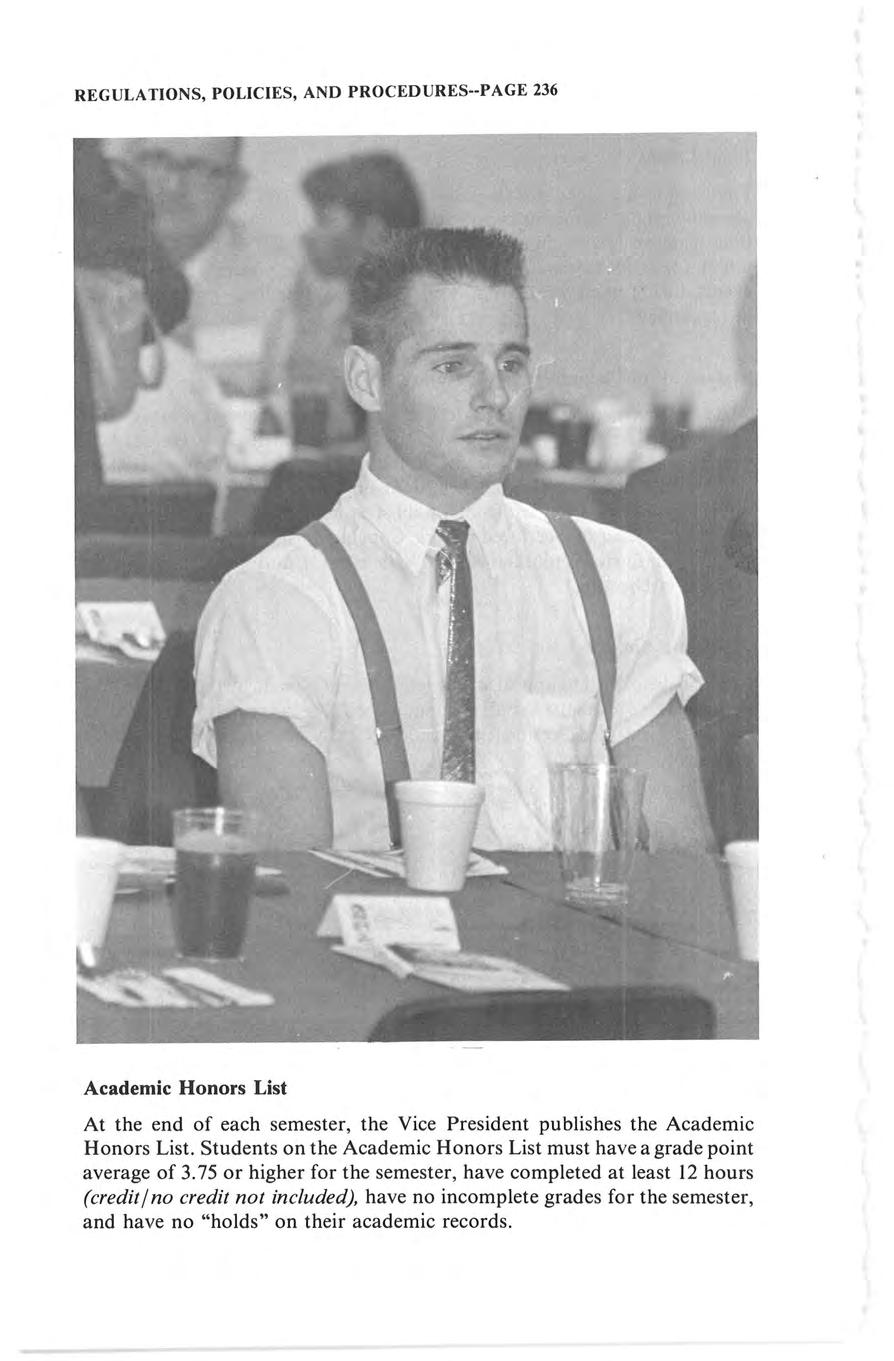
In general, students follow . e du 10n re outlined in the catalog current at the time of their ad ission tot College o pursue a degree program. Students with a Progress heet who are makin normal progress toward a degree will continue und r their original ) atalog. Students whose progress toward a degree has been irregu\ ar to the p<knt that no£mal progress has not been maintained will meet the gr\ duation requirements in the most recent catalog.
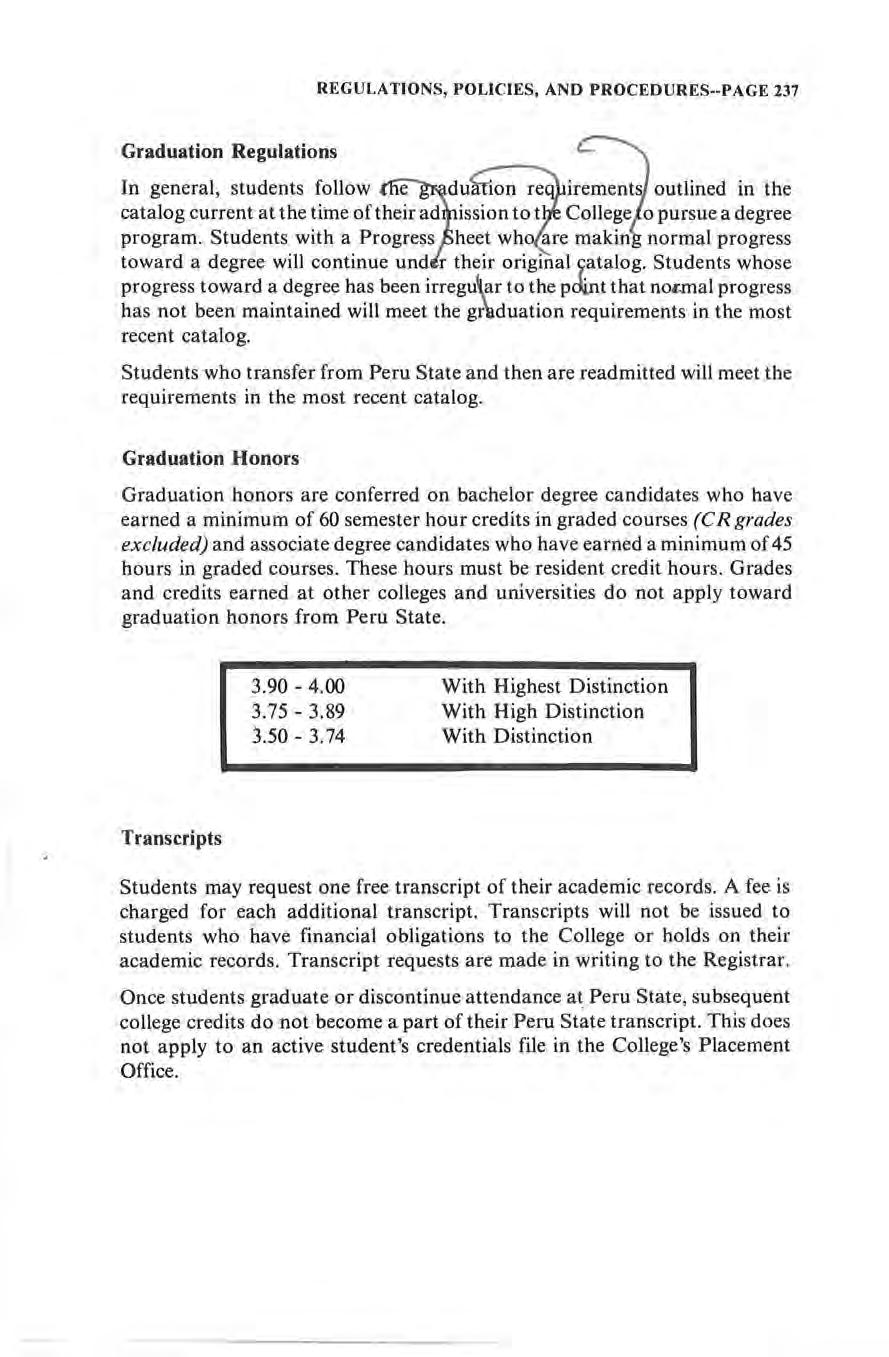
Students who transfer from Peru State and then are readmitted will meet the requirements in the most recent catalog .
Graduation honors are conferred on bachelor degree candidates who have earned a minimum of 60 semester hour credits in graded courses (CR grades excluded) and associate degree candidates who have earned a minimum of 45 hours in graded courses. These hours must be resident credit hours. Grades and credits earned at other colleges and universities do not apply toward graduation honors from Peru State.
Students may request one free transcript of their academic records A fee is charged for each additional transcript. Transcripts will not be issued to students who have financial obligations to the College or holds on their academic records. Transcript requests are made in writing to the Registrar .
Once students graduate or discontinue attendance at. Peru State, subsequent college credits do not become a part of their Peru State transcript. This does not apply to an active student's credentials file in the College's Placement Office.
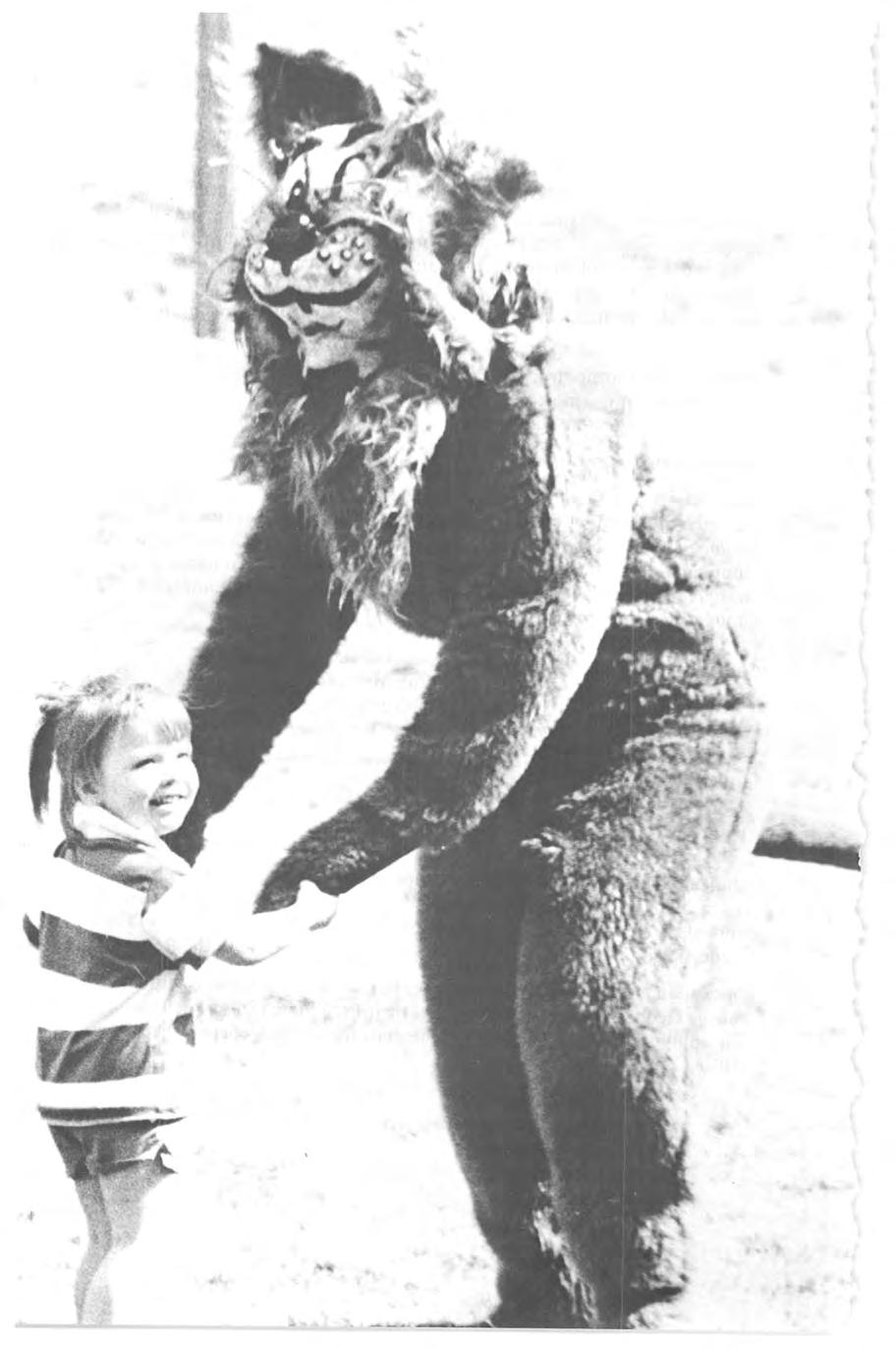
The College's goal is to adapt its educational opportunities and services to the interests, needs and abilities of each student. The Office of Student Affairs provides a wide variety of activities to assist the students in realizing their educational objectives and enjoying their college experience.
Prior to the beginning of classes, the College conducts several orientation sessions designed to address the special concerns of incoming students. Both freshmen and transfer students are invited to attend these sessions. Each program acquaints students (and their parents) with the College and offers a helpful introduction to campus life. At this time , students are assigned a faculty advisor to assit them inplanning their educational goals and college careers An opportunity to meet with members of the faculty and other students is also provided through a variety of social events.
In the late summer, the Office of Residence Life publishes the Student Life Handbook as a guide to campus living . Included in the handbook is a calendar of events, various policies and procedures, and a statement of Student Rights and Responsibilities.
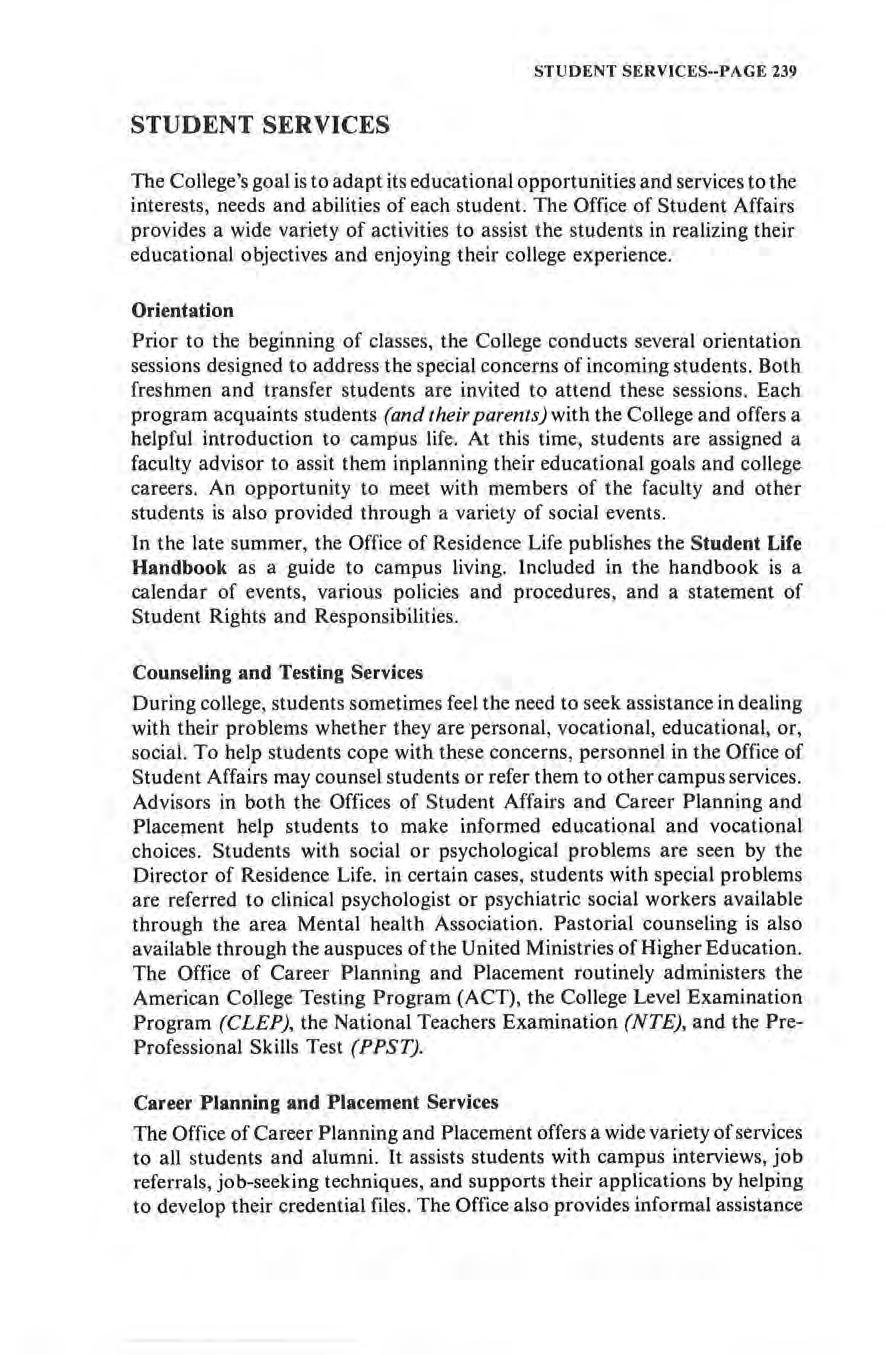
During college , students sometimes feel the need to seek assistance in dealing with their problems whether they are personal , vocational , educational, or, social. To help students cope with these concerns, personnel in the Office of Student Affairs may counsel students or refer them to other campus services. Advisors in both the Offices of Student Affairs and Career Planning and Placement help students to make informed educational and vocational choices . Students with social or psychological problems are seen by the Director of Residence Life. in certain cases , students with special problems are referred to clinical psychologist or psychiatric social workers available through the area Mental health Association. Pastorial counseling is also available through the auspuces of the United Ministries of Higher Education. The Office of Career Planning and Placement routinely administers the American College Testing Program (ACT), the College Level Examination Program (CLEP), the National Teachers Examination (NTE), and the PreProfessional Skills Test (PPST) .
The Office of Career Planning and Placement offers a wide variety of services to all students and alumni. It assists students with campus interviews, job referrals, job-seeking techniques, and supports their applications by helping to develop their credential files. The Office also provides informal assistance
to students who seek summer employment or part-time work by helping to identify potential employers.
The career/ occupational library in the Placement Center offers students information about graduate study, job prospects in their field of study . Assistance is also provided through brochures and pamphlets on how to develop a resume and letters of application.
Peru State receives the Placement Vacancy Bulletin in cooperation with the Nebraska Association of Schools, Colleges, and University Staffing ,(NASCUS). The bulletin is issued through the Career Placement · Service (CPS) in Lincoln and reports vacancies sent to Peru State as well as those reported to other colleges and universities in Nebraska. The CPS also hosts employer recruiting visits at its Lincoln office. There is a nominal fee for processing credentials and mailing vacancy lists for the year September to August 31.
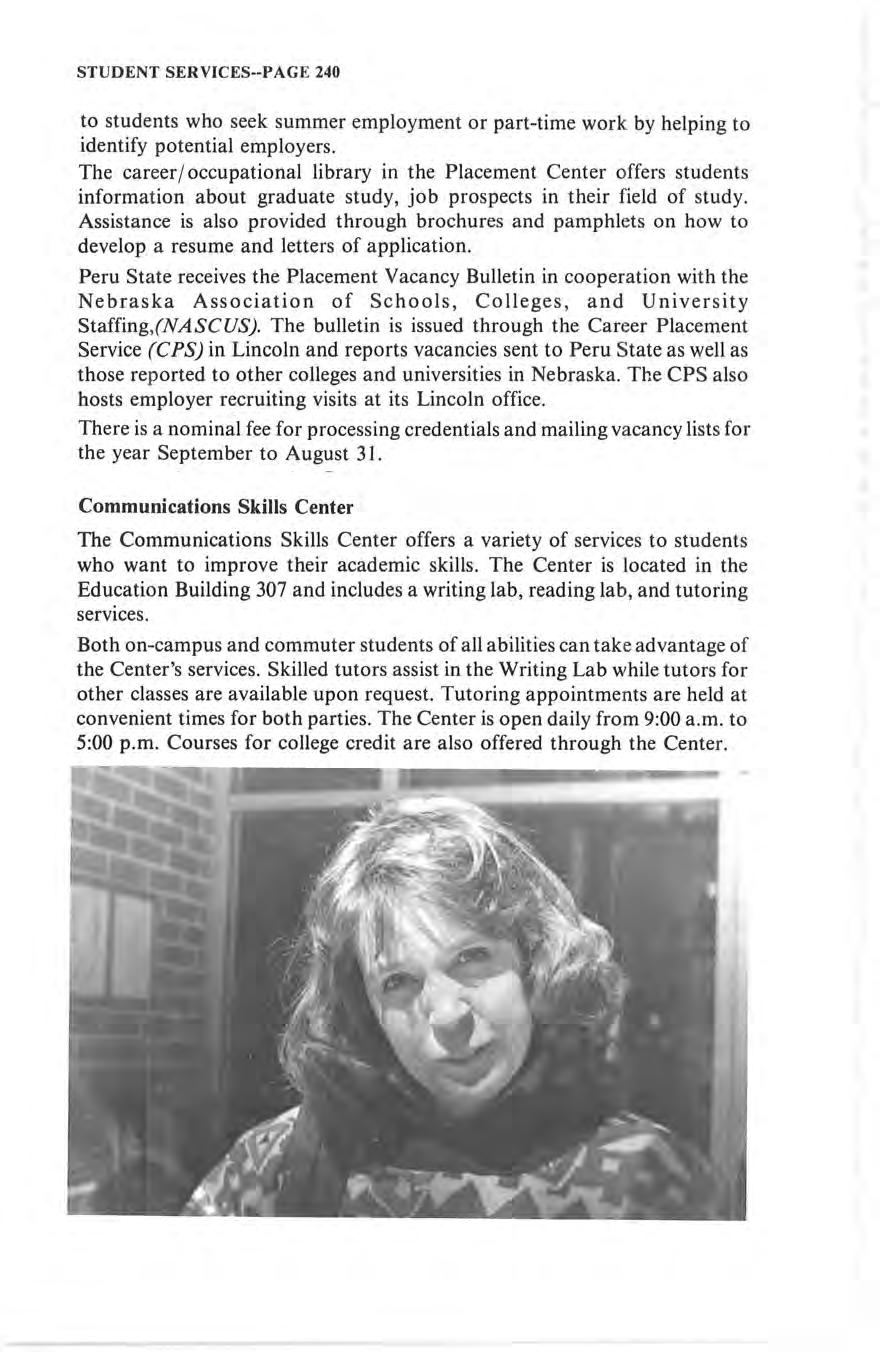
The Communications Skills Center offers a variety of services to students who want to improve their academic skills . The Center is located in the Education Building 307 and includes a writing lab, reading lab, and tutoring services.
Both on-campus and commuter students of all abilities can take advantage of the Center's services. Skilled tutors assist in the Writing Lab while tutors for other classes are available upon request. Tutoring appointments are held at convenient times for both parties. The Center is open daily from 9:00 a . m . to 5:00 p.m. Courses for college credit are also offered through the Center.
All requests for information about living accommodations should be directed to the Office of Residence Life. THe schedule of room and board rates is listed in the Expenses and Financial Aid section of the catalog.
Living in a residence hall is not like living at home; it is an experiment in group behavior where give-and-take are constant, but where the best possible evnironment for a variety of student experiences has been created.
There are many advantages to living in the residence halls with the most obvious being their proximity to the College's educational and recreational facilities. The library, laboratories, music practice rooms, workrooms, and the campus recreational centers are only a short walk from any residence hall. Residence hall living affords students considerable freedom. Part-time paraprofessional staff members supervise and assist students while educational and social programs augment the academic program. These programs provide assistance that may be needed to adjust to college life.
Peru State offers a variety of alternative living accommodations for students to choose. There are men and women residence halls as well ass coeducational halls. Each residence hall has its own visitation policies and unique physical layout . Students are responsible for supplying their own linen and bedding including pillows and mattress pads. Residents are welcome to bring other personal items from home such as radios, sterios, etc. Hot plates and air conditioners are not permitted . The lower level of each hall is equipped with kitchen facilities, washers and dryers, and recreational equipment such as pool and ping pong tables.
All unmarried freshman and sophomore students under the age of 22 , except those living with their parents or guardians, must live in college residence halls. Exceptions to this policy are handled by the College on an individual basis. The specific terms and conditions of the residence hall contract are contained in the Housing Handbook which may be obtained from the Office of Residence Life.
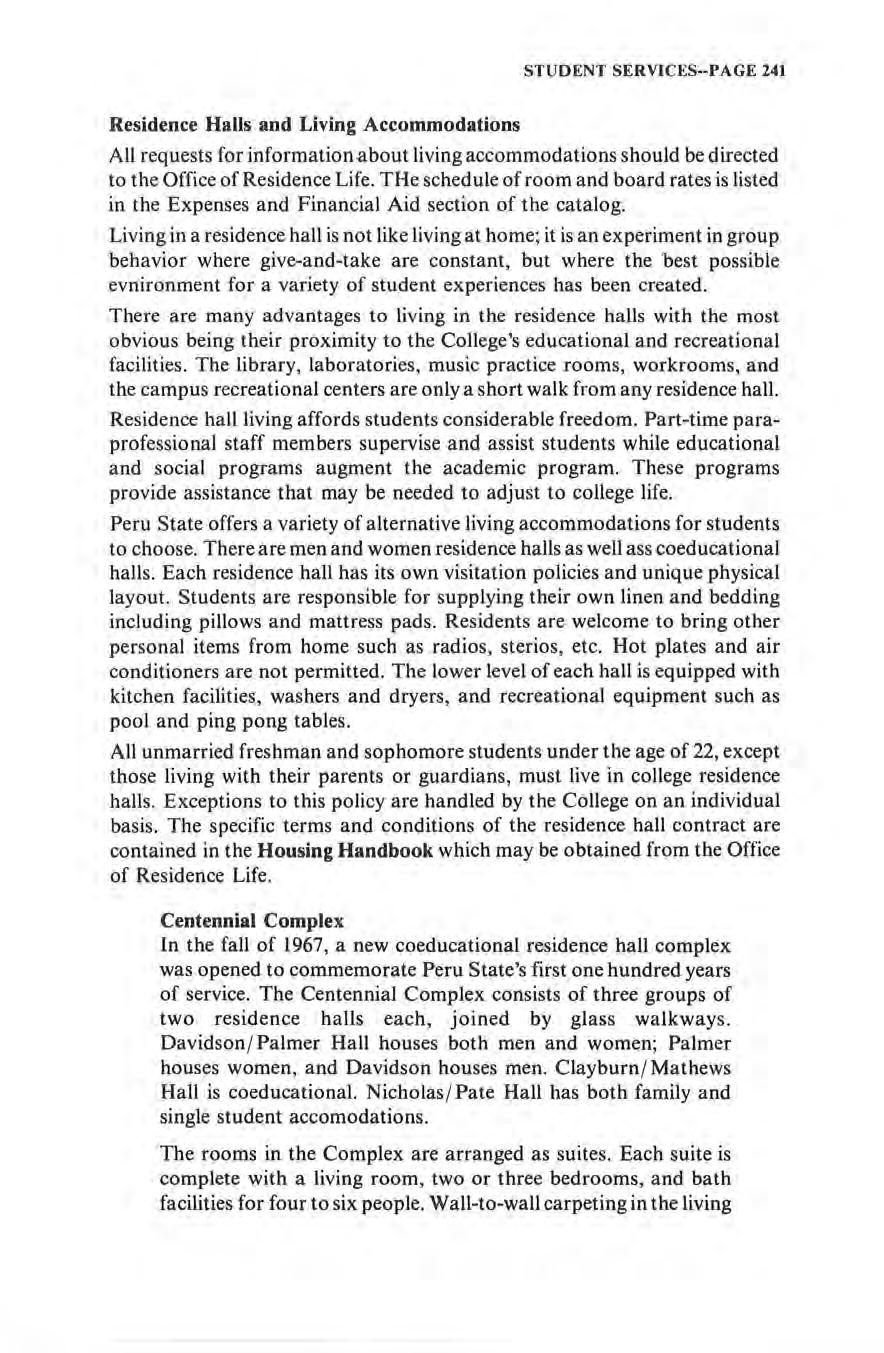
In the fall of 1967, a new coeducational residence hall complex was opened to commemorate Peru State's first one hundred years of service. The Centennial Complex consists of three groups of two residence halls each, joined by glass walkways. Davidson / Palmer Hall houses both men and women; Palmer houses women, and Davidson houses men. Clayburn / Mathews Hall is coeducational. Nicholas/ Pate Hall has both family and single student accomodations.
The rooms in the Complex are arranged as suites. Each suite is complete with a living room, two or three bedrooms, and bath facilities for four to six people. Wall-to-wall carpeting in the living
room is complemented by a sofa, chairs, coffee table, end tables, lamps, draperies, and a large picture window Each bedroom features built-in desks, study lights, bookcases, dressers, chairs, twin beds, drapes, and closets with shelves which provide ample storage space.
Delzell Hall
Gothic-styled Delzell Hall houses approximately 150 men. The spacious living room is furnished with sofas, chairs, a television, and a fireplace.
There are four floors of rooms arranged as combination sleeping and study rooms with each room housing two students. A built-in combination dresser and desk, bookcase, bulletin board, twin bed, draperies, and waste basket are furnished each st udent.
In addition to a large walk-in closet , lavatory, and medicine cabinet which are shared, each student is provided with an individual built-in wardrobe. There is a large showe r room of ce ramic tile and marble located on each floor.
Eliza Morgan Hall
Located in the northwest corner of the campus, Eliza Morgan Hall was opened in 1929. This recently renovated building has four floors and houses approximately 170 women . The carpeted living room is furnished with sofas and chairs .
Each room is arranged as a combination sleeping and study room for two students with each furnished a desk, twin bed, and draperies. In addition, ~each student shares with her roommate a large walk-in closet , lavatory, and medicine cabinet. There is a large shower room centrally located on each floor.
Oak Hill Married Student Housing
One and two bedroom units are available in Oak Hill Housing. Each unit is equipped with a stove and refrigator. Laundry facilities are centrally located for use by all residents.
Married student housing is leased on an annual basis with the rent payable a month in advance. A deposit is required and is refundable at the end of the lease perriod provided the property is left in good condition. Inquires about married student housing should be directed to the Office of Residence Life.
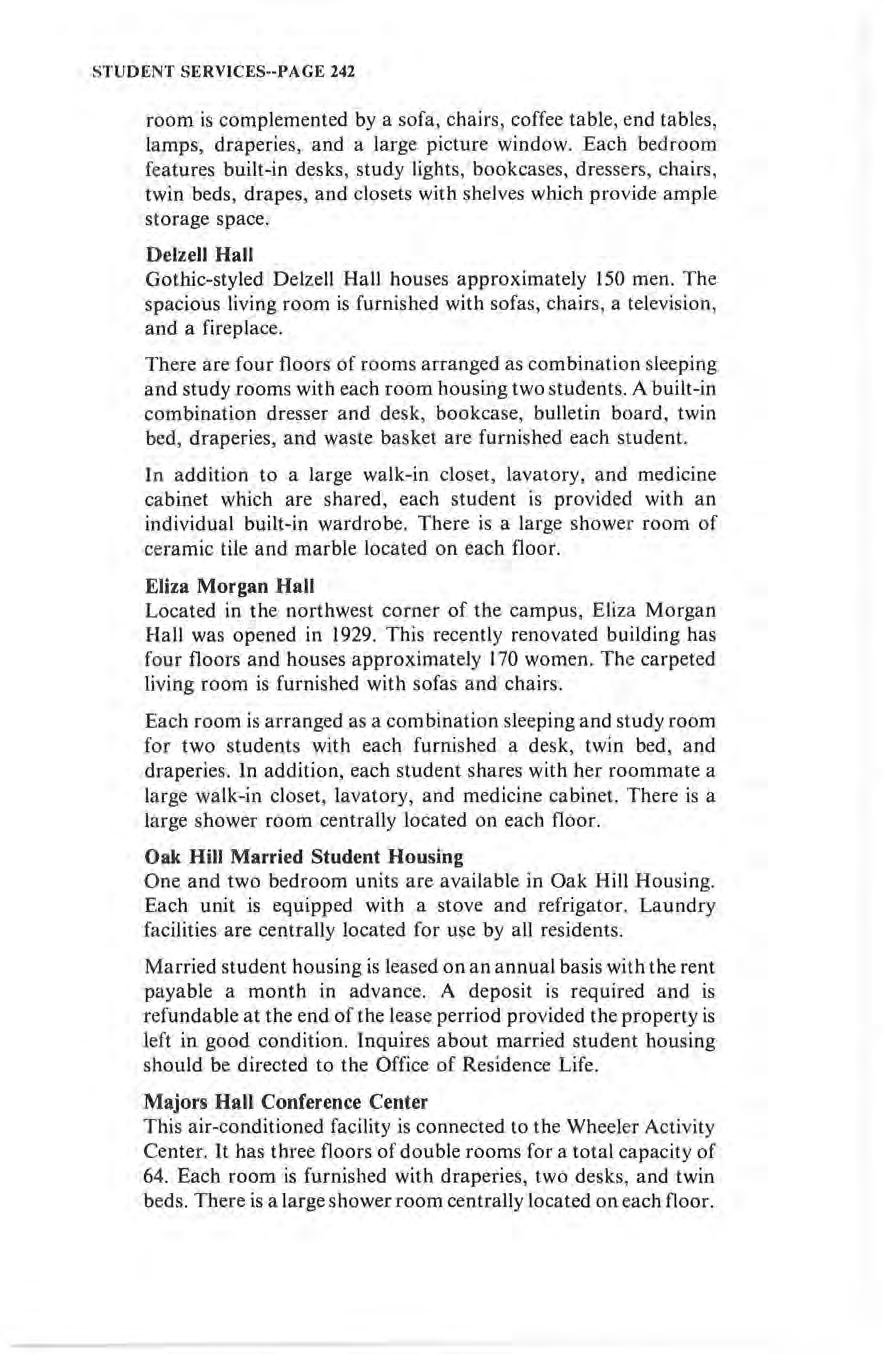
Majors Hall Conference Center
This air-conditioned facility is connected to the Wheeler Activity Center. It has three floors of double rooms for a total capacity of 64. Each room is furnished with draperies, two desks, and twin beds. There is a large shower room centrally located on each floor.
Air-conditioned dining areas are located in the Student Center. The main dining room is open seven days a week for regular meal service to students , faculty , staff, guests, and visitors. All meals are designed with variety , nutrition, and good taste in mind .
There are three meal plans available to Peru State students. The Mini Plan provides for IO or 15 meals beginning with breakfast on Monday and ending with dinner on Friday. The Maxi Plan offers 20 meals with three meals a day Monday through Saturday , and a noon dinner and evening soup and sandwich bar on Sunday. The Commuter Plan offers breakfast, lunch or dinner tickets at a reduced cost per meal.
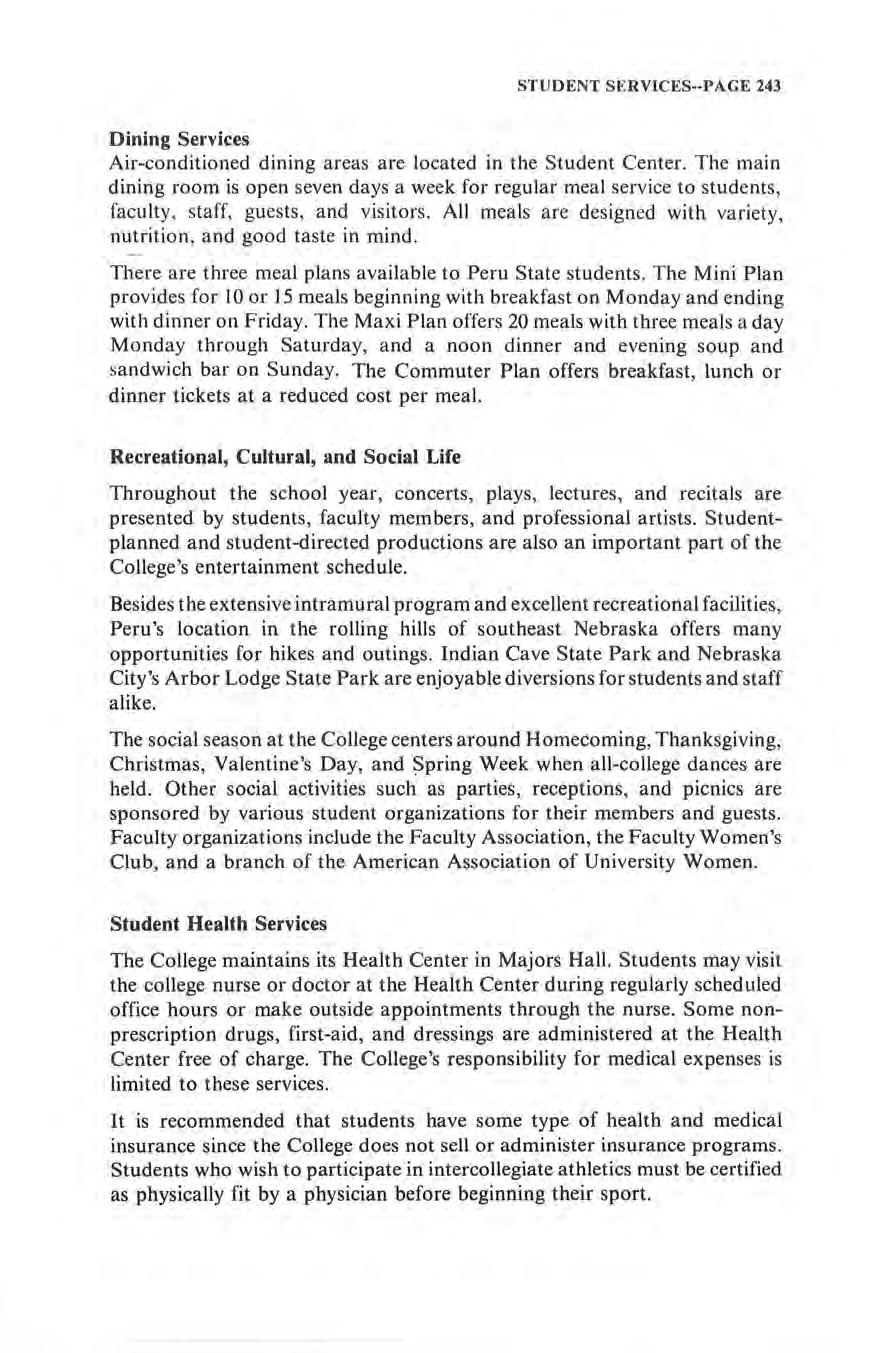
Throughout the school year, concerts, plays, lectures, and recitals are presented by students, faculty members, and professional artists. Studentplanned and student-directed productions are also an important part of the College's entertainment schedule.
Besides the extensive intramural program and excellent recreational facilities, Peru's location in the rolling hills of southeast Nebraska offers many opportunities for hikes and outings. Indian Cave State Park and Nebraska City's Arbor Lodge State Park are enjoyable diversions for students and staff alike.
The social season at the College centers around Homecoming, Thanksgiving, Christmas, Valentine's Day, and ~pring Week when all-college dances are held. Other social activities such as parties, receptions, and picnics are sponsored by various student organizations for their members and guests Faculty organizations include the Faculty Association, the Faculty Women's Club, and a branch of the American Association of University Women.
The College maintains its Health Center in Majors Hall. Students may visit the college nurse or doctor at the Health Center during regularly scheduled office hours or make outside appointments through the nurse. Some nonprescription drugs, first-aid, and dressings are administered at the Health Center free of charge. The College's responsibility for medical expenses is limited to these services.
It is recommended that students have some type of health and medical insurance since the College does not sell or administer insurance programs. Students who wish to participate in intercollegiate athletics must be certified as physically fit by a physician before beginning their sport.
Daily bus service to Omaha and Kansas City with connections to more distant destinations is available in Auburn, 12 miles from Peru. College transportation is provided to and from Auburn at the beginning and end of semesters, summer sessions, and spring recess.
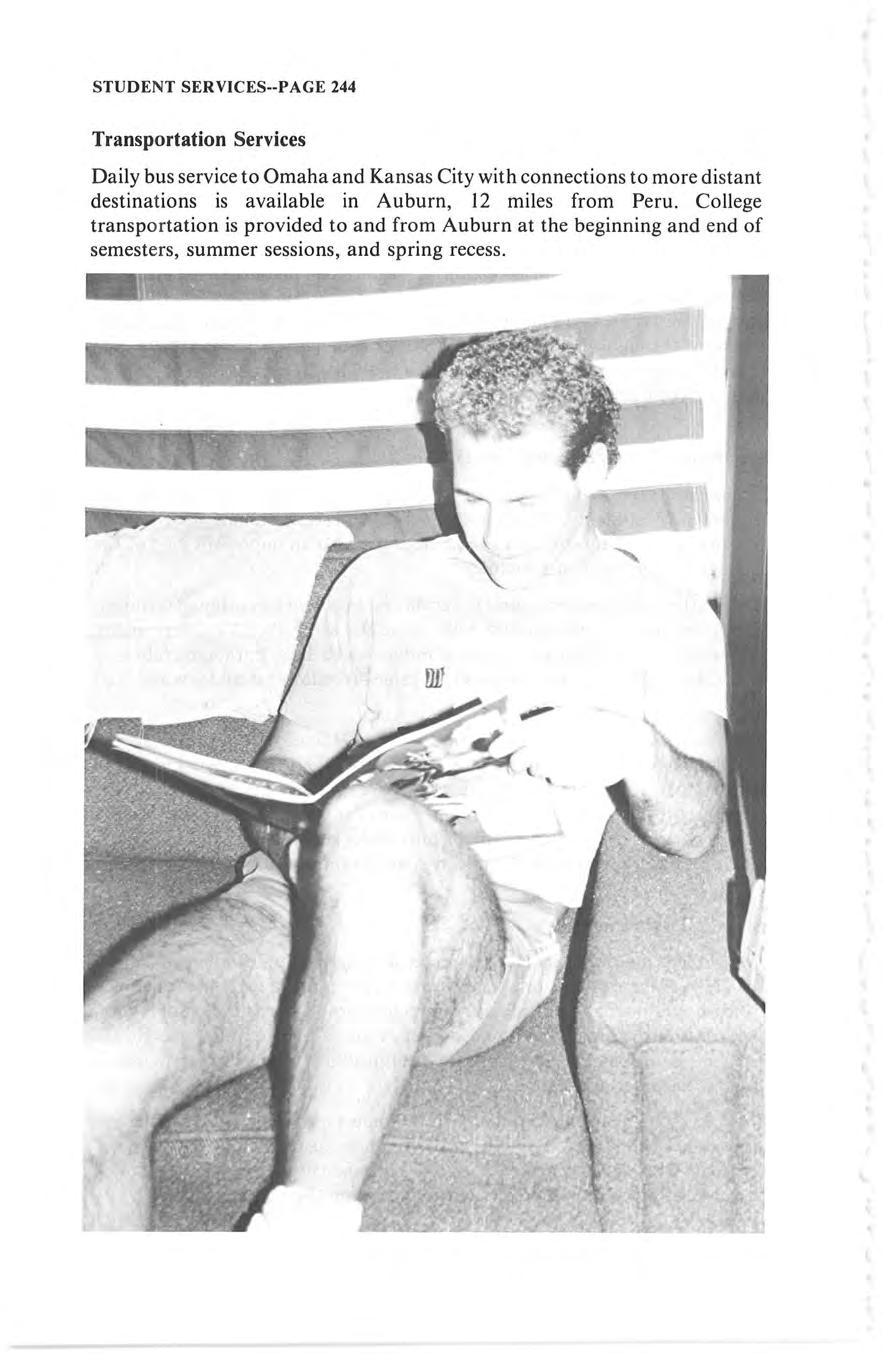
Students at Peru State may participate in a wide variety of student organizations for their personal, social, academic, or professional benefit.
The Student Senate of Peru State College consists of elected representatives from a variety of constituencies and is dedicated to focusing student interests and opinions in the operation of the College. The Senate has voting members on the College Affairs Council, Academic Affairs Commission, Library Committee, Teacher Education Committee, and Student Affairs Commission
Residental Hall Councils are representative councils selected by the members of the men's and women's residence halls. These governing bodies handle problems and plan social activities for hall residents .
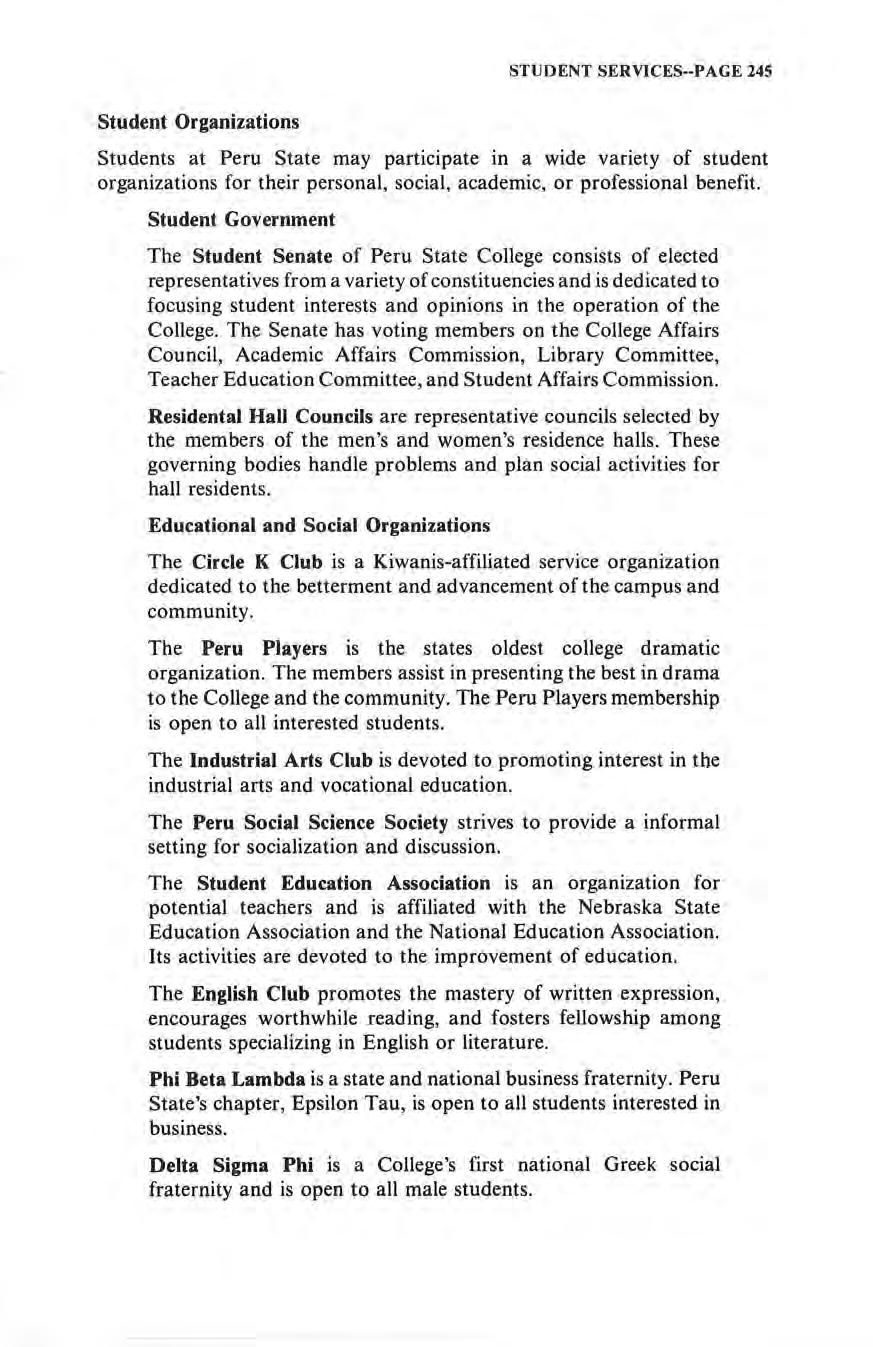
The Circle K Club is a Kiwanis-affiliated service organization dedicated to the betterment and advancement of the campus and community .
The Peru Players is the states oldest college dramatic organization. The members assist in presenting the best in drama to the College and the community. The Peru Players membership is open to all interested students.
The Industrial Arts Club is devoted to promoting interest in the industrial arts and vocational education .
The Peru Social Science Society strives to provide a informal setting for socialization and discussion.
The Student Education Association is an organization for potential teachers and is affiliated with the Nebraska State Education Association and the National Education Association. Its activities are devoted to the improvement of education.
The English Club promotes the mastery of written expression , encourages worthwhile reading, and fosters fellowship among students specializing in English or literature.
Phi Beta Lambda is a state and national business fraternity. Peru State's chapter, Epsilon Tau, is open to all students interested in business.
Delta Sigma Phi is a College's first national Greek social fraternity and is open to all male students .
The Accounting Association is affiliated with the National Association of Accountants. Its purpose is to increase student awareness of careers in accounting and to increase employers' awareness of Peru State graduates .
Pi Sigma Chi is a local Greek social organization open to all female students.
T he Art Club is a social club for art majors and students interested in art.
T he Agriculture Club promotes the importance of agriculture throughout the College and community .
The Wildlife Club stresses the importance of maintaining wildlife in the region .
Religious Organizations
There are three religious groups available to Peru State students the Fellowship of Christian Athletes, the United Ministry to Higher Education, and the Campus Crusade for Christ.
Music Organizations
The Peru Chorus is open to all students and is devoted to the study and performance of choral literature.
The College's band program is divided into the Marching Band, the Concert Band, and the Instrumental Ensembles.
The Student M.E.N.C. is the student chapter of the Music E ducators National Conference and is open to all students interested in music The club annually sponsors instrumental and vocal clinics as well as other musical productions.
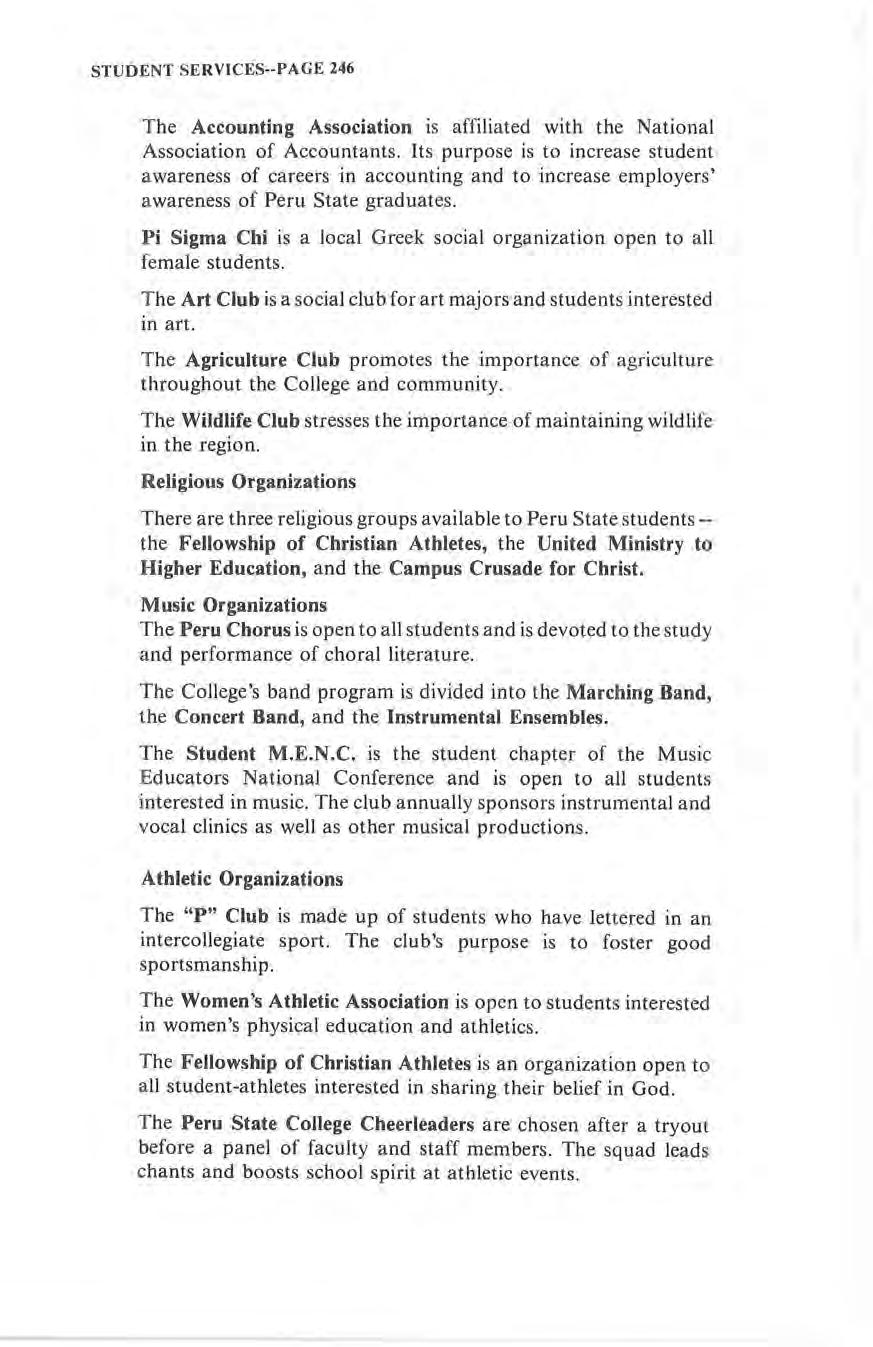
Athletic Organizations
The "P" Club is made up of students who have let t ered in an intercollegiate sport. The club's purpose is to foster good sportsmanship.
The Women's Athletic Association is open to student s interested in women's physical education and athletics
T he Fellowship of Christian Athletes is an organization open to all student-athletes interested in sharing their belief in God.
T he Peru State College Cheerleaders are chosen aft e r a tryout before a panel of faculty and staff members. The squad leads c hants and boosts school spirit at athletic events .
Alpha Chi is the College's national honorary scholarship society. It recognizes academic scholarship, good reputation, and character. The society's members are selected from the top ten percent of the junior and senior classes.
Alpha Mu Omega is a honorary mathematics fraternity which aims to develop and promote interest in the study of mathematics. Students with above average grades in mathematics who have taken at least ten hours of mathematics are eligible for membership.
Epsilon Pi Tau, an honorary professional fraternity in technology education, selects juniors and seniors based on their grade point averages in the industrial arts and other fields.
Kappa Delta Pi is a national honorary education fraternity open to juniors who rank in the upper quintile of their class and who show evidence of a continued interest in education.
Phi Alpha Theta, a national honorary history fraternity, is open to students with more than 12 hours of history and high scholastic standing.
Sigma Tau Delta, the national honorary English fraternity, granted Peru State its Phi Alpha Chapter in 1926. Students who demonstrate an interest in literature and creative writing and who are above average in scholarship are eligible for membership. The chapter assists the English Club in publishing Sifting Sands.
Beta Beta Beta is the College's professional honorary biology fraternity open to junior and senior biology students. Candidates for membership must have above average grades and plan to continually study biology.
Lambda Delta Lambda is an honorary fraternity for students interested in physical science.
Who's Who Among Students in American Universities and Colleges annually determines the number of senior students at the College who may be selected. The honorees are chosen by a committee of students and faculty members on the basis of scholarship, leadership in academic and extracurricular activities, service to the College, and future promise.
Alpha Psi Omega, the national honorary theater fraternity, is represented on the Peru State campus by the Zeta Lambda Chapter. Scholastic ability and active theater participation are the criteria for membership
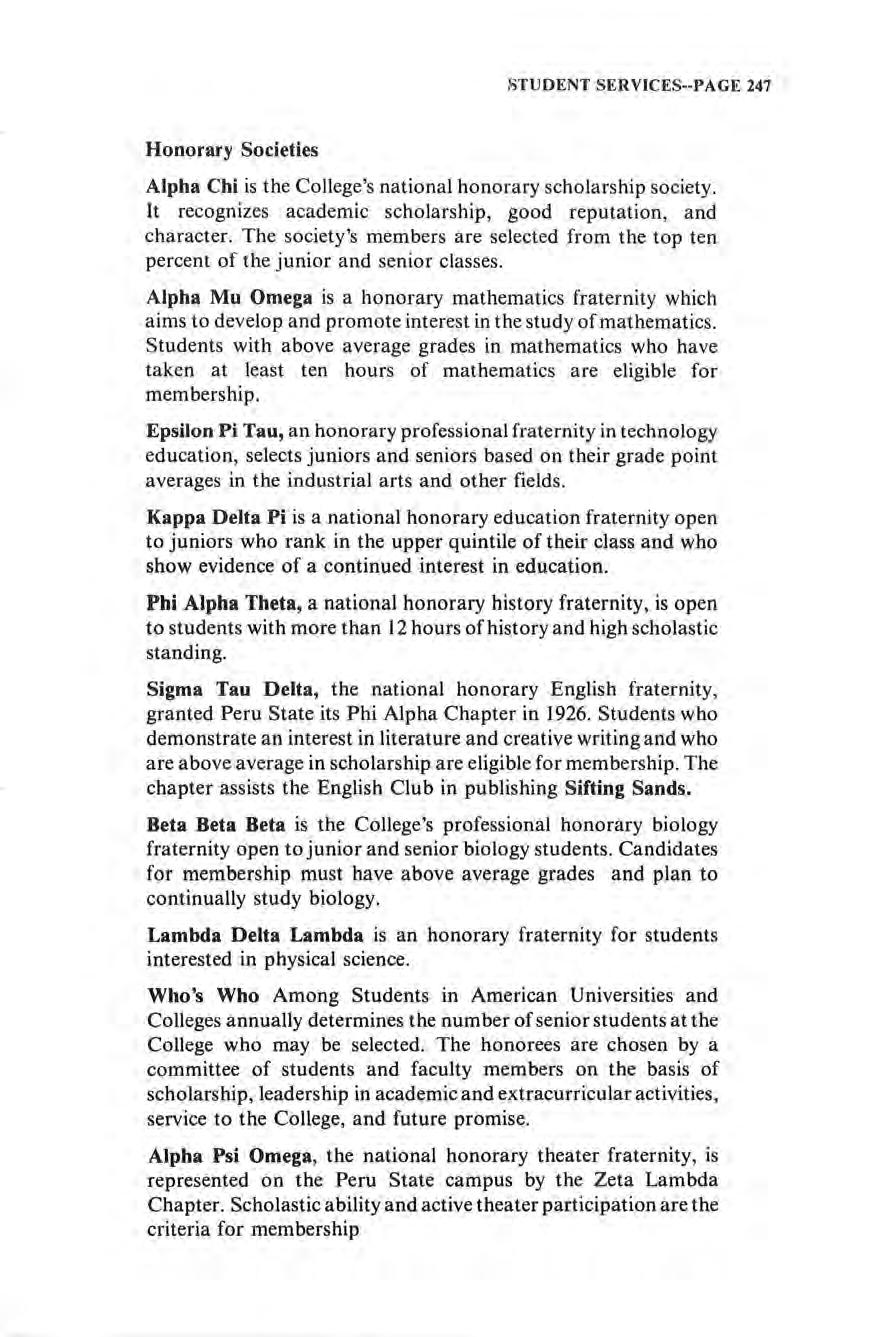
The Pedagogian is the official college newspaper. It is published during the school year under the supervision of an academic advisor. Student contributions are welcomed.
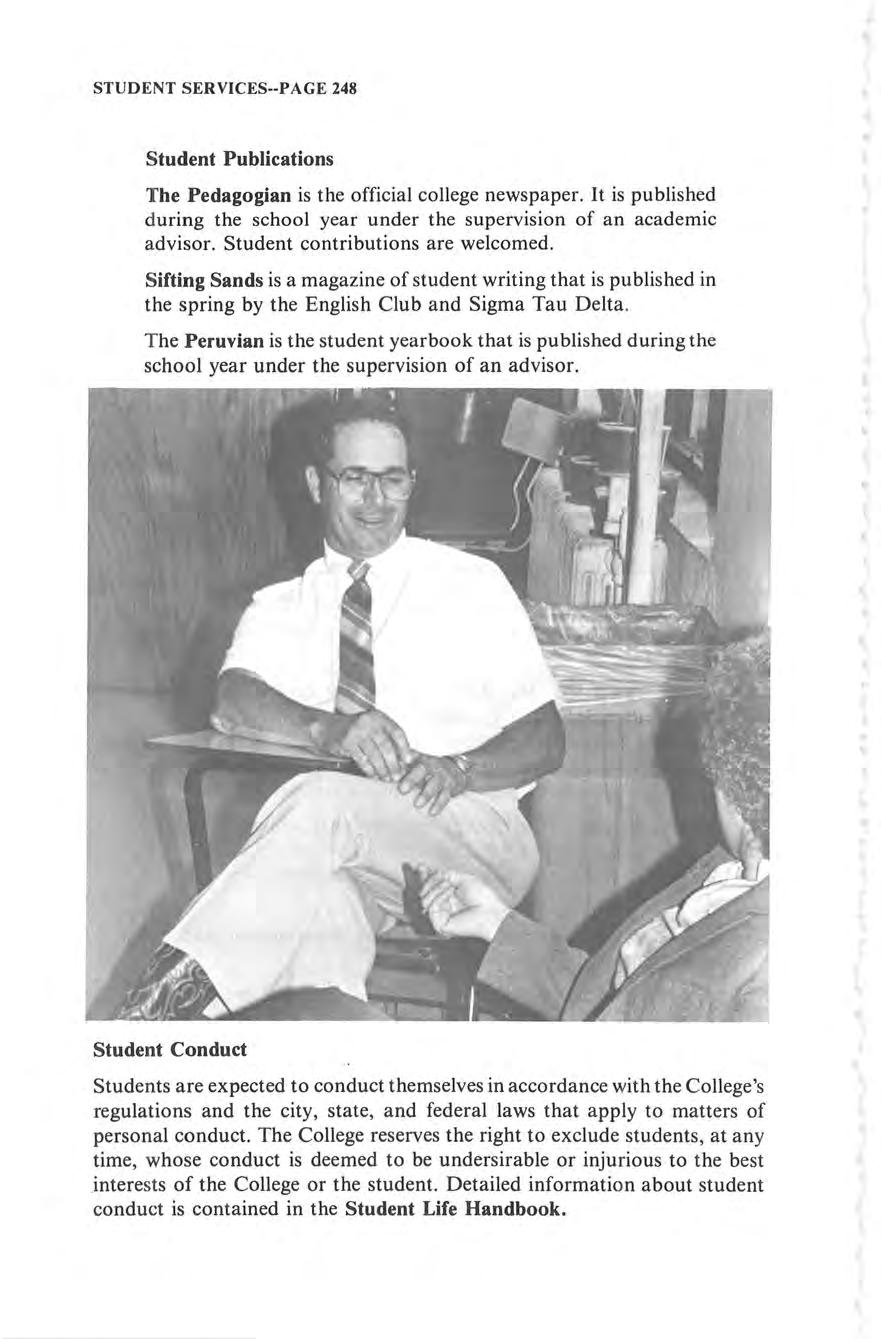
Sifting Sands is a magazine of student writing that is published in the spring by the English Club and Sigma Tau Delta
The Peruvian is the student yearbook that is published during the school year under the supervision of an advisor.
Students are expected to conduct themselves in accordance with the College's regulations and the city, state, and federal laws that apply to matters of personal conduct. The College reserves the right to exclude students , at any time, whose conduct is deemed to be undersirable or injurious to the best _interests of the College or the student. Detailed information about student conduct is contained in the Student Life Handbook.
Students must register their motor vehicles with the Physical Plant Office if they plan to operate them on campus. Vehicles are defined as all gasoline powered vehicles such as automobiles, motorcycles, or motor scooters. The registration fee is five dollars.
Only vehicles with the proper identification are allowed to park in dormitory and other restricted areas. Adequate parking is available in off-street areas and students are not to park in the residential areas adjacent to the campus.
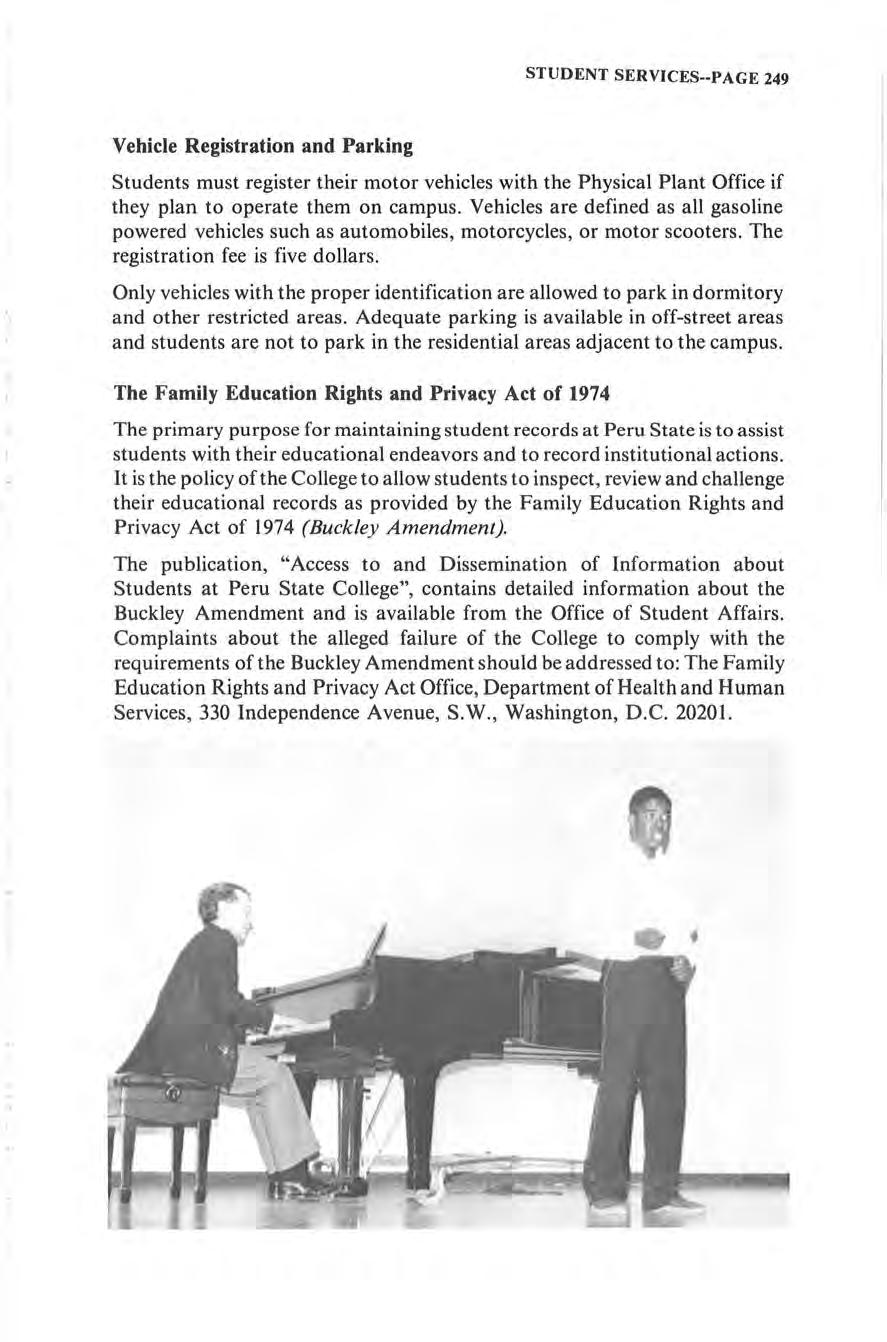
The primary purpose for maintaining student records at Peru State is to assist students with their educational endeavors and to record institutional actions . It is the policy of the College to allow students to inspect, review and challenge their educational records as provided by the Family Education Rights and Privacy Act of 1974 (Buckley Amendment).
The publication, "Access to and Dissemination of Information about Students at Peru State College", contains detailed information about the Buckley Amendment and is available from the Office of Student Affairs. Complaints about the alleged failure of the College to comply with the requirements of the Buckley Amendment should be addressed to: The Family Education Rights and Privacy Act Office, Department of Health and Human Services, 330 Independence Avenue, S.W ., Washington, D . C . 20201.
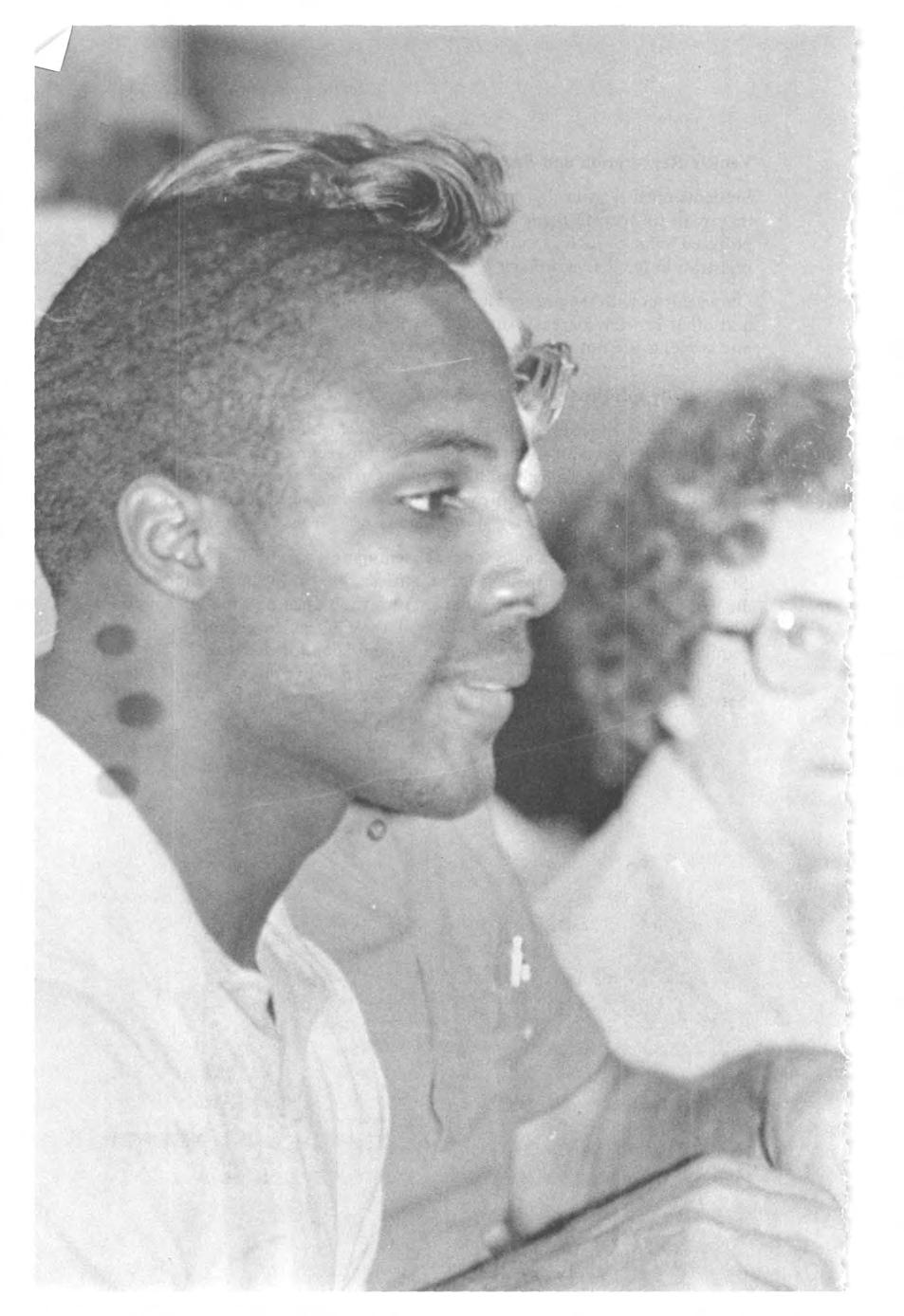
The expenses for attending Peru State College are set by the Board of Trustees of the Nebraska State Colleges and Peru State. Even though every effort is made to keep expenses down, the College reserves the right to change its tuition, fees, and other charges at any time. Additional expenses for books and supplies, travel, and personal items will vary for individual students .
Tuition
Resident
3g.~
Nebraska residency for tuition purposes is determined in accordance with Nebraska statutes and the policies of the Board of Trustees Residency status is based upon evidence provided in a student's application for admission and related documents. The Office of Admissions classifies all new students.
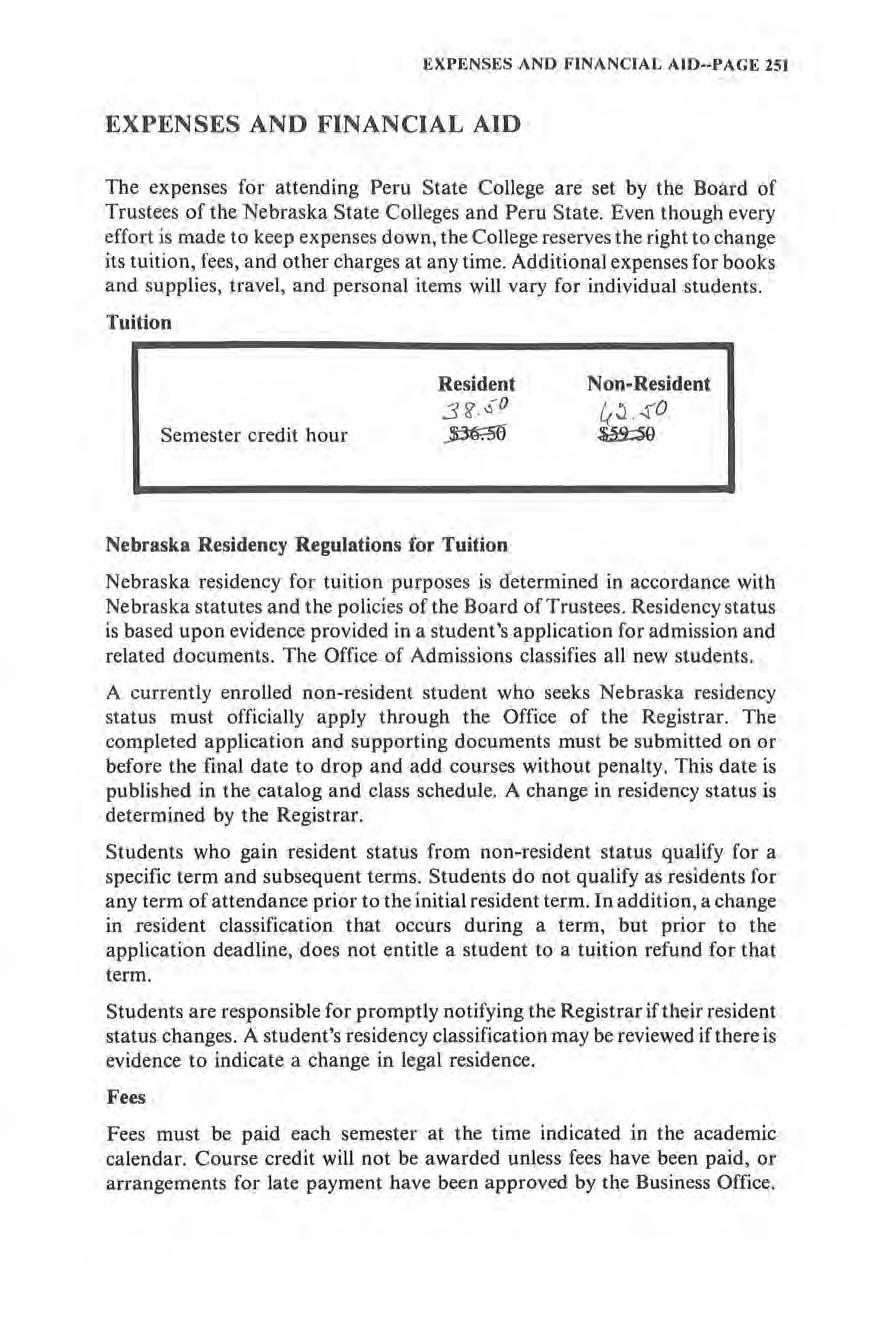
A currently enrolled non-resident student who seeks Nebraska residency status must officially apply through the Office of the Registrar. The completed application and supporting documents must be submitted on or before the final date to drop and add courses without penalty. This date is published in the catalog and class schedule. A change in residency status is determined by the Registrar.
Students who gain resident status from non-resident status qualify for a specific term and subsequent terms. Students do not qualify as residents for any term of attendance prior to the initial resident term. In addition, a change in resident classification that occurs during a term, but prior to the application deadline, does not entitle a student to a tuition refund for that term.
Students are responsible for promptly notifying the Registrar if their resident status changes. A student's residency classification may be reviewed if there is evidence to indicate a change in lega l residence.
Fees
Fees must be paid each semester at the time indicated in the academic calendar. Course credit will not be awarded unless fees have been paid, or arrangements for late payment have been approved by the Business Office.
Student Center Fee
Regular Semester
Full-time student (I 2 hours or more)
Part-time on campus student (less than 12 hours)
Summer Session
Full-time student (6 hours or more)
Short, special, or workshop course on campus
Short, special, or workshop course on campus
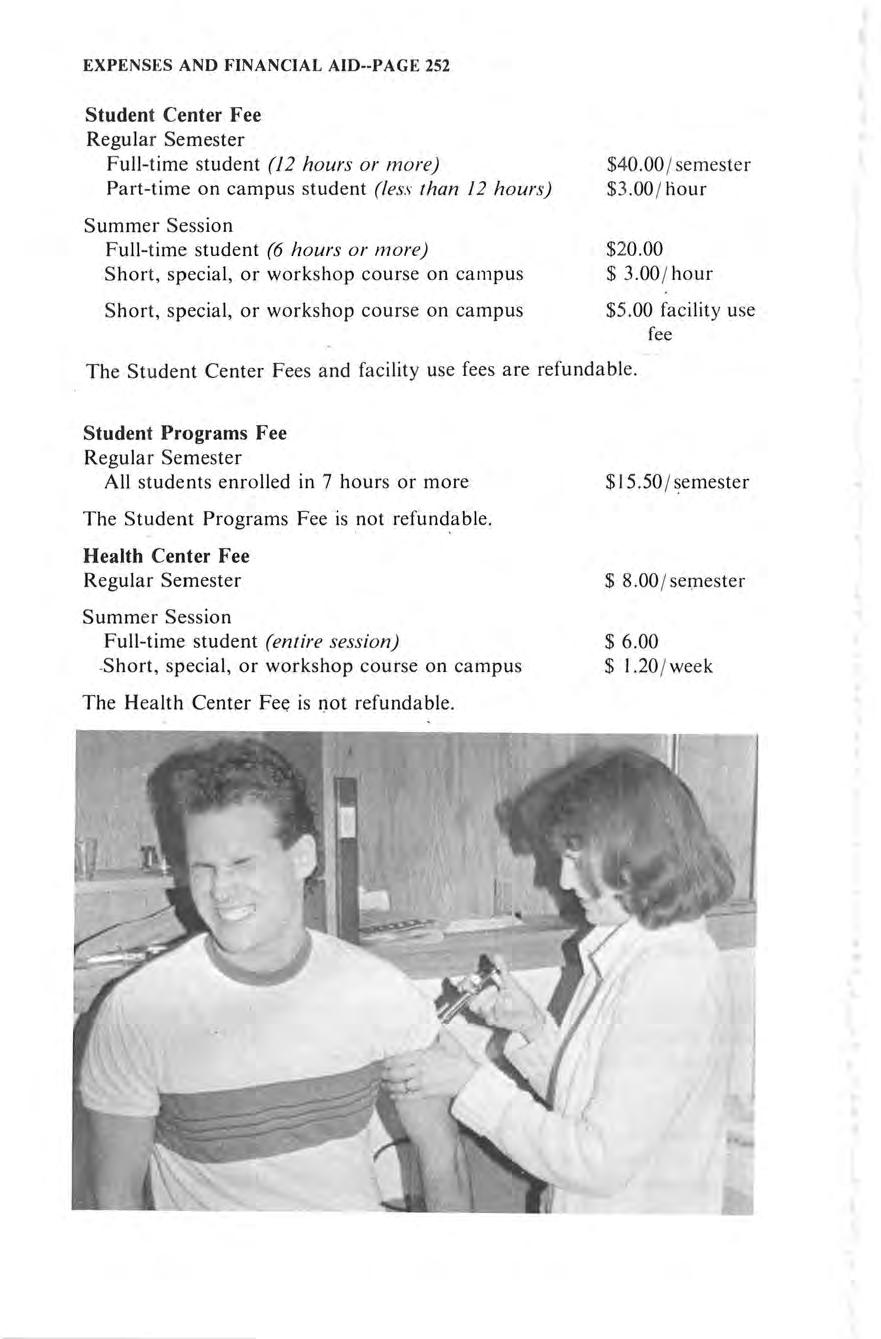
$40 .00 / semester
$ 3 .00 / liour
$20 00
$ 3.00 / hour
$5 .00 facility use fee
The Student Center Fees and facility use fees are refundable.
Student Programs Fee
Regular Semester
All students enrolled in 7 hours or more
The Student Programs Fee is not refundable.
Health Center Fee
Regular Semester
Summer Session
Full-time student (entire session)
.Short, special, or workshop course on campus
The Health Center Fee is i:iot refundable.
$15.50 / semester
$ 8.00 / semester
$ 6.00 $ I .20 / week
Special Fees
Identification Card
Regular semester students enrolled in 7 hours or more are required to purchase an I.D . card .
Replacement 1.0. Card
Motor Vehicle Registration
Regular semester students who operate a motor vehicle on campus
Admission Fee
Admission fee must accompany all applications for admis s ion and does not apply toward tuition .
Late Registration Fee
Late Tuition Fee
Administration of CLEP test
Private Music Lessons
Charged to non-Music majors.
Off-Campus Service Fee
Yearbook Fee (12 hours or mare)
Graduation Fee ~ " cap and gown cental.
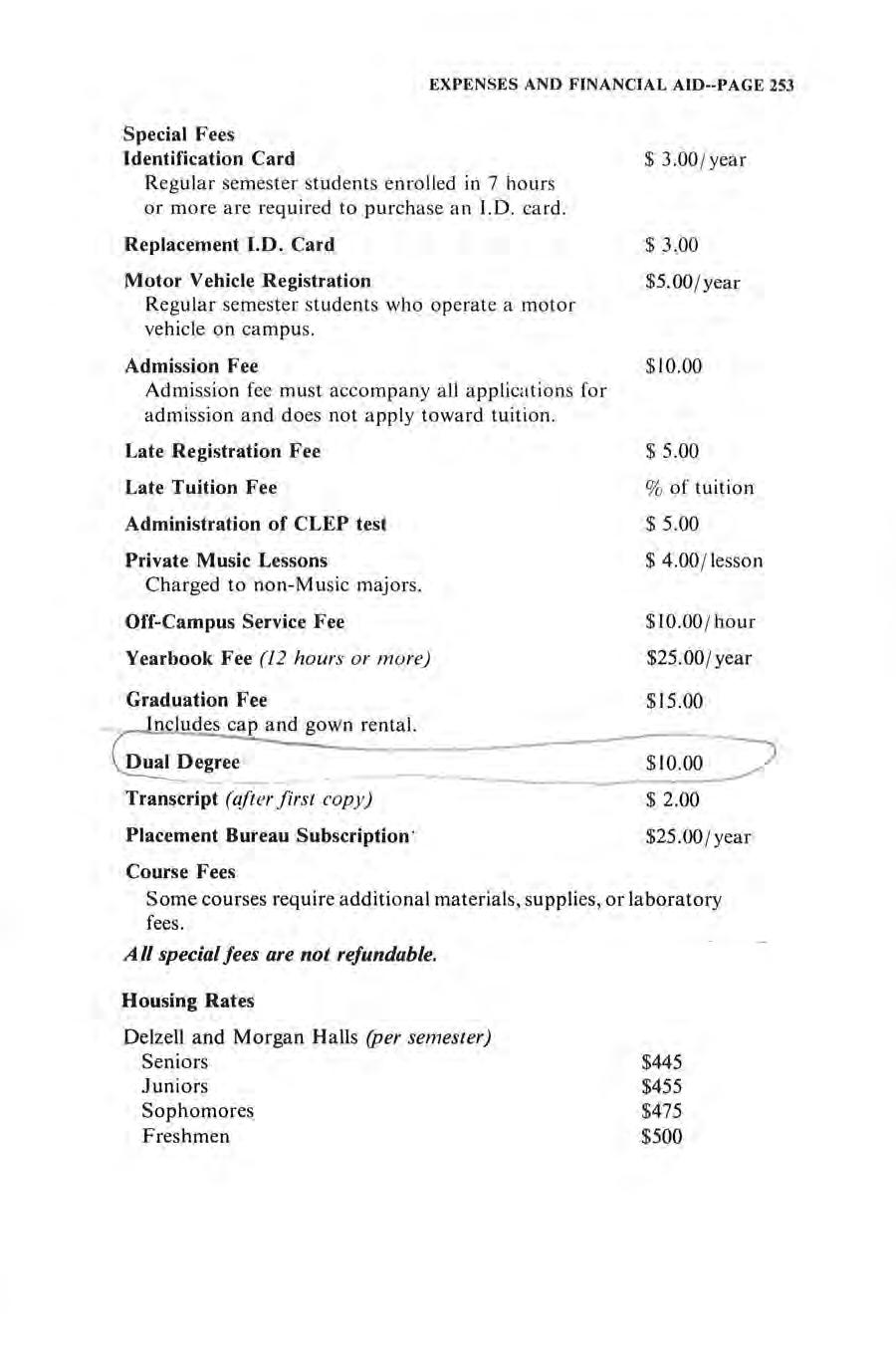
Dual Degree - ---- ---------
Transcript (after first copy)
Placement Bureau Subscription ·
Course Fees
Some courses require additional materials, supplies , or laboratory fees.
A II special fees are not refundable.
Housing Rates
Delzell and Morgan Halls (per semester)
Centennial Complex (per semester)
Seniors Juniors
Sophomores Freshmen
Privat e room in Delzell, Morgan, or Complex (additional per semester)
Oak Hill Apartments (partially furnished)
Both types of units include wa ter and gas, but not electricity. Utilities are taxed a nd subject to a monthly surcharge ba se on utility costs.
Nicholas Hall Apartments (furnished w ith utilities included)
Students who reside in college housing enter into a contract with the College . Advanced reservations are required and a $75 / year depo s it must accompany each housing request. The deposit is refu ndable, less any deductions for damage to buildings and / or equipment, if the student resides in the housing for the full year of the contract or withdraws for College-approved reasons.
Food Service Rates
Mini Plan (JO meals)
Mini Plan (15 meals)
Maxi Plan (20 meals)
Housing and Food Service Installment Plan
Students may contract with the College to pay for a semester's housing and food service in four installments The first installment is due at the time offee payment with the balance due in three equal installments throughout the semester. A $ I0 00 late fee is assessed for each overdue payment.
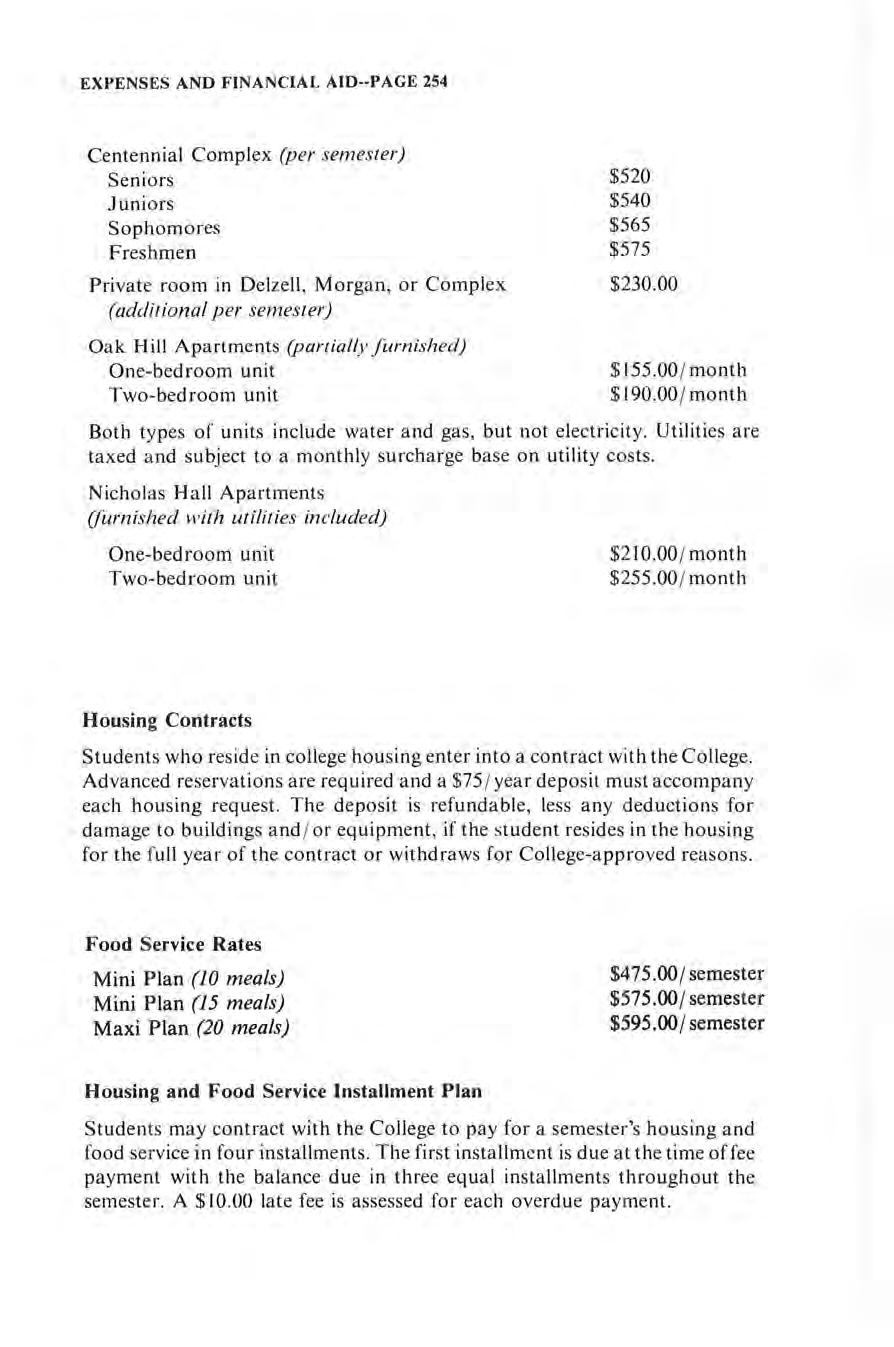
Tuition is refunded in accordance with College policies and the schedules that follow. In addition, refunds may not go directly to the student, but to the source of the original payment.
Tuition refunds are granted for a reduction in semester credit hours through the final date to add regular semester courses as indicated in the catalog. The final date to withdraw from class during the summer session is a proportional period of time.
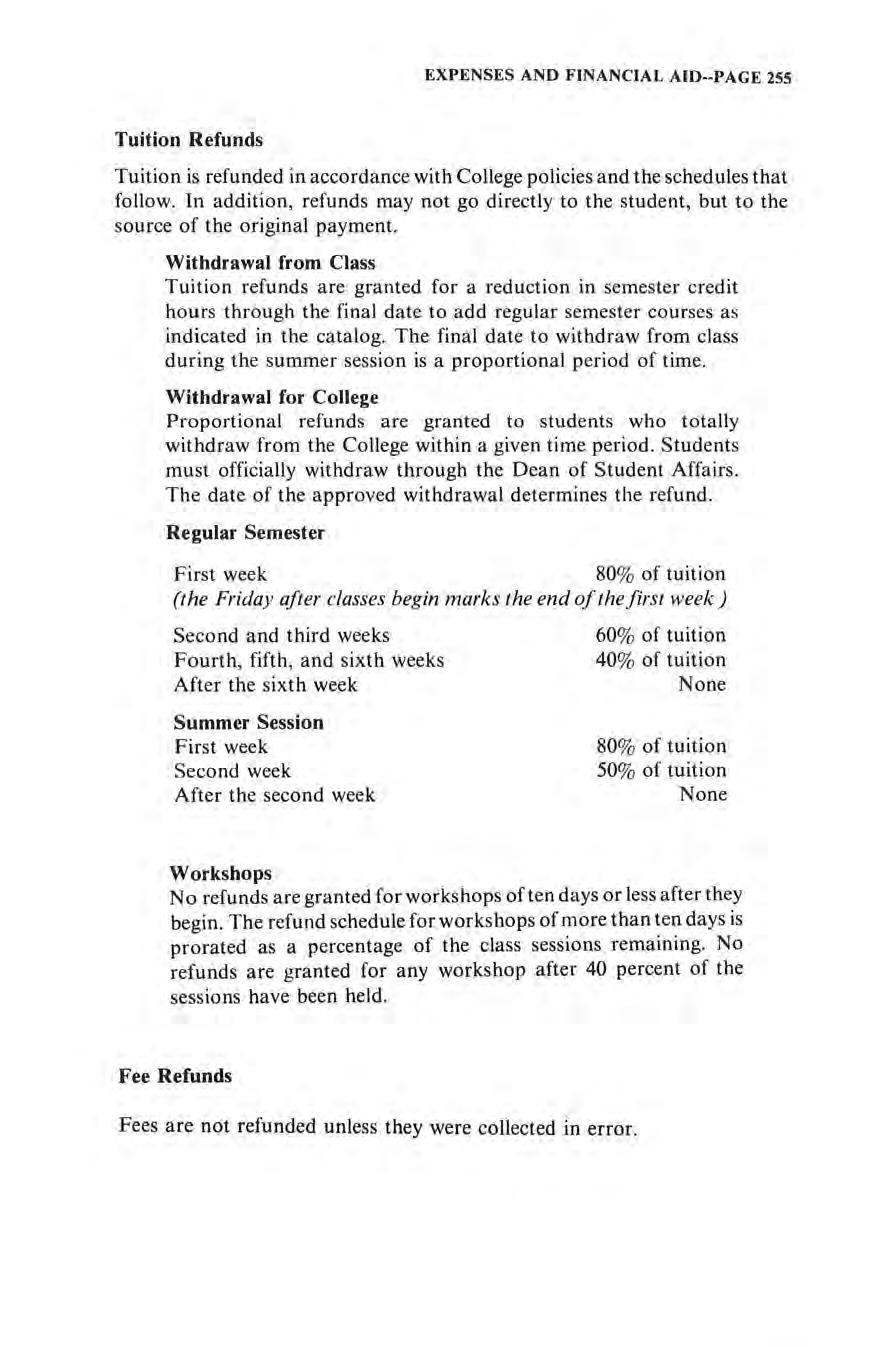
Proportional refunds are granted to students who totally withdraw from the College within a given time period. Students must officially withdraw through the Dean of Student Affairs. The date of the approved withdrawal determines the refund.
First week 80 % of tuition (the Friday after classes begin marks the end of the first week)
Second and third weeks
Fourth, fifth, and sixth weeks
After the sixth week
No refunds are granted for workshops often days or less after they begin. The refund schedule for workshops of more than ten days is prorated as a percentage of the class sessions remaining. No refunds are granted for any workshop after 40 percent of the sessions have been held.
Fees are not refunded unless they were collected in error.
Students who withdraw from the Co ll ege before the end of the term are granted prorated housing and food service refunds. The first day of the week following the surrender of their meal ticket to the Business Office, and their official check-out by the Director of Residence Life is used to determine the refund. Students who remain in school, but do not officiall y check out of college housing through the Office of Residence Life, are liable for any charges that accure against their accounts.
Financial need should not discourage any student from attending Peru State. The College provides a variety of ways for students with limited resources to meet the costs of their education. An extensive program of grants, scholarships , loans , and jobs is available to students with financial need. Financial need is defined as the difference between the support students are expected to provide and th e costs of their education. To be considered for aid, students must demonstrate financial need.
"Financial packaging" allows the Director of Financial Aid to tailor a program of assistance to meet a student's financial need. The aid package is deve loped on the basis of the applicant's estimated resources and educational costs for one acade mic year. It u s ually consists of two or m ore types of aid which cannot exceed the student's need and which may include a Pell gra nt , student loans , College Work Study, or scholarships. Students who qualify for one program of financial aid may not nece ssar ily qualify for another.
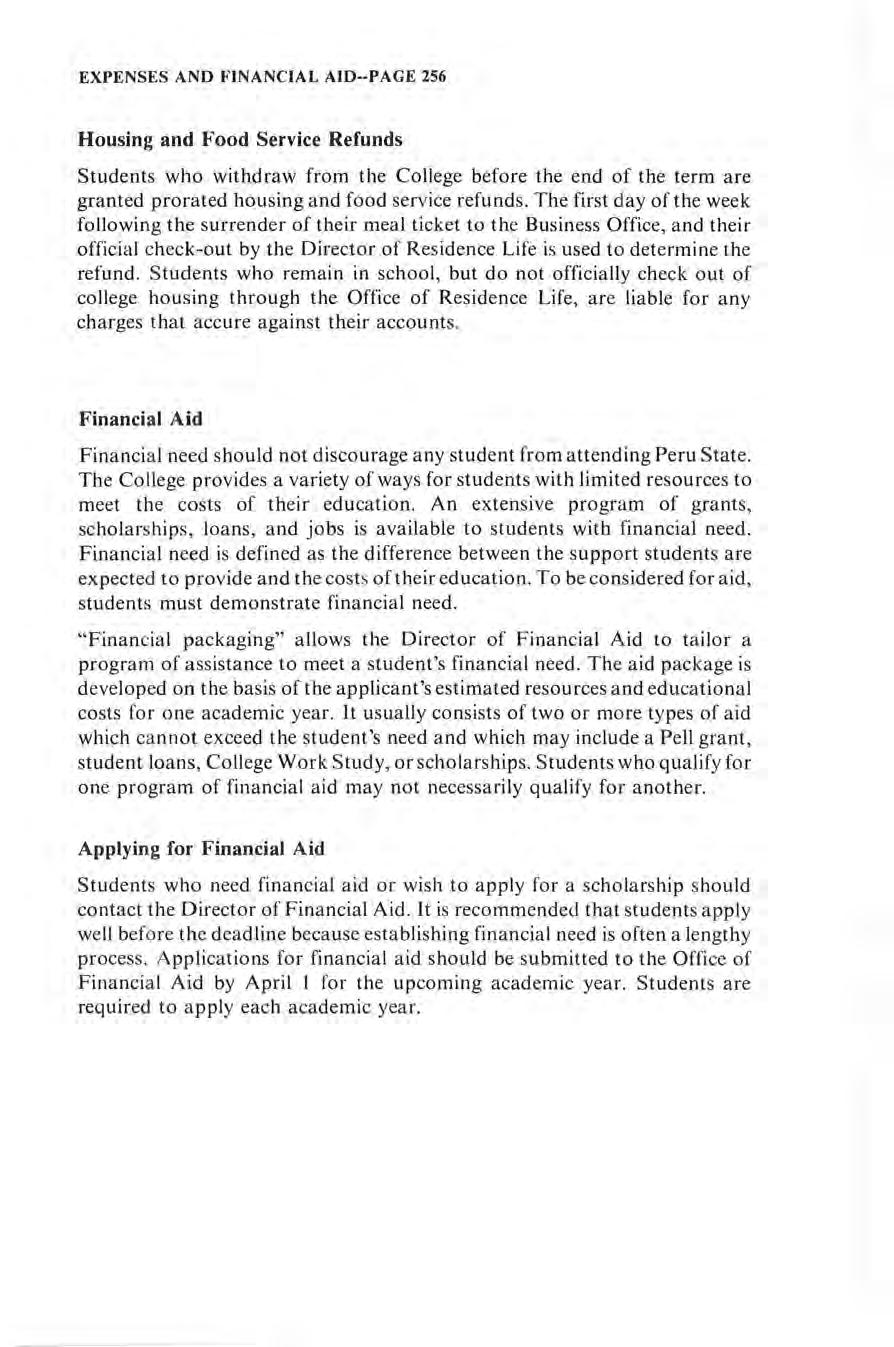
Students who nee d financial aid or wish to apply for a sc holar s hip s hould contact the Director of Financial Aid. It is recommended that students apply well before the deadline b eca us e establishing financial need is often a le ngthy process. Applications for financial aid should be submitted to the Office of Financial Aid by April I for the upcoming academic year. Students are required to app ly each academic year.
Pell Grants
Formerly called Basic Educational Opportunity Grants , Pell Grants are determined after considering college costs and the Student Aid Index. This index is calculated from the financial statement on the student's financial aid application.
Supplementary Educational Opportunity Grants (SEOG)
These grants are awarded to students who have exceptional financial need . The grants range from $200 to $1,000 a year, and can be no more than one-half of a student's total assistance. Each grant is "matched" with other financial aid to meet the student's need . All grants are awarded yearly for a maximum of eight semesters.

The College Work Study program is primarily for students from low-income families Its purpose is to permit students to pay for a portion of their education by working. When attending college full time , students can work a maximum of 15 hours per week; during vacation periods, students are allowed to work 40 hour per week. Work study jobs are usually on campus and vital to the efficient operation of the College.
Perkins Loans
These low interest , long term loans are made to students who are in good standing and registered for, at least , a half-time load
Guaranteed Student Loans
These loans are obtained through commercial lenders. To be eligible, a student must be able to demonstrate financial need .
Parents' Loan for Undergraduate Students
This program allows parents to borrow through commercial lenders to meet the educational costs of their children. Monthly installments begin 60 days after obtaining the loan.
Nebraska State Loan for Math and Science Teachers
This loan was established by the State of Nebraska to assist Nebraska students studying to be Math and Science teachers in Nebraska. Information and applications may be obtained from the Nebraska Department of Education .
Tuition Assistance for Members of the Nebraska National Guard
The Nebraska National Guard can pay three-quarters of the
tuition for a limited number of m~mbers. Guard personnel must apply through their units.
Military Reserves Tuition Waivers
Se lect member of military reserve units in Nebraska may have one-half of their tuition waived at Peru State. Reservists apply through their reserve unit.
The New GI Bill
This program provides monthly benefits to qualified members of the National Guard and reserve units.
Jobs
These jobs are similar to College Work Study jobs in p a y, type of work, and hours worked .
Sheridan Livermore Loan Fund
These loan funds are provided at current bank interest rates to students who have completed a minimum of 60 hours at Peru State, have demonstrated financial responsibility, and need a short term loan to meet unexpected expenses or the expenses related to employment relocation.
The Board of Trustees of the Nebraska State College s provides full tuition scholarships for current graduates of Nebraska high schools who have demonstrated outstanding a cademic achievement based on class rank and entrance-examinations. The scholarships are renewable to cover four regular academic years. The application deadline is January 15 .

Scholarships are available to designated graduates of school systems which assist Peru State with its teacher education program. The scholarships are for one-half the basic tuition costs per semester for eight semesters. Potential applicants should inquire at their high school.
Financial assistance in the form of partial tmt1on waivers is granted to students with special abilities in athletics, art, debate, music, etc. Applicants should submit the Peru State financial aid application indicating their desire to be considered for a waiver . The appropriate college official determines an applicant's qualifications. The waivers are approved for one academic year, but are renewable.
Partial tuition waivers are awarded to worthy students who have demonstrated financial need.
Full tuition scholarships are awarded to qualified undergraduate students who are citizens of other countries .
Through the generosity of alumni and friends of Peru State, the Peru Achievement Foundation awards a variety of scholarships. The scholarships are listed at the end of the Expenses and Financial Aid portion of the catalog. Students may apply for a specific Foundation scholarship (or any available scholarship) on the College's scholarship application form which is available from the Office of Financial Aid.
Nebraska Congress of Parents and Teachers Scholarships
The Nebraska Congress of Parents and Teachers awards scholarships to full-tirp.e students of the Nebraska State Colleges who are Nebraska residents studying to be teachers. To be eligible, students must have a pleasing personality, high moral and social standards, and show an aptitute for teaching. Applications are available at the Office of Financial Aid shortly after beginning of the Fall semester.
State Vocational Rehabilitation Aid
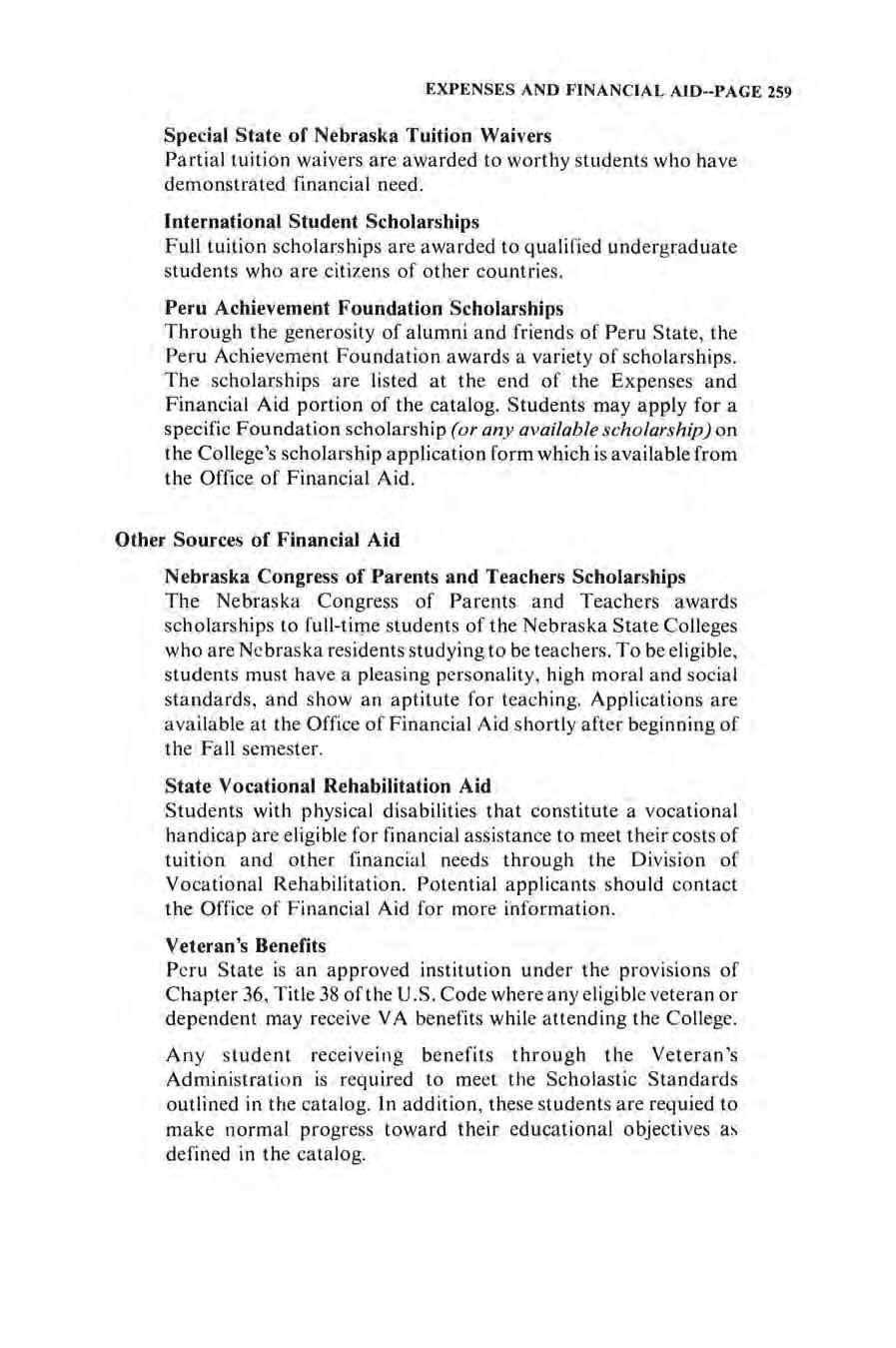
Students with physical disabilities that constitute a vocational handicap are eligible for financial assistance to meet their costs of tuition and other financial needs through the Division of Vocational Rehabilitation. Potential applicants should contact the Office of Financial Aid for more information.
Peru State is an approved institution under the provisions of Chapter 36, Title 38 of the U.S Code where any eligible veteran or dependent may receive VA benefits while attending the College.
Any student receiveing benefits through the Veteran's Administration is required to meet the Scholastic Standards outlined in the catalog. In addition, these students are requied to make normal progress toward their educational objectives as defined in the catalog.
Students who receive financial aid from any federally-funded a nd / or Collegeadministered financial aid program are required to maint a in satisfactory academic standing and progres s. The standards for satisfactory academic standing are published under the Academic Standards portion oft he catalog; the standards for satisfactory academic progress for financial aid are published in the Financial Aid Student Handbook.
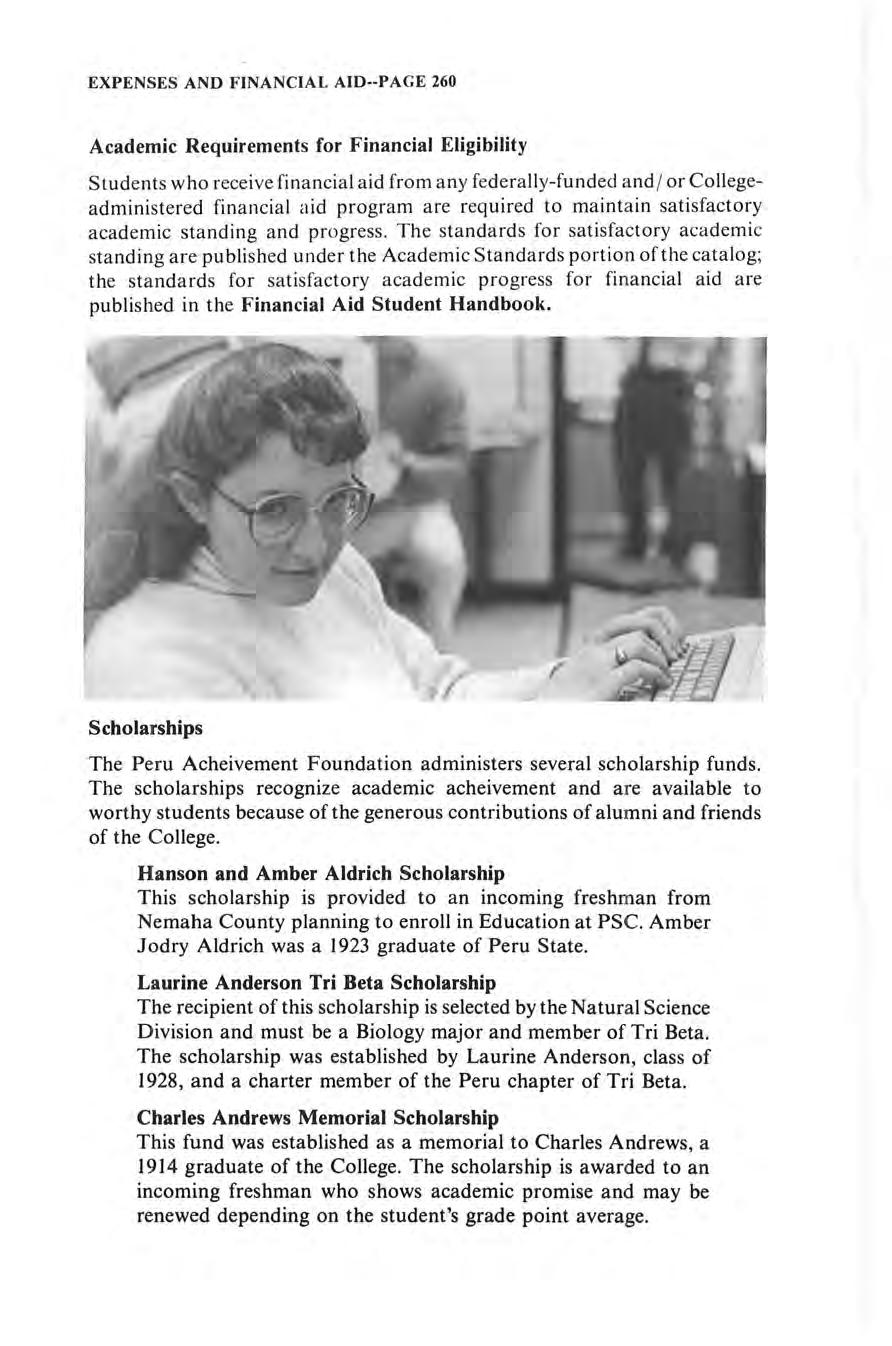
The Peru Acheivement Foundation administers several scholarship funds. The scholarships recognize academic acheivement and a r e available to worthy students because of the generous contributions of alumni and friends of the College.
Hanson and Amber Aldrich Scholarship
This scholarship is provided to an incoming freshman from Nemaha County planning to enroll in Education at PSC. Amber J odry Aldrich was a 1923 graduate of Peru State.
Laurine Anderson Tri Beta Scholarship
The recipient of this scholarship is selected by the Natural Science Division and must be a Biology major and member of Tri Beta. The scholarship was established by Laurine Anderson, class of 1928, and a charter member of the Peru chapter of Tri Beta.
Charles Andrews Memorial Scholarship
This fund was established as a memorial to Charles Andrews, a 1914 graduate of the College. The scholarship is awarded to an incoming freshman who shows academic promise and may be renewed depending on the student's grade point average.
Sanford and Hattie Clements Scholarship
The family of Mr. and Mrs. Clements established this scholarship for students from southeastern Nebraska who are interested in teaching Math and Science. Mr. Clements was a member of the College faculty from 1926 to 1953.
Mr. and Mrs . Fletcher Cline Scholarship
This scholarship was established by the Clines for students in teacher education . They were members of the classes of 1941 and 1943.
Crabtree Memorial Scholarship
Dr . Eunice Crabtree established this scholarship in 1982 in the memory of her father, Dr. James Crabtree and in memory of her brother James Wilson Crabtree who died in infancy. Dr. Crabtree was President of Peru State College from 1904-1910 who then went on to found the National Education Association . The scholarship is awarded for academic acheivement.
Ada Crooker Memorial Scholarship
This scholarship was established in the memory of Ada Crooker who taught business at Auburn High School. The recipient must be a female graduate of Auburn High School majoring in Business at the College.
Phyllis Davidson Memorial Scholarship
This scholarship was established by Dr. Lois Christensen, a 1948 alumna in the memory of Phyllis Davidson who served Peru State from 1929 to 1957 as professor of women's Physical Education .
Hobart Davidson Scholarships

The brother of long-time women's Physical Education instructor Phyllis Davidson funded several scholarships to be awarded to both traditional and non-traditional aged students, including some scholarships specified for out-of-state students. Phyllis Davidson served Peru State College from 1929 until 1957. Hobart Davidson was an attorney in Oklahoma.
Lura Hendricks Eichler Memorial Kindergarten Education Award
This award is presented annually to a student who has demonatrated ability , aptitude , and interest in kindergarten education .
Mac Dunning Industrial Arts Award
This is an annual cash grant given to an outstanding student in Industrial Technology and Education.
Bath Family Memorial Scholarship
These scholarships were established in 1967 by Mrs. Minnie Bath in memory of her husband John Bath and her two sons , Edward J. and Robert L. Bath. They are awarded for academic ach ievement.

Lillian Jewell Barnes and Alice Jewell Warnock Memorial Scholarship
This scholarship was established in the memory of Lill ian Jewell Barnes, Class of I 920, and her sister, Alice Jewell Warnock , Class of 1927, for students of high academic achievement.
E . C. and Mae Miller Beck Scholarship
This scholarship was established by Dr. and Mrs. Beck in 1967 for an English major with athletic ability.
Albert Brady Scholarship
Established by the Peru State College Letterman's Club and the friends of Albert Brady, the scholarship is awarded to a Biology major with athletic ability
Pearl Morgan Butler Memorial Scholarship
T he scholarship provides for all tuition and fees a s the fund allows. It was established by Joy Elmer Morgan in the memory of his sister who attended the College in 1905.
Dr. Edward Camealy Scholarship
Mrs. Edward (Ruth) Camealy provided funds for this s cholarship, memorializing her late husband who served Peru State College from 1960 through 1984. The recipient must be a s ophomore or beyond and a declared Music major , with preference given to vocal music students.
Roy Chamberlain Scholarship
The Roy Chamberlain Scholarship was provided by Mrs. Chamberlain in memory of her husband Roy, a 1927 Alumni of Peru State College. Any full-time male student is eligible to apply.
C.C. and Erma Wilson Choyce Scholarship
This scholarship was established by Mr. and Mrs. C.C. Choyce to recognize academic acheivement. Mr. Choyce attended the College in 1919, and Mrs. Choyce graduated in 1920.
A.B. Clayburn Memorial Award
This award is granted each year to a junior in teacher education majoring in the social sciences who has displayed the qualities of outstanding citizenship, progress, and potential.
First Federal Savings and Loan of Lincoln Scholarship
This scholarship is provided to students of Peru State College by First Federal Savings and Loan of Lincoln.
Elsie I Fisher Memorial Scholarship
These scholarships were established in memory of Elsie I. Fisher a 1906 graduate, who taught for 39 years in the Omaha school system. They are awarded to students in Art Education.
Loure Saltzman Firoved Scholarship
Mrs. Firoved, a 1916 graduate of the College, served many years as secretary to the college president. This scholarship, established by her children, is designed for a student majoring in business.
Esther Cole Franklin Memorial Scholarship
Dr. Franklin was a 1920 graduate of the College who was recognized as a distinguished alumna in 1977. This scholarship was established in her memory and is awarded to an outstanding student.
Glen and Verda Frary Scholarship
Glen and Verda Hauptman Frary were both 1927 graduates of Peru State who devoted their careers to educating youth. This scholarship is-to be awarded to a sophomore or junior Education major.
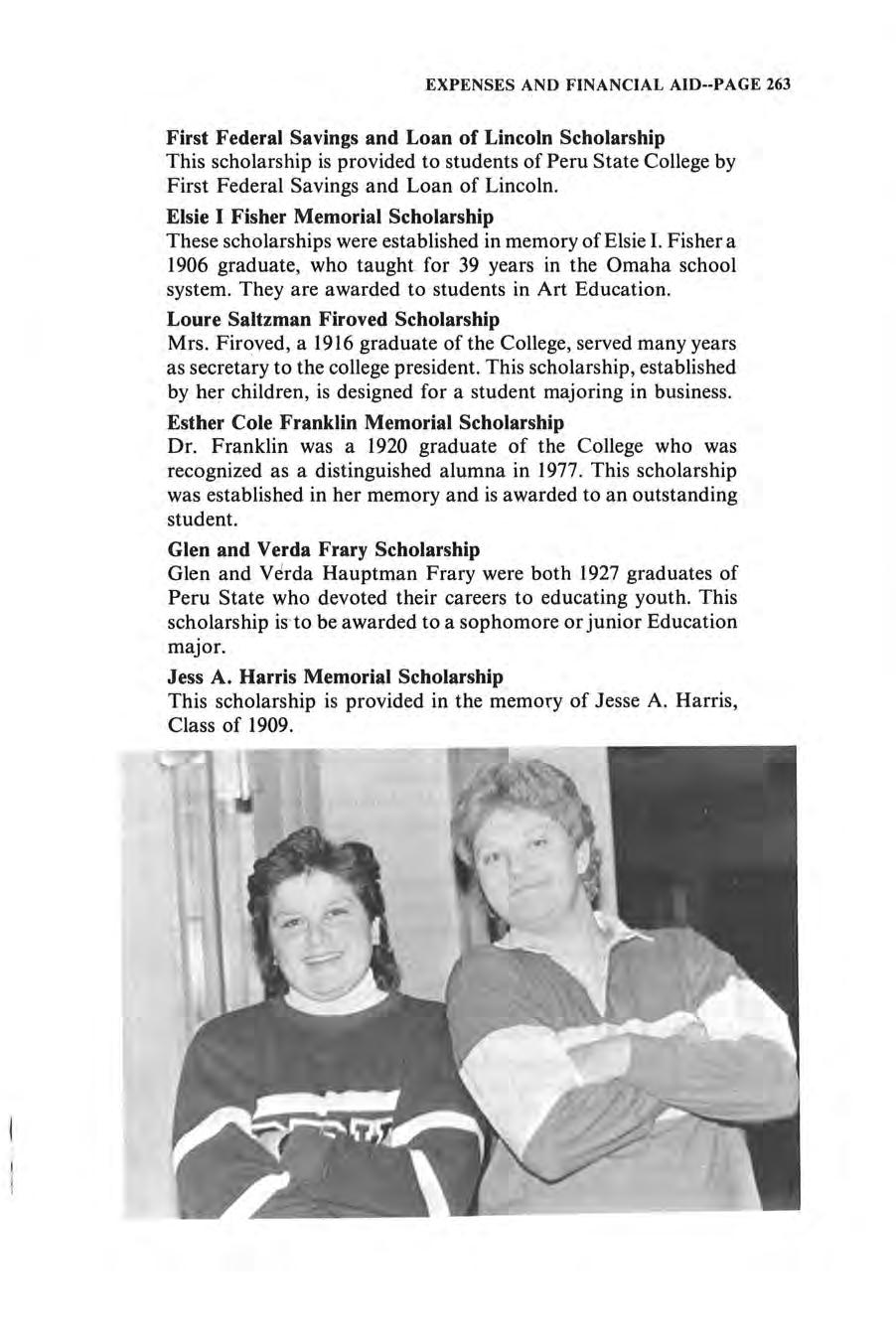
Jess A. Harris Memorial Scholarship
This scholarship is provided in the memory of Jesse A. Harris, Class of 1909.
Harrison Family Scholarship

This scholarship provides full tuition for a student pursuing a career in education and was established by Mrs. Be,njamin Harrison of Omaha.
Benjamin Harrison Memorial Scholarship
The family of Benjamin Harrison, Class of 1907, established this memorial to provide scholarships to worthy Peru State students.
Arnold and Bertha Hilterman Scholarship
This scholarship was established by Charles Masopust in memory of his sister and her husband. It is presented to a deserving Peru State student.
Lena Huff Memorial Scholarship
This scholarship is awarded for scholastic excellence m the memory of Lena Huff, a 1909 graduate of the College.
Harry and Mary Hutchinson Memorial Scholarship
This scholarship is provided by Charles Masopust in memory of Hollis Masopust's parents. It is to be given to an outstanding sophomore or junior who has excellent potential to be an outstanding teacher. The recipient should demonstrate campus leadership and a need for financial assistance.
Dee V. and Kathleen Jarvis Industrial Education Scholarship
Dee V. and Kathleen Jarvis provide a scholarship for a student majoring in Indu~trial Arts Education. Mr. Jarvis, a 1948 graduate of the College served on the staff as a professor of Industrial Education for 30 years before retiring in 1978.
Glenn D. Jenkins Memorial Scholarship
The family and friends of Glen D. Jenkins, Class of 1909, established this scholarship for students from Humboldt and Richardson County.
Victor H. Jindra Memorial Scholarship
This scholarship for students in Music was established from the estate of Victor H. Jindra, a professor of Music at the College from 1923 to 1961.
Johnson County Bank Scholarship
Each year the Johnson County Bank of Tecumseh provides scholarship funds for students from Johnson County.
Pearl A. Kenton Language Arts Award
This award is presented annually to an outstanding student majoring in Language Arts.
A.V. and Wilhelmina Larson Memorial Industrial Arts Award
This award is presented to a sophomore student who demonstrates promise as a teacher in Industrial Techno logy and Education.
E. Albin Larson Memorial Scholarship
E. Albin Larson was a 1933 graduate of Peru State who served as Secretary of the Board of Trustees of the Nebraska State Colleges from 1943 to 1960 . This scholarship was established by his family and friends to recognize academic achievement.
Arthur R. Majors Memorial Scholarship
This scholarship was established in the memory of Arthur R. Majors, a 1926 graduate of Peru State, who was an active educator for 43 years. Mr. Majors was a strong supporter of the College and the Peru Achievement Foundation. The scholarship is awarded to a student majoring in Biology, Chemistry, or Physics.
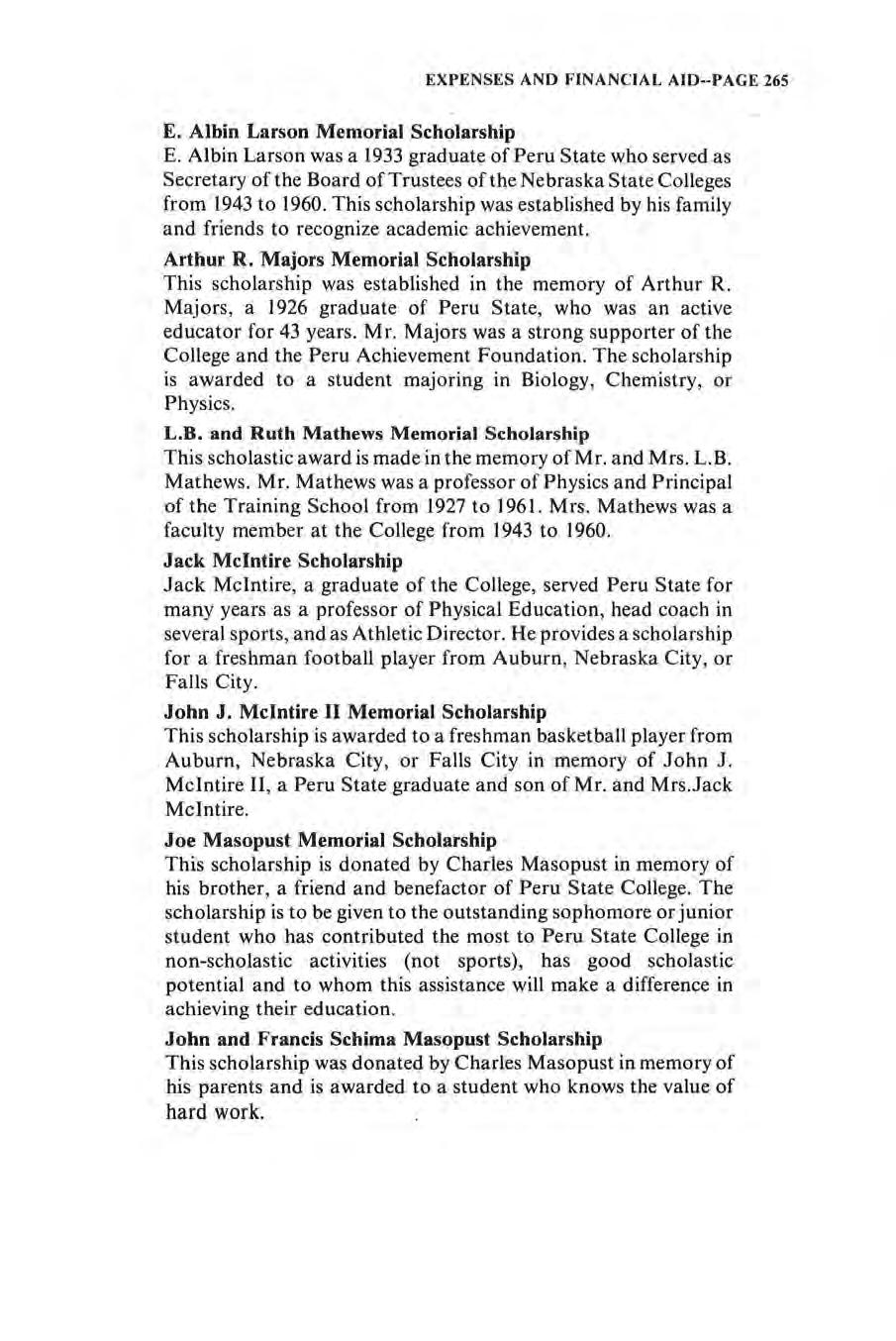
L.B. and Ruth Mathews Memorial Scholarship
This scholastic award is made in the memory of Mr. and Mrs. L.B. Mathews. Mr. Mathews was a professor of Physics and Principal of the Training School from 1927 to 1961. Mrs . Mathews was a faculty member at the College from 1943 to 1960.
Jack McIntire Scholarship
Jack McIntire, a graduate of the College, served Peru State for many years as a professor of Physical Education, head coach in severa l sports, and as Athletic Director. He provides a scholarship for a freshman football player from Auburn, Nebraska City, or Falls City.
John J. McIntire II Memorial Scholarship
This sc holar ship is awarded to a freshman basketball player from Auburn, Nebraska City, or Falls City in memory of John J. McIntire II, a Peru State graduate and son of Mr. and Mrs.Jack McIntire.
Joe Masopust Memorial Scholarship
This scholarship is donated by Charles Masopust in memory of his brother, a friend and benefactor of Peru State College. The scholarship is to be given to the outstanding sophomore or junior student who has contributed the most to Peru State College in non-scholastic activities (not sports), has good scho lastic potential and to whom this assistance will make a difference in achieving their education.
John and Francis Schima Masopust Scholarship
This sc holarship was donated by Charles Masopust in memory of his parents and is awarded to a student who knows the va lue of hard work.
This scholarship is donated by Charles Masopust in memory of hi s sister-in-law, a 1933 graduate of Peru State College . The award is to be given to an outstanding sophomore or junior student who has participated above and beyond normal in math and science and to whom this award will make a difference in achieving their education.
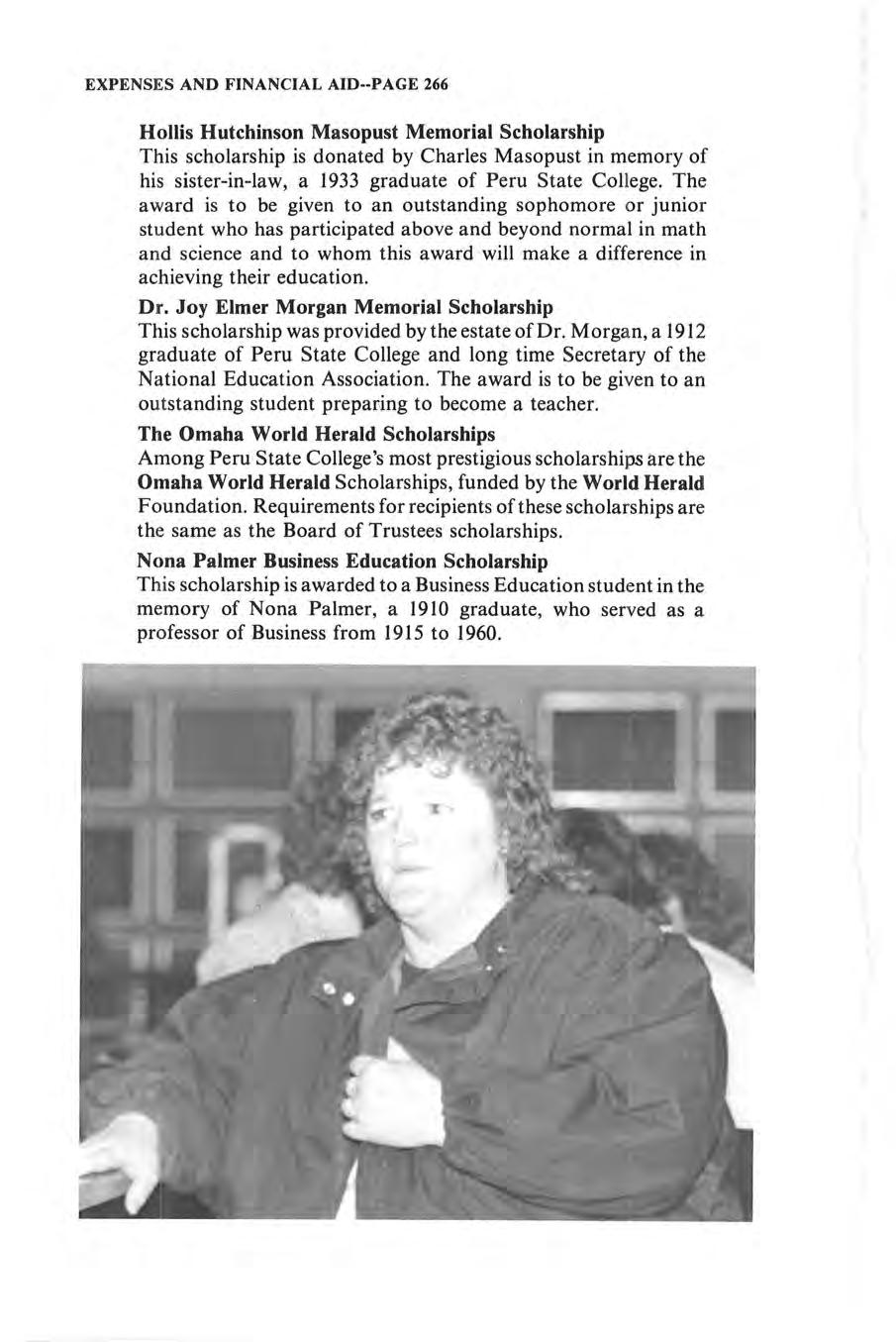
This scholarship was provided by the estate of Dr. Morg a n, a 1912 gr a duate of Peru State College and long time Secretary of the National Education Association . The award is to be gi ven to an ou tstanding student prepar,ing to become a teacher.
The Omaha World Herald Scholarships
Among Peru State College's most prestigious scholarships are the Omaha World Herald Scholarships, funded by the World Herald Foundation . Requirements for recipients of these scholarships are the same as the Board of Trustees scholarships .
Nona
Th is scholarship is awarded to a Business Education stud e nt in th e memory of Nona Palmer, a 1910 graduate, who served as a professor of Business from 1915 to 1960.
Mr. and Mrs. W.R. Pate Scholarship
The family of Mr. and Mrs. W.R. Pate provide this scholarship to students of high academic achievement. Dr. Pate served as President of the College from 1923 to 1946.
Peru Printout Scholarship
The Printout, the community newsletter of Peru and sponsored by the Peru Chamber of Commerce, funds a scholarship annually for a Peru resident. Applications must be made to the Peru Chamber of Commerce. Past recipients are eligible to reapply.
Helen E. Cole Pollard Founders Award
An award presented at the Spring Honors Convocation to the senior who has demonstrated loyalty and service to the College.
; Elaine Gerdes Pratt Scholarship
A student of non-traditional age hailing from Nemaha County in Nebraska is to be the recipient of the Elaine Gerdes Pratt Scholarship. The scholarship was established by her husband, Charles Pratt , a 1967 PSC graduate, in memory of his wife, a 1964 alumna who was extremely active in college affairs.
Ernest J. Rawson Memorial Industrial Education Scholarship
This scholarship was established by the family of Ernest J. Rawson, Class of 1938. Mr . Rawson taught Industrial Education in high school and college before retiring in the late l 970's.
Wiley and Maxine Remmers Scholarship
Wiley Remmers, a 1938 graduate, and his wife , the former Maxine Aufenkamp ('39), have established this scholarship to be awarded to a freshman student in Nebraska's first legislative district. Applicants for this scholarship must take a competitive examination on government.
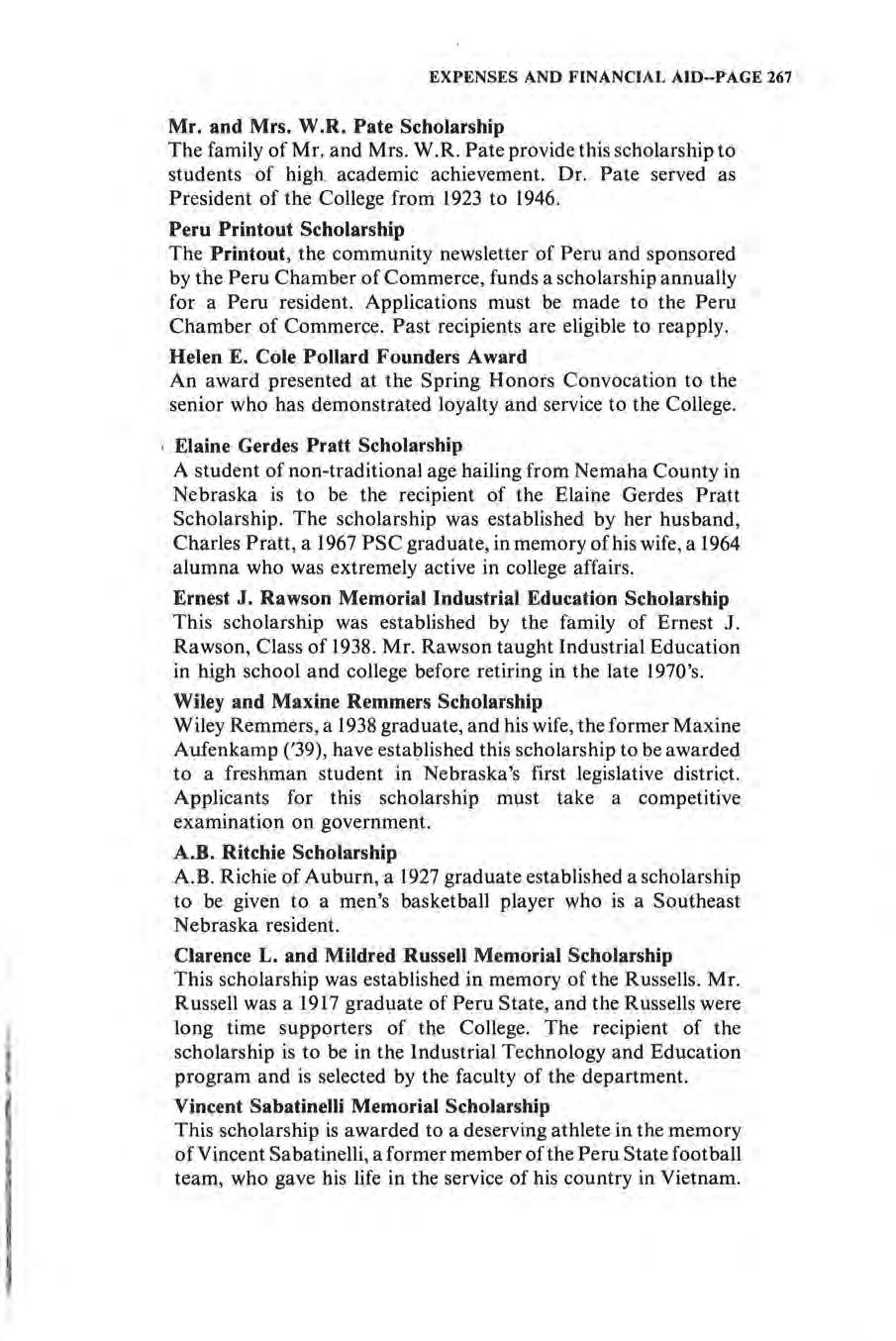
A.B. Ritchie Scholarship
A.B. Richie of Auburn, a 1927 graduate established a scholarship to be given to a men's basketball player who is a Southeast Nebraska resident.
Clarence L. and Mildred Russell Memorial Scholarship
This scholarship was established in memory of the Russells. Mr. Russell was a 1917 graduate of Peru State, and the Russells were long time supporters of the College. Jhe recipient of the scholarship is to be in the Industrial Technology and Education program and is selected by the faculty of the department.
Vincent Sabatinelli Memorial Scholarship
This scholarship is awarded to a deserving athlete in the memory of Vincent Sabatinelli, a former member of the Peru State football team, who gave his life in the service of his country in Vietnam.
Schottenhamel Family Memorial Scholarship
Dr. and Mrs. George Schottenhamel established this scholarship in the memory of Dr. Schottenhamel's parents who reside in Dupage County, Illinois. Dr. Schottenhamel served as Professor of Social Sciences from 1958 to 1981.
Charles Fred Speck and Lillian Mae Smith Scholarship
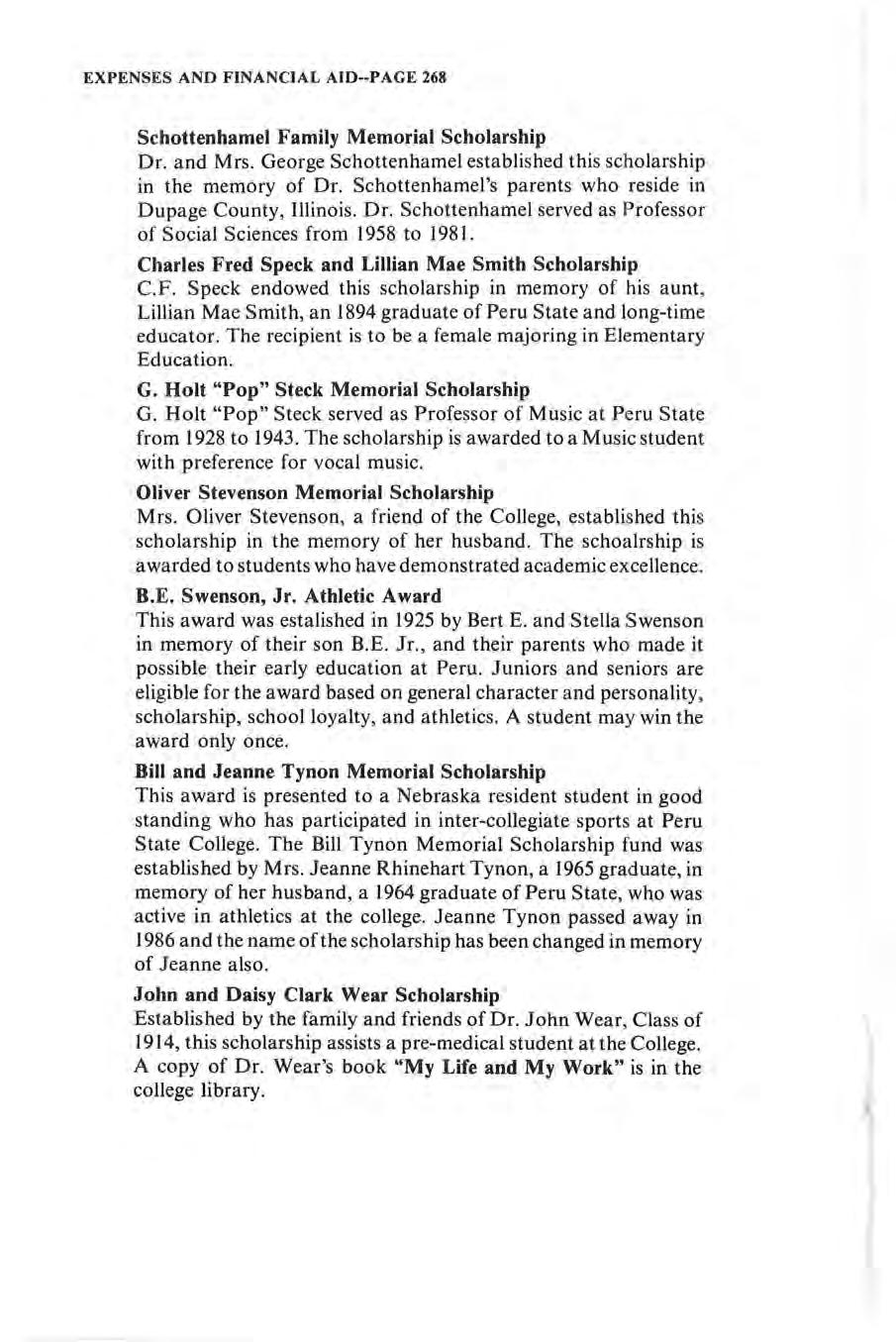
C.F. Speck endowed this scholarship in memory of his aunt, Lillian Mae Smith, an 1894 graduate of Peru State and long-time educator. The recipient is to be a female majoring in Elementary Education.
G. Holt "Pop" Steck Memorial Scholarship
G. Holt "Pop" Steck served as Professor of Music at Peru State from 1928 to 1943 . The scholarship is awarded to a Music student with preference for vocal music.
Oliver Stevenson Memorial Scholarship
Mrs. Oliver Stevenson, a friend of the College, establi s hed this scholarship in the memory of her husband. The schoalrship is awarded to students who have demonstrated academic excellence.
B.E. Swenson, Jr. Athletic Award
This award was estalished in 1925 by Bert E. and Stella Swenson in memory of their son B.E. Jr., and their parents who made it possible their early education at Peru. Juniors and seniors are eligible for the award based on general character and personality, scholarship, school loyalty, and athletics. A student may win the award only once.
Bill and Jeanne Tynon Memorial Scholarship
This award is presented to a Nebraska resident student in good standing who has participated in inter-collegiate sports at Peru State College. The Bill Tynon Memorial Scholarship fund was established by Mrs. Jeanne Rhinehart Tynon, a 1965 graduate , in memory of her husband, a 1964 graduate of Peru State, who was active in athletics at the college. Jeanne Tynon passed away in 1986 and the name of the scholarship has been changed in memory of Jeanne also .
John and Daisy Clark Wear Scholarship
Established by the family and friends of Dr.John Wear , Class of 1914, this scholarship assists a pre-medical student at the College. A copy of Dr. Wear's book "My Life and My Work" is in the college library.
Bereniece McHiron Weigand Scholarship
The recipient of this scholarship is to be a female majoring in education at Peru State. Established by Bereniece Weigand Woodworth , this scholarship is in memory of the 1906 Peru State graduate. Berniece M. Weigand was the wife of Charles Weigand, for whom another scholarship has been established.
Charles Weigand Memorial Scholarship
This scholarship was established in 1956 by the Class of 1906 in the memory of Charles Weigand, a member of the class. The scholarship is awarded to a rising senior.
Wheeler Language Arts Scholarship
Mr. and Mrs. Dennis Wheeler provide a scholarship that 1s awarded to a Language Arts major at the College.
The Al Wheeler Scholarship
Funds for this scholarship have been provided by Fran Wheeler Kendrick, their son Dr. Al Wheeler, Jr. , and friends of the longtime coach and athletic administrator who served Peru State from 1938 to 1965. The recipient is to be a male majoring in Physical Education who participates in intercollegiate athletics, with preference given to a football player.
Dr. Gilbert Wilson Scholarship
Students majoring in or planning to major in Music at Peru State College are eligible to apply for this scholarship. Dr. Gil Wilson served Nebraska's first College in the music department from 1957 through his retirement in 1982, and holds emeriti rank at PSC. He remains active in college and community affairs.
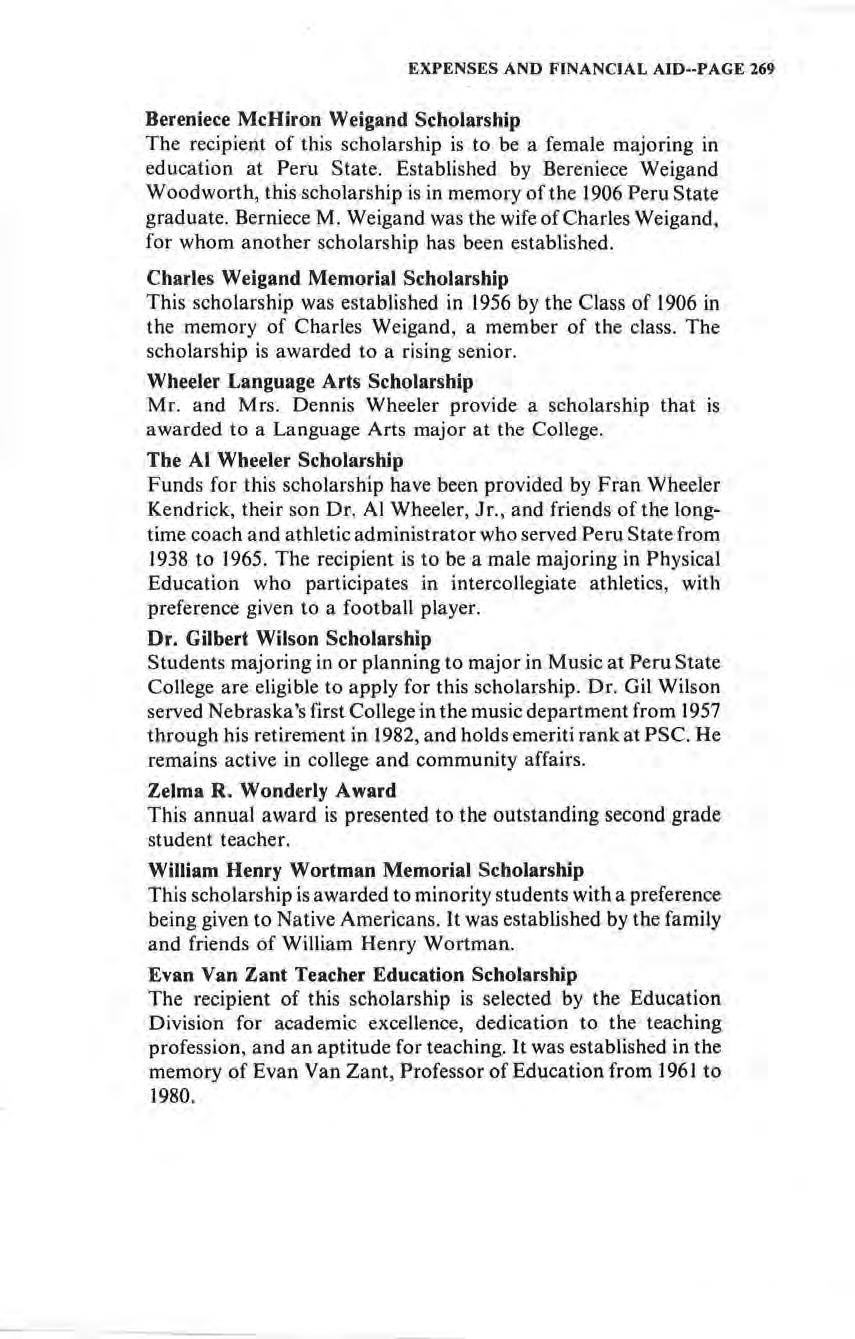
Zelma R. Wonderly Award
This annual award is presented to the outstanding second grade student teacher.
William Henry Wortman Memorial Scholarship
This scholarship is awarded to minority students with a preference being given to Native Americans. It was established by the family and friends of William Henry Wortman.
Evan Van Zant Teacher Education Scholarship
The recipient of this scholarship is selected by the Education Division for academic excellence, dedication to the teaching profession , and an aptitude for teaching. It was established in the memory of Evan Van Zant, Professor of Education from 1961 to 1980.
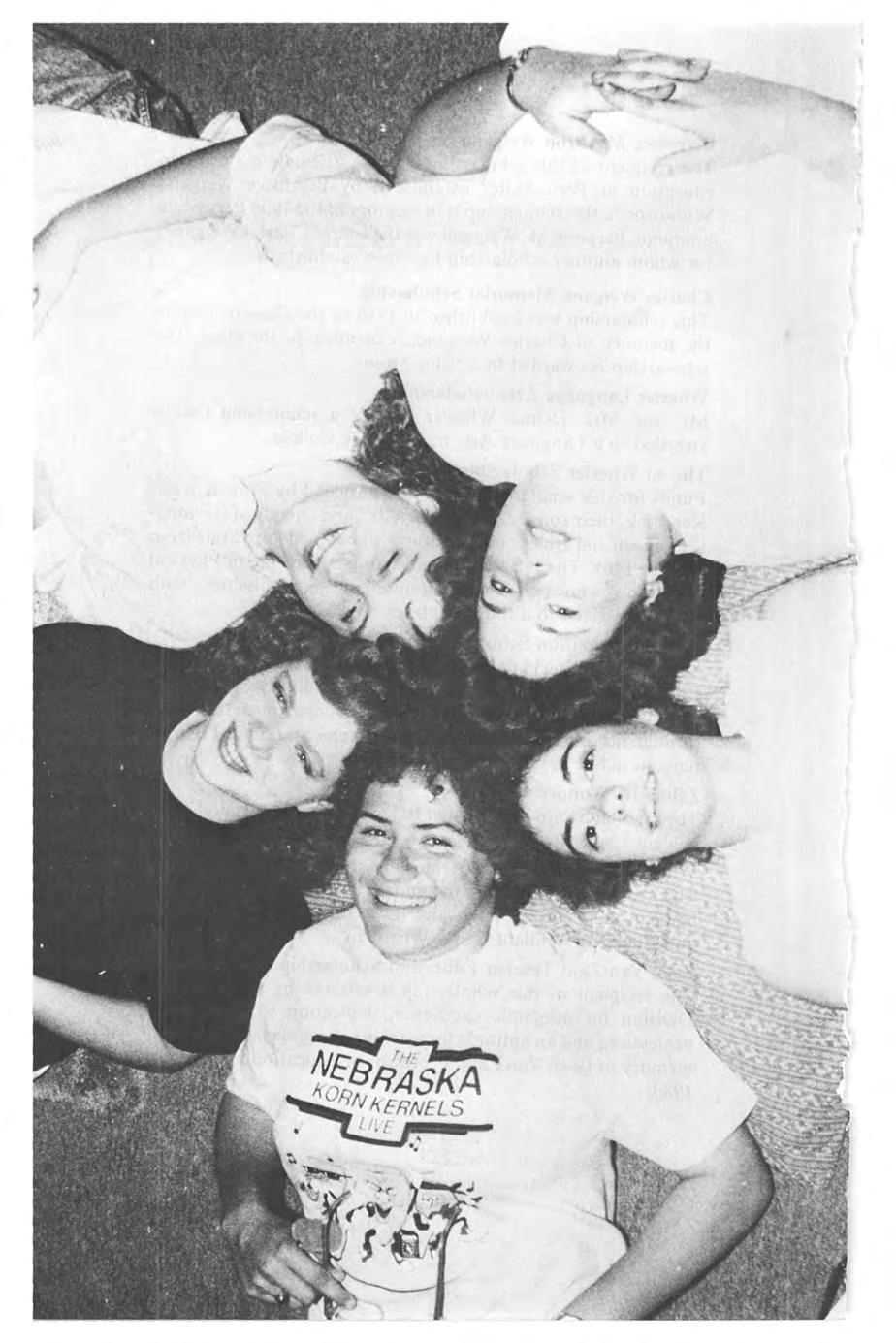
During the academic year, the College hosts conferences, workshops, and clinics for high school students, special interest groups, and a variety of educational and business concerns. The campus also serves as a convenient location for retreats of fraternal and civic groups throughout the summer.
Schools, civic, and educational organizations are invited to use the speakers, programs, and entertainment that are available from the College. Faculty and staff members often speak, lecture, and provide in-service training to area schools and businesses. Music and drama programs, demonstrations, and judges may also be arranged through the College .
The College provides space for a medical clinic at the Health Center for the community's benefit. The medical services open to the public are family planning, cancer and venereal disease examinations, and pregnancy testing. The Pap Smear Clinic is conducted by the College in cooperation with the State Health Department and is held monthly. In addition, a Well Child Clinic is available for any child, regardless of residence or income, in cooperation with the Nemaha County Health Department.
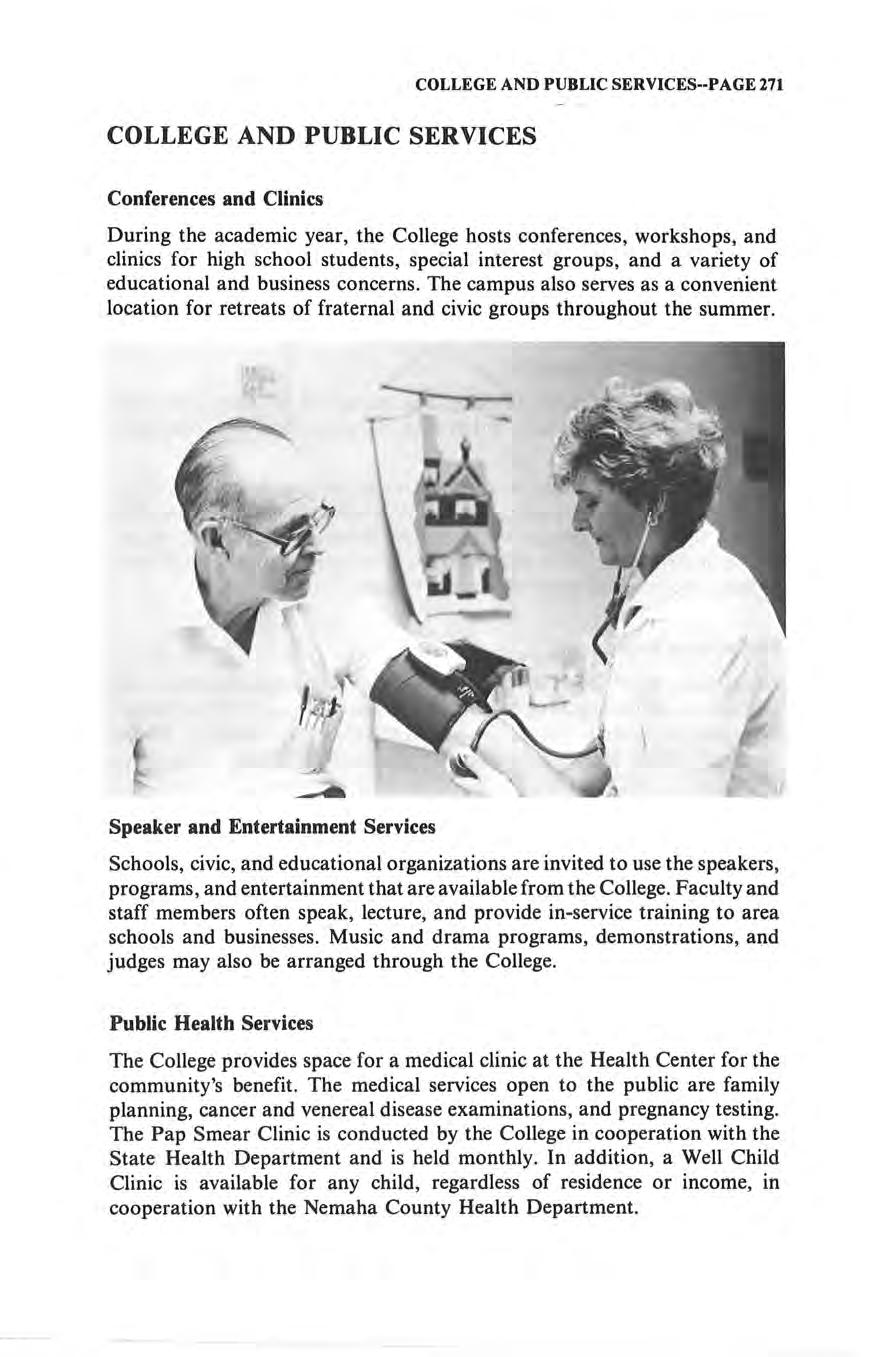
Peru State offers courses for adults who wish to complete a program of study in Adult Basic Education (ABE) and / or in General Educational Development (GED) at several sites throughout the region. Adults may take the GED test either on campus or at an extension site. No tuition is charged for enrolling in either the ABE or GED program; a fee is charged for the GED examination and certificate.
The Peru Achievement Foundation was organized in June, 1955 and incorporated as a non-profit corporation for educational and charitable purposes in May 1962.
The pu r pose of the Foundation is to "aid, assist , and promote" the College and to "grant scholarships and student loans" to students. Alumni and friends of the College are encouraged to support the Foundation with gifts, grants, and bequests. Hundreds of students through the years have benefited from financial aid provided by the Peru Achievement Foundation
Membership in the Peru State College Alum~i Association is open to all graduates of the College as well as former students who request it. Chapters of the association include Omaha (organized in 1955), Lincoln (1955), Rocky Mountain (1957), Northern California (1958), and Thousand Oaks in Peru (1973).
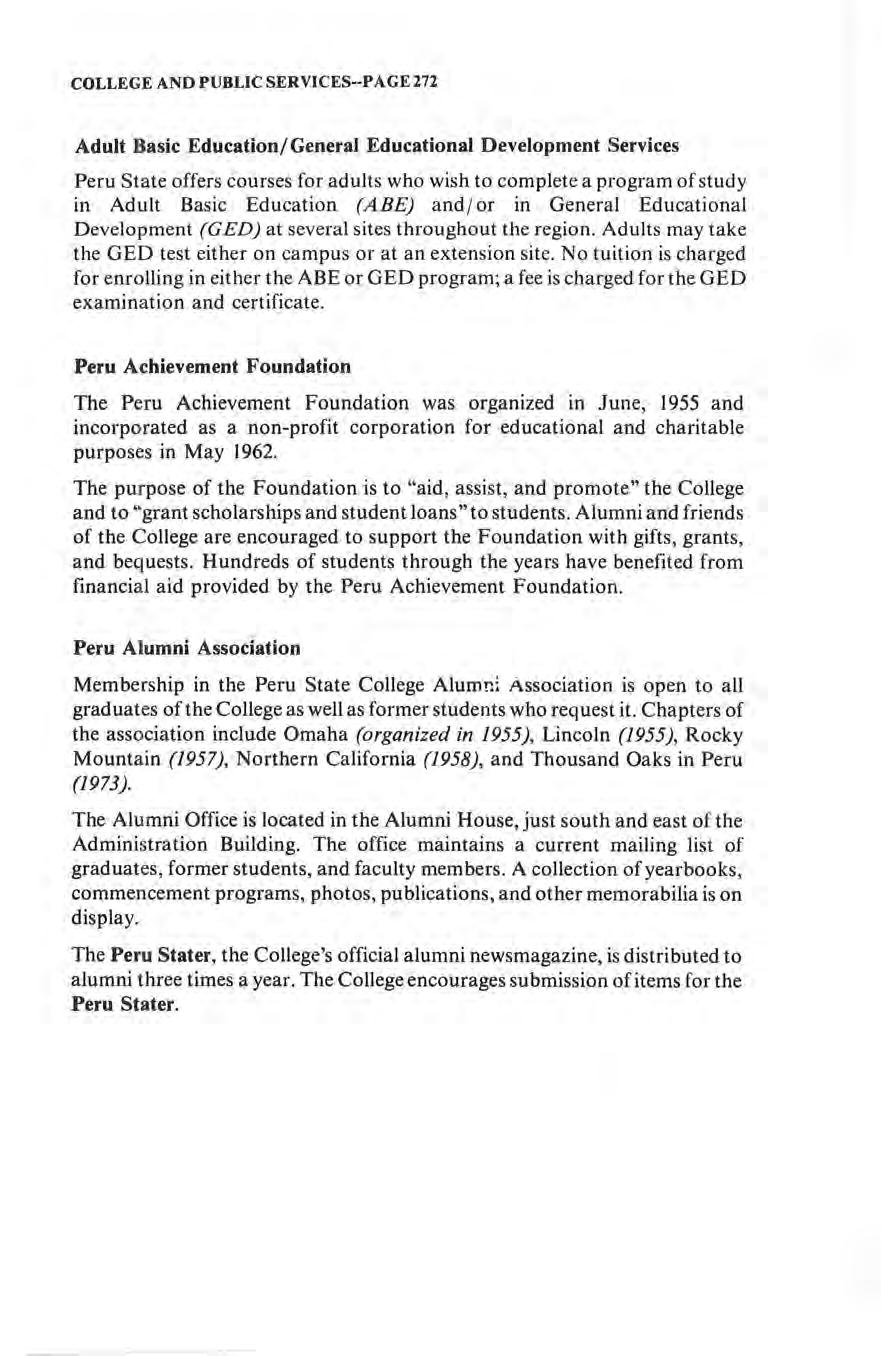
The Alumni Office is located in the Alumni House, just south and east of the Administration Building The office maintains a current mailing list of graduates, former students, and faculty members. A collection of yearbooks, commencement programs, photos, publications, and other memorabilia is on display.
The Peru Stater, the College's official alumni newsmagazine, is distributed to alumni three times a year. The College encourages submission of items for the Peru Stater.
The library at Peru State College contains more than 100,000 volumes and subscribes to nearly 800 periodicals. Special collections include the original manuscripts of authors Marion Marsh Brown, E.P. Conkle, Ruth Crone, and Louise Mears. The library assists patrons through its extensive interlibrary loan services and provides typewriters and microcomputers for student use.
The Media Center houses a large variety of audio-visual equipment and materials including an abundant supply of films, filmstrips, slides, videotapes, records, and computer programs. A computer and wordprocessor are also available for student use. The Center's satellite dish and television studio provide a wide range of educational and recreational _opportunities for students and community.
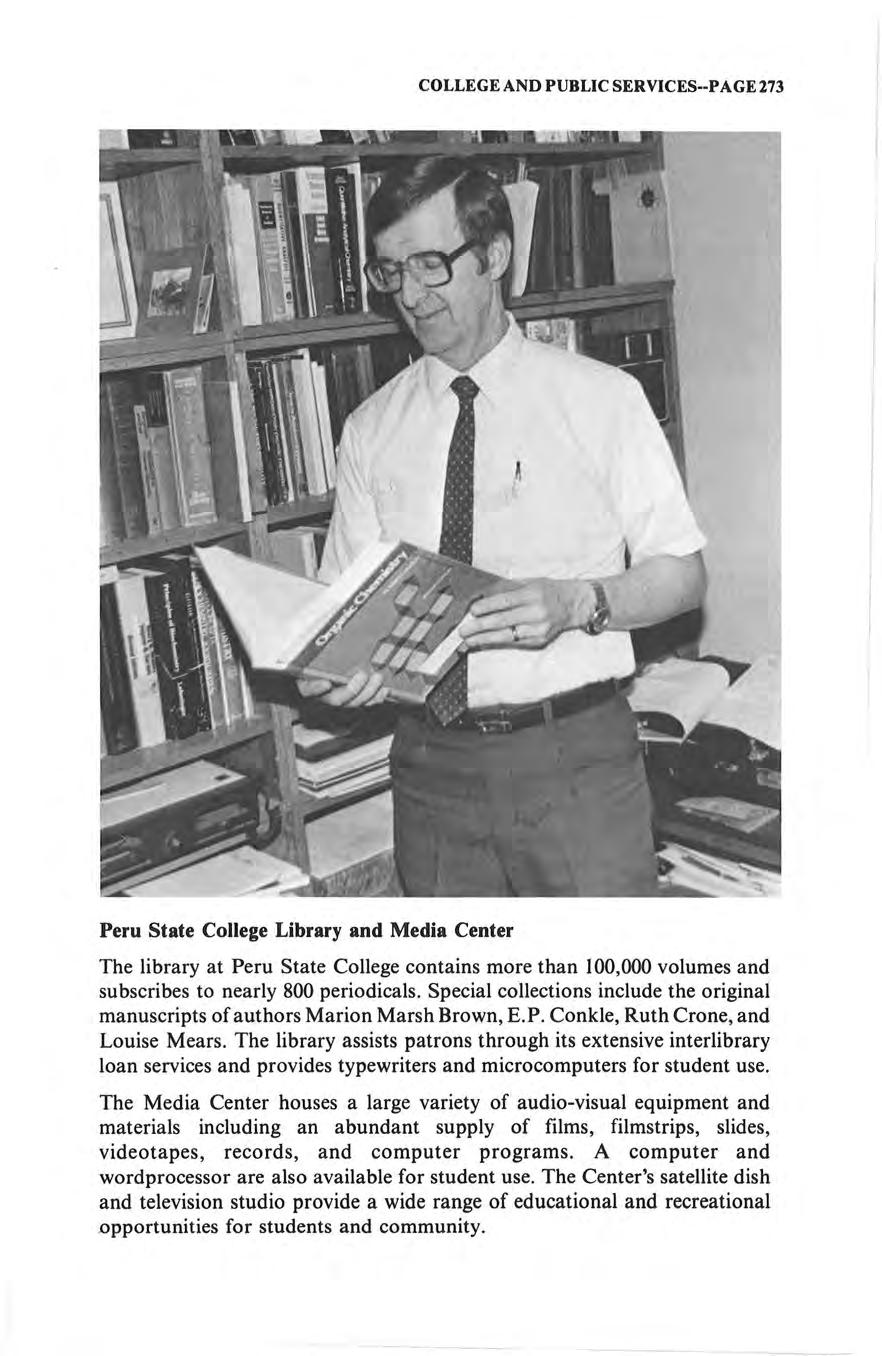

Board Of Trustees Of The Nebraska State Colleges

Keith Blackledge
Jean Lovell, Chairperson
Celia A. LaGreca, Vice Chairperson
Peter G. Kotsiopulos
Tom Morrissey
Gretchen Hirschbach
Joe E. Lutjeharms, State Commissioner of Educat io n
Richard Bringelson, Executive Officer
Emeriti
Mary Clarke (/951-1964)
Robert D. Moore (1937-1970)
Alma Ashley (1946-1970)
Frieda D. Rowoldt (1952-1970)
Hanaford Miller (1947-1971)
Harold Johnson (1951-1972)
Silas Summers (1960-1972)
John C. Christ (1947-1973)
Lucy Hovey (1967-1972)
Louise Kregel (1957-1972)
Juanita Bradley (1956-1976)
Dee Jarvis (1948-1978)
North Platte Gering
Omaha Kearney
Tecumseh
South Sioux City Lincoln Lincoln
Professor Emeritus of Education
Professor Emeritus of English and Speech
Professor Emeritus of Elementary Education
Professor Emeritus of Business Education
Professor Emeritus of Chemistry
Professor Emeritus of Education
Professor Emeritus of English
Professor Emeritus of Biology
Professor Emeritus of Home Econom ics
Professor Emeritus of Home Economics
Professor Emeritus of Education
Professor Emeritus of Industrial Arts
George Schottenhamel (1957-198/)Professor Emeritus of History & Social Sciences
Mary Ruth Wilson (1966-1982)
Gilbert Wilson (1957-1982)
Professor Emeritus of English
Professor Emeritus of Music
Ervin R. Pitts (1964-1982) Professor Emeritus of Health & Physical Education
Wreathea Hicks (1968-1985)
Faculty
Professor Emeritus of English
(Date indi cates year in which service at Peru State began)
Kenneth Anderson (1984)
Assistant Professor of Art
B.G.S., B.F.A., University of Nebraska-Omaha , M.F.A ., University of NebraskaLincoln.
Clyde Barrett (1965) Professor of English
B.S., M S., Peru State Teachers College; Ed D., University of Arkansas-Fayetteville
Russell Beldin (1970)
Assistant Professor of Business
B.S., Dakota State College; M S., Mankato State College
Anthony Citrin (1986)
Associate Professor of Education
B.A., M.A., University of Kentucky; Ed.D., Western Michigan University
Daniel Cox (1988)
B . A., Tarkio College; M .A.,
Assistant Professor of Education University of Nebraska-Omaha
Wayne Davidson (1982) Associate Professor of Ph ys ical Education
B.A. , Anderson College; M .S., Kansa s State College-Emporia; Ed.D., University of Missouri-Columbia
Spencer Davis (1983) Associate Professor of History;
B.A., Brown University; M.A. , University of Nebraska-Lincoln; Ph.D. , University of Toronto
Esther Divney (19 75) Professor of Education
B.S., M.A ., Kent State University; Ed.D., University of Northern Colorado
Royal Eckert (1975) Professor of Speech / Theatre
B.A. , University of Minnesota ; M .A., Ph.D ., University of Nebraska-Lincoln
Thomas Ediger (1979) Associate Professor of Music
Dire ctor of Choral Activities
A . B., University of Nebraska-Lincoln; M . A., D.A., Universi ty of Northern Colorado
David Edris (1974) Professor of Music; Chairperson of Humanities
B.M.A ., M . M ., University of Tulsa; D.M.A., University of Missouri-Kansas City
Paul Egan (1980) Associate Professor of Psychology
B.A., Ph.D. , State University of New York-Buffalo
Nancy Emerson (1977) Instru cto r of Social Work/ Sociology
B.S., M .S., Kansas State College--Pittsburg
Robley Evans (1978) Assistant Professor of Industrial Arts
B.S ., Western Kentucky University; M.S., Indiana Univer s ity
Mark Fegan (1988)
Instructor of Computer Science
B.S . , Morningside College; M .S . , Kearney State College
Victor Ferre (1978) Profess o r of Education
B.A., Weber State College; M .S., Utah State University; Ed.D., New Mexico State University
John Gibbs (1981)
B.S., William Jewell College ; M.S., Norma Gilmore (1988)
Instructor of Physical Education Central Missouri State University
B.S ., University of Northern Arizona; M.A., University of Northern Colorado
Associate Profess o r of Education Michigan State University; Ed.D.,
John Hahn (1968) Professor of Political Science
LLB., Chuo University; M .A., University of Minnesota; Ph.D , University of Cincinnati
Jack Hamilton (1972) Assistant Profe sso r of Business
B.S ., M.S ., Kansas State College-Pittsburg
Charles Harper (1978) Associate Professor of Speech/ Theatre
B.A., Tarkio College; M.A. , Ph . D. , University of Nebraska-Lincoln
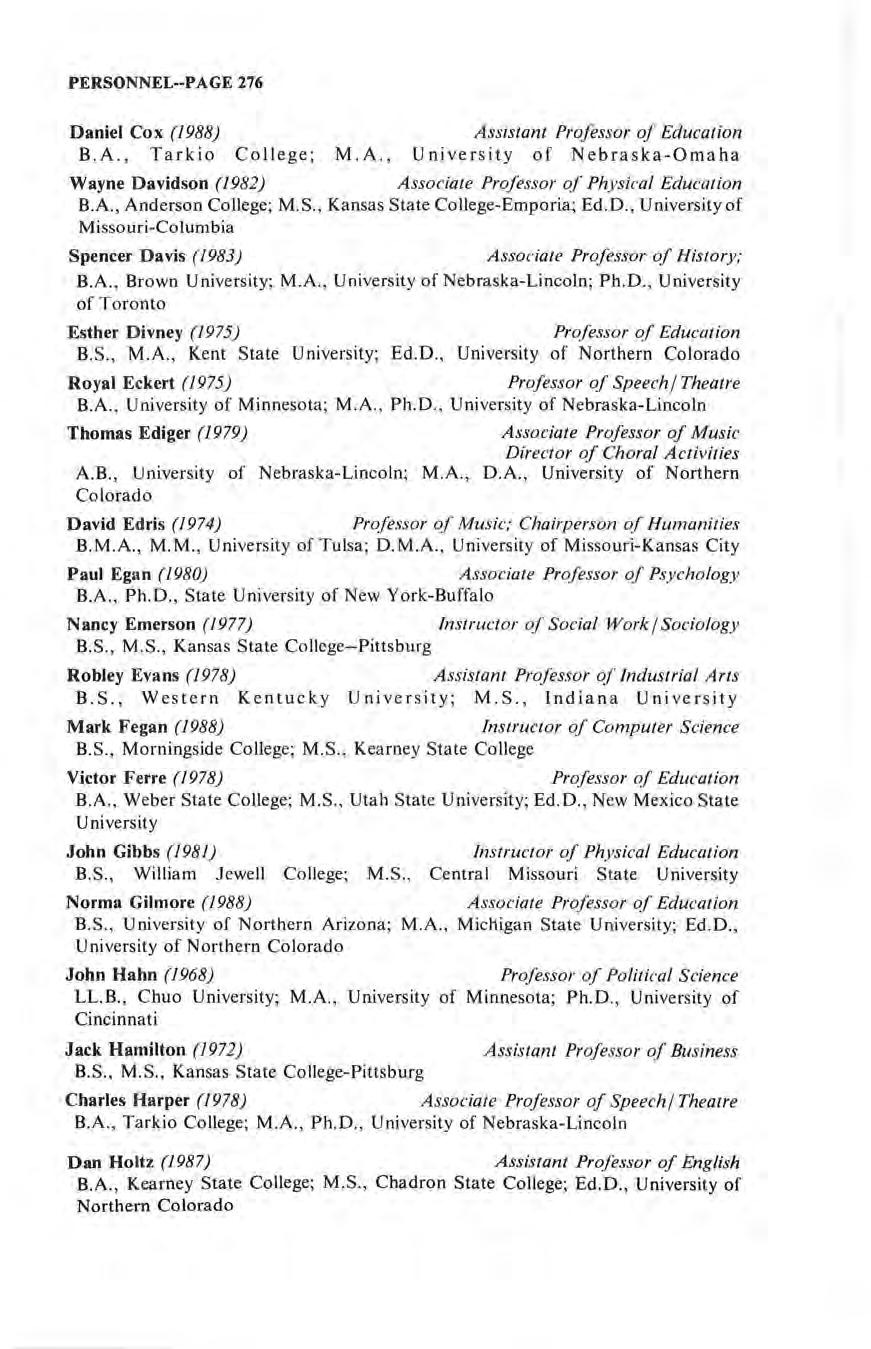
Dan Holtz (1987) Assistant Professor of English
B.A., Kearney State College ; M.S., Chadron State College; Ed.D., University of Northern Colorado
Gayle Hytrek (1987) Instructor of Business
B.S., Peru State College; M.S., University of Nebraska-Lincoln
Jack Hytrek (1979) Associate Professor of Education
B.S., M.S., Chadron State College; Ed.D., University of Northern Colorado
Don Jacobs (!980) Associate Professor of Business
B.S., University of Chattanooga; M.A., Texas Christian University; Ph.D., University of Nebraska-Lincoln
David Jensen (1987) Instru ctor of Physical Education
B.S., University of Northern Colorado; M.S., Colorado State Univer sity
Paul Kruse (1969) Assistant Professor of Library Science; Dire c tor of Learning Resources
B.S., Fort Hayes State College; M.S.L.S., Emporia State College
Robert Lewellen (19 72) Assistant Professor of Business
B.S., M.S., Northwest Missouri State University
Daryl Long (1967) Professor of Science
B.S., Iowa State University; M.S., Ph.D., University of Nebraska-Lincoln
William Longley (/983) Associate Professor of Computer Science
B.A. , M.A., Ph.D., University of Colorado-Boulder
Stanley McCaslin (/9 71) Assistant Professor of Computer Science
B.A., Macalester College; M.S. , California Institute of Technology; M.S., University of Nebraska-Lincoln
Anthony McCrann (/988) Assistant Professor of English
B.A., Villanova University; M.A., D.A., Ph .D., University of Oregon
Lyle McKercher (/959) Associate Professor of Mathematics
B.S., Morningside College; M.S., University of Iowa
Richard Newman (/986) Instructor of Physical Education
B.A., University of Northern Colorado; M.S., South Dakota State University
Carol Pappas (/985) Assistant Professor of Natural Science
B.A., Florida State University; M.S., Ph.D., University of Illinois-Urbana
Larry Pappas (/979) Professor of Biology
B.S., Hiram Scott College; M .S., University of Wyoming; Ph.D., University of Illinoi s-Urbana
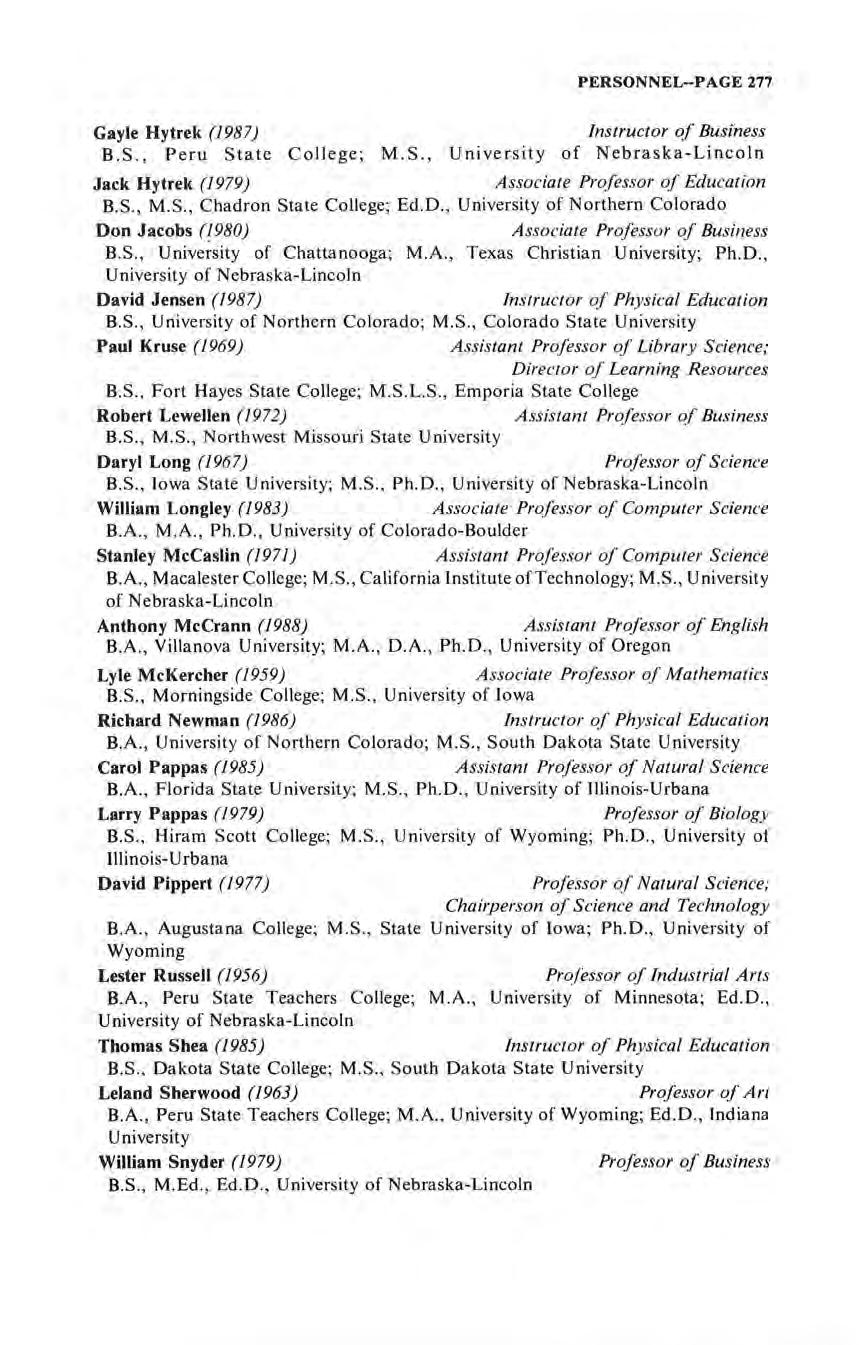
David Pippert (/977)
B.A., Augustana College; Wyoming
Professor of Natural Science; Chairperson of Science and Technology
M.S., State University of Iowa; Ph.D., University of
Lester Russell (1956) Professor of Industrial Arts
B.A., Peru State Teachers Co llege ; M.A., University of Minnesota; Ed.D., University of Nebraska-Lincoln
Thomas Shea (/985) Instructor of Physical Education
B.S., Dakota State College; M.S., South Dakota State University
Leland Sherwood (/963) Professor of Art
B.A., Peru State Teachers College; M.A., University of Wyoming; Ed D., Indiana University
William Snyder (/979) Professor of Business
B.S ., M.Ed., Ed.D., University of Nebraska-Lincoln
James Thomas (1985) Profe sso r of Business ; Chairperson of Business Administration
B.S. , Wayne State University; M .A., Ph .D., Michigan State University
Ralph Thorpe (1988) Associate Professor of Education
B.S., M .S., Ed.D., Univer s ity of Nebraska-Lincoln
Patsy Shea (1988) Director of lntramurals
B.S., Dakota State Colleg e
Larry Van Oyen (1988) Ins t ructor of Music
Dire c tor of Band Activities
B. M ., Michigan Stae University ; M.A. , Eastern Michigan Univer s ity
Ann Williams (1986) Adjunct Instru ctor of Business
B.S., Arizona State University; M A., University of Nebraska-Omaha
Scott Williams (1966) Assistant Profess o r of Geography
B.S . ,M.A., Arizona State Univer s ity
Paul Wyczawski (1985) Instructor of Physical Education
B S , South Dakota State University; M .S., University of South Dakota
Administrative Officers

Jerry Gallentine (1982) President
B.S. , Fort Hayes Kansas State College; M.Ed., M.S., Ph . D ., Univers ity of Toledo
Channing Cox (1985) Vice President
B.S., Wake Forest University; M .A., Ph.D., University of North Carolina-Chapel Hill
Dina Musil (1985) Dean of Administrative Affairs
B.S , Kearney State College; M .A , University of Nebraska-Lincoln
Jerry Joy (1975) Dean of Student Affairs
B.S. , Peru State College; M.S ., Northwest Missouri State University
Robert Baker (1982) Dean of Continuing Education and Regional Services
B.S. , Maryville College; M .Ed ., University of Chattanooga
Jerrold Hanson (1988)
Dean of Graduate Studies
B.S ., M . A. , University of Minnesota; Ed.D., Univ e rsity of Colorado
Professional Staff
Don Anderson (1988) Admissions Counselor
B.S , Peru State College
Walter Bosley (1983) Supervisor of Buildings and Grounds
Ron Fabry (1986)
Direc tor of Physical Plant
Dan Finley (1988) Food Service Manager
Dwight Garman (1980) Director of Financial Aid
B.A., Creighton University; M.A ., University of Nebraska-Lincoln
Lori Gottula (1987)
B.S., Peru State College
Dan Haugland (1984)
Program Deve lopment Coordinator
Direc tor of Residenc e Life
B.S Dakota State College; M.Ed ., South Dakota State University
Vince Henzel (1983) Sports Information Director
B.S., P eru State College
Dottie Holliday (1987)
B.S., Peru State College
Patricia Johnson Spaar (1987)
B.S ., Peru State College
Steve Johnson (1987)
B.S., · on University i
ris Joy (1985) ,--
B~S. Peru State College
Director PSC- Nebraska Business Development Center
Coordinator of Student Programs Business Office Manager Bookstore Manager
Paul ~o9) Director of Learning Resources
B.S., Fort Hayes State College; M.S.L.S., Emporia State College
Kelly Liewer (1968) Registrar; Director of Institutional Research
B.S., Peru State College; M.Ed., Ed.D., University of Nebraska-Lincoln
Sharon McCaslin (1971) Technical Services Librarian
B A ., Kansas State University; M.L., Kansas State Teachers College; Ph D., University of Nebraska-Lincoln

Stanley Mccaslin (1971) Director of Data Processing
B.S. Macalester College; M.S., California Institute of Technology; M.S., University of Nebraska-Lincoln
James Mulder (1984) Reference Librarian
B.A., Northwestern College; M . A., University of Iowa
Dina Musil (1985) Affirmative Action and Equal Employment Opportunity Officer
B.S., Kearney State College; M.A., University of Nebraska-Lincoln
Jennifer Nelson (1985) Director of Summer Programs Pre-major Advisor
B.S ., M.S., Kansas State University
David Phalen (1987) Director of Communications Skills Center
B.A., Iowa State University; M.A., University of Southern Mississippi
Jodi Peterson (1988) College Nurse
R N ., Methodist Hospital
Ted Price (1986) Administrative Assistant-Offutt AFB
B.S., Michigan State University; M.P.A., Central Michigan University
Kent Propst (1983) Director of College Advancement
B S., Peru State College
Patsy Shea (1988) Director of Intramurals
B.S., Dakota State College
Thomas Shea (1985) Director of Athletics
B.S., Dakota State College; M.S., South Dakota State University
Pam-Sherwood Cosgrove (1987) Coordinator of Admissions
B.S., Peru State College
Linda Warren (1977) Career Planning & Placement
B.A., M.A., Kearney State College
Jill Vandemark (1988) Assistant Coordinator of Admissions
B.S., Iowa State University
Paula Winkelman (1984) Printing Services Coordinator
B.S., Peru State College
